Stories
|
Words are only painted fire; a look is the fire itself. Mark Twain |
||||||
Rotary projects around the globe
|
||||||
Fitness project promotes health for Oglala Lakota schools By Martin Cohn, Rotary Club of Springfield, Vermont, USA This project was supported by district 7870 For more than a decade, members of Rotary District 7870 (New Hampshire, Vermont, USA) have been helping residents of Pine Ridge Reservation in South Dakota. The district’s service projects have ranged from making upgrades to the local nonprofit radio station, to providing laptops for students, to delivering materials for traditional quilts. District Rotarians have also partnered with South Dakota Rotary clubs to fund a makerspace for native artists. |
||||||
When it comes to fundraising, Interactors are crushing it
By Paula M. Bodah Mehreen Rosmon isn't even out of high school, but she's already having a big impact on her community and the world. The senior from Fremont, California, leads Interact District 5170, one of Rotary's larger Interact districts. Launched in 1962, Interact brings young people ages 12-18 together to develop leadership skills and serve their communities. |
||||||
Milestone for Rotary club in South Africa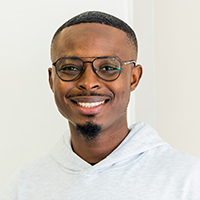 Omameh By Ifechukwude Rex Omameh, 2023-24 president of the Rotary Club of Blouberg, South Africa Editor's Note: PDG Venu Rao and I visited this club and its projects for 2 days last December. Unfortunately, the President-Elect was in Johannesberg on business at the time. In July, I became the youngest president in the history of my Rotary club, and the first president of color.
|
||||||
Rotary magazine’s 2023 Photo AwardsRotary magazine’s 2023 Photo Awards See the world courtesy of this year’s award-winning photographers Writing in this magazine in 1946, Paul Harris remarked that “travel is a good corrective for … mental near-sightedness.” The same holds true for photography, especially if, like Rotary itself, the photographer takes a global perspective. To verify that observation you need look no further than this issue of Rotary magazine, where we reveal the finalists in this year’s Photo Awards. Including the cover, there are a dozen photographs that carry us from Egypt to Idaho, from Nigeria to Taiwan. Along the way we see everything from an intimate moment as a medical team prepares for surgery to a sweeping nightscape illuminated by an aurora borealis. Though they are shot in different parts of the world, employ distinct palettes, and evoke different emotions, all of these photographs have in common an unseen beauty. These days we’re constantly bombarded with images — and in an era of AI and CGI, it can be difficult to know if what we’re seeing is real. But in these 12 photos we have the privilege of standing in the photographers’ shoes and experiencing an honest understanding of a particular moment. That generosity of spirit is another Rotary trait. By sharing their pictures, the photographers enable the rest of us to join them on their journey. — Jacqueline Cantu, art director, Rotary magazine 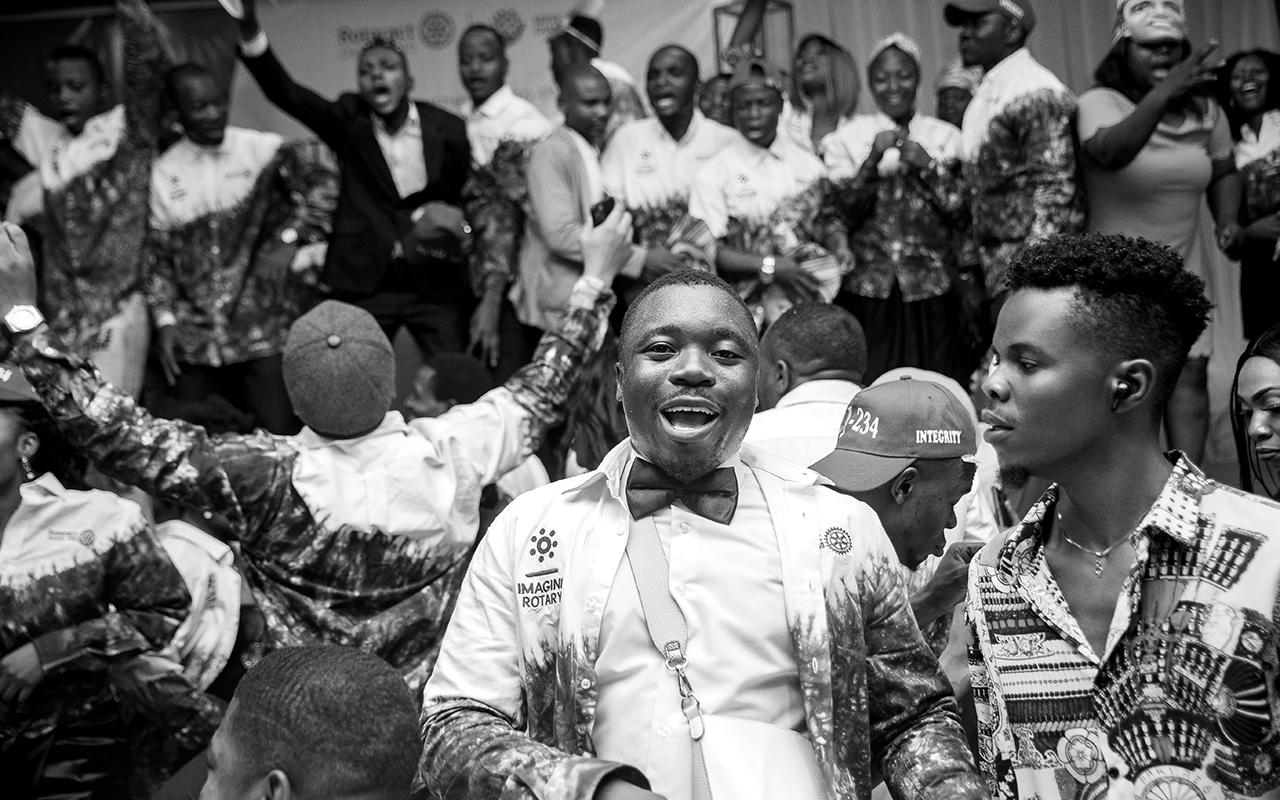 Winner Photographer: Edward Uhalla Rotaract Club of Ikate, Nigeria In Lagos, Nigeria, I was trying to document the introduction of District 9110’s 2022-23 Rotaract representative. In the thick of the chaos, this happy Rotaractor locked eyes with me, and I captured this celebratory moment in time. Judges say: The photo captures the jubilance of the occasion and the excitement of the crowd of Rotaractors. Technically, the photographer’s command of the image’s sharpness and its excellent monochromatic shades are superb! 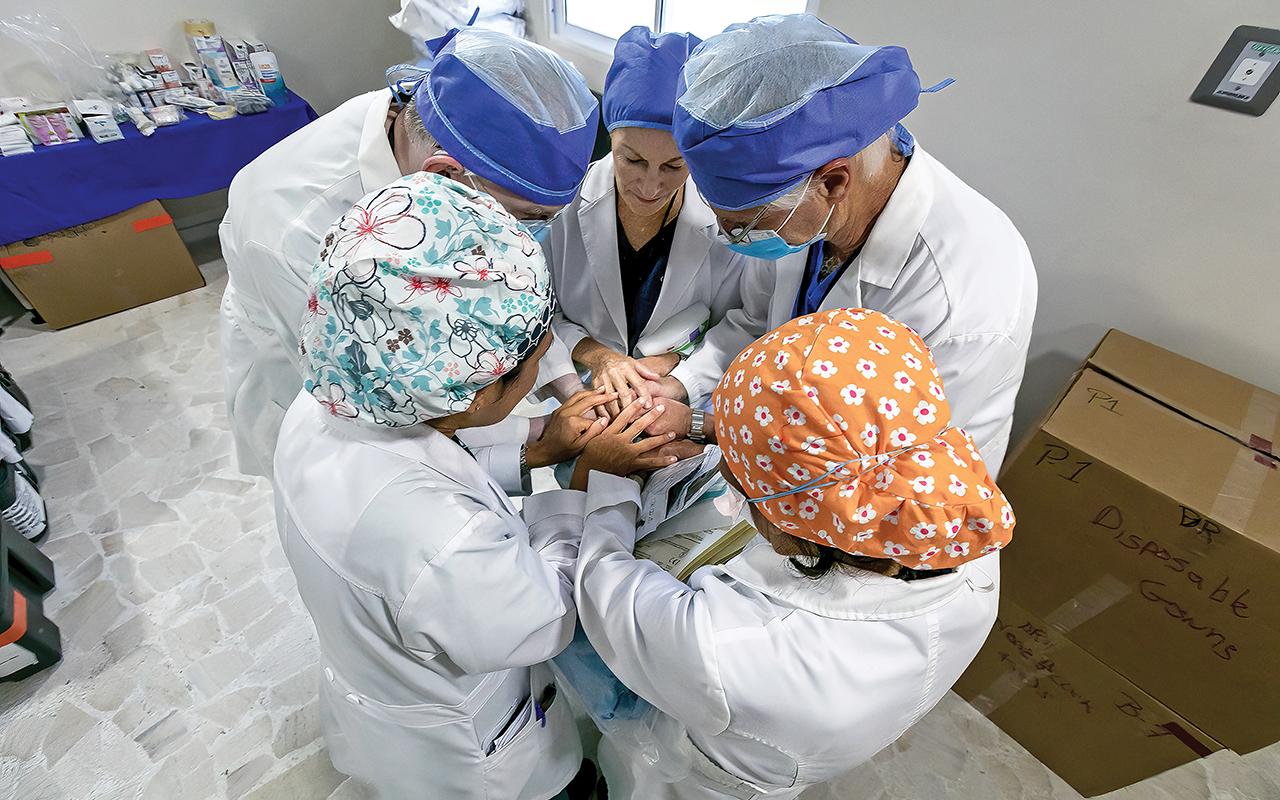 Winner: People of action Photographer: Dan Milham Rotary Club of Metairie, Louisiana Dr. Dan Jacob (top left), co-founder of New Orleans Medical Mission Services, prays with nurses and assistants, including Rotarian Jennifer Esler (bottom left), before heading to the operating room for surgery during a medical mission in Puerto Plata, Dominican Republic, on 23 May 2022. Judges say: The moment, the composition, the light. Very simple and very, very impressive. 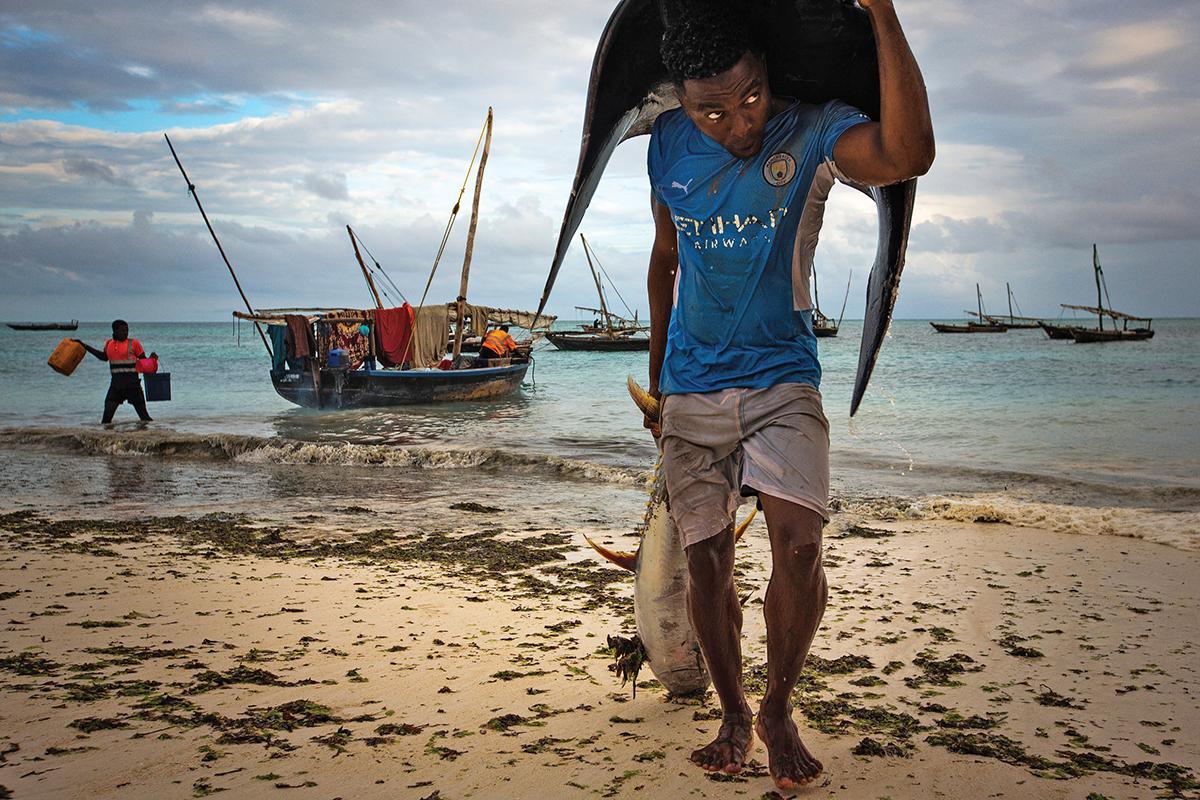 Honorable mention As the first light of dawn breaks over the horizon, people make their way from fishing boats to the shores of Nungwi, a coastal village in Zanzibar, Tanzania. Judges say: The eyes are on a target and not on the photographer. Where is he going, where is he coming from? The picture arouses curiosity about another being. Luca Venturi, Rotary Club of Siena Est, Italy |
||||||
Kayak RaffleCongratulations - the winner is Scott Martin  |
||||||
Small Rotary club in Ecuador’s Andes delivers big on water project By Arnold R. Grahl High in the Andes, an indigenous community had been waiting more than a decade for clean drinking water. |
||||||
Girls speak up through Rotary/Toastmaster alliance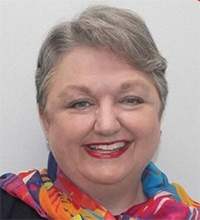 Mary Shackleton By Mary Shackleton, Empowering Girls Initiative Ambassador for Zone 32 (Bermuda; Northeastern USA) and Nikita Williams, Empowering Girls Initiative team member for Zone 28 (Canada; Michigan, Washington, and Alaska, USA) Teenage girls all over the world struggle with self-confidence. Recently, a team of Rotary members and Toastmasters in our Rotary zones set out to help girls build their leadership skills. Both Rotary and Toastmasters International are committed to helping girls embrace their full potential. We decided to use Toastmasters’ time-tested Youth Leadership Program (YLP) to benefit younger members of the Rotary community. Our effort, which we call the Empowering Girls YLP program, gives girls a space to discover and amplify their voices and ideas over eight weeks. The program’s unique, workshop-style design lets the girls develop speaking and leadership skills in a safe space. They learn about topics like Public Speaking; Using Body Language & Gestures; Active Listening; Giving Feedback; and Impromptu Speaking.  Nikita Williams Nikita Williams, a member of Rotaract in District 7070 and a Toastmaster from Toronto, held a pilot program in Canada, while I worked with Interactors in Bermuda. It’s hard to put into words how happy I was to see the participants grow, hear them speaking with more confidence, and observe how their voices and ideas were amplified even amid the “likes” and “so yeahs.” Our pilot programs were incredibly successful: At least 85% of the girls completed the programs and recommended them to others. We’re finishing a second round now. As one participant said: “There’s no such word to describe how wonderful this program is to me. When I was in the meeting, I didn’t feel afraid of being an international student who might pronounce something awkwardly. I wasn’t afraid of people judging my beliefs. I feel love and appreciation because of who I am.” If you’re a member of both Rotary and Toastmasters, you can ask your local Toastmasters District about starting YLP sessions with Interact clubs, schools, or community organizations in your Rotary district. If you don’t have any Toastmasters members in your club, you can reach out to a Toastmasters club near you that might be interested in collaborating. Toastmasters International has published a YLP Workbook and a Coordinator’s Guide with the key elements of a YLP. Our team is also developing tools and templates to help you get started. Contact us for more information. |
||||||
Small Rotary club in Ecuador’s Andes delivers big on water project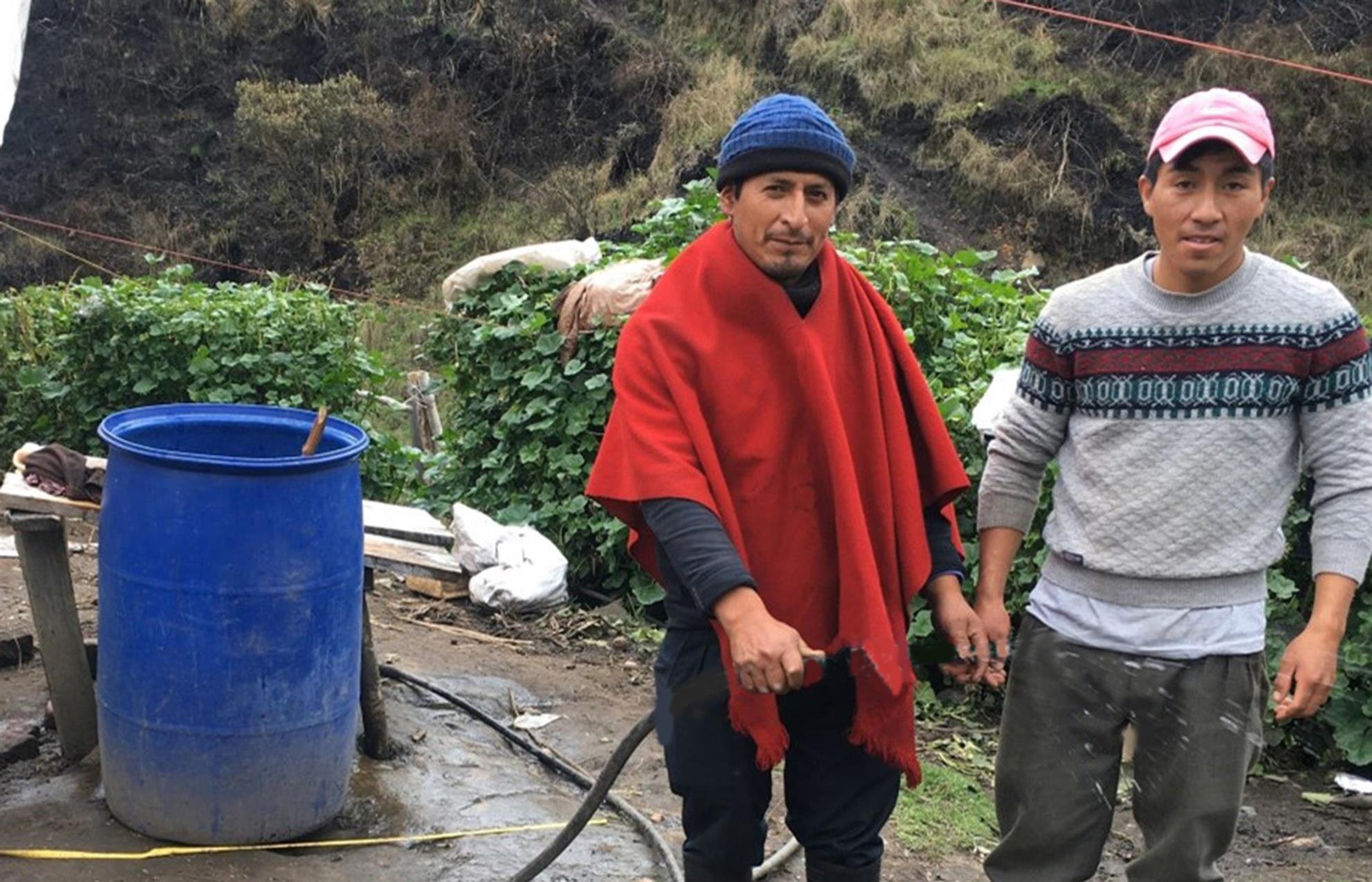 By Arnold R. Grahl High in the Andes, an indigenous community had been waiting more than a decade for clean drinking water. They had worked with a regional water agency on a plan, but didn't have the funding to put it into effect – until they met a new Rotary club willing to apply for their first global grant. |
||||||
In RYLA, I’ve glimpsed new horizons of opportunity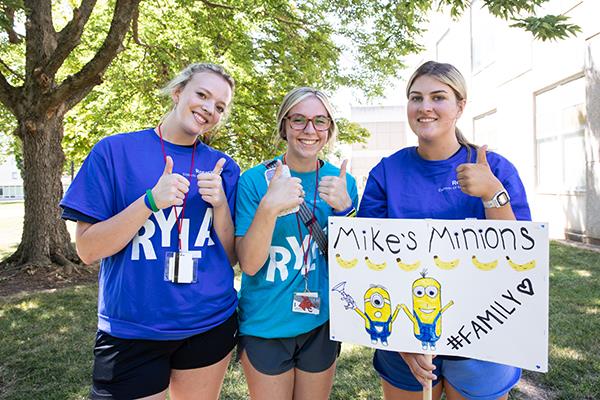 Kennedy Brooks, right, and two other members of her small group, give the thumbs up during an activity at the a multi-district Rotary Youth Leadership Awards Academy in Missouri in July 2022. By Kennedy K. Brooks, a participant in Rotary Youth Leadership Awards Academy in Missouri, USA. Photos by Monika Lozinska/Rotary International Last July, I attended a Rotary Youth Leadership Awards (RYLA) Academy in Missouri, USA, that changed my life. I found myself in the right place at the right time. In the span of less than four days, I made unbelievable friendships, met mentors who were willing to give me wise counsel, and learned skills that I can use to explore a future of endless opportunities. |
||||||
Partnering with parks department yields Miracle Field The Miracle Field has a rubberized, barrier-free turf that allows children with disabilities to play baseball safely. Editor’s Note: In 2010, the Fargo-Moorhead Rotary Foundation, which is supported by five Rotary clubs in the Fargo, North Dakota, and Moorhead, Minnesota, USA, area, raised 100 percent of the funds needed to build a Miracle Field in Moorhead. Keith Brokke shares how they were able to make an impact with their project. By Keith Brokke, past governor of District 5580 (Minnesota, North Dakota, USA) and a member of the Rotary Club of Fargo-Moorhead AM In the spring of 2010, a Rotary member came to us with the idea to build a Miracle Field, a special field with a rubberized, barrier-free turf that allows children with disabilities to play baseball safely. We had previously built a universal playground five years before in Fargo to commemorate the 100-year anniversary of Rotary. We felt a Miracle Field was a good fit for our Fargo-Moorhead Rotary Foundation. |
||||||
Saving Babies in Ukraine
|
||||||
Rotary members find good deeds in good reads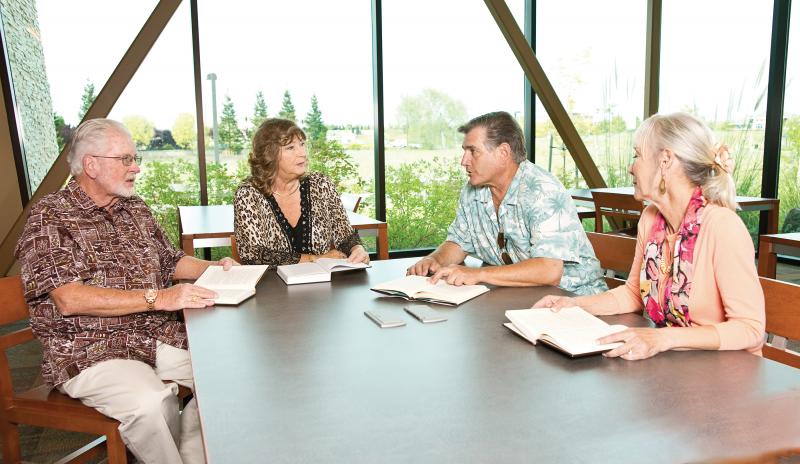 By Anne Stein When Rotarian Todd Bol built the first “Little Free Library” – a small, decorated wood box mounted on a pole that allows anyone walking by to take a book to read or add a book to share – he didn’t imagine it would grow into a global phenomenon (his work was profiled in the March 2014 issue of The Rotarian). Now Bol and his not-for-profit group based in Hudson, Wisconsin, USA, have launched Action Book Club, a program that encourages readers to pick a book, discuss it, then do positive works inspired by their reading. “Everyone has read a book that has inspired or changed them,” says Margret Aldrich, manager of the Action Book Club program at Little Free Library. “We wanted to give wings to that feeling and turn it into real action.” The Action Book Club site has a recommended books list – although clubs can read whatever they like – as well as discussion questions and service project ideas. The Rotary Club of Hudson, where Bol is a member, immediately signed up. “I think of Action Book Clubs as ‘read, talk, and then do,’” explains Past President Kari Rambo, who’s heading the club’s effort with President Brian Hinz. “For us as Rotarians, that’s what we do.” The 40-member club is reading “All the Things We Never Knew: Chasing the Chaos of Mental Illness,” by Sheila Hamilton. Rambo and Hinz chose the book in response to their community’s recent focus on recognizing and destigmatizing mental illness. The club’s action projects include giving presentations on mental health to alert the community that people shouldn’t be afraid to discuss depression, anxiety, and other health conditions. “We’ll also be placing four Little Free Libraries in local parks and stocking them with books on mental health, including the one we’re reading,” Hinz explains. “Rotary has always been about serving the community and making it better by funding things that act as seeds to produce change,” adds Bol. “I think Little Free Library and Action Book Clubs are a natural fit for the Rotarian approach to the world.” |
||||||
Gratitude over griefARES provides education materials for rural schools in Kenya 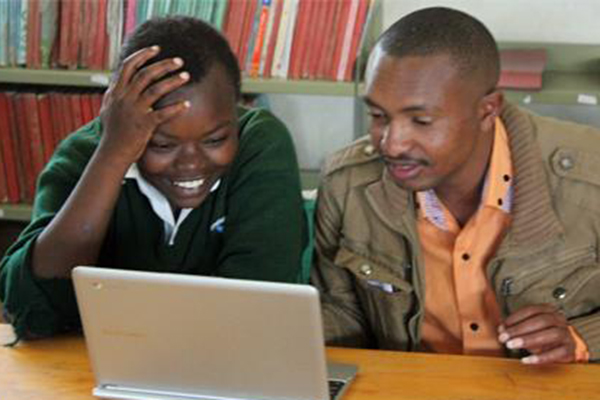 Two teachers in Kenya look at educational content on one of the laptops set up by the ARES project. By Sean Hogan, past governor of District 5050 (British Columbia, Canada; Washington, USA) and member of the Rotary Club of Pacific Northwest Passport. ED Note: Sean is a DG classmate of your editor, Class of 2012-2013 Governors, and he and his now-deceased wife Carol Liz, and I counted as friends. I lost my wife, Carol, to cancer last June. It was unexpected and quick – two weeks from diagnosis to when she passed, the day before her 61st birthday. We had 42 wonderful years together and three children who grew into amazing adults. Rotary has been a big part of our lives since I joined at age 27. It’s given us friends and opportunities that we would never have had otherwise, including when I (we) served as District Governor in 2012-13 (Peace Through Service). One of those opportunities was to be part of Rotary service projects in Kenya starting in 2009. Each of our children joined us on separate trips, and it was life changing for all of us. |
||||||
Freedom of Speech in This Day and AgeThis is the winning speech from the 4-way Test speaking contest for this year. Mei spoke at the district conference By Mei Dasgupta
We all know our right to free speech. But online, where is the line? This is a message from Clark Middle School. We have been notified that we are currently under the threat of a school shooting and will therefore be closed tomorrow, Friday, December 17th. |
||||||
New passport club points to bright future
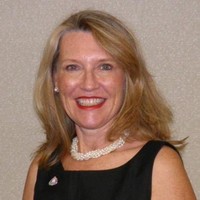 Marcy Ullom By Bob Hyde, Rotary Club of Miami Brickell and Miami Brickell Passport, Florida, USA
About two years ago, Marcy Ullom and her husband sold their longtime home in Miami and relocated to Brevard County, Florida. That took Marcy away from her Rotary Club of Miami Brickell, but also well above District 6990’s northern boundary. She attended a few club meetings near her new home, but “nothing clicked” and she “missed her peeps.” She considered what to do. |
||||||
6 Rotary members honored as People of Action: Champions of Inclusion
|
||||||
Why Rotary is growing in Ukraine during a war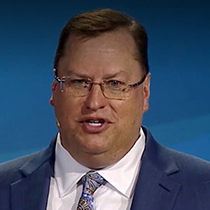 By Tom Gump, member of the RI Membership Growth committee and past governor of District 5950 (Minnesota, USA), and Mykola Stebljanko, public image coordinator in Zone 21A and past governor of District 2232 (Ukraine) Membership has grown 23.5% in Ukraine since Russian forces invaded the country on 24 February 2022. The region, which comprises Rotary District 2232, has added four Rotary clubs and five satellite clubs. The reasons behind this growth hold important insights for any Rotary club interested in increasing its membership or any district looking to add clubs. The clubs in Ukraine became more visible in their communities in the days and months after the war began. People are witnessing the positive impact members are having and want to join in on making a difference. One club, for example, had their members learn to become volunteer firefighters so they could help put out fires, literally, when local building are hit by shelling. People are drawn to the opportunity to find meaning and purpose when they see real positive change taking place. The example in Ukraine essentially confirms the results of the three most recent Rotary International annual surveys – the all-member, programs and offerings, and leadership surveys. These found that club experience is the single most important indicator of member satisfaction. A Rotary member who does not have a positive club experience won’t find enough value in the club to stay. New members who join a club but find it doesn’t meet their expectation frequently leave. And new members who are never integrated into club activities are most likely to leave no matter what else Rotary has to offer beyond their club. In the surveys, Rotary International membership staff used attitudinal questions and resulting answers to cluster members into four distinct types. 1 Inclusive-friendship engagement 2 Disengagement 3 Exclusive-professional engagement 4 Hyper-engagement Each type had implications for satisfaction and retention. The scariest part was that 24.9% of members worldwide, the second highest, fell into the disengagement type. These members are the most likely to terminate their membership from dissatisfaction. Impact clubs We believe the growth the Ukraine clubs have experienced is not a fluke, and has important lessons for all clubs. The “impact clubs” that are forming in North Carolina, USA, do more service projects and have less meetings and are growing in their membership. We conclude that no one joins a club, Rotary or otherwise, to sit around and do nothing. People join because they want to become engaged with a cause and do something real. Rotary matters and engaging our members in service opportunities that create lasting change matters. If you want to grow your membership, create a club experience that allows your members to be people of action. Let’s learn from the example in Ukraine and grow Rotary by engaging our members. |
||||||
Stories from Santa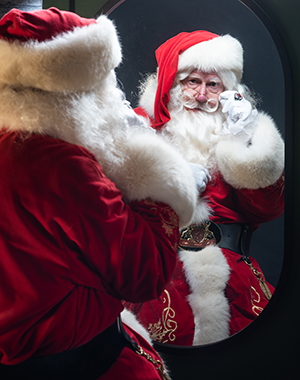 Bruce Templeton, a longtime member of the Rotary Club of St. John’s in Newfoundland and Labrador, has also been a member of the Santa Claus Hall of Fame since 2014. Geoffrey Johnson, senior editor at Rotary magazine, profiled Templeton for the magazine’s December issue. Here, in Templeton’s own words, are a few more stories from Santa’s gift bag. Bruce Templeton, aka Santa, a member of the Rotary Club of St. John’s, Newfoundland, Canada, and the only living Canadian Santa in the International Santa Claus Hall of Fame. In 1979 – when I was 34 – an aunt of mine, the head of crafts for our province, asked if I would appear as Santa at a child’s event. I told her I would think about it. I went to various places and looked at Santa suits. I didn’t like the looks of any of them, so I called her back and said “No.” And she said, “Bruce, if I make the suit, will you do it?” Well, you don’t turn down the director of crafts for your province. What arrived at my house were a suit made of velvet and lambswool, a beard made of real hair, and prescription glasses. It was absolutely flawless. And that was the beginning of my Santa journey. When I started, I was acting as Santa. But over time, you become so comfortable in a room with children that you begin to believe that you are Santa. Your behavior changes. You’re aware that there are some very serious responsibilities that come with this. I grew into being Santa. It’s something that becomes a part of your life. |
||||||
Taking the global stage in Ghana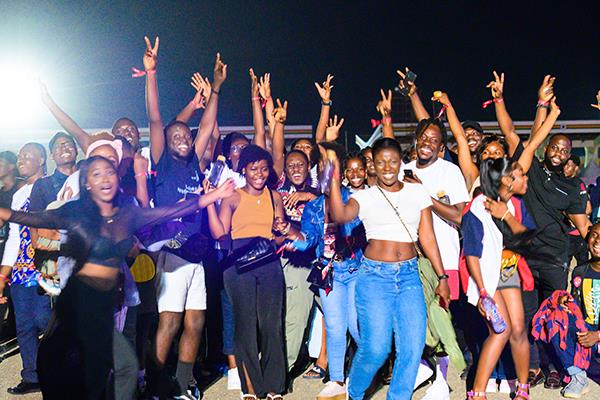 Rotaract members at the Global Citizen Live event in Accra, Ghana. By Tetteh Kojo Boampong Adesa, charter president, Rotaract Club of Accra-Airport I would never have thought I would get so much enjoyment out of a concert and be so exhilarated to be part of leading the charge for global change. Before the Global Citizen Live concert in Accra, Ghana, 24 September, Rotary International President Jennifer Jones, who was in our country visiting Rotary clubs and projects, encouraged all Rotaract members to be a part of the buildup to this big event by creating excitement. Our charge was to step on the world stage and join with artists and leaders around the world in creating awareness for the need to protect our planet and end extreme poverty. I was more than eager to do my part and use my social media accounts and one-on-one engagements to spread the word, posting and reposting content about the festival on Twitter and Instagram. We urged as many people as we could to take part in the festival at the Black Star Square in Accra. The stage was significant. This year’s event was the 10th anniversary for Global Citizen Festival and the first time the event was held in Ghana. Ghana is the first African country to gain its independence from colonial rule. The Black Star Square ceremonial grounds are where all our major celebrations take place. Being able to share the stage for Rotary at this significant gathering highlighted the important work that Rotary is doing in fighting hunger, preventing disease, providing clean water and sanitation, promoting peace, supporting education, and ending polio. Truly, Rotary and Rotaract members are joining with global citizen and changemakers to take action and improve lives. I have just begun in my own small ways to create positive change. I hope our efforts before and after this event will inspire others to do their part as well. |
||||||
Iron lung’s third life builds awareness for End Polio Now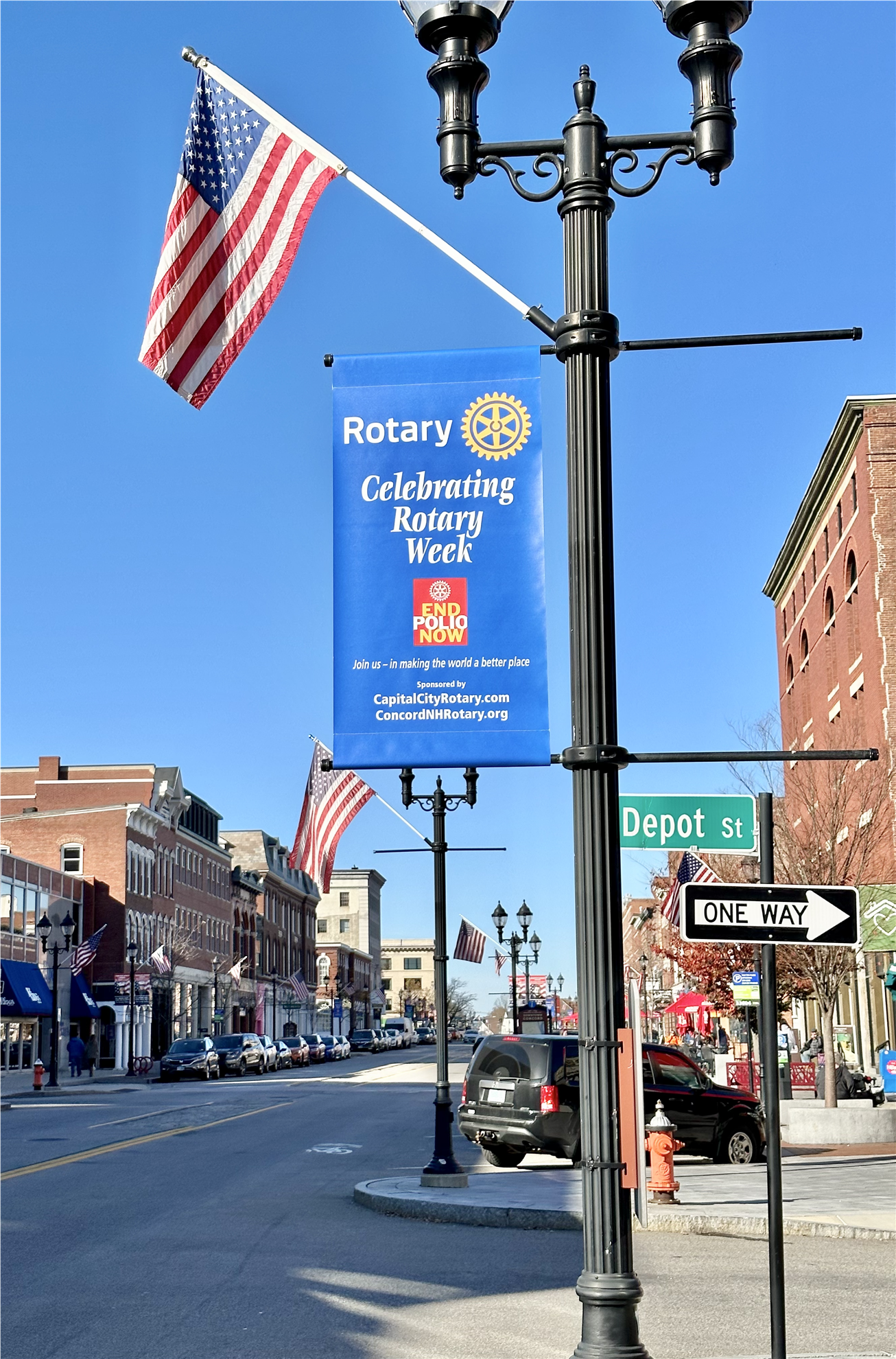 ED. Note Capital City Sunrise and Concord Rotary jointly display light post banners celebrating Rotary week and World Polio Day (October 24) in downtown Concord. 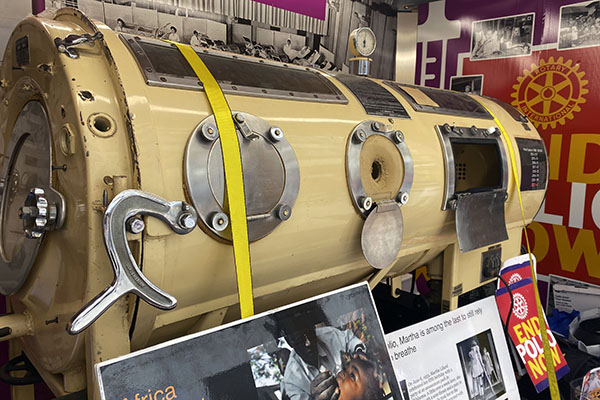 The Rotary Iron Lung Education Exhibit (RILEE) makes a stop at Rotary International World Headquarters in Evanston, Illinois, USA, on World Polio Day, 24 October. Photo by Leann Arthur By Suzanne Gibson, 2019-20 governor of Rotary District 6440 and a member of the Rotary Club of Barrington Breakfast, Barrington, Illinois While planning a youth assembly in the fall of 2017, Rotary leaders in my district were looking for a fresh way to connect young people with the story of polio. Their generation is largely unfamiliar with this disease because it has not been endemic in our part of the world for decades. They have little memory, aside from photos in history books, of polio scares and children in iron lungs. |
||||||
Rotary and the Bill & Melinda Gates Foundation extending fundraising partnership to eradicate polioPartnership will infuse an additional US$450 million into global polio eradication effort EVANSTON, Ill. (October 18, 2022) – Rotary and the Bill & Melinda Gates Foundation are renewing their longstanding partnership to end polio, announcing a joint commitment of up to $450 million to support the global polio eradication effort. “We’ve made tremendous progress, but the world is facing multiple pandemics, and vaccine hesitancy is on the rise. Recent polio outbreaks in Malawi and Mozambique, plus detection of poliovirus in Israel, the UK, and the United States prove that if polio exists anywhere, it threatens children everywhere,” said Ian Riseley, chair of the Rotary Foundation and Past President of Rotary International. “Partnering with the Bill & Melinda Gates Foundation helps us ensure that children in polio-affected countries get the lifesaving vaccines they need to be protected from polio for life.” |
||||||
A moment with Rotary that changed my life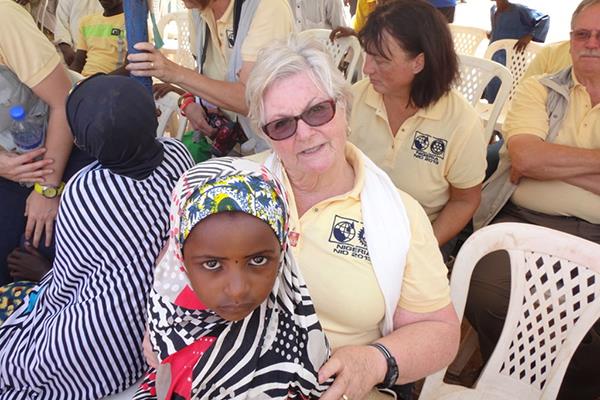 Rotary Foundation Trustee Dean Rohrs with a child during a National Immunization Day trip in northern Nigeria several years ago. By Dean Rohrs, Rotary Foundation Trustee and past RI vice president A few years back, I was taking part in a polio immunization field trip in northern Nigeria, vaccinating children against the disease. After a dusty trip on non-existent roads right into the northern Nigeria countryside, I was dropped off under a tree with a Rotaractor translator, one other Rotary member, and the local polio immunization team. This is an area frequented by Boko Haram and although I grew up in Africa, and am adventurous, I wasn’t sure that I would ever be found again. |
||||||
Rotary statement on recent polio detections in U.S., Europe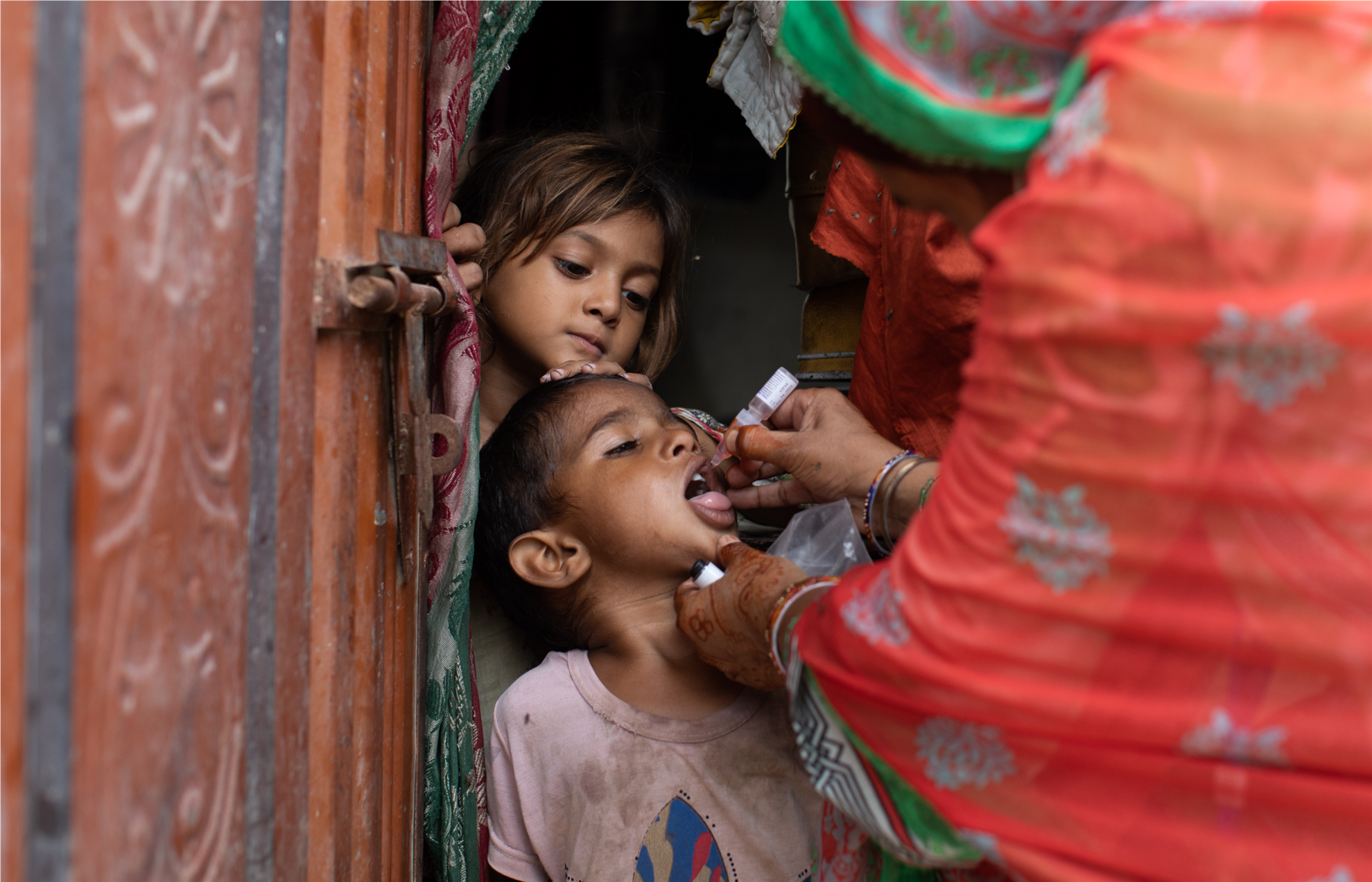 The recent detection of the vaccine-derived poliovirus type 2 case in New York, USA, and isolates in several environmental samples collected in London are stark reminders that as long as polio exists anywhere, it is a threat everywhere. It also highlights the importance of vaccination as the only form of protection against polio and other vaccine-preventable diseases and the work that needs to be done in our communities to encourage the uptake of vaccines. Also, as the world gets closer to zero wild poliovirus cases, it is increasingly important to track all forms of the virus wherever they may appear, including in polio-free regions. Learn more and donate to End Polio Now The U.S. is still considered low risk for paralytic outbreaks of polio due to the high level of vaccine coverage across the population. If a child has received the entire course of vaccines, the risk of becoming paralyzed by polio is negligible. According to the Centers for Disease Control and Prevention, 92.6% of children aged 24 months are fully vaccinated against polio, slightly below the 95% World Health Organization target. The best things countries can do to protect themselves from polio until the disease is eradicated from the world are to: maintain high vaccination coverage and robust disease surveillance and be ready to respond in the event of an outbreak to minimize the risk and consequences of polio re-introduction or re-emergence anywhere. The world currently has a unique opportunity to stop virus transmission for good. Still, all parties, including donors and country governments, must re-commit to polio eradication by fully supporting the Global Polio Eradication Initiative (GPEI) 2022-2026 strategy. This focuses on adopting an emergency posture while generating greater accountability and ownership from country governments to eradicate wild polio and end variant poliovirus (cVDPV) outbreaks. Rotary, a global service organization with over 1.4 million members, has been at the center of the worldwide effort to eradicate polio for over three decades. Every year, through our funding partnership with the Bill & Melinda Gates Foundation, Rotary commits $150 million to the global effort to eradicate polio. We have contributed more than $2.6 billion and countless volunteer hours to end polio forever. Together with our partners, we engage communities everywhere to encourage high vaccination rates, immunizing over 400 million children annually. More than 20 million people are walking today who otherwise would have been paralyzed because of our efforts and those of our partners in the GPEI. The time for urgent action is now. A new vaccine has been deployed – novel oral polio vaccine 2 (nOPV2) – which is more genetically stable to stop outbreaks of circulating vaccine-derived poliovirus effectively. With sustained political and financial commitments, the GPEI is confident that we can achieve a world in which no child is paralyzed by polio again. |
||||||
Rotary, Lions team up to serve in Brazil
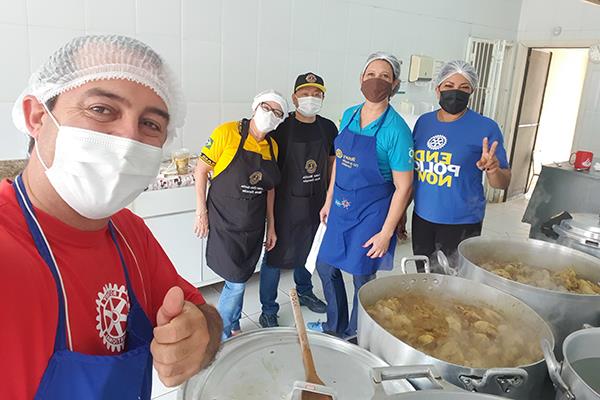 The Rotary Club of Marília Coroados, Brazil, teams up with the Lions Club of Nova Geração to pack meals for three charities in 2021. By Marcos Farto, president of the Rotary Club of Marília Coroados, Brazil As a member of Rotary for 11 years, I’ve seen how members put Service Above Self. Never has this been more evident than during the COVID-19 pandemic, when we all became aware of how vulnerable life can be and how much we depend on each other. Many have stepped forward. And out of that need to help, a beautiful story of collaboration and partnership emerged. In 2021, our then club president established a partnership with the Lions Club of Nova Geração. In August, we packed approximately 100 meals to help three charities that no longer had food in their pantries and were depending exclusively on donations. APAE (an association for people with disabilities) in Marília, a city in the state of São Paulo, offered us their kitchen. It was wonderful to see everyone united, focused, and committed to preparing meals. In February 2022, the Rotary Club of Marília-Pioneiro joined us on our next service project. In Marília, a public school was dedicated but it had no trees. Hundreds of children attended, but not a single tree had been planted. After consulting with the school principal and the environment secretariat, we obtained and planted 400 tree seedlings. These efforts demonstrated something very important: regardless of the organization you belong to, being surrounded by good people with a shared purpose is very motivating. We — the members of Rotary and Lions clubs — worked together to address hunger and help the environment. We share common goals, so through our partnership, we can leave the world a better place and set a good example for others. We are people of action — that is our mission. |
||||||
Rotary statement on recent polio detections in U.S., EuropeThe recent detection of the vaccine-derived poliovirus type 2 case in New York, USA, and isolates in several environmental samples collected in London are stark reminders that as long as polio exists anywhere, it is a threat everywhere. It also highlights the importance of vaccination as the only form of protection against polio and other vaccine-preventable diseases and the work that needs to be done in our communities to encourage the uptake of vaccines. Also, as the world gets closer to zero wild poliovirus cases, it is increasingly important to track all forms of the virus wherever they may appear, including in polio-free regions. The U.S. is still considered low risk for paralytic outbreaks of polio due to the high level of vaccine coverage across the population. If a child has received the entire course of vaccines, the risk of becoming paralyzed by polio is negligible. According to the Centers for Disease Control and Prevention, 92.6% of children aged 24 months are fully vaccinated against polio, slightly below the 95% World Health Organization target. The best things countries can do to protect themselves from polio until the disease is eradicated from the world are to: maintain high vaccination coverage and robust disease surveillance and be ready to respond in the event of an outbreak to minimize the risk and consequences of polio re-introduction or re-emergence anywhere. The world currently has a unique opportunity to stop virus transmission for good. Still, all parties, including donors and country governments, must re-commit to polio eradication by fully supporting the Global Polio Eradication Initiative (GPEI) 2022-2026 strategy. This focuses on adopting an emergency posture while generating greater accountability and ownership from country governments to eradicate wild polio and end variant poliovirus (cVDPV) outbreaks. Rotary, a global service organization with over 1.4 million members, has been at the center of the worldwide effort to eradicate polio for over three decades. Every year, through our funding partnership with the Bill & Melinda Gates Foundation, Rotary commits $150 million to the global effort to eradicate polio. We have contributed more than $2.6 billion and countless volunteer hours to end polio forever. Together with our partners, we engage communities everywhere to encourage high vaccination rates, immunizing over 400 million children annually. More than 20 million people are walking today who otherwise would have been paralyzed because of our efforts and those of our partners in the GPEI. The time for urgent action is now. A new vaccine has been deployed – novel oral polio vaccine 2 (nOPV2) – which is more genetically stable to stop outbreaks of circulating vaccine-derived poliovirus effectively. With sustained political and financial commitments, the GPEI is confident that we can achieve a world in which no child is paralyzed by polio again. |
||||||
Simple ideas for creating international connections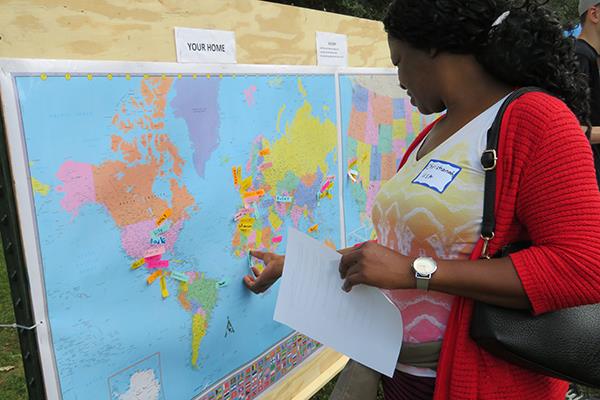 An international student marks her home country on the map during a picnic organized by the Rotary Club of Lincoln, Nebraska, USA. By Randy Bretz, Rotary Club of Lincoln, Nebraska, USA If you think there’s not much your local Rotary club can do to foster international relations, think again. I have some ideas for you that are relatively simple and can help establish positive relations not just among individuals but entire countries. My club is located in downtown Lincoln, Nebraska, home of the University of Nebraska. In fact, we have four universities and colleges in Lincoln. Each semester and often during the summer, these institutions host international scholars and students. Typically, people visiting or studying at a local institution are very interested in connecting with people in the community. Our club is involved in “incidental international relations” in several ways. For example, each fall after the academic year begins, we work with representatives at the campuses in our area and invite international students to participate in a picnic. We cook hot dogs and hamburgers, baked beans and corn on the cob, organize a few activities and games and just enjoy a fun Sunday afternoon at a local park in Lincoln. One activity is to give each student an ear of corn still in the husk and ask them to prepare it to be boiled for the meal. After all, we ARE known as the “Cornhusker” state. Our members often make friends with some of the students and those friendships last even after the international students have returned home. We’ve shared some videos of picnics on our Youtube channel. Another activity has been to invite international students to visit our club meetings. Recently, the University of Nebraska has hosted a number of African leaders as part of the U.S. State Department’s Mandela Washington Fellows project. Each year, our club invites the 25 Mandela Fellows to join us for a meeting, and we spread them out at different tables to mingle with our members. Without a doubt, lasting friendships are made which result in ongoing communications between young African leaders and Rotarians willing to offer an idea or suggestion. Like clubs around the world, our club and District 5650 participate in Rotary Youth Exchange programs. These exchanges have resulted in life-long family like relationships not only for the visiting students, but for the host families on both ends. It’s not at all unusual for us to have visitors to our club from young men and women who were exchange students, returning to visit their Rotary families. Bob Rauner, who helps coordinate District 5650 Rotary Youth Exchange noted, “One of the best ways to world peace is building international relationships, and Rotary Youth Exchange builds lifelong relationships between countries. It’s amazing how connected former Rotary Youth Exchange students become. The Rotary Youth Exchange students develop an extensive network of connections with students from around the world during their exchanges.” |
||||||
Cap City Raffle - 11 Chances to WinPLEASE NOTE Enter Capital City's Raffle and you have 11 chances to win. Only 300 tickets sold! Drawing soon on September 5, Monday. 1-$1000 prize and 10-$100 prizes Capital City Sunrise Rotary $1,000 SUMMER Gas prices getting you down? Want to take the family on a summer vacation? Have a home improvement project to pay for? WOULD $1,000 HELP???? Capital City Sunrise Rotary Club of Concord, NH is hosting a raffle with a top prize of a $1,000 Visa gift card. Spend your winnings how and when you would like. 10 runners up will also be drawn to receive a $100 Visa gift card. ONLY 300 TICKETS TO BE SOLD- $25.00 Each TICKETS: CLICK HERE Winners Drawn on Labor Day Monday September 5th, 2022. Help the Capital City Sunrise Rotary Club of Concord, NH with their mission to support community and international projects by caring for others and sharing fellowship with all. **All winners will be selected via random drawing on Monday September 5, 2022. Winners will be notified via email.** |
||||||
Pixels, Wood and ClayA three Rotarian Exhibit at the Two Villages Art Studio in Contoocook, NH - Friday, August 12th – Friday, September 9th Thursday through Sunday 12-4. 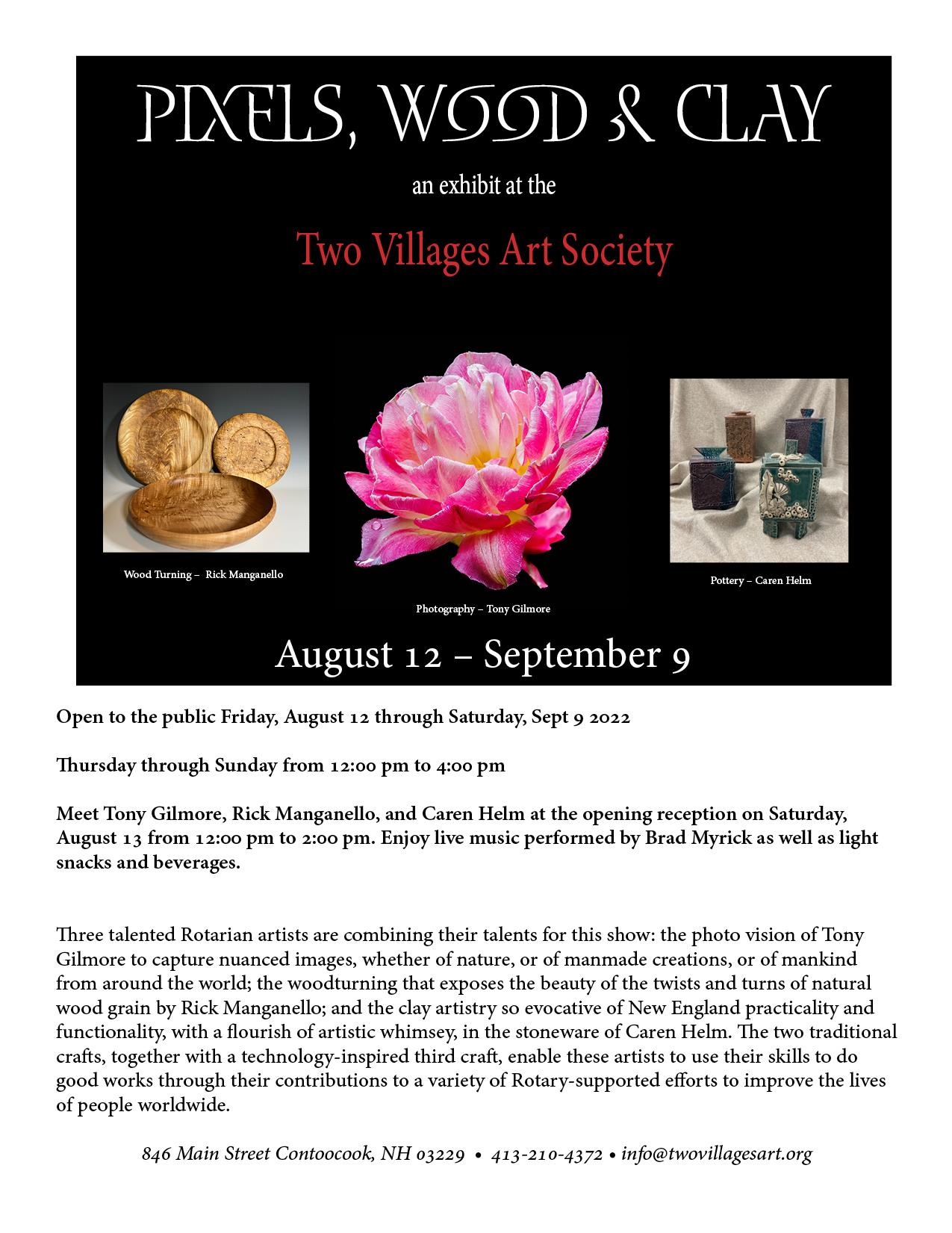 |
||||||
Rotary Fellowships amplify Ukrainian relief efforts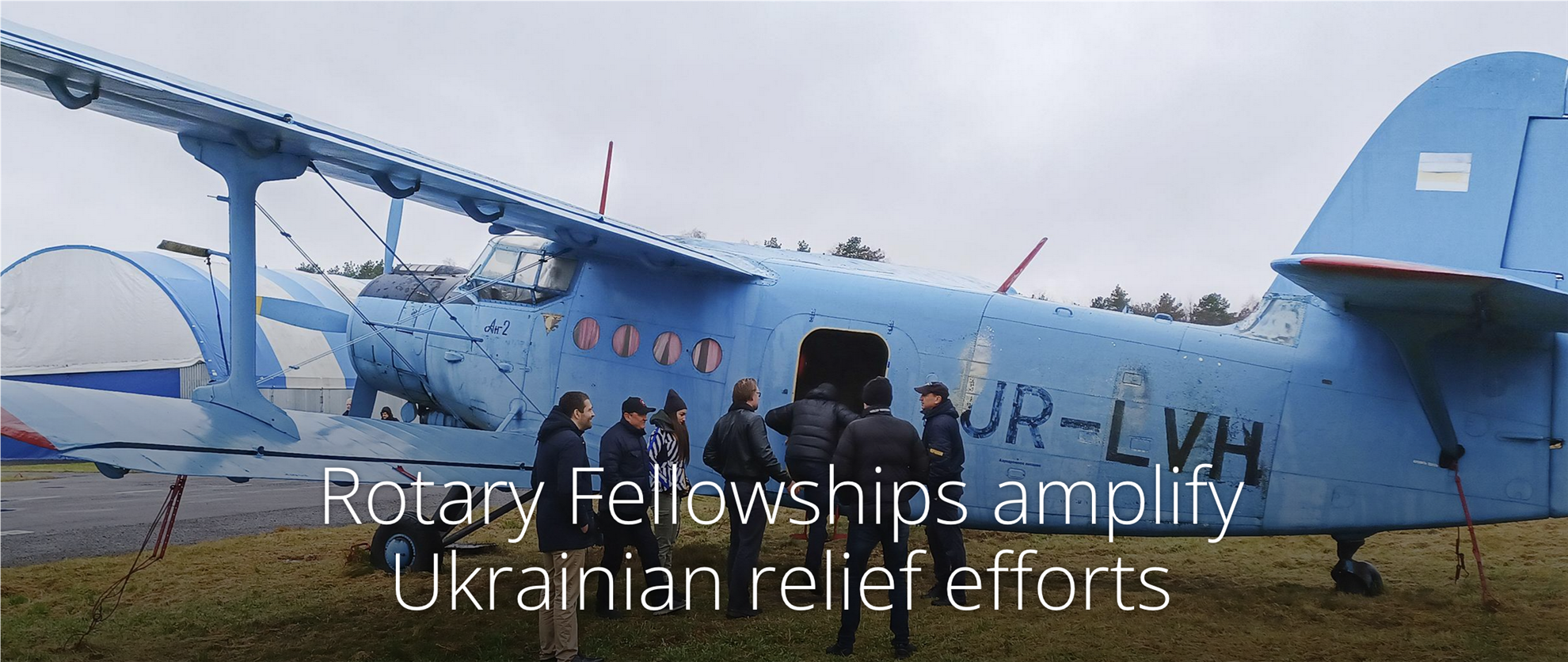 By Arnold R. Grahl In the festive atmosphere of a gala dinner, Rotary members raised glasses in toasts and kindled friendships in Lviv as they welcomed a group of Ukrainians to the International Fellowship of Flying Rotarians. The next day, the Ukrainian members showed visitors former Eastern Bloc aircraft at a military base that had become a general aviation field. Just a few months later, Russian forces invaded Ukraine — and the new friendships became critical connections for support and supplies. Rotary's global network has sent millions of dollars' worth of relief and medical supplies to help the people of Ukraine. Rotary Fellowships, which bring together members who have a shared interest or hobby, have amplified the impact of these efforts. Members of the flying fellowship leapt into action to help their fellow pilots as soon as the war began. George Chaffey, then-world president of the fellowship, says he and other members quickly contacted the Ukrainian members, who have been instrumental in identifying the most effective ways to channel the assistance. One of them has been Olha Paliychuk, a member of the Rotary Club of Cherkasy, Ukraine. Paliychuk, who is a doctor and working toward her pilot's license, has helped coordinate response plans through both the flying fellowship and the International Fellowship of Healthcare Professionals. "Within a week we raised more than $12,000 and a large volume of medical supplies, all cleared through Olha," Chaffey says. "We collect what the Ukrainians tell us they need and direct it to exactly where it is needed." Chaffey says the fellowship members based in Hong Kong have arranged the delivery of more than $25,000 overall in medical supplies. At one point, they raised more than $10,000 in just four days for urgently needed medical equipment. Fellowship members worked out the details of the shipment in a message chat that spanned multiple time zones. "Talk about speed and how technology has made the world a small place," says George Ritchie, the 2022-24 world president of the group. "I'd like to think our fellowship was one of the quickest out of the block to help." |
||||||
Rotary responds: support for UkraineThe Rotary Foundation and Rotary clubs around the world have hurried to provide funds, supplies, and services to Ukrainians displaced by the war. 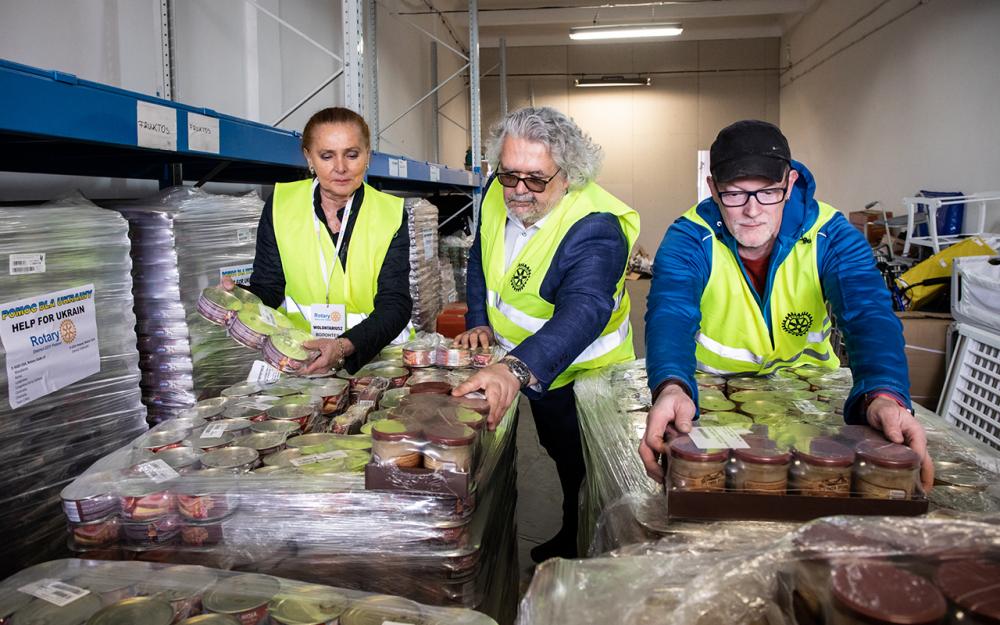 Rotary members and other volunteers pack donated supplies at a rented warehouse in Zamosc, Poland, a major hub for refugees and a centralized coordination location for aid from clubs in Europe. Monika Lozinska The Rotary Foundation has raised more than $15 million in contributions that are already helping provide people in Ukraine with essential items such as water, food, shelter, medicine, and clothing. Donations made to the Disaster Response Fund after 30 April will be available to all communities around the world that need assistance recovering from disasters. |
||||||
Rotary awards its highest recognition to HRH Prince Charles, Prince of WalesKIGALI, Rwanda (June 24, 2022) – Celebrate Community, a joint initiative of the four major volunteer service organizations, will launch this year with a focus on local community service during the week of October 10 to 16. In recognition of his longstanding focus on nature-based solutions to address the climate crisis, Rotary today presented HRH Prince Charles with its highest honour: The Rotary Award of Honour.
|
||||||
Capital City Sunrise Rotary $1,000 SUMMERCapital City Sunrise Rotary $1,000 SUMMER Gas prices getting you down? Want to take the family on a summer vacation? Have a home improvement project to pay for? WOULD $1,000 HELP???? Capital City Sunrise Rotary Club of Concord, NH is hosting a raffle with a top prize of a $1,000 Visa gift card. Spend your winnings how and when you would like. 10 runners up will also be drawn to receive a $100 Visa gift card. ONLY 300 TICKETS TO BE SOLD- $25.00 Each TICKETS: CLICK HERE Winners Drawn on Labor Day Monday September 5th, 2022. Help the Capital City Sunrise Rotary Club of Concord, NH with their mission to support community and international projects by caring for others and sharing fellowship with all. **All winners will be selected via random drawing on Monday September 5, 2022. Winners will be notified via email.** |
||||||
A Rotary Fellowship that shreds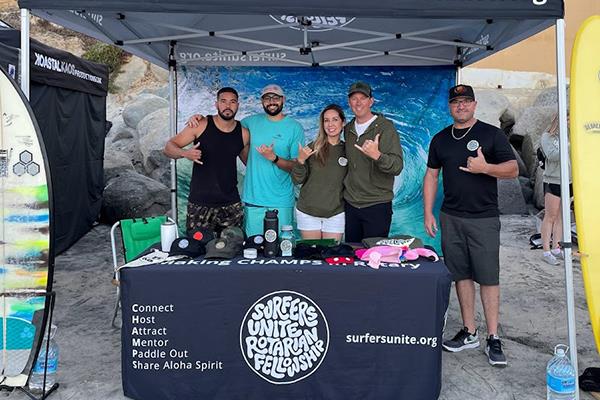 Paulo Melo of Pacific Beach Rotaract Club, from left, with Derren Lechuga of the Rotary Club of San Diego Coastal, Karla Prieto, Brett Morey, Founder of SURF, and Robert Chamberlain of the Rotary Club of San Marcos during the 2022 Switchfoot BroAM By Raquel D’Garay-Juncal, president of the Rotary Club of Worldwide Impact (District 1550) and a member of The Rotary Foundation Cadre of Technical Advisers In June, I had the chance to revisit with Brett Morey of Surfers Unite Rotarian Fellowship and review all of the exciting activities the fellowship has been up to. I first met Brett at the Rotary International Conference in Atlanta back in 2017 when he was strolling through the House of Friendship with a surfboard under his arm. Brett, a native San Diegan and Past President of the Rotary Club of La Jolla Golden Triangle, recalls that the moment we met “I knew we’d become friends and that we needed her on board.” |
||||||
Rotary in Australia on the road to reconciliation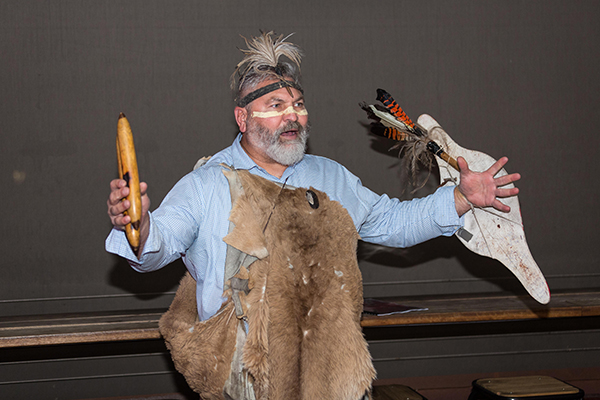 Mickey O’Brien, senior Kaurna Man, welcomes Rotary members to Kaurna country during a July 2021 event launching the Rotaract Club of Adelaide City, South Australia, Reconciliation Action Plan. By Katey Halliday, Rotaract Club of Adelaide City, South Australia, Australia, and a member of Rotary International’s Diversity, Equity, and Inclusion Taskforce As a leading community service organisation, Rotary absolutely has a role to play in advancing reconciliation efforts. We exist to serve the community, and to do this well, we must have an understanding and appreciation for Indigenous communities. Australia is made up of hundreds of different Indigenous nation groups; each with their own culture, customs, language, and laws. Based on Kaurna land on the Adelaide Plains, the Adelaide City Rotaract Club are the first within Rotary to have developed a Reconciliation Action Plan (RAP), endorsed by the not-for-profit organisation Reconciliation Australia. Since 2006, these reconciliation plans have provided an avenue for organisations to sustainably and strategically take meaningful action to advance reconciliation between Indigenous and non-Indigenous Australians. Our plan outlines a number of tangible actions to increase our members knowledge of Indigenous peoples, including Kaurna people, and elevate their commitment to building relationships that will lead to meaningful opportunities to serve alongside Indigenous peoples. We seek to ensure that our service projects, initiatives, and membership opportunities are inclusive of, respectful of, and extended to Indigenous peoples. Our club had already taken the step of Acknowledging the Indigenous Country we’re based upon at meetings a few years ago; an Australian custom demonstrating respect for First Nations peoples. But with the guidance of the reconciliation framework, we wanted to do even more. We launched our plan at an event in July 2021 with support from Mickey O’Brien, Senior Kaurna Man, who welcomed us to Kaurna country and congratulated us on our commitment to reconciliation. We were joined by Rotaract and Rotary members from District 9510 who wanted to celebrate with us and learn more about our vision and plan to support reconciliation not only in our club, but within other clubs as well. As community service leaders, Rotarians and Rotaractors have a role to play in contributing to reconciliation and ensuring our service projects, initiatives and membership opportunities are inclusive of Indigenous peoples Bernadette Barret, Inaugural chair The vision and principles of Rotary encourage us to promote diversity, equity, and inclusion. Reconciliation action plans are an incredible resource to support this in Australia. More broadly, taking a strategic look at how our clubs could be more inclusive of not only Indigenous peoples, but underrepresented groups such as LGBTIQ+ communities, is a great way to take strides towards improving cultural safety within our clubs and reaffirming that we are people of integrity. |
||||||
My Rotary youth exchange: Venezuela to the United States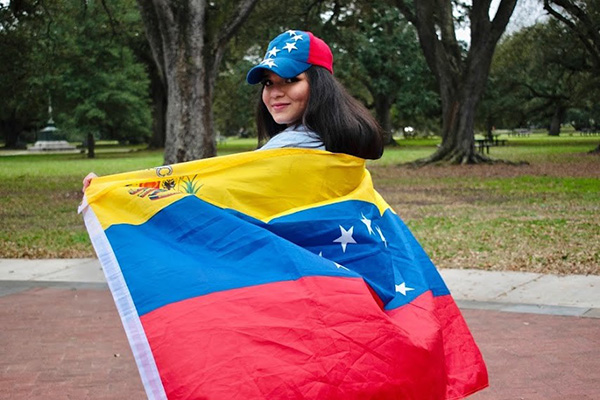 Anniela Carracedo took part in a 2019-20 Rotary Youth Exchange from Venezuela to Mississippi, USA. By Anniela Carracedo, member of the Rotary Club of Bay St. Louis, Mississippi, USA, and a Rotary Youth Exchange Alumna When I decided to become a Rotary Youth Exchange student, I had no idea how much it would change my life and the lives of everyone around me. In 2017, I was invited to the Interact Club of Valencia, Venezuela, following my parents, who joined the Rotary Club of Valencia. I joined the club because I wanted to make a difference in my local community. I had seen Venezuela go from being one of the healthiest countries in Latin America to experiencing one of the worst humanitarian and economic crises in the modern world. |
||||||
Through Rotary’s shared efforts, ‘peace will come’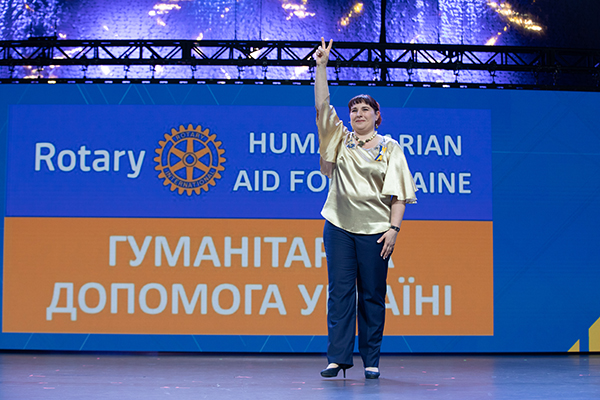 Dr. Olha Paliychuk, a gynecologist and Cherkasy Regional Oncologist in Ukraine, speaks at the general session of the Rotary International Convention in Houston 6 June. Photo by Monika Lozinska/Rotary International By Olha Paliychuk, Rotary Club of Cherkasky, Ukraine I live and work in central Ukraine, not far from Ukraine’s capital city of Kyiv. It was a long journey getting to convention: first by bus to the border of Poland, and then across the border and taking a long flight. But all the efforts are worth it. As we say in Ukraine, “To see a friend, no road is too long.” |
||||||
Open Door, Full Heart: Granite Stater Serves Meals to Penacook CommunityWhen Capital City Sunrise Rotarian, Mike Manning saw a “Free Meals” sign outside the United Church of Penacook in 2015 and decided to venture in, he had no idea how much that decision would impact his life. Mike connected with the chair of Open Door Community Kitchen, and learned about their mission of serving meals to communities in and around Penacook. Later that year, Mike became the kitchen’s co-chair, organizing volunteer shifts, food orders, and donations. 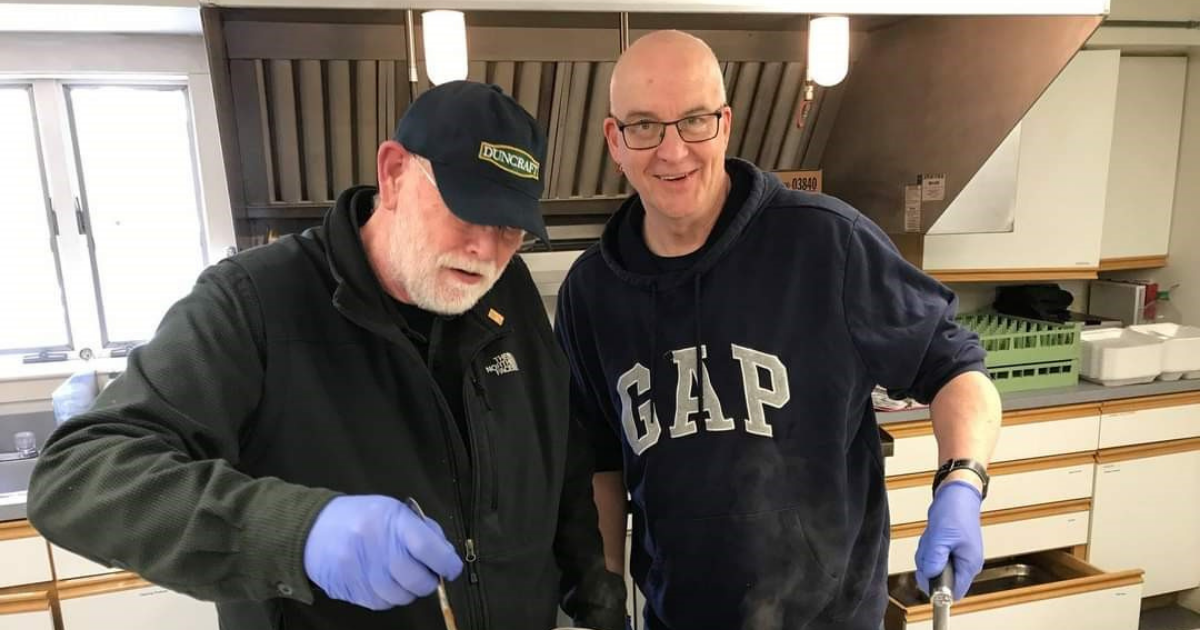 The two Mikes from Capital City, Mike Dunn and Mike Manning In his first years as co-chair, Mike made sure that Open Door Community Kitchen provided three free sit-down meals a week, with extra food for people to bring home and last them the following days. Mealtimes provided a sense of camaraderie and togetherness among volunteers and attendees alike. Yet when the COVID-19 pandemic began, Open Door Community Kitchen was hard hit. Many of the volunteers were older and started to stay home at the onset of the pandemic because of the risk to their health. With limited capacity, the kitchen had to reduce its three free meals per week to two. In addition, the dining hall space had to close, and Open Door transitioned to making to-go meals. 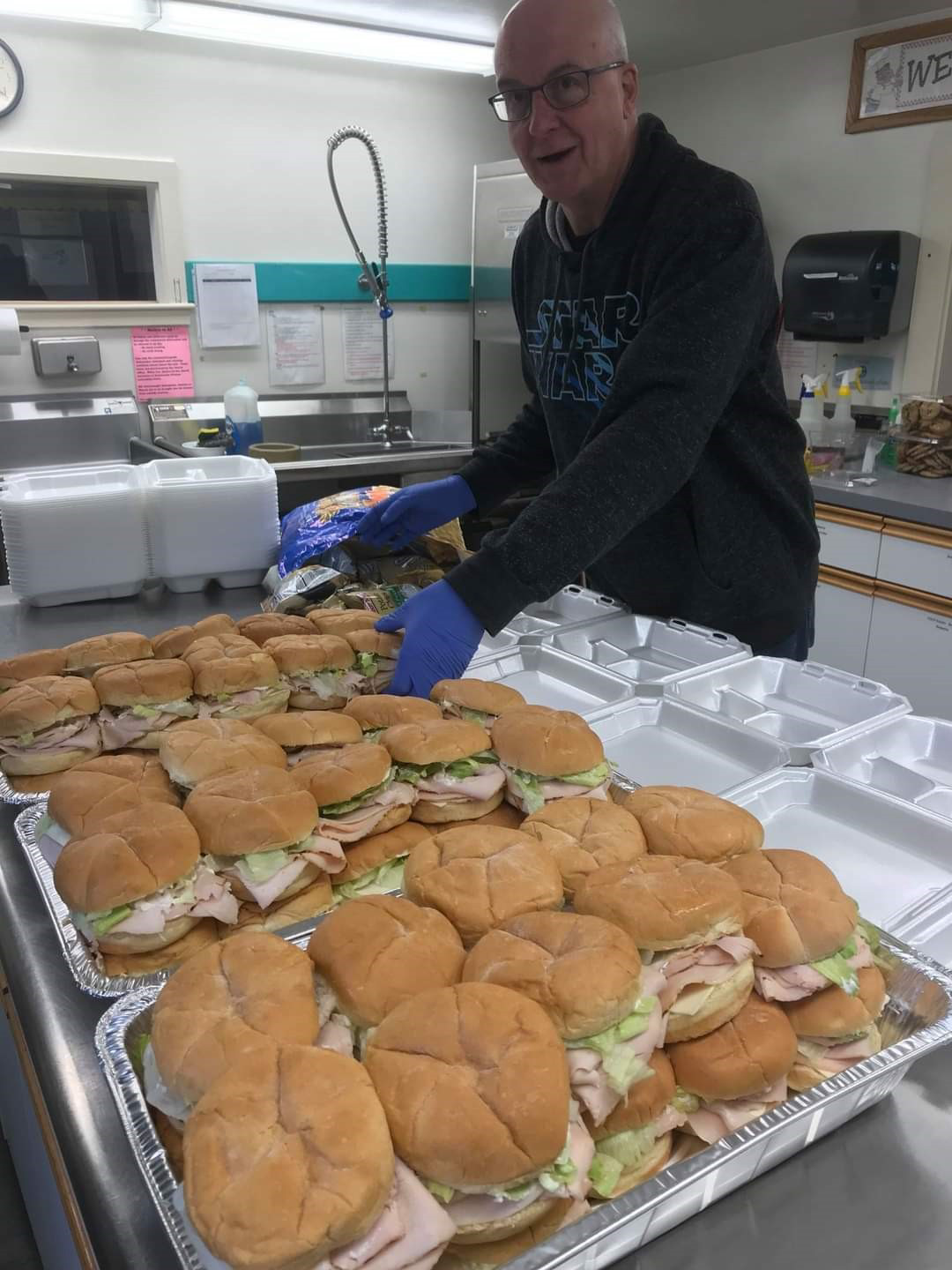 Nevertheless, Mike put every effort into making sure that Open Door Community Kitchen was able to keep running during the entire pandemic, never missing a week. Even with a skeleton staff and rising food prices, Mike has worked around the clock to continue serving meals. And now, he’s working to re-start Open Door’s in-person meals, which provide an important sense of community. Mike’s efforts to serve his neighbors during a time of need, and under unprecedented challenges, are commendable. As Mike himself says, if everyone could just help each other, the world would be a much better place. His actions exemplify the best of the Granite State spirit of working together to support each other, no matter the obstacles, and we are lucky to have him in our midst. 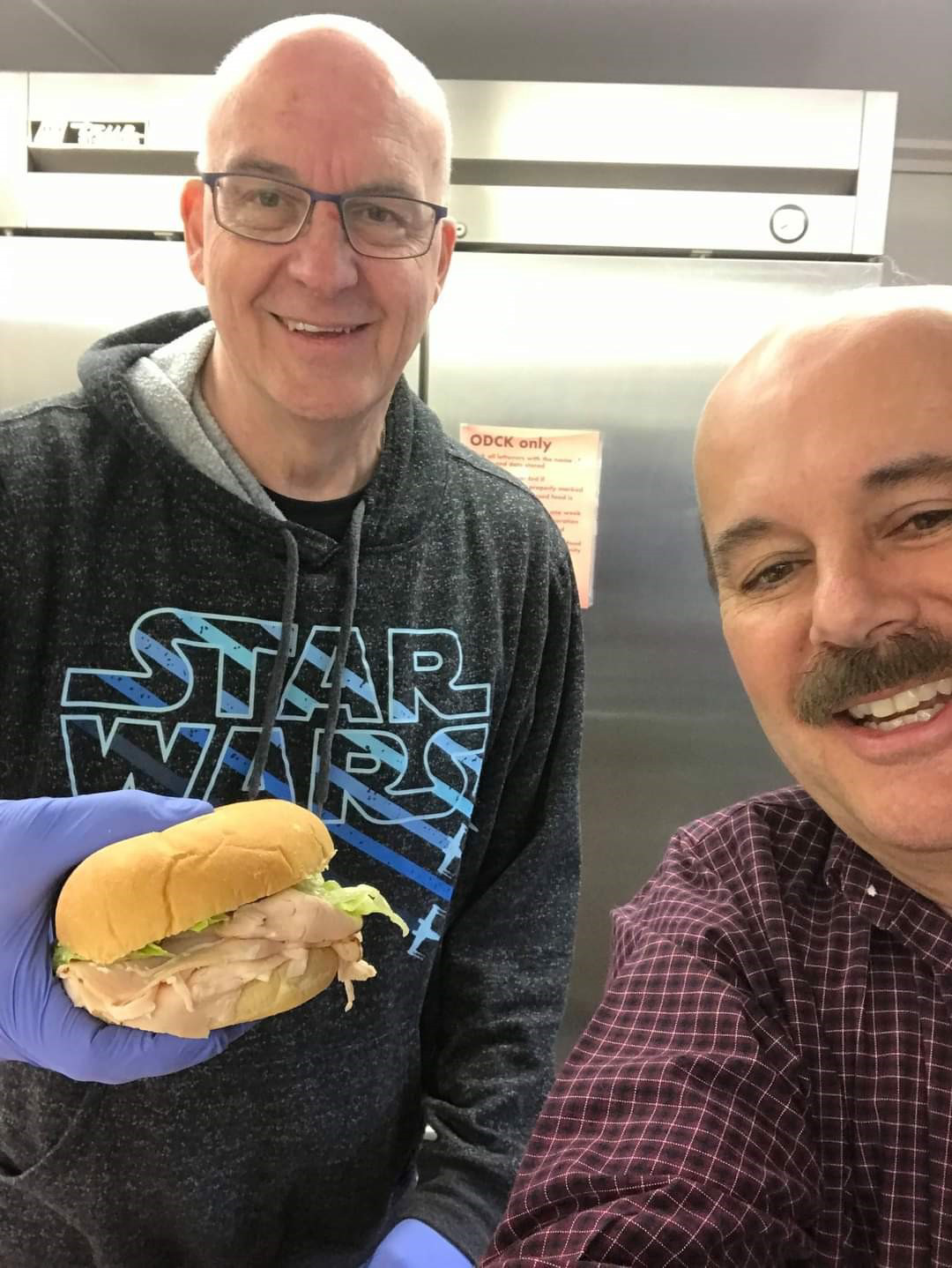 Mike with fellow Rotarian, Jim Spain.
|
||||||
Little bit of salt
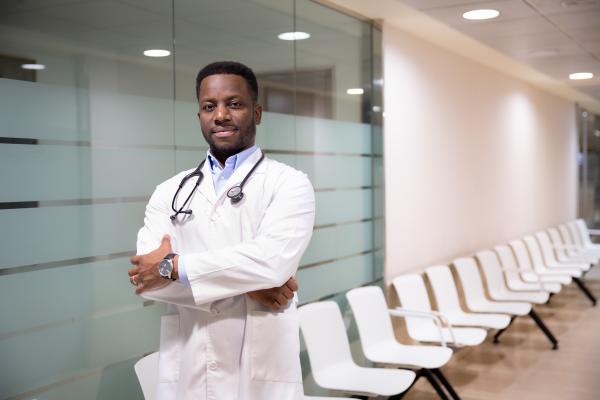 A surgeon in Spain finds a way to treat patients in Nigeria By Steve Almond Even as a child growing up in Owerri, Nigeria, Dr. Nnamdi Elenwoke had a penchant for surgery. “I remember my mom would buy a chicken for us to eat, and she would ask me to prepare it for cooking,” he says. “I would cut into the bird very carefully, trying to understand its insides. My mom got mad at me for wasting time, but gradually she realized that I was doing this for a reason.” As a teenager, Elenwoke was taken to a nearby hospital to visit a family friend. He promptly wandered away from his mother to see patients on a nearby ward, feeling an instinctual desire to heal them. With his family’s support, Elenwoke, 39, attended medical school and now works as a neurosurgeon in Barcelona, Spain. He still goes back to Nigeria to perform surgeries when he can, but his desire to help patients and doctors in his homeland prompted Elenwoke in 2016 to help launch Docotal Health, which uses an international community of doctors to remotely help patients in underserved parts of the world. Sometimes, this consists of Elenwoke dispensing medical advice directly to a patient via email or video chats. Just as often, Docotal offers support to health professionals on the ground. “Our community of doctors has different specialties,” he explains. “We have a cardiologist who can help if there is heart pain, a radiologist who can read X-rays and scans. Our core group consists of 11 doctors, but each of us has our own network we can reach out to.” Elenwoke’s devotion to service dates back to his teenage years in Nigeria, where he joined Interact, following in the footsteps of his brother-in-law, a longtime Rotarian. Rotary and Docotal recently collaborated on a campaign to provide personal protective equipment for health workers in Nigeria, and future projects are in the works. “To be successful,” Elenwoke says, “you have to surround yourself with a team that helps you succeed. You also need ‘a little bit of salt,’ which means a little bit of luck. For me, finding Rotary, having them as part of my team, has been that little bit of salt.” |
||||||
Lessons in generosity from rural Africa Members of the Rotary Club of Yumbe, Uganda, participate in a community clean-up project in Achiba village. By Helene Dudley, past president of the Rotary Club of Coconut Grove, Florida, USA My eyes filled with tears as I attended a Zoom meeting of the Yumbe, Uganda provisional Rotary Club discussing a service project they were planning to help a nearby village. I reached out in chat to another participant of the meeting who admitted she too was tearing up. The club is not yet officially recognized by Rotary International and the women are well below the poverty line but they are already doing service projects. |
||||||
Suddenly, the war knocked on our door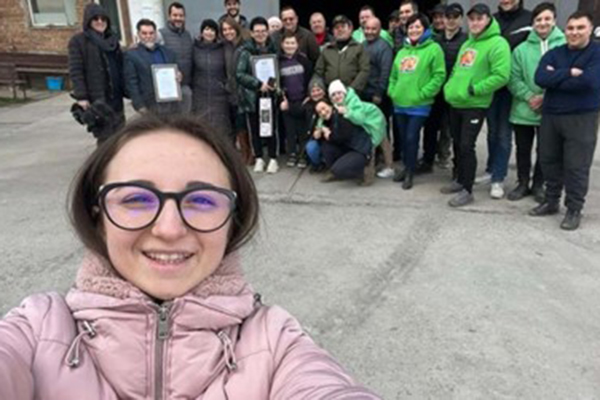 Oksana Havryliv takes a selfie with some of the volunteers bringing medicine, food and other relief supplies to be reloaded and distributed. Photo by Oksana Havryliv By Oksana Havryliv, Rotaract Club of Lviv International Before the war, I was a student in international relations at the university in Ukraine and had been pursuing a master’s degree in political science through the University of Vienna. I dreamed of becoming a diplomat and representing Ukraine. I was busy with studies, planning my life, and hanging out with friends, especially those in Rotaract. That all changed on 24 February when Russia invaded my country and the bombs began to fall. |
||||||
Austrian aid convoy drives all night to deliver supplies for Ukraine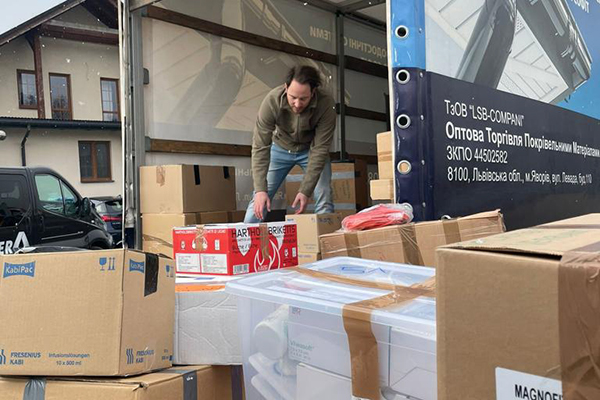 Members of the Rotaract Club of Klagenfurt-Wörthersee, Austria, collect medical supplies, food, sleeping bags, and generators for transport to the Polish-Ukrainian border. By Sebastian Adami, Rotaract Club Klagenfurt-Wörthersee, Austria On the evening of 2 March, I set out with a team of Rotaract members and colleagues from six nations to deliver relief supplies to contacts waiting for us near the border of Poland and Ukraine. Our five-vehicle convoy traveled through the night to get there. But we were heartened by the response we saw all around us, people flashing their lights or giving us other signs of encouragement as they saw our relief supply convoy marked by flags that identified what we were doing. |
||||||
A virtual clubTetiana Godok, president-elect of the Rotary E-Club of Ukraine My history with Rotary began when I was a senior in high school. The newly formed Rotaract Club of Yalta ambitiously set out to establish an Interact club, and I was fortunate enough to be a part of it. I didn’t know much about Rotary, and the complex club organization befuddled me at first. But over several months, we visited Interact clubs in Kharkiv and Cherkasy, and I came to learn more about Rotary and gradually immersed myself in the ideas and values of this service organization. With strong convictions about the role I might play, I joined the Rotaract Club of Yalta, serving as president and treasurer, and set a goal to get to know Rotaract all over Europe. |
||||||
Editor of Rotary magazine in Ukraine thanks Rotary network for its help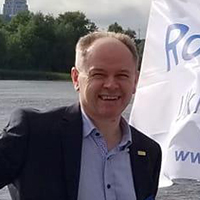 Mykola Stebljanko Editor’s note: The conflict in Ukraine has displaced millions of people and has created a humanitarian crisis across Europe. The following is an interview between Rotary magazine and Mykola Stebljanko, editor of Rotary magazine in Ukraine. Q: What’s your situation there now? Stebljanko: I’m now living in Odesa. It’s the third most populist city on the southwest of Ukraine, an important port city on the Black Sea coast. Currently, there’s no military action here yet, but we live under the constant threat of bombs and missiles. Often, air raid sirens will wake us up in the middle of the night. We have to get up and hide in a safe place. You know, in my apartment, the safest place is the bathroom. We huddle together and spend the rest of the night there. Occasionally, we experienced a few rocket attacks, but most of the time, it’s a safe place. |
||||||
Ukrainian describes leaving Kyiv, using Rotary network to help others
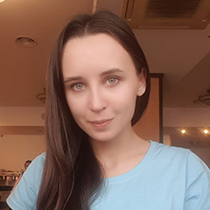 Iryna Bushmina By Iryna Bushmina, District 2232 (Ukraine) Rotaract Representative I left Kyiv in the first hours of the war. My sister, her husband, her 3-month-old baby and a cat were in the car. When we reached the border, men were already not allowed to leave the country, so I went on with my sister and a little nephew. We were five days in the car, six days until we got to Vienna. We stayed for the night in different countries three times. These were not hotels but homes of Rotary and Rotaract families. I used to just say that Rotary International is a big family, now I really believe it. And I am convinced that this is a family that will stand by you. These are no longer beautiful words to me, this is reality. |
||||||
The Rotary Foundation creates channel for direct humanitarian support in Ukraine region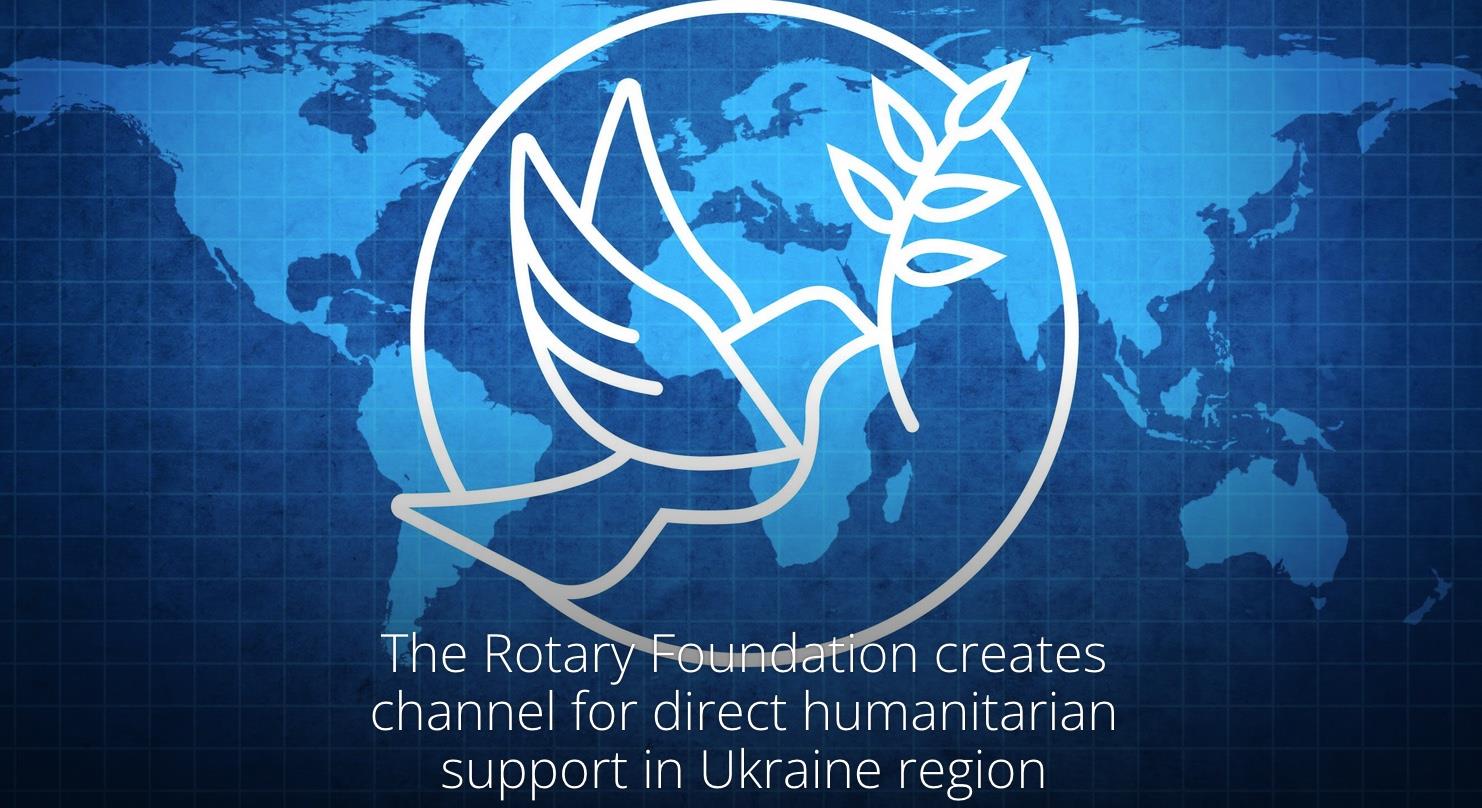 In response to the deepening humanitarian crisis in Ukraine, The Rotary Foundation has created an official channel for donors around the world to contribute funds to support the relief efforts underway by Rotary districts and has designated its Disaster Response Fund as the main avenue for contributions. To this end, The Rotary Foundation has approved: • Now through 30 June 2022, designated Rotary districts that border Ukraine and the Rotary district in Ukraine may apply for grants of up to $50,000 each from the Disaster Response Fund. These expedited disaster response grants can be used to provide relief to refugees or other victims of the crisis including items such as water, food, shelter, medicine and clothing. • During this same period, other impacted Rotary districts that wish to offer support to refugees or other victims of the crisis in their district can apply for $25,000 grants from the Disaster Response Fund. • Now through 30 April 2022, Rotary districts can transfer unallocated District Designated Funds (DDF) to support the Disaster Response Fund, directly supporting these Ukraine-specific humanitarian grants. • Contributions to the Disaster Relief Fund in support of Ukraine can be made here. All funds need to be received into the Disaster Response Fund by 30 April 2022 in order to qualify for use in support of the Ukrainian relief efforts. • Although the Disaster Response Fund will be the main avenue for Rotary Foundation support, Rotary and Rotaract clubs are also encouraged to create their own responses to the humanitarian crisis in Ukraine. In addition to support provided through the Disaster Response Fund, the Foundation is coordinating with partners and regional leaders, exploring effective solutions to the increased humanitarian needs. • We are in contact with the United Nations High Commission on Refugees – USA to prepare for and respond to the needs of those being displaced in Ukraine and to neighboring countries. • ShelterBox, our project partner for disaster response, is in communication with Rotary members in Eastern Europe to explore how it may offer support with temporary transitional housing and other essential supplies. • The Rotary Action Group for Refugees, Forced Displacement, and Migration is also mobilizing its resources to assist in this crisis. More than 2 million people have fled Ukraine and are in dire need of emergency aid. The United Nations estimates that number could grow to as many as 5 million people displaced. Rotary clubs in Europe and around the world have stepped up their relief work, some working on the ground to help displaced families. We will continue to monitor the situation in Ukraine and neighboring countries. Visit My Rotary and follow Rotary on social media to stay updated on how clubs can get involved and what actions Rotary members have taken and the impact it has had for people in the region. For all other questions and to obtain more information, please contact the Rotary Support Center at rotarysupportcenter@rotary.org. |
||||||
Here are 7 positive stories coming out of what’s happening in Ukraine:
1. Russian citizens are protesting the actions of their government As conflict rages on between the Russian government and the people of Ukraine, many Russian citizens are making it clear that they do not support Vladimir Putin’s invasion. Protests against the invasion began in Russia on Thursday, February 24 and have continued since, according to TIME. Demonstrators are marching between city centers throughout Russia, chanting “no to war!” despite the threat of arrest. Since protests began, over 2,000 people have been arrested, and over 5,500 have been detained by Russian police, according to Reuters. |
||||||
Rotary International statement on Ukraine conflict
It is a tragic and sad time for the people of Ukraine and the world. At Rotary, we are deeply concerned by the deteriorating situation in Ukraine and the escalating loss of life and humanitarian hardship there. Continued military action against Ukraine will not only devastate the region, but also risk spreading tragic consequences across Europe and the world. As one of the world’s largest humanitarian organizations, we have made peace the cornerstone of our global mission. We join the international community in calling for an immediate cease fire, withdrawal of Russian forces, and a restoration of diplomatic efforts to resolve this conflict through dialogue. In the past decade, Rotary clubs in Ukraine, Russia and nearby countries have transcended national differences and have actively engaged in peace-building projects to promote goodwill and to marshal assistance for the victims of war and violence. Today, our thoughts are with our fellow Rotary members and others in Ukraine coping with these tragic events. Rotary International will do everything in its power to bring aid, support and peace to the region. Rotary International 25-Feb-2022 |
||||||
The power of the Rotary logo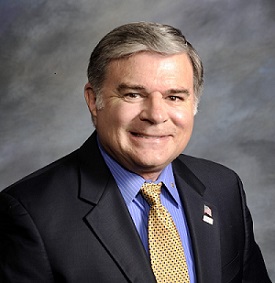 By Charles Pretto, 2022-23 governor of District 5340 (California, USA) I like the Rotary logo — the one with the wheel and the word “Rotary” next to it. It’s not always a popular opinion though. Some members prefer the old Rotary wheel and continue to use it, even though it was retired nearly a decade ago. In some ways, I get it. We Rotary members can be traditionalists. The modern Rotary logo has something that the old one doesn’t though: name recognition — literally. The word “Rotary” (or Rotaract) is in big letters. It’s easy to read and most importantly, it’s easy to identify. I experienced that difference first-hand when I started wearing the modern Rotary logo on my lapel pin. From my dental hygienist to the person bagging my groceries, I was getting asked about Rotary everywhere. I never had this level of engagement before! You know why? Because we aren’t a big corporation like Starbucks with a logo you just know. The wheel doesn’t mean anything to the public. By adding “Rotary” to the wheel, our logo becomes much more identifiable. And because of that, I’ve had many delightful conversations with people. Some have even joined our club meetings to learn more about Rotary. It’s been a great recruitment tool. Recently, the RI Board of Directors began asking Rotary and Rotaract clubs to update their club logo to include the Rotary logo and their club name. I realized that if every club did this, it would tie us all together as one global Rotary network. When I begin my term as district governor, my goal is to get all 60 clubs in my district to update their club logos. I’ve already started talking about it with my district public image chair and presidents-elect. I know public image can’t be a priority for every club — they have other issues and challenges to focus on. So for those clubs who need additional assistance, but lack the resources to do it, I am starting a program in my district that will connect Rotaract members who are studying marketing or a related field with clubs that needs help with their branding and public image. It’s a win-win situation! Rotaract members who need real world experience will get it by using their talents to help clubs increase their public image in the community. If your club wants to update their logo but you don’t know where to start, I recommend reaching out to your district public image coordinator to see what resources might be available from your district. When we all use the Rotary logo, it really pops! And the awareness of our logo can help engage more individuals, welcome more people into Rotary, and do good in the world. Recently, the RI Board of Directors began asking Rotary and Rotaract clubs to update their club logo to include the Rotary logo and their club name. I realized that if every club did this, it would tie us all together as one global Rotary network. When I begin my term as district governor, my goal is to get all 60 clubs in my district to update their club logos. I’ve already started talking about it with my district public image chair and presidents-elect. I know public image can’t be a priority for every club — they have other issues and challenges to focus on. So for those clubs who need additional assistance, but lack the resources to do it, I am starting a program in my district that will connect Rotaract members who are studying marketing or a related field with clubs that needs help with their branding and public image. It’s a win-win situation! Rotaract members who need real world experience will get it by using their talents to help clubs increase their public image in the community. If your club wants to update their logo but you don’t know where to start, I recommend reaching out to your district public image coordinator to see what resources might be available from your district. When we all use the Rotary logo, it really pops! And the awareness of our logo can help engage more individuals, welcome more people into Rotary, and do good in the world. |
||||||
The secret to increasing club giving Flood victims in Kerala, India, receive job training under a global grant by the Rotary Club of Kalamassery. The $100,000 grant project benefited 500 families. N. Bhaskaran Pillai used examples like this one to encourage members to give to The Rotary Foundation. By N.Bhaskaran Pillai, Rotary Club of Kalamassery, India When I became treasurer of my club last year, I learned through Rotary Club Central that only 25 of our 39 members were Paul Harris Fellows (PHF). I also saw that our club had transferable Foundation Recognition Points that had been lying dormant for several years. I saw an opportunity to rally our club around an effort to earn a 100% Paul Harris Club recognition using these points and collecting affordable contributions from members who were not yet PHF. |
||||||
2022-2023 Presidential Theme Explained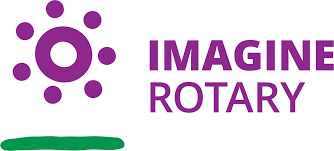 By Gundula Miethke, Specialist, Regional Content and Communication • Europe/Africa at RI Headquarters in Evanston, Illinois, USA “Imagine Rotary” is the 2022-23 presidential theme that RI President-elect Jennifer Jones revealed on 20 January. She is asking Rotary members to dream big and take action: “We all have dreams but acting on them is a choice. Imagine a world that deserves our best, where we get up each day knowing that we can make a difference.” The logo for the theme was designed by Riki Salam, an Australian artist and graphic designer specializing in contemporary Indigenous art, design, and communications. He also created the 2023 Rotary International Convention logo which will be held in Melbourne, Australia, thus connecting the two by a shared visual language. Meaning of the design elements There is, of course, a deeper meaning behind each element of the design. The circle in aboriginal culture for instance, signifies our connections to one another. The dots around it represent people and there are seven because of Rotary´s areas of focus. The circle and the dots together become a navigation star – our guiding light. The solid line underneath is what is referred to as a digging stick and it is used when doing hard work. And since Rotary members are people of action – it represents a tool for getting things done. The colors The colors green, purple, and white are not necessarily connected to aboriginal culture. President-elect Jennifer Jones asked the new crew of Governors to use one, two, or all three when dressing for official events instead of using a theme jacket. “As we celebrate diversity, equity and inclusion, I wanted all of us to be able to express ourselves differently in what we wear, but still have connection”, Jones explained. There are several ways to interpret the colors: Purple for example stands for polio eradication, green for the environment, the newest addition to our areas of focus, and white for peace, our core mission. Together, they are the colors of the women’s movement, the Suffragette – a subtle nod to this history as Jones pointed out, since she will be the first female RI president. |
||||||
RI president-elect announces 2022-23 presidential theme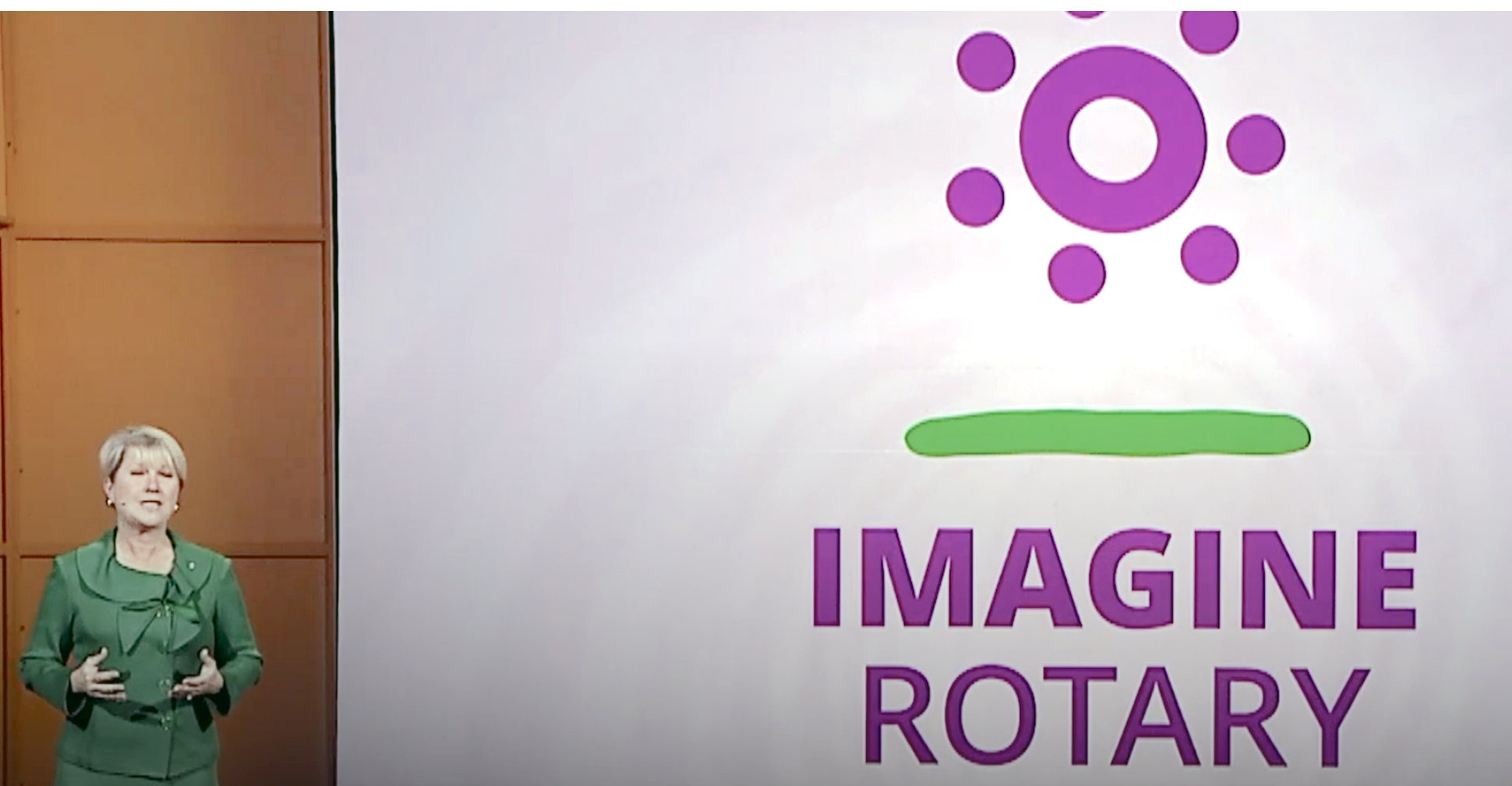 by Ryan Hyland Rotary International President-elect Jennifer Jones wants members to imagine the possibilities in the change they can make to transform the world. Jones, a member of the Rotary Club of Windsor-Roseland, Ontario, Canada, revealed the 2022-23 presidential theme, Imagine Rotary, as she urged people to dream big and harness their connections and the power of Rotary to turn those dreams into reality. |
||||||
Supporting education for girls in Bangladesh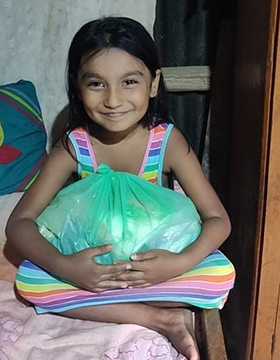 Esara and school supplies provided by the Rotaract Club of Dhaka Orchid By Abdullah Al Fahad, immediate past president, Rotaract Club of Dhaka Orchid, Bangladesh Esara is a seven-year-old girl who lives in the Habiganj district of Bangladesh with her mother. She lost her father three years ago when he was killed in a traffic accident. They live on the income of her mother, who barely makes enough to put food on the table. After the death of her father, Esara couldn’t attend school because they had no money for school fees, supplies, transportation, etc. She became so upset after leaving school that she lost all interest in learning. That’s when her situation caught the attention of our Rotaract Club of Dhaka Orchid. Club members assured her mother that they would pay for the expenses of allowing Esara to return to school. When she heard the news, Esara jumped for joy and a beautiful smile unfolded across her face. Her mother was so happy she thanked the club over and over for giving her daughter this opportunity. We all know how critical reading and writing are for success in life. Basic Education and Literacy is one of Rotary’s areas of focus. Enhancing literacy reduces poverty, improves health, encourages economic and community development, and promotes peace. An educated person is more likely to develop better moral and ethical values as compared to an uneducated person. Lack of education creates problems including superstition, domestic violence, poor health, and poor living standards. Education is an integral part of human society. And gender equality in education contributes to a better, more just society. |
||||||
The Honest KidA short story on the honesty of a young boy was run in the sports illustrated in 1989. 7-year old Tanner Munsey was playing first base during a T-Ball game in Wellington, Florida. He tried to tag a runner going from first base to second but couldn’t. The umpire, although called the runner out. Tanner then went to the umpire and told her that he had not succeeded in tagging the runner. She reversed her call. Two weeks later, in another match, the reverse happened. This time Tanner had tagged the player but the umpire called him safe. She looked at Tanner and asked if he tagged the runner. He told her he had. She immediately called the player out. When the audience retorted, she told them that she believed the kid’s honesty enough and told them the last game’s incident. Conclusion “Honesty is more than not lying. It is truth telling, truth speaking, truth living and truth loving.” ― James E. Faust Honesty isn’t something that is bound by age or social status. The result may not be immediate, but the universe doesn’t lose even a single good deed. It’s remembered and properly rewarded. |
||||||
Is it the truth?
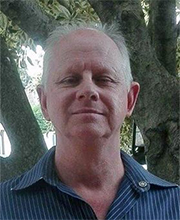 Editor’s Note: Jeremy Opperman is a member of Rotary’s Diversity, Equity, and Inclusion taskforce and a regular contributor to this blog on issues related to disability inclusion. By Jeremy Opperman, Rotary Club of Newlands, Cape Town, South Africa Like countless others I imagine, I watched the compelling events to celebrate the birthday of Archbishop Emeritus and Nobel Peace laureate Desmond Tutu, or as he is also fondly known, “The Arch.” What struck me almost immediately was how the messages from the internationally respected leaders departed from the usual gushy sentimental birthday tributes so loved by celebrities. After short heartfelt tributes to their dearest Arch, South African Professor Thuli Madonsela; Graça Machel, widow of two heads of state (Nelson Mandela and Mozambique’s Samora Machel); and Mary Robinson, former president of Ireland and past UN Special Advisor on the Environment, all leapt straight in with some serious no holds barred truth telling. Global challenges such as corruption, crime, climate change, and poverty were the order of the day. No mincing of words or diplomatic fluffiness. Just hard facts and straight talking. I know some people were surprised and even disappointed, expecting perhaps a glamorous biopic of the Arch, made the more memorable by the presence of such deservedly vaunted personalities as the above larger than life three women and also including the Dalai Lama, a great friend of the Arch. But I loved it! The truth telling reminded me of a little controversy I witnessed recently while attending a high-level organisational strategy discussion. Essentially, is it wise or appropriate to highlight past mistakes and to regretfully acknowledge an organization failing in the past? The context in this instance was Diversity, Equity, and Inclusion (DEI). It was interesting that not everyone agreed with the idea, preferring rather to downplay the past and highlight future inclusive practices. When asked, I categorically agreed that disclosure and acknowledgement of past failing was essential if you wished for change in matters of diversity and inclusion. I used the analogy of getting directions to visit someone. The first thing they will ask when directing you is, “where are you coming from?” It is normal for people to feel uncomfortable when they face up to the past if they wish to progress in an unfamiliar area. The problem all too often lies in people’s genuine or wilful ignorance of issues making up the status quo. This must be confronted with hard facts to jolt them into realising that change is paramount, simply because it would be totally unacceptable to continue with the status quo. In a word, the truth. The sluggish uptake of DEI in so many organizations and societies can absolutely be attributed to both wilful and genuine ignorance. It is essential that this be met with facts and realities to create a working baseline upon which you can drive practical change. Which is why in my work as a diversity practitioner, I spend a lot of time on dispelling myths and showing the facts and realities of the situation. How else would they know for instance that within South Africa, 65% of children with disabilities don’t go to school; or that there are only 400 special schools in the country and that less than 70 of those go all the way to Grade 12; or that less than 1% of people with disabilities are employed; or that there is near total inaccessibility of public transport; or in the world, less than 6% of books and media are accessible to people with print handicaps such as being blind. These realities are not stated to solicit pity, they are used to wake us up and to demand change just as Thuli, Graça, and Mary called for change with regards to poverty, corruption, and the climate crisis. As long as it’s the truth, I applaud truth telling. |
||||||
Why vaccinations matterVaccines are one of the safest and most effective ways to protect people from life-threatening and preventable diseases. The COVID-19 pandemic has interrupted life-saving vaccine campaigns. As a result, there is a growing risk of resurgence of vaccine preventable infections including polio, measles, and tuberculosis. Rotary has advocated, distributed, and administered vaccines to help reduce polio cases by 99.9% worldwide. Clubs globally are using the same strategy to help end the COVID-19 pandemic. Here we show the importance of vaccines and why it’s one of the most reliable ways to protect yourself and future generations from infectious disease.  8
|
||||||
|
||||||
FEEDING A NEED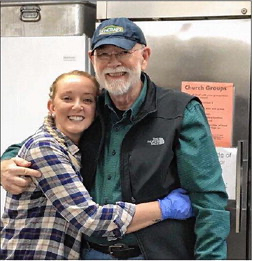 Our own Rotarian Mike Dunn and Granddaughter Ashley JAMES W. SPAIN Excerpted from The Concord Monitor There is a place we go, a place that fills a void in our hearts and provides faith in our fellow citizens. This place is simple, a place where people gather to spend time with one another and share meals to provide nourishment. The Capital City Sunrise Rotary Club visits this place often, Rotarian Mike Manning is in fact a regular at this place. The Open-Door Community Kitchen located at the United Church in Penacook is a place we like to spend hours helping those in need. Friends wander in each week in search of a meal and a little companionship, simply looking for a friend to converse. As Rotarians, we embrace each and every person equally while “placing service above self.” That’s just what Rotarians do. The Capital City Sunrise Rotary Club is honored to have donated $2,000 to the Open-Door Community Center during the month of November. Mike Manning and his team of Rotarians have spent many hours in this place that we go to nourish the hungry. If you have some time available and would like to join us at the Open-Door Community Kitchen, please contact Capital City Sunrise Rotarian Mike Manning at 603-496-8814. |
||||||
District Treasure Award 2021 - PDG Rich BerrymanDistrict Treasure Award 2021 - PDG Rich Berryman Intro Remarks From IPDG Steve Puderbaugh: “In 2006, District 7870 initiated a special honor for extraordinary Rotarians in our District called the Rotary Treasure Award. The rst recipient was Al Kerr who exemplified every aspect of Rotary; be it attendance, Foundation support, attracting new members, new club creation and attending District and Rotary International Conventions as well as demonstrating solid participation in community and international humanitarian projects. The recipients of this award are definitely a Rotary Treasure! Each year District Clubs nominate candidates for the Award with selection being made by a committee appointed by the District Governor. The successful candidate needs to emulate and has shown Al Kerr’s level of involvement and dedication to the ideals of Rotary and his focus on ‘Service Above Self.’ This year I am honored to give this award to an individual who has exemplified the ideals of this award. A quick overview of how this year’s recipient has served Rotary and our district include:
Without further ado, join me in honoring this year’s recipient of the District 7870 Rotary Treasure Award: Dr. Rich Berryman” |
||||||
Doubling down on COVID recovery, ending polio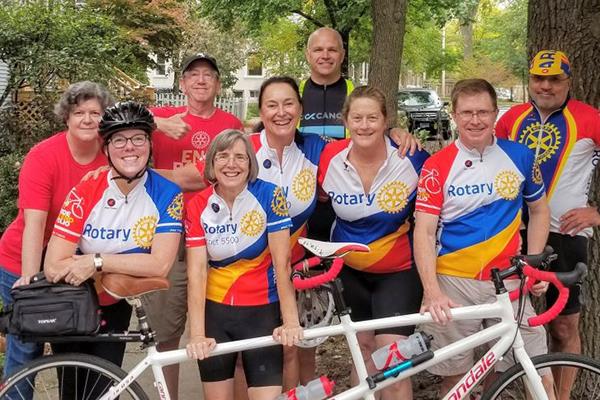 The Evanston Lighthouse Rotary Ride to End polio team. By Kristin Brown, past president, Rotary Club of Evanston Lighthouse We ride so that others may walk. I don’t know who said it first, but the phrase has become a tagline for Rotary cyclists around the world, pedaling for PolioPlus, logging miles, and raising funds in the global effort to fully eradicate this disease. |
||||||
Assembly information 11-4Treasurer’s Report - Mike Manning - $54,000. In 3 acc’ts. The two District Grant projects (ODCK supplies $2000. And Penacook Community Center $4000. Will reduce our funds to $48,000.)
State House Holiday Tree Lighting - November 26th - 4 pm. We are good for a table to serve HOT CIDER. Pres. Rich to get there early to save parking spot. Cider to be heated at Salvation Army at 2pm. Larry P. To check with Salvation Army to confirm kitchen use. Pittman Dinner - Jack Prendiville - shooting for December 8. Cooking at Salvation Army starting at 2pm. Wreaths Across America - Jim Spain - December 18, 10 am - Maple Grove Cemetery. Salvation Army Bell Ringing - Larry Phillips keeping sign up list. Pres. Rich and Mike Manning have volunteered to cover this while Wreaths Across America being completed. Reverend Ed will not be able to attend due to health problems. Speaker List and Assigned Dates - Rich Berryman. All members are obligated to find speakers…when you do: Get their Agreement to speak - in person or by Zoom? Have speaker email or text Pres. Rich for date assignment and I will get all date, contact info and Audio/visual info to Tony. Children’s book donations to CPL in Speaker’s name - Jack Prendiville (assisted by Tony Gilmore when Jack in Florida and unavailable on Zoom. Penacook Village Business Association - Pres. Rich to sign us up as members and find out next meeting. Larry, Tony, both Mikes, and Geof. Interested in attending. Concord Chamber of Commerce - we are already members so need to find meeting dates and have a CCSRC (or multiple) attend Main Street Rotary Week Banners - Geoff Souther - have been up for a week and will stay up until City of Concord has banners to replace them so our one-week payment may be good for two or more weeks!! |
||||||
Lessons in disability inclusion: Does he take sugar?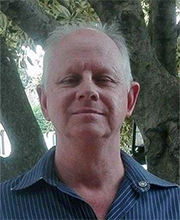 By Jeremy Opperman, Rotary Club of Newlands, Cape Town, South Africa I had just finished keying in my pin number on the card reader at the supermarket checkout counter recently when the cashier turned to my friend and asked, “how does he know which buttons to press.” Being completely inured to this sort of thing, I watched with interest to see how my friend would react. It is peculiar that when encountering a person with a disability, many people very often address the person accompanying them rather than addressing us directly. |
||||||
How to bring in new member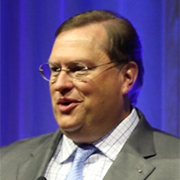 By Tom Gump, immediate past governor of District 5950 and a member and past president of the Rotary Club of Edina / Morningside, Minnesota, USA Rotary’s recently launched Membership Society for New Member Sponsors has created a high level of enthusiasm for bringing new members into our organization and forming new and innovative Rotary and Rotaract clubs. How do you attract new members into your club? Or form a core of people interested in launching a new Rotary club? As someone who has brought in more than 50 new members (Membership Society Gold Level), I want to share a few thoughts. Know why people join Rotary A great starting point is to review the research we already have for why people join Rotary. Data from Rotary International’s last global survey shows that a majority of respondents said they joined Rotary or Rotaract for local community service and friendship. Respondents also listed personal growth, professional development, and professional connections as important reasons for joining. With this in mind, it’s good to make sure your club can provide these things, and that you advertise them to prospective members. You have to Ask! This might seem obvious. But you know what, if you don’t tell them about Rotary AND ask them to join, most people won’t. The survey showed that more than 85% of new members found out about their clubs because a Rotary member personally invited them. Don’t miss out on the opportunity. Ask your family members, friends, co-workers, neighbors, and other acquaintances to come to a meeting or event, and then follow up on any interest with an invite to join. |
||||||
Tips for Keeping Kids SafeThis is excerpted from the website - Human Trafficking in our backyard Our speaker this week will address this issue Tips for Keeping Kids Safe 1. Educate your kids about human trafficking. That it is here, what it looks like and to talk to you or another responsible adult if they think they see it. If they are able, have them read In Our Backyard. It will help them recognize the indicators. 2. Communicate with your kids, and let them talk to you without judgment. They need to know they are safer with you than anywhere else. One rule we had with our children was that if they did something wrong and they told us before we found out, they might have some consequences but their punishment would be less than if we found out another way. 3. Technology is a big part of how sex trafficking happens with youth. Know your kid’s passwords, know what is on their phone. A good rule is “as long as you live under our roof, we have access to passwords, emails, texts, etc.” Your child’s privacy is important but so is their safety. If you talk to parents whose children have been sex trafficked, without exception, they will all tell you they wish they had monitored their computers, cell phone and activities on social media. 4. Technological devices now exist which include: GPS tracking devices which can be placed on phones, clothes, and in backpacks which help parents and authorities track your child and find them when they first go missing. DNA scent kits which can be used to help authorities and dogs track a scent trail. 5. Know your kid’s friends. Have them over to your home. Feed them a pan of brownies, a batch of cookies and sit down and talk with them. Know where they hang out and what they are like. 6. Get youth involved in positive things, community groups, sports, music, community service, and church youth groups. Surround them with positive peer pressure. |
||||||
Using Raise for Rotary to support polio eradication is a breeze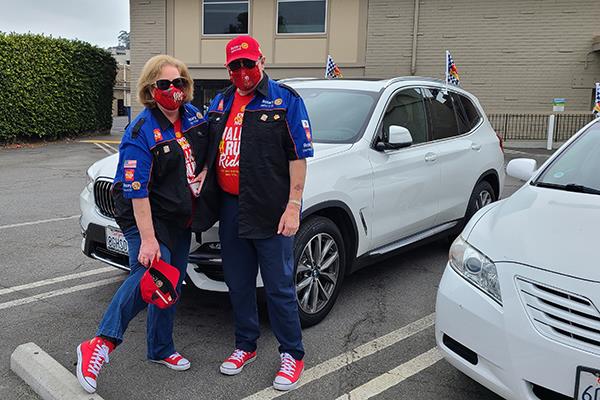 Jayne Hulbert and her husband, Gene, get ready for the District 5150 Road Rally to End Polio in 2020. Ed Note: World Polio day is October 24, Capital City Celebrates with banners on the streetlight poles in downtown Concord, NH By Jayne Hulbert, past governor and Rotary Foundation chair, District 5150 The eradication of polio is personal to me. My sister and my husband’s father both were victims of this dreaded disease when they were only 5 years old. I joined Rotary because of our fight against polio. Last year, when I learned that Rotary had created the fundraiser site, Raise for Rotary, I immediately knew I wanted to use it. I am always looking for ways to make it as easy as possible for people to donate to The Rotary Foundation. As part of District 5150’s PolioPlus fundraising campaign we set up our first Raise for Rotary website. It was a huge success. The set-up of the Raise for Rotary site was especially easy – something I am always looking for. Shortly after I established the site, one of the Raise for Rotary staff got in touch with me to be sure things were going well. I was really impressed! Useful features One of the neat things about the Raise for Rotary site is that I am notified immediately when a donation is made. Then I drop a special note of thanks to the individual. Remember, The Foundation sends the official thank you donation notification. It’s great being notified of “surprise” donations. Another great feature is that other donations can be added to the Raise for Rotary site. These donations are typically major gifts that I know about. I check with the donor to be sure we can use their name and donation amount on the Raise for Rotary website. This is a fantastic way to inspire others to donate. We have now set up this year’s Raise for Rotary polio fundraiser. Kirsten at the Raise for Rotary staff was terrific assisting me in re-naming this year’s fundraising campaign. It’s actually easier for a donor to go to our Raise for Rotary page instead of logging in through My Rotary. We have added flyers for two of our upcoming events: Truffle Shuffle to End Polio on 3 October and the Rotary Race to End Polio to coincide with World Polio Day, 24 October. Easy updates The site can easily be updated with thank you notes, flyers, photos and videos, or just about any information you’d like to include. It’s so easy to keep the site updated with new information. Adding those major gifts is a breeze. We use the Raise for Rotary web link on a variety of announcements, emails, etc. This is a great way to market events as well as to fundraise for PolioPlus. We have a Rotary Foundation event in November – Up and Away with EREY (Every Rotarian Every Year) – and we are seriously considering doing another Raise for Rotary site to support the fundraising efforts at the event. The Raise for Rotary website is one of the best fundraising innovations Rotary has developed. |
||||||
RI President-elect Jennifer Jones announces Rotary’s $97 million pledge for sustainable projects during Global Citizen Live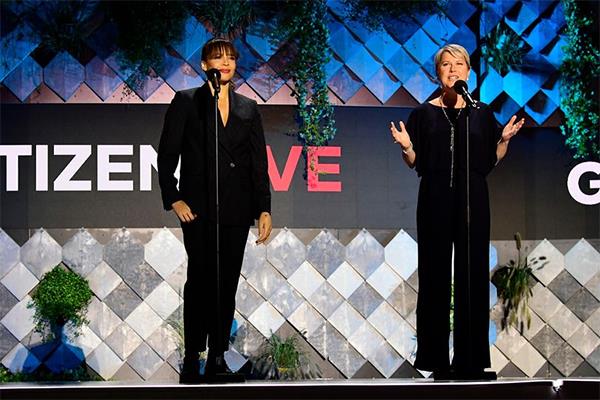 RI President-elect Jennifer Jones, right, announces Rotary’s $97 million pledge for sustainable projects during the Global Citizen Live event on 25 September in Paris, France. She’s joined on stage with British actress Carmen Ejogo. by Ryan Hyland RI President-elect Jennifer Jones, right, announces Rotary’s $97 million pledge for sustainable projects during the Global Citizen Live event on 25 September in Paris, France. She’s joined on stage with British actress Carmen Ejogo. Rotary International President-elect Jennifer Jones took the stage at the Global Citizen Live concert on 25 September in Paris, France, and pledged $97 million in grant funding from the organization next year for sustainable, Rotary club-led projects. |
||||||
Empowering girls in Mexico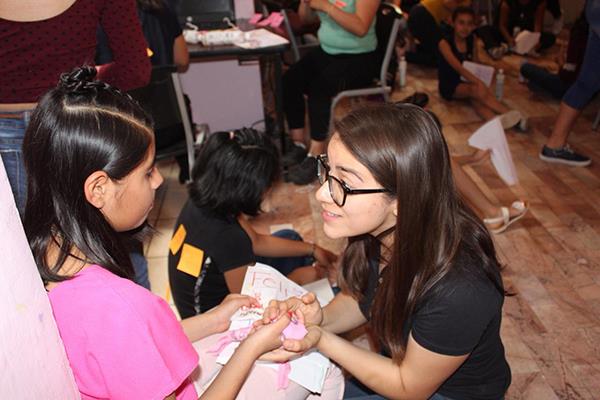 Sofia Brega founded Activators de Paz Ciudad Juárez, a group that trains other agents of change and develops Positive Peace content for schools. By Sofía Brega, Rotary Positive Peace Activator and member of the Rotaract Club of Juárez Centro, Chihuahua, Mexico. Growing up in Ciudad Juárez, Mexico, I always knew I wanted to work on girl empowerment and the rights of women. I wanted to be an activist for women’s rights, and learned about Girl Up, an organization that strives to advance opportunities for girls to be leaders. It’s a club-based initiative that supports projects that focus on women’s rights and builds awareness of current challenges for women in Mexico and elsewhere. |
||||||
5 ingredients of a successful Rotary club By Barton Goldenberg, immediate past governor of District 7620 (Maryland and Washington D.C., USA) Running a successful Rotary club is a bit like baking a cake. You need the right ingredients. If you’re a baker, you know that a great cake is made up of individual ingredients that come together to produce something special. A great Rotary club is like that, in that it is made up of a unique mix of ingredients. Here are the five that I have found in most, if not all, successful Rotary clubs. |
||||||
Rotary Peace Fellow reflects on Afghanistan, helping others in crisis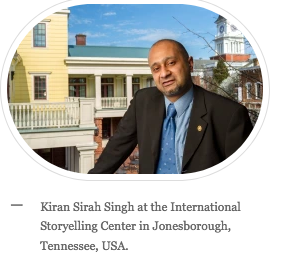 By Kiran Singh Sirah, a 2011-13 Rotary Peace Fellow and president of the International Storytelling Center in Jonesborough, Tennessee, USA The news coming out of Afghanistan has been painful to watch. So many of these images of suffering — the cargo plane filled with refugees, and especially the image of the baby being passed over barbed wire to a soldier — reminded me of my own family’s experience as refugees. Forty-nine years ago, they were forced to flee their home in Uganda along with 50,000 others, when a murderous dictator threatened them with genocide. |
||||||
New club makes disability advocacy a priority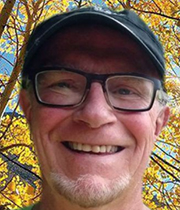 By Ken Masson, President, The Rotary Club of World Disability Advocacy The need for human rights for people with disabilities is worldwide. From the largest to the smallest countries, there are opportunities for Rotary to improve the dignity, respect, and quality of lives for people with disabilities. That is why we chartered the Rotary Club of World Disability Advocacy. We saw so many possibilities of what Rotary could do. |
||||||
Africa Marks One Year Polio-free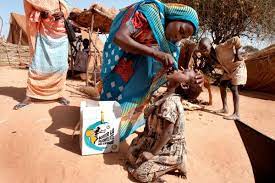 by Ryan Hyland Rotary joined its partners in the Global Polio Eradication Initiative (GPEI) to mark the first anniversary of a historic public health milestone: the World Health Organization’s African region being certified free of wild polio. |
||||||
Capital City Sunrise New Time and Location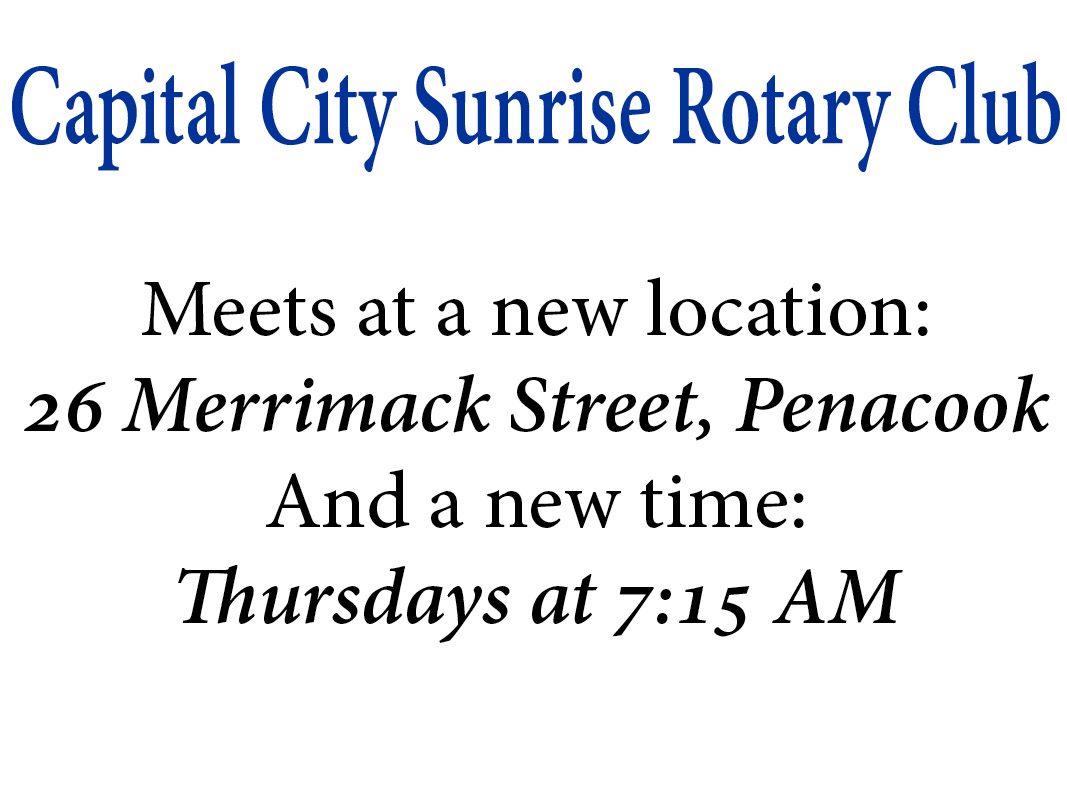 |
||||||
Rotary projects around the globe August 2021South Africa 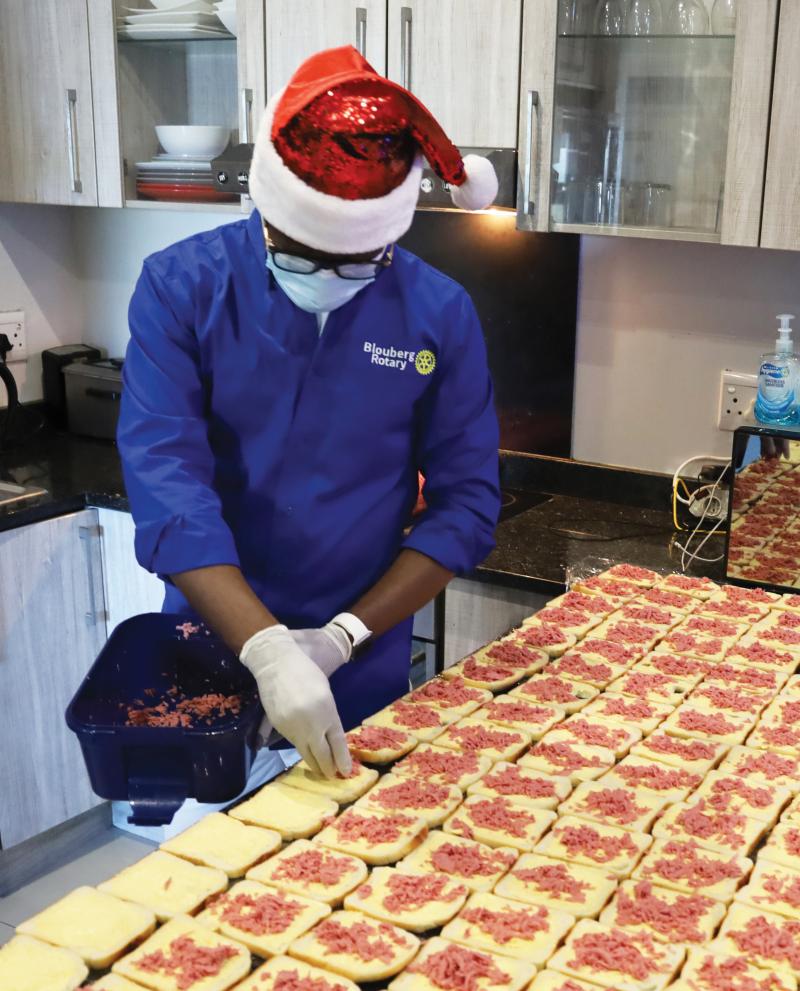 South Africa Our DGE Randell Barclay is an honorary member of the Blougberg and participated in the sandwich making when he and his wife, Diane were last there recently. When COVID-19 shutdowns heightened hunger in his country, Rex Ifechukwude Omameh turned his family’s living room into a sandwich assembly area to prepare food for those in need. Omameh, who is a member of the Rotaract Club of Blouberg and the Rotary Club of Blouberg, and his family members made the effort a Friday tradition. Fellow Rotaractors sometimes help prepare the sandwiches, and most of the food is given to the Milnerton Community Action Network for distribution. Omameh has spent more than $1,500 on food, and a bread company has also pitched in to provide some of the bread and soup. Omameh also received contributions to defray the project’s costs as a birthday present. |
||||||
First outbound Rotary Youth Exchange from Nepal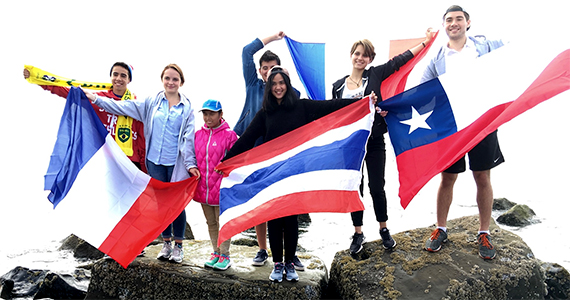 Seema Tamang, third from left, with other Rotary Youth Exchange students First outbound Rotary Youth Exchange from Nepal From The Rotary Blog, November 1, 2017 By Seema Tamang, Rotary Youth Exchange student from Kathmandu, Nepal During the 2016-17 school year, I was thrilled to be the first outbound exchange student from Nepal. Being blind, I have to admit I was a bit scared at first, as home life in the US was much different than in Nepal. I was used to sleeping in the same room with my sisters and with other girls in the dormitory at school. With my host family, I had my own room. But it did not take long to adapt, and enjoy an amazing experience during which I grew in many ways |
||||||
Be a role model for Each One, Bring One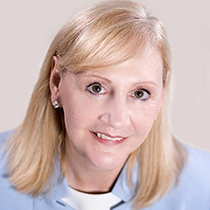 By Elizabeth Usovicz, Rotary International Director, Zones 30 and 31 Rotary connections are powerful, for both current and future members. After 16 months of lockdown, online business and virtual Rotary meetings, I recently met a longtime client for lunch. The restaurant we chose was quiet that day, and the dining area was empty except for one table. Our fellow diners were two young men of different races. They seemed to be talking about business as my client and I were seated at a nearby table. We didn’t focus on their conversation until our ears perked up like hyper-alert terriers when we heard one of them say, “Rotary.” |
||||||
My Rotary Youth Exchange to Spain
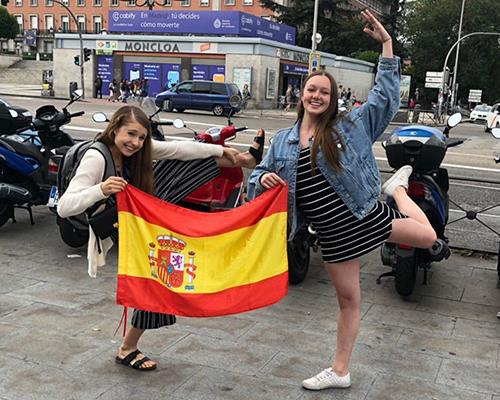 Rotary Youth Exchange student Mia Henderson and a host sister in Madrid, Spain, on National Day of Spain. Mia Henderson, 2019-20 Youth Exchange Student from Cedar Rapids, Iowa, to Madrid, Spain When I was 16, Rotary offered me a chance to experience life beyond anything I had known before. After attending a meeting about Rotary Youth Exchange, I decided to apply to study in Spain. It took months of hard work to prepare. But before I knew it, it was time to pack up my things and leave. I arrived for my 2019-20 exchange in an unfamiliar country, meeting people I didn’t know, who spoke a language I didn’t speak well. But even though this was my most difficult path yet, I was at peace. |
||||||
“Saving the future of our children”: The women fighting polio in Pakistan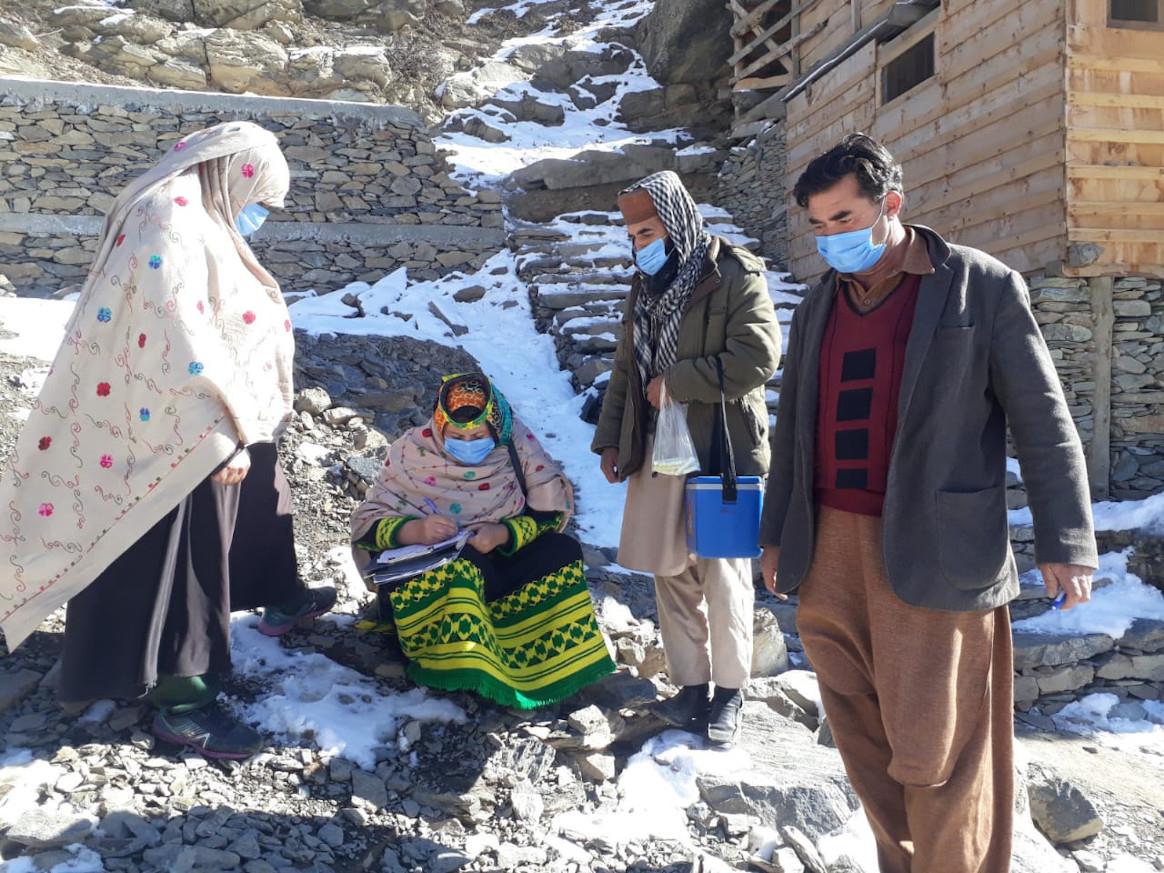 Zubaida Bibi leads a team in Khyber Pakhtunkhwa province in the country’s north. © WHO/EMRO Pakistan is one of two countries where wild poliovirus remains endemic making it essential that the entire country supports the successful implementation of every polio campaign. Women play a critical role, often working at polio’s frontline. Health interventions and immunization activities are most effective when delivered by women. During each nationwide polio vaccination campaign in Pakistan, women make up around 62 percent of the 280, 000+ frontline workforce vaccinating millions of children across the country. |
||||||
How to talk to someone who is vaccine hesitantTips to have that talk by Elizabeth Schroeder As COVID-19 vaccinations are administered around the globe, you’ve probably seen your social media feeds fill up with joyful vaccine selfies and excited appointment updates. Chances are, you also have someone in your life who’s skeptical. Most of us do — and that has public health officials concerned. Vaccine hesitancy is often fuel for heated public debate, but conversations about vaccines don’t have to be contentious. In fact, being willing to have them is one of the most impactful ways we can influence global health. As with many emotionally-charged topics, knowing how to start the conversation can be the hardest part. These tips may help you open up a dialogue and get your loved ones thinking differently about being vaccinated. |
||||||
Food bags fill void left by pandemic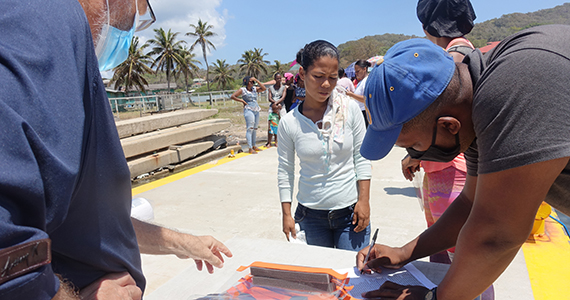 Members of the Rotary Club of Roatan, Bay Islands, Honduras, check names off a list as they distribute food bags on the island of St. Helene. By Roger Bjoroy-Karlsen, Rotary Club of Roatan, Bay Islands, Honduras I am on a small boat fully loaded with food bags headed for the people of St. Helene, a small island about two miles long and one mile wide, separated by a canal from the island of Roatan. Roatan is the largest of the Bay Islands located off the northern coast of Honduras. As the waves are striking our boat, my thoughts wander to the approximate 1,000 people in 218 households who are in need of the food we’re delivering. Many of whom have no income because they lost their jobs due to the COVID-19 pandemic. St. Helene has no roads and no infrastructure. Its people are descendants of African slaves brought by the British to Jamaica and the Cayman Islands who then migrated to Roatan after gaining their freedom in the 1830’s. Last year they got electricity for the first time. And 14 months ago, as the first part of a Rotary global grant, members completed a fresh water project. Phase two of the grant has been approved. We landed on a Friday in September 2020 at a dock that was built by grant money and the effort of Rotary members. Our trip could not have happened without funds from the Rotary Club of Oakville Trafalgar (Ontario, Canada) and the Rotary Club of Evergreen (Colorado, USA). 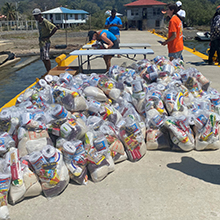 • 600 masks • 250 face shields • bags with food for roughly 30 days In addition to the food, we provided 600 N95 masks and 250 face shields to residents of St. Helene thanks to a donation from Michael McCarry of Mount Sinai Hospitals in New York City, New York. A special thanks to Sterling Lucas and his boat captains who brought us to the island. The islanders received their bags of provisions as they were checked off of a list. They then loaded into their boats and flipped up their umbrellas and went back to their homes either by sea or along crooked paths around the island. The bags will provide each family with enough food to live on for about a month. It was great to see their renewed hope for the future as the supplies gave them the ability to look beyond this pandemic. This is what Rotary is about, Service Above Self and bringing new hope to parts of the world. |
||||||
Volcanic ash in West Indies puts animals in need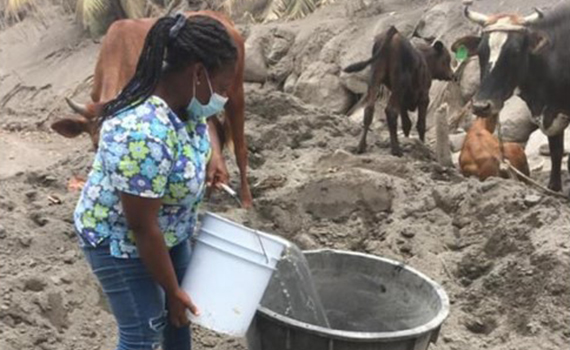 By Elizabeth Guybert, Rotary Club of Grande Terre Pointe Des Châteaux, Guadeloupe, French West Indies\ Rotarians organized a large-scale collection to feed, shelter, and provide medicine for animals affected by the volcanic ash that destroyed pastureland. In April, the successive eruptions of the Soufrière volcano devastated part of the island of Saint Vincent and the Grenadines, leading to an urgent evacuation of the population from the affected areas. |
||||||
Polio outbreak in Papua New GuineaIn 2019, there were 554 cases of paralytic polio globally. In 2020, that figure more than doubled to 1,216. On 21 June 2018 it was confirmed that poliovirus is circulating once more in Papua New Guinea after 18 years polio-free. As polio is a highly infectious disease which transmits rapidly, there is a potential for the outbreak to spread to other children across the country, or even into neighbouring countries, unless swift action is taken. Organizers of the outbreak response are calling for the full support of all sectors of society to ensure that every child is protected. Parents are being encouraged to bring their children to their health centre or vaccination posts to receive the vaccine, free of charge, during a series of immunization campaigns. Disease surveillance is also being strengthened to detect any further transmission of the disease. The World Health Organization is working with the other partners in the Global Polio Eradication Initiative (GPEI) to support the National Department of Health and the Provincial Health Authorities in controlling the outbreak. |
||||||
Staycation RaffleDon't forget to buy your ticket for the Capital City Fall foliage Staycation Raffle - Click here. Raffle ends next Tuesday - Don't delay! |
||||||
Keeping children safe from polio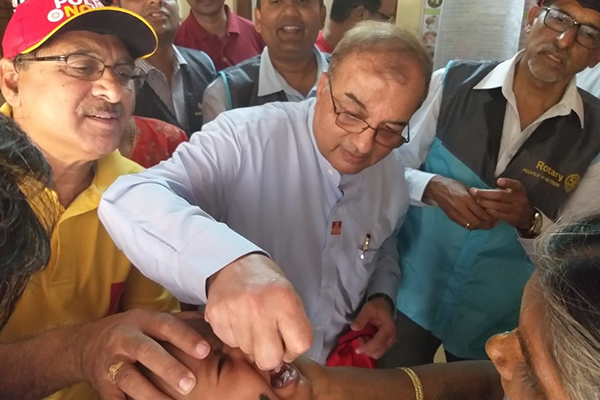 The author immunizes a child against polio in India. Ed Note: I have been fortunate enough to visit S.R. Yogananda in his home and have attended his club Rotary meeting. By S.R. Yogananda, past governor of District 3190 and 2011-14 regional Rotary Foundation coordinator I had just come back from an assignment overseas in 1987 when I rejoined the Rotary Club of Bangalore East after an absence. I enjoyed the fellowship before meetings when I could connect with all my friends in one time and place. At one such meeting, one of our club leaders talked about Rotary’s top priority to eradicate polio and mentioned an upcoming immunization drive that Sunday. But that Sunday, I had a wedding to attend of a friend of the family, who I knew would notice if I arrived late. At 06:30 that morning, I received a call from our polio committee chair, reminding me of the event. He was so convincing that I should volunteer that I said yes, even though I was not happy I would be missing the wedding. |
||||||
Vaccination education for all our neighborhoods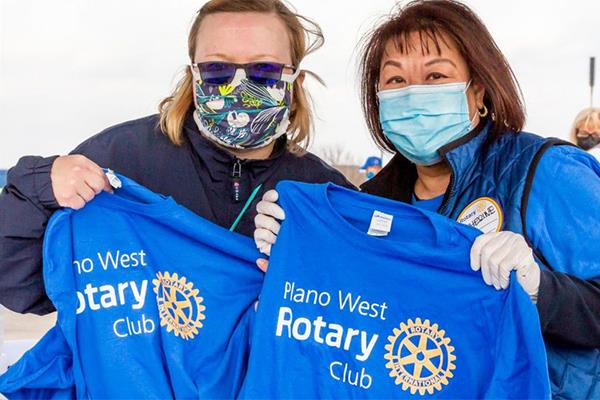 Members of the Rotary Club of Plano West, Texas, USA, spend Saturdays distributing information about vaccinations on door hangers in Spanish-speaking neighborhoods. By Alex Johnson, President of Rotary Club of Plano West, Texas, USA From my town of Plano, a suburb of Dallas, Texas, we see the virus devastating lives in India. Last year, COVID-19 affected people overseas, and then took hold in America. We can counter the threat and stay safe by getting people vaccinated. |
||||||
Rotary members lead effort to transform childbirth care in MongoliaEditor's Note: In 2014 Capital City led a global grant providing almost $800,000 in medical equipment and supplies to support maternal and child health for five barely equipped clinics in sparsely populated rural Mongolia. 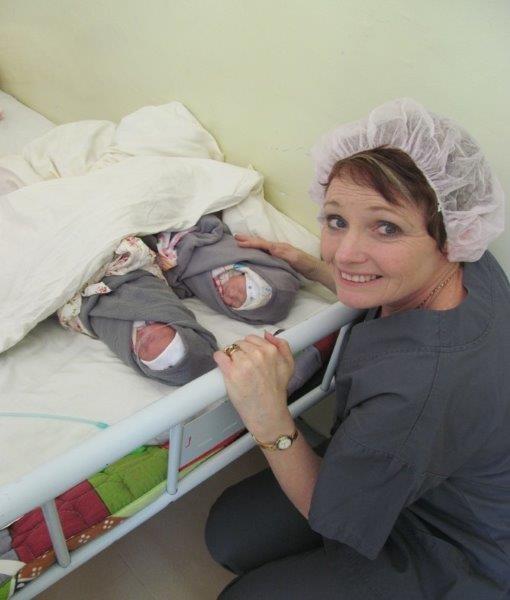 Julie Dockrill, recipient of Rotary’s People of Action: Champions of Health, led a team of midwives in training health care professionals as part of a comprehensive well-being program that’s saving mothers and babies by Ryan Hyland When Julie Dockrill was approached by the Rotary Club of Waimate, New Zealand, to train medical workers in Mongolia in safer childbirth practices, she wasn’t sure how much of a difference she could make — despite her 20 years of experience as a midwife and childbirth educator. At the time, Dockrill wasn’t very familiar with Rotary’s work, nor was she aware of the high infant mortality rate in Mongolia, an Asian country located between Russia and China. But she agreed to participate if it meant saving the life of even one child. |
||||||
5 reasons to give to The Rotary Foundation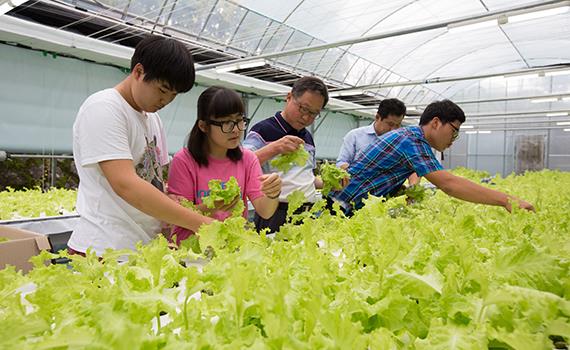 The Rotary Club of Andong-Central, Korea, provides horticultural training for students with special needs as part of a global grant made possible by your donations to The Rotary Foundation. When you make a donation to The Rotary Foundation, you are helping Rotary members make a difference in the lives of millions of people around the world. Here are five reasons to make Rotary your charity of choice any time of the year. 1. Accountability 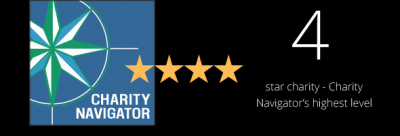 Our accountability and transparency have earned The Rotary Foundation 12 straight years of four-star ratings — the highest possible — from independent evaluator Charity Navigator. More than 90% of Foundation funds are spent directly on programs. No high administrative costs dilute your gift. 2. Impact We partner with other organizations to increase our impact and make your donations work even harder. When you give to PolioPlus, for example, you have the satisfaction of knowing that every $1 Rotary commits to polio eradication is matched by $2 from the Bill & Melinda Gates Foundation. Thanks to this partnership, all donations to end polio (up to $50 million per year) are tripled, providing critical funding toward creating a polio-free world. 3. A record of success Rotary unites leaders who have the skills and resources to tackle some of the world’s most difficult problems and deliver sustainable, long-lasting results. For decades, Rotary has been a leader in the battle against polio and with the help of our partners in the Global Polio Eradication Initiative, we have reduced cases by 99.9% since 1988. The infrastructure developed to facilitate both immunizations and eradication is being used to fight and protect against other diseases as well. For example, the method known as contact tracing was critical to containing an Ebola outbreak in Nigeria in 2014. 4. Global reach Our 1.2 million members span the globe, uniting people who have a common desire to serve others. From teaching children to read in Ecuador to a microcredit program in Indonesia, Rotary members identify local problems and use Rotary’s vast network and the resources of The Rotary Foundation to take action in their communities. 5. Bringing about peace Peace holds a unique status in Rotary. We approach peace not as an abstract concept, but as a living, dynamic expression of human development. As a humanitarian service organization, it is both a cornerstone of our mission and one of our six areas of focus – one of the main ways in which our members make their mark on the world. Each year, the Rotary Peace Centers train some of the world’s most dedicated professionals to resolve conflicts and promote national and international cooperation. Rotary Peace Fellows study in a two-year master’s degree program or a professional certificate program at Rotary’s partner universities. Rotary members themselves also address the underlying causes of conflict, including poverty, inequality, ethnic tension, lack of access to education, and unequal distribution of resources. Our collaboration with the Institute for Economics and Peace is providing free, self-guided training to individuals who want to be peacebuilders in their communities. |
||||||
Sewa International to Distribute 7482 Oxygen Concentrators and 250 Ventilators in India; Jack Dorsey of Twitter Donates $2.5 million
Rotary International is not well organized to support ongoing disasters. District 7870 is working with Sewa International to provide donations in support of the Covid19 crisis in India. Here is what Sewa is doing. Houston, TX (May 13, 2021) – Sewa International has procured 7,482 oxygen concentrators, 20,500 pulse oximeters, 250 ventilators, 256 co-ventilators and other much needed medical equipment and has shipped most of these to India via UPS over the past two weeks. Working with its partners in India, Sewa International has distributed more than 4,000 medicine kits, and 5,000 essential kits. As Indian hospitals and care agencies struggle to meet this dire medical emergency, Sewa volunteers have been working across the country, in small towns and big cities to offer information about hospital bed availability, medical equipment distribution, vaccinations, and testing for COVID-19. Sewa International has already spent more than $7.5 million procuring and shipping equipment, and helping distribute needed medicines, food, and other supplies. |
||||||
A day in the life of a vaccination volunteer
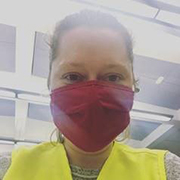 By Jill Johnson, member communications team lead, Corporate Communications, Rotary International My cheeks hurt from smiling, which was weird because I wore a mask all day. It’s not as if anyone saw my smile, but I couldn’t help it. It was a great day. I volunteered at the COVID-19 vaccination clinic in my town on 15 April. I worked the registration desk, checking people in for their appointments. It’s a fun assignment because you interact with so many people. There was the young man who told me he just woke up — it was 1:00 p.m! There were the teenagers born the year I graduated high school who didn’t laugh at my lame attempts at jokes. And there was the young man with autism who, as his mom filled out the paperwork, sang me a song and showed me how he could dance. I’ve always wanted to volunteer but struggled with finding the “right thing.” When Rotary members were encouraged to work with their local health organizations to support vaccination clinics in their communities, I thought, “I could do that.” I may not be a Rotarian or a Rotaractor, but I am a part of the Rotary community. And this felt like the “right thing.” While the registration desk is fun (and busy), I also liked being a vaccination assistant on previous volunteer shifts a week earlier. There’s more time to chat than at the registration desk, so you get to interact with people in a different way. I’ve listened to residents talk about how excited (and nervous) they are. I’ve seen their faces light up when the vaccination is over and they didn’t feel a thing. I’ve heard more people say “thank you” than I can count. While it’s mostly a joyful and positive experience, there have been some challenges. There was the patient who was there with her caregiver. She had a disability and was deaf, and was also very afraid — she really wanted her mom. Another man arrived in a wheelchair with his parents and started to get angry when he realized he was getting a vaccination. As a non-medical professional who works behind a desk all day, it was an eye opening experience. When my shift was done, I was exhausted, but in a good way. I still had work to do and two kids to take care of, but I felt accomplished and happy. I had no idea volunteering would have this effect on me. I’m already looking for more clinic shifts to volunteer for. |
||||||
The logistics of shipping and storing vaccines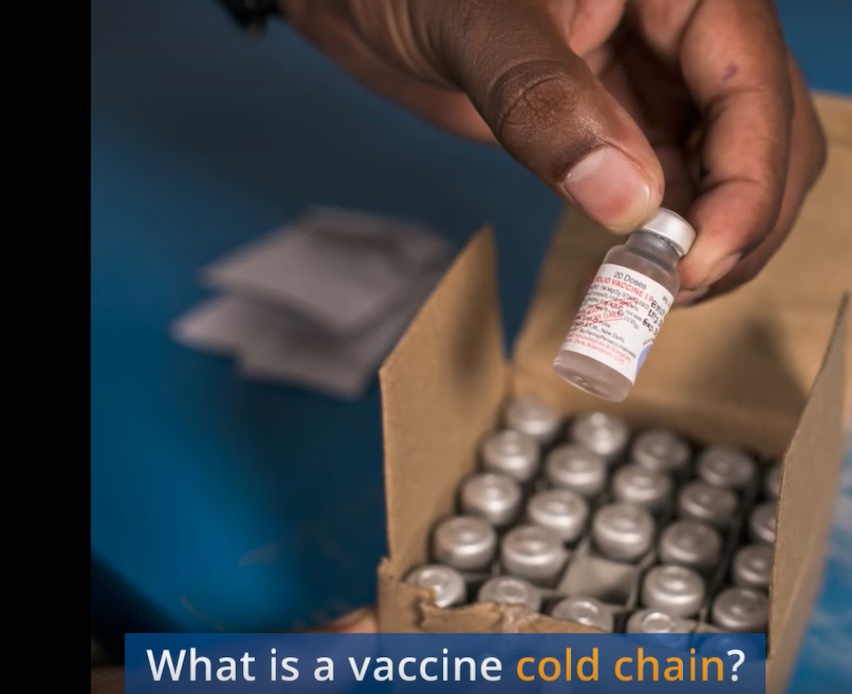 by Elizabeth Schroeder A mass, worldwide vaccination effort is crucial to defeating the COVID-19 pandemic — but the logistics of getting it done are incredibly complex. Two of the most complicating factors? Storage and transportation. Distributing vaccine doses is much more elaborate than simply putting vials in a box and loading them onto a truck. From the time a vaccine leaves the manufacturer to the time it’s administered to a patient, it needs to be kept in ideal and highly specific conditions. For example, Pfizer’s COVID-19 vaccine needs to be stored at a frigid -70° C. That’s why the success of large-scale immunization efforts is dependent on a reliable cold chain: a system of safely storing and transporting vaccines at recommended temperatures. What makes up a cold chain? A seamless cold chain combines three equally important elements: • Equipment: in most cases, the best storage option is a pharmaceutical-grade unit, specially designed for housing vaccines. Unlike the freezer where you keep your ice cream, these can cost upwards of $15,000. Specialized portable coolers are also important for moving vaccines from one location to another. • Personnel: staff and volunteers tasked with handling vaccines must be thoroughly trained on safe storage and transportation practices. This is particularly important because different vaccines require different conditions. • Processes: vaccinating facilities must have clear, detailed, and up-to-date instructions for vaccine handling — plus contingency plans in case of emergency. What if the facility loses power? What if there’s a weather event? These questions and more should have thorough answers. What happens if the chain breaks? Vaccines can only protect against disease if they’re delivered safely. Overexposure to heat, cold, or light can compromise vaccine quality. Not only does this diminish the vaccine’s effectiveness; it also leads to wasted vaccine supply and financial loss. Between spoiled vaccines, replacement costs, and administrative expenses, cold chain errors cost healthcare shippers billions of dollars a year. How we help For more than 30 years, Rotary members have been supporting the safe transport of polio vaccines to every corner of the globe. When it comes to COVID-19, we’re just as committed to bringing vaccines to all. Learn more about how we’re playing our part: http://on.rotary.org/covid19efforts. |
||||||
What every Rotary club should know about running Virtual/In-Person meetingsThis week the club Zoom meeting will include the 25-minute video meeting referenced in this story. By Jim Marggraff, Entrepreneur and Member of the Rotary Club of Lamorinda Sunrise, California, USA Four years ago, my wife MJ surprised me with an unearthly question. “How can we keep Mars-bound astronauts connected with their loved ones on Earth?” This question sparked a journey, though not yet to Mars… Instead, I embarked on a journey to understand social isolation on Earth, to develop new ways to connect remote loved ones using advanced technologies, to found another company, my seventh, Kinoo.family, and to become even more deeply engaged with Rotary! While few Rotarians are likely to find ourselves hurtling toward the red planet, many of us do understand the feeling, if not the risk, of social isolation, and the desire to remain close to our friends and families. Strikingly, within months of COVID-19 lockdowns in 2020, nearly 80% of Rotary clubs embraced Zoom, or other video conferencing software, to host virtual club meetings and stay connected. |
||||||
Mount Washington Foliage Season RaffleCapital City Sunrise Rotary is raising funds for its Concord, NH area and international projects. Win a fall foliage stay for two nights and tickets on the steam powered Mt. Washington Cog Railway Nights of October 2 & 3, 2021 at the 4-star Omni Mount Washington Bretton Arms in Bretton Woods • Two day stay for two persons, in a luxurious room with two queen-size beds and a nicely appointed seating area • $250 for meals and incidentals • Two front-row seat tickets on the Mount Washington Cog Steam Locomotive Railway for Saturday, October 3rd • Magnificent Mount Washington autumn foliage scenery All proceeds will benefit the charities of the Capital City Sunrise Rotary Club, Concord, NH and its international service projects. Only 300 tickets to be sold One winner will be drawn on Tuesday, September 7, 2021. The winner will be notified by email. Prizes are not exchangeable. |
||||||
Fall Foliage Staycation Raffle To find out more and enter: https://bit.ly/31LGopG. To find out more and enter: https://bit.ly/31LGopG. |
||||||
My best day as a vaccination volunteer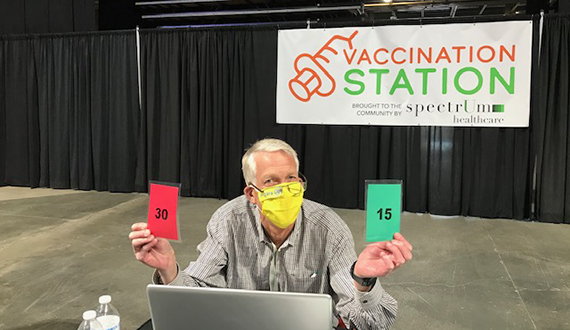 Steven Sanbo registers people at a vaccination center in Yavapi County, Arizona . By Steven Sanbo, past governor of District 6690 and Zone 30 assistant Rotary coordinator What I recall most are the hundreds of faces. Faces of hope. Faces of relief, gratitude, fear, joy, excitement, desperation, anxiety and yes, faces with tears all hidden behind masks during my volunteer shift at a mass vaccination center in Arizona, USA, on 26 February. The only other time I had seen hundreds of faces filled with so much emotion was leading a Rotary mission trip in Guatemala in November 2014 to open a trade school. That morning an earthquake measuring 7.4 magnitude hit the San Marcos region 40 miles from where we were working. It was the largest earthquake to hit Guatemala since 1976. That afternoon I and two other Rotarians volunteered to be first responders with Shelter Box leaving at 04:00 the following morning for San Marcos. You could see it on their faces. The villagers cried for help, support, food, water, shelter, hope for missing family members amid the destruction and crumbled houses. I was there to provide hope. |
||||||
Peace: Today for tomorrow
By Maria Kliavkoff 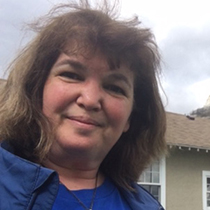 What difference can one conversation, one action really have? As a dual citizen of the U.S. and Canada living and working in the border area between Washington, Idaho, and British Columbia, I have always had a passion for peace. By good fortune, I have had the opportunity to meet four RI presidents, and I asked each what polio eradication has taught Rotarians about peace. The answer that inspired me most came from past RI President Barry Rassin, who told me “peace happens one conversation at a time.” I chose to reflect on this answer in one of my favorite places, the Waterton-Glacier International Peace Park (WGIPP) – the first International Peace Park created by U.S. and Canadian Rotarians in the early 1930s. It is truly a “place of peace,” as the first peoples of the area called it centuries ago. As a director of the park’s association, I had been attending annual meetings and having peace conversations with other Rotarians. |
||||||
Paroles sages de Mark TwainUne femme mariée française ne peut même pas entrer dans une ménagerie sans mettre en doute la pureté de cette ménagerie.Mark Twain |
||||||
Le Rotary et la vaccination contre le COVID-19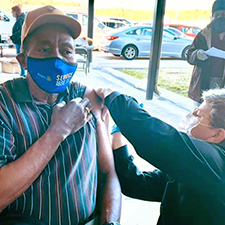 Six gouverneurs de district des zones 33 et 34 ont collaboré avec le ministère de la santé et les services sociaux de Caroline du Nord (États-Unis) pour contribuer aux efforts de vaccination contre le COVID-19. Les gouverneurs ont créé une liste de contacts de chaque Rotary club de leur district qu'ils ont fournie au ministère de la santé de l'État, qui l'a à son tour communiquée avec les services de santé locaux. L'État a également dispensé aux membres du Rotary de tout l'État une formation sur les vaccinations, afin de leur permettre de sensibiliser le public. Les membres se sont portés volontaires sur les sites de vaccination locaux pour aider les agents de la santé en matière de logistique, y compris la saisie de données, l'organisation des files d'attente et l'enregistrement des patients. Découvrir cet article sur Rotary Voices et partagez ce que font vos clubs pour contribuer aux efforts de vaccination sur Rotary Showcase. |
||||||
Rotary clubs fight COVID-19 in a big way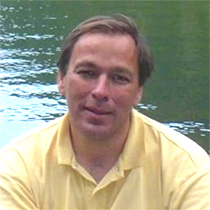 Quentin Wodon By Quentin Wodon, Rotary Club of Washington Global, USA How do we measure the magnitude of the investments made by Rotary clubs in the battle against COVID-19? This is not an easy question to answer, but in my Rotary and professional life, I often deal with assessing impacts. So the question intrigues me. Back in June of 2020, Rotary International released a statement that it had allocated $20 million in grants to fight the pandemic. (Read how Rotary is encouraging clubs to cooperate with local governments and health organizations on the rollout of COVID vaccines). But we all know that that amount is just the tip of the iceberg. Club foundations A few years ago, I estimated that there were close to 4,000 local foundations at the level of Rotary clubs and districts just in the United States alone. At the time, the assets of The Rotary Foundation were just above one billion dollar. Local Rotary foundations filing forms 990 with the Internal Revenue Service had close to $775 million in assets. This did not include assets owned by 1,854 local Rotary foundations that did not file a form 990 because they have gross annual income/receipts of less than $50,000. It is likely that annual charitable donations by local Rotary foundations in the U.S. exceed those of The Rotary Foundation simply because they distribute a larger share of the funds they raise the same year. And many club and district foundations focused their charitable work on the pandemic in the last year. Hence the total funding provided by the Rotary community was undoubtably much higher than $20 million. A few examples I can share a few examples anecdotally of what Rotary clubs in my area of Maryland and Washington, D.C., have been doing: • The Rotary Club of Metro Bethesda provided $53,000 to support three local nonprofits on the frontlines. • The Rotary Club of Columbia Town Center donated nearly $60,000 worth of personal protective equipment to local senior care facilities, nine of which are in Howard County. • The Rotary Club of South Frederick County aimed to give $60,000 to meet the county’s needs. • The Rotary Club of Annapolis organized its yearly crab fest as a drive through. It typically raises each year $45,000 to $65,000 depending on the weather for nonprofits around Annapolis and Anne Arundel County, again in the past year with some focus on COVID-19 responses. • The Rotary Club of Baltimore launched a $30,000 initiative to help feed first responders during the crisis. • As for the Rotary Club of College Park, it mobilized hundreds of volunteers to distribute meals. It would be interesting to know what the total amount donated by Rotary organizations and Rotarians globally to fight COVID-19 has been so far, as well as how many volunteer hours have been committed by members in their community’s response toward the pandemic. I would not recommend sending a survey to all Rotarians, or even to all clubs, as we already receive enough surveys, and there is no need to run such “censuses” where everybody is asked to respond. Rather, at the level of a country or internationally, sampling methods could be employed. The big picture But the more important take away is this: Rotary has been contributing in a big way to the fight against COVID-19. And we all have a role to play in communicating the good that we are doing. Apart from statistically measuring what we are doing, we should share our stories. Rotary leadership is encouraging clubs to share your efforts on Rotary Showcase. And you can promote what you are doing through your local media. We belong to a great organization. Let’s continue to roll up our sleeves and help the world turn the corner on this pandemic. And let’s invite others to join us. |
||||||
Myanmar refugees charter new club in Indiana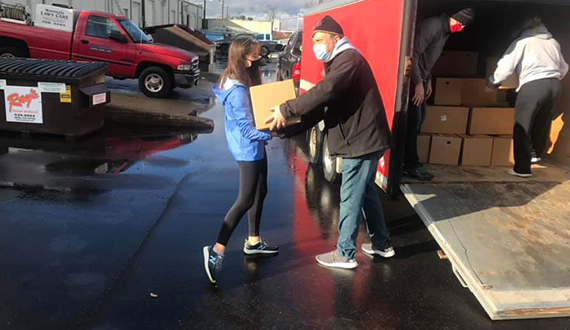 Members of the Southport International Rotary Club in Indianapolis load boxes of food for a food drop. By Jeff Lake, Rotary Club of Indianapolis, Indiana, USA I began to work with the nonprofit organization Chin Community of Indiana in 2016 after our club’s foundation granted them $250,000 over five years, with a three-year extension through 2023. Many Burmese Chin, fleeing persecution in their home country, have chosen Southport as their new home. Almost 20,000 Chin live on the south side of Indianapolis, making it one of the largest concentrations of Chin people outside of Myanmar. I was asked to be the liaison to the Chin organization and one of the first things I did was to create a Chin Support Committee. This committee meets quarterly to determine what type of additional assistance the Chin residents need. All along, I have worked closely with their leadership. It was decided a couple of years ago that starting a Satellite Club of Chins and non-Chins would help them assimilate into the greater Indianapolis community. The satellite club meets at The Chin Center, which is the heart and soul of the Chin community. It took some time but in the fall of 2020, they had 22 members and applied to receive a charter to be their own Rotary club. Importantly, the president of this new club, Southport International, is a Chin. Though I’m a member of the Rotary Club of Indianapolis, the host club, I attend most of their meetings, whether in-person or via Zoom. The Chin club members take great pride in telling people that they are Rotarians. They will hold a Charter Night as soon as all of us are able to meet in-person once again. The Executive Director of the Chin Community of Indiana, is a member. I have done some volunteering at the Chin Center to help them with questions that their five-person staff aren’t able to answer. When I talk about the Chin community, I find myself saying “we”, because I have developed a deep relationship with the Chins, who are honest, hard-working, and very grateful to be able to live in the Indianapolis area. Six months or so ago, I was asked to be a member of their Board of Directors, which includes five others, who are all Chin leaders in the community. As Rotary continues to create innovate new clubs, hopefully clubs will reach out to invite those who are from different countries. While there may be a language/cultural barrier at first, with patience, those barriers can be minimized and Rotary’s reach in the U.S. can expand greatly. |
||||||
Safety committee supports clubs through pandemic
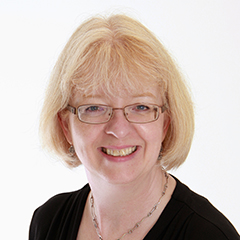 Juliet Altenburg By Juliet Altenburg, DGN, District 7390 (Pennsylvania, USA) Last June as I ended my term as president of the Rotary Club of Mechanicsburg-North and started my role as a district governor-nominee, I was feeling the enormity of COVID-19 in my paid job, personal life, and Rotary club. In my professional job as a nurse, I am the Executive Director of the Pennsylvania Trauma Systems Foundation (PTSF). PTSF oversees hospitals that are trauma centers in Pennsylvania. Hospital staff shared with me the stress of caring for patients while trying to protect themselves and their families. They were often the “family” of patients that died alone and were physically and emotionally exhausted. Meanwhile in my mother’s nursing home, the virus swept through the facility at an alarming rate. Among 86 residents, over 70 tested positive and 11 died. I received daily messages of more and more staff being impacted which contributed to staffing shortages. Meanwhile in my club, we pivoted to online Zoom meetings but were still unsure of when and how we should reconnect in person. Furthermore, how should we keep risk at a minimum while doing service activities in the community? With this in mind, I asked District Governor John Anthony if we could form a committee focused on supporting the district’s clubs on how to serve safely. We would educate Rotarians on how to be safe with any in-person events including fundraisers, service activities, and club meetings. With DG John’s enthusiastic support, the District 7390 Safety Committee was launched. Within two weeks of asking for volunteers, 12 Rotarians with expertise in education, food handling, childcare, public health, nursing, contact tracing, and public relations came together to form a plan. The result of that plan was the formation of a COVID-19 Safety Guidance document for all clubs that would teach them principles of meeting and serving safely. That document was part of an overall communications plan that included enhancing the district website by forming a COVID-19 page. That page not only contains a guidance document, but signage, guest information, and the most current CDC, Pennsylvania Department of Health, and Rotary International announcements related to COVID-19. As news spread on depth of expertise on the committee, various Rotary committees requested support to provide recommendations for implementing risk mitigation strategies for events including RYLA, Youth Exchange, and the Multi-District Conference. As committee work continues plans include: • Conducting webinars for Rotarians and the public related to COVID-19 safe practices and scientifically based information regarding COVID-19 vaccinations. • Collaborating with local public health organizations in providing vaccination support • Increasing public media presence including messaging on digital billboards • Forming a subcommittee to develop District Crisis Management Guidelines Our goal is to one day focus on other aspects of safety as we serve the public, but for now, we are proud to be supporting our clubs and the world at large in advocating for safe practices and vaccine distribution as COVID-19 ravages the planet. One day we will be together without masks, but for now we will serve the public and each other proudly as we support one another during this challenging time. |
||||||
A 'Blue Baby' Returns to The Johns Hopkins Hospital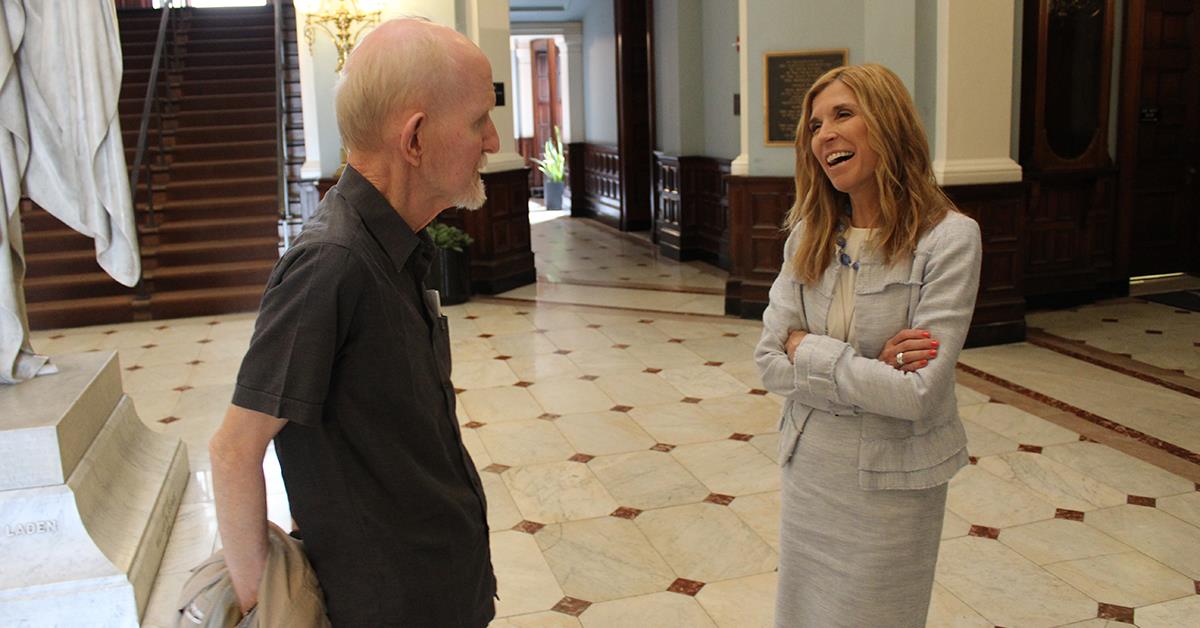 Mike speaks to Johns Hopkins Hospital President Redonda Miller. Editor's note: Mike Edenburn spoke to Capital City from Cebu, the Philippines on 2-18-2021 by Gary Logan. On a recent August morning, Hugh Michael Edenburn walked into the atrium of Johns Hopkins Children’s Center at his usual swift pace. When information receptionist Elyse Geber learned who the 76-year-old visitor was, however, she had to catch her breath. “Oh my God,” she greeted him, placing her hand on her heart. “You’re history.” On Oct. 2, 1945, Edenburn, then 2 years and 7 months, underwent the “blue baby” operation to repair a congenital heart defect that had taken the lives of thousands of infants until the groundbreaking surgery was developed and introduced at Johns Hopkins in 1944. As a former respiratory therapist at the Children’s Center, Geber knew all about tetralogy of Fallot, the deadly condition marked by a bluish or “cyanotic” tint to the child’s skin due to the lack of blood flow to the lung. She also knew the history of the landmark surgery led by Alfred Blalock, of the essential diagnostic work by pediatric cardiologist Helen Taussig and of the critical laboratory studies by surgical technician Vivien Thomas. To have a patient in front of her three-quarters of a century later, Geber felt, was astonishing. Colleagues aware of his arrival were equally thrilled. “As a heart surgeon at Johns Hopkins, it’s a fantastic honor to meet you,” said Robert Higgins, director of the Department of Surgery. “This is the place that initially gave us the ability to treat people with heart disease. To be in the presence of somebody who was treated by the person who started it all is pretty remarkable.” “You are an example and a reminder of our past, of innovations in cardiac surgery and how pediatric cardiology came to be a specialty,” said Shelby Kutty, co-director of the Blalock-Taussig-Thomas Pediatric and Congenital Heart Center at Johns Hopkins Children’s Center. “Your visit has helped me think through the history of the Blue Baby operation and the extreme collaboration that made it possible.” “Amazing!” added Johns Hopkins Hospital President Redonda Miller, shaking her head as Edenburn, trim and beaming with energy, approached her in the lobby of the Billings Administration Building, the home of the original hospital. “Do you feel well?” “Yes, of course,” answered Edenburn. “My doctors tell me my blood chemistry is that of a very healthy 25-year-old. I got the results in my computer; I can show you,” he added, leaving Miller doubled over with laughter. When Edenburn was a toddler in Waterloo, Iowa, his health was dramatically different. Without enough oxygen to reach his lungs, doctors informed his mother, he would be bedridden by 3 years old and dead by 5 or 6. Prepare yourself, they said. Instead, after reading an article in Collier’s magazine about Blalock’s revolutionary surgery, she prepared to take her son to Baltimore. He was a candidate for the procedure that provided a second chance at oxygenation by joining an artery leaving the heart to an artery leading to the lungs, a procedure that came to be known as the Blalock-Taussig shunt. Taussig logged Edenburn into her patient registry as Blue Baby #44. |
||||||
For a Majority of Americans, ‘Carpe Diem’ is the New Motto in 2021From Good News Network Nearly six in 10 Americans are planning to make ‘carpe diem’—Latin for seize the day—their new mantra after the COVID-19 pandemic, according to a new poll. The survey asked 2,000 Americans about the impact COVID-19 had on their lives and what lessons they’ve learned. It found 68% are planning to emerge from quarantine as new people. In fact, seven in 10 polled are planning to live each and every day to the fullest post-pandemic. Conducted by OnePoll on behalf of Life Happens, a nonprofit educating consumers about the importance of life insurance, the survey found that 71% of respondents value the little things in life more than ever because of the past year. Some of the ‘small wins’ Americans are pursuing at this time included speaking to their families more (45%), speaking their minds more truthfully (43%), and taking more vacation time when it’s safe to do so (42%). Four in 10 respondents also shared they plan to be more confident and express themselves creatively as a part of this small-win revolution. This isn’t to say respondents aren’t focusing on big life decisions during this time, however, as three quarters of those polled said it’s important for them to get their finances in order in 2021. In fact, achieving financial security is the most important milestone for Americans to achieve for the second year in a row (38% in 2021 compared to 36% in 2020). Faisa Stafford, President and CEO of Life Happens said: “Traditional milestones and outlooks on life have been upended, leading many to reevaluate what’s important in life and their relationships. For many, the past year has emphasized that there is no better financial security for your loved ones than life insurance, with our survey showing that more than a quarter (29%) consider getting life insurance a ‘small act of love.’” Another important milestone for Americans includes becoming debt free—up 8% compared to last year’s survey (26% in 2021 compared to 18% in 2020). |
||||||
Open Door Community Kitchen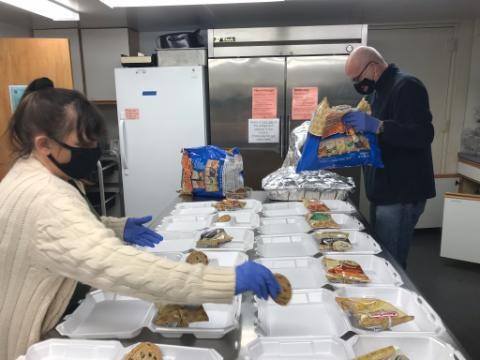 The Capital City Sunrise Rotary Club gathered on January 27th and fed those in need of a nourishing meal. We shared food, conversation and even smiles. Each month our club comes together for the common good of people that are in need. During these challenging times it is so very important to remember the way that it used to be. As you travel about each week please take a moment to converse with a lonely person, hold a door, pay for a meal or just smile. Nice really does matter. ~ Jim Spain |
||||||
Cap City Participates in 2 Million Mask DonationIn coordination with the Rossi Family Foundation’s Rotary 2 Million Mask Project, The Capital City Sunrise Rotary picked up 2000 masks on January 12th in Bedford, NH. These masks were distributed to five of the Concord, NH schools. The number of masks distributed were as follows: Merrimack Valley HS and Elementary school (800), Bishop Brady HS (400), Concord Christian Academy (250), Parker Academy (250) and St. John’s Regional Elementary/Middle School (300). |
||||||
Italian Rotarians screen homeless for COVID-19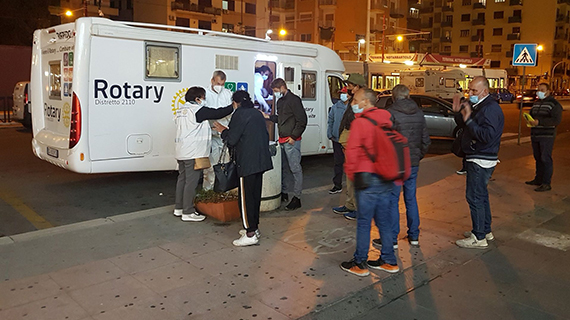 Healthcare workers apply rapid serology tests to consenting homeless individuals on the streets of Palermo, Italy, to help stop the spread of COVID-19 among the homeless and those who help them. Italian Rotary members through a partnership between the Rotary Club of Palermo, the Associazione Francesca Morvillo, and Karol Strutture Sanitarie, launched a screening campaign to help stop the spread of COVID-19 among the homeless population of the City of Palermo. It is part of the ongoing efforts of Italian Rotarians to use their skills and connections to counter this pandemic. Volunteers of the Morvillo Association who usually take turns in the distribution of meals and care packages to the homeless, went to the locations where those packages are typically passed out. Serology rapid tests were conducted on samples of capillary blood (a drop obtained by pricking the fingertip) collected from homeless individuals. The samples, taken on a voluntary basis by a health worker operating out of a camper provided by the Morvillo Association, helped identify individuals infected with the virus. Rotary Club of Palermo president Vincenzo Autolitano explained the purpose of the project is to identify COVID positive individuals for the protection of the homeless and volunteers who serve them. He also thanked Karol Strutture Sanitarie for embracing the project and providing the health workers and tests needed for the screening. The President of the Morvillo Association, Giancarlo Grassi, also expressed his appreciation for the attention shown in this time of health emergency to volunteers and the marginalized. (See this post in Italian on Voci del Rotary). |
||||||
3 ingredients to keep members happy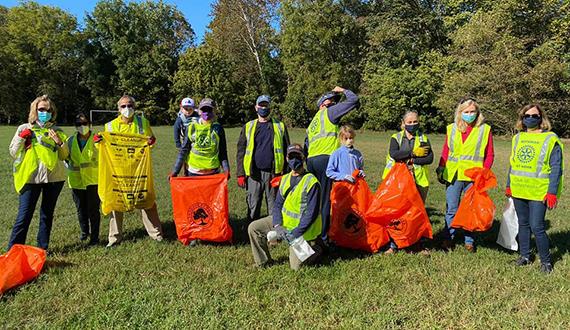 Members of the Metro Bethesda Rotary Club enjoy a service project. By Barton Goldenberg, member of the Metro Bethesda Rotary Club, Maryland, USA I had the pleasure to be invited recently to an online Rotary discussion regarding member apathy. We were two past district governors, an assistant governor, two past club presidents – one from a large club and one from a smaller club— and a community service chair from a large club. The topic was why some (many?) Rotarians are reluctant to participate or get involved in Rotary activities. Based on a district-wide survey of the impacts of the COVID-19 pandemic I facilitated in June at the end of my governor year (results are posted on our district website), we knew we would be facing membership challenges this Rotary year, particularly around member engagement. Many clubs are honorably focusing on member acquisition by pro-actively reaching out to all parts of their local community. These clubs realize diversity is critical for long-term club health and engagement. Many of these clubs also have created a welcome process to ensure prospective members have a great experience when visiting a club or participating in a service project. |
||||||
Our long history of giving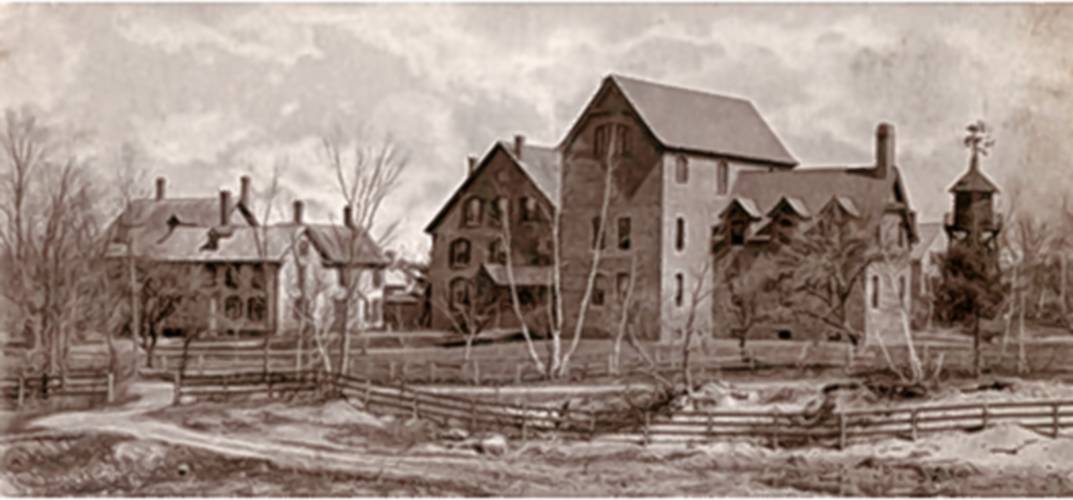 Coit House, shown after 1874, in Dunbarton Road (now Clinton Street) location across from the intersection with Silk Farm Road. Courtesy of Ohrstrom Library By Jim Spain, President of the Capital City Sunrise Rotary Club For The Monitor There are times of the year when giving becomes very popular and the heart grows fond for those in need. Our community has always been fortunate to be home to many kind individuals and businesses that set annual objects and budgets that include many charitable causes. To this very day, the kindness bestowed upon the less fortunate is still very relevant and practiced by many. As Christmas approaches, we witness donations on so many levels: a hot dinner for the hungry, warm clothing to ward off the cold New Hampshire winter, services provided by professionals to those that are unable to pay, colorfully wrapped Christmas presents left under the Christmas tree for a child. During the Civil War era in Concord, there were many children who found themselves unfortunate victims. These children, commonly referred to as War Orphans at that time, were destined for poverty and hardship due to circumstances that they were not able to control. Many women did not survive childbirth and the children were raised in single-parent households by the surviving fathers. With life somewhat transient and the ability to travel limited, some single-parent households did not benefit from extended family where they could find help raising children. The mortality rate documents the life expectancy of the era to be much younger than it is today, eliminating grandparents in some cases. As the War of the Rebellion grew and each community was required to meet a quota for enlistments, many young men, single parents, were destined to become soldiers during this Civil War. Short term arrangements were made, but the war lasted longer than any expectations at enlistment time. Sadly, many of the young soldiers who boarded the train south and left their children behind in Concord never returned. The children became casualties of war and consequently bequeathed the name orphan to the young children they left behind. Many communities such as Concord rallied behind their local war orphans with much kindness and support. Sadly, some children were left on the streets to fend for themselves while others were fortunate to find families. The people of Concord, under the auspices of St. Paul’s School, were quick to organize and create a safe home for the orphaned children in April 1866 and the Concord Orphanage was both established and maintained for many years after the Civil War. The orphaned children of Concord were fortunate to find support from St. Paul’s School where the rector and Mrs. Coit supported them. It was in 1874 the orphanage home was transferred from St Paul’s School to a board of trustees becoming an institution under the diocese. The original charter for The Orphan Home of Concord that was approved on June 26, 1874, was amended in 1897 in the New Hampshire Senate and House of Representatives changing the name to Coit House and finding the orphanage to be free from taxation. As funding continued through the generosity of the citizens of New Hampshire, a new brick building was constructed for the children on Dunbarton Road just across from Silk Farm Road. As each and every Christmas approached many local clubs and organizations provided good cheer to the children at the Coit House. Clothing was provided, medical and educational support was donated, and there were entertainment and gifts along with a visit from Santa Claus. At this special time of the year, it is important to reach deep within our hearts to help those in need. Food and shelter, gifts for the children or perhaps just a conversation with the elderly is appreciated more than you will ever know. Kind words from a kind person at Christmas hold much meaning for us, just as they did for our ancestors so very long ago. |
||||||
A Change of Pace - Travel PhotosThis week, as a change of pace, your editor is going to show a few photos taken during his travels. 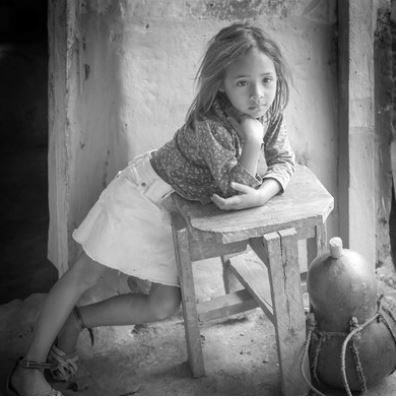 A young girl in Trojes, Honduras just after her family had a Pure Water for the World household water filter installed.
|
||||||
Oil Company Surrenders 15 Land Leases on Sacred Native American Land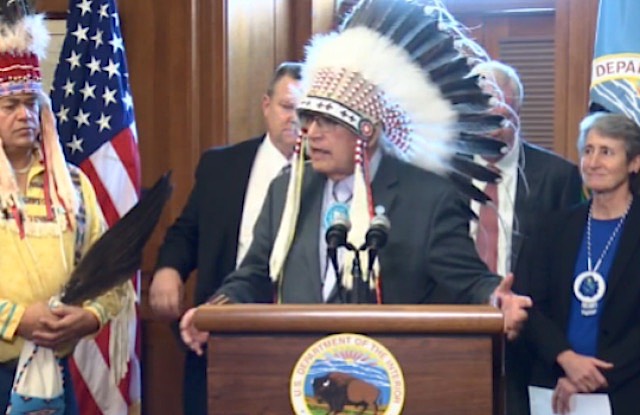 During a ceremony in Washington, DC this Wednesday, the U.S. Department of Interior announced it was canceling 15 energy exploration leases on land that is sacred to Native Americans. The Badger-Two Medicine area is an expanse of wilderness stretching along the Montana mountain line that is home to the Blackfoot people. For the last 10,000 years, Blackfoot members have found cultural identity in the 130,000 acres of the Badger-Two Medicine land. The tribe has vehemently protested and opposed the land leases since they were signed without their consultation almost thirty years ago. The oil and natural gas company in question, Devon Energy Corp, acquired the land leases after merging with another company. Company president David Hager surrendered the land after acknowledging that the pristine landscape was not theirs to invade. The process of fracking that would have gleaned the natural gas could also have harmed the water supply which is in close proximity to the leased parcel. There are two land leases left on the holy land that are still owned by other energy companies, but the U.S. Department of the Interior Secretary, Sally Jewell, is determined to prevent them from drilling on the Blackfeet territory. “This is the right action to take on behalf of current and future generations,” said Secretary Jewell. “Today’s action honors Badger-Two Medicine’s rich cultural and natural resources and recognizes the irreparable impacts that oil and gas development would have on them.” |
||||||
Bring sunshine to a stormy day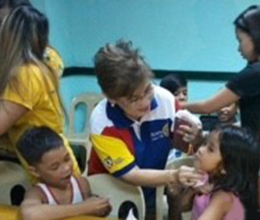 Taking part in a service project in Manila. By Maria Elena “Marilen” Tronqued-Lagniton, past president of the Rotary Club of Cubao Edsa, Quezon City, Philippines I shall pass this way but once. Any good that I can do or kindness I can show let me do it now. But what if today was the last day of your life? Would you be fulfilled with how you have invested your time? Would you have any regrets? Time is the currency we begin each day with. It is our most valuable and most limited asset. Rotary has taught me how fortunate I am, and how blessed I am to be able to make and deepen friendships by working alongside others in service. It is like sunshine on a rainy day. And as Rotarians, we need to share our story with others, so they, too, can see that sunshine and join us. I was urged to join Rotary by family members. Like many, I approached Rotary with some hesitation. Too much was going on in my world as senior vice president of two major hospitals in the metro area. Rotary was at the bottom of my priority list. That is until my eyes and heart were opened. The chair of the Board for the hospitals I worked for was Robert Kuan, past governor of Rotary District 3830. He had none of that hard-hitting, arrogant harshness that clouds power and success. This man was at his best and most inspiring when he talked about Rotary. From Banaue, the mountains in the northern Philippines to Korea to China – it seemed like all he ever did was Rotary. But no, it’s just that ALL he ever wanted to talk about was Rotary. Medical mission opens eyes One day, I took part in a medical mission to a province north of Metro Manila to feed a group of indigenous people. They had to travel all night from their homes in the mountain just to have access to care. This level of effort was more than I could comprehend. As the children started chasing balloons around an open hall, I was struck by how simply things like a napkin or a glass of drinkable water, were an extravagance for them. As a breeze carried the stench of garbage from down the street on this humid summer day, I wondered how they could really get used to that smell. I knew then why I needed to go on that medical mission. Even though I work at a hospital and see people in need, I still find myself irritated by simple annoyances, like a cup of coffee gone cold, or a computer that freezes up on me. As I began to take part in my Rotary club’s service projects in poor areas of our city, I increasingly saw how often I take for granted basic necessities — a roof above my head, a refrigerator to keep food cold, and clean running water. Things like air conditioners, smartphones, cars, even hepa filters to purify our air during this pandemic, are luxuries that simply don’t exist a few short miles away. Telling your Rotary story I met past district governor Lyne Abanilla when I was a new Rotarian. Neither of us knew at the time how our careers would intertwine. She was vice president of a national English-language newspaper and I was a frequent source for healthcare reporters – not because I knew so much but because I was accessible and willing to return phone calls. I also met past governor Chit Lijuaco, editor of a popular magazine. Through Rotary, both these relationships became deeper and stronger as we served together. Lyne, Chit, and I get invited to speak at many workshops on public image, because of our background in storytelling. We know the work that goes into doing it well. So we frequently encourage other members to tell their Rotary stories. By sharing your Rotary story, you might be bringing sunshine to someone’s stormy day. And maybe that’s just what they need to begin a journey in Rotary that will change their perspective on life. |
||||||
Turn your fundraiser into a socially-distanced moneymaker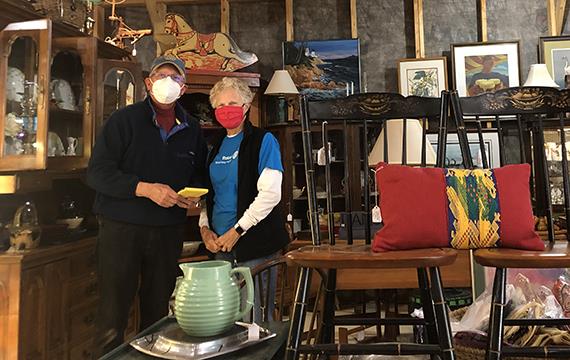 Rotarian Mike Pollard confers with volunteer Janie Griffin about the price of an item at the barn sale. Editor's Note: Marty and I are District Governor mates of the 2012-13 class By Marty Peak Helman, Rotary Zone 32 Innovative Club Associate The Rotary Club of Boothbay Harbor, Maine, in my district has held an annual fundraiser every summer, selling donated items during a live auction the first weekend in August. With the COVID-19 pandemic, the club, like many others, faced a problem: How can a club hold a fundraiser during the pandemic, when traditional sponsors are facing economic hardship, community members have little extra to share, and social distancing alters the rules of what is possible? During a typical year, the club stores donated items – furniture, boats, cars, bric-a-brac, tools, and books – in a barn until the auction, when members rent trailers and use sweat equity to move it all to a playing field where the items are sorted and priced. The top 200 items are sold by a professional auctioneer while everything else is sold tag-sale-style. The club typically nets over $50,000. But when the pandemic began in March, the club stopped accepting donations. By May, it was clear the auction and flea market couldn’t take place. Then the club had an idea, and their experience holds a lesson for us all. Club members realized that they could turn the storage barn into a sales venue, with appropriate masks and social distancing. Tentatively at first, the barn became the scene of an ongoing fundraiser every Saturday morning, averaging $2,000 to $4,000 in profit every week. “We’ve always gotten calls for donations all year long,” club president Irene Fowle explains. “But now, we tell our donors that we can’t pick up until we sell enough to have space in the barn to take the new stuff.” Because the donations are coming in more slowly, club members have a better opportunity to value and price the items. “For example, we were donated two mid-century bureaus by a woman whose mother is moving into a nursing home,” club member Mike Pollard said. “I sent pictures of them to a dealer whom I’ve met through the auction, and we ended up selling them to her for $200 apiece.” In the live auction, they would have gone for a fraction of that price since it was unlikely two bidders would be present who appreciated that style of furniture. Other specialty items have sold on Facebook Marketplace and other online venues. How can your club follow their example? The first step, club members say, is to think beyond the logistics of the event to determine what makes your traditional fundraiser a success. Is it the spirit of community the event engenders, or the thrill of finding a bargain? Is it the excitement of the venue itself? Once you’ve decides what makes the event tick, then you can think about how to duplicate that feeling in a virtual world. For example: • A sporting event that includes a shot-gun start (golf tourney, 5K walk or run) can be rethought to take place at specified times over a two or three-week period. • A spectator sport (duck race, polar plunge) can be moved to Facebook Live or videotaped and replayed later on the club or district website. • A fundraising dinner can morph to take-out only, or maybe eat-in-your-car in a parking lot or town park, perhaps with piped-in music or other entertainment displayed on a big screen or building wall. • An indoor event can move to a larger venue; tickets can be sold for specific entry times, or the event can be re-run multiple times for smaller audiences. If none of these ideas “fit,” club members can think of new fundraising activities that by definition require social distancing: A road rally (where participants remain in their own car); a scavenger hunt (where participants move about in their own “pod”). By mid-September the Boothbay Harbor club had met and exceeded the highest net that it had ever made at the one-day event, and the club plans to continue barn sales through Christmas. “This is so much better,” auction co-chair Laurie Zimmerli said. “We’re not hauling all that furniture to the schoolyard and back, and we’re getting better prices. We’re never going back to the old auction.” |
||||||
Polio - What to Know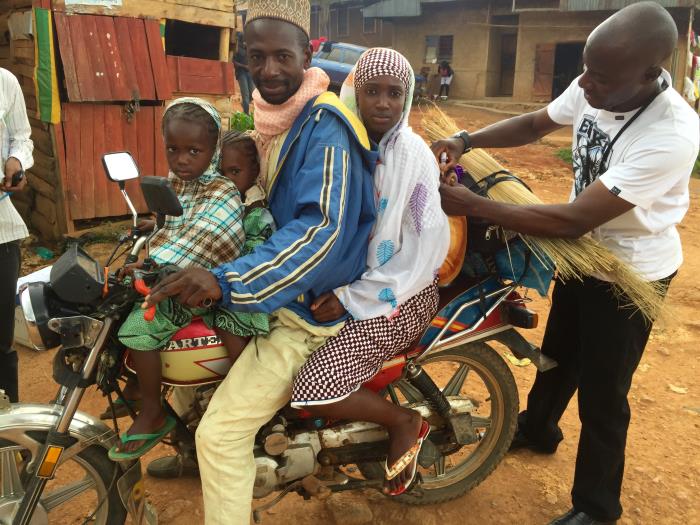 Nigerian family on a motorcycle receiving the polio vaccine. By Lisa K. Esapa. View this image or search images by topic on the Public Health Image Library (PHIL) Polio, or poliomyelitis, is a crippling and potentially deadly infectious disease caused by a virus that spreads from person to person invading the brain and spinal cord which can lead to paralysis. 1 in 200 infections leads to irreversible paralysis. Of those paralyzed, 5% to 10% die when their breathing muscles become immobilized. Additionally, even children who seem to fully recover can develop new muscle pain, weakness, or paralysis as adults, 15 to 40 years later. This is called post-polio syndrome. (ED note: there are at least two District Rotarians who have suffered from post-polio syndrome that we know of). There is no cure, but there are safe and effective vaccines to prevent polio infection. Polio vaccine protects children by preparing their bodies to fight the polio virus. Almost all children (99%) who get all the recommended doses of vaccine will be protected from polio. Therefore, the strategy to eradicate polio is based on prevention by immunizing every child to stop transmission and ultimately make the world polio free. |
||||||
Why I finally joined a Rotary club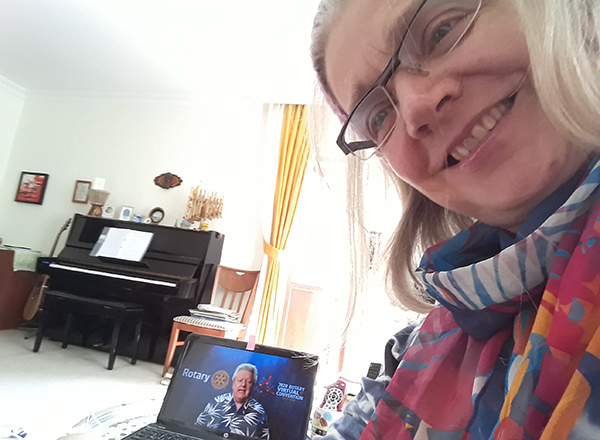 Erin Maloney watching a recording of the 2020 Virtual Convention on her laptop. (On screen is her brother, 2019-20 Rotary International President Mark D. Maloney By Erin Maloney Until this summer, I had never really thought about joining a Rotary club. Even though I have been involved with service – from anti-domestic violence issues to giving music lessons – for all of my adult life, I was not interested in the traditional model of Rotary (with weekly meetings). Living in Turkey, I was becoming more interested in reducing human trafficking, as I was concerned that female university students from abroad were being “groomed.” After the COVID-19 pandemic, however, it became more difficult to address this issue. Meanwhile, I noticed that Rotary was becoming less traditional, open to a “new” kind of Rotarian – someone like me. Perhaps the opportunities had been there for a while, but I first noticed them while attending the 2020 Rotary Virtual Convention (led by my brother, Mark Maloney, then Rotary International president). I saw three things that convinced me to join. At the Convention’s first general session, I was impressed by a video about how communities like “Anytown” could have more Rotary clubs, if they broadened from the traditional model of meetings to a different sort of model, so that more “people of action” could participate. Then, at the Convention’s second general session, I saw an example of a just such a non-traditional Rotary club. I had never seen one like it! It met only twice a month, on Sundays, in a coffee shop – with their children! Finally, I looked carefully at the “booths” in the Virtual Convention’s House of Friendship. There, I learned about RAGAS (Rotary Action Group Against Slavery), and decided to attend a “Zoom” meeting to learn more about the work of the organization. I was impressed! With Zoom-chat, I asked if there was an international Rotary club devoted to ending modern slavery. I was immediately given contact information for the Rotary Club to End Human Trafficking in Minnesota, with Karen Walkowski as its Rotary Club president. And the rest is history! I have now been a member of this Rotary club for three months, attending twice monthly meetings, online via Zoom. While a majority of its members live in the US, there are others like me who live around the world. I am impressed with the work and direction of the club. I am happy that Rotary has broadened its meeting model, to include people of action like me. |
||||||
The future of the fight against polio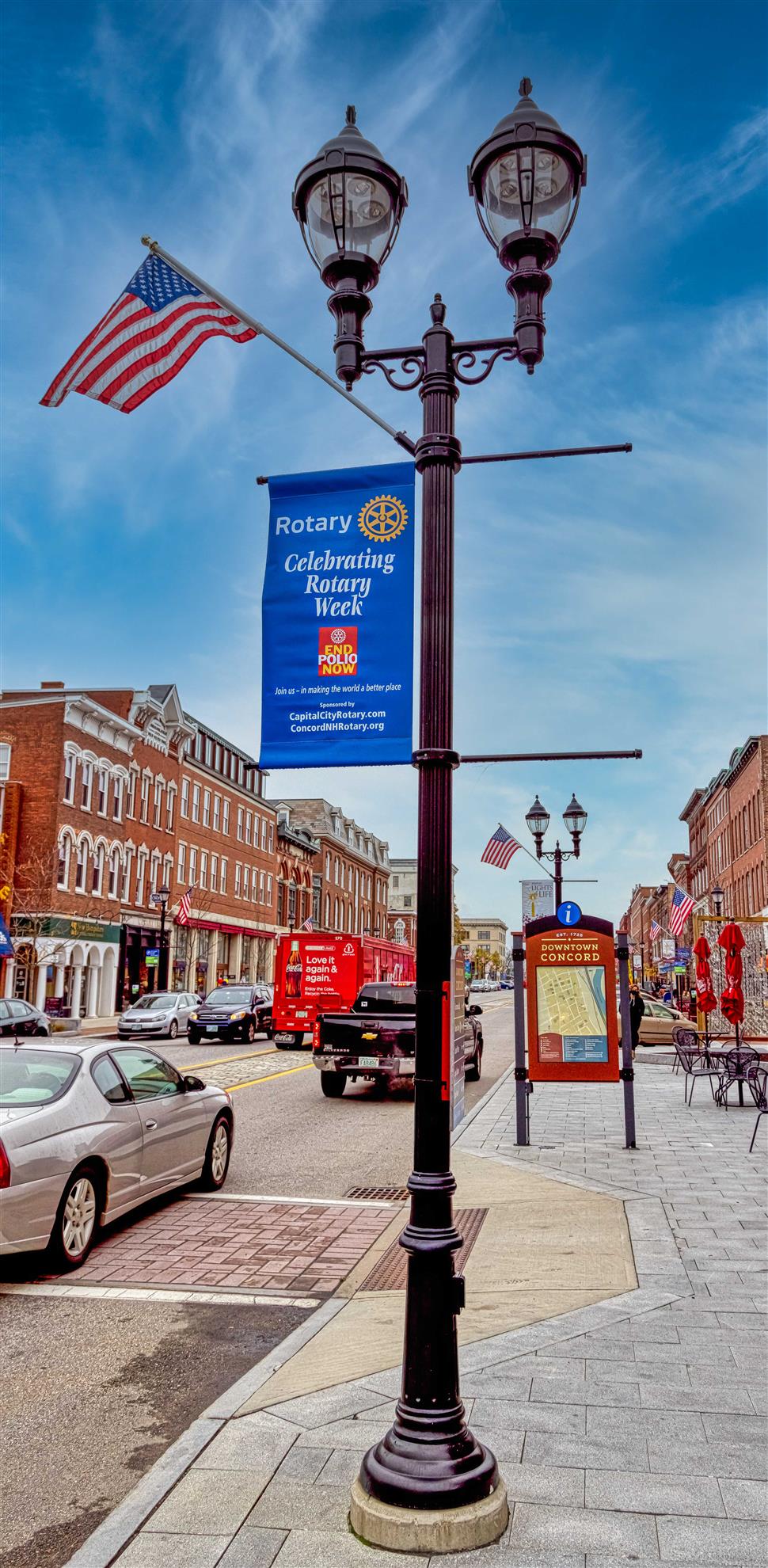 Concord and Capital City sponsor banners to end Polio in the Capital City By Ryan Harland Rotary’s challenge now is to eradicate the wild poliovirus in the two countries where the disease has never been stopped: Afghanistan and Pakistan. Routine immunizations must also be strengthened in Africa to keep the virus from returning there. To eradicate polio, multiple high-quality immunization campaigns must be carried out each year in polio-affected and high-risk countries. During the COVID-19 pandemic, it’s necessary to maintain populations’ immunity against polio while also protecting health workers from the coronavirus and making sure they don’t transmit it. Rotary has contributed more than $2.1 billion to polio eradication since it launched the PolioPlus program in 1985, and it’s committed to raising $50 million each year for polio eradication activities. Because of a 2-to-1 matching agreement with the Bill & Melinda Gates Foundation, that means that, each year, $150 million goes toward fulfilling Rotary’s promise to the children of the world: No child will ever again suffer the devastating effects of polio. |
||||||
Club Named Shelterbox Bronze Hero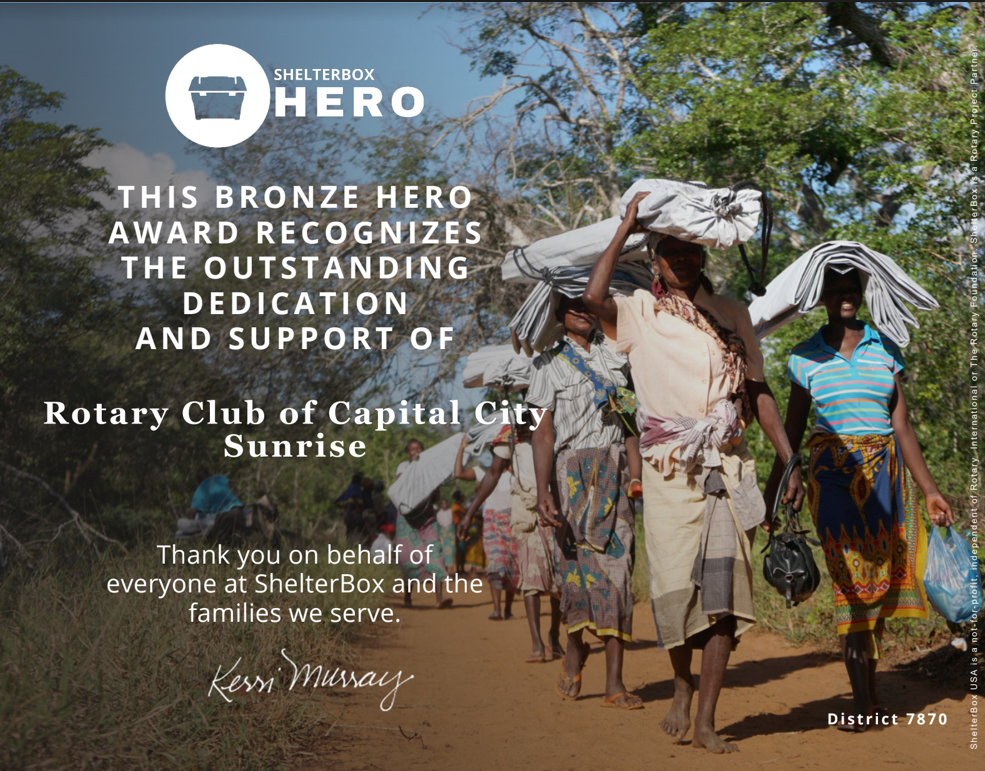 Congratulations on receiving ShelterBox HERO recognition for Rotary Year 2019-2020. Your support is very much appreciated. Your club is listed on our HERO page www.shelterboxusa.org/hero 1.6 million people have been sheltered since 2000, we could not have reached them without clubs like yours. Thank you for being a ShelterBox HERO! |
||||||
PDG Paul Bordeleau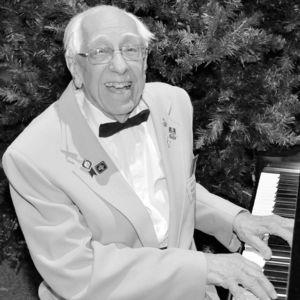 Paul played for the Capital City Charter night in 1982 at the Old Highway Hotel. He was Governor in 1984-5. Paul E. Bordeleau, 96, passed away September 27, 2020 at the CMC after a brief illness. He was married to Wilma Sloan Bordeleau who predeceased him in 2010 after 62 years of marriage. Paul was born in Lowell, MA, raised his family in Framingham, MA, and moved to Bedford, NH in 1971 where he spent the rest of his life. He was a D-Day veteran in WWII, and also served in the Korean War. He earned his BA at New England conservatory and a Masters at BU, and was a music teacher and band director for 16 years in Chelmsford, Framingham, and Dover-Sherborn schools in Massachusetts. He moved his family to New Hampshire in 1971 and worked as a salesman at Darrell's Music Hall in the Bedford Mall until 1973 when he opened his own piano and organ teaching studio, and taught over a thousand students over the years, finally retiring from teaching in 2019. He was also a great musician and entertainer, and led a number of bands over an 80 year career, as well as being a church organist for most of that time, finally retiring from performing altogether in August 2020. In addition to his music he was also a very active member of the Bedford Rotary Club for 47 years and served as both a club president and district governor, and was a major donor to the Rotary Foundation. He was also a member of the Washington Lodge of the Freemasons. Paul is survived by his sons Edward, a piano technician in Bedford, NH and owner of Pianoarts, and Phil Bordeleau, music director at the Cathedral Basilica of the Immaculate Conception in Denver, CO, and a daughter, Jan Bordeleau, a church organist and piano teacher at Bordeleau Keyboard Studio in Bedford, NH. There are no calling hours or funeral per his wishes. He will be interred at the NH Veterans Cemetery next to his wife Wilma, also a WWII veteran. |
||||||
Capital City's Grant Benefits CFD and CPD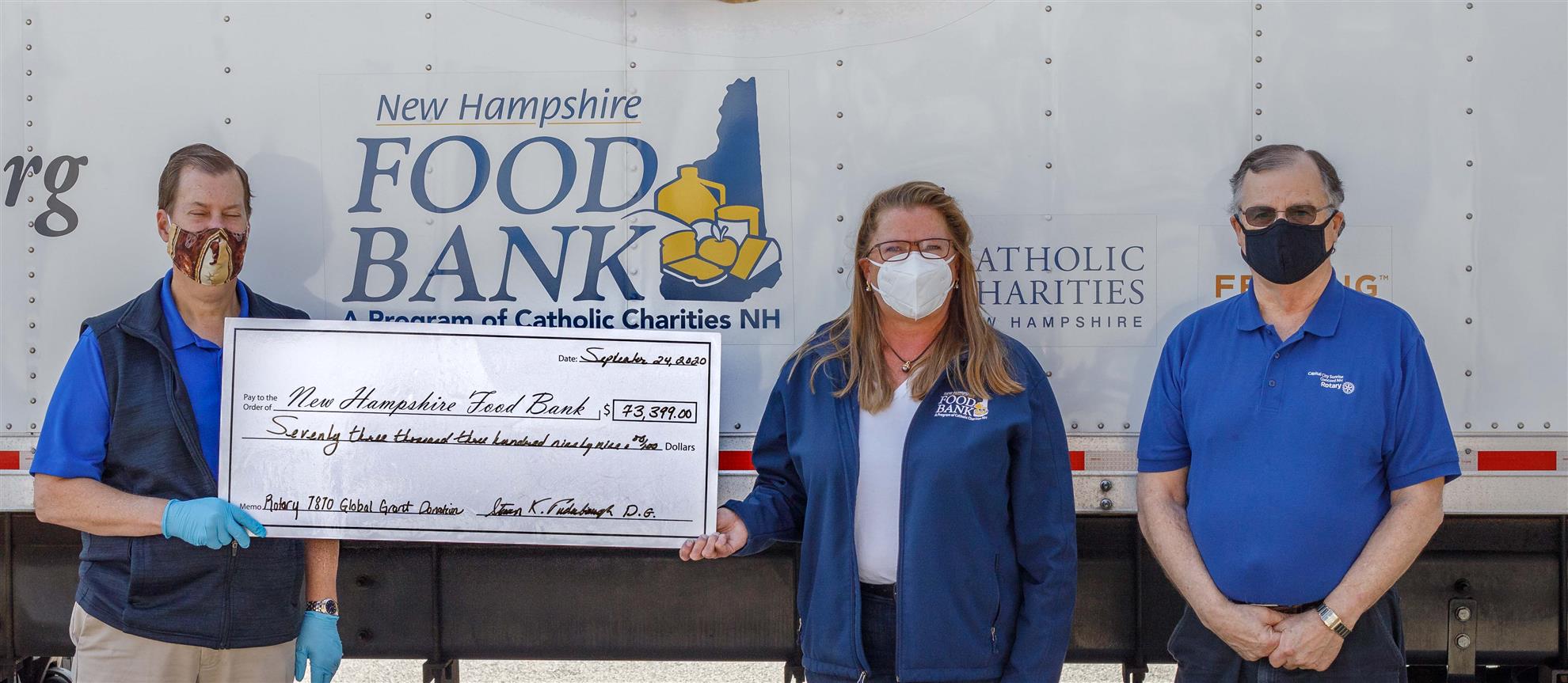 District Governor Steve Puderbaugh, NH Food Bank Exec Dir, Eileen Groll Liponis, Grants Writer, PDG Tony Gilmore Capital City has just received a check for $4080 for the Concord Fire and Police Departments to purchase decontaminating foggers and supplies for its ambulances and other emergency vehicles as part of our Rotary District's Covid-19 grants. Additionally, the Concord Friendly Kitchen has received a $1700 credit from our donation to the New Hampshire Food Bank as a part of our district’s nearly $73,000 donation. Thirty-four clubs in Southern NH and VT participated, donating almost $114,000. With the Foundation's matching, the three grants totaled almost $341,000 for PPE; specialized equipment and supplies for first responders; donations to the VT and NH Food Banks in the name of local food pantries and shelves, and other charitable organizations affecting more than a million beneficiaries in New Hampshire and Vermont. We, as Rotarians have reason to feel proud about supporting our communities! |
||||||
ShelterBox HERO recognition for Rotary Year 2019-2020.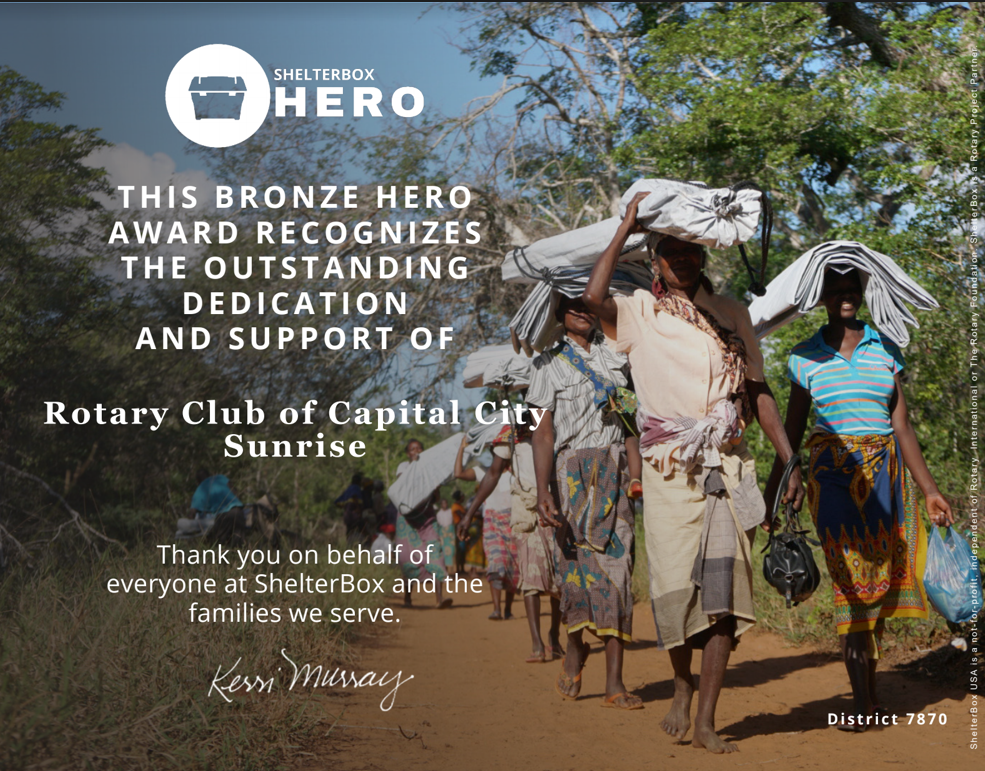 |
||||||
Rotary acknowledges the most credible person in the pandemic. Derek MooreRotary E-Club of World Peace, D5330, USA Rotary acknowledges the most credible person in the pandemic. It is the Truth? Will it be Fair to all Concerned? Will it Build Goodwill and Better Friendships? Will it be be beneficial to all concerns? Are we sure others could pass this test to save lives and bring Peace and a sense of calm to our World. Thank you Dr Fauci |
||||||
The magic of Rotary: touching lives in Indonesia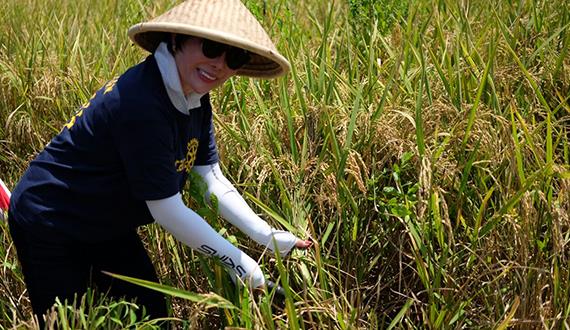 Eva Kurniaty harvests a paddy field that was turned into productive land through a global grant. By Eva Kurniaty, Rotary Coordinator, Past District Governor, and member of the Rotary Club of Jakarta Sunter Centennial, Indonesia When I was a district governor in 2013, there was a Rotary club in my district, in Cilacap, Central Java, that only had a few members. My senior leaders advised me to terminate the club since they were inactive, held no meetings, conducted no projects, and never contributed to The Rotary Foundation. But I was determined not to end it; I knew it was possible to revive it. During a visit, I found out this club was project-oriented, and their members said they were interested in serving their local community. Yet, they were not engaged in any service projects which would help keep members or attract new ones. Cilacap is a rural area with over 2,000 households in 12 villages, whose residents are dependent on fishing in the Segara Anakan lagoon. The monthly household income is only around $80. Over the years, the water started to dry up, turning the area into swampland that also became breeding grounds for mosquitoes that spread diseases such as Malaria and Dengue Fever. With the water dried up, the fishermen became farmers with an assurance of a more regular income. However, this “appeared” land was not productive, so we needed to transform it. I decided to help the club set a long-term strategic plan for conducting a service project that would use existing members’ skills and expertise in agriculture and engineering. The plan was to build canals from Cimeneng River to reclaim the fertile mud (sediments) brought down by runoff water from the mountains to the river. This mud would act as a fertilizer for the unproductive land. We decided to start with our first global grant in one of the 12 villages. Rotary members join villagers in constructing canals as part of the global grant project. I managed to secure enough District Designated Fund from International Partners and with their support, the Rotary Club of Cilacap’s first global grant was approved. We worked together with the villagers, local government, and a Catholic foundation. As the club members got involved with building the canals and monitoring the project, they became engaged, active, and vibrant. Eventually, they began to attract new members as well. The project was a huge success; the land became productive, and the villagers soon turned them into paddy fields. During its first year of harvest, these new-formed paddy fields yielded an income of over $1 million. As more sediment was reclaimed and the total area of productive land grew, the income also slowly increased and it now yields over $3 million per year. With this new income, families in the village are now prospering and able to afford basic needs such as education for their children. The value of land has now also increased to 20-times its original price. This project also enhances Rotary’s public image in remotes areas. I love visiting Cilacap hearing, the villagers tell me “Long-live Rotary!” Everywhere you go, you can see paddy fields that stretch far and wide. The Cilacap Rotary club is now a cause-based club focused on expanding this livelihood project to the remaining villages, and they regularly contribute to the Foundation. |
||||||
No use crying over spilled milkED Note: This is a repeat of a story run early in August. Rotary Voices | Stories of Service has just published it. Marty is working to clone this success for New Hampshire at the NH Food Bank, financially assisted by a District 7870 Rotary Covid-19 global grant. 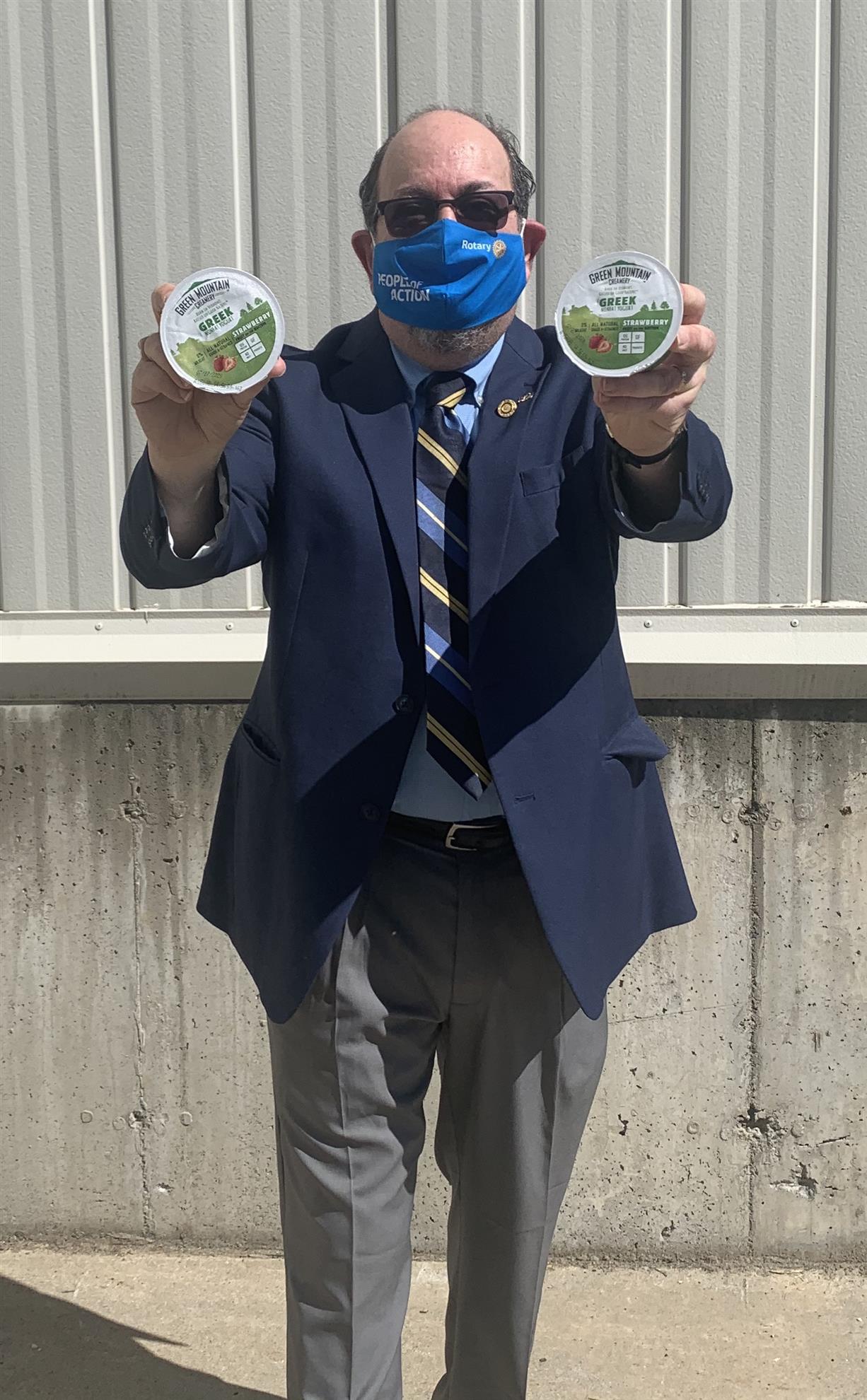 by Martin Cohn, Brattleboro (VT) Rotary Club, President 2012-13 In the early days of COVID-19, Vermont dairy farmers were in trouble. With the close of colleges and restaurants, there was too much supply of milk. This excess milk was headed to be spilled into mudholes. At the same time, the need to help food-insecure families was increasing. How could food that was being wasted reach people who needed food? That’s when I heard about a project where the Vermont Agency of Agriculture, Food and Markets was coordinating an effort to recover raw milk from being disposed of while creating a new, temporary food supply for Vermont Foodbank. In collaboration with the Vermont Community Foundation, $60,000 had been made available to purchase this milk for the benefit of Vermonters. These efforts were particularly important as Vermont’s dairy industry, like all sectors, had been challenged by COVID-19 but remain essential to Vermonters’ food supply. However, more money was needed. When I heard about the need to recover raw milk from local Vermont dairy farms while creating a new, temporary food supply for Vermont Foodbank, I sprang into action to help Vermont farmers, children, and food-insecure families. I sent out emails to fellow Rotarians and within days an additional $10,500 was raised. These monies came from eight Rotary clubs, a donation from the District 7870's Youth Exchange, and the District 7850 Foundation. This helped cover the cost of 32,000 gallons of milk, ingredients, and processing to create 48,000 cups of Green Mountain Yogurt, 11,500 gallons of Hood Dairy 2% Milk, and 440 pounds of Ploughgate Creamery butter. Secretary Anson Tebbetts of the Vermont Agency of Agriculture said, “This is what Vermont is all about. Neighbors helping neighbors. Thank you Rotarians, farmers, and businesses. You and so many are helping those in need.” Media reports identified Rotary as being a good collaborator in finding a solution. But wait, there is more to the story. Our neighbor to the east, New Hampshire, had similar issues. The difference this time was that the cost of milk had gone up; making the filling of tankers too expensive. The solution was to have the NH Foodbank buy dairy products directly from NH dairy farmers. Calls were made to the NH Agency of Agriculture, the Granite State Dairy Promotion Board, the NH Foodbank, and the NH Charitable Trust. Again, emails and presentations to Rotary clubs resulted in close to $18,000, coupled with monies from NH Charitable Foundation, enough money to set the project in motion. For me, this is another example of Rotary in Action. I am proud to be part of an organization of committed community problem solvers. This Rotary Dairy Project was a success and one that could be replicated anywhere that you can ask, “Got Milk?” As I have been presenting this project to Rotary clubs in Vermont and New Hampshire, I was reminded of the time my mother would give me a quarter every Friday to give to my teacher to buy containers of milk for the following week in school. If every Rotarian donated one dollar each week and then gave all the money to their local food bank or pantry, more milk could be purchased for food-insecure folks while helping local dairies. Perhaps this is a project for another day. |
||||||
What Rotary has to offer young members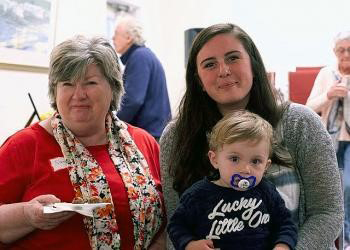 Tory Paxson and her family By Tory Paxson, vice president, Boothbay Harbor Rotary Club, District 7780, Maine, USA What’s life like for people between the ages of 18 and 35 in the Boothbay Region of Maine? Through Rotary, young people take on leadership positions that expand their skills while they serve. Rotary does more than help during a crisis like COVID-19; it provides experiences that translate into a better future in any career. The Rotary Club of Boothbay Harbor created a new membership level to make joining more accessible for those under the age of 35. In addition, generous club members have chosen to pay the first year membership costs for the first five new members in this category. We call it the Rule of 35 and it reduces dues by more than 50% for those under the age of 35. It’s a commitment by our club to keep growing and learning, and to keep inviting young people to see what skills they can develop and add to their own resumes. It’s an invitation to make a difference. Through Rotary, I have discovered what is possible when a group of like-minded individuals get together to make a difference. It matters not at all that we come in many shapes and sizes, backgrounds, or age-ranges. After a short few years, it’s apparent to me that what we have in common is more important than our differences. We believe in Service Above Self. It’s more than a motto, it is what compels our club. While we’re known for our annual benefit auction (on hiatus, due to the pandemic), our club works year-round to help our local community and communities around the world. We have given out bikes to seasonal and international workers, organized the Soup Bowl Supper and Derby Party fundraisers, run mock job interviews for high school seniors to practice for future careers, and created care packages for veterans, among many other things. Rotary has also enabled me to become capable, confident and powerful as I worked alongside change-makers. I have gained project management skills that you can only get through organizing and managing a 200 plus person event with three different organizational crews and over 40 donors and vendors. I’ve became a better, more confident public speaker and learned to use my voice to create change both in Rotary and in my career. I used that voice to convince my fellow members to support our new club membership level for other young professionals like me, the first of its kind in our Rotary district. At age 25, joining Rotary changed the trajectory of my life. Now 30, I am vice president of our club and have discovered the many ways that I can make a difference. More than that, I joined a family of people who have rich histories, have a lot of love to give, and are committed to their community. Many of them are business leaders with fascinating careers. I learn and laugh with them at our meetings, taking a break from my busy life to connect with people that I would have never had the chance to get to know otherwise. It’s the reset button I need after a challenging day. Some of my best friends are twice my age, and my life is twice as rich for having them in it. |
||||||
First Grader Turns Her Dream of Feeding Homeless People Into Reality –By Launching Her Own Foundation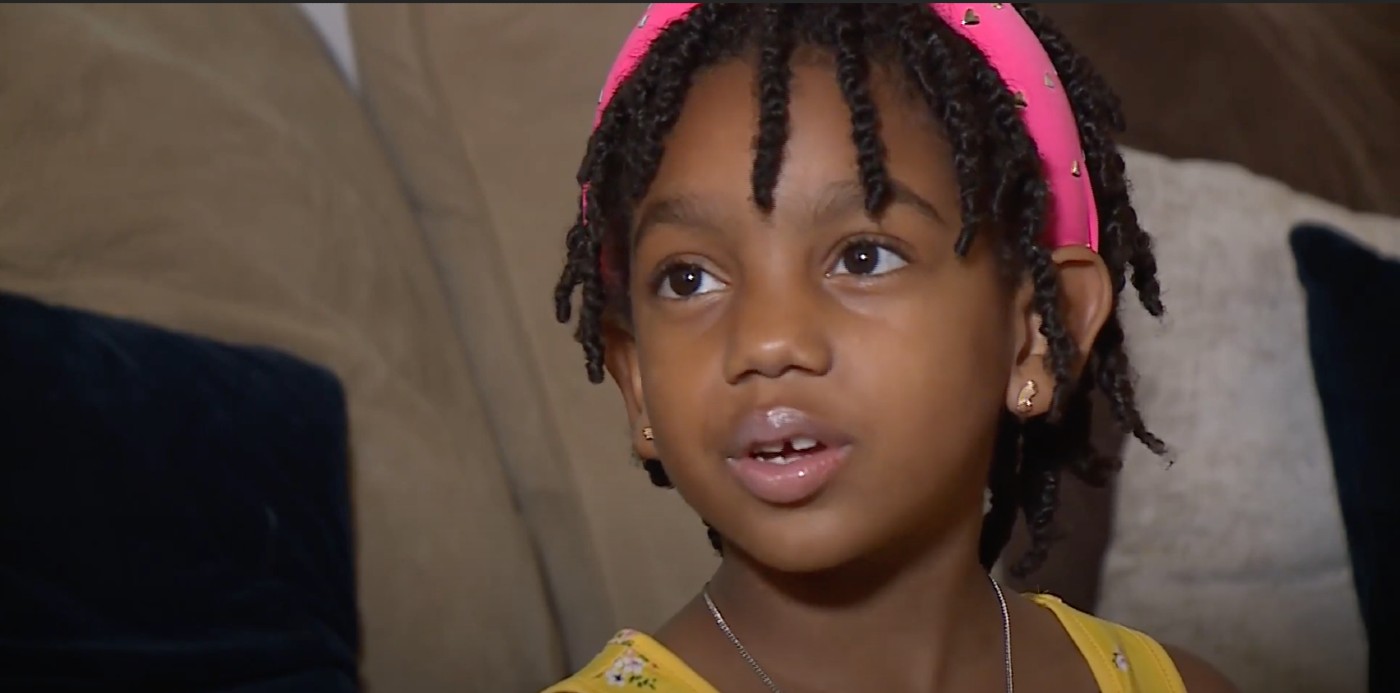 Paris Williams is six years old. Like many of her first-grade peers, she’s adorable, but this little girl is also driven by a mission to help others who are less fortunate. So driven in fact, that she’s launched her own nonprofit foundation, Paris Cares, to feed the homeless in her area. Paris’s mom, Alicia Marshall, says her daughter’s inspiration to become a hands-on good Samaritan was the title character of Cari Chadwick Deal’s children’s book, “One Boy’s Magic,” who also uses his powers to feed the homeless. “She was reading books at school about giving and she came home one day, and she was like, ‘I want to give back to the homeless. What can we do to help the homeless?’ Marshall told KTVI FOX 2 News. “We kind of brainstormed some ideas and we came up making care packages.” “I wanted to give something to the homeless,” Paris explained, “like the boy in the book.” Paris might not have had a magic wand, but she didn’t let that stop her. Turning instead to more practical magic and the help of her parents, Paris assembled and delivered (via non-contact drop off) more than 500 care packages containing food and other essentials to downtown St. Louis’s homeless, as well as handing out approximately 250 meals to essential workers. But Paris wasn’t satisfied to simply donate goods. It was important to her to forge a bond with the people she was trying to help. After filling each package herself, Paris drew a picture or wrote a personal message on each one to create the kind of human connection so many of the homeless sorely lack. |
||||||
Soup Brigade - One of America's 50 Nicest Places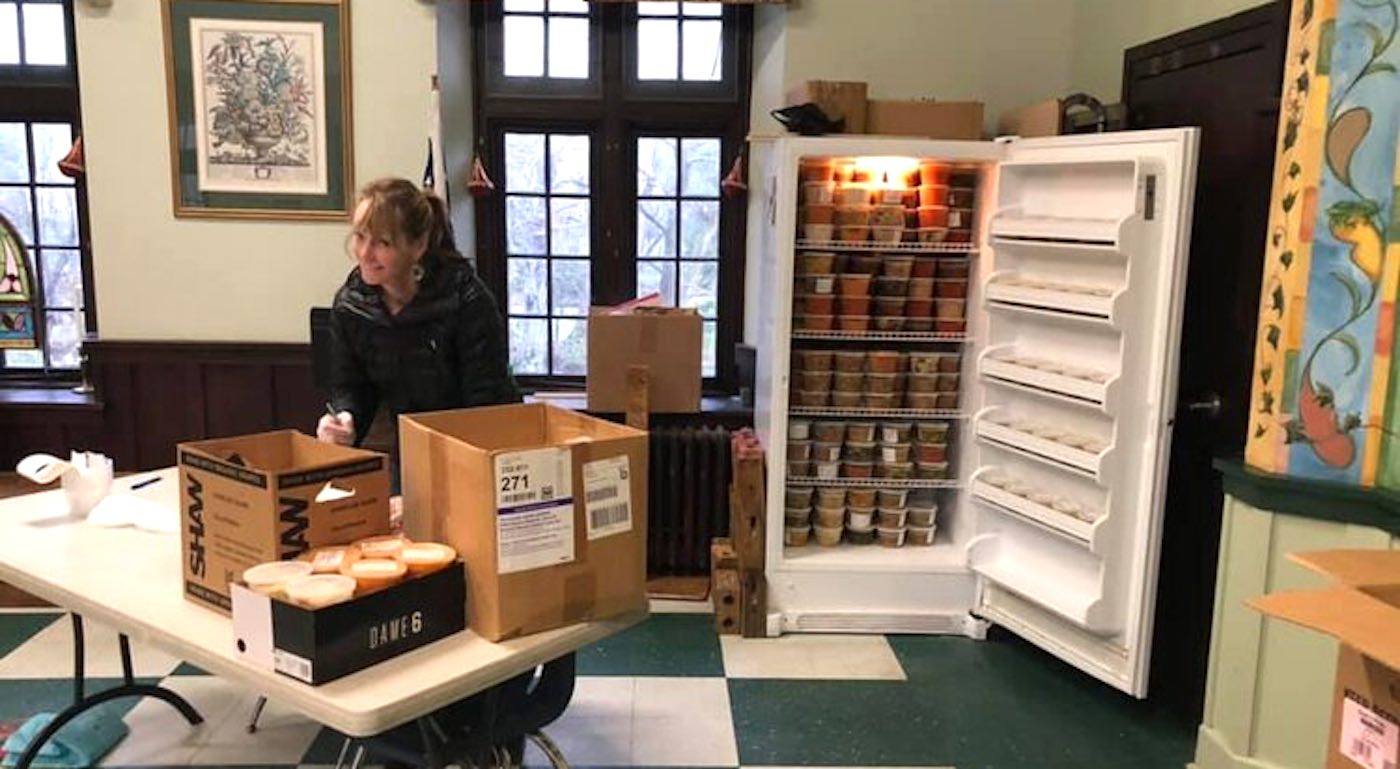 COURTESY JULIE SNARSKI When New Yorker Julie Snarski first moved to the picturesque community on the Delaware River, she felt like she had wandered onto a television set. From Yardley’s charming downtown, with buildings dating back to the 18th century, to St. Andrew’s Parish, the beautiful Episcopal church next to a tree-lined pond and historic graveyard, it’s easy to see why Snarski had trouble believing the town near Trenton, New Jersey was real. Not only is Yardley, Pennsylvania real—it’s really kind, too, and its been named one of America’s 50 Nicest Places by Reader’s Digest. For nearly four decades, on the third Sunday of every month, St. Andrew’s parishioners have been meeting in the church parish house and assembling meals for elderly and shut-in residents of the five-county Philadelphia area. The coronavirus ended their proud 37-year streak. But church members figured out a way to continue their essential service, just as the need skyrocketed. Caring for Friends, the organization that distributes the meals, came up with the idea for the parishioners to make meals in their homes. They enlisted neighbors to help, and pretty soon the volunteers were cranking out 1,000 meals and 400 containers of soup each week—almost ten times more food than before. |
||||||
Why The Four-Way Test is my ethical guideEditor's note: I have been very fortunate to have met PDG S.R. Yogananda a number of times in Bangalore and was invited to visit him at his home. 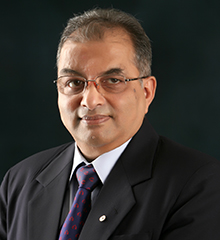 S.R. Yogananda By S.R. Yogananda, past district governor, past regional Rotary Foundation coordinator, and a member of the Rotary Bangalore East, Bengaluru, India The year was 1987. I had come back from the Sultanate of Oman and was running a consumer products distribution company in Bangalore, India, when a business executive came to my office one evening. He said “I have been watching the way you do business. You are not taking short cuts, you have asked your staff and accountants to follow all the government regulations. I would like to invite you to join my Rotary club.” Rotary, he said “amongst other things, stands for integrity” After attending a few meetings, I was inducted into the Rotary Club of Bangalore East during a colorful event in a lovely atmosphere. I attended all club and district events and began to gain a deeper understanding of this wonderful organization. I was delighted to learn that Rotary does not endorse any particular religion and is beyond boundary restrictions. Integrity is a pillar on which Rotary stands. 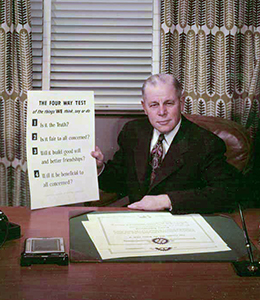 Herbert J. Taylor, 1954-55 RI president, in his office holding a large copy of The Four-Way Test. circa 1954-55. The story of Herbert Taylor, the past RI president who created The Four-Way Test, fascinated me, so much so that when I became president of my club I put up a large sign of the test along a busy road in Bangalore. I got it printed on a silver plate and gave it as a memento to every speaker at our meetings. I also gave it to our members on their birthdays and wedding anniversaries. I served as the national coordinator and awards administrator for a national essay competition on The Four-Way Test held all over India, administered through Rotary clubs. This project, held for five years, was sponsored by District 6400 and the Rotary Club of Windsor, Canada. Many times in my business, I made decisions that to an outsider might have looked unwise. There was an occasion when we could have bought a product without the taxes and sold it to make a handsome profit. When this proposal was brought to my attention, I put my foot down and said no. It failed The Four-Way Test. It was not fair to the tax authorities and to other dealers who did not have this advantage. Another incident etched in my memory, even before joining Rotary, I was heading the special equipment division of a leading company in the Middle East. I was handling global tenders and multimillion-dollar deals. I was sitting with a top ranked bureaucrat from an important ministry who was a major customer, and he asked about the delivery of a piece of equipment that had been delayed due to a problem at the loading port. I was tempted to lie to avoid embarrassment, but working up my resolve, decided to tell him the true reason for the delay. Surprisingly, in my future dealings with him, he seemed to treat me with increased respect. Now I see this as validation of the principles behind The Four-Way Test. The Four-Way Test is one of our great benefits as members of Rotary. It is a trustworthy ethical guide. And we have an opportunity to share it with eager young minds to the benefit of all. |
||||||
Discovering the power of Rotary during a pandemic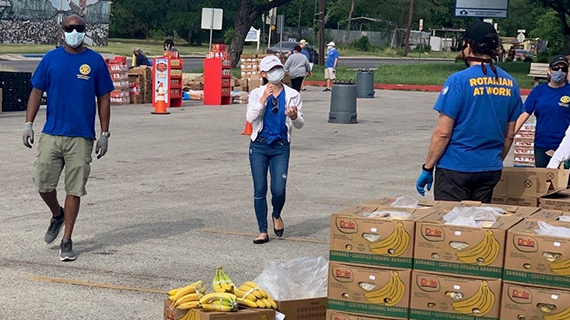 Members of the Rotary Club of San Antonio, Texas, sort items for a food drive in a school parking lot. By Nathan Rizzo, Rotary Club of San Antonio, Texas, USA I have been a member of my club for two years, but it was in the midst of the COVID-19 pandemic that I learned what it truly means to be a Rotarian. When my state of Texas went into quarantine, our club president, Brandon Logan, set up a ‘virtual happy hour’ on Thursday evenings. It was amazing to see all of the friendly, smiling faces of my fellow Rotarians. We spent an hour catching up; and then our conversation turned to service, and what we could do to help during the pandemic. Our club had adopted a local elementary school, the Martin Luther King Academy, for the 2019-20 Rotary year. We had already created a Rotary Reading Room at the school to provide a quiet place for the students to read and do homework. We also made improvements to the campus through a program we call Kingdom for Kids. We knew we could not abandon the school during this time of need. When we reached out to the school principal to ask how we could help, her answer was succinct. They needed: 1. Food 2. Access to food drives 3. School supplies. It was in organizing an event to meet those needs that I learned about the power of Rotary. Our club had connection with the San Antonio Food Bank and the United Way. Within a week, we had a project confirmed and scheduled. We had offers of trucks, boxes, and anything else we needed to run the food drive, and it all came from our members. Three weeks later, we had 60 Rotarians, 10 other volunteers, and staff at the school ready for our first Saturday delivery. The plan included sorting food pallets dropped off by the San Antonio Food Bank in the parking lot of the school, creating separate stations for individual food items. Volunteers would then drive by each station while other volunteers loaded the items into vehicles. We had a well-thought-out plan. But then 250 cars showed up, more than double the number we anticipated. Fortunately, our club has so many outstanding leaders that we were able to pivot in a short period of time and rearrange the drop off site, repacking food to feed as many families as possible. Each family received meat, vegetables, fruit, non-dairy milk, bread, flour, and other staples. Through our third distribution, we have delivered over 100,000 pounds of food to serve approximately 5,000 people. I knew our club was more than just a “lunch” club but I was amazed at how quickly we were able to come together to serve our community in such a meaningful way. I truly believe that when Rotarians unite in a mission, we can do anything. |
||||||
Rotary Supports NH Food BankOur club and many other other clubs in our district are supporting the NH Food Bank through a Global Grant. The food bank will receive more than $100,000 through the grant. 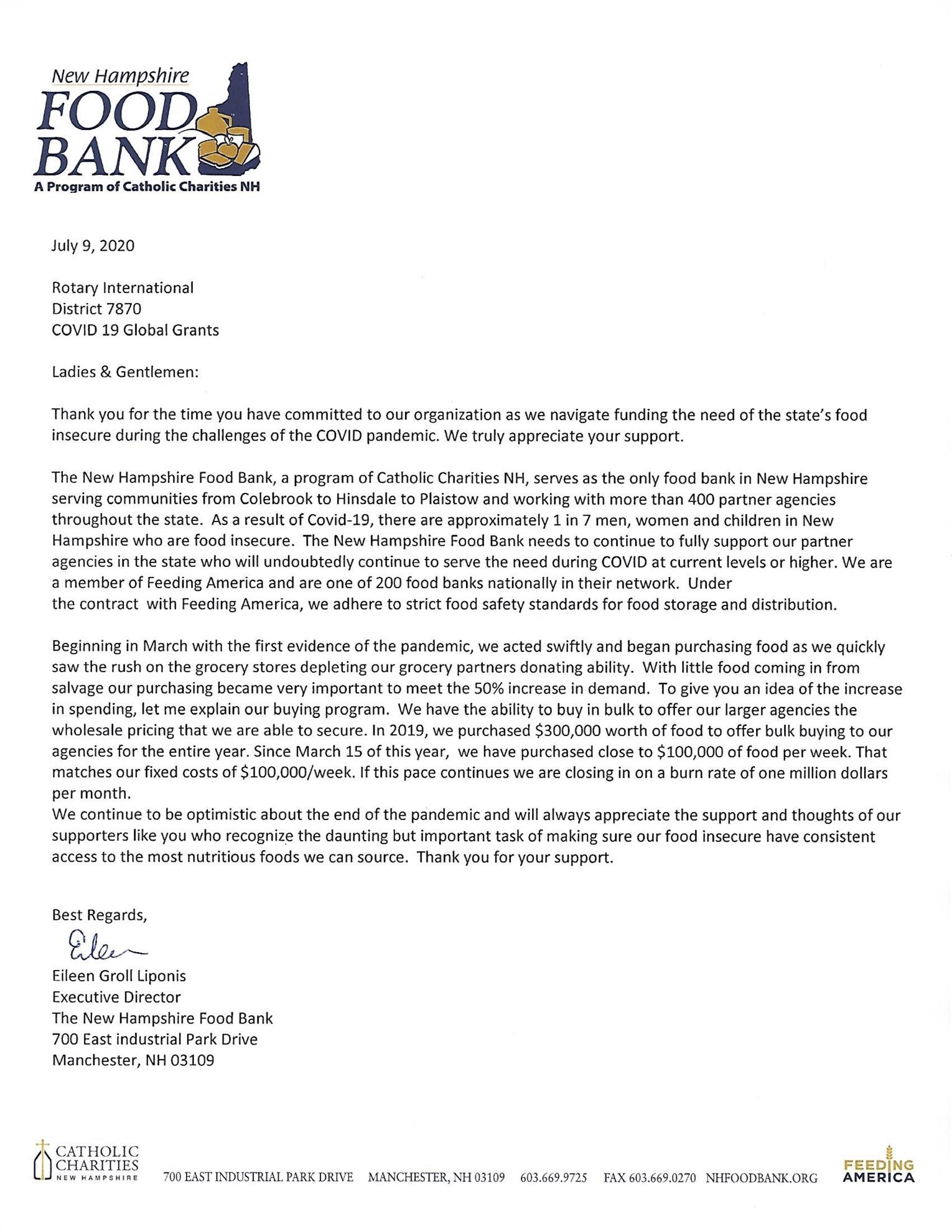 |
||||||
Small grant leads to big changes for Tanzanian girls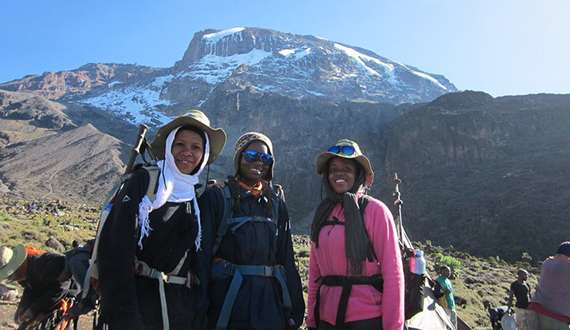 Kisa mentors on a climb of Mount Kilimanjaro with Curt Harris in 2018. By Curt Harris, past governor, Rotary District 5450 Although I joined Rotary in 1997, it wasn’t until I had the opportunity to travel to Tanzania to climb Mount Kilimanjaro as a Rotary-sponsored fundraiser three years later that I really felt I had become a Rotarian. This was my first opportunity to visit a developing country and see first-hand what poverty looks like. It is quite an eye-opener. I also got to observe some of the great things that Rotary was doing in the area. On that trip, our team of 11 climbers raised nearly $300,000 to support the Selian Hospital in northern Tanzania. Three years later, I returned with a smaller team, raising $125,000 to help build Selian Hospital’s new sister facility near downtown Arusha. Kisa mentors Some might think climbing Kilimanjaro five times a little strange, and they might be right! But the last two times, in 2016 and 2018, I led teams that did something truly special. On each of these climbs, we were joined by some young Tanzanian women who were graduates of the Kisa Project, a program sponsored by AfricAid. It provides robust mentorship opportunities that help secondary school girls learn skills like confidence, leadership, and resilience in order to succeed in school and beyond. In fact, 97 percent of Kisa scholars continue to tertiary education, compared with a national average in Tanzania of 3 percent. It’s a remarkably effective program. The young women who joined us were so excited to be part of our climb. Very few women in Tanzania get to climb Kili – they typically cannot afford it and the culture discourages it. We were also excited for them to join us, because it gave us all a chance to hear firsthand the stories that led them to become the confident, successful, university-educated women who now serve as Kisa Project mentors today. One of the girls on our 2018 climb was named Ellie. Over dinner one evening, she shared that when she was young, her dream was simply to go to school. Ellie was the youngest of nine children with a single mother in rural Tanzania. Girls in her village didn’t go to school. They stayed home, did chores, hauled water, got married, and had many children. But Ellie had this dream. She snuck off to school whenever she could. Sometimes the headmaster would send her home. If her brothers found out, they would beat her. But she would always go back. Finally, the headmaster and her family gave in, and Ellie could go to school. She graduated, went to college and now is a Kisa Project mentor. She even started her own nonprofit, Her Journey to School, through which she works to convince parents in Tanzania to educate their girls. Now, here’s the real takeaway: Twenty years ago, my Rotary club in Evergreen, Colorado, had invited Ashley, a local 15-year-old girl, to talk about an idea she had for a nonprofit. Our club gave her the chance to speak (and maybe a little confidence), then passed the hat to raise about $900. She used that money to start AfricAid. Two decades ago, this one small grant from a club halfway around the world helped start a process that has since mentored 10,000 girls, giving them the skills to lead the lives they choose and create a ripple effect of change in their communities. As Rotarians, we do a lot of good. But, sometimes we don’t always realize the long-term impact of our work. So let’s all remember – especially right now – that even a seemingly small effort can have such a major impact in your local community, or even half a world away. |
||||||
Assisting Rohingya refugees in Bangladesh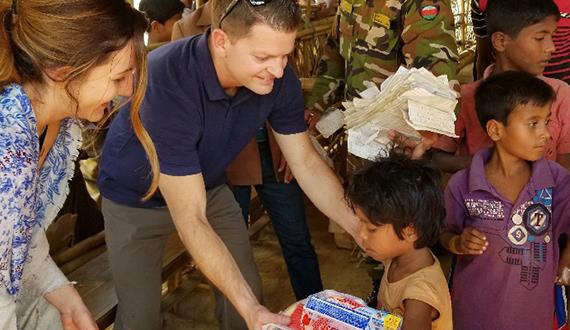 Eric Lee and his wife hand out supplies to refugee children in Bangladesh. By Eric Lee, a member of the Rotary Club of Cheat Lake, West Virginia, USA Service above self was the underpinning theme of our aid project for Rohingya refugees in Bangladesh this year. The project was a colorful example of how Rotary works around the globe in the service of others. Clubs from the United States and Bangladesh delivered dry goods to Rohingya refugees in the Bahlukali camp along the Bangladesh-Myanmar border in February. The Rohingya are an ethnic minority who fled violence in Myanmar for refugee camps in southern Bangladesh. More than 700,000 refugees have entered Bangladesh since August 2017, and most came with just the clothes on their back. They are in desperate need of food, supplies and basic sanitation. Refugees wait in line for supplies. Cox’s Bazaar is the closest city to the Rohingya refugee camps, and the Rotary Club of Cox’s Bazaar engages other clubs and various non-profits to facilitate the delivery of goods and services. The Rotary Club of Cheat Lake in West Virginia, USA, coordinated efforts with Cox’s Bazaar Rotary to deliver clothing, personal hygiene products, and water purification tablets to the Rohingya refugees in Bangladesh. Challenges like transferring goods, security on the ground, and obtaining proper authorization were managed between the two Rotary clubs. The goods were purchased and shipped from wholesale markets from the capital of Bangladesh, Dhaka. Once the products arrived in Cox’s Bazaar, then our group worked in a small bungalow on the Bay of Bengal preparing separate packages for men and women. Maji, or tribal captains, are village leaders that manage groups of about fifty families. They were instrumental in helping coordinate with the army and determine fair distribution across thousands of refugees. Many refugees were shaking as they came through the line to receive their package. Some were sick, some were visibly scared. Distribution went off without a hitch, in part, because members from multiple Rotary clubs made a significant contribution to the project. Together they established resources and logistics for the safe and successful distribution of aid. Rotary clubs around the world should look to examples like this for ideas on future refugee service projects. |
||||||
Rotary in Kirkintilloch is alive and well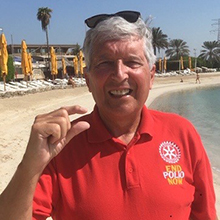 Bob Tomlinson By Bob Tomlinson, president of the Rotary Club of Kirkintilloch, Scotland The COVID-19 pandemic is horrifying. The lives lost are not just statistics. Each death is a life cut short and a family and friends left grieving. This reality is something we must never forget. Our way of life has been profoundly challenged. For organizations, such as Rotary, a common question asked is: “what will Rotary be like if we survive this?” The questioner invariably makes the addendum, “We’ve never been through anything like this before.” As individuals, very few of us have been through anything like this. But Rotary International has, several times, and came through to the other side — 1918 Spanish Flu, the Great Depression of the 1930’s, World War II, Korean and Vietnam wars, etc. This is the account of how one club is working to survive. My club, the Rotary Club of Kirkintilloch in Scotland, meets every Tuesday night at the town’s golf club. Rotarians started meeting in Kirkintilloch in 1953, a few hundred meters from the site of a Roman fort built in 142 A.D. which marks the northernmost point of the Roman Empire. After only 20 years, the Romans pulled out. Now tourists come to Kirkintilloch to see the remains of the Antonine Wall. On the last Tuesday club meeting of February, the world was talking about a virus coming our way, but we knew the health service would deal with it. We arranged for our usual Saturday food collection to donate to households on the breadline, something we did three of four times a year. We had no idea what was ahead of us. We had six new members in the club and their membership reduced the average age by a good margin. They helped at the food collection. Everyone in the club has a title. Our “transport manager” owns a road building company. He provides a truck for us to carry the donated food for distribution. He said two things that day that brought silence. “Don’t shake my hand” and “I’m just back from Italy and going into isolation!” He was not a carrier, but the pandemic had become real. We had one more “normal” meeting before Scottish lawmakers in Edinburgh started talking lockdown. Club members decided to have a “Last Supper” meeting at the golf club, where we socially distanced and agreed things had to change. That was 10 March. Within two days we set up a WhatsApp Group – advice given by our new younger members and grandchildren. But ultimately Zoom worked better for us and we held our first meeting a week later. However, some members couldn’t handle Zoom or didn’t trust it so we set up a system to ensure every one of us was kept in the loop. There is a secure WhatsApp Group where all members can express opinions or give suggestions. Every Sunday each member, those taking part in Zoom or not, receives the agenda for the upcoming meeting. Any member who cannot take part in the virtual meeting is phoned by a club officer. Thanks to virtual meetings our attendance has sky-rocketed. Four new young members have joined. One of our youngest member is co-coordinator of our local council’s COVID-19 response team – we are very proud of her. We have four applications from young people who will join us at the start of July, so their subscriptions begin with the new Rotary Year. In-person fundraisers had to stop, but as we don’t pay for meals, club members have donated thousands of pounds for Childrens Hospices Across Scotland, Glasgow Children’s Hospital Charity, Heart Stroke Charities and especially for COVID-19 response. Our message to the new members is simple –“Tell us where you want Rotary in Kirkintilloch to go and we’ll help you go there.” Rotary in Kirkintilloch is alive and well – but young and old can’t wait to meet together again in a new and exciting world. |
||||||
Rotary Feeding Time in Penacook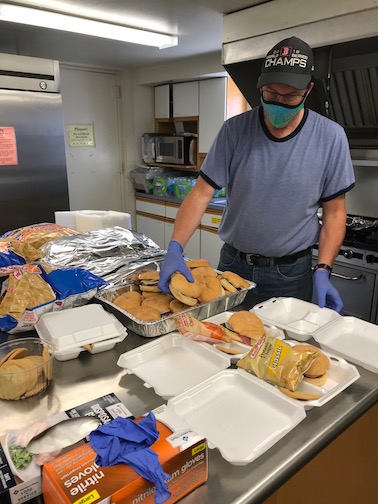 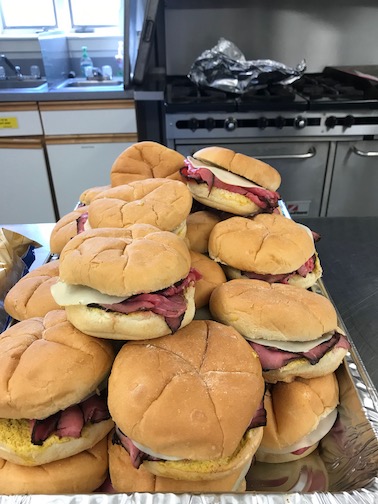 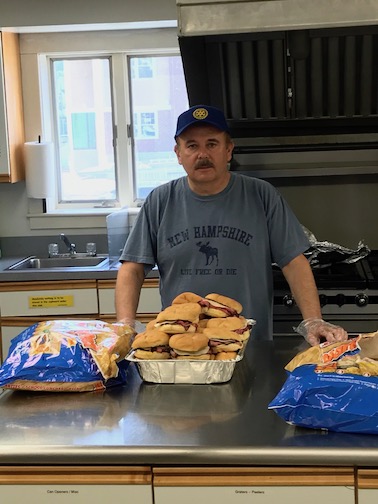  The Capital City Sunrise Rotary Club has sponsored and served the Open Door Community Kitchen meal at United Church in Penacook every fourth Wednesday. During these most difficult times we are constantly challenged on many different levels: socially, financially and mentally to reference a few. The Capital City Sunrise Rotary Club places service above self each and every month hopefully helping those in need to cope on multiple levels. As we take time to embrace those in need of a conversation or a simple smile, it is our desire to spread friendship and compassion. Yes, the meal was delicious and we do hope the conversation was nutritious. Our thoughts are with you our friends. |
||||||
Rotary, polio and COVID-19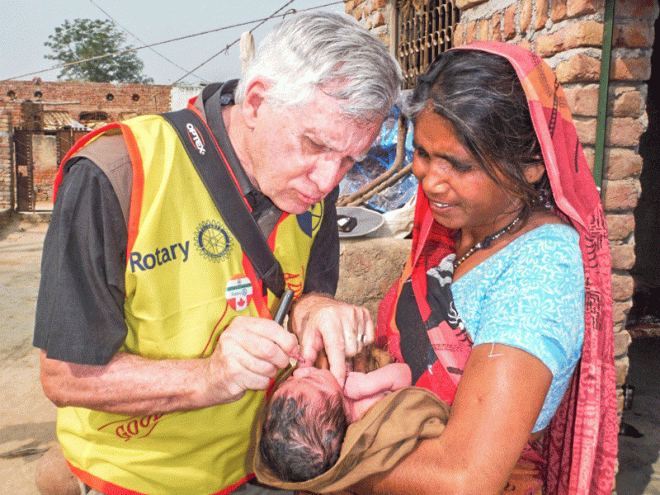 Excerpted from The Indian Rotarian Over the coming months, the extensive polio infrastructure Rotary helped build will be used to support preparedness and response to the COVID-19 pandemic. Building on decades of experience stopping polio outbreaks, Rotary and our partners have a critical role to play in protecting communities from this global pandemic, just as we did with Ebola, yellow fever, and Avian flu. This truly represents the “Plus” in PolioPlus. We must take every precaution to ensure that polio eradication activities do not contribute to COVID-19 transmission. In order to observe global guidance related to physical distancing and hygiene, the Global Polio Eradication Initiative (GPEI) has advised countries to pause polio immunisation campaigns during the COVID-19 outbreak response. While responding to COVID-19, Rotary and our GPEI partners will take every step possible to continue protecting children and avoid a resurgence of polio. We will maintain essential polio eradication work — including surveillance, immunisation in certain high-risk areas, and maintaining our vaccine supply — so that polio campaigns can begin without delay as soon as it is safe. Responding to COVID-19 and polio are dual priorities. The most important thing that Rotary members can do to continue the fight to end polio is to sustain our commitment to polio eradication and reach our fundraising goal of $50 million this year for polio — while also supporting COVID-19 response activities. Districts are encouraged to consider giving District Designated Funds to PolioPlus. Donations to DDF are matched 1:1 by the World Fund, then 2:1 by the Gates Foundation for a total of a 6:1 match. In the midst of a pandemic, it is understandable that attention to polio eradication will be diverted, but this makes it all the more vital for Rotarians to remain strongly committed to fighting polio and not let our progress erode. |
||||||
Touching lives in Lagos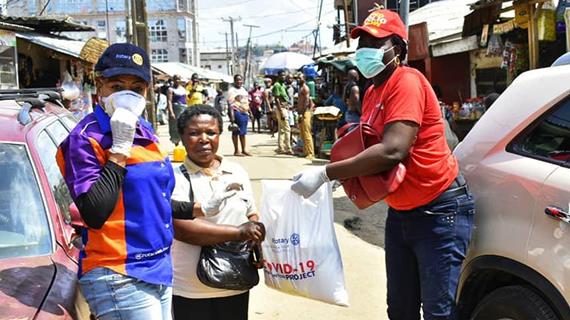 Rotary members Omolara Omotosho and Bolatito Olaboye deliver food in Lagos, Nigeria. By Michael Effiong, Rotary Club of Ikeja South, Lagos, Nigeria All around the world, the coronavirus pandemic is changing our lives and creating a new normal. But our members have seen the need and risen to the challenge. Now, more than ever, we need to show Rotary’s goodness as we practice Service Above Self. Long before a nation-wide lockdown in Nigeria, Lagos had initiated its own stiff measures to stop the spread of the virus. This meant that our usually engaging meetings had to move online. The platform we decided to use was Zoom, and it has been our playground, a place where we share ideas and make plans to help our community. In our country, hundreds of people congregate in market places, making it a place susceptible to the spread of the virus. We decided to build an awareness campaign to reach the many different levels of society that come to the markets, and encourage social distancing and hand washing. In conjunction with Fatee Mohammed Foundation, we visited three markets, the first being Abbatoir Market, in Agege, a Lagos suburb. Our team used a megaphone to instruct vendors to maintain a distance of two-meters. We also instructed people how to wash their hands for at least 20 second with soap and water, and handed out bottles of sanitizer. It was hectic but we got the job done! The lockdown forced a lot of people out of work who were just making enough to live on. With this in mind, we initiated an Emergency Food Response Project, with support of a grant from Rotary District 9110. We delivered a week’s worth of food supplies to families on 17 different streets in the Alausa Community. We also distributed packs of rice, Garri (a local cassava staple), noodles, spaghetti, tomato puree, vegetable oil, sanitizers, and Vitamin C tablets (to help boost immunity). Our feelings of joy and satisfaction surpassed any we have previously experienced, including our participation in Rotary Family Health Days two years ago. As part of an attempt to embrace the new normal, we launched a Zoom-based health club, which we dubbed ROKEJAS. We meet every morning to exercise and share tips for healthy living. It enables our members to break the monotony of being stuck at home every day. As our country eases up on the lockdown, it is a dangerous time for Lagos. Roads that were temporarily empty are now busy again. Large crowds form in front of banks. And not everyone is following the instructions to wear masks. As a club, we feel the urgency of helping our government spread health safety information and convince people to practice social distancing. We are also contemplating a project to collect and donate masks to everyone we can reach. Our passion and commitment to service must not stop. Now is our time. We as Rotarians must continue to touch lives as we show our desire and ability to do good. |
||||||
Using science of resilience to strengthen Rotary clubs during COVID-19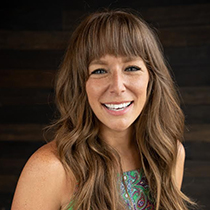 Jenny Stotts By Jenny Stotts, District 6690 membership chair Resilience is the process of adapting in the face of adversity. When we experience a traumatic or stressful event, our brains activate a number of pathways to protect us. These biological processes help keep us safe. It’s in the recovery from these events that we grow and change and become stronger. Many of us are living this reality right now in the face of the COVID-19 pandemic. The good news is, there are ways to grow our capacity for resiliency. And we can use this time to strengthen Rotary, by working together to grow and foster resilience in our fellow members and our clubs. Here are a few tips: Connect: A critical building block for resilience is simply connecting with others. Check in with fellow members. Call them, send them a message, work to make sure they can access your virtual meetings. As a club, consider connecting with other clubs to weave yourself further into the global fabric of Rotary. Perspective: When we experience ongoing adversity, it is far too easy to lose hope. Help members maintain a realistic and positive perspective. Rotary clubs are facing challenges right now including adjusting to new meeting platforms and worrying about membership or giving. Remember that the challenges you face today are not a reflection of your future. How you respond to today’s challenges will shape the future. Wellness: We are living during a time where words like “quarantine,” “lockdown,” and “zoom fatigue” are common and relatable. Promote and prioritize wellness among your members. Use your virtual meeting to ask members to share ways that they are taking care of themselves and their families. Be gracious when a member needs to take a break, skip a meeting or have an extra few days to respond to an email. Now is not the time to keep points or compete with who is doing more or less. Speak and listen with kindness. Purpose: When we give energy to others, it has a way of recharging our own batteries. It fosters a sense of self-worth and gives us feelings of purpose and validation. Plan service opportunities with your fellow members that you are able to accomplish and approach. Offering smaller projects concurrent to your larger, ongoing projects gives everyone in your club an access point to service. Gratitude: We benefit from mindful and intentional reflections in gratitude. It can promote the release of neurotransmitters like serotonin and dopamine, which help us feel joy or happiness. Take a moment to share thanks to your fellow members and create opportunities for your entire club to extend gratitude to your community and your partners. When we collectively care for our members, we help create pathways to grow and foster resilience. When we scale these practices to the organization level, we unlock new potential to strengthen our clubs and enhance the member experience. The world deserves Rotarians and Rotary clubs that are resilient, adaptable, and strong. Remember to take care of one another. But, take care of yourself, too. You deserve to be your best and most resilient self. |
||||||
7 reasons young people should join Rotary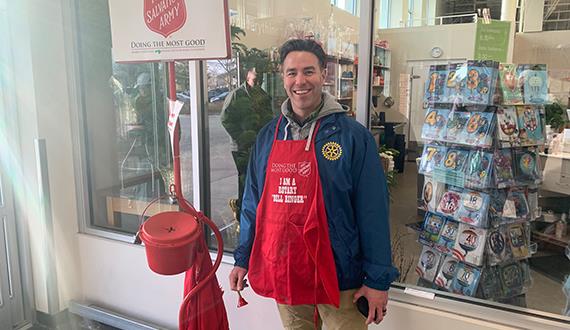 Ryan Bell explains what Rotary has to offer young people, including exciting service opportunities that will connect you to others in your community. By Ryan Bell, Iowa City District 6000 Public Image Co-Chair I have a message for all you young people out there who may never have heard about Rotary. Or if you have, it was from a parent or grandparent who spent more time talking about the lunch menu or how great the salad bar is. If that’s all you’ve heard about Rotary, then you’re missing a lot. And let me tell you why, in the middle of this pandemic, Rotary is more relevant than ever. It’s definitely something you want to know about. Rotary is kind of a big deal. With over 1.2 million members worldwide, it’s the biggest service organization on the planet. If you’re a fan of the planet, that’s just what Rotary wants to preserve. Our members are working on helping save mothers and children, supporting basic education for children, and fighting diseases. Many of those members are now using their connections and resources to help combat COVID-19. Rotary has no religious or national affiliation. We don’t care what you believe or who you voted for. The way Rotary sees it, the most important thing is that we come together to accomplish some much-needed tasks for a group we like to call humanity. Rotary efforts have already helped eradicate 99.9 percent of global cases of polio. If you’ve never heard of polio, you can thank a Rotarian for that. Armed with a massive investment and partnership with the Bill and Melinda Gates Foundation, Rotary has taken on the incredible task of ridding the world of this crippling disease so no child need get it ever again. In addition to these large-scale, international projects, Rotary clubs are always working to improve their own communities. Just check out the list of activities Rotarians are involved in to help their communities get through this pandemic. I would never pressure you to do something that will improve your life in every conceivable way. But let me tell you the benefits I’ve personally seen from being involved in Rotary for seven years. 1. You’ll make local connections. During the pandemic, Rotary clubs have been staying connected through virtual meetings, which you can join conveniently from the safety of your home. Even in these unusual times, Rotary is keeping people connected. We all need that sense of connection. You will meet wonderfully diverse people from many walks of life. For many of us, this is the main appeal: local friends, local colleagues, clients and contacts. It’s actually why a group of young professionals in Chicago started Rotary back in 1905. When it comes to networking and advancing your business, Rotary membership isn’t like the fickle, transactional networking and “referral” groups you’ve likely been encouraged to join. It’s authentic and real. 2. You’ll make a global impact. Bill and Melinda Gates saw the efficiency and effectiveness of Rotary, and have partnered with us to commit $450 million to eradicate polio. Once we crush polio, we’ll move on to other important challenges facing our world. 3. You’ll see your work pay off locally. Sure, the whole “saving the world” thing is cool, but if you’re wanting to make a difference a little closer to home, don’t worry, Rotary does that. We are leaders in our communities. We are a funding source (through a grant program), a volunteer source (because we’re awesome like that) and we even come up with our own initiatives, like in 2018 when we planted over 1.2 million trees. 4. You can inspire the next generation. We have amazing youth programs that involve students in service and leadership. Rotary Youth Leadership Awards weekends fuel and shape the potential for greatness that’s already inside these students. They get fired up about making the world a more peaceful, loving place — and have the contacts, plans, and direction to make it happen. 5. You can spend time with the Greatest Generation. Rotary includes members of all ages. Sure, Rotary has a reputation for having a lot of members over the age of 50. But there is also a ton you can learn from the Greatest and Baby Boomer generations. If you’re looking for mentoring, or just great stories, look no further. 6. You’ll get inspired. No matter what your motive is in considering Rotary, you will be inspired by guest speakers or performances, online or otherwise. I’ve seen amazing singers, legitimately awesome circus clowns, environmentalists, coaches — you name it. And virtual meetings make it easier for clubs to line up dynamic speakers from even further away. 7. You’ll put your energy where it’s really needed. Here’s (perhaps) the best part of getting involved in Rotary: These clubs need you like crazy! We need leaders from every community in the world to join Rotary and amplify our impact. Feel helpless during the coronavirus outbreak? Consider the impact you could have joining a family of volunteers committed to doing whatever is needed to help the community. |
||||||
Covid-19 7870 District-Wide Global Grant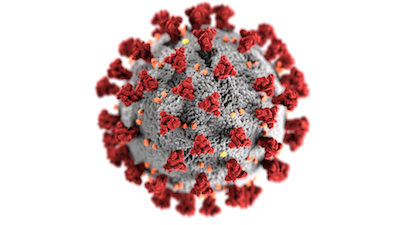 Some musings on my role as Grant Wrangler, by Tony Gilmore Some weeks ago, after I had successfully applied for a $25,000 Rotary Disaster Grant, our incoming District Governor, Steve Puderbaugh, thought that I hadn’t received enough punishment, so he asked if I would be the lead on a Global Grant for us in Southern NH and VT. Caught in a moment of confusion about the immensity of this project, I said yes. Rotary Global Grants require an international club or district to partner with the host district. The last global grant I did was for Mongolia. I worked with a wonderful host club in Mongolia’s capital, Ulaanbaatar. This time Rotary rules allowed the international partner to be just that, without any financial support. Bangalore West, a club that I had presented the Mongolian Grant to when I was in India, agreed to be our International partner. In simple terms, District 7870 has $50,000 to match the total of all clubs’ giving. With assistance from the Rotary Foundation, every dollar given multiplies three and a half times. A total of $175,000 will be given to our communities for first responders, hospitals, and nursing homes to acquire Covid-19 protective gear and supplies, and to provide financial support for food banks in both states. The key is that $50,000 is the limit available to be matched. We have had an embarrassment of riches. Our largest club has pledged more than half of the funds available for the match. Smaller clubs have pledged huge sums for their community support. The response is overwhelming. Such is the magic of Rotary. When there is a challenge, we pitch in. Big time! |
||||||
New Hampshire and Vermont Rotary Clubs Donate $25,000 to Food BanksRotary District 7870 members wanted to a find a way to respond to COVID-19 and to help people affected by it. As people of action, Rotary District 7870 is comprised of 60 Rotary Clubs in southern New Hampshire and southern Vermont. This is not the first time that they have been involved with disaster recovery and rebuilding efforts. In 2011, these Rotarians provided funds to help with the effects of Hurricane Irene’s devastation. Although Rotary Clubs throughout both state have been donating to local food pantries, it was felt the most efficient way to help with food insecurity was to support the state food banks. The New Hampshire and Vermont Food Banks service over 750 local food banks. "We are excited to be able to use this $25,000 Disaster Response Grant from the Rotary Foundation to purchase food." said Steve Puderbaugh, incoming District Governor. "Supporting our food banks is vital during this time of uncertainty. It is important to help families meet their basic needs so they do not have to worry where their next meal is coming from. " Rotary International has already supported Covid -19 efforts across the world by donating over $7 million so far. New Hampshire and Vermont Rotarians feel it is an honor to be a part of a worldwide initiative to give where the needs are most pressing. Rotary is also involved in mobilizing 1 million volunteers through the Volunteer Surge initiative. The District Rotarians are doing many other local projects in their communities in response to Covid-19. They are currently working on a much larger Global Grant to support local medical workers, first responders and nursing homes with the equipment and supplies they need. |
||||||
Thoughts & deeds from the Club PresidentThe Capital City Sunrise Rotary Club once again served a meal to the hungry this week at the Open Door Community Kitchen in Penacook, NH. While practicing social distancing many people remained anonymous behind masks as they arrived for a healthy meal and conversation. The food nourished their bodies as the conversation nourished their souls. People arrived early craving a fine meal as well as a few moments to socialize as they embarked on their individual journeys from isolation to friends. There are times in life when a smile, a conversation, a friendly voice given in a moments time… is the best medicine. The Capital City Sunrise Rotary Club was both privileged and honored to fill the void the people in our community have felt during this pandemic. We thank you for allowing us to exemplify the true meaning of “Service Above Self”. 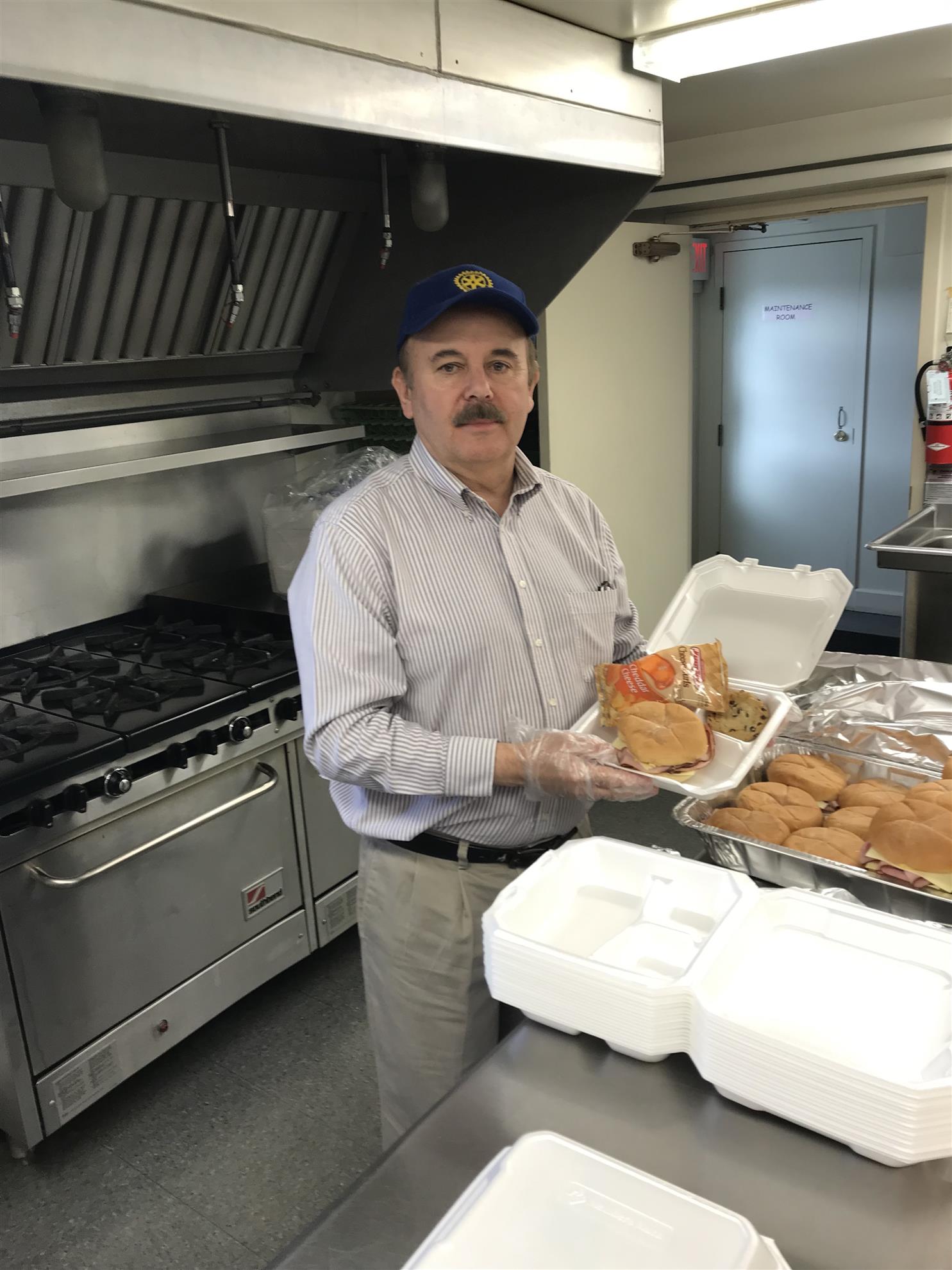 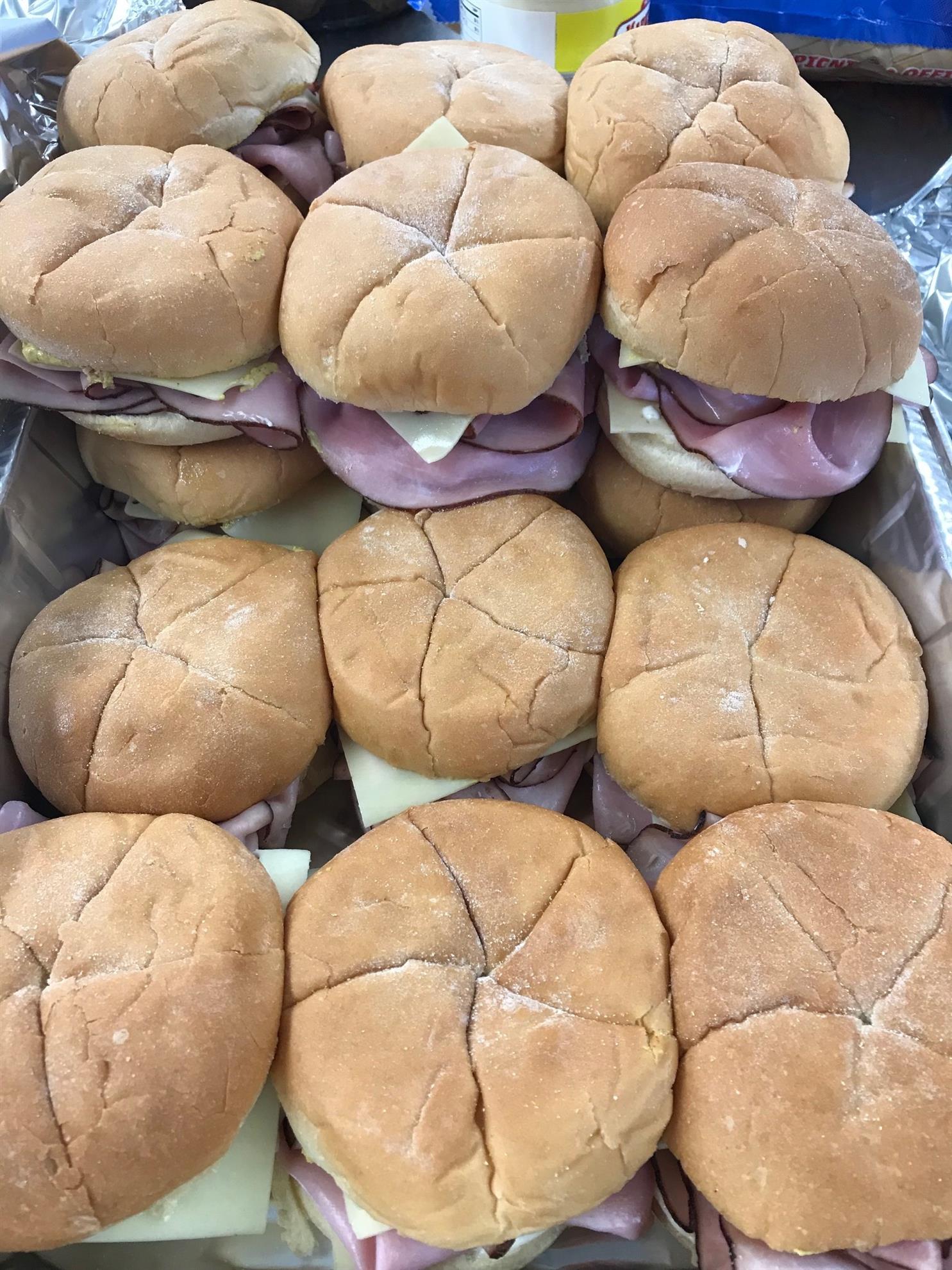 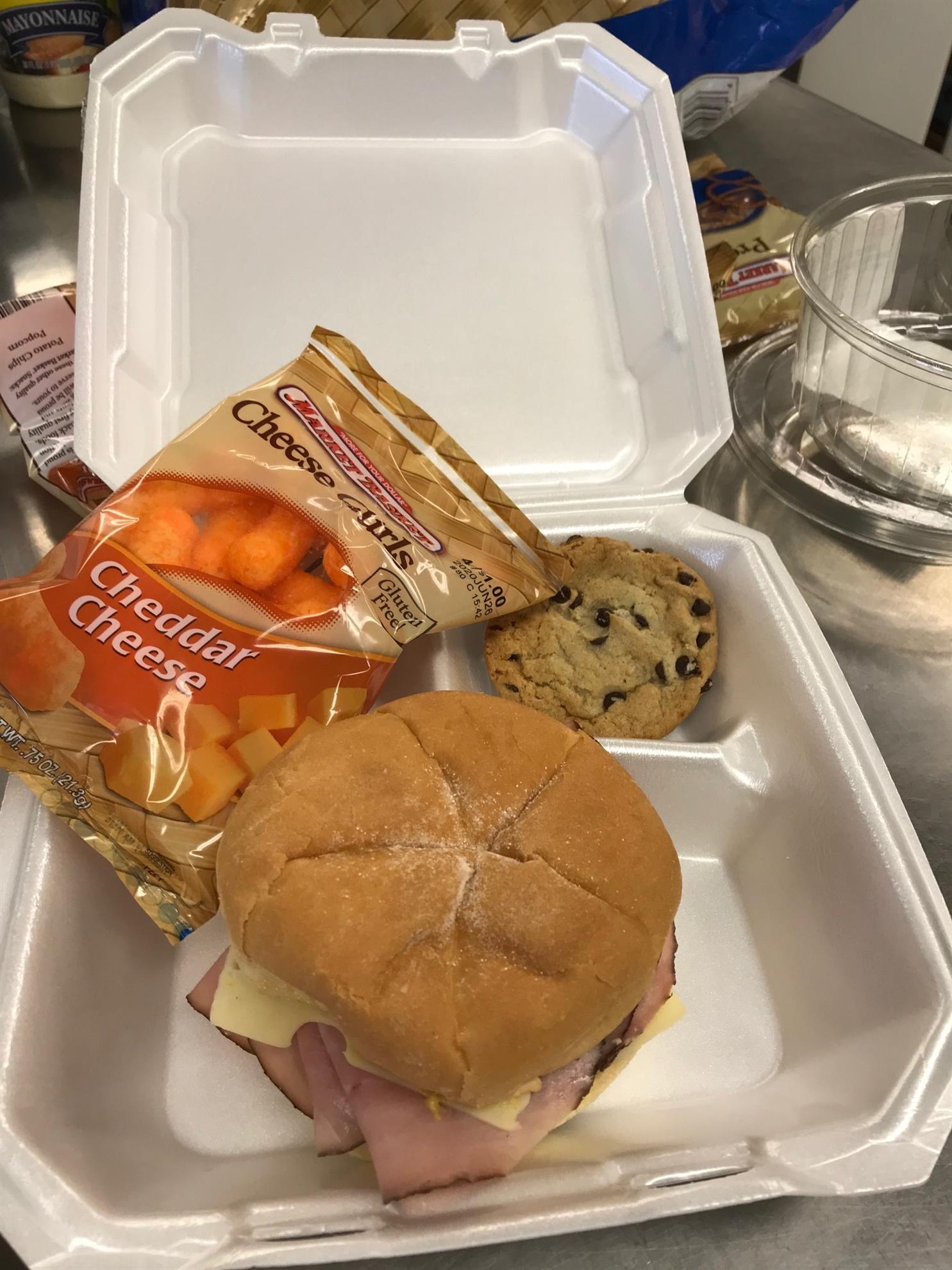 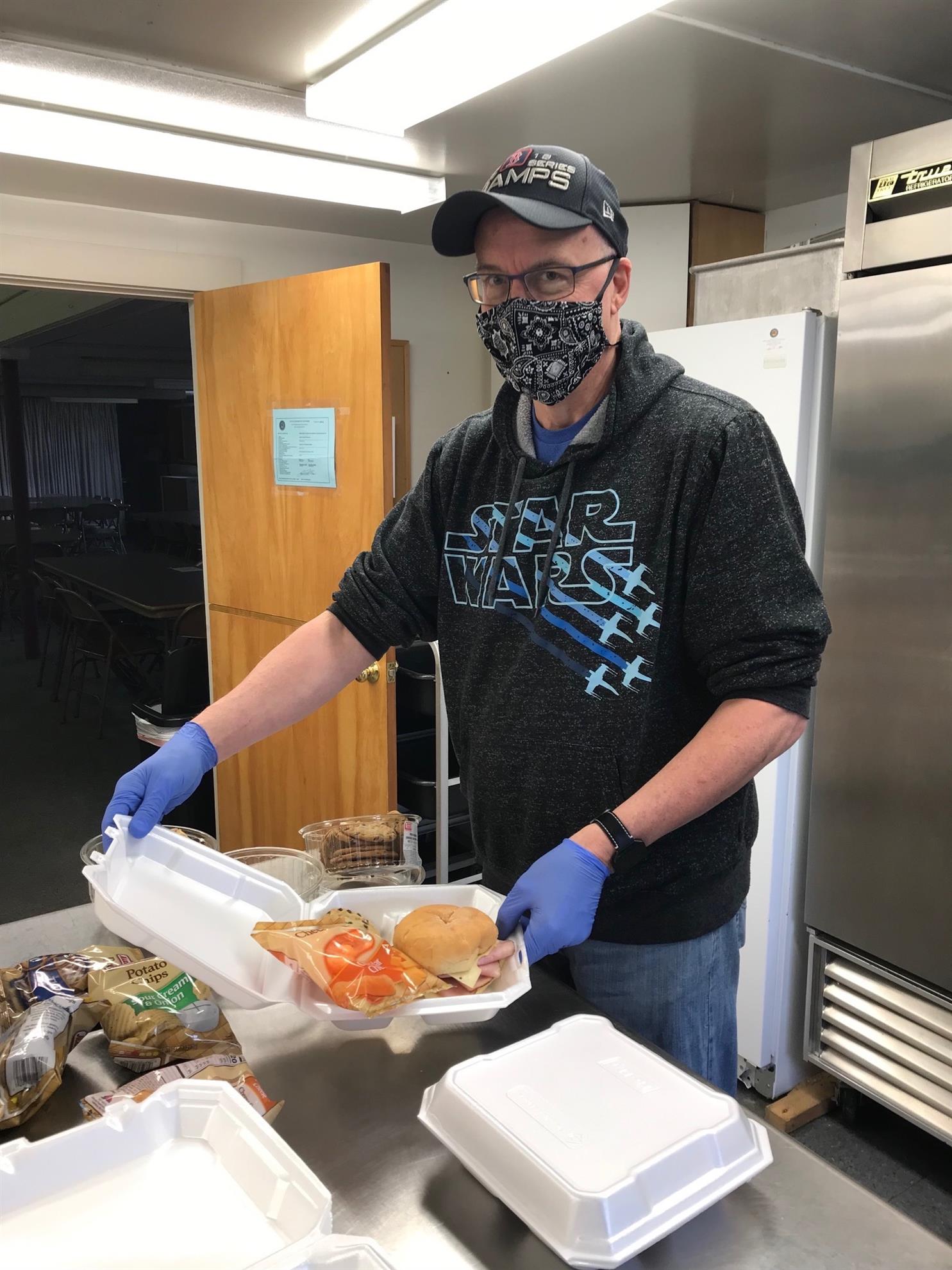 |
||||||
Rotary Clubs Fight Pandemic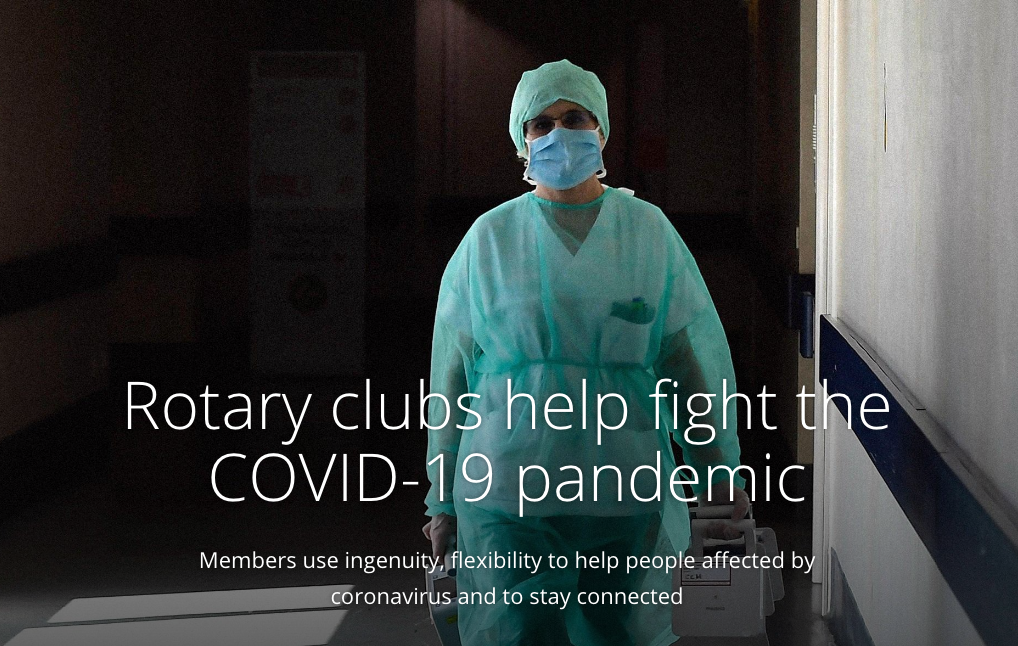 As the COVID-19 pandemic spreads uncertainty and hardship around the world, Rotary members and participants are innovating, caring for those affected, and showing that even at a distance, there are ways to help. As people of action, Rotary members are engaged in their communities — gathering for projects and offering help to those in need. But in many areas, life is changing drastically. Health experts are urging people to maintain distance from others or even isolate themselves in order to slow the spread of the highly contagious virus. Fighting disease is one of Rotary’s main causes, so members already support efforts to promote proper hand washing techniques, teach people other ways to stay healthy, and supply training and vital medical equipment to health care providers. Now they’re helping health authorities communicate lifesaving information about COVID-19 and donating protective gear and other supplies to clinics and hospitals that are under strain because of the pandemic. These are just some of the ways that members are supporting their communities right now:
|
||||||
Haitian School Receives the gift of waterAfter the Hatian earthquake in 2010, the school in Port-au-Prince that these happy young girls attended received a rainwater harvesting potable water system and boys and girls latrines from Save the Children and Pure Water for the World.
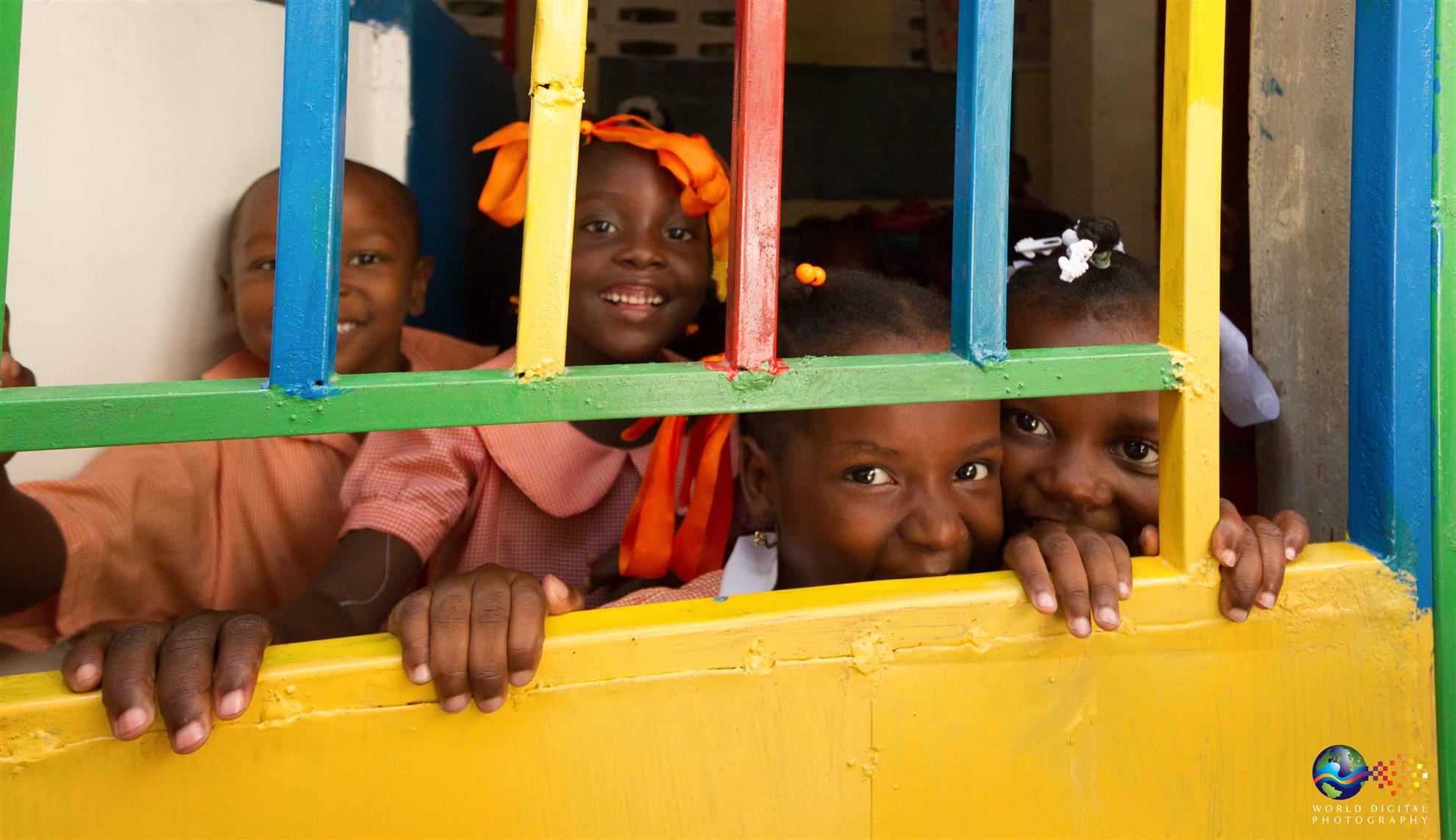 |
||||||
Feeding those in needBy President Jim Spain Feeding those in need.... The Capital City Sunrise Rotary Club served those in need of a healthy meal this week at the Open Door Community Kitchen. In these difficult times we served our usual nutritious meal with a special side dish. The side dish was compassion... compassion for the people that dined with us. Yes, they needed a meal, but fear of the unknown can only be satisfied by a person taking time to talk with the lonely.... it just took a minute to tell them - everything will be alright. It was with heavy heart the Rotarian's served this meal and provided this compassion. Sometimes you have to wonder, who is feeding who? The meal was delicious, the conversation very comforting. We left this meal with a better understanding of placing service above self. Please be safe, take the time to speak to the people. Your conversation might be the only contact a person might have with the world this day. Make a difference by serving your own side dish of compassion - it will be good for your soul. |
||||||
Rotary unites more than a million people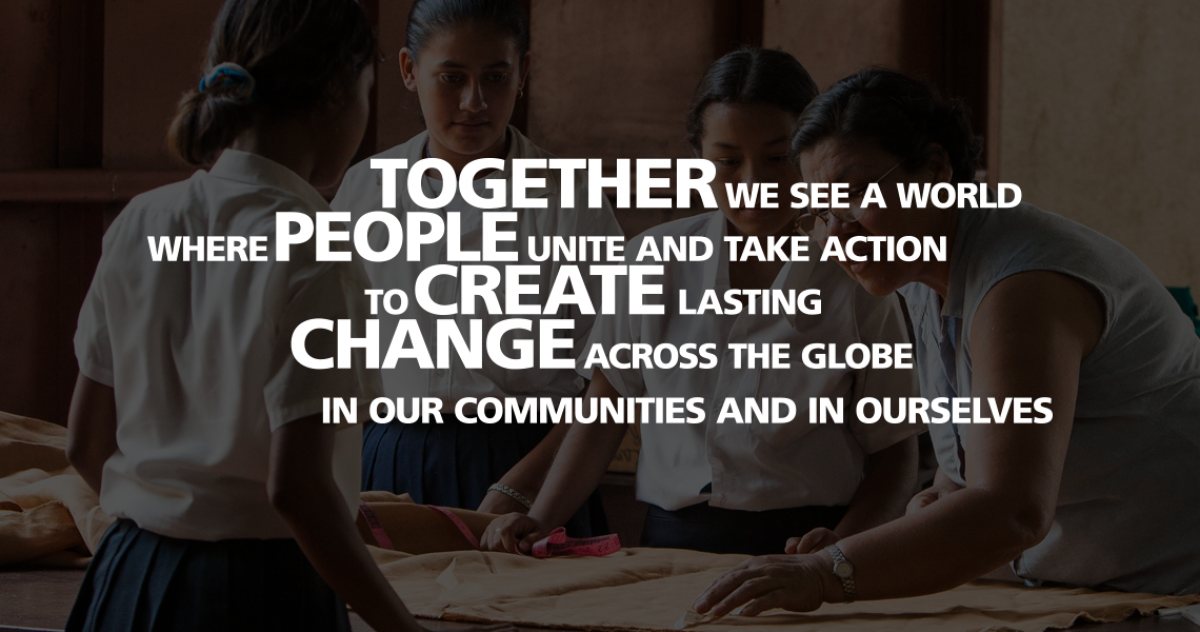 We take action locally and globally Each day, our members pour their passion, integrity, and intelligence into completing projects that have a lasting impact. We persevere until we deliver real, lasting solutions. More than 16 million volunteer hours each year. No challenge is too big for us For more than 110 years, we’ve bridged cultures and connected continents to champion peace, fight illiteracy and poverty, promote clean water and sanitation, and fight disease. 2.5 Billion children immunized against polio. |
||||||
How to engage members during the coronavirus pandemic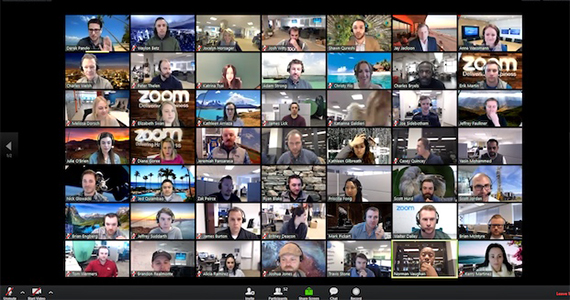 Keep members engaged through virtual meeting platforms. By George Robertson-Burnett, Zone 34 Rotary Coordinator and past governor of Rotary District 6890 These are certainly interesting times we live in. None of us could have foreseen these extraordinary circumstances brought on by the pandemic of COVID-19, the illness caused by the novel coronavirus. Rotary clubs everywhere are wrestling with the question, How do we maintain membership engagement during the pandemic? Well, this is Rotary and I am sure that these challenges will bring out our considerable strengths – ingenuity, decisiveness, flexibility, and integrity. Here in Zone 34 (Georgia, Florida, USA and Caribbean), our Rotary Coordinator team has put together a guide to assist clubs in their efforts to maintain membership engagement during these difficult times. The suggestions are not exhaustive, and many clubs will surely come up with new ideas as their ingenuity and adaptability finds new and innovative ways to maintain our fellowship. But we wanted to offer this guide to all clubs as they explore online meetings and other adaptive solutions. One of our Rotary e-clubs, the Rotary E-Club of the Caribbean, is generously offering to set up online meetings for clubs in our zone at no charge. We suggest you check with e-clubs in your area for help and advice on structuring online meetings. |
||||||
3D printable prostheses help child amputees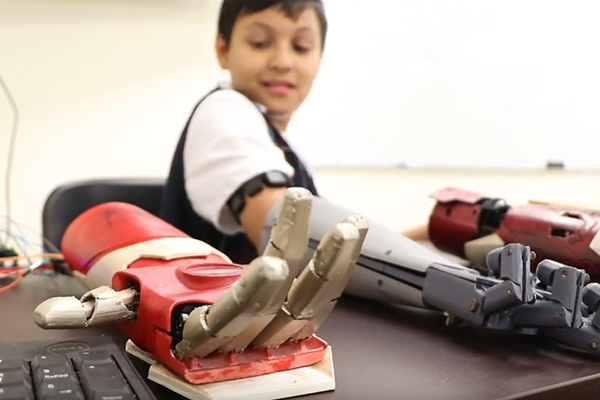 A youth tests his new prosthesis made through 3-D printing. By Rafael Vazquez Barragan, Rotaract Club of Monterrey Cumbres, Nuevo León, Mexico Three years ago, the nephew of one of my best friends was born with a congenital condition that required one hand to be amputated. As a result, he had trouble keeping his balance and when it came to taking his first steps, he fell repeatedly. He was unable to lift himself up with just one hand and would just cry until someone could help him get up. Watching him inspired me to help. I gathered several of my best friends who, like myself, had knowledge in robotics. Never would I have imagined that I would end up making prostheses, with the little knowledge I had on the subject. But as we began researching, we developed a prototype for our first model prosthetic limb. It was incredible seeing our efforts come together into a hand-crafted prosthesis made out of wood and springs, with sensors carrying signals from the brain to the artificial limb. The potential impact slowly began to dawn on us, as we realized we could help not only one person, but perhaps hundreds or thousands. In Mexico, there are more than 27,500 amputations a year and only 2,500 prosthetic limbs are produced annually. This means that less than 10 percent of the population has access to one. The problem is not a lack of production, but the high cost. Experimenting with different kinds of technology, we looked for a bio-compatible material that would let us get away from having to use titanium, a very expensive material typically used in prostheses. We began working with ABS plastic, an opaque thermoplastic and amorphous polymer that can be used with 3D printing. By using thermoplastic polymers, we reduced the cost by more than 90 percent and also adapted our model to be a good fit for children. Our processes let children choose a robotic prosthetic limb with interchangeable superhero designs. To make our effort more sustainable, we began to look for strategic and commercial partners. We teamed up with our university’s robotics team to present our project during a FIRST Robotics competition in New Orleans and received the Engineering Inspiration Award, which celebrates outstanding success in advancing respect and appreciation for engineering within a team’s school and community. The project was also nominated for a 2019 Rotaract Outstanding Project Awards We continue to work with different organizations, including Rotary, who have offered us support since the beginning through our host club, to expand our project and help more people. |
||||||
Rotary’s peace initiatives at a tipping point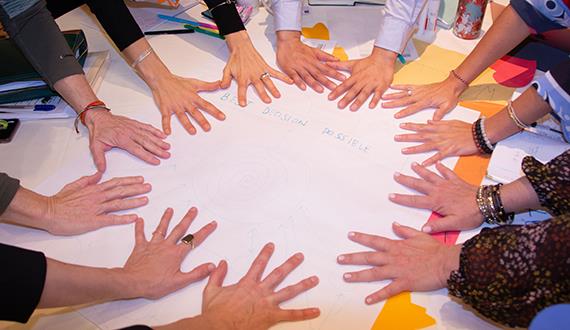 Rotarians, Rotary Peace Fellows, Rotaractors, and Rotary Scholars participate in a Positive Peace workshop By Chris Offer, Rotary Club of Ladner, Delta, British Columbia, Canada, and chair of the Peace Major Gifts Initiative I spent three days in Ontario, California, USA, in January with a group of passionate peacebuilders learning to be Rotary Positive Peace Activators. The goal of the three-day training was to develop a worldwide network of peacebuilders to support Rotarians and Rotaractors in fostering Positive Peace in their communities. By 2024, Rotary will train 150 new Positive Peace Activators in six global regions, prepared to educate, coach, and accompany Rotarians in at least 1,000 presentations and/or workshops, and act as consultants on projects locally and globally. The training is the next step in a growing list of Rotary peace initiatives that I believe are pushing Rotary to a tipping point. Our peace programs will begin rapidly expanding and will change Rotary forever as we go from being advocates for peace to something grander: active and effective peacebuilders. In 2017, Rotary and the Institute for Economics and Peace (IEP) formed a strategic partnership. This alliance builds on IEP’s research into Positive Peace – the attitudes, institutions, and structures that shape peaceful societies – as well as Rotary’s grassroots work in communities globally. In addition to our partnership with IEP, Rotary’s Peace Centers are expanding, Rotary Peace Fellows are taking on diverse roles, there is an online peace academy, and clubs and districts are increasing their reach with a variety of peace projects. Major positive peace projects occurred in 2019 in Mexico and Colombia. The 25 activators who participated in the training with me were Rotarians, peace fellows, Rotaractors, and Rotary Global Scholars. We were trained on the IEP positive peace model and on facilitating meetings. We focused on skills that will enable us to lead education programs with Rotary-affiliated groups. Rotary seeks to create the conditions for Positive Peace by funding and implementing thousands of local and international peace projects. The Rotary Positive Peace Activators will take a lead as advisors to assist clubs and districts. This is our peace tipping point. • Support Rotary’s work in building peace through your generous gift (select the Endowment-Rotary Peace Centers from the donate menu) • Read more about Rotary’s partnership with IEP • Learn about the Rotary Positive Peace Academy • Contact Summer Lewis for more information on the Rotary Positive Peace Activators |
||||||
Rotary, Peace Corps working together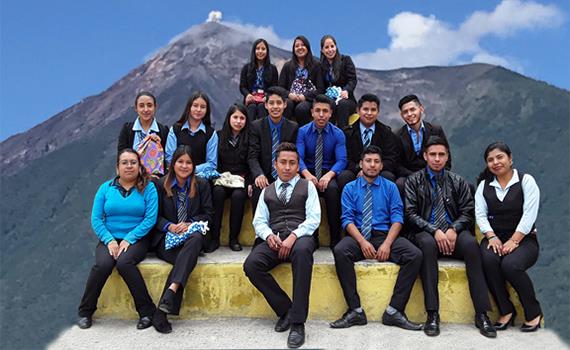 Students in Santa Lucia, Guatemala, are making soap from volcanic ash as part of the district grant project to empower students and keep them in school. By Maureen Duncan, a member of The Rotary Foundation Cadre of Technical Advisers and a returned Peace Corps volunteer As a member of The Rotary Foundation Cadre of Technical Advisers, I evaluate projects in Central and South America. I am also a former Peace Corps volunteer stationed in Brazil (from 1966 to 1968). These two organizations have great potential for working together to achieve amazing results. Recently, I was able to combine these two networks for a grant project that is advancing education and providing economic opportunities for youth in Guatemala. In February of 2019, I joined Mark Balla, an Australian Rotarian and water and sanitation expert, in visiting 15 of 48 schools involved with a water, sanitation, and hygiene project funded by a global grant. One of the schools we visited was the Instituto Mixto Municipal de Diversificado, a high school in Santa Lucia, Guatemala, that prepares students for careers in secretarial science and accounting. We were impressed by how they have incorporated saving the environment into their curriculum. We watched the students simulating real business solutions as they turned recycled trash into rugs, undertook rudimentary attempts at making renewable menstrual pads, and produced organic soap. After returning to the US, I applied for and received a district grant for a project we called Keeping Guatemalan Girls in School to help students at the Instituto Mixto Municipal de Diversificado. The grant was made possible by donations from private donors, GoFundMe, and Rotary clubs in San Diego, California, USA and Melbourne, Australia. The goal is to help girls in Guatemala stay in school. While elementary schools are free of cost and provide free meals, girls often drop out of school when they start their periods because of inadequate products and facilities. Even if they make it to junior high or high school, the costs for tuition, books, and uniforms force 75 percent of Guatemalan children to stop attending school. With this project, we are teaching boys and girls entrepreneurial skills so they can be self-sufficient and contribute to their communities In September 2019, we hired a local project manager. As a returned Peace Corps volunteer, I searched for local Peace Corps volunteers who could help, and met Lauren Devol. She is working in Guatemala to support community economic development and we developed a strong connection. Lauren is passionate about serving as a connector to empower women, youth, and indigenous populations. Although we are 50+ years apart in our Peace Corps Service and age, we couldn’t be more alike in our fundamental aspirations to help people help themselves. By working with Peace Corps, I know that Lauren and the local project manager can be there when I can’t. They meet with the 12 students (six boys and six girls), helping them evaluate their goals and providing cheerleading. This is one of the great benefits of partnering with other organizations. Our project at the Santa Lucia high school has two components: Reusable menstrual pads The students decided one of their businesses would be to make cloth-based, reusable menstrual pads, knowing that disposable ones are bad for the environment and too costly for the majority of girls and women. Using a design the students came up with, we are paying a seamstress in the community to cut and sew the protectors and pads, fulfilling the requirement to include the community in economic development. The emphasis of this endeavor isn’t mainly a moneymaking one, but rather education as the students instruct girls and women in Santa Lucia and nearby communities. Making soap from volcano ash Volcanoes are everywhere in Guatemala; many of them still active and destructive. We believe, by targeting tourists from nearby Antigua, that we can make a profit by selling soap made with local ingredients, including volcanic ash. Lauren has been most helpful in monitoring the students’ activities: experimenting with local ingredients, packaging, marketing, and sales. She and the local project manager even went on a hike with the students up a nearby volcano to get some volcanic ash! This will be the students’ first step toward self-sufficiency. The money from sales will buy more materials and cover some of their education expenses, as well as helping the local community, The grant ends in April 2020 – a short time. But it will provide stimulus for potential future grants. We have changed lives already, which we can see through the smiles on the faces of the students, the enthusiasm of the seamstress, and the positivity reflected in the entire school. But mostly, the lives of Lauren and I have been enriched beyond words. |
||||||
New Programs of Scale grants for new year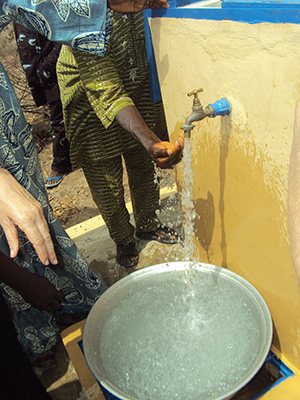 Using global grant funding, Rotary members provided a well, water tower, and new fountains to a village in Benin. By Victor Barnes, Director of Programs & Grants In 2013, Rotary set out on its new grant model under the Future Vision Plan, in the hopes that the approach would enhance the scope, impact, and sustainability of humanitarian projects. More than six years later, and with over $460 million invested in almost 7,000 projects across the globe, Rotary is ready to augment these critical investments with a new grant type. Beginning January 2020, Rotary International is introducing a highly selective, competitive grant model that empowers Rotarians to implement large-scale, high impact projects with experienced partners. In support of Rotary’s Action Plan, Rotary International’s Programs of Scale grants will award $2 million to one approved project each year that responds to a community-identified need. These projects will benefit a large number of people in a significant geographic area using a sustainable, evidence-based intervention with measurable outcomes and impact. Each grant will support, for three to five years, activities that align with one or more of Rotary’s areas of focus. This is an exciting opportunity to complement the international service Rotarians already undertake with a larger grant investment over a longer time frame. Time and resources that will be dedicated to help deliver service in communities that will live on beyond project implementation. And by focusing on documenting the metrics of our good works, we get a clearer picture of results, and the good Rotary does around the world. |
||||||
Australian Rotarians respond to brushfires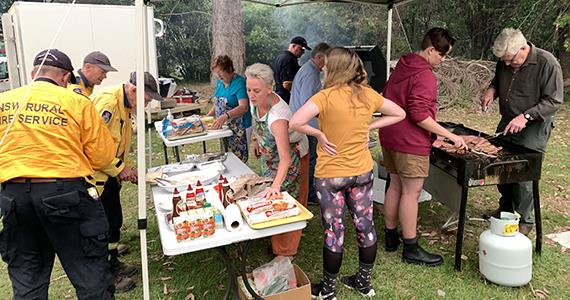 Rotary members cook and serve meals for Emergency Services volunteers fighting the brushfires in New South Wales. By Ross Wade, Past President, and Issa Shalhoub, member of the Rotary Club of Milton-Ulladulla, New South Wales, Australia From August through October of last year, residents of the coastal community of Ulladulla, New South Wales, Australia, watched somewhat passively as reports came in about the serious brush fires in other parts of the state and in Queensland. But they were shaken out of their complacency the last week of November when a serious bushfire began spreading rapidly much closer to home. For a week, local firefighters worked around the clock to battle the blaze near Batemans Bay, about 66 kilometers (41 miles) south of Ulladulla, while support staff provided food and basic provisions to the firefighters. By the afternoon of Friday, 29 November, authorities realized that more support was required. An urgent call was sent out to the Rotary Club of Milton-Ulladulla to see if Rotarians and provisions could be quickly organized to provide breakfasts and dinners for 50 to 100 firefighters over the coming few days. Rotarians rose to the occasion: food was organized, barbecues were found and borrowed, the call went out by email for at least seven Rotarians to be support staff for mornings and nights and weary firefighters were offered breakfast and dinner. The first day, Saturday, went as planned with firefighters working in the bush south and west of Ulladulla. However, the temperatures were rising and the conditions were deteriorating by the hour. On Sunday, the fight was on to protect the nearby communities of Bawley Point and Kioloa. By Monday, the conditions were even more drastic. The fires had broken containment lines, and in a number of places crossed the Princes Highway that runs roughly north and south, threatening more homes. We fed 200 firefighters that morning. In the afternoon, the firefighters were forced to move the staging post to Burrill Lake on the very outskirts of Ulladulla. Rotarians bravely soldiered on to provide hot dinners to the firefighters. The time had come to renegotiate our role with the local branch of the State Emergency Service (SES) Australia’s volunteer-based emergency and rescue service. As a result, Rotarians, their families, and now other community members committed to supporting the SES throughout the month of December. As the highway closed, meals were served in various locations until the staging area moved further north beyond our reach. On New Year’s Eve, the fires had gained an upper hand, destroying a number of houses. An evacuation center was established at the Ulladulla Civic Centre and Rotarians served meals, provided bedding, and gave hugs to evacuees bunked down there. 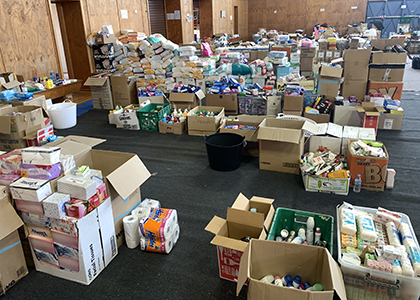 A local basketball stadium filled with donations. Once the fires were under control, donations poured in from all over the coast of New South Wales, enough to fill two basketball stadiums. Rotarians were notified by email to unload trucks by hand and with forklifts, and help sort and distribute the goods to those affected by the fires. Restaurants, coffee shops, and hotels have taken a hit in the coastal area as tourists were asked to stay away during January. Our club has decided to change our meeting venue once a month to support different restaurants. Rotarians will continue to rally and support those affected. We will now be involved with disaster recovery, putting Service Above Self. The South Coast is safe, open for business, and looking forward to hosting our district conference in March. • Support The Rotary Foundation Disaster Response Fund to help clubs with immediate disaster response where the need is greatest. Contributions are combined into one fund and made available through Rotary Disaster Response Grants. • Learn about and support locally-led club and district response and recovery efforts at rotary.org/disaster-response |
||||||
What Is Capital City Sunrise Rotary?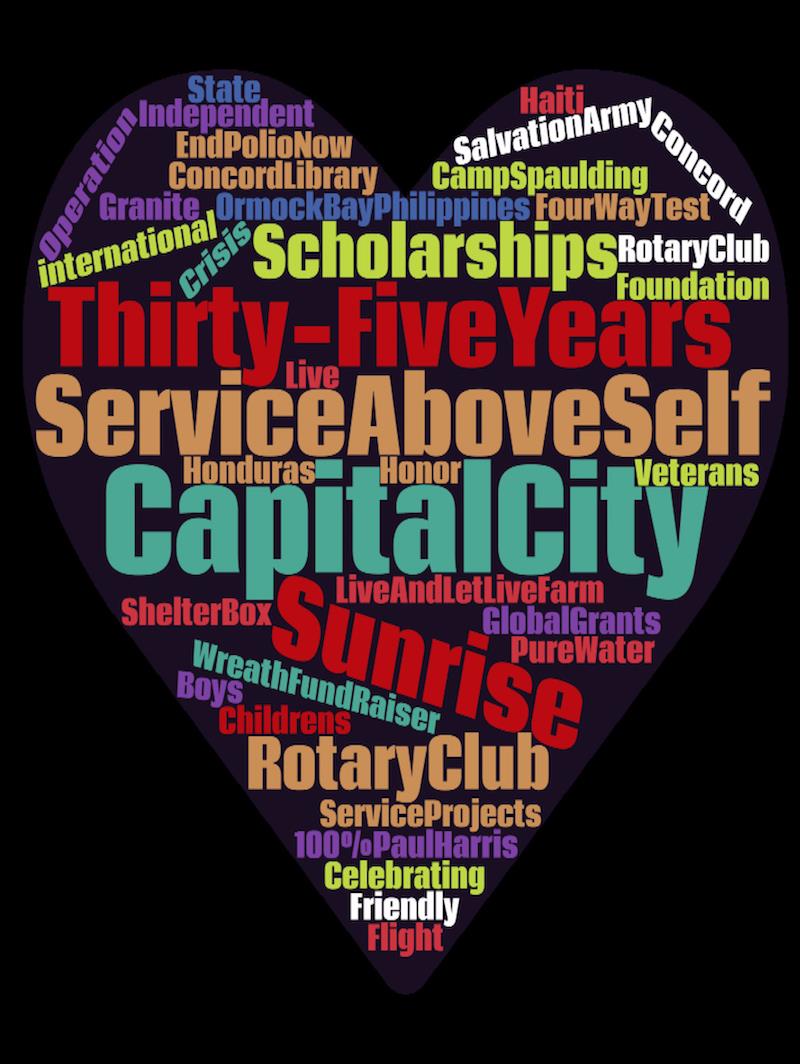 We are People of Action Our club offers opportunities for our members — and those interested in making a difference — to get involved. Through meetings, social events, and volunteer projects, our members learn about the issues facing our community and communities all over the world, partnering with local, national, and global experts to exchange ideas about potential solutions and to draw up action plans to respond. Along with these opportunities to serve, members also are able to regularly network, resulting in life- long friendships and business connections. Our club is a proud part of this community and of Rotary International. Rotary is a global network of more than 1.2 million members who believe that great things happen when dedicated minds come together. We are community and business leaders representing different professions, experiences, and perspectives but with a shared desire to connect with others to address the challenges affecting our community and communities around the world. We are Making a Difference Solving real problems takes real effort, commitment, and vision. Rotarians work to protect communities from preventable diseases, keep women and children healthy, improve education and economic outcomes, create safe water and sanitation infrastructure, and make our community and the world a more peaceful place. Our Events: • Awarded 7 scholarships to local students for higher education • Hosted and provided monthly dinners for the Open Door Community Kitchen in Penacook and the Pitman building low cost housing in Concord • Worked to maintain our Infirmary at Camp Spaulding • Sponsored “Y” student campers at summer day camp • Held a holiday dinner for residents of the Crutchfield Building, a low-income housing project • Participated NH Veterans Home Cruise Night • Rung the bell at Christmas time to raise money for the Salvation Army • Provided hot cider and cookies at the Christmas tree lighting in front of the State House with all donations given to the Salvation Army • Participated in the Wreaths Across America, donating and placing 100 wreaths on veterans graves in Concord’s Maple Gove Cemetary • Funding trees for Blossom Hill Cemetary • Donated a book in the name of each of our speakers to the Concord Library Children’s Room, a project that has over 500 donated books • Volunteered for the Capital Region Food Program’s Holiday Food Basket Project • Volunteered for Intown Concord’s Market Days, Haloween Howl, Midnight Merriment • Provided financial assistance to: • Salvation Army • Friendly Kitchen • Penacook BackPack Program • Kimball-Jenkins Estate • District Matching Grant for batting cage at Merrimack Valley High School Our Rotary Club works hard to raise funds, In the past years with the generous help of Duncraft, the club has raised $250,000 for our and other non-profits. This is just some of what we do and we’re proud to do it. We are the little club that does! |
||||||
Rotary and the Gates Foundation extend funding match for polio eradication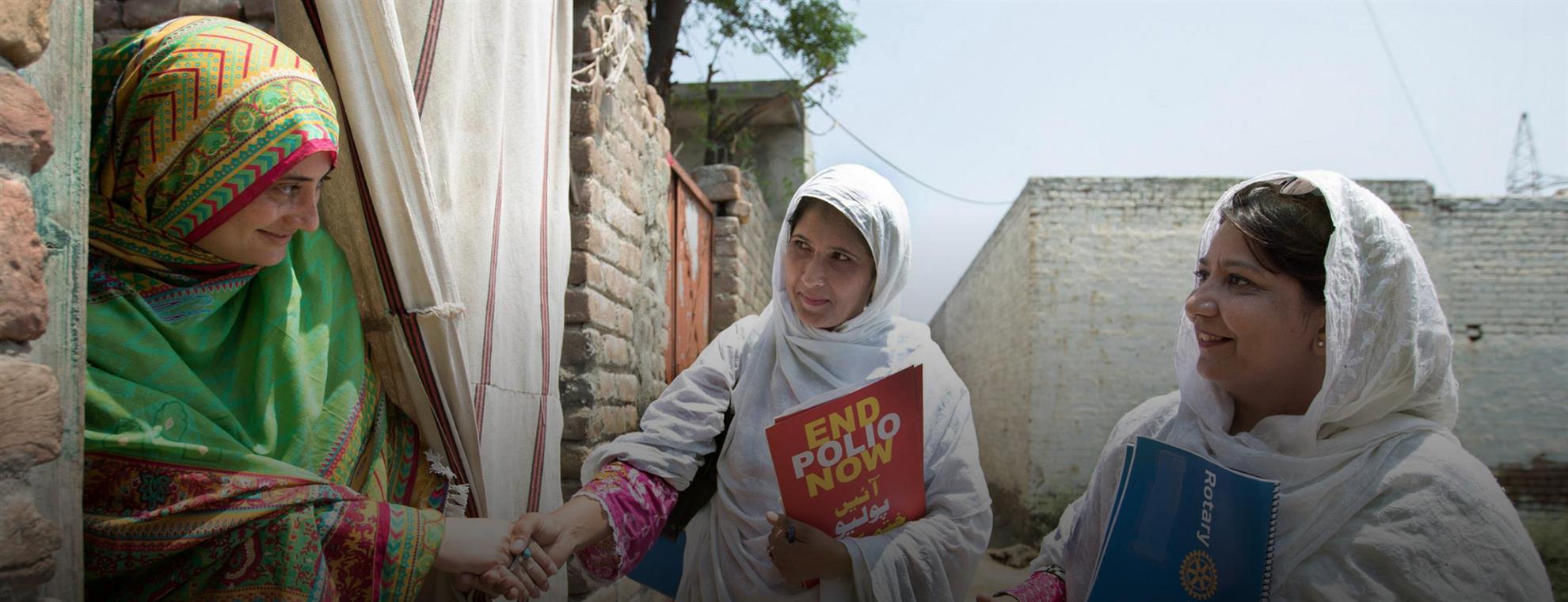 By Rotary International Rotary and the Bill & Melinda Gates Foundation announced on 22 January that their long-term fundraising partnership, which generates up to $150 million annually for polio eradication, will continue. Under the agreement, Rotary is committed to raising $50 million a year over the next three years, and each dollar will be matched with an additional two dollars by the Gates Foundation. In a video address at the 2020 Rotary International Assembly in San Diego, California, USA, Bill Gates told incoming district governors that the partnership with Rotary needs to continue. “The Gates Foundation’s longstanding partnership with Rotary has been vital to fighting polio,” Gates said. “That’s why we’re extending our funding match, so every dollar that Rotary raises is met with two more.” He added, “I believe that together, we can make eradication a reality.” The funding will support polio eradication efforts such as disease surveillance, technical assistance, and operational support for immunization activities. The partnership between Rotary and the Gates Foundation has yielded $2 billion, and Rotarians have given countless volunteer hours to fight polio since Rotary started its PolioPlus program in 1985. Be a part of the fight to end polio and have your donation matched 2-to-1 by the Bill & Melinda Gates Foundation. Visit endpolio.org to donate. |
||||||
Woman Who Fostered 600 Kids in 50 Years Took in Anyone—Regardless of Age or Medical Condition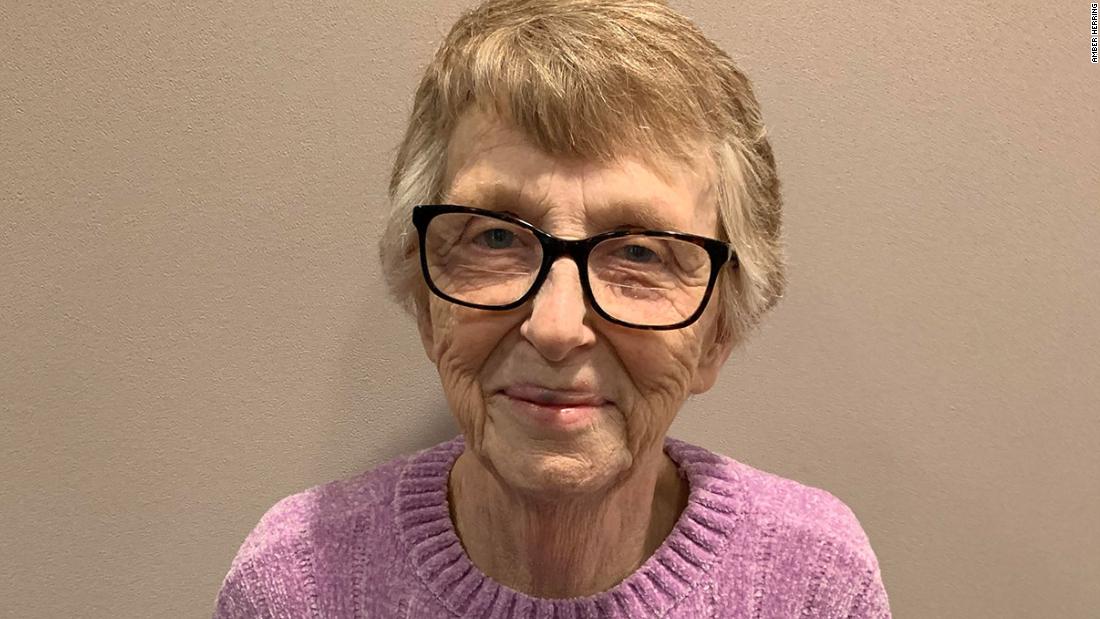 Raising just one child can be a tough job for any parent—which is why this woman is being honored for fostering more than 600 children over the course of five decades. 75-year-old Linda Herring from Johnson County, Iowa has been tirelessly providing food, clothing, love, and medical care to hundreds of foster kids since the 1970s. When Herring first began fostering kids, she was also running a home daycare and working as a night custodian in a local high school. Additionally, she volunteered as a first responder for 50 years of her life, according to CNN. Out of the hundreds of foster kids that Herring has taken under her wing, many of them experienced a range of medical conditions and special needs—but that never deterred Herring. “Linda mostly fostered young children and children with special medical needs and kept bins of clothes in her garage, stacked to the ceiling, labeled by size and gender,” read a statement from Johnson County officials. “No one had to worry about a child going without clothes at Linda’s, even if they arrived with nothing but what they were wearing.” Anthony Herring, who was just 3 years old when he was adopted into the Iowa family, described his mother to CNN: “It’s hard to say in words her impact. She was always available and ready for a child in need. “These kids were usually taken from a traumatic situation and she’d take them in, provide a warm bed, clean clothes, warm meals, and love,” Anthony told the news outlet. “She also worked hard to keep families together. Keeping siblings together. Helping biological parents make the changes needed to be able to keep their children. “She always makes sure a new child in her home was given a professional photograph that was placed on the wall in the living room,” he added. “That seems like a small thing, but it helps them feel like they’re at home.” In light of how Ms. Herring announced her retirement from fostering new children in October due to health concerns, the Johnson County Board of Supervisors honored her with a special ceremony of appreciation this week. Additionally, five of Herring’s biological children and three of her grandchildren have been carrying on her legacy as foster parents as well. |
||||||
PM begged for water-bombing planes as SA fires declared ‘worst in living memory’Matt Young (Excerpted from News.com.au) A “shocked and saddened” South Australian government is asking Scott Morrison for extra water bombing aircraft to tackle fire-ravaged Kangaroo Island. CFS chief officer Mark Jones declared the fires which have destroyed almost half the island, as well as the Adelaide Hills blazes, to be the state’s “worst season in living memory”. “Not only has there been tragic loss of life, families have lost homes and properties, people have lost businesses, vineyards, livestock and – for some – their livelihoods,” SA Premier Steven Marshall said. “We have all been shocked and saddened by the scale of destruction on Kangaroo Island, coming on top of the devastating losses in the Adelaide Hills. Emergency Services Minister Corey Wingard said SA would be appealing to the Federal Government for further aerial support to tackle the inferno.  A bushfire damaged car (above) by the Playford Highway west of Parndana, Kangaroo Island “We have had outstanding results from the increased fixed-wing capability after we brought nine extra aircraft into our fleet last summer and having loan of the large aerial tanker from NSW has also helped out already this summer,” he said. “We know aerial coverage to dump big payloads of retardant or water, combined with our outstanding troops on the ground, are key to fighting big fires like we’ve seen on Kangaroo Island and in the Adelaide Hills.” The fires on Kangaroo Island have taken two lives and burnt more than 155,000 hectares, destroying at least 56 homes since starting on January 4. 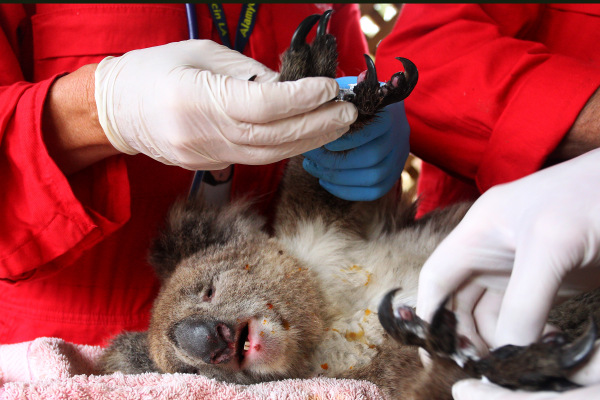 An injured koala is treated at the Kangaroo Island Wildlife Zoo on Friday. CFS chief officer Mark Jones said SA was dealing with an unprecedented bushfire season and praised firefighters and communities for their efforts. “The state has been remarkably lucky that more people haven’t been killed or injured in what has been the worst season we’ve endured in living memory,” he said Premier Marshall said constituents had dug deep and contributed $3.5m to the SA Bushfire Appeal and he encouraged them to keep on doing so. Rotarians and others can help with the fire disaster in Australia, donate here: https://donations.rawcs.com.au/68-2019-20 |
||||||
Why a Satellite Club was right for me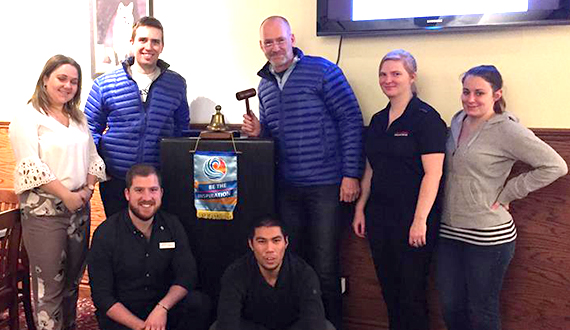 Members of the Rotary Satellite Club of London, Ontario, Canada. By Heather Macdonald, Rotary Satellite Club of London, Ontario, Canada I was a recent college grad when I moved to a new city and was looking to join an organization where I could meet people my own age who were at the same stage of life that I was in. My parents are both Rotarians, so Rotary was the first organization that came to mind. But I struggled to find a club where I could fit in. London, Ontario, Canada has two Rotaract clubs, but both are associated with either the University or the College and require members to be attending. Even if that weren’t the case, I didn’t want to join a club where the members were still focused on school. I was finished with school and really wanted to meet people who were starting careers and had NO money. The Rotary clubs in the area were inaccessible to young professionals. Most of the members were established in their careers and financially stable. All of the clubs met at breakfast or lunch. As someone who is just starting out in my company, I can’t take the time off for an hour meeting plus travel time. And the meals were definitely out of my price range. About a year ago, our current district governor, mentioned that the London Rotary Club had started the Rotary Satellite Club of London. This club is made up of younger professionals who are all done with school (approximately 22-35 year olds). The satellite club meets twice a month at a local pub. If we want a drink or dinner we pay the pub directly, and it just happens that we meet on half-price wing night. If money’s tight that week and we can only afford a pop, that’s all we pay for, no judgement. Our satellite club has adapted to suit our needs. None of us use checks, and instead of having to carry cash, we use e-transfer whether it’s our annual dues (my parents paid mine as a birthday present) or for our Happy Bucks Card (our system of collecting money through good natured “fines.”) Currently, my time and energy is worth way more than my money. I can’t afford to buy a $55 Rotary shirt, go to a $100 a plate auction dinner or take a whole Thursday off for a golf tournament. That’s why my Rotary club sponsors a local park and we get together twice a year to pick up trash. We help load cargo trailers to be shipped overseas for other area Rotary clubs. And we raise funds for Christmas packages for homeless youth in our city by putting on Trivia and Paint Nights at the pub where we meet. I’m an active Rotarian and likely will be for life. I’m now on our board of directors, I’ve been to a district conference and a learning assembly. Who knows what the future holds. I LOVE my Rotary club and the people in it. We have a wonderful time together, it doesn’t cost us much, and we’re making the world a better place. |
||||||
From Us to You |
||||||
Value of Rotary volunteering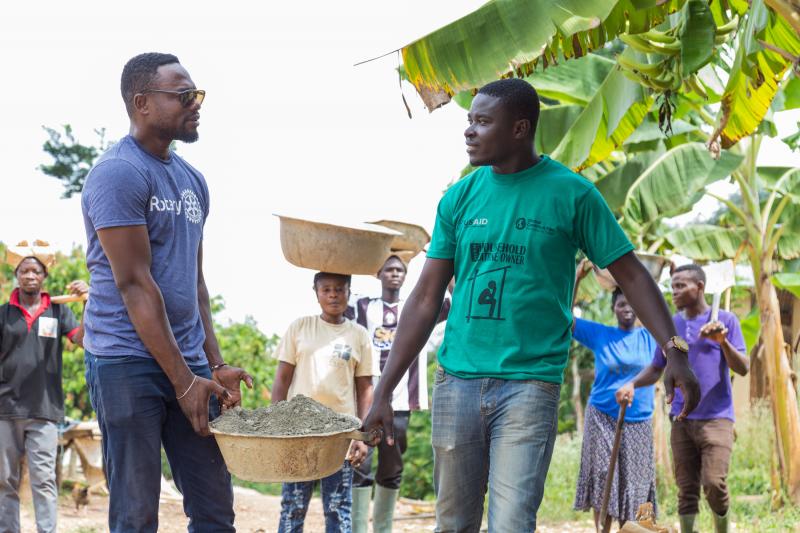 A special report prepared for Rotary International by the Johns Hopkins Center for Civil Society Studies estimated the value of Rotary member volunteer hours at $850 million a year. The 15 members of Capital City Sunrise have volunteered 1,157 hours since the beginning of July, a value of $9,375. That Rotary members log a lot of volunteer hours should come as no surprise to anyone familiar with the organization. But a new report just released by Johns Hopkins University provides a powerful look at the impact of all those volunteer hours. The special report prepared for Rotary International by the Johns Hopkins Center for Civil Society Studies found that Rotary members had volunteered a total of 5.8 million hours within a four-week survey period. Extrapolating those results over an entire year, the report gave a conservative estimate of nearly 47 million hours of volunteer effort generated by Rotary members in a typical year. The report then analyzed the economic impact of all those hours and estimated the value conservatively at $850 million a year, if communities had to pay for the services that Rotary volunteers provide. Rotary, with the help of Johns Hopkins University, is the first global service organization to conduct an empirical analysis of its volunteer’s impact using an internationally sanctioned definition of volunteer work. The authors of the report noted in their conclusion that at each stop, the analysis had chosen the most conservative estimates. “The lesson from this report is clear: volunteer service is not only a feel-good calling – it may provide one of the more powerful, and one of the more fulfilling, avenues through which to reach the ambitious United Nations Sustainable Development Goals,” said Lester M. Salamon, director of the Johns Hopkins University Center for Civil Studies. Rotary CEO and General Secretary John Hewko said “this is just the beginning of using the most innovative tools of measurement to capture and enhance our impact. As we better understand the vast contributions of volunteer work, we can mobilize this remarkable, but often undervalued, resource to better the world and thrive in the years to come.” |
||||||
Selma Rotary Club thrives on diversity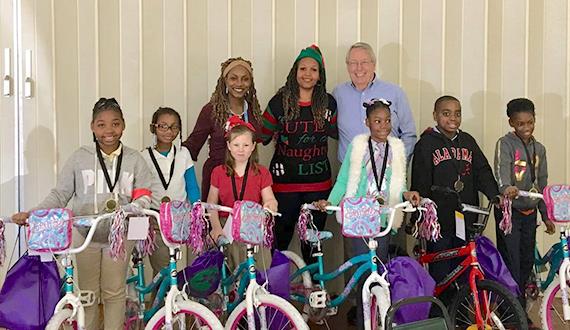 The Selma Rotary Club partners with business leaders to invest in youth. By Jerria Martin, past president of the Rotary Club of Selma, Alabama, USA Diversity is important to my club, and that’s a big reason why I am a member and past president. My club is a second family to me, one that began investing in me all the way back in 2006. As a senior in high school, I received a Rotary Scholarship as part of my club’s annual scholarship competition. The program is just one way my club embraces and seeks diversity. We invite a graduating senior from every high school, public and private, from all neighborhoods and walks of life, to share their leadership and service skills with us. Every senior who is chosen receives a scholarship. I was a recipient of that program. And I knew that Selma’s business and community leaders believed in my vision and were willing to invest in my future. That’s what created in me a desire to be a Rotarian. I knew without a shadow of a doubt that the first organization I’d be joining after returning home from Princeton would be our local Rotary club. How to achieve diversity You must be intentional to achieve diversity. Our club takes pride in welcoming new and prospective members from every background. I think the trick is to not make things “weird” but to give every member the respect, support, and love they desire regardless of where they are from. Things will naturally progress and succeed from there. This was my experience, as a 26-year-old African American woman, elected club president at the age of 29, and chosen as an Emerging Leader by our Rotary district this year. I am proud to be part of the Rotary family. Our club’s Youth Serve & Shadow project which I help oversee is another way we deliberately seek and embrace diversity. The project educates, empowers, and uplifts young men and women throughout the at-risk communities in Selma and Dallas Counties by providing 15-20 public high school students who face adversity with strong and enduring, professionally supported, one-to-one mentoring relationships with respected veteran Rotarians. These mentors work strategically for a year to have a positive impact on the student’s life. Students join us for service projects and shadow us on our jobs. Through our time spent with our young leaders, we as Rotarians become more informed on what we can do to better serve all of our communities, impacting positive change in the areas that need it most. Every fundraiser and service project we’ve had this year has reflected this conviction. Supporting future generations I am a proud product of Selma schools. I had the wonderful opportunity to connect and learn with our city’s leaders, especially during an opportunity to shadow one of our state representatives. I also served as student body president and got to know and served alongside our school board members. Because of these experiences, I have made it my primary focus to empower Selma’s youth and give them opportunities I had growing up. I want them to know that Rotary cares. Not only is this an approach that will help your club grow and thrive, but this is something that we can feel proud about giving to the future generations. |
||||||
Artists unite to help The Bahamas rebuild Julien Believe, singer, songwriter and Rotarian, performs at the Rotary International Convention in Hamburg. Julien is collaborating with other artists and Past RI President Barry Rassin on recovery efforts in The Bahamas. By Julien Believe, singer, songwriter, entertainer, and member of the Rotary Club of East Nassau Three years ago, I penned “I Believe in You,” along with my amazing team, with one purpose in mind – to inspire and motivate. It is a timeless song for anyone that needs a moral boost or just a little nudge to say, “you matter.” After the devastation of Hurricane Dorian in both Abaco and Grand Bahama, it was only fitting that I release ”I Believe in You” with a few tweaks. My fellow country mates needed help but most importantly they needed HOPE. This song is designed to create a sense of hope, strength and assurance in knowing that we, as a nation, will live up to being strong. My team and I got on the phone with some of the Caribbean’s top artists and created the “We Are the World” of the Caribbean. “I Believe in You” represents solidarity and unity amongst each artist and their willingness to band together to help a brother or sister in need. This song declares not only love of country but the Caribbean at large. Almost every island has experienced the powerful force of mother nature and witnessed firsthand the sheer destruction of natural disasters, but we haven’t seen anything of this magnitude in a while, if ever. Some lost their homes, their loved ones and some lost their lives. Spirits were broken. I did what I do best – I used my voice to spread love, hope and belief in the fact that “this too shall pass.” I sang words that I knew would help ease the blow, if only for a minute. Music has a way of getting you through, a way of hugging you when arms just won’t do, a way of capturing the essence of your emotion when words cannot. “I Believe in You” drives awareness to the devastation and tugs at your heart for a call for action to help, assist and give to those in need. Many organizations, including Rotary clubs, donated their time, efforts, money, and energy. I figured I must do my part to spread love, hope and inspiration through my voice. This song is a tribute to the resilience of the Caribbean Spirit in the face of insurmountable odds. I stand hand in hand, side by side, with my brothers and sisters affected by this storm directly or indirectly and I’m asking my fellow Rotarians to do the same. I’m also grateful for Aliv, which has been a major contributor to this effort by donating time, effort, and energy to ensure the Bahamian people understand we are all supporting them. I pray that this song touches the heart and soul of each person. I hope that my message is heard around the world to drive awareness not only to the devastation of Hurricane Dorian but that the lyrics to “I Believe in You” touches anyone going through anything they feel is too hard to bear. |
||||||
.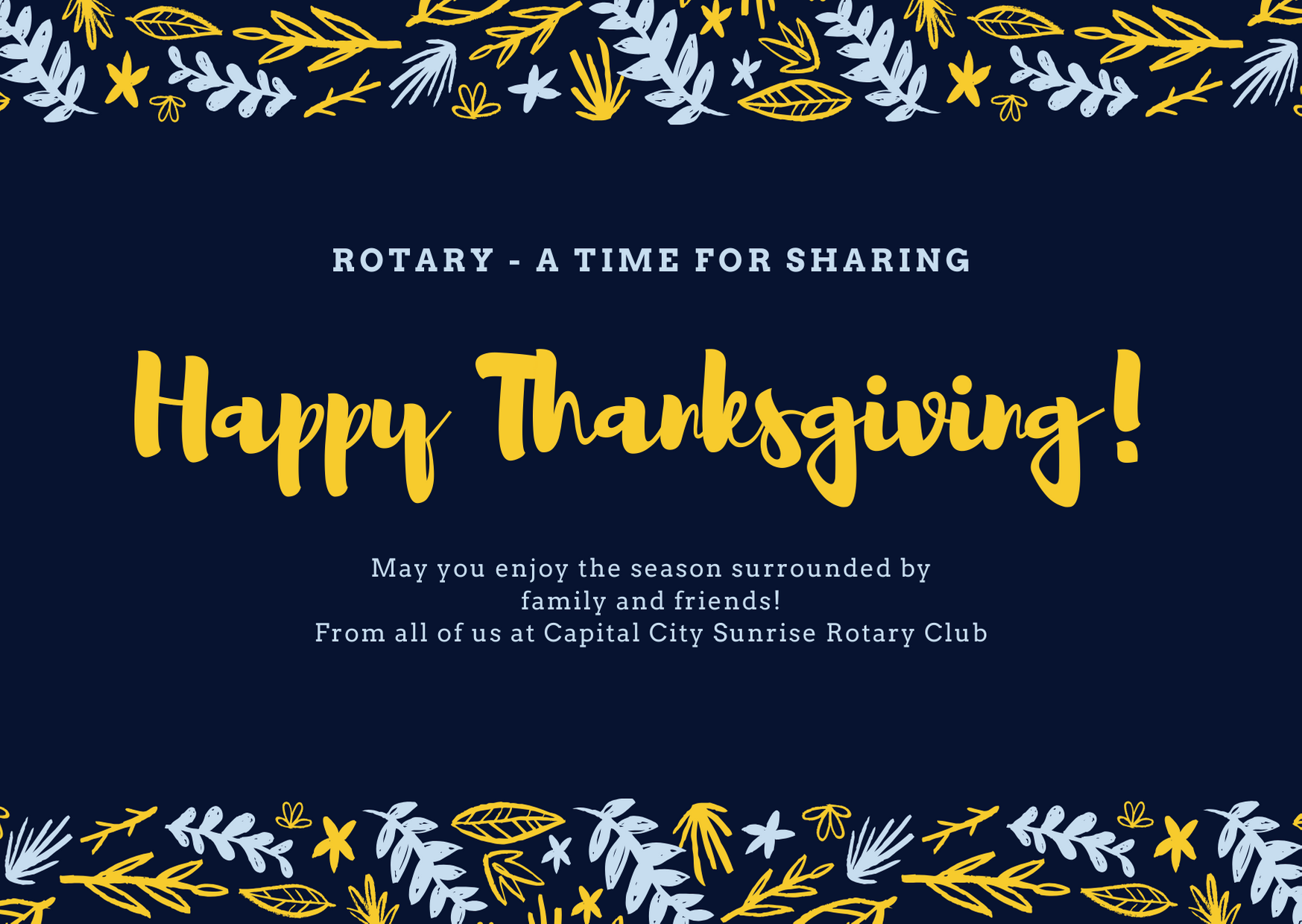 |
||||||
The Price of PolioThis is one of 5 stories found in the November issue of the Rotarian 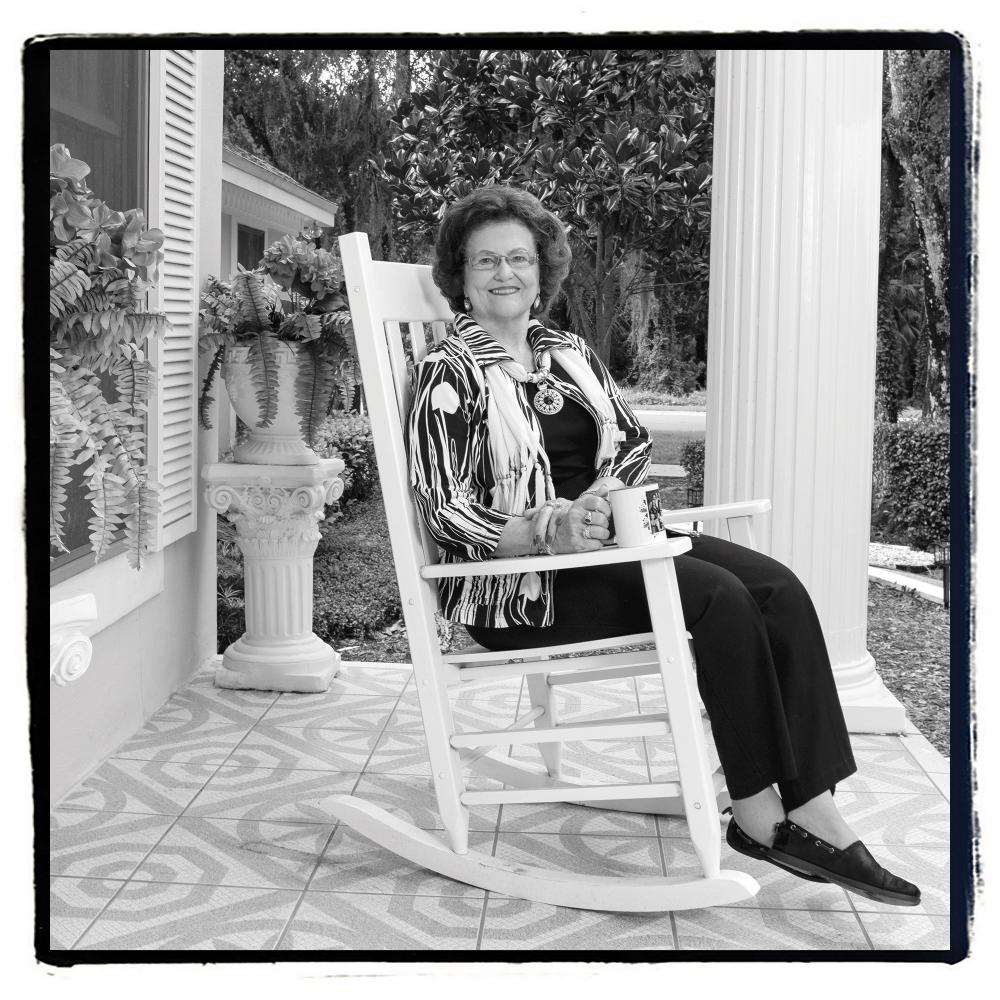 Ann Wade Rotary Club of New Tampa, Florida I felt like I was entering another world. Beds with paralyzed children lined every wall. I was put into a big room. There were rows and rows of children, probably about 50 children, and three or four nurses to care for us. I was seven when I was transferred to Hope Haven children’s hospital in Jacksonville, Florida, where I spent four months learning how to walk again. I missed my mother so much. When she would visit, I’d ask her why she couldn’t come more often. But parents were only allowed to visit on Wednesdays and Sundays. I still don’t know why. I’d cry myself to sleep every night. The nurses used to get so mad at me. They’d say I was too old to cry. I spent Thanksgiving, Christmas, and my birthday in that hospital. At first, I was bedridden. Polio had affected my legs, and I couldn’t walk. When I got the virus, I had extreme pain all over my body and a high fever. I couldn’t stand up. That was very scary. My parents took me to the doctor on a Saturday morning; he examined me and immediately sent me to an isolation ward. I had my own room there, but only the nurses could be with me. There was a balcony that extended around the building, and each room had a window. There were two chairs on the balcony outside every room, and that’s where parents would sit and talk to their child, through the window. No one was allowed into my room, and I was not allowed out. Once my fever broke and I wasn’t contagious anymore, I was moved to Hope Haven to learn to walk again. The therapies were painful. They would put hot, wet wool towels on my legs and then exercise the muscles. The nurses would also massage my legs with oil. Sometimes they’d use these electrical shock-type things to shock the muscles into use. They would take all of us to therapy once or twice per day. In between, teachers came in and we had school. They’d roll my bed to a huge room, and the teachers would be in there teaching. It was the beginning of second grade for me. Once I started walking, I was released from the hospital, but I didn’t return to my old school until third grade. After I left the hospital, I tried to put it out of my mind. Then the vaccine was released, and everyone went to get it. It was being given at a school on a Sunday afternoon. They called it Sabin Sunday, after Albert Sabin, who invented the oral vaccine, and I remember standing in a really long line, thinking, “Do I really need to do this? I’ve already had polio.” But my mother was adamant that my brother and I get vaccinated. Since then, I’ve done most everything I wanted to do in life. I became a teacher. I married a wonderful guy 53 years ago who is also in Rotary. I have three children and 10 grandchildren. Not many people know I had polio, except that one of my legs is smaller than the other and I have a slight limp. About 12 years ago, I fell and broke the hip in my bad leg. After surgery, I was able to learn to walk again, so now I can say I’ve learned to walk three times. This year, I’m president of my Rotary club. I’m eager to make eradicating polio a priority and to raise money for End Polio Now. Until now, I haven’t told many people my story, but if it can help the eradication effort, it seems like a good time to start. |
||||||
World Polio Day cheers major achievements toward global polio eradication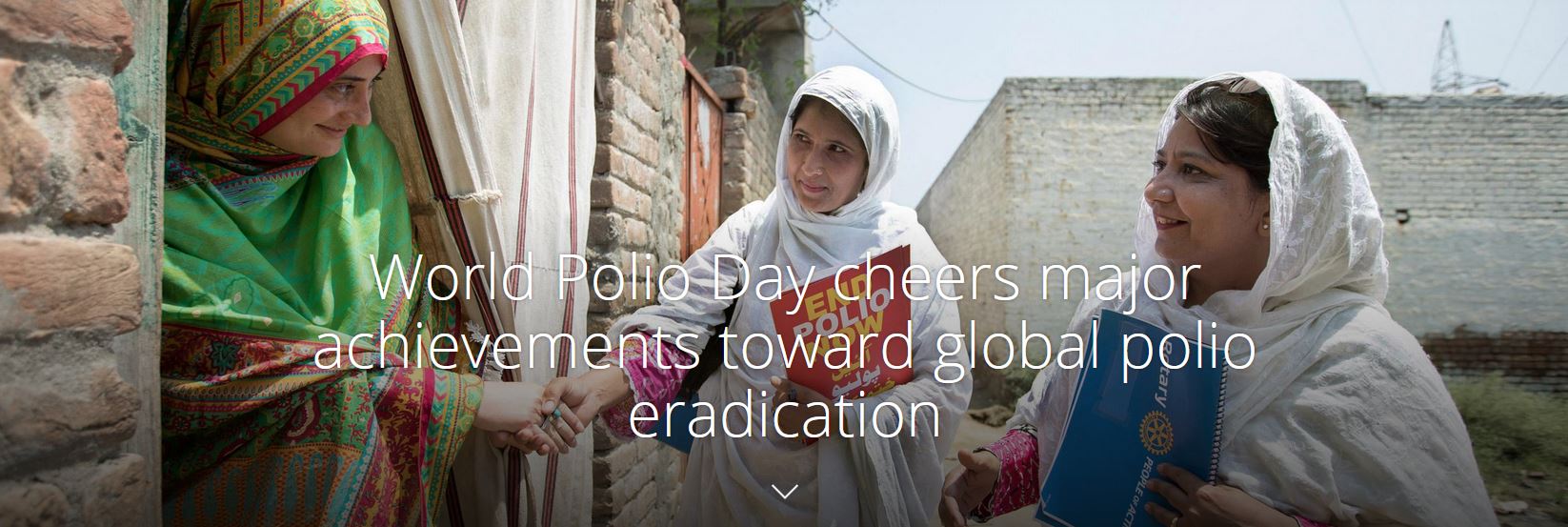 By Ryan Hyland Rotary and its partners in the Global Polio Eradication Initiative (GPEI) are celebrating a major milestone this World Polio Day: confirmation that a second type of the wild poliovirus has been eradicated, which is a significant step toward the ultimate goal of a polio-free world. Dr. Tedros Adhanom Ghebreyesus, director-general of the World Health Organization (WHO), announced the historic feat in a video address during Rotary’s Global Online Update on 24 October. He said an independent commission of health experts certified the global eradication of the type 3 strain, which hasn't been detected anywhere in the world since Nigeria identified a case of polio that it caused in November 2012. The type 2 strain was certified as eradicated in 2015. “That leaves just wild poliovirus type 1,” Tedros said. He also commended Rotary’s long fight against polio. “Everything you [Rotary] have done has brought us to the brink of a polio-free world.” Tedros balanced the good news with a note of caution, saying that the biggest enemy of global eradication is complacency. He encouraged Rotary members to redouble their efforts. Rotary and its partners in the Global Polio Eradication Initiative have helped immunize more than 2.5 billion children against polio in 122 countries. “We must stay the course. Together, we can make sure the children of the future only learn about polio in history books.” “If we stopped now, the virus would resurge and could once again cause more than 200,000 new cases every year,” said Tedros. “We must stay the course. Together, we can make sure the children of the future only learn about polio in history books.” Rotary’s World Polio Day program this year was streamed on Facebook in multiple languages and multiple time zones around the world. The program, which was sponsored by UNICEF USA and the Bill & Melinda Gates Foundation, featured TV presenter and Paralympic medalist Ade Adepitan, supermodel Isabeli Fontana, science educator Bill Nye, and actress Archie Panjabi. The program also featured never-before-seen footage of three Rotary members working to protect children from polio in their home countries of India, Pakistan, and Ukraine. In Pakistan, Rotarian Tayyaba Gul works with a team of health workers to educate mothers and children about the importance of polio vaccination. Dr. Hemendra Verma of India encourages his fellow Rotary members and our partners to make sure health workers and volunteers reach every child. And Ukrainian Rotarian Sergii Zavadskyi oversees an advocacy and awareness program that uses social media and public events to educate people who are reluctant to have their children vaccinated. These three heroes of the polio eradication effort show what it means to be a dedicated volunteer, and represent the efforts of Rotarians all over the world. |
||||||
When embracing your weakness helps you succeed
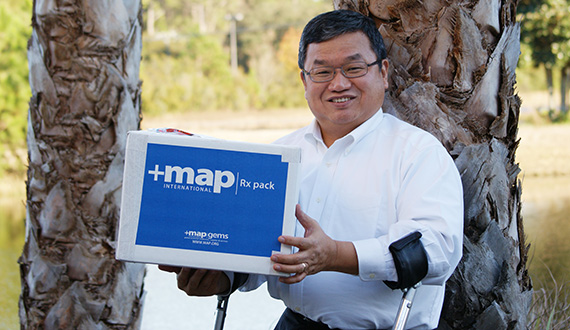 Steve Stirling. CEO of MAP International, with some of the medical supplies the organization provides to people in need worldwide. By Steve Stirling, a member of the Rotary Club of Atlanta, Georgia, USA They are typical job interview questions: What is your greatest strength? What is your greatest weakness? But in my case, the interviewer often hesitates. After all, how do you ask a guy who is wearing leg braces and using crutches about his greatest weakness? It seems both obvious and insensitive. We all have weaknesses. Mine are just a bit more obvious. So I’ve learned to turn the uncomfortable moment around and confront the situation head on. “My greatest strength is that I am what some people call ‘crippled,’” I say, purposely using the politically incorrect word. “Some prefer to call me ‘handicapped’ or ‘disabled.’ I’ve heard all the terms and I’m not upset by any of them. I’m not easily offended. “I’ve learned that my physical limitations have helped me build my mental and spiritual strength. I have an Ivy League degree and an MBA from one of the country’s most prestigious schools. I’ve had jobs in top corporations and nonprofits. I have enjoyed great success and yet I never forget what it was like to be a child who couldn’t walk, living in an orphanage. My greatest strength is what most people assume is my weakness.” My last interview was five years ago when a search committee was looking for the next president and CEO of MAP International, an organization that provides medicine and health supplies to those in need around the world. In some ways, it was a match made in heaven. You see, I walk with crutches because I had polio as a child. My life would be very different if the polio vaccine – costing approximately $.60 – would have been available to me and my family in Korea where I was born. My passion in life is to help other children receive the medicine they need to avoid life-long illness or even death. So when I told the committee interviewing me about my strengths and weaknesses, I could honestly say that I had a lifetime to prepare for the job of helping bring medicine to those in need. I knew first hand what it meant to suffer because an inexpensive dose of vaccine was not available. But I also know that overcoming my challenges each and every day makes me a better leader. It’s true that my daily life is more difficult than most people’s. A simple flight of stairs, a rocky path, a door with a difficult handle … these are typical occurrences that are major obstacles for me. Yet I have to prepare myself each day to handle the unexpected. Fortunately, I nailed that interview and now proudly lead an organization that brings millions of dollars of donated medicines and medical supplies to people in need around the world. It’s a big job and truly miraculous path for someone who spent his early years as a forgotten child. During my earliest years, I didn’t even have crutches and had to drag myself around on the ground. At that point my greatest dream was to be able to go to grade school with the “able-bodied” children in the orphanage. I could never have imagined a successful life in the US or that I’d be able to write a book about my journey, “The Crutch of Success.” It was truly a miracle that I was adopted by a generous American couple who loved me and provided for me, including my special needs. Their love and support changed my life, but, of course, the physical damage had already been done. I have had the wonderful privilege of growing up in a country where I received a great education, married a wonderful woman, raised two terrific children, and had a successful career. But my disability is often the first thing people see about me. I try not to let it define me in their eyes. I try to put people at ease, explaining the I had polio as a child and while it affected my ability to walk, I am blessedly able in every other way. It’s understandable that they first see my disability as weakness. My goal is that once they know me, they see it as my strength. I find that many people try to hide their weaknesses. They dodge the question in an interview and spend their lives hoping no one sees where they struggle. They feel sorry for themselves and focus on the injustice of their circumstance. If you find yourself in that situation, I want to encourage you. Your weakness can become your strength. Whatever your weakness is – lack of education, the inability to speak clearly, a physical trait you consider unattractive, a disability – embrace it today. Decide what you can do to improve yourself. Take an evening class, join Toastmasters, ask for help. Then dedicate yourself everyday to overcome the obstacles in your path. |
||||||
What the ‘together’ in Rotary’s vision statement meansTogether, we see a world where people unite and take action to create lasting change – across the globe, in our communities, and in ourselves. — Rotary International Vision Statement By Paddy Rooney, governor of District 7390 (Pennsylvania, USA) The word which defines much of our world today is division. We are divided in so many ways by race or creed, ethnicity or belief, by gender or age or sexuality. But the divisions have gone beyond mere realities and instead have become a source of dissention among us with the result that we have sliced and diced ourselves into smaller and smaller groups or tribes which only further exacerbate our sense of alienation one from the other. So what does it mean when our Rotary International Mission Statement begins with the word “Together.” Does together mean that we ignore the differences between us, pretend that they don’t exist, make believe that there never was any division among us? I don’t think so. Rather what together says is that when we become part of this undertaking called Rotary, we intentionally set aside the differences we know exist and figure out ways to work together. We recognize and accept the differences, perhaps indeed celebrate those differences, for there is something beautiful in the wondrous variations among us. And together doesn’t mean that we pretend to agree with each other, for again there is something healthy in having different views and perspectives brought to bear on an issue. But the intentionality of togetherness says that we are willing to put aside our differences and those markers which divide us. It says that is does not matter where we came from or what education we have or what experience we bring. When we are come together in Rotary it is not just service above self but Rotary first and the individual second. Because unless we are willing to embrace and embody this understanding of “together” we will never be able to achieve our goals, serve our communities or change the world. On the card I had printed for my year as district governor in Rotary I put the phrase “Doing together that which we cannot do alone.” For it is only together that our work can be accomplished and only together that we will Connect the World. |
||||||
Reaching the unreached in India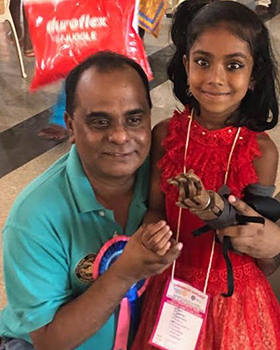 K V Mohan Kumar with a recipient of a prosthetic hand. By Koorapati Venkata Mohan Kumar, member of the Rotary Club of Bangalore Prime, India A boy who had lost both his hands in an electrocution spoke to a service committee meeting of our club. His parents left him after the electrocution and a local nongovernmental organization was taking care of him. This boy was our first recipient of a prosthetic hand. And seeing his joy after he started using a pen to write for the first time, we have never looked back. We were first approached by The Ellen Meadows Prosthetic Hand Foundation at one of our district events while I was secretary of my former Rotary club. They were looking to partner with Rotary clubs in Bangalore, India, to work on prosthetic hand projects. It was quite an interesting prospect and we immediately agreed to a partnership. I happened to meet Rotarian Jim Yoder, vice president of The LN-4 Hand Project, at the 2012 Rotary Convention in Bangkok, Thailand. We discussed the possibilities of extending our partnership to the needy through our outreach programs in India. No cost to recipients Ernie Meadows, an industrial engineer, designed the inexpensive, below elbow prosthetic hand in memory of his daughter Ellen, who died in an automobile accident at the age of 18. In 2006, Ernie gave the LN-4 (LN is short for Ellen) to the Ellen Meadows Prosthetic Hand Foundation specifying the hand be provided at no cost to recipients. Since 2007, over 45,000 hands have been provided free to recipients in more than 92 countries. I have traveled across India speaking at district conferences, district assemblies, and president-elect training seminars working collaboratively with Rotary clubs and NGOs in India to provide more than 16,000 of the prosthetic hands. A few of the results: • A mother is able to hold her baby. • A school student scored 73 percent on his 10th grade writing exams. • A barber is able to hold a comb in one hand, scissors in another hand and get back to his vocation. • A boy who had lost both his hands and was fed by his parents is now eating on his own using a spoon in his hand. • A woman who had completed a Bachelors in Business Administration found a job in a bank after her confidence was reinforced upon receiving this hand. As an ambassador for the program, I helped search for potential beneficiaries throughout South Asia. One of our greatest assets in Rotary is the ability to mobilize our volunteer network. We conducted one day camps in every corner of India where recipients were fitted for prosthetic hands. Rotary and Rotaract members and their family offered their time and service. When a club got trained, it trained other clubs, spreading the movement. Transforming the world In the 2018-19 Rotary year, 46 camps were conducted resulting in over 6,000 beneficiaries of prosthetic hands. A project of this scale addresses all of the priorities in Rotary’s Action Plan. Our efforts have been featured in at least 300-400 magazines, newspapers, television channels and radio stations bringing increased visibility to Rotary. I have met so many amazing people and have been able to see so many places that I would not normally get to see through this journey. I thank Rotary and all the people who participated with us in transforming our world. |
||||||
Rotarians respond in the Bahamas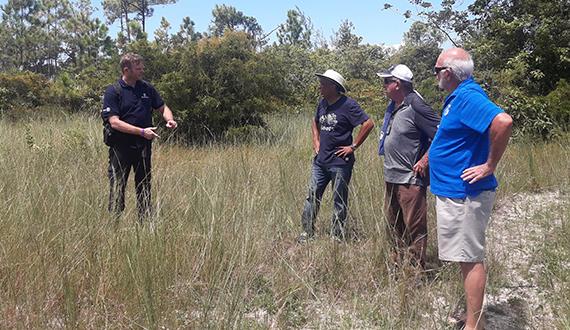 ShelterBox Head of Operations Alf Evans, left, confers with local contacts including Past RI President Barry Rassin, right, in the Bahamas. Report compiled by Diana White, past district governor, and District 7020 Rotarians The destruction left behind by Hurricane Dorian is devastating. In parts of the Bahamas, literally everything is gone, replaced by piles of rubble where homes once stood. Roads blocked with debris and thousands on thousands left homeless and in need of supplies. As Rotarians in District 7020, one of two districts that cover the Caribbean and hard-hit Bahamas, we immediately switched into assistance mode. Significant donations of supplies are funneling in from various local efforts and through international disaster relief agencies. As this aid continues to come in, Rotary in the Bahamas is beginning to move to longer-term strategies in preparation for helping the economies to recover. We will get in to do a needs assessment as soon as access is possible and work in coordination with the government. We also plan to raise impactful funding to bring these communities back. It will take time; but that is what Rotary is best at. In the meantime, here are a few of the local efforts underway that Rotarians in our district have had a hand in: • Rotarians in Nassau have rescued, registered and sheltered more than 3,300 evacuees in New Providence and Eleuthera. Through the receiving and registration process at the airport’s main staging site, we collect information on those needing housing. We are constantly working to assess needs and fill the gap by providing resources, even working to provide non-governmental controlled shelter in private homes and vacant rental spaces. So far, we have been able to place 153 persons in hotels and private homes. We have many Rotarians and Rotaractors who are working at kiddie play area, helping to facilitate expedited processing for those with babies or in wheelchairs. • Nassau Rotarians were also able to purchase eight bunk beds for The Ranfurly Home for Children to assist in preparing a room that will now be home to 17 children evacuated from the Grand Bahama Children’s Home. • In Grand Bahama, the water plant in Freeport undertaken as a global grant 10 years ago was the first water available in Freeport after Dorian. • Following an emergency meeting held on 3 September, Rotary members in the British Virgin Islands, under the leadership of their district governor, will be launching a major fundraising effort to help victims of Hurricane Dorian in the Bahamas. This will include a live telethon to be held on Tuesday, 10 September. • Disaster Aid Canada, Disaster Aid USA and Disaster Aid UK&I are working together with local Rotarians to provide shelter and comfort. Tents that were pre-positioned in Nassau have been set up for evacuees with the assistance of Rotary clubs in the Bahamas. An additional 50 to 100 tents, tarps, water systems, bed packs, and hygiene items have been sent. Rotarians have erected 16 tents at the main receiving site for evacuees. In the near future, international volunteers will use these as their living quarters as they give their time to support national relief efforts. The Bahamian people are amazingly resilient and will get through this no matter how long it takes. Rotarians here and around the world have surrounded us with love and empathy and an outpouring of well wishes and offers of support. Once again I am inspired by Rotarians and their willingness to step up and make other people’s lives better. I am proud to be a Rotarian. |
||||||
Hurricane Dorian Response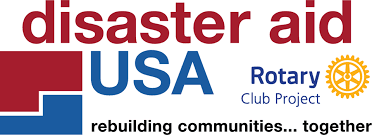 Hurricane Dorian has unfortunately already taken 20+ lives and leaving The Bahamas in destruction and now has moved up the coast. Disaster Aid USA is collaborating with our partner organization, Disaster Aid Canada, in providing smart aid. We will be keeping an eye on Dorian as it comes up along the Eastern Coastline as inland and coastal flooding is a possibility. Disaster Aid USA has Domestic Response Trailers prepositioned in Florida (2) Georgia (1) Virginia (1) and Maryland (1). Texas (4) and Louisiana (3) are on standby and DAUSA also has access to a private plane if needed as well. DAUSA is in touch with emergency officials and we are waiting to see where the storm goes just as they are. We will be in touch with our contacts in the Bahamas soon as we have helped them during the past hurricanes to reestablish contacts and communication lines. As we continue to monitor the situation and prepare our response, please do not forget to share the work we are doing with your local networks and please help us raise funds that will go directly to the people in need. |
||||||
Nigeria reaches crucial polio milestone.jpg) Volunteers vaccinate children in Maiduguri, Nigeria, against polio, marking the houses they’ve visited. Photo by Andrew Esiebo By Ryan Hyland It’s been three years since health officials last reported a case of polio caused by the wild poliovirus in Nigeria. The milestone, reached on 21 August, means that it’s possible for the entire World Health Organization (WHO) African region to be certified wild poliovirus-free next year Nigeria’s success is the result of several sustained efforts, including domestic and international financing, the commitment of thousands of health workers, and strategies to immunize children who previously couldn’t be reached because of a lack of security in the country’s northern states. “Rotary, its Global Polio Eradication Initiative partners, and the Nigerian government have strengthened immunization and disease detection systems,” says Michael K. McGovern, chair of Rotary’s International PolioPlus Committee. He adds: “We are now reaching more children than ever in some of the hardest-to-reach places in Nigeria.” McGovern says Rotary members in Nigeria play an important role in ridding the country of the disease. “Rotarians have been hard at work raising awareness for polio eradication, advocating with the government, and addressing other basic health needs to complement polio eradication efforts, like providing clean water to vulnerable communities.” Nigeria is the last country in Africa where polio is endemic. Once Africa is certified as free of the wild poliovirus, five of the WHO’s six regions will be free of wild polio. Polio remains endemic in Afghanistan and Pakistan, which means transmission of the virus has never been stopped. Dr. Tunji Funsho, chair of Rotary’s Nigeria National PolioPlus Committee, acknowledges the milestone but cautions Rotary members about celebrating too soon. He cites the challenge of making certain that routine immunizations reach every child in Nigeria. “It’s paramount that we ensure all doors are locked to the re-entry of the wild poliovirus into our country,” says Funsho. Funsho says to achieve this, Rotary needs to maintain strong advocacy efforts, continue to increase awareness of immunization campaigns, and ensure members raise necessary funds. Rotary has contributed $268 million to fight polio in Nigeria. “As the first organization to dream of a polio-free world, Rotary is committed to fulfilling our promise,” says McGovern. “Our progress in Nigeria is a big step toward that goal, but we need to maintain momentum so that Pakistan and Afghanistan see the same level of progress.” |
||||||
5 ways our work against polio fights other diseases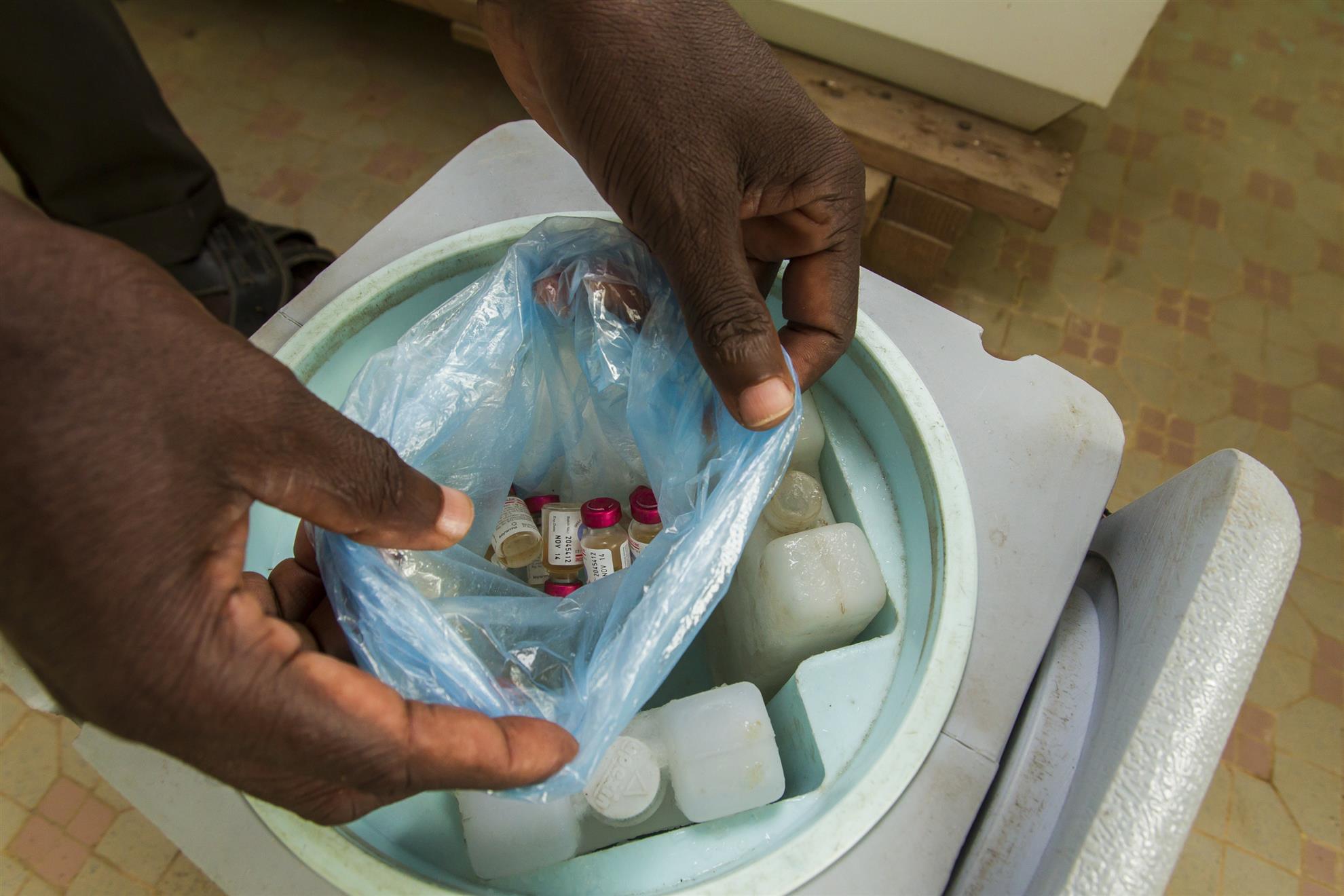 story Written By: Daniela Garcia Polio, and the lifelong paralysis it can cause especially in young children, became preventable when Dr. Jonas Salk introduced the polio vaccine in 1955. Since Rotary and its partners in the Global Polio Eradication Initiative took on the fight against polio, they have developed systems to facilitate both immunizations and eradication. This polio eradication infrastructure helps get us closer to a polio-free world. But did you know that it’s used to fight and protect against other diseases, too? Here are five examples of the polio infrastructure at work: The cold chain The polio vaccine must be kept cool, or it risks losing its effectiveness. The cold chain system — made up of freezers, refrigerators, and cold boxes — was developed to allow polio workers to store the vaccine and transport it over long distances in extremely hot weather. In Pakistan, a measles immunization program now relies on the same system. With the help of the cold chain, Sindh province recently reached its goal of immunizing more than 7.3 million children against measles. Microplanning A critical component in immunizing more children against polio, especially in remote regions, is microplanning. A microplan allows health workers to identify priority communities, address potential barriers, and develop a plan for a successful immunization campaign. The workers collect as many details as possible about communities to help them reach and vaccinate all of the children, and this strategy has helped keep India polio-free for five years. Now the Mewat district of India is using microplanning to increase its rates of vaccination against measles and rubella. Surveillance The polio surveillance system helps detect new cases of polio and determines where and how these cases originated. Environmental surveillance, which involves testing sewage or other environmental samples for the presence of poliovirus, helps workers confirm polio cases in the absence of symptoms like acute flaccid paralysis (AFP). In Borno state in Nigeria, the AFP surveillance system is now being used to find people with symptoms of yellow fever and was one of many tactics used during a 2018 yellow fever outbreak that resulted in the vaccination of 8 million people. Contact tracing Because polio is a transmittable disease, health workers use contact tracing to learn who has come in contact with people who might be infected. Contact tracing was also critical to containing an Ebola outbreak in Nigeria in 2014. When a traveler from Liberia was diagnosed with Ebola, Nigerian officials were able to quickly trace and isolate the traveler’s contacts, helping prevent the disease from spreading further. Emergency operations centers An important part of the polio infrastructure that Rotary and its partners have built is the emergency operations centers network. These centers provide a centralized location where health workers and government officials can work collaboratively and generate a faster, more effective emergency response. The emergency operations center in Lagos, Nigeria, which was originally set up to address polio, was adapted to handle Ebola, and it ultimately helped the country respond quickly to an Ebola outbreak. Only 19 Ebola cases were reported, and the country was declared Ebola-free within three months. |
||||||
Fighting Poverty on a Small Scale A collaboration between Rotary and Heifer continues to produce big results, helping small farms provide healthier, locally-sourced food By Arnold R. Grahl Visuals by Miriam Doan In the fall of 2015, volunteers from Rotary and Heifer International came together to build hoop houses for a few farmers working small lots in Arkansas, USA. The afternoon outing was part of a larger project that is still reaping benefits four years later, supporting small-scale agriculture in the region and increasing access to locally-grown food. Heifer has been using the small-scale agriculture model for decades to alleviate hunger and fight poverty around the world. The approach has the added benefits of being environmentally friendly and offering healthier food options. That mission dovetails with Rotary’s mission to grow local economies and improve health. So it’s not surprising the two groups have teamed up on a number of occasions in the past 30 years to improve communities by helping families escape poverty. Several Heifer employees are or have been members of the Rotary Club of Little Rock, Arkansas, USA, the city where Heifer has its headquarters. “Our values line up very well,” says Ardyth Neill, a member of the Little Rock club and president of the Heifer Foundation. “With Rotary, it’s Service Above Self and helping to serve others. Heifer has been working with farmers to be accountable, pass on their gifts, train other farmers, and work together in community. It’s learning to share and care, basic things that work well together.” Sustainability In the United States and other developed nations, a lot of food production is controlled by large industrial operations, which produce cheaper food by focusing on a single crop and using specialized equipment to cut labor costs. But according to research into sustainable agriculture, this food model has downsides, including a reliance on commercial fertilizers, heavy pesticides, and other chemicals that can harm the environment. The trend has also contributed to the failure of smaller family farms, increasing the poverty rates in places like rural Arkansas. Nationwide distribution networks have also resulted in food deserts in urban areas, particularly in the U.S., England, and Australia, where poor neighborhoods have little access to fresh produce and instead rely on less nutritious fast foods and packaged products. Small-scale sustainable agriculture, on the other hand, tends to keep things local. The money you spend on food stays in your community and helps your neighbor. Farmers maximize land use by planting multiple crops that replenish the soil and reduce the need for fertilizers and pesticides. And fruits and vegetables grown closer to home keep more of their nutrients. Consumers are increasingly aware of these health benefits, fueling the market for local produce. “There’s a phenomenon going on, really nationwide, about people becoming more and more concerned and thoughtful about where their food comes from,” says Sharon Vogelpohl, a past president of the Little Rock Rotary club and a volunteer on the project. |
||||||
Rotary and ShelterBox celebrate the power of partnership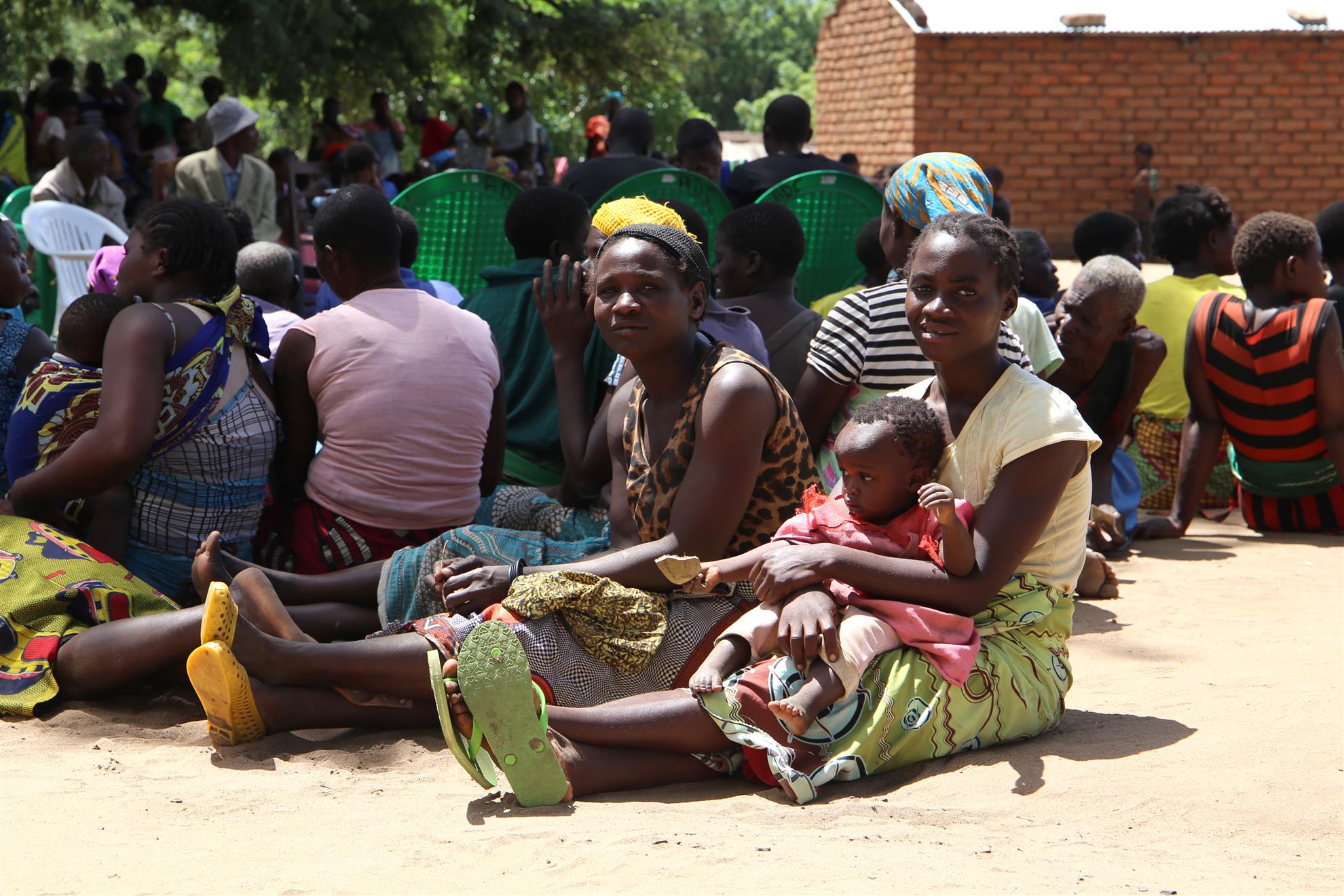 Displaced families in Malawi Weekly Bulletin Number 651 Evanston Ill., Rotary International announced on 3 June a three-year partnership renewal with its disaster relief project partner, ShelterBox. For almost 20 years, this unique humanitarian alliance has supported families with a place to call home after disaster. Rotary is a global network whose members take action to make a lasting difference in their communities – and worldwide. ShelterBox provides emergency shelters and other essential items to support families who have lost their homes in disaster. What began as a local connection with one Cornish Rotary Club has led to an international movement that’s provided 140,000 ShelterBox family tents or 390,000 ShelterKits worldwide to date (a value of over £54 million). First adopted as a millennium project by the Rotary Club of Helston-Lizard in 2000, the support of Rotary members and clubs around the world saw ShelterBox become Rotary’s Project Partner in Disaster Relief in 2012. Since then, the partnership has helped transform ShelterBox into an internationally recognized disaster relief charity, supporting families with emergency shelter after disaster. The partnership extends far beyond financial support. Around 1,000 Rotary members are involved in ShelterBox as volunteers, staff or response team members. And clubs worldwide offer valuable, practical assistance to help ShelterBox reach more families fleeing disaster or conflict. This has recently included support for families in Malawi flooded from their homes by Cyclone Idai and communities in Lombok devastated by the 2018 earthquake and tsunami (quotes and details at the end of this release). “ShelterBox has been Rotary’s Project Partner in Disaster Relief since 2012, and we are excited to renew the partnership for another three years,” says Rotary International General Secretary John Hewko. “Through this project partnership, Rotary members around the globe can collaborate with ShelterBox to support communities in desperate need of emergency temporary shelter and vital supplies following natural disasters,” adds Hewko. “Additionally, Rotary and ShelterBox will continue to expand cooperation efforts through preparedness training and stockpiles of prepositioned aide in disaster-prone regions.” Caroline White, interim Chief Executive at ShelterBox, said: “Whenever disaster strikes, Rotary is beside us. From the earliest planning stages to final evaluations, Rotary members help ShelterBox make community contacts, organize logistics, and reach disaster-affected families in remote areas who might otherwise go without. This partnership has helped ShelterBox become who we are today. Our global network of 17 ShelterBox affiliates, who raise funds and awareness worldwide, evolved from Rotary relationships.” Rotary club presidents around the world have also commented: Ace Robin, President of the Mataram Rotary Club, Indonesia, was caught up in the deadly earthquakes that hit Lombok in 2018. Her home survived, but many around her were destroyed. Through an agreement with the government-led response, Ace’s club was central to bringing ShelterBox aid to Indonesia. Thanks to their support, vulnerable members of the community received vital emergency shelter, including families with elderly relatives, pregnant women or new mothers. Ace said: “Working with ShelterBox taught us a lot – they showed us how to build shelter and select families to help. It also gave us a chance to show what Rotary is to local people.” After floods triggered by Cyclone Idai left tens of thousands homeless in Malawi this March, Rotary members connected ShelterBox with communities in the Blantyre region, helping them understand local needs and culture. Members helped deliver emergency shelter to almost 2,000 families. And ShelterBox supported the Rotary Club of Limbe to join the wider disaster response, enabling the club to deliver food to communities whose entire crops had been destroyed by the floods. Rotary Club of Limbe President Eric Chinkanda said: “It was a great experience to work with ShelterBox. We have not only walked a mile in reaching out to the many Malawians who faced hardship, but we restored confidence in the displaced people that all was not lost!” James Kingston, Club President of the Rotary Club of Helston-Lizard, in Cornwall, said: “The members of Helston-Lizard Rotary are delighted that Rotary International continues to recognize ShelterBox. I joined the club a few months before the Millennium Project began, and I’m so pleased we’re still involved. It has been wonderful to see the charity grow into an internationally recognized, professional disaster relief organization.” |
||||||
Innover pour la campagne Place à l’action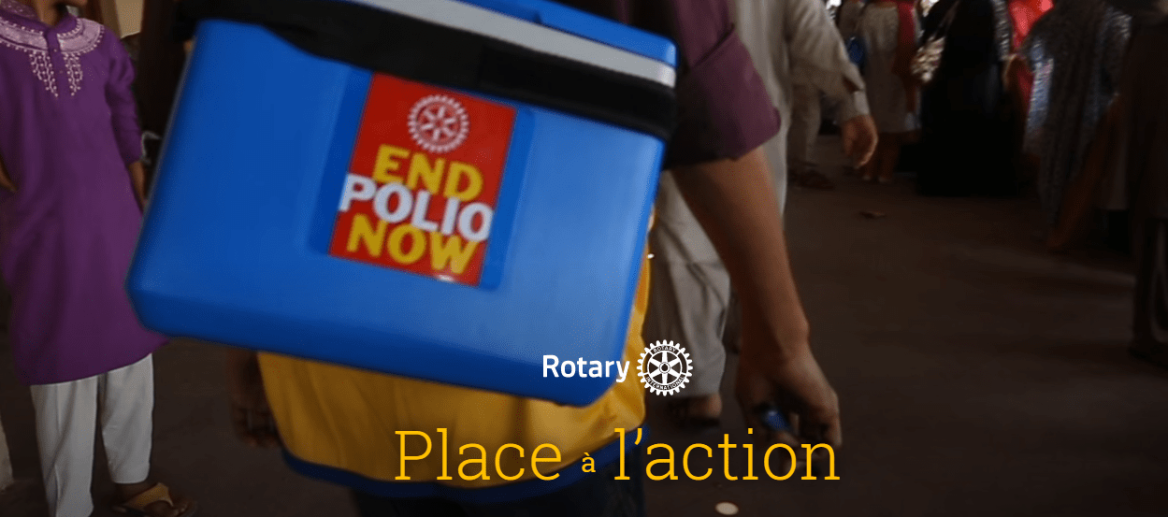 Notre campagne Place à l’action explique au monde entier comment les Rotariens se mobilisent pour répondre aux problèmes les plus urgents. Mais en tant que dirigeants de district, passons-nous à l’action lorsqu’il s’agit d’utiliser les outils de cette campagne ? Bulletin hebdomadaire de la capitale numéro 650 Par Ron Janssen, gouverneur du district 6980 (États-Unis) Face à un budget serré, de nombreux dirigeants de district pensent qu’il y a peu de place dans leur budget pour des publicités comme celles de Place à l’action. Cette campagne a pour but de mieux faire connaître le Rotary et nos efforts humanitaires. Le résultat souhaité est la croissance de l’effectif, ce qui se traduit par une augmentation des cotisations et de notre budget. N’est-ce pas contradictoire que ce soit l’une des dernières choses que nous voudrions financer ? Face à cette question, notre club a trouvé une alternative qui, non seulement permet de financer une campagne d’image publique, mais aussi de générer un profit que nous pourrions utiliser pour autre chose. Nous avons créé un supplément du Rotary qui a été inséré dans le journal américain Sunday Orlando Sentinel dans le but de toucher 114 000 foyers. Et nous l’avons financé à l’aide de publicités. Un supplément de huit pages et une composante sur les médias sociaux nous a coûté 6 500 dollars. Nous avons établi le prix de la publicité à la moitié des tarifs publiés par le journal. Nous nous sommes cependant vite rendu compte que huit pages ne suffisaient pas. Et quatre pages supplémentaires ne coûtaient que 500 dollars de plus, soit moins que ce que nous facturions pour une publicité d’un quart de page. |
||||||
New Voices club charts its own course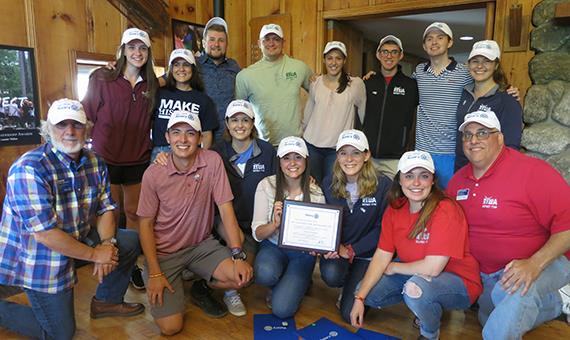 RI Director Jeffry Cadorette, left, with members of the Rotary Club of New Voices. By Marty Peak Helman, growth chair for District 7780 (parts of Maine and New Hampshire, USA ) Capital City weekly bulletin 649 A new Rotary club, New Voices, was chartered 15 June in my district with 33 new members. What makes this club unique is that the newly-minted Rotarians – who range in age from 18 to 30 – are all graduates of the district’s phenomenal Rotary Youth Leadership Awards program. They were introduced to RYLA and Rotary youth leadership at age 15 as high school juniors, and since then, they have stayed active through the district’s RYLA Reset program for grads, RYLA workdays, and RYLA leadership opportunities. What these young people have in common is a love for what RYLA – and by extension Rotary – offers them in terms of positive youth development. But, with high school graduation looming, many of them were expecting to leave the Rotary orbit. “We have a strong track record of getting RYLA participants into Interact, if they aren’t involved already,” Phil Giordano, executive director of RYLA in District 7780 and past president of the Rotary Club of Scarborough, Maine, told me. “Then they graduate from high school and go off to university, and we tell them to check out a local Rotaract club, or start one if there is none on campus. We lose many of them then – and more when it’s time for them to graduate college and concentrate on their careers.” Youth pipeline It’s a common problem throughout Rotary in North America, as RI Director Jeffry Cadorette noted to me at the chartering. “We have the greatest pipeline in the world of young people coming up through RYLA, Youth Exchange, Interact, and Rotaract. Other organizations would kill for a pipeline such as we have. But we are only now beginning to learn to capitalize on it. New Voices gives us a critical tool to do just that and turn our Rotary youth alumni into Rotarians.” Earlier this year, it became evident to Giordano and me, as the District 7780 Growth Chair, that the changes enacted by the 2016 Council on Legislation meant that the young people could form a club of their own – a club that would focus on youth leadership and which would meet (mostly) on line, with three or four “live” events each year – events which the young people are already involved in. Giordano reached out to his RYLA leadership team, determined solid interest in a new club, and helped them get organized. First, the young people created their own mission statement: New Voices D7780 will be a new type of Rotary Club that is accessible to people of all geographies, abilities, and ages, and is for folks who share a passion for youth leadership development and service to others; our goal is to expand the traditional model of Rotary to as many people as possible. A new kind of club New Voices is a whole new kind of Rotary club, focused on capturing an underserved population that happens to be already excited about Rotary, but who – because of time constraints, school commitments, and job expectations – could never commit to a weekly or biweekly mealtime meeting. In Rotary parlance, the closest existing model is a Passport Club, and certainly, the New Voices Rotarians expect to “make up” with Rotary clubs in communities where they may be studying or working in order to engage with them in service or fundraisers. Zone leadership – most especially Director Cadorette and Director-nominee Valarie Wafer – have been extremely supportive and are firmly committed to this new concept. Cadorette brought a video recording of 2018-19 RI President Barry Rassin welcoming the club to Rotary. Cadorette has recognized that this model is infinitely scalable and can be replicated anywhere. All it takes is an existing strong Rotary youth program. Access to a database of past members going back at least several years is helpful. Additionally, a group of seasoned Rotary mentors are needed to help navigate the process, while empowering the new members to create Rotary from a blank canvas. |
||||||
Every whiskey contains a story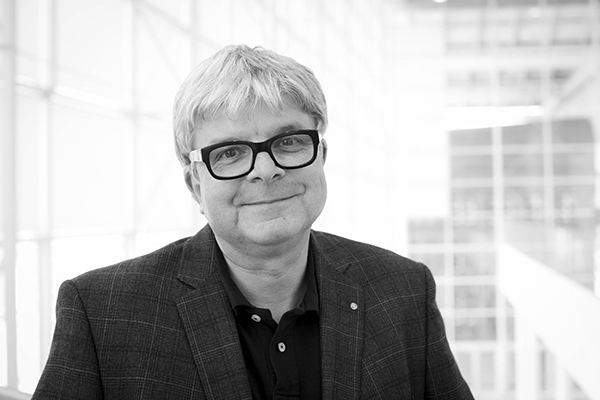 Rüdiger Niemz. 4 June 2019, Hamburg, Germany. Capital City weekly Bulletin Number 648 Rüdiger Niemz, Rotary Club of Mondseeland, Austria, as told to Diana Schoberg. Photo by Monika Lozinska “When I was invited to join Rotary, instead of giving a presentation about my job, as everyone is expected to do, I did a whiskey tasting. “I became interested in whiskey when I was traveling a lot as a journalist. I was working on travel shows about foreign countries. You would come back very late from the filming and editing, and then you’d meet somebody at the bar. You’d start talking, and start sharing whiskey. You don’t drink whiskey to get drunk. It’s part of an exciting lifestyle. “I got to know a lot of different places and whiskeys, and after a while I got asked to host curated tastings. I got a master’s degree in food science so I researched a lot about the history and sociology of drinks and food. Every whiskey contains a story. Every cheese contains a story. “Life is so interesting. You cannot limit yourself. Journalists are always trying to look behind the curtain. We are trying to discover something. We are trying to get new ideas, new perspectives. I also have my master’s in philosophy. Philosophers are quite similar to journalists: We are both curious about life. “This is the interesting thing about Rotary. You always meet exceptional people. They have different backgrounds, different experiences. It is so exciting. “I like the worldwide view. In these days where people are developing backwards in a way that we stick to ourselves, our region, to our nationality only — where we are getting more ruthless in terms of how we treat each other in national and especially international politics — Rotary is an alternative.” |
||||||
Solar lamp project delivers light in Belize Residents of a remote village in the Toledo district of Belize use their solar lamps. By Audrey Cochran, a member of the Rotary Club of Northwest Austin, Texas, USA Tonight Amelia Ramirez sits with her younger siblings at their kitchen table. A stack of books sit on the table and Amelia smiles as she reads. She no longer fears being burned by a kerosene lamp. The fumes that had irritated her eyes and made her cough are gone. She no longer begs her mother to stop before her school work is done because of the heat, the bugs, and the fumes caused by the kerosene lamp she was previously forced to use. Amelia’s family received a solar lamp from Rotary District 5870. Nearly one quarter of the world population lives without access to electricity or safe light. As a result millions suffer from burn injuries each year, most of which are children. These families see by kerosene lamps, candles and open flames, all of which are dangerous and toxic. According to the World Health Organization respiratory illness is the number one cause of death in children under 5 years of age that live in areas without access to electricity. Rotarians are taking action to change this. Working with the Grid Earth Project, a Texas based 501(c)3 Charity, founded by Rotarians from the Northwest Austin Rotary Club, safe solar light is being provided to families forced to live off the electrical grid. It’s a worldwide problem requiring a worldwide solution. The Northwest Austin Rotary Club has just completed District 5870’s 2016-17 World Community Service Project. Over six hundred families in remote villages of the Toledo District of Belize received household solar lamps. The impact is immediate and the change results in 100 years of progress in a single day. The solar lamps were hand delivered to each of the eleven villages, whether by four-wheel drive trucks, by boats, hiking or pack horses. Every lamp was placed directly into the hands of these families in need. Seventeen clubs from District 5870 participated in this year’s project. The club is now kicking off our 2017-18 World Community Service Project. The goal this year is to provide safe solar light to 1,000 families in the Toledo District that are still living in darkness. For as little as $100 your club can become a partner in this district wide project. Together we can change the world one light at a time. |
||||||
Rotarians Want to Have Fun!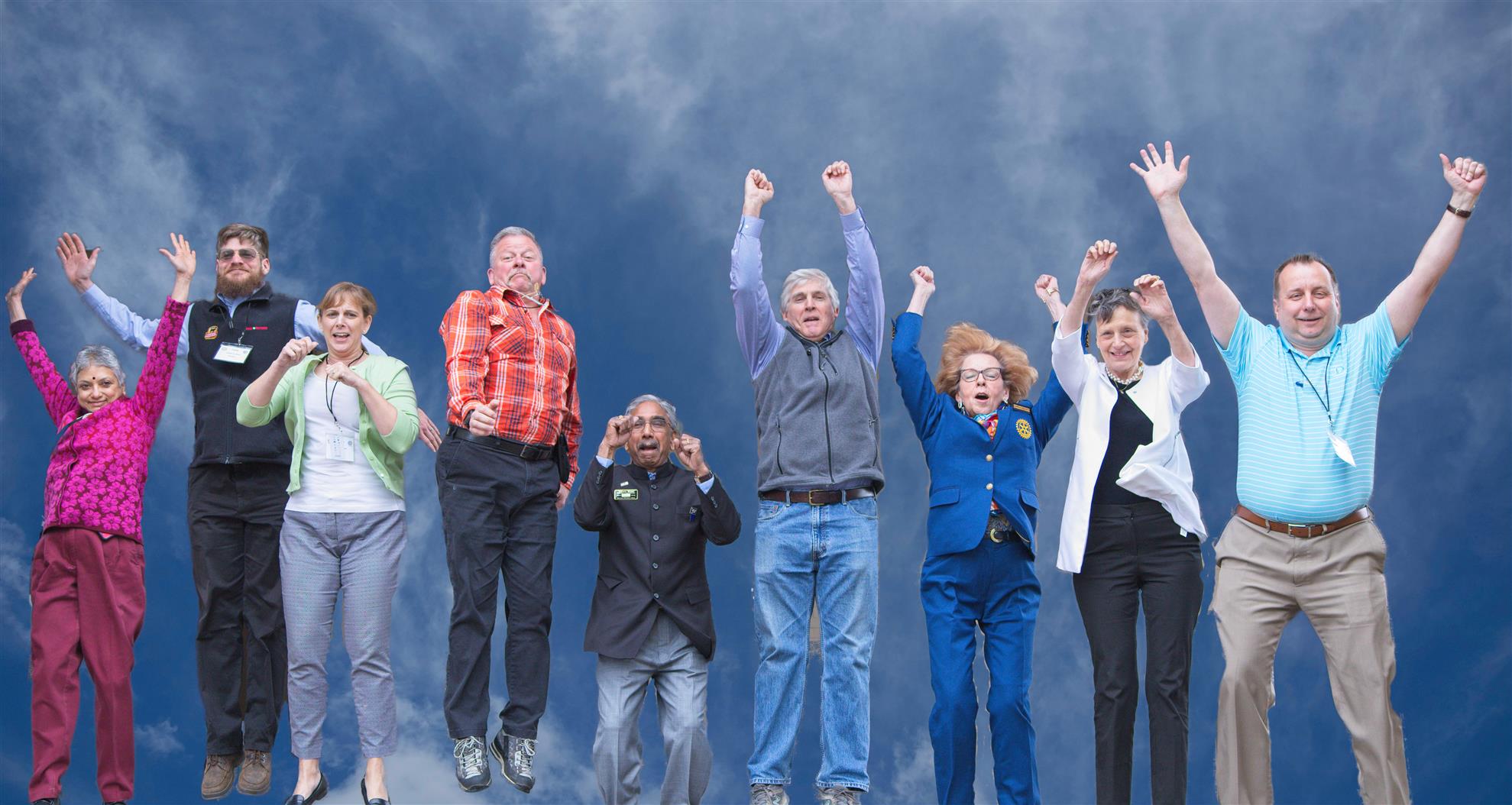 Pictured from left to right: (1) Gautami Rao, Hollis-Brookline, NH; (2) Gabriel St. Pierre, Rotarian, Charlestown, NH; (3) Katrina Langlois, President-Elect, Raymond, NH Rotary club; (4) Kevin McAllister, Rotarian, Windsor, VT Rotary Club; (5) Venu Rao, DG 7870, Hollis-Brookline, NH Rotary Club; (6) Chris Parkinson, PDG, Bow, NH Rotary Club; (7) Nancy Russell, DGE, White River, VT Rotary Club; (8) Carolyn Meub, PDG, Rutland South, VT Rotary Club; (9) Bill Stevens, Rotarian, Bellows Falls, VT Rotary Club Carolyn Crowley Meub, Past District Governor, District 7870 Committed to service above self, Rotarians are passionate about making a difference in their local and global communities. Regular meetings bring club members together to share ideas and make plans about how to create positive change. While deeply committed to their cause, with laser-focus on successful impact, a lesser-known fact about Rotarians is that they love to have fun! Whether it’s celebrating at the club’s annual fundraiser, com- plete with elaborately themed food, music and attire, or simply planting trees in the local park on a Saturday morning, when Rotarians get together there is always fun to be had. Rotarians in District 7870 are taking fun to a new level...10,000 feet above the ground to be precise! Why? Of course, the answer is to serve others. These adventurous club members will be skydiving out of an airplane, on June 29th at Vermont Skydiving Adventures, hoping to bring attention to the global water crisis. Along with friends of Rotary-founded nonprofit, Pure Water for the World (PWW), the group has a goal of raising $100,000 to provide life-changing safe water programs to children and families living in under- served communities across Haiti and Honduras. "Having visited Haiti, I have personally experienced the work Pure Water for the World (PWW) does under the leadership of PDG Carolyn Meub. PWW is practically saving lives,” says Venu Rao, District Governor 2018-2019, Rotary District 7870. “World Health Organization (WHO) research shows that when you provide only pure drinking water to a community, the com- munity's health index improves only by 20%. If you also provide them with clean latrines, to eliminate open defecation, the com- munity's health index raises to 50-60%. If you also educate the community members with hygiene and sanitation, the health index of the community goes over 90%. PWW supports the com- munities in both Haiti and Honduras in all the three areas. My wife, Gautami, and I support Carolyn's passion to the extent that we are willing to jump off a perfectly fine plane with her to raise awareness and funds for PWW." Through the years, hundreds of Rotarians have joined PWW on service trips to Haiti or Honduras, another adventure altogeth- er, where they can gain a hands-on experience of the transfor- mational impact that is taking place in the communities PWW serves. And, true to their nature, these life-changing Rotarian trip-goers combine their passion for serving with lots of laugh- ter and fun! Want to join in the fun? Learn more at www.jumpforsafewater.com or visit www.purewaterfortheworld.org. |
||||||
DAYS FOR GIRLS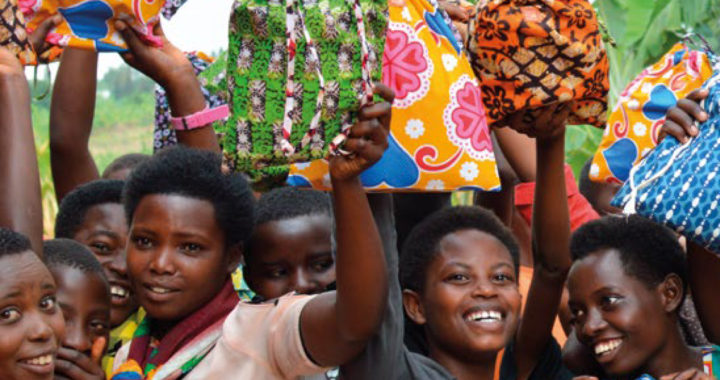 THREE years ago, prison staff from the industries section of the Tarrengower Prison, in Maldon, Vic, contacted the Days for Girls Melbourne Victoria Chapter Inc. to investigate the possibility of a partnership. They offered to provide labour and machines, if Days for Girls would provide raw materials and training. The industries section team saw the benefits of inmates becoming involved in such a project, which makes a life- changing difference to girls and women in developing countries. Without the sustainable and washable sanitary kits Days for Girls provides, many girls are forced to cease education or work while menstruating. As a result, many end up leaving employment or schooling to stay home permanently. As part of their rehabilitation, inmates are asked to select projects to take part in that capture their attention and allow them to develop new skills. Days for Girls volunteers set up a day workshop to show the scope of the work involved to inmates considering taking part. There were several teething problems at the start, however, the program has now been running for three years with great success. There is now a strong nucleus team sewing components for the kits up to four days each week. Quality assurance has been an important part of training, as most inmates have little to no education and limited work experience. Now the more experienced members of the team help carefully check the work of others, fuelled by their desire to help the less fortunate, ensuring everyone is producing an exceptionally high standard of work. “I feel my skills are being used for something very useful, helping keep girls in developing countries stay in school and complete their education,” said one inmate who is involved. Their work on the project is helping prepare them to turn their lives around once they return to the community. Many participating inmates have even indicated they wish to continue their work with Days for Girls after their sentence has finished. “Their sewing skills have grown enormously, their enthusiasm to be involved is inspirational and their self-worth has grown exponentially,” chapter president Margaret Cunningham said. Days for Girls is supported by many Rotary clubs through sponsorship and fundraising activities. Margaret has given many talks to Rotary and Probus clubs, informing members of the Days for Girls program and activities. |
||||||
From “over there” to “over here” – access to toilets changes lives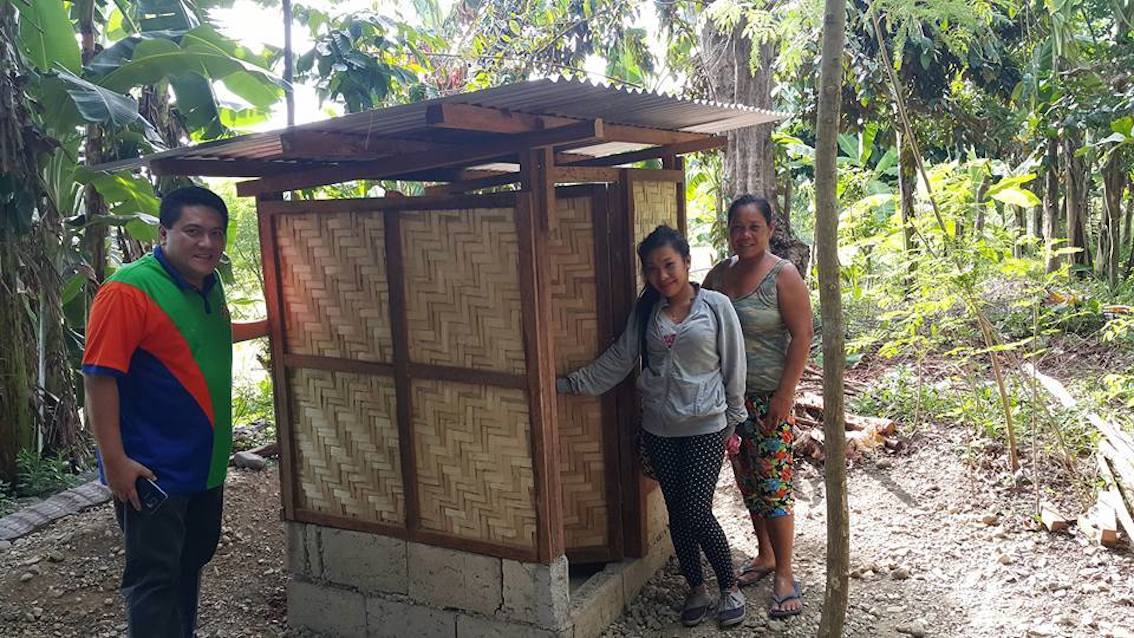 From “over there” to “over here” – access to toilets changes lives By Clem van den Bersselaar, member of Rotary Club of Ormoc Bay (Philippines) Editor's Note - Clem was one of our GSE Team's Hosts when we visited RC Ormoc Bay If you ask a Filipino living in a rural area of the Philippines where they go to the toilet, they will turn their head towards a non-specific direction and say “over there.” This means that they use any location that gives them some sort of privacy to do their needs. Women generally have to go longer distances to avoid prying eyes and avoid assaults. In fact, when one talks to local community health workers about the risks of open defecation, they tell you about parasitic and bacterial infections while also emphasizing the high percentage of women being molested or harassed. In November 2013, part of the Leyte province in the Philippines was hit by the devastating typhoon Haiyan, the country’s worst typhoon affecting 25 million people and claiming nearly 6000 lives while leaving tremendous damage throughout the island. Immediately after the typhoon, Rotary clubs from various countries came to the rescue. Local clubs responded with food supplies and worked with NGOs to begin rebuilding homes. Once immediate relief was provided, the focus shifted to meet sanitary requirements in restoring water supply and the construction of toilet facilities. The Rotary Club of Ormoc Bay identified the WAND Foundation (Water, Agro-forestry, Nutrition and Development) as having the expertise to construct 20,000 latrines together with various NGO’s immediately after the typhoon in the province of Samar in the Philippines. WAND Foundation’s previous contacts with the Malmö (Sweden) International Rotary Club, provided a natural connection to propose this project at the 8th Multi Club Workshop (MCW) held in Ischia, Italy. The project was accepted by the MCW and the partners applied for a global grant, which was approved in February 2016. Seven Rotary clubs and three districts from Italy, the Philippines and Sweden contributed to the US $52,000 project. The project included constructing 222 toilets in various barangays, six rainwater collectors, seven communal handwashing stations, 20 biosand filters, and community-led training seminars for the beneficiary communities. As a result, this project has provided nearly 1100 people with access to proper toilet facilities and almost 600 people now have a regular supply of clean water. The community-led training seminar included a series of group discussions and a workshop to demonstrate which practices can prevent water contamination and to recognize the interconnection of water, sanitation and hygiene. We also discussed the medical costs related to open defecation in order to help the community understand how much money is spent on treating illnesses resulting from poor sanitation and hygiene. We are happy to report the beneficiary communities have not had a single case of parasitic or diarrheal infections since the project was completed. Now when asked where they go to the toilet, the proud community members say “over here”! |
||||||
Climate change and The Four-Way Test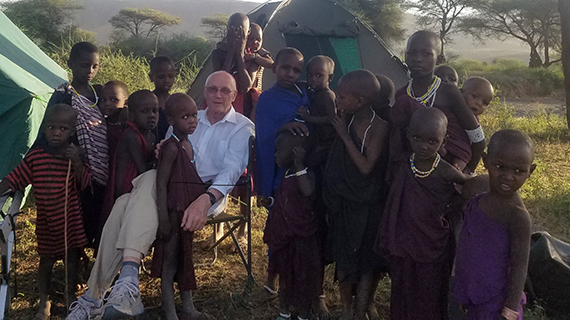 Rick Olson visits with children in Tanzania. By Rick Olson, Rotary Club of Prior Lake, Minnesota, USA Climate change is an impersonal, ambiguous term, which denotes negative impact on people around the world. But on a recent trip to Tanzania in Africa I met some of the innocents who will be most affected by the increased droughts caused by carbon dioxide emissions. On a 10-day biking safari to visit Ngorongoro Crater and the Serengeti, we camped in a school yard in a Maasai village west of Arusha, Tanzania. Three boys came to visit, and after giving them some treats, I took their photo with my phone. I showed them the photo, and a boy about 8 or 9 years old gestured to me he would like to hold the phone. So, I showed him how to take a photo with it and handed it to him. I also taught him how to take selfies and videos. Before long a group of about 15 children were gathered around us, looking at photos he had taken, enlarging the pictures of some of the kids, all to gales of laughter. It was so much fun. Seeing how quickly he learned to use the phone, without our knowing a word of each other’s language, was such a kick. These Maasai children live in a very dry area. The March-May “rainy” season had not produced a drop of rain by the time I left on 23 March. These young ones and the rest of their tribe are the least capable of adapting to even drier conditions projected by the climate scientists than the desert they already live in, hanging on by a thread. Yet, we in the United States who are in the most wealthy of countries and have produced and continue to produce the most carbon dioxide can’t even agree that human-caused climate change is real, much less agree on what to do about it. Is it the truth? As a Prior Lake Rotarian, I join my club weekly in reciting The Four-Way Test. The first two lines are: “Is it the truth?” and “Is it fair to all concerned?” A guest commentary I wrote for the Prior Lake American, Commentary: Acting on climate change can make difference, outlines why it is the truth that climate change is real and caused by humans burning fossil fuel. Is it fair that those least able to adapt to the negative changes bear the greatest impacts while we do nothing? I think not. We are not helpless in mitigating the consequences of our past and present actions. We as Rotarians can support actions including government legislation that promote feasible measures to effectively reduce carbon dioxide emissions. We can support Rotary projects that seek to alleviate or reduce the impact of climate change. Join us in minimizing the damage to not only our economy and our lives, but that of the innocents in Africa and India who will be most affected. |
||||||
Medical pilgrimage in India treats thousands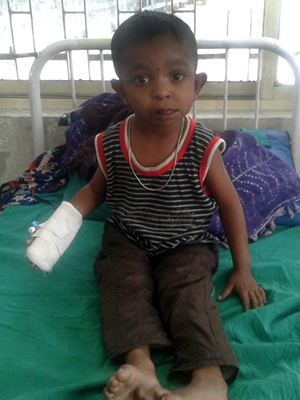 A child treated during the Rotary Club of Gandevi’s medical mission. By Parimal Naik, grant coordinator, Rotary Club of Gandevi, India In January, our club organized a medical mission to provided life-saving health care to the rural and tribal community of Gandevi in the western part of India. Our mission consisted of 26 visiting doctors and paramedics from an association of Indian physicians of Northern Ohio, USA. It was our third trip to Gandevi since 2010, and among 29 medical missions we have organized with the help of grants from The Rotary Foundation. It was pure pleasure to see the smiles on the faces of thousands of recipients, and on many of the team members as well. We are a club made up mostly of millennials, located in the Gujarat state of India. In advance of this latest trip, teams of Rotarians from my club organized screening camps in nine villages, selected on the basis of need and availability of local resources. 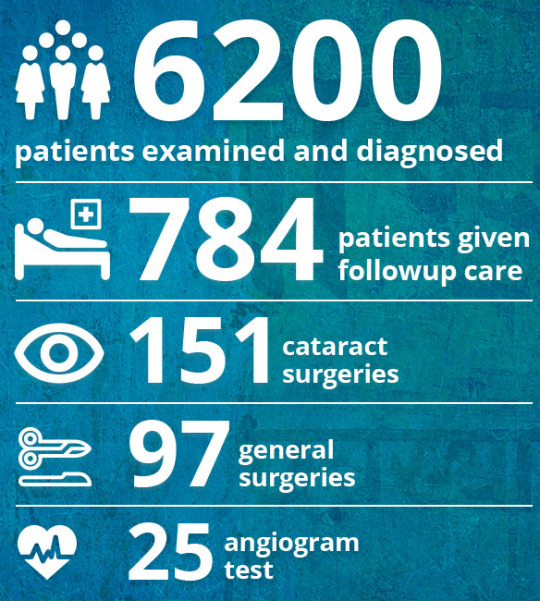 More than 6,200 patients were examined, diagnosed, and given free medicine during the nine screenings. We have a track record of providing free follow-up care to those screened during our “medical pilgrimage projects.” A total of 784 patients were identified for further care or checkups at four hospitals including Haria L.G. Hospital, Vapi; Yashfeen Cardiac Hospital, Navsari; Gram Seva Trust Hospital, Kharel; and Jamnaba Hospital, Bardoli. We received a $100,000 global grant from The Foundation which allowed us arrange the care at no cost. Through 31 March, 97 surgeries or biopsies had been performed to remove gallbladders, treat appendicitis, correct hernias and address kidney problems, among other procedures. In addition, cardiologists performed 11 heart valve replacements, 9 coronary bypass surgeries, and 25 angiograms. Ophthalmologists at Lilavati Mohanlal Shah Eye Hospital in Navsari also performed 151 cataract surgeries. We are extremely grateful to our friends in the Rotary Club of Bakersfield, California, USA, and to Rotary District 5240, who were our international partners on the global grant. District 3060 also supported us with money from their District Designated Funds, and District 1260 and the Rotary Club of Mississagga Center, Canada, partnered with us. We do not have the words to properly thank The Foundation, our partners, and all who helped with our medical pilgrimage project. Rotary is allowing us to be an inspiration to others by making a difference in our communities. Thank you Rotary and Rotarians for helping us serve humanity. |
||||||
Rotary Youth Exchange expanded my view of the world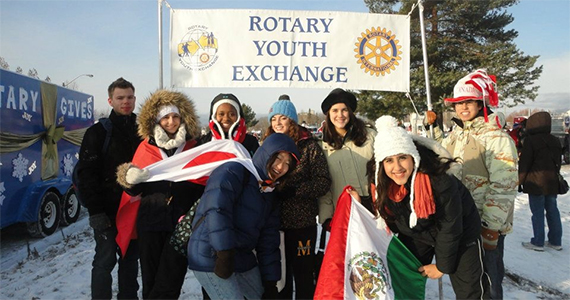 The author, third from left, on her Rotary Youth Exchange in Thunder Bay, Canada. By Xolisile Sithole, former Rotary Youth Exchange student to Canada It has been more than eight years since I embarked on a Rotary Youth Exchange to Thunder Bay, Canada, from South Africa. In many ways, it still seems like yesterday. It was an incredibly big year for me, having finished high school and qualified for university, and It remains one of my most treasured memories. Since I was little, I had always been involved with Rotary, as my mother was liaison of her school’s Interact club. Many Saturdays were spent volunteering, whether I wanted to or not. Despite that, I learned to love service and joined the Interact club in my high school. I invested time and poured my heart into the club and served as president my final year. After high school, I did not want to go to university right away. But I needed to do something as my parents threatened to make me pay rent if I just stayed at home during my “gap year.” Luckily, our host club, the Rotary Club of Azalea, encouraged me to apply for a Rotary Youth Exchange. Arriving in Canada I knew deep down the opportunity was going to change my life. But even that was an understatement. I come from a humble family in South African and it was truly a gift that the Rotary Club of arranged to fund my travels. From the first day I arrived in Canada, hosted by the Rotary Club of Lakehead, I knew it was going to be nothing like South Africa. I instantly noticed the cleanliness of the city. The people were so kind and welcoming. Canada has abundant beauty and the scenery is ever-changing. I loved the autumn leaves so much that my host sister framed them for me to take home. She went out of her way to make my experience there amazing, introducing me to all things Canadian and her own Ukrainian culture. We still keep in touch. My experience with Rotary was equally unforgettable. I remember speaking at a Rotary Youth Leadership Awards event to a full house of Rotarians. I was so nervous, but the reception was so warm that the words practically flew out of my mouth. Every time I feel a little afraid, I think back to how I was able to speak to that full house. Things had changed I was a little anxious to return home. I had developed a routine in Canada and loved all my host families. But when I did, I discovered things had changed. I was drawn to a different kind of friend. My view of the world had expanded. And I know the time in Canada prepared me for the next step in my life. A little more than a year ago, I moved to China to work as an English as a Second Language teacher. My youth exchange year taught me how to appreciate cultures that were different from my own. And I can move fearlessly in the world because I know that as a member of the Rotary family, I have family everywhere. It is a privilege to be associated with Rotary and to know that I can continue to help people around the world. I encourage anyone who has a chance to apply for a Rotary Youth Exchange. If accepted, you will never be the same again. |
||||||
Rotary makes it a small world after all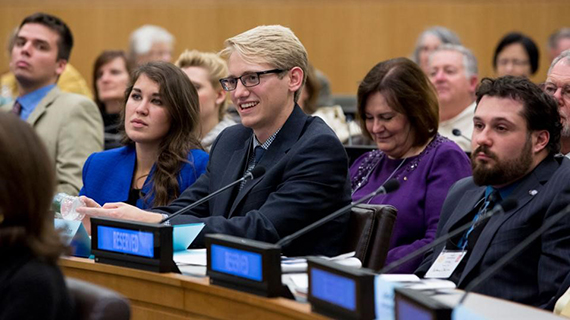 Jordan Koletic, left, and Robert Smayda Jr. at Rotary Day at the United Nations in 2014. By Kamlesh Chandan, Rotary Club of Lake Norman/Huntersville, North Carolina, USA In 2015, I was working at one of the largest Fortune 500 banks in the United States when I read an article on our internal website about a team member traveling to eastern Africa. I found the story intriguing, and reached out to her for more details about the trip and to see if it had a connection with Rotary. But at the time I did not hear back. Shortly thereafter, I began attending Toastmasters International meetings with a colleague, Robert, from the technology division. We both enjoyed our weekly dose of public speaking, and I learned that he was a young professional looking to become more involved in his community. I shared with him what Rotary clubs had been doing in the Charlotte community, and also told him about our international work. And he expressed interest in joining. I had put the intranet story to the back of my mind until later that year, when I received my copy of The Rotarian. One of the articles covered Rotary Day at the United Nations and contained a photo of a young lady attending the event and a doppelganger of Robert sitting next to her. In my next Toastmasters meeting, I told Robert about the article and he said it was indeed him and his girlfriend (now wife), Jordan. He went on to tell me about her interest in women’s health issues in east Africa and how she had spoken about the issue at the event. Two months later, Robert asked me if he could forward my contact information to Jordan, who worked at the bank in the analytics group. She called me, and we talked about her east Africa project. That began a year of conversations. I was shocked she was the same person I had read about on the bank’s website, and I connected Jordan with local Rotary leaders. I was convinced The Rotary Foundation could help her with her interest in pursuing a master’s degree in advanced peace studies at the University of Glasgow in Scotland, with a focus on regions affected by conflict. The chain of events impressed upon me how small our world can be. You never know when the person sitting next to you could be the next Nobel Prize winner, the individual that cures cancer, or just someone who wants to make a difference in the world. My Rotary club and District 7680 (North Carolina, USA) applied for and received a global grant to fund a $30,000 scholarship for Jordan, who completed a one-year peace studies program in Human Rights and International Politics at the University of Glasgow in 2017. She is now working for the Bureau of Democracy, Human Rights, and Labor within the U.S. Department of State. We stay in touch, and Jordan is considering applying for a Rotary Peace Fellowship. That day made me a believer in 2019-20 Rotary President Mark Daniel Maloney’s theme, Rotary Connects the World. |
||||||
Council elevates RotaractRepresentatives from around the world also vote to preserve club flexibility 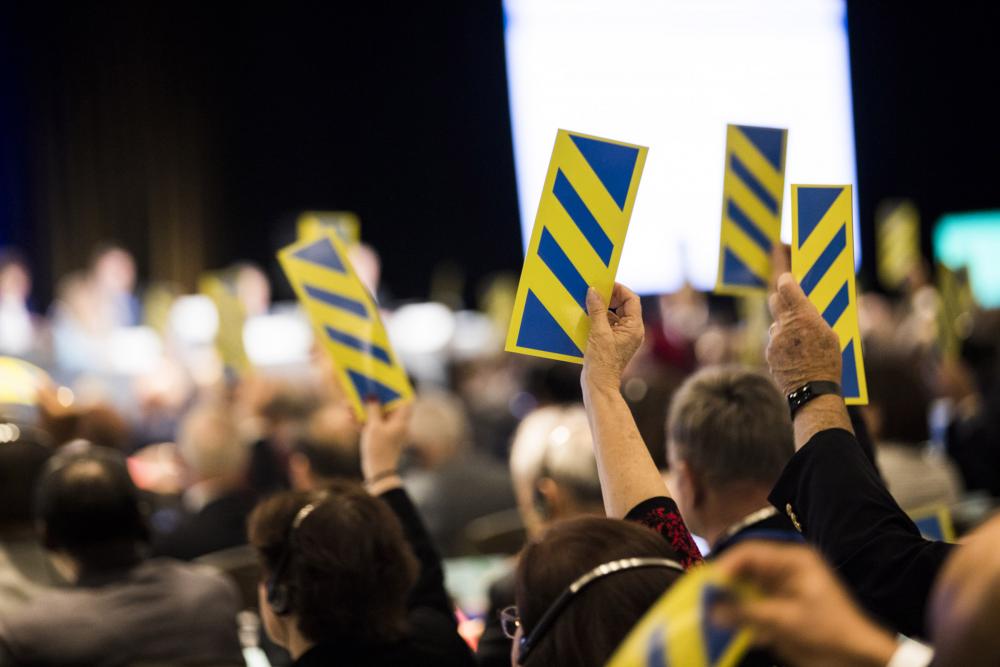 Photo by Alyce Henson By Arnold R. Grahl. Among the most important, the Council elevated the status of Rotaract clubs. The change broadens the definition of membership in Rotary International to include Rotaract clubs. The change is intended to increase the support that Rotaract clubs receive from RI and to enhance their ability to serve. “We need to be an inspiration to our young partners, so they will continue doing the great service that they do,” said RI President Barry Rassin when he presented the measure. “This sends a strong message that they are truly our partners in service.” In many ways, the Rotaract experience will not change. Rotary clubs will still charter and sponsor Rotaract clubs. Rotaract clubs will still have their own standard constitution and their own unique club experience. Members of a Rotaract club will not be called Rotarians. And Rotaract clubs will not immediately pay dues or receive other benefits, such as the official magazine that Rotary members receive. The Board will determine a dues structure over time. The measure simply expands the definition of membership in Rotary International to include both Rotary and Rotaract clubs. Every three years, representatives from Rotary districts around the world meet in Chicago, Illinois, USA, to consider changes to the constitutional documents that govern Rotary International. This year’s Council considered more than 100 proposals. Representatives authorized the Board to pursue changing RI’s charitable status to a section 501(c)(3) tax-exempt organization under the U.S. Internal Revenue Code. It is presently a 501(c)(4). A task force has been studying the possible change for 18 months and says it will offer benefits that include tax reductions and vendor discounts that will reduce expenses. Dues increase As for dues, the Council approved a modest increase of $1 a year for each of three years, beginning in 2020-21. The previous Council set dues for 2019-20 at $34 per half year. With the increase, the dues that clubs pay to RI per member will increase to $34.50 per half year in 2020-21, $35 per half year in 2021-22, and $35.50 per half year in 2022-23. The dues will not be raised again until a future Council votes to change it. Councils give Rotary members a voice in how our organization is governed. Learn more about the Council on Legislation and the Council on Resolutions on our Council web page or read our live blog of the 2019 Council. The Council also changed the name of the General Surplus Fund to RI Reserve, because that more accurately reflects the purpose of the fund. In another vote, the Council approved calling the general secretary a chief executive officer (CEO) in circles outside Rotary, to increase his stature in dealings with other intergovernmental organizations. A seemingly small but intensely debated action will reduce the number of nonvoting members at future Councils, by removing past RI presidents and allowing only one RI Board director to attend but not vote. But in some respects, the Council defined itself as much by what it did not do. This year’s representatives resisted pressure to limit some of the flexibility that the 2016 Council granted clubs, rejecting several measures that would have placed restrictions on clubs. One unsuccessful measure would have required clubs to meet at least 40 times each year. Many clubs have been using the innovative and flexible club formats to attract new members and meet their current members’ needs. Representatives also rejected proposals to make it optional for members to subscribe to an official Rotary magazine and to reduce the size of the Council by half and have it meet every two years. Democracy in action Several representatives commented on the democratic nature of the proceedings. “All of the delegates have been very responsible and respectful, no matter what their opinions,” said Adriana De La Fuente, the representative from District 4170 and a member of the Rotary Club of Plateros Centro Historico, Ciudad de México, Mexico. She has attended three previous Councils. “That elevates the trust and respect for our organization.” Glen K. Vanderford of District 6760, a member of the Rotary Club of Jackson-Old Hickory, Tennessee, USA, said he appreciated the opportunity to represent the people of his district and gather with like-minded people to voice opinions. “The process allows us to have a road map forward instead of just going day to day,” he said. “I was excited by the outcome of enhancing Rotaract and that we didn’t weaken future Councils, but preserved the ability for everybody to have a voice.” |
||||||
Family of Rotary helps after wildfire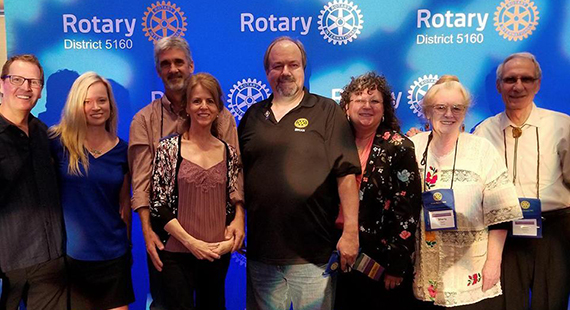 Pam Gray and her husband, Brian, (third and fourth from right) at the District 5160 conference in 2018. By Pam Gray, Rotary Club of Paradise, California, USA I grew up in a small family. My parents were both only children – that means I have no aunts, uncles or first cousins. As a child, my entire immediate family could sit around a dining table set for eight. My four grandparents, my parents, my sister and I filled the table. There was no additional ‘kids’ table! Fortunately, my dad was a member of the Rotary Club of Paradise. Our Rotary family consisted of five families, all of similar age, so we had plenty of celebrations with this extended family growing up. While my biological family grew as I became an adult, so did my Rotary family. Our club had more than 100 members when I joined and there was always something going on. 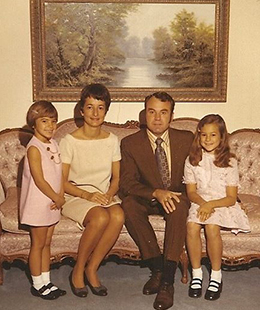 Family portrait, Christmas. Helping hands Club members took action when our home was evacuated in 2008 due to a wildfire. Members went to our home, secured our vehicles and motorcycle, took our animals to their homes and saved our computer with countless family photos stored in memory; all of this while we were at the Rotary International Convention in Los Angeles some 500 miles from Paradise. After serving as club president, I began working at district jobs which added to my Rotary family tree. Serving several district governors provided tools, and many relationships, that were key to serving as District 5160 Governor in 2014-2015. Brian and I were involved in a motorcycle accident shortly before the end of our governor year, following a ride for polio eradication. Rotarian friends cared for us and took over Rotary jobs that we were unable to fulfill. My Rotary path continued on serving our club, district and zone. Again, my Rotary family tree expanded exponentially. The result benefited not only me, but my Rotary club and other clubs in the area. 17 days of wildfire Then the Camp Fire began on 8 November 2018 and raged for 17 days leaving much of our beloved Paradise as piles of rubble and ash. In less than 24 hours, Rotarians from Santa Rosa, California, were on task to help Paradise. They established a GoFundMe page for our club’s foundation and came to see us sharing their knowledge of rebuilding after a major fire. Rotarians, not only from neighboring districts, but neighboring states delivered supplies and provided cash aide and gift cards in the tens of thousands of dollars within the first week. While serving as district governor and visiting 71 Rotary clubs, my Rotarian friends came to know me as “Pam from Paradise” and I chose to share my love for the family of Rotary. Considering all Rotarians as my family, they are returning the sentiment by helping Paradise where they can and providing encouraging words during our darkest days. |
||||||
Council on legislation to review changes to RI policies
Rotary members from all over the world will gather in Chicago 14-18 April to consider changes to the Constitutional documents that guide Rotary International and its member clubs. The Council on Legislation meets every three years and is an essential part of Rotary’s governance. The representatives — one from each Rotary district — review and vote on proposals that seek to change Rotary’s constitutional documents. This year, the council will consider more than 100 proposals, including one new item and three recently amended motions from the Rotary International Board of Directors: 1. Authorize the RI board to change RI to a 501(c)(3) organization Proposed enactment 19-117 seeks approval to change Rotary International's charity status from a 501(c)(4) organization to a 501(c)(3) organization under the United States tax code. As a 501(c)(3) organization, RI would be eligible for benefits, such as tax reductions, vendor discounts, and certain corporate sponsorships. 2. To admit Rotaract clubs to RI membership Proposed enactment 19-72 would acknowledge Rotaract clubs in the RI Constitution and Bylaws and elevate them to being more equal to Rotary clubs. The Board believes that now is the time to emphasize the important role that Rotaract clubs play in the Rotary family by formally recognizing them in the constitutional documents. Rotaract clubs will continue to have their own standard constitution, maintain their own identity as Rotaractors, and preserve their unique club experience but will receive greater support from RI. 3. To amend the term of reference for the Rotaract and Interact Committee Proposed enactment 19-75 would remove Interact from the responsibilities of the committee in order to emphasize Rotaract as a membership experience distinct from Interact as a youth program conducted by Rotary clubs. It allows the committee to focus efforts on improving the Rotaract experience, which was identified by the strategic plan as showing great potential as a new channel into Rotary. The RI president may still appoint an Interact committee. 4. Revise policy on financial reserves The RI Board seeks to modernize RI’s policy for reserves to meet future circumstances, in accordance with principles of good governance. Proposed enactment 19-95 would provide a clearer definition of reserves and specify that the appropriate level of reserves is 55 percent of annual operating expenses instead of 85 percent. |
||||||
4 dynamite ways to find new members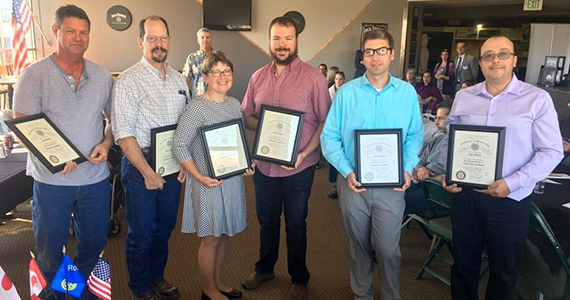 The Wenatchee Confluence Rotary Club’s new members class of October 2018. Membership chair Rob Tidd says do something to make new members feel special, like framing their certificates and interviewing them during their induction. By Rob Tidd, District 5060 membership chair and member of the Rotary Club of Wenatchee Confluence, Wenatchee, Washington, USA In January, we had 61 members in our club, an increase of about 40 percent from the beginning of the Rotary year in July, when we had 43. Our success has been based on two ingredients: encouraging friendships and promoting fun in Rotary. But just as important to our growth has been a systematic and continuous follow up with potential new members. Too often a potential new member is approached once and then forgotten. Every club needs a champion or champions willing to take the extra time to stay in communication with every potential new member. I am often asked where I find all these potential new members. Our sources grow as we come up with new ideas. Below are some of the practical ways we have found members: Follow up on RI membership leads: Prior to my year as District 5060 membership chair, I discovered that some of the membership leads sent to us by RI were never contacted. I decided to work my way back in time through the leads, going as far back as several years, to see if any of these individuals were still interested in Rotary. One gentleman in particular had never been contacted and was enthusiastic to be invited as my guest. Not only did he join, but he asked if his business partner could also be considered for membership. Of course my answer was “yes” and now both are members. These are people who took the time and made the effort to contact Rotary International. Get referrals from other clubs: I have found that sometimes a member of another club crosses paths with a co-worker who they think would be a good Rotarian, but because they are co-workers, or they have a boss-employee relationship, they don’t want to invite them to be a member of their club. If something were to happen at work, it could create awkward situations in the club. Yet that person might be a great fit for another Rotary club. So I routinely go through the membership lists for the other clubs in my area and ask for referrals. I know this works because we have Kyle as a member of our club who was referred to us by a member of another club. Find leads in your local newspaper: I get excited every day to see who I might find as a potential member in my daily newspaper. Our newspaper includes information about the movers and shakers in our community, the recently retired, new home purchasers, and new businesses. The list is endless. I craft specific letters and follow up in 30 days. Often it is not even necessary to follow up because the recipient is touched by the letter and accepts the invitation for lunch at my club. I know this works because we have Jeff in our club because he responded to my letter. Keep organized with a spreadsheet: I created a spreadsheet with a list of potential new members, and set up a schedule to follow up with these people. My list includes recommendations from club members in my club, people who have given presentations at my club, former Rotarians who left other Rotary clubs in my area due to dissatisfaction or lack of engagement with their former Rotary club, and recipients of the letters I mentioned above. Systematic and continuous follow up is so important. This list helps me stay on track to make sure no one is forgotten. I hope you find this information helpful. May you also be successful in your quest for new members. |
||||||
Rotary-supported story contest gives Tacoma youth a voice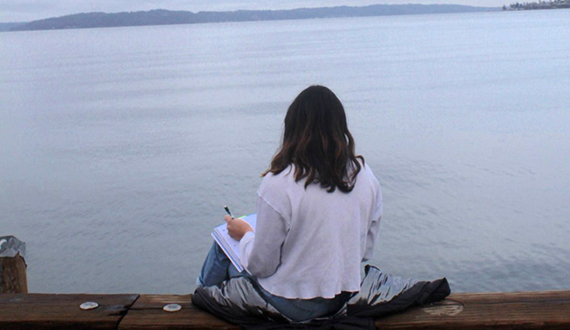 The first-ever Tacoma Ocean Fest Youth Story Contest invited youth to write about the ocean and what it means to them. By Rosemary Ponnekanti At first, Hope was reluctant. She was on the verge of flunking school through poor attendance. But when Kathleen Figetakis, literacy chair at Tacoma Sunrise Rotary, Washington, USA, asked the Tacoma senior for one little favor – to put up posters in her school for the Tacoma Ocean Fest Youth Story Contest – Hope agreed. Six months later, she had not only won second prize in the contest, but she also graduated from high school – and helped the inaugural contest to be a wave of success. Tacoma Ocean Fest began on World Oceans Day, 2018. The brainchild of arts journalist Rosemary Ponnekanti, the festival celebrates arts, sciences and water fun. When Kathleen mentioned to Rosemary that her Rotary club was looking for youth literacy projects, an idea was born – to create a story contest around ocean awareness and conservation. Local teachers jumped on board. Some folded it into class curriculum, others encouraged students to attend the free poetry and film workshops held at the local library. Local teens were invited to write a poem, make a short film or – new this year – create a data graph about the ocean, its importance to them and the threats it faces, such as plastic pollution, climate change, and endangered orcas. And of course, there were incentives: prizes totaling $1,000 from Tacoma Sunrise Rotary, plus other donations and a free pizza coupon for every entrant, generously donated by Rotarian Lance Hungerford. The reaction at the festival, when students summoned their courage to read their poem or watch their film in front of a public audience, was overwhelming. “This was so powerful – that young people could speak their thoughts, passions and worries about our ocean’s future, and be heard by our community,” said city councilmember Ryan Mello, who presented the prizes. “I was blown away by their skill and commitment.” Finalists were also invited to read their poems at a Sunrise Rotary meeting, to warm acclaim. “Tacoma Sunrise Rotary was excited to support the first Ocean Fest Youth Story Contest this year,” said immediate past president Richard Corak. “The contest hit several of our club’s areas of focus, including literacy and youth education, and for good measure targets environmental concerns. We hope to have a long and mutually beneficial relationship in the years ahead.” Now, the Tacoma Sunrise Rotarians are busy preparing for the 2019 contest. The most exciting change is three additional Rotary clubs are joining, including the Rotary Club of South Tacoma, Rotary 8, and Passport Club of Pierce County. Thanks to a partnership with Tacoma Public Schools, each school in disadvantaged areas will get a Rotarian volunteer to support teachers to create more success stories like Grace’s. “This is so powerful – it’s a gift,” said Hannah Gbenro, Tacoma Public Schools Director of Innovation. “This is the kind of program that gives our kids a voice and inspires them to learn. It’s so exciting.” |
||||||
Rotary clubs blanket Brazil with polio and measles vaccinations
|
||||||
Empowering women in Colombian prisons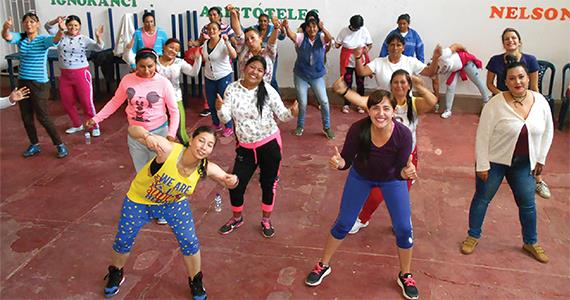 Charlie Ruth Castro leads an exercise class for inmates. Charlie Ruth Castro By Charlie Ruth Castro, Rotary E-Club of Sogamoso Global, Colombia I had to go to prison to understand how education for innovation is the path for empowering millions of Latin American and Caribbean women economically. I’ve never committed a crime; I belong to that group of people who believe education is the most sophisticated tool we have to opening any door. In 2016, I founded MujeresConDerechos.org with the idea of reminding society that all girls and all women are powerful. For this reason, I have dedicated myself to gathering the most influential leaders through summits, marches, and a television program. The attention and support I have received has been converted into generating innovative programs for girls and women most in need. We had an amazing opportunity in October 2017 to put into practice the methodology of innovation I had created at Harvard University and that I had successfully tested with 1,500 youths living in rural areas of Mexico and Colombia. Now, I would be able to test my theories with 170 women in a medium-security prison in Sogamoso, within Boyacá. The first day we visited them, the other women who went with me left terrified. A prison is a hell designed to disempower and mutilate human potential daily. However, I insisted we return and begin our program, “Nuevos Comienzos Innovando” (Innovative New Beginnings). The first two months, we dedicated ourselves to working with them on the concepts of confidence, forgiveness, strength, peace, and leadership. It was incredible to see over a short period of time how these ladies went from being hermits and melancholy, to participating and hopeful with our process. By 22 December 2017, we were capable of laughing, crying, and hugging while we planned powerful goals for a better future. A prison is a hell designed to disempower and mutilate human potential daily. My methodology for digital empowerment bases itself on a very simple principle: we are all capable of seeing ourselves as superheroes through the use of innovation when we put our strength to resolving the more general and common problems affecting our community. These ladies have come to understand that the three problems most affecting women in prison are their separation from their children, the lack of information regarding staying healthy in a highly unhealthy space, and interpersonal disputes about debts owed, that end in shocking punishments, such as the infamous “dungeon” – a dark, cold, and repugnant space where they could be held for up to 72 hours. With these women, I’ve had the most profound discussions about justice, the economy of crime, liberty, and transcendence. The methodology we used has inspired them to plan their own brand and line of beauty products made from organic herbs. Those least interested in these persons having a decent job and re-entering society are the public servants of the National Penitentiary and Prison Institute of Columbia. The challenges, as well as humiliation, they have produced for the team and the women of our program are innumerable. But advocating for a more just society demands arming yourself with patience, and being creative in order to focus on the solutions and not the problems. The majority of the women who took part in my program arrived at this prison due to crimes such as drug microtrafficking and theft; some landed here for homicide, kidnapping, or extortion. Almost all of them are mothers, and nearly a third of them are the second generation in their families to commit a crime. Most come from rural areas and bands of poverty within medium-sized cities. Almost all of them chased the fantasy of making money and becoming self-sufficient via the activities that led them to crime. A great many of them know their legal past will mark them and if they do not learn appropriate work skills or work on themselves from within, they are condemned to repeat the same mistake on the outside. However there are two things that almost all these women share: they come from an impoverished Colombia and they face a culture that is violent against girls and women. My team and I feel grateful these women allowed us to research and work on a reality that affects so many. Despite how difficult it is to believe, we have concluded prisons are where we will find the potential to transform the country. Yes – impossible to believe, but they are. The women in this prison made it possible for me to understand that the inequality and violence we see in the world today has its origins in gender inequality and lack of access to an empowering education for millions of girls and women. It is time to invest in the education of innovation for our girls and young women. If we equip them with the tools that allow them to understand problems as opportunities for solution, or go as far as to teach them to use new technologies to create sources of employment, and to achieve excellence in the jobs of today and tomorrow, we can secure their economic empowerment, and we will be supporting the innovative and sustainable industrialization of our countries. |
||||||
What it’s like to escape a wildfire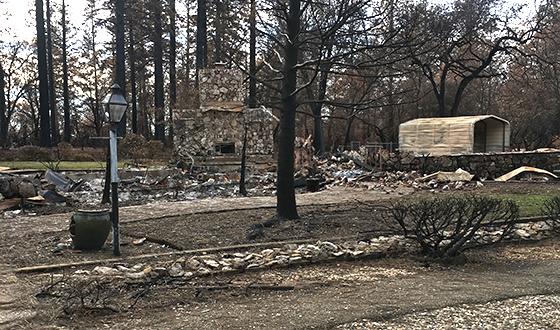 The Gray’s home after the fire. By Pam Gray, past district governor and member of the Rotary Club of Paradise, California, USA While 77 days may seem like a long time, it has been a flash for those of us who were living in Paradise, California, and the surrounding foothills on 8 November, 2018. My husband and I are members of the Rotary Club of Paradise. I was a District 5160 Governor during the 2014-15 Rotary year, and my husband, Brian, is currently club president. Brian was known as the “First Dude” as we traveled to visit 71 Rotary clubs the year I was governor. The “First Dude” and I made it out safe along with our Saint Bernard and two cats. While our home is gone, like those of most other Paradise Rotarians and residents of the Ridge, the main building of my funeral home is standing. This is wonderful as we had several folks in our care and we were able to get them to my Oroville location so the families could go ahead with various services they had planned for their loved ones – on just 18 January, 2019. Brian’s business did not survive even though it was standing when we left town. We did not leave our home until the afternoon of 8 November because we were awaiting the notification that our ‘zone’ was being evacuated. Zones were developed a decade ago after an evacuation resulted in traffic so bad people could not get off the Ridge and just stayed. The final notification I received was at 9:18 a.m. By noon, our son-in-law was calling from Flagstaff, Arizona, telling us to get out immediately. He was watching the news; we had no news. We walked through each room and said goodbye to our home and to our “stuff.” We told our home she had been great and we were sorry we could not stay to keep her safe. Typically it would take about 10 minutes to get to the next town. We were fortunate on 8 November we made the trip in an hour and 20 minutes when earlier in the day it took people eight hours. As fate would have it, the Zone Institute was the following week and Brain and I decided to attend after our very gracious hostess offered to keep the pets while we traveled to Reno, Nevada. It was good to be among so many Rotarians. How to help Sonoma Rotarians set up a GoFundMe page the day after the fire that will benefit the Paradise Rotary Foundation. We were able to make some great contacts that are of great benefit to the Paradise Rotary Foundation. We are very grateful for our Rotary family. In between sessions, we spent the time returning phone calls from around the country. We made dozens of calls each day. The following week, we had a surprise birthday party for our Exchange Student, Val, from Columbia. Val fled Paradise High School with her host brother (an exchange student to Brazil last year) and made their way to Chico. The youth exchange committee then got her to Burney, California, more than 110 miles northeast of Paradise. During the days since the fire began, the Rotary Club of Vacaville Sunrise about 200 miles south of Burney agreed to host Val for the remainder of the year. While Val desperately wanted to remain with her first host family, it was decided that would be impossible. Three generations of her host family had lost all of their homes and businesses. It was sad to let Val go. Brian was able to find a place for our Rotary club to meet and we began meeting just one week after the beginning of the fire. We had two meetings before the fire was 100 percent contained on 25 November 25, some 17 days after it began. |
||||||
Doing good in Vietnam
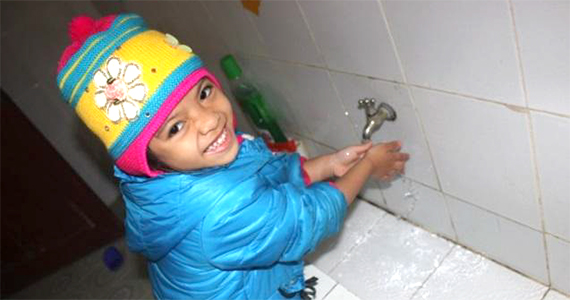 A young girl washes her hands in the new facilities. By Shahul Hameed, Rotary Club of Singapore (District 3310) For some of us, it might be hard to imagine life without clean water. We may have suffered the inconveniences of temporary water cuts due to breakdowns or repairs in the water network. And we may have felt frustration after working out at the fitness center if the shower was broken. But those are just minor inconveniences compared to what people in the Huong Nguyen commune live with. Until recently. It takes a drive over many miles through tortuous and bumpy roads to reach Huong Nguyen commune. It is located in a very mountainous region, close to the Laos border, in the A Luoi District, Thua Thien Hue Province, one of the most affected areas during the Vietnam War. Through the assistance of a Rotary Foundation global grant, a project provided a water supply system and environmental sanitation benefitting 1,252 people in 316 households. Visiting Rotarians teach the children safe hygiene habits. The project also enabled construction of 50 hygienic latrines. These play an essential role in keeping waste away from living spaces, which means less disease and better health for all the affected people. It is expected that all these measures will have an important impact in the health of the inhabitants of the commune. But they are also expected to have other impacts. It will no longer be necessary to travel long distances to bring clean water home, saving time for the inhabitants of the commune, time that might be spent in other profitable tasks, increasing the economic prospects of the whole area. It is difficult to describe the atmosphere in the training sessions where those living in the commune learn about the new facilities and are taught hygiene. The smiles on the faces of the attendees and the laughter of the boys and girls says much about the joy and happiness that Rotary has brought to this poor commune almost lost in the mountains of Vietnam. |
||||||
Learning a common language of respect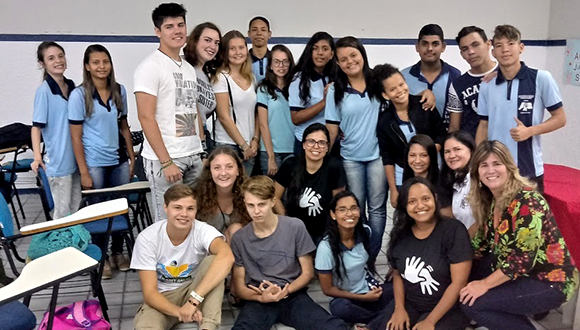 Rotary Youth Exchange students share stories and ideas with students from a high school for the deaf. By Daladiana Cunha Lima, co-chair of the Youth Exchange committee for District 4500 (Brazil) Rotary Youth Exchange is my favorite Rotary program. From my experience, I found the challenges of Youth Exchange are fairly universal. Among these, I believe one of the most important is connecting the students’ exchange year with Rotary’s mission of providing service. My district hosted about 35 exchange students in 2017-18, seven of which were in Natal, Rio Grande do Norte, in northeast Brazil. The other students came from Canada, Denmark, Finland, Belgium, Germany, Taiwan, and Poland. At the beginning of the year, I started to think of ways we could add more social value to their exchange year. I came up with the idea of having the exchange students visit a local high school for the deaf. The deaf students belong to a Rotary Community Corps sponsored by the Rotary Club of Natal. The exchange students talk about life and culture in their home countries, and all the students learned the John Lennon song “Imagine” together in Brazilian Sign Language. Over the period of two months, this initiative had a great impact on everyone. I realized that the exchange students we were hosting had the extra challenge of not only learning Portuguese, but also a completely different form of communication, sign language. They became more sensitive to the circumstances of young deaf students. Brazilian deaf students have never before had the opportunity to meet students from other parts of the world. Both groups learned a lot about each other and about inclusion. For that period of two months, exchange students, deaf students, Rotarians, and staff at the school were all speaking the same language – one of tolerance, respect, and love. I received a lot of positive feedback when I shared our example at the 38th meeting of Brazilian Youth Exchange Officers later in the year. We had youth exchange officers not only from Brazil, but also other countries like the United States, Denmark, Mexico, and the Netherlands. I am very excited to repeat the project with exchange students we host this year (2018-19). |
||||||
Rotary recognizes UK Prime Minister Theresa May with polio champion award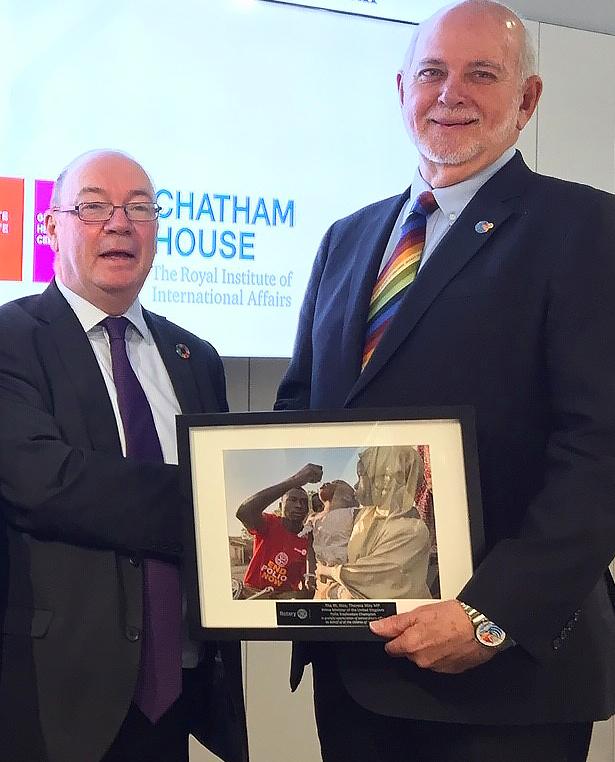 Alistair Burt, left, the UK minister of state for international development and minister of state for the Middle East, accepts the Polio Eradication Champion Award from RI President Barry Rassin. By Ryan Hyland Rotary honored Theresa May, prime minister of the United Kingdom, with the Polio Eradication Champion Award for her leadership and political support toward ending polio. Rotary International President Barry Rassin presented the prestigious award to Alistair Burt, the UK minister of state for international development and minister of state for the Middle East, at a roundtable discussion on polio eradication on 27 November in London, England. Rassin told Burt, who accepted the award on May’s behalf, that the UK has repeatedly demonstrated an unwavering commitment toward a polio-free world. “Britain’s leadership in making multiyear commitments in support of global polio eradication has been an example for other countries to follow,” Rassin said. He added that flexible funding from the UK has given the Global Polio Eradication Initiative more resources to respond quickly to “dynamic needs.” Under May’s leadership in 2017, the UK pledged about $130 million to the GPEI for 2017-19, bringing the country’s cumulative support for polio eradication to $1.6 billion — second only to the United States. May has also been a strong advocate for other countries in the G-20 and G-7 to maintain their financial and political support for a polio-free world, Rassin said. “The UK remains committed to reaching our goal of eradicating polio and ensuring that no child suffers from polio again,” Burt said. “We are very proud of the contribution we have made to setting polio on the road to becoming history. I want to take this opportunity again to thank all those involved in the fight against polio, especially those on the ground working in incredibly difficult circumstances, and Rotary colleagues all around the world who have helped us reach this point.” Rotary established the Polio Eradication Champion Award in 1996 to recognize heads of state, health agency leaders, and others who have made significant contributions to ending polio. Past recipients include Canadian Prime Minister Justin Trudeau, Japanese Prime Minister Shinzo Abe, German Chancellor Angela Merkel, Nigerian President Muhammadu Buhari, and former UN Secretary-General Ban Ki-moon. |
||||||
8,000 Kilometers to Peace |
||||||
The Backpack Program for Merrimack Valley (NH) School District(December 27, 2018) While most students from low-income families can count on regular meals through the school district’s free- and reduced-price meals program, many of these children go home on Friday afternoon and will eat little again until breakfast at school on Monday morning. The need is still on-going with approximately 43% of the students in the district being food-insecure. The Backpack program continues to help meet that need on weekends by sending home a backpack filled with healthy food (three suppers, two breakfasts, two lunches and two snacks). The Capital City Sunrise Rotary Club is supporting this effort with a $4,000 Rotary District matched donation to continue the program for a number of students through this school year. 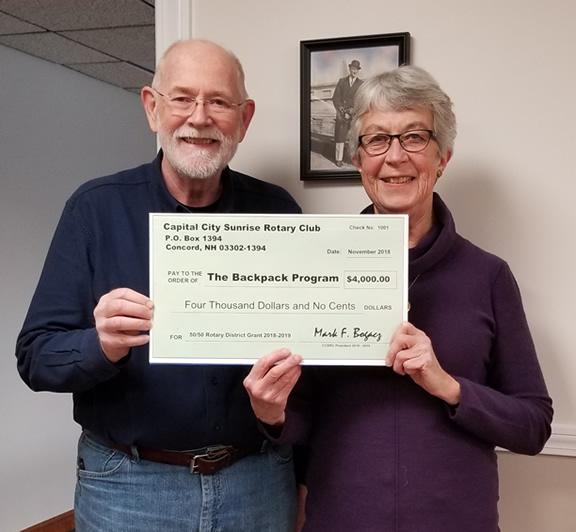 Michael Dunn, Capital City Sunrise Rotary Club presenting 50/50 Rotary District Grant to Fran Philippe of the Friends of Forgotten Children and The Backpack Program. |
||||||
Holiday Time for Capital City SunriseThis is the time of year when the Rotarians of Capital City are the busiest, giving back. It started the day after Thanksgiving when we set up our free hot chocolate and cookies table at Concord's annual Christmas tree lighting on the state house plaza. 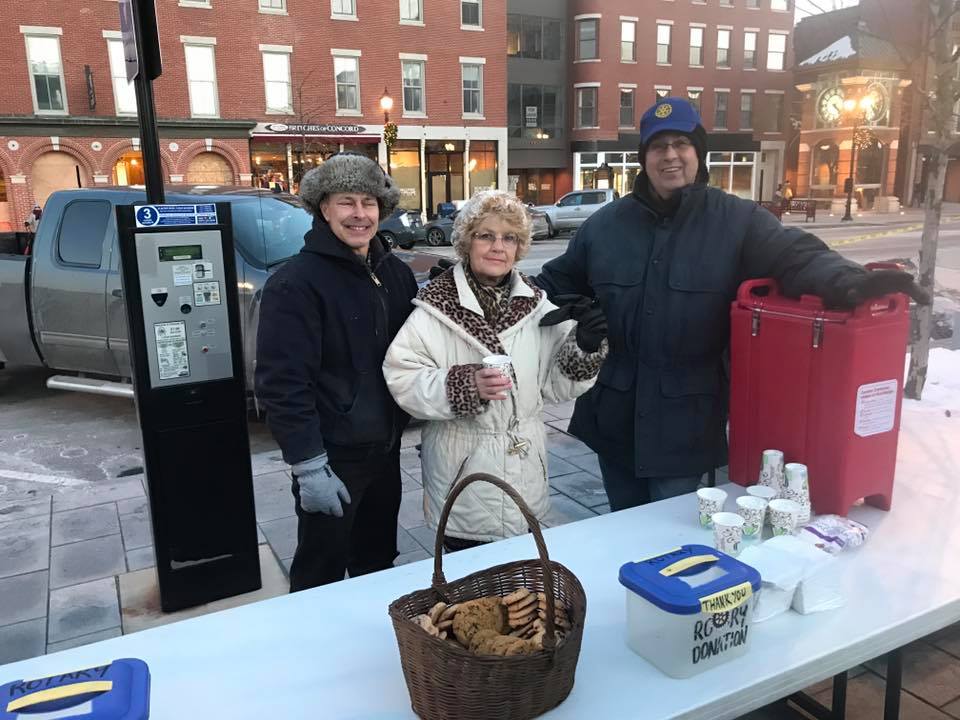 The Fourth Wednesday of every month, Capital City Members and friends cook an evening meal for the homeless at the Penacook Open Community Kitchen, Here are the volunteers for the 28th of November: 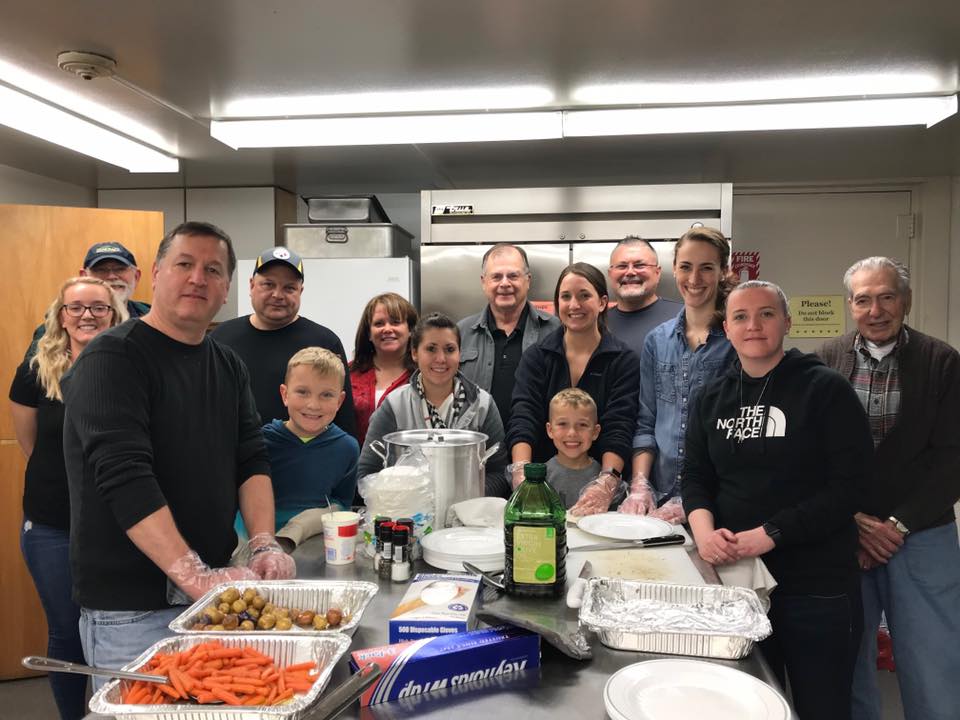 On December first, the thirteen club members rang the bell for the Salvation Army at the local Market Basket Supermarket and raise a record $1,600 in one day. 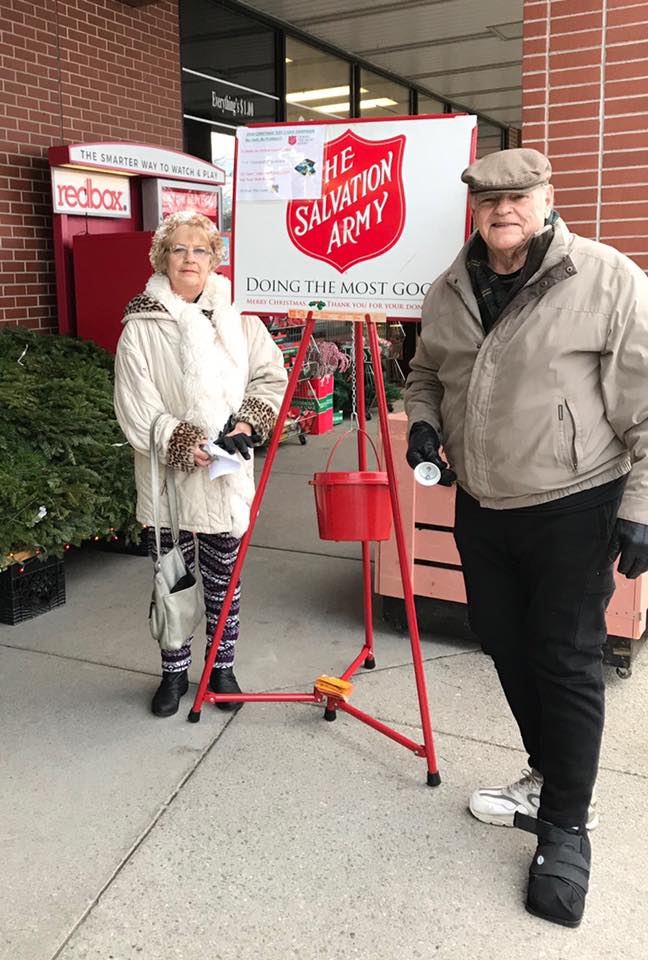 On the seventh, President Mark set up his photo gear at Concord Photo Service during Midnight Merriment to offer family portraits and a Christmas ornament, courtesy of CPS. 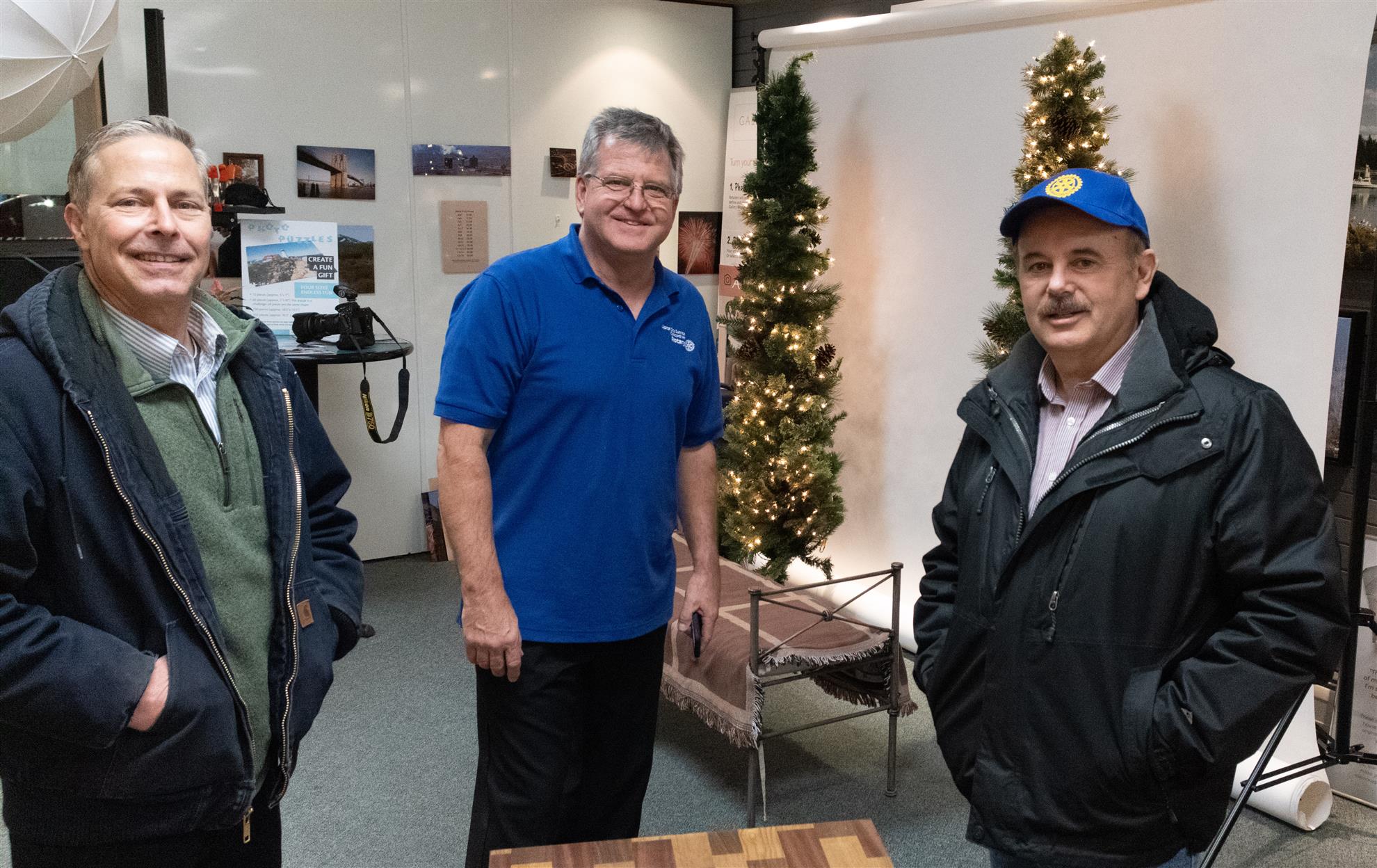 On the thirteenth, with the help of friends and volunteers and caroling group from The Immaculate Heart of Mary, the club members cooked a ham dinner at the Salvation Army and transported and served it to the residents of the 120 apartment Crutchfield/Pittman place Building - an annual event since 2008. .jpg) On Saturday, the 15th, the club participated in the Wreaths Across Ameriaca program - Wreaths were laid on veterens' graves in the Maple Grove Cemetary in Concord. 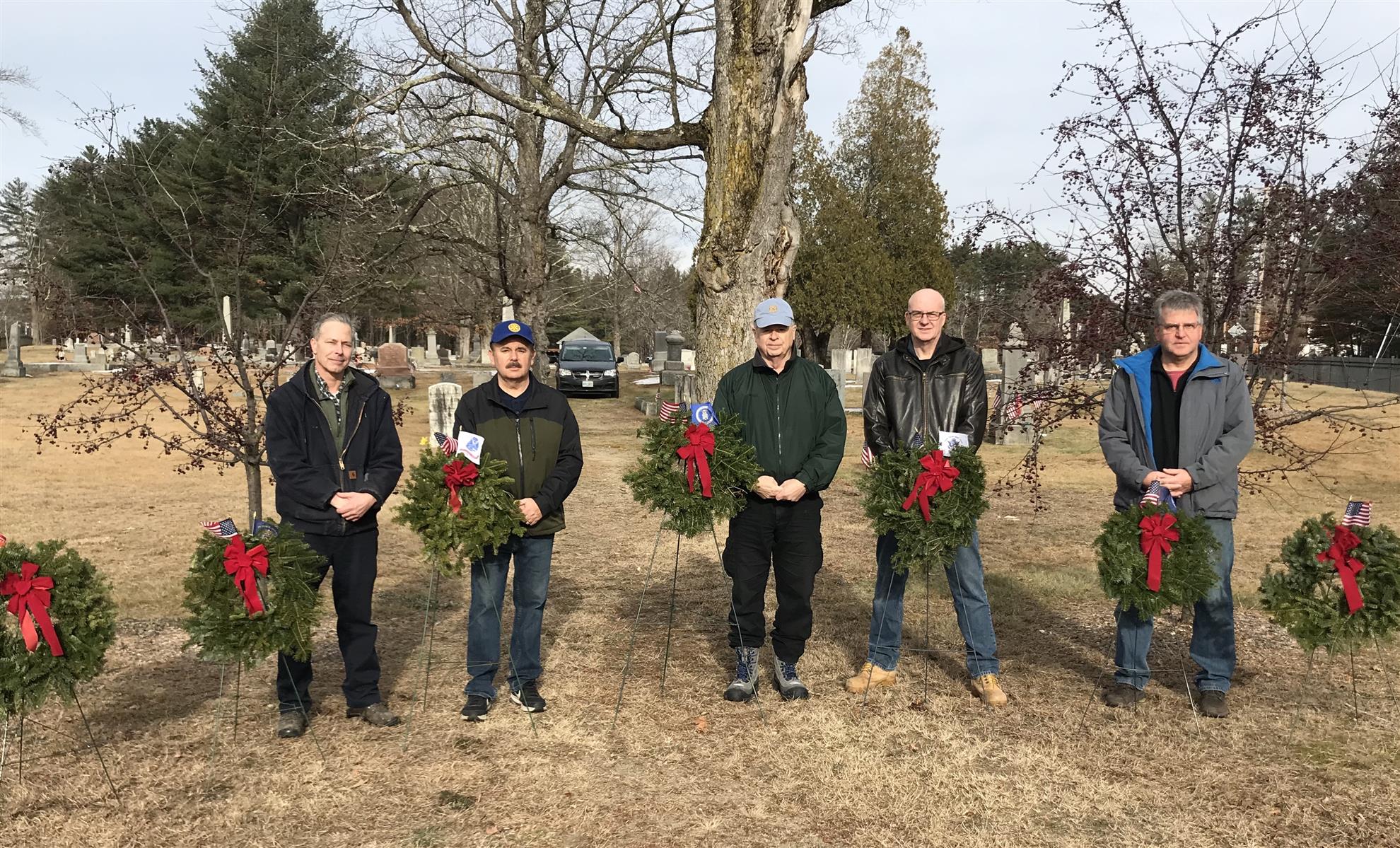 The Fourth Wednesday in December this year is the day after Christmas, our turn to cook at the Penacook Open Door Community Kitchen. Rotarians Jim Spain, and our two Mikes, Dunn and Manning will be preparing the turkey dinner with all the fixings for the homeless that evening. Capital City takes a break until the first Thursday in January as will this newsletter. Happy Holidays to all! |
||||||
New Rotaract club creates community in Ohio.jpg) Members of the Rotaract Club of Canal Fulton, Ohio, USA, clean and pack potatoes at a regional food bank. By Evelyn Aaron, Communication Director, Rotaract Club of Canal Fulton, Ohio, USA If you ask any one of the members of the Canal Fulton Rotary Club why they joined, they will tell you it’s the sense of community that binds us all together. Many of us have spent significant portions of our lives in the greater Canal Fulton area, and we want to provide our children and our town with the same helping hands that we have been offered our entire lives. Canal Fulton’s Rotary Club is tirelessly active in our community. The annual Mother of All Races event, held on Mother’s Day weekend, is a huge hit. And they are currently one of the driving forces behind our town’s forthcoming YMCA (just to name a few projects). In the last two years, the Interact Club they sponsor at Northwest High School has grown from 25 to over 60 student members, taking on countless projects every year. While these are strong clubs and major forces in our community, there was a gap to be filled. There was no Rotary-sponsored club for young adults to stay active in the community. Our Rotaract Club quickly grew from the one person who started the group to the five people she contacted and met with in just days, to the 15 friends that came to our first meeting. That base of people has encouraged new people to join as members or simply take part in our service projects. We all serve to the greatest capacities we can manage, and that is what makes our Rotaract club special. We are busy young adults balancing school, careers, and families, as well as the sports leagues and service initiatives we committed to prior to joining this group. And yet we are making this club a huge success by keeping in contact with one another over our Facebook page and in a group chat, constantly throwing out new ideas, and frequently coming together over pot-luck dinners. Since our first meeting in June, we have volunteered our time at a baseball tournament for the physically and mentally disabled; at the local high school’s Alumni Football Game; at a volleyball tournament to raise money for a child with cancer; at a service day to clean up the facility and property where we and our Rotary club both meet; at a regional food bank where we spend two hours in the early morning cleaning and packing potatoes; and at our local community cupboard. All of this has been possible through a grant we received when we started this group and with the help of our Rotary club, who with their years of service advise us on projects. In the future, we plan to purchase gifts for a family for Christmas, cook meals at a local soup kitchen next summer, and lend a hand at Canton’s Total Living Center. By doing these activities as a Rotaract Club, we are creating that sense of community that we all enjoyed as children. We are excited to see all of the help we can offer and the smiles we can create. |
||||||
Who knew attempting a world record could transform our club?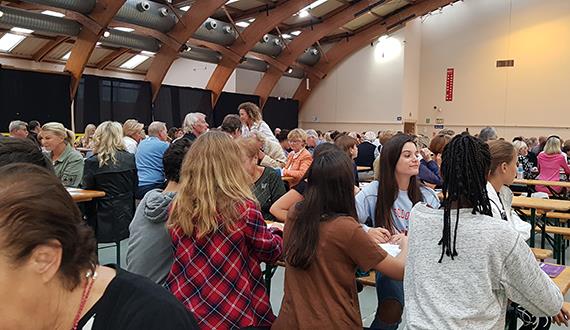 More than 300 participants fill Palacio Hall for the Beetle game world record attempt. By Joanna Chrzanowska, president, Rotary Club of Marabella-Guadalmina, Spain The event planning team from the Rotary Club of Marbella-Guadalmina, Spain, was awed by the first sight of the hall they had to fill. We have drawn 80 people to our walks or events before, but aircraft hangar might be the best description for the room we were looking at. It had been generously donated free of charge by Marbella Town Hall, who have been very supportive of the expatriate community. The space was also free of tables, chairs, a sound system, a stage and several other necessities for putting on a large public event. Founded in 2010, our club is English-speaking with members from a number of different nationalities, including many new Rotarians. We have been effective at fundraising for local and international charities, but why did we suddenly take this on? Why we did it We’d love to tell you it was part of a master plan for growth and community engagement. But the truth is it was more like a ball that started rolling and didn’t stop. A member suggested that we could aim for a Guinness World Record in a competitive game called Beetle, which involves throwing a die and drawing parts of a beetle according to the numbers that fall. Sounded easy. Get lots of people together for a couple of hours. Give them a paper, pencil and die. And film the record attempt. Several months later we were still working out logistics, how best to sell tickets, what else we would have to offer, how to promote the event, how to get tables and chairs to the venue, and so on. There were some dark days, doubts and debates, a mountain of emails, and uncertainty until the very last that we would have enough people in the hall to even make the record attempt valid. A warning for severe rain on the day of the event didn’t help. Team dynamics like never before Just before the event, the team working on it pulled out all the stops; united by a strong determination to do the very best they could for the club. Our Events teams are used to working hard, but this was exceptional. Everyone worked effectively, and somehow managed to not fall over from exhaustion, driven by a unity of spirit that arranged furniture, audio, display stands, crowd control, refreshments, publicity, etc. And yes, despite the weather, well over 300 people came to enjoy the displays, the entertainment, and to take part in the game, hoping to win the beautifully crafted Golden Beetle. Reach for the moon. Even if you fail, you will be among the stars. Things weren’t perfect that day. Yet the atmosphere was positive and we built a great connection with the local community. Sponsorship had already raised money for a charity for Alzheimer’s no matter what happened. The record attempt has still to be ratified by Guinness World Records, but people left the hall feeling it was a success. The club has been a different place since this accomplishment. There is a feel-good vibe. Our horizons have expanded and our confidence has increased. We are prepared to be less insular, more organised, more dynamic. There won’t be another Beetle event for sure. But the Marbella Town Hall has said we can have the Palacio again next year. What will we do with it? |
||||||
Thanksgiving |
||||||
Driving a junk car across Europe for charity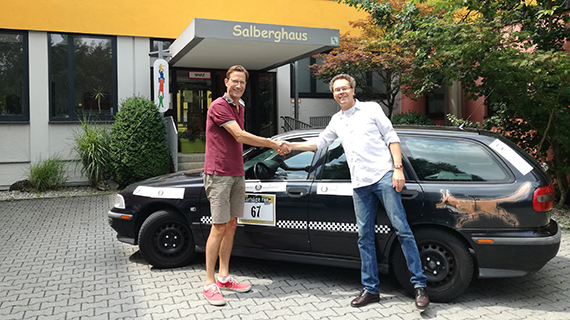 Konrad Niemann, left, and his son by the junk car they used in the Carbage Run. The car was auctioned off, and combined with funds raised by the run, to benefit the Salberghaus, a home for children. By Konrad Niemann, President of the Rotary Club of München-Münchner Freiheit, Germany In February, my son and I were driving in Germany when we began passing a bunch of strange-looking cars on the highway. We discovered they were part of a road rally called the Carbage Run, that is essentially a five-day road trip across Europe in a junk car. For the past 10 years, participants have paid about €350 (about $400) to take part in the event, originating in the Netherlands, with cars that must be more than 18 years old and worth less than €500 ($560). Looking at all these junk cars, my son and I thought “what a funny idea for a father-son activity.” To make the idea even better, we decided we would do the trip as a fundraiser for a children’s home in Munich. The emphasis of my presidential year is children, because they are our future. We signed up for a German version of the ride that was launched two years ago, that crosses 2,500 kilometers (about 1,550 miles) from Germany, through Switzerland, France, and Andorra, to Spain. We convinced my Rotary club and the clubs of München Residenz and Bavaria to combine support for our trip with €2.30 ($2.60) for every kilometer we drove. We drove about 500 kilometers a day through breathtaking landscapes. We would get up at 8 a.m. each day to pack our gear and tent and tackle that day’s journey. Each day, you have a choice between a longer and shorter distance, but we always decided to take the longer. It was an excellent bonding experience organizing our day, charting our way, and figuring out how to tolerate the heat (as our junk car had no air conditioning.) We were able to complete all five days with no major problems. At the end of the road trip, we auctioned off the car and some memorabilia we picked up along the way for €1,600. Combined with the pledges we had received, we were able to give €7,500 (roughly $8,500) to the Salberghaus, a safe house for children who have been removed from their homes by the government because their lives were in danger from violence, drugs, or abuse. The trip taught me that it isn’t difficult to come up with fun ways to raise money. We do a lot of things in our lives for fun, and spend a lot of time figuring out how to amuse ourselves. But just think how much good we could do if we put some of that time and energy to planning activities that would also make the world a better place. My encouragement to you is to try and combine fun and charity the next chance you get. Trust me, it makes life more exciting. And if you have a family member who is up for it, bring them along for the ride. |
||||||
Painting the way to peace.jpg) Members of the Rotaract Club of Juárez Integra in Ciudad Juárez, Chihuahua, Mexico, by one of the 10 murals they painted in public spaces. By Yesenia Uribe, Rotaract Club of Juárez Integra, Ciudad Juárez, Mexico I have always been concerned about the situation in my city. Ciudad Juarez is sadly known for a high crime rate and violence related to drug trafficking which creates an atmosphere of insecurity. I wanted to learn more about how I could implement peace in my community, so I applied to participate in a workshop called A Stronger Mexico: Pillars of Positive Peace organized by the Institute for Economics and Peace. I learned that peace starts in small communities and that we cannot think about global peace if we do not work on it from the roots. Art for peace I live in a city with many abandoned and vandalized parks. My Rotaract club decided to create peace murals in each park to unite communities through art and rehabilitate these common spaces. We needed to recover public spaces so the community has a place to gather in a healthy environment and coexist in parks that are in good condition. At first, we were afraid to make a single mural. We thought it was going to be expensive. And our neighbors were apathetic. Many people didn’t want to help because they didn’t get something in return. But we were determined. We secured sponsors and some club members also contributed. After we painted one mural, we saw how easy it was – nobody could stop us. Little by little, more participants joined us. First, it was our neighbors, and then other organizations and even local artists offered to paint murals. They saw the results of what we were achieving and wanted to be a part of it. It took us practically a year to paint 10 murals. (See a video of one project.) Each park’s mural has a different design, but they all focus on peace and leave a positive message. What it takes to create lasting change The project has had a huge impact on our community. Places that looked totally abandoned and vandalized have become meeting spaces for the community. We continue to rehabilitate parks and leave peace murals in each of them. When I joined Rotaract I had a desire to do something concrete for the world. Thanks to the Positive Peace workshop, I learned a lot about how to use the tools at my disposal to achieve my goals. I learned that carrying out projects with lasting change doesn’t take much, only a firm conviction, clear objectives, and a good team. I invite all young people to get involved in social projects, to be agents of change in your communities, and leave the world a better place than how we found it. Rotaract provides us with an impressive platform to bring our ideas to reality and to start generating innovative projects with great impact. Yesenia Uribe is a member of the Rotaract Club of Juárez Integra in Ciudad Juárez, Chihuahua, Mexico. She is a social entrepreneur, concerned about the current situation in her country and her city. |
||||||
Painting the way to peace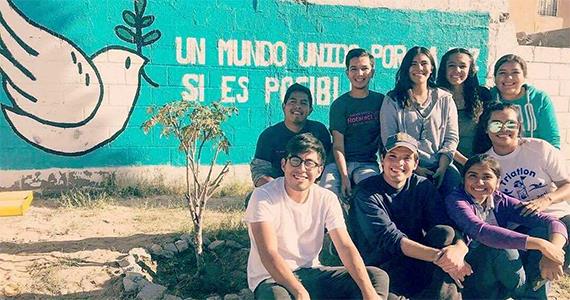 Members of the Rotaract Club of Juárez Integra in Cuidad Juárez, Chihuahua, Mexico, by one of the 10 murals they painted in public spaces. By Yesenia Uribe, Rotaract Club of Juárez Integra, Cuidad Juárez, Mexico I have always been concerned about the situation in my city. Cuidad Juarez is sadly known for a high crime rate and violence related to drug trafficking which creates an atmosphere of insecurity. I wanted to learn more about how I could implement peace in my community, so I applied to participate in a workshop called A Stronger Mexico: Pillars of Positive Peace organized by the Institute for Economics and Peace. I learned that peace starts in small communities and that we cannot think about global peace if we do not work on it from the roots. Art for peace I live in a city with many abandoned and vandalized parks. My Rotaract club decided to create peace murals in each park to unite communities through art and rehabilitate these common spaces. We needed to recover public spaces so the community has a place to gather in a healthy environment and coexist in parks that are in good condition. At first, we were afraid to make a single mural. We thought it was going to be expensive. And our neighbors were apathetic. Many people didn’t want to help because they didn’t get something in return. But we were determined. We secured sponsors and some club members also contributed. After we painted one mural, we saw how easy it was – nobody could stop us. Little by little, more participants joined us. First, it was our neighbors, and then other organizations and even local artists offered to paint murals. They saw the results of what we were achieving and wanted to be a part of it. It took us practically a year to paint 10 murals. (See a video of one project.) Each park’s mural has a different design, but they all focus on peace and leave a positive message. What it takes to create lasting change The project has had a huge impact on our community. Places that looked totally abandoned and vandalized have become meeting spaces for the community. We continue to rehabilitate parks and leave peace murals in each of them. When I joined Rotaract I had a desire to do something concrete for the world. Thanks to the Positive Peace workshop, I learned a lot about how to use the tools at my disposal to achieve my goals. I learned that carrying out projects with lasting change doesn’t take much, only a firm conviction, clear objectives, and a good team. I invite all young people to get involved in social projects, to be agents of change in your communities, and leave the world a better place than how we found it. Rotaract provides us with an impressive platform to bring our ideas to reality and to start generating innovative projects with great impact. Yesenia Uribe is a member of the Rotaract Club of Juárez Integra in Cuidad Juárez, Chihuahua, Mexico. She is a social entrepreneur, concerned about the current situation in her country and her city. |
||||||
Fighting malnutrition with better corn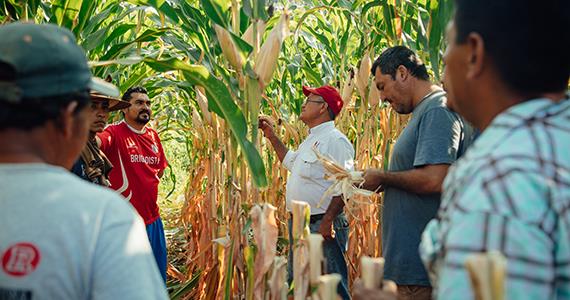 Semilla Nueva technician Noe speaks to farmers about their new seed. Photo by Sarah Caroline Müller/Semilla Nueva By Don Reiman, Rotary Club of Boise, Idaho, USA Semilla Nueva means “New Seed.” In Guatemala the “new seed” developed by Semilla Nueva is creating new life for some of the world’s most malnourished children. In March 2013, my wife and I traveled to Guatemala to check out Semilla Nueva, a nonprofit our Rotary club was considering supporting as part of our international service. Our past history with nonprofits taught us it was important to make sure the Rotary club’s resources would be backing a valid and sustainable project. What we found and experienced far exceeded our expectations. The Problem In Guatemala, corn has been the staple crop consumed across the country for generations. It’s cheap and easy to grow. But it also lacks the key nutrients needed in a healthy diet, resulting in widespread malnutrition affecting nearly half of all children in Guatemala. Malnutrition impacts children’s growth, mental development, school attendance, earning potential, and lifelong health. It creates a cycle of poverty among families and communities. The Solution Different varieties of corn were tested. Semilla Nueva realized that in to address poverty in Guatemala, they had to address malnutrition. Our Rotary club and others partnered with Semilla Nueva through a Rotary Foundation global grant. Through trial and error, Semilla Nueva developed an innovative approach. They entered the Guatemalan corn market, offering farmers a more nutritious corn seed. This seed, called Fortaleza F3, is biofortified with more quality protein and zinc than normal corn; both vital to healthy development. Compared to similarly-priced seeds, it also yields larger harvests at a lower price, helping farmers with their income. Our 2013 trip allowed us to witness the process Semilla Nueva used to identify and develop the new seed. What we saw convinced us that Rotary dollars were being used in a responsible, productive program. We focused on three major aspects of the Semilla Nueva program: 1. We worked on the test farm where multiple varieties of biofortified corn were grown side by side. This allowed for a comparison of seeds to see which ones produced the best corn in Guatemalan soil and climate. 2. We traveled to local farms, taking soil and crop samples and spoke to the farmers. One of the brilliant approaches used by Semilla Nueva was to encourage the more progressive farmers to plant a small portion of their farm using the new seed. The benefits of the new seed were irrefutable when seen next to the traditional crop. At harvest, the quantity and quality of the corn proved the superiority of the new seed. 3. Finally, we met with Semilla Nueva’s leadership and discussed their vision, business plan, and long-term strategies for sustainability. A key to their success is engaging scientists, local and national politicians, government representatives, and local farmers. The Impact At the end of 2017, Semilla Nueva launched their pilot sales season and within five months they sold out their 1,000 bags of starter seed. Farmers loved the high-quality harvest and profits gained from the seed. More importantly, families, communities, and other consumers were eating more nutritious corn. Today, Semilla Nueva helps other seed companies grow biofortified corn. As of May 2018, their nutritious corn reached 105,698 individuals across Guatemala. Rotary grant dollars are literally “seed money” for growing a sustainable program to eliminate poverty in Guatemala. After the successful pilot, they are already planning for next season. We’re working on a new global grant so Semilla Nueva can produce and sell more bags and types of seeds. The goal of getting biofortified corn to all communities throughout Guatemala is becoming a reality. With their corn reaching tens of thousands, and ultimately hundreds of thousands of people, Semilla Nueva and Rotary are fighting malnutrition and reducing poverty. |
||||||
Protecting against polio in Lake ChadThe innovations making a difference to outbreak response. Nigeria is one of only three countries in the world with ongoing wild poliovirus transmission, alongside Afghanistan and Pakistan. Rotary is a part of the Global Polio Eradication Initiative, which is focused on strengthening surveillance to find and respond to the virus, wherever it emerges, and closing immunity gaps to protect the population and stop the virus from circulating. The programme is also committed to advocating for sustained political commitment and ensuring necessary financial resources and technical support for polio eradication at all levels. Long distances, an ever-changing environment and minimal infrastructure are only a few of the barriers that the Lake Chad Task Team faces as they conduct polio vaccination and surveillance activities in response to wild poliovirus detected in Nigeria in 2016. Overcoming these hurdles isn’t easy, but innovations ranging from geographical information systems (GIS) technology to boat-side vaccination are going far to ensure that every child is reached with lifesaving vaccines. .jpg) Traveling via speedboat reduces the time it takes to reach the islands from days to hours. The team has invested in vessels dedicated for polio eradication activities, freeing them to travel at a moment’s notice to investigate a case of acute flaccid paralysis or deliver vaccines. These stable, tough boats are specially chosen for long distance journeys. 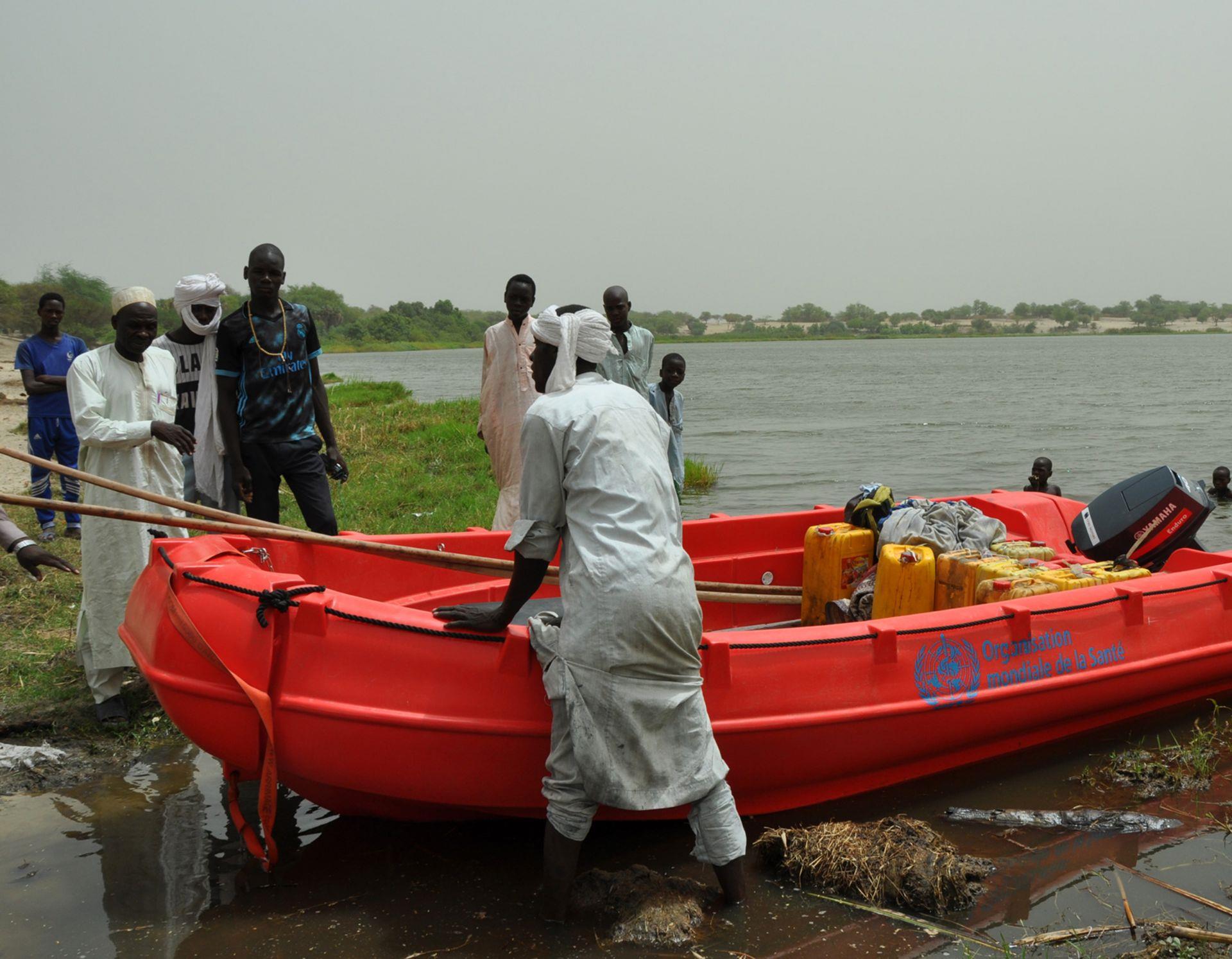 Arriving on an island, the team supervises the activities of community-based vaccinators, ensuring that every child receives two drops of polio vaccine and that their finger is stained purple to distinguish from those children not vaccinated. Vaccination activities happen in markets, villages, and nomadic settlements. Recruiting women and men to work in their local communities increases vaccine trust and acceptance. This is one of the key lessons learned over the course of the global polio eradication program. 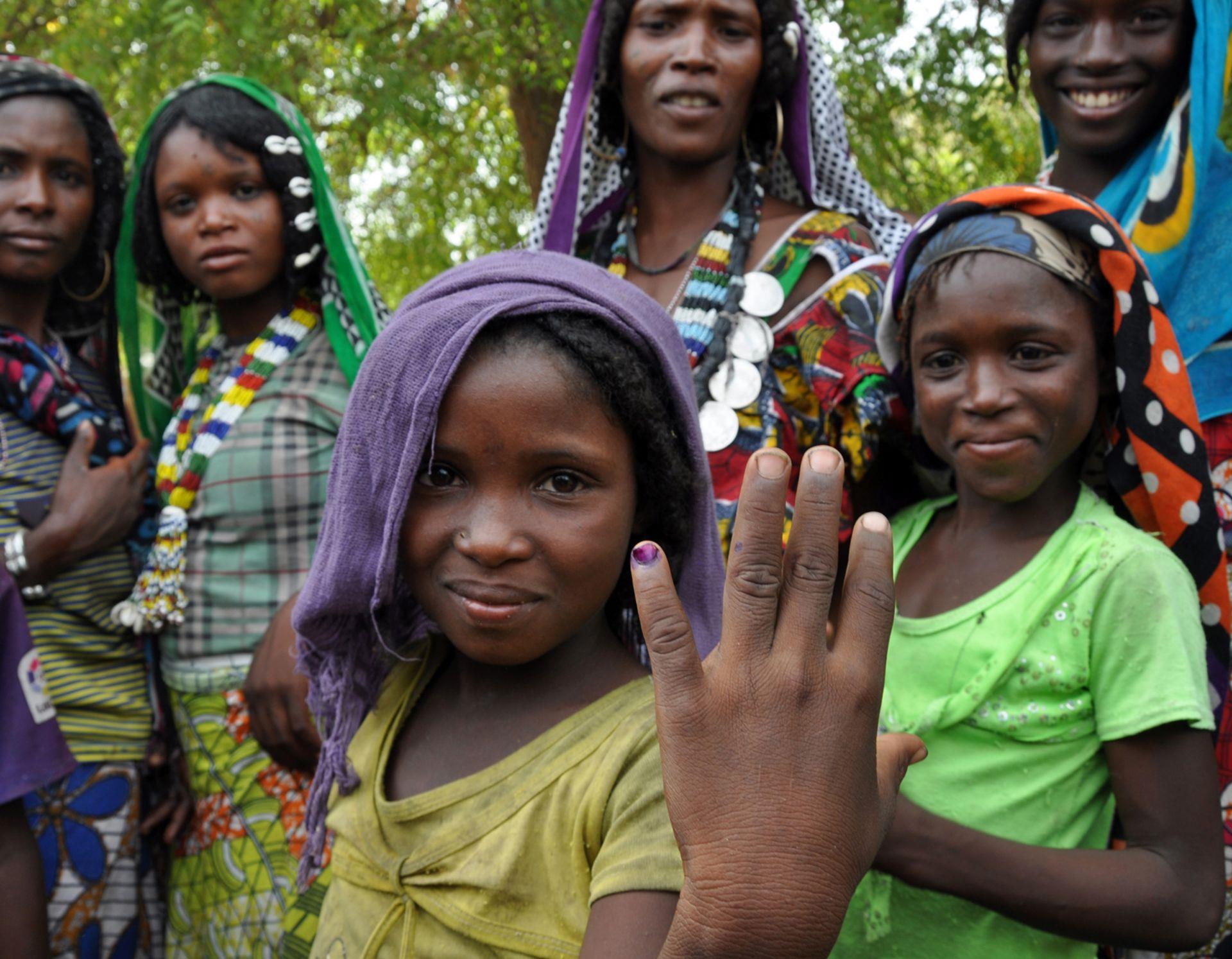 As temperatures soar, it’s critical that the polio vaccine is kept cool, which is an immense challenge in places where there is little or no electricity. A game changer for the team has been the introduction of dedicated vaccine refrigerators, some solar powered, painstakingly transported and installed on several island villages. This means that vaccines can be kept cold, reducing the amount that must be transported by the team for each campaign, and limiting vaccine waste. 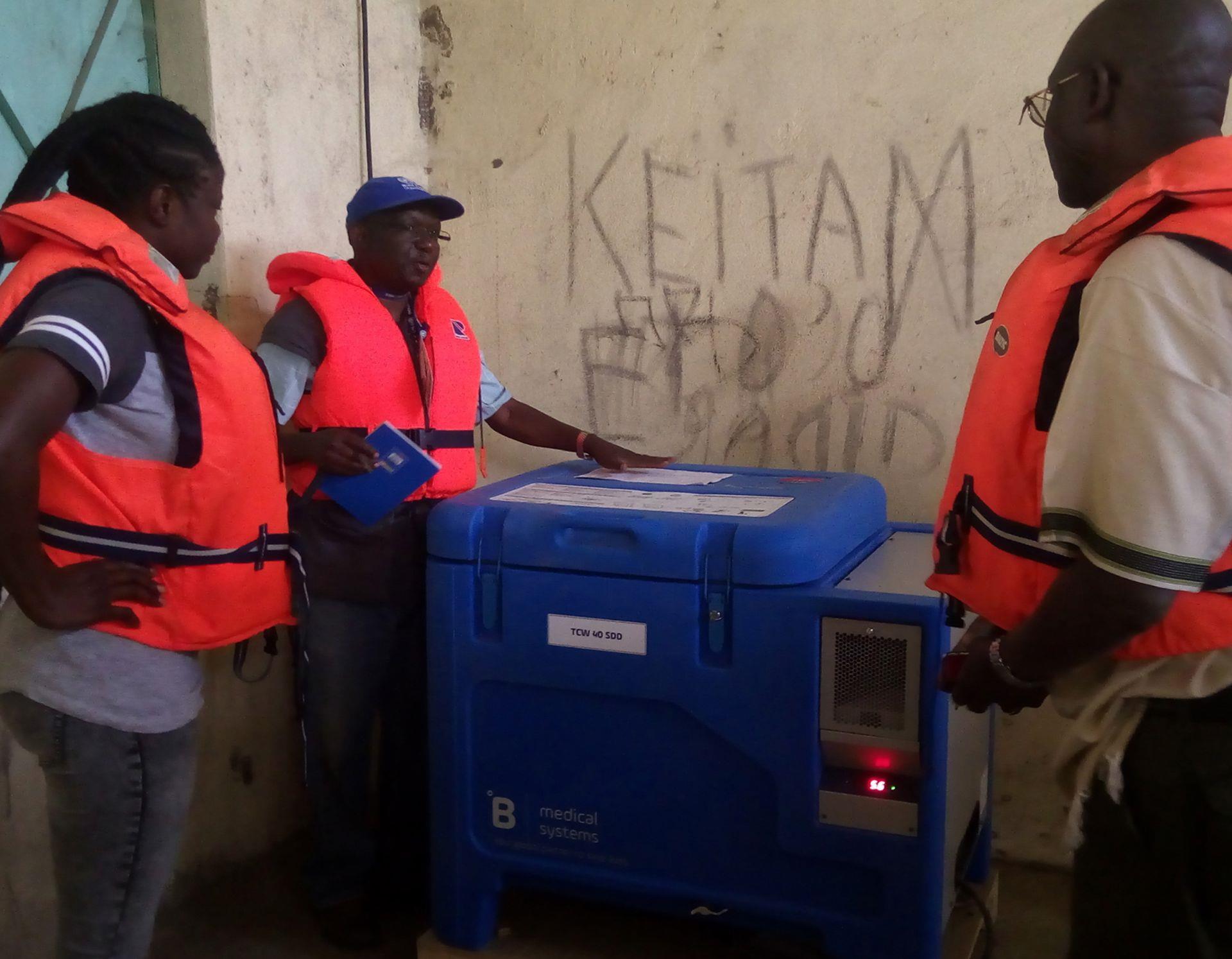 |
||||||
Improving sanitation in a school in Ghana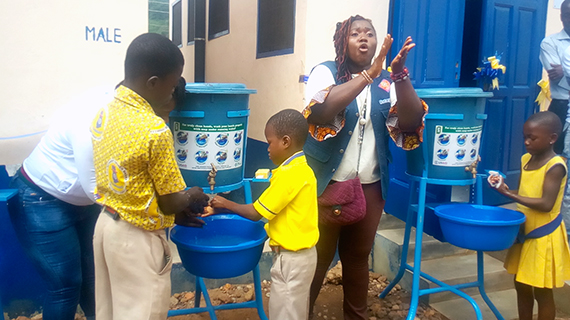 Vera Allotey demonstrates hand washing to school children in Denkyira, Ghana. Editor Note: Rotary International partners with the United States Agency for International Development (USAID) to support lasting, positive change in water, sanitation, and hygiene (WASH). This is part of a series of occasional blog posts from local Rotary members describing their visits to project sites. By Vera Lamiley Allotey, Rotary Club of Accra Dansoman In July, I left my home with fellow Rotarians to visit Upper Denkyira East in the central region of Ghana to see progress on water and sanitation projects. Despite riding in a very new vehicle, the ride was bumpy due to poor road conditions. But we enjoyed talking and learning about the Rotary-USAID partnership during our more than six-hour journey. I was encouraged by what I saw and the impact Rotary is having in the region. After a necessary meeting with the municipal assembly in Denkyira, we arrived at a secondary school to inspect latrines that had been built. The headmaster welcomed us and showed us the changing room that had been created for girls. I showed the students how to properly wash their hands using the bucket stands that we donated to the school and two students were asked to demonstrate the proper techniques to their friends. We then moved to the borehole and the project manager led us in a series of stroke tests to determine the water flow from the pump. All was in working order. Welcome innovations I learned about some very innovative and creative things the headmaster was doing with the help of the PTA. He had set up a fee to be collected from parents that could be used to purchase toilet rolls, disinfectant and sanitary pads for girls to make sure there would be a continuous adequate supply. Sanitary pads were dispensed according to need, and one male and female teacher were placed in charge of dispensing toilet rolls and pads, cutting down on waste. The facility and supplies have really reduced the rate of absenteeism on the part of girls during their menstruation cycle. This is a very good thing. We also made a courtesy call to the town chief, because it was in walking distance and we wanted to pay appropriate homage to him as custodian of the land. He had also helped ward off unscrupulous individuals who had wanted to intrude on the facilities before their completion. We conveyed to him our gratitude and he told us how pleased he was with the project and promised to help us make sure it continued. The next day, we toured the market in Dunkwa before heading to Dunkwaso to visit the second project site, a toilet facility for a special school affiliated with the Methodist Church that teaches children with disabilities. I had many conversations with the head teacher, PTA members, and specially-trained teachers, who explained how they integrate visually and hearing impaired students into normal activities to enhance their emotional, psychological, and social well-being, preparing them for their years beyond school. Rotary is very good I was encouraged when the PTA chairman informed us that they would be deducting money from the PTA dues to buy disinfectants for the facility and employing someone to maintain it. I recommended they get in contact with the Community Development Unit of the Assembly, whose mandate is to train youth how to use various disinfectants and soap. They could get the supplies at a cheaper rate and also provide valuable skills to some of the youth that they could use later. After we bid our goodbyes, we promised to visit within the next quarter to check on the upkeep of the facility. All in all, it was an enlightening trip. And I left feeling that Rotary is indeed very good. |
||||||
The right to a better life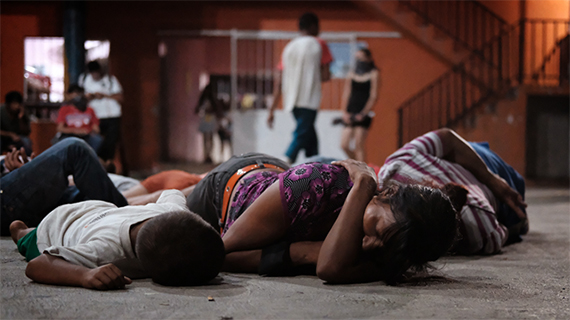 LA 72 held this commemoration of the mass murder of 72 migrants by the Los Zetas drug cartel in San Fernando, Mexico, in 2010. Photo courtesy Giorgio Algeri By Giorgio Algeri, 2010-11 Rotary Peace Fellow, University of Queensland, Australia On a late evening in August, a family of eight migrant persons from Honduras arrived at the refugee shelter where I was serving as a short-term volunteer in Tabasco, Mexico, near the border with Guatemala. The family of three adults and five children, most below the age of 10, had fled their country for security reasons and were renting a tiny room in Tabasco awaiting asylum. The son of the landlord came home drunk and threatened the family with a machete, forcing them to leave all their belongings behind. Luckily, nobody was injured. Yet, they were still shivering and crying when I welcomed them at the shelter, a safe haven where immigration authorities, federal and local police officers, and scoundrels are not allowed to enter. To calm them down, I highlighted the safety and hospitality of the place before addressing any basic needs such as clothing and personal hygiene kits. Racism and xenophobia As a humanitarian and development worker over the past 10 years, I have seen the desperation of those in need in a variety of settings including post-conflict countries like the Democratic Republic of Congo and the Central African Republic. The accounts of the migrants and refugees from the so-called Northern Triangle of Central America (El Salvador, Honduras, and Guatemala) and the violence they suffered in their country of origin reminded me of similar horrific stories from migrants and refugees traveling along the Libyan migration corridor from Africa to Italy to Europe. States themselves are ultimately responsible for preventing xenophobic and racist acts that threaten the lives of economic migrants, refugees, asylum seekers, and other vulnerable groups. Nowadays, however, an increasing departure from the values of humanity and solidarity is increasingly leading to a rise of violence, discrimination, and human rights violations against these vulnerable groups. A clear example is the emerging migration crisis in the Mediterranean Sea and the recent tension between Spain, Malta, and Italy over the fate of 630 migrants and refugees that remained stranded between Sicily and Malta for about a week. Worsening human rights The decision by the Italian Government to deny NGO ship access to Italy’s ports or not take in migrants and refugees rescued off the coast of Libya denotes an alarming worsening of the human rights situation in Italy. It further represented a violation of international humanitarian law for the repatriation of vulnerable migrants to Libya, a war-torn country in North Africa. Propaganda and anti-migrant alliances are creating a climate of hate and violence against migrants and refugees across Europe. The one thing most vulnerable migrants and refugees have in common is a desire to live safely with dignity. Existing initiatives and programs such as the above shelter play a crucial role and provide a safe pathway for such vulnerable groups. But everyone has a responsibility to promote acceptance of the rights of others (one of the key pillars used by the Institute for Economics and Peace to measure peace). You don’t need to be a humanitarian worker to make a difference. Anyone can contribute by raising funds, holding an event to commemorate the rights of refugees, or taking part in social media campaigns. You can also volunteer in service projects that promote a culture of positive peace and create a more constructive dialogue between migrants, refugees, and host communities. It’s time to stand up for the human rights of migrants and take action now. About the author: Giorgio Algeri is a former Rotary Peace Fellow with a Master’s Degree in Asian Studies from Lund University, Sweden and a Master of International Studies in Peace and Conflict Resolution from the University of Queensland, Australia (2010-2011). He has been working with Non-Governmental Organizations (NGOs) and the United Nations in about 10 countries across Africa, Asia and the Middle East. |
||||||
World Polio Day reviews the bold steps taken to end polio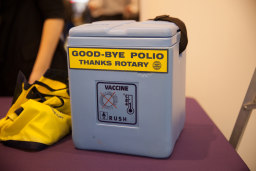 Rotary and its partners in the Global Polio Eradication Initiative (GPEI) have had to take bold action in the historic fight to eradicate polio. At Rotary’s 6th annual World Polio Day event on 24 October in Philadelphia, Pennsylvania, USA, we’ll highlight the monumental and innovative steps that are getting us closer to our goal. We’ll also celebrate 30 years of achievements by the GPEI. In 1988, when Rotary and its partners founded the GPEI, the paralyzing disease affected 350,000 children. Our collaboration with the World Health Organization, UNICEF, the U.S. Centers for Disease Control and Prevention, and later the Bill & Melinda Gates Foundation, local health workers, and national governments has helped reduce the number to just 15 cases of wild poliovirus this year. This year’s event will be livestreamed from The College of Physicians of Philadelphia, known as the “birthplace of American medicine.” It is one of the oldest professional medical organizations in the United States. Global health experts and celebrities will discuss our remarkable progress toward a polio-free world. Patience Asiimwe, the protagonist of Rotary’s upcoming virtual reality film, “Two Drops of Patience,” will introduce the movie. A sneak peek from Rotary’s documentary “Drop to Zero” will also be featured. Jeffrey Kluger, senior editor for Time magazine, will discuss his experience traveling to Nigeria with Rotary to report on polio eradication. And we’ll celebrate the 30th anniversary of the founding of the GPEI. World Polio Day is observed on the 24th of October to honor the birthday of Dr. Jonas Salk, who led the development of the first polio vaccine. |
||||||
Water project unites Lebanon clubs across all divides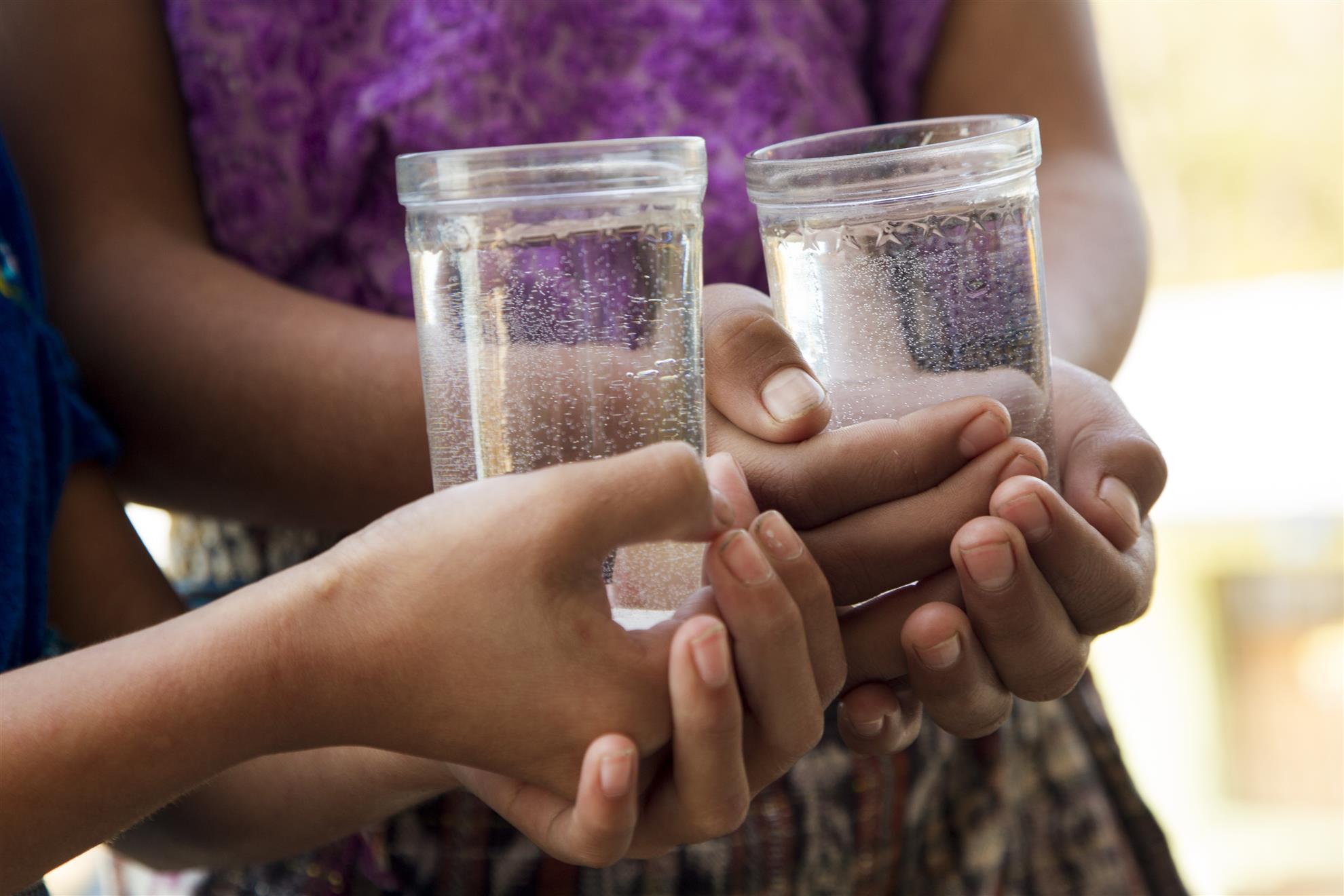 A project to provide clean water to all of Lebanon’s schools is uniting leaders from many of the country’s diverse religious, cultural, and political divisions. In 2011, Rotary members in northern Lebanon decided to install new tanks and water filters in a few nearby schools with the help of a Rotary Foundation grant. The idea caught on and a few other clubs followed suit. Two years later, District 2452 Governor Jamil Mouawad and other district leaders saw the potential of creating one giant water project that could reach every school and involve all 24 of the country’s Rotary clubs. They formed a committee to handle publicity and gather technical knowledge, while each club was asked to provide volunteers, contribute funds, apply for grants, and secure contributions from outside organizations. “Every student has the right to drink clean water. It goes without saying that clean drinking water leads to less diseases, healthier students, and consequently, better education,” says Mouawad. “The bigger the challenge, the greater its positive impact on humanity.” While clean water is the main objective, the leaders also saw the effort as a means of helping heal Lebanon’s long history of sectarian strife. A civil war divided the country from 1975 to 1990, leaving an estimated 120,000 people dead. In recent years, Lebanon’s government is a shifting coalition of religions, political parties, and sects. Lina Shehayeb, president of the Rotary Club of Aley, is a Druze by faith. Shehayeb says working alongside club members who are Catholic, Maronite, Greek Orthodox, Armenian Orthodox, and Muslim to promote the project has deepened her understanding of those with different religious or political views. “We are building peace and understanding,” she says. “There has never been anything quite like this in our country.” Even the distribution of club responsibilities is designed to foster peace. Each club is responsible for a certain number of schools, some in their area but some in a totally separate region. The clubs nominate a project coordinator, find qualified suppliers, arrange for sponsors, and allocate contributions from sponsors, district funds, and global grants to finance the installation of filters in the schools. “For example a club from Jounieh, a Christian resort town north of Beirut, might be assigned schools in the southern mountains near the Israeli border, an area that is considerably poorer and primarily Shia Muslim,” explains Mouawad. “After all, who — no matter what their political or religious views — could argue with providing clean water for children?” The effort could not have come at a better time. With the crisis in Syria, Lebanon’s population is ballooning with refugees, including many school-age children. By improving the schools these kids attend, Rotary members are laying the groundwork for future peace in the region. The committee is working in cooperation with the Ministry of Education, World Vision, UNICEF, and the Red Cross. Red Cross volunteers take water samples in each of the schools a few times a year and send those samples to the Lebanese Agricultural Laboratory Institute for testing. According to the committee’s technical team, it will cost roughly $2,500 a school to install water tanks, filters, and provide ongoing monitoring. About 200 schools have been covered so far. The goal is to reach all 1,535 schools within three years. By Arnold R. Grahl |
||||||
Who knew installing solar lights could have such meaning?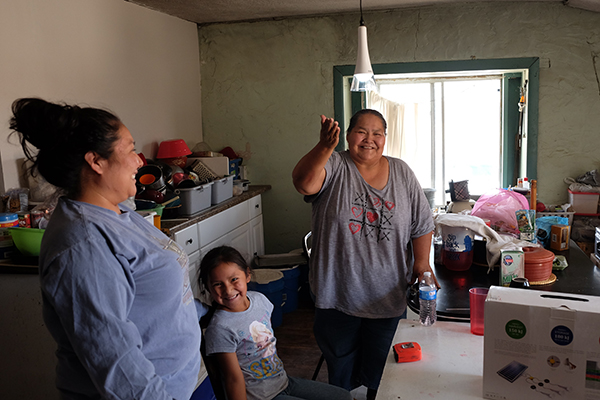 A Navajo family enjoys their newly installed solar light. By A.J. Holzer As I landed in the Durango airport, cramped into a small airplane, my entire Rotary career flashed before my eyes. I had joined Interact at the beginning of high school as a way to help my community and connect with others. And for most of my high school years, I was able to do just that, growing as a leader and learning from my peers. The experience was uniquely personal – all I knew of Rotary was my club and the work we did in the community. But in the summer of my sophomore year, my knowledge of Rotary was about to explode to an entirely new level. As president of my Interact club, I had the opportunity to attend the 2017 Rotary International Convention in Atlanta, Georgia, USA. I felt like a minnow tossed into the ocean. I was overwhelmed by the colossal reach of Rotary around the world. I learned about projects ranging from complex irrigation systems that allow for farming in Turkana, Kenya, to establishing an array of financial help for poor villagers in Guatemala. I met passionate Rotarians from all corners of the world, and was instantly inspired to look for a way to become involved at this level. On the reservation After a year as club president, I decided to do something about this desire. I browsed this blog for information about great projects, and found a write up about the Navajo Solar Lights Project. After hours of research, I emailed founder Joe Williams, who told me more about the project and I discovered a shared passion for Rotary service. He invited me to apply to be a summer intern with their project, to spend a week and a half in the heart of the Navajo reservation. I knew this would push me out of my comfort zone, but I was ecstatic for the chance to have a positive impact on the lives of others. 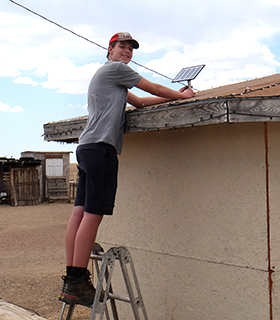 During the week and a half, I developed a completely new outlook on service. With other volunteers, I helped install solar lights in more than 15 homes. These lights mean the world to Navajo elders who don’t have access to electricity. Not only does it increase their safety and well-being by eliminating the harmful effects of kerosene lamps, but it provides a measure of independence. There is an incredible unity and resiliency on the reservation. During my first install in White Rock, New Mexico, we drove out into the desert past buildings until we came to a small cluster of homes. The elders and children in the community had come together to support each other around food and fun, and I immediately felt welcomed and loved. Outside your comfort zone Throughout my internship, the relationships I formed with others transformed me the most. I learned so much about Rotary from Joe Williams and other members of the Durango Rotary Club. And from the Navajo elders, I learned about resiliency and their ability to endure hardships. There are many ways to serve. But what Rotary offers is the chance to get outside your comfort zone, and expand your horizons. Rotary brings people together across all ages. By working within the boundaries of the Rotary Youth Protection Guide, Rotary clubs provide a perfect environment for youth to explore and for Rotary members to invest in the future. |
||||||
A challenge to clean the world's rivers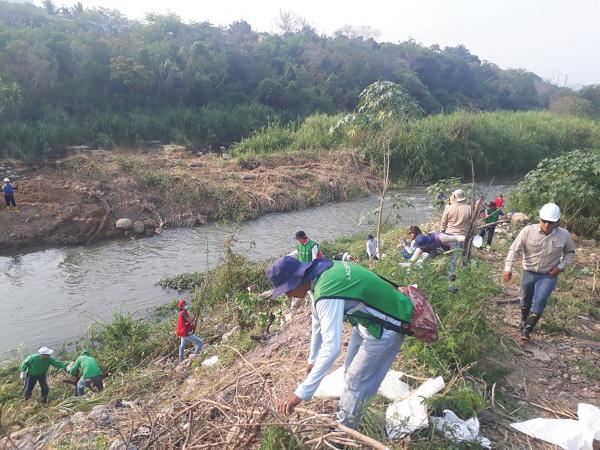 In 2009, Salvador Rico stood in the waters of the Russian River in Northern California with other members of the Rotary Club of South Ukiah. They were there for a river cleanup, during which they removed toilets, refrigerators, car parts, and garbage. That event led to an ambitious initiative called Cleaning the Rivers of the World. After participating in the Russian River cleanup, Rico’s thoughts turned to the Ameca River, which flows past his father’s farm in western Mexico. That was where, he believed, his oldest sister contracted the poliovirus that killed her in the 1960s. The Rotary clubs of Ameca, Mexico, and of Rohnert Park-Cotati and South Ukiah, California, clean up the Ameca River. “I always hoped that someday I could go home and do something to turn all the sewage into pristine waters,” says Salvador Rico, the Rotary member who organized the clean up. “My older siblings would play in the river,” he says, “and that particular river carried sewage from the city of Tala.” Rico also thought of another river, the Lerma, which runs near his old elementary school. His teachers would let children play in a pristine tributary that flowed from a canyon but not in the main channel of the Lerma, which carried trash and toxic waste from Guadalajara. So when Rico’s district governor, Helaine Campbell, asked clubs to carry out a signature water-related project in 2013-14, Rico proposed a cleanup of the Ameca River. With the help of Vicente Paredes of the Rotary Club of San Pedro de Tlaquepaque, Mexico, who connected people and worked on logistics, the Rotary clubs of Ameca, Mexico, and of Rohnert Park-Cotati and South Ukiah, California, carried out the first Ameca River cleanup day in April 2014. They have since organized more cleanups of the river. That project eventually expanded to become Cleaning the Rivers of the World, which has challenged Rotary clubs across the globe to clean up a river. The initiative has been adopted by the Water & Sanitation Rotarian Action Group as part of the Annual World Water Day Challenge, as well as by the Environmental Sustainability Rotarian Action Group. Rotarians have organized cleanup projects in Colombia, India, Nigeria, Peru, Turkey, and Venezuela, as well as in other parts of Mexico and the United States. In 2018, Rico joined his fellow Rotarians in a project on the Lerma River. “As a kid, I always hoped that someday I could go home and do something to turn all the sewage into pristine waters,” he says. “Now I can say, with a clear conscience, that I did everything I could to leave a better world for our kids.” – Frank Bures |
||||||
Rotary announces US $96.5 million to end polioEVANSTON, Ill. (August 15, 2018) — Rotary today announced nearly $100 million in grants to support the global effort to end polio, a vaccine-preventable disease that once paralyzed hundreds of thousands of children each year. The announcement comes as Nigeria marks two years without any reported cases of wild poliovirus, following four reported cases in 2016. “The fact that no new cases of wild poliovirus have been detected in Nigeria points to the improved surveillance and rapid response protocols Rotary and its Global Polio Eradication Initiative partners have established, particularly in insecure and inaccessible areas,” said Michael K. McGovern, chair of Rotary’s International PolioPlus Committee. “While this progress is promising, it’s time to redouble our efforts so we can continue to maintain the political and financial support necessary to end polio for good.” While significant strides have been made against the paralyzing disease, wild poliovirus is still a threat in parts of the world, with 10 cases in Afghanistan and three cases in Pakistan this year so far. As long as a single child has polio, all children are at risk, which underscores the need for ongoing funding and political commitment to eradication. To support polio eradication efforts in countries where polio remains endemic, Rotary is allocating the majority of the funds it announced today to Afghanistan ($22.9 million), Pakistan ($21.7 million), and Nigeria ($16.1 million). Further funding will support efforts to keep 12 vulnerable African countries polio-free: • Cameroon ($98,600) • Central African Republic ($394,400) • Chad ($1.71 million) • Democratic Republic of the Congo ($10.4 million) • Guinea ($527,300) • Madagascar ($690,000) • Mali ($923,200) • Niger ($85,300) • Sierra Leone ($245,300) • Somalia ($776,200) • South Sudan ($3.5 million) • Sudan ($2.6 million) Africa will also see $5.8 million in funding for surveillance activities and $467,800 for technical assistance. Additional funding will go to Bangladesh ($504,200), Indonesia ($157,800), Myanmar ($197,200), and Nepal ($160,500), with an additional $96,300 funding surveillance in Southeast Asia. The remainder of the funding ($6.6 million) will go to the World Health Organization (WHO) for research activities. Rotary has committed to raising $50 million a year to be matched 2-to-1 by the Bill & Melinda Gates Foundation, yielding $450 for polio eradication activities over a three-year period. To date, Rotary has contributed more than $1.8 billion to fight the disease, including matching funds from the Gates Foundation, and countless volunteer hours since launching its polio immunization program, PolioPlus, in 1985. In 1988, Rotary became a core partner in the Global Polio Eradication Initiative with the WHO, UNICEF, and the U.S. Centers for Disease Control and Prevention. The Gates Foundation later joined. Since the initiative launched, the incidence of polio has plummeted by more than 99.9 percent, from about 350,000 cases in 1988 to 22 confirmed in 2017. |
||||||
Who is that poster girl?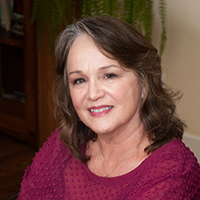 Francine Falk-Allen Falk-Allen is author of the book Not a Poster Child: Living Well with a Disability By Francine Falk-Allen One of the first misconceptions that confronted me as a handicapped child was that people – children, adults, everyone – would often say, “I saw your picture on the March of Dimes poster!!” The March of Dimes was a campaign initiated to pay for polio vaccinations and patient care. Most of the patients were young children, who were the most prone to severe aspects of the disease. People were asked to send in “even a dime” and there were coin collection placards put out in stores, churches, gas stations, anywhere that people might be able to spare a dime. (A dime in 1950 would be worth about ninety cents in 2018.) At first, when I heard that comment, I thought that somehow my picture was actually being used for the March of Dimes poster, and I was excited to learn this. I looked forward to seeing myself the next time I saw a placard around town. There I’d be, Francine Allen, the poster child. But I soon saw that it wasn’t my picture, though the girl was about my age, around five or six, wore a brace, used Kenny sticks (a half crutch with a canvas arm band), and had hair similar to mine, although hers was not in the meticulous ringlets my mother created to draw attention away from my limp. (If I looked pretty, it helped to make up for my defect, a concept I have never been able to drop.) I asked Mama if I was going to be the March of Dimes girl, and she assured me that I wasn’t, and that there were no posters out there with my picture on them. I was a little disappointed, but what bothered me more was that people didn’t recognize that it was not me, that any little girl with Kenny sticks and brown hair looked the same to them. It made me a little angry, that that was my identity: The March of Dimes Poster Girl. It is possible of course that people thought, “What a brave little girl,” when they saw those posters, and that they thought the same of me. But I didn’t think of that when I was five-and-a-half. I was just perturbed that people could not see it was not me, and that I didn’t have a face to them, I had a limp to identify me. That’s one of my too early adult thought processes, required by the disease that took me away from home and into a hospital for six months when I’d barely just learned to run. I was not a poster child. Not in reality and not in terms of the smiley, optimistic, never-bothered attitude that is often wished for in disabled people. Certainly that winsome courage is more appealing for the purpose of collecting donations! No, I was “head strong,” independent, ready with a smarty-pants retort, a girl who got out of a wheelchair and onto crutches before I was four years old, growing up a little too soon and missing some of the carefree aspects of childhood. Later generations in the United States and Europe have not had to face these same issues, at least not with polio, and for this we can be thankful. Wouldn’t it be great if this deadly virus were eradicated once and for all, and all children could live without its specter? It is possible, and with the commitment of Rotary, we are moving toward that goal. |
||||||
A reason to smile By Diana Schoberg Photo by Daniela Prado Sarasúa Román, a member of the Rotary Club of Reñaca, Chile, is the national coordinator of a program that has helped thousands of children in Chile with cleft lips, cleft palates, and other birth defects – including this stranger who now wanted to give Román a hug. She told me, ‘This is my Rotarian smile.’ It was a very gratifying moment. The project got its start in 1993 when San Francisco (California) Rotarians, led by Peter Lagarias and Angelo Capozzi, sponsored a medical mission that performed reconstructive surgeries in Chile. That was the beginning of Rotaplast, a program that evolved into a nonprofit organization that has since sent teams to 26 countries. In 2004, Rotarians in Chile assumed leadership of the program in their country. Over the years, Chilean doctors became more involved and eventually the program expanded to include breast reconstruction for cancer patients. “It’s a great commentary on Rotary that you’ve got people in a Spanish-speaking country and people in an English-speaking country working together to get things accomplished,” says James Lehman, a plastic surgeon who joined the Rotary Club of Fairlawn, Ohio, USA, after working with Rotarians in Chile. In February, Lehman and a team of U.S. surgeons, anesthesiologists, and nurses visited Iquique, a Pacific port city and tourist hot spot about 80 miles south of Chile’s northern border. With financial help from the nearby Collahuasi copper mine, local Rotarians coordinate and pay for the medical team’s food, lodging, and in-country transportation. (Visiting doctors pay for their flights between the United States and Chile; an Ohio-based nonprofit funds the travel of some support staff.) More than 250 potential patients lined up early on a Saturday morning outside Ernesto Torres Galdames Hospital to try to get a spot on the team’s schedule. They had come from all over Chile, including a family who had traveled from Concepción, 1,400 miles to the south. About 600 children are born each year in Chile with cleft lips and palates, and though the government established eight centers to treat those abnormalities, the long wait list means corrective surgery can lie years in the future. “The demand exceeds the supply of people to take care of the patients,” Lehman explains. Using four operating rooms – one for cleft lip or palate, one for ear reconstruction, one for breast reconstruction, and one for other issues – the team got to work. Patients were chosen based on need and on the complexity of the surgery. By the end of their stay, the surgeons and their staff had operated on 82 patients. In many cases, however, the complete reconstruction may take multiple surgeries, and some patients return several years in a row to complete the procedure. But the final surgery doesn’t always signal an end to the relationship between a patient and Rotary. Román, who has coordinated the program since 2004, recalls an occasion involving the young woman he encountered in the department store. At Román’s invitation, she described her transformational cleft lip and palate surgeries at a Rotary district conference in Chile in 2012. Moved by her story, many in the crowd of 300 broke into tears, dazzled by her Rotarian smile. |
||||||
‘Gladiator’ stars reunite at End Polio Now event.jpg) Actor Russell Crowe and Italian soccer star Francesco Totti attend a special screening of the Oscar-winning movie "Gladiator" inside the Colosseum in Rome, Italy. Proceeds of the event went to End Polio Now. Courtesy of CineConcerts/©Musacchio&Ianniello By Ryan Hyland Actor Russell Crowe and co-stars of the Oscar-winning movie “Gladiator” gathered 6 June for a special End Polio Now fundraising event inside the Colosseum in Rome, Italy. Produced by CineConcerts and presented by Forum Music Village, Gladiator in Concert: Live at the Colosseum, showed the 2000 movie on a 65-foot HD screen to more than 300 people. During the screening, conductor Justin Freer led the Italian Cinema Orchestra with vocal soloist and co-composer Lisa Gerrard in performing the entire soundtrack live to picture with the images, dialogue, and special effects preserved. Guests included, Italian actress and Rotary polio ambassador Maria Grazia Cucinotta, celebrity chef Cristina Bowerman, local Rotary members, Italian dignitaries, and “Gladiator” fans who purchased tickets to support Rotary’s End Polio Now campaign. The event was spearheaded by Rotarian Alberto Cecchini, a member of the Rotary Club of Roma Nord-Est, Italy. More than $500,000 was raised for polio eradication efforts. Crowe, who won an Academy Award for his performance, was joined by fellow castmates Connie Nielsen and Tomas Arana. Italian soccer star Francesco Totti and some of his AS Roma teammates attended the event and signed jerseys that were auctioned off. “The event is not just about reuniting with Russell and other cast members … but also to raise awareness about Rotary International’s work in ending polio forever,” Nielsen said during the event. “I believe we all have the collective power and responsibility to help empower those around the world, and promoting health care is essential.” |
||||||
Retreating to advance peace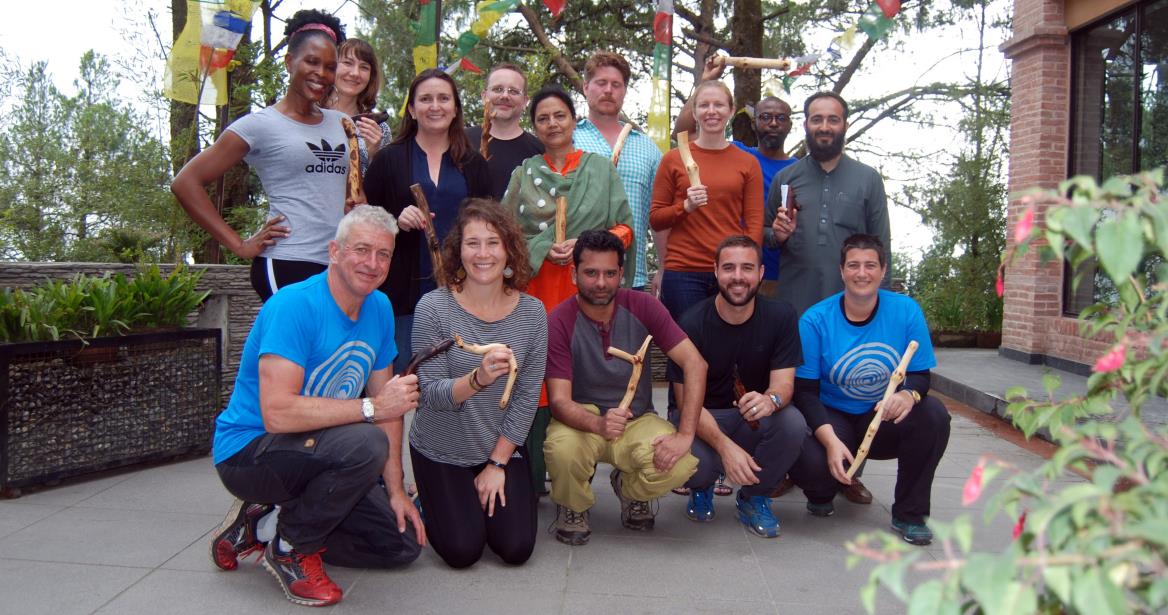 Participants in the Peace Fellows Retreat represented nine nationalities who had worked in more than 100 countries. By Mayer Ngomesia, 2006-07 Rotary Peace Fellow, Duke University and University of North Carolina at Chapel Hill, USA After a two-hour drive from the hustle and bustle of Kathmandu along a winding road, 10 Rotary Peace Fellows and I from around the world gathered in the village of Nagarkot, nestled in the Kathmandu Valley at the foothills of the Himalayas for the third Rotary Peace Fellow Leadership Retreat. It was a rare opportunity to step back and reflect on the difficult realities and high-stress environment of our peace work, and to ponder, why the work we do matters. Made possible by a generous donation from The Benter Foundation, the retreat was both simple and complex. Jenn Weidman and Charlie Allen (Chulalongkorn Class of 2010) from Space Bangkok, an organization working to promote resilience and innovation, facilitated the retreat. On one level, it was a straightforward opportunity to ponder the uncertainties of our field and build our resiliency. Yet, on another, the complicated nature of our work, and the diversity of our perspectives, added a rich complexity to the event. From cooking to jazz Collectively, we represented nine nationalities who have lived and worked in over 100 countries. We currently serve on the ground in some of the most intractable situations including ongoing conflicts from Afghanistan to South Sudan or post-conflict Columbia. We manage socioeconomic development and political affairs initiatives across the world, from Laos to Ethiopia. Our stories are even more multi-layered, considering that our experiences include swimming across a Norwegian fjord, performing as a jazz musician, earning respect as a traditional Thai martial artist, and earning national acclaim as a cooking guru. Like most retreats, various tools were used to evoke reflection. As people who are by nature skeptical to any formulaic assertions about our work, it could not be taken for granted that the haikus, wood carving, exercise, poetry, meditation, hiking, introspections, etc., would create their intended purpose. Yet Space Bangkok, the retreat facilitators, made it work. The complex mix of experiences amplified the point that working for peace is indeed multidimensional. This is central to the Rotary Peace Fellowship, which uniquely forges multifaceted, global clusters of Peace Fellows. Inevitably though, the question that arises is: Why does this even matter? Turns out, that is maybe the simplest part of all. Peace does matter. To you, me, and especially to those for who it matters most. Sometimes, creating the space to ponder our complicated role in it all is one of the most important things we can do. |
||||||
Rotary Wheel Reef A giant artificial reef in the shape of a Rotary wheel restores marine life and protects the livelihood of several fishing villages in the Philippines By Quincy Cahilig Rotary members partnered with local fishermen to build an artificial reef that helped save the fishing industry in Atimonan, Quezon Province, Philippines. In the calm blue waters of Lamon Bay lies a source of pride for local fishermen and a submerged salute to Rotary: an artificial reef in the shape of a Rotary wheel. The wheel has helped restore the local fishing industry, which was devastated by large-scale commercial fishing vessels that used dynamite, cyanide, and fine mesh nets from the late 1990s through the early 2000s. Fishing is considered the lifeblood of the area’s coastal villages, including Balubad, Lubi, Talaba, and Kilait, and for years, village fishermen fought to protect the waters that fed their families. In 2005, the fishermen turned to the Rotary Club of Atimonan, Quezon Province, Philippines, for help. They decided to build an artificial reef. The club partnered with the Rotary Club of Madera, California, USA, on a Rotary Foundation grant to help fund the project, which would cost more than $1 million. They built the reef in the shape of a Rotary wheel, which just happens to have plenty of surface area for coral to grow on and plenty of nooks for fish to shelter in. Made of steel-reinforced concrete, it’s 600 meters from the coastline, measures about 4 meters tall and 21 meters wide (13 by 70 feet), and weighs several tons. Today, the wheel, touted as the biggest artificial reef in the Philippines, is covered with coral and has withstood several typhoons. It attracts fish, including jacks, surgeonfish, mangrove red snappers, groupers, longfin bannerfish, flounders, pompanos, batfish, and barracudas, among other marine creatures. “Before the reef, the fishermen were barely able to catch a kilo [2.2 pounds] of fish apiece,” says Oca Chua, past president of the Rotary Club of Atimonan and the project’s chair. “Today they catch fish weighing up to 2 kilos apiece a day.” Protecting the fish has been just one benefit of the effort. The reef also became a tourist attraction that boosted the local economy. Fishermen build bamboo rafts and rent them to tourists who visit the reef to eat, rest, dive, and even feed the fishes. |
||||||
Music Camp breaks down barriersBy Sharon Bay, a member of the Downtown Breakfast Rotary Club of San Diego, California, USA I had only been a Rotarian for a year, and was eager for another opportunity to serve, when I was asked by the committee chair of District 5340’s MusiCamp Youth Exchange if I would be interested in hosting two talented musical students for three weeks that summer. My husband and I had hosted an exchange student from Bolivia several years prior and had enjoyed the experience. This would only be for three weeks, and we felt we knew what to expect, so we enthusiastically said yes. We hosted two high school boys who both played violin; Jonas from Germany and Jon from Canada. Jonas spoke enough English to have a conversation, but after three weeks he was at ease. We loved having classical music in our home and our neighbors also enjoyed it. The boys quickly became friends with the 18 other members of the Musicamp, and performed in three public concerts, before enjoying the sights of San Diego – theme parks, shopping, and surfing on the beach. Every evening we ate dinner and talked about Germany, Canada, and the Untied States. As they shared their home experiences, we found many similarities. I tried to introduce them to many different foods. Two years later, Jonas emailed me that his sister, Paula, one of six siblings, was accepted to MusiCamp and asked if she could stay with us. We felt honored that he had had a good experience with us. Paula arrived with her cello and Isabella, who interestingly was Jon’s sister, from Canada brought her violin. The girls quickly became friends. We again enjoyed their our hosting experience. A worldwide ensemble Each year the program is similar. In 2016, we hosted Grace from Ireland (violin) and Sylvia from Spain (cello). This last summer Clara, number three from the same German family, played violin and Hannah from Ireland, played the cello, filling our extra bedroom. My husband and I were fortunate to go to Germany this past summer and stay with the German family. It was great knowing some of their close-knit family before we went. Their grandpa spoke a little English while we were there; which the grandkids had never heard him speak before. The program is now in its fourteenth year. In the past, students have traveled from Austria, Belgium, Brazil, Canada, France, Germany, Italy, Northern Ireland, Poland, Romania, Russia, Croatia, Czech Republic, Slovakia, Taiwan, Hungary, Mexico and many other countries. We are hosting number five this summer, but as yet unsure who we will be lucky to host. This music program is breaking down barriers one student at a time. Musical friends are becoming REAL friends. |
||||||
Prime Minister Justin Trudeau accepts award for polio eradication By Teresa Schmedding and Arnold Grahl Photos by Alyce Henson Justin Trudeau, prime minister of Canada, was presented with Rotary’s Polio Eradication Champion Award in recognition of Canada’s contributions to polio eradication. Trudeau accepted the award at the Rotary International Convention in Toronto, Ontario, Canada. “Let there be no doubt we are winning the battle against polio,” Trudeau said. “I want my children to grow up in a world without polio. Together I know we will make that happen.” Canada has been a strong contributor to polio eradication efforts for decades. In 2017, Canada pledged US$75 million to help eradicate polio, bringing its total contributions to roughly $640 million. “Prime Minister Trudeau has committed Canada to remain a strong partner until polio is completely eradicated,” said RI President Ian H.S. Riseley. “With the unwavering support of the Prime Minister and the Canadian government and their strong assistance with continued vaccination efforts, I’m confident we will rid the world of polio.” Canadian Rotary members have also contributed more than US$38 million. |
||||||
Toronto Rotary Convention All plenary sessions were held in the Air Canada Center where the Toronto Raptors play. 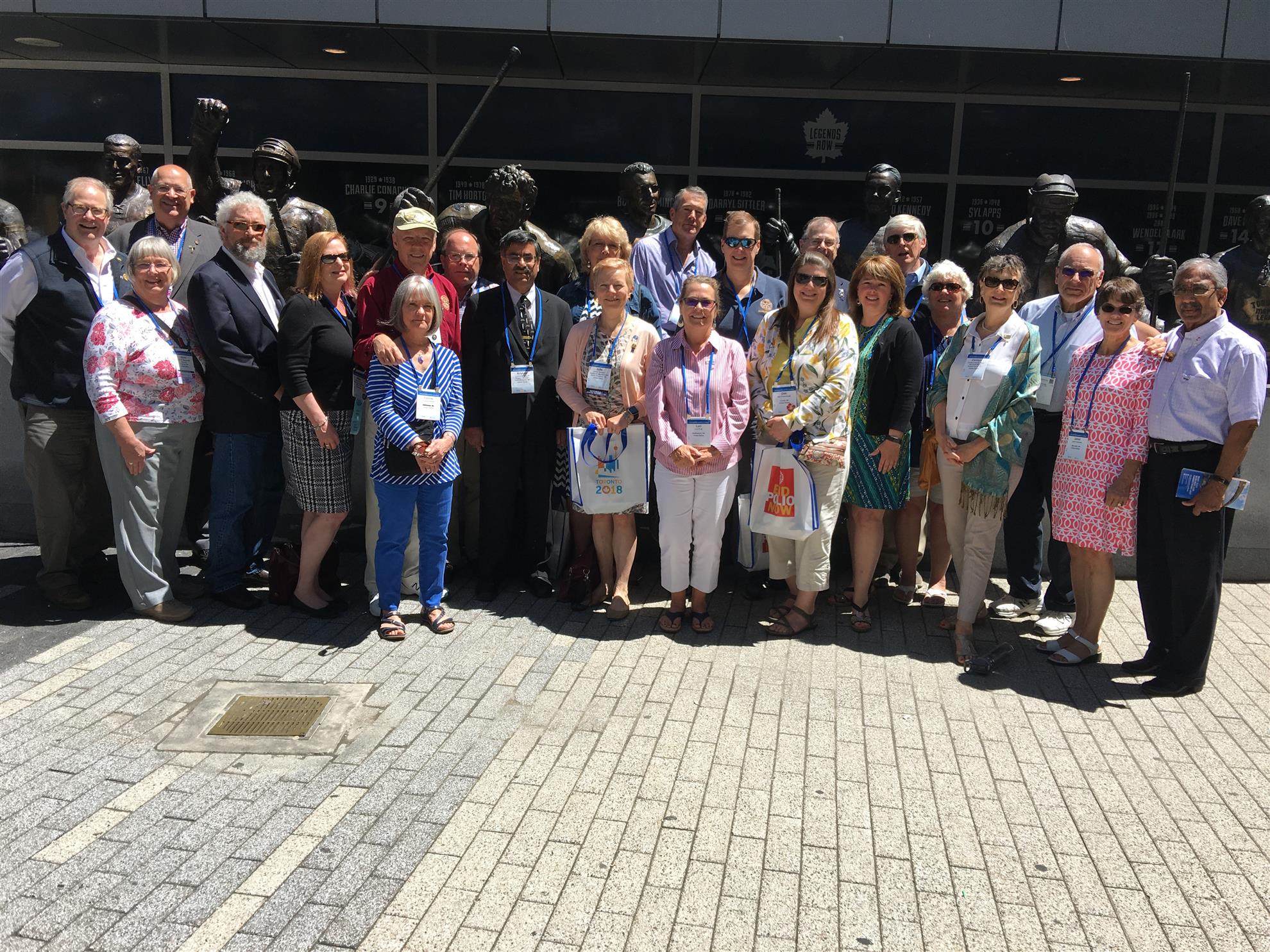 Thirty-seven Rotarians from District 7870 made the trip 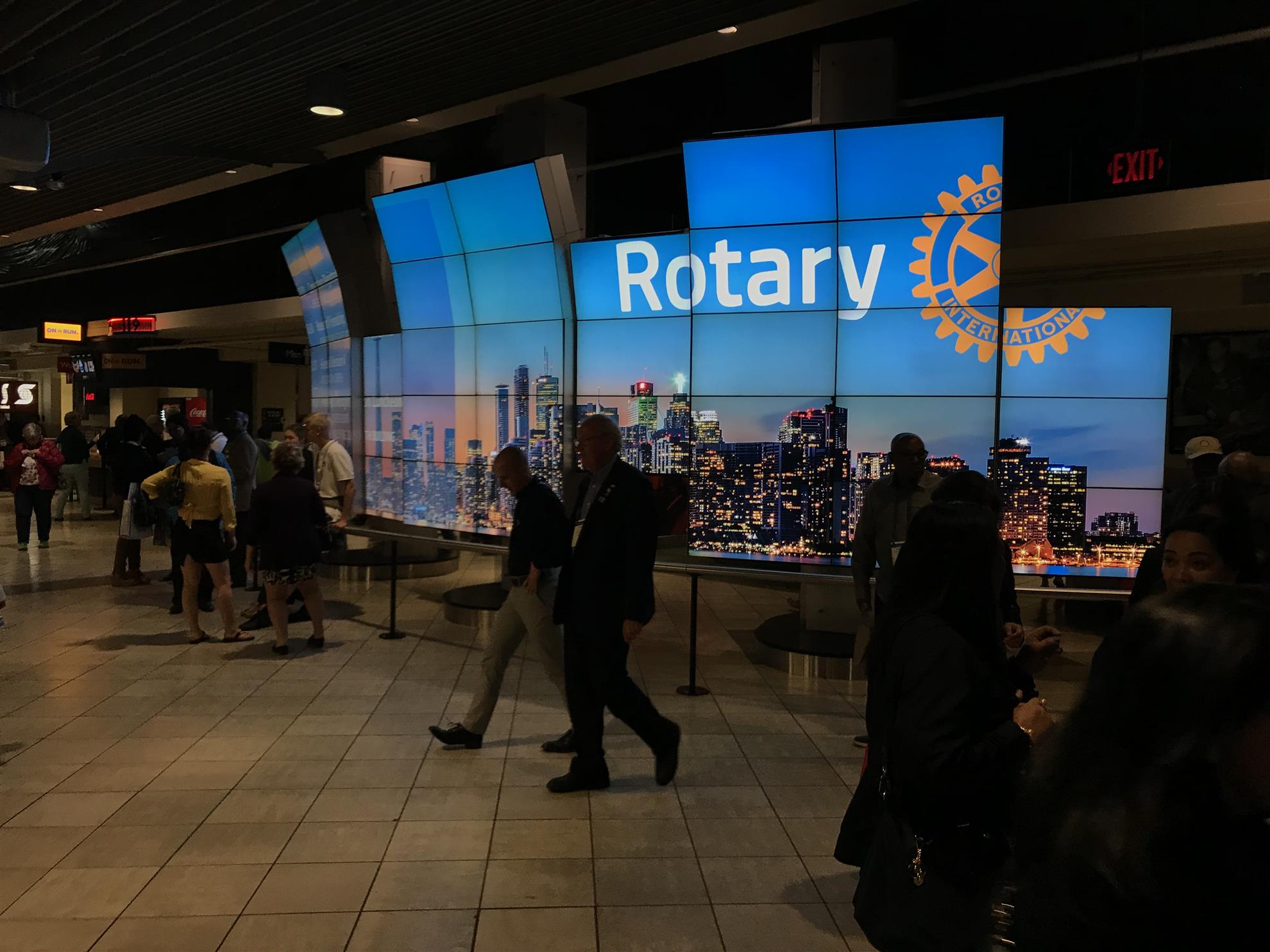 The ususal impressive graphics. |
||||||
Rotaries donating money to help Hondurans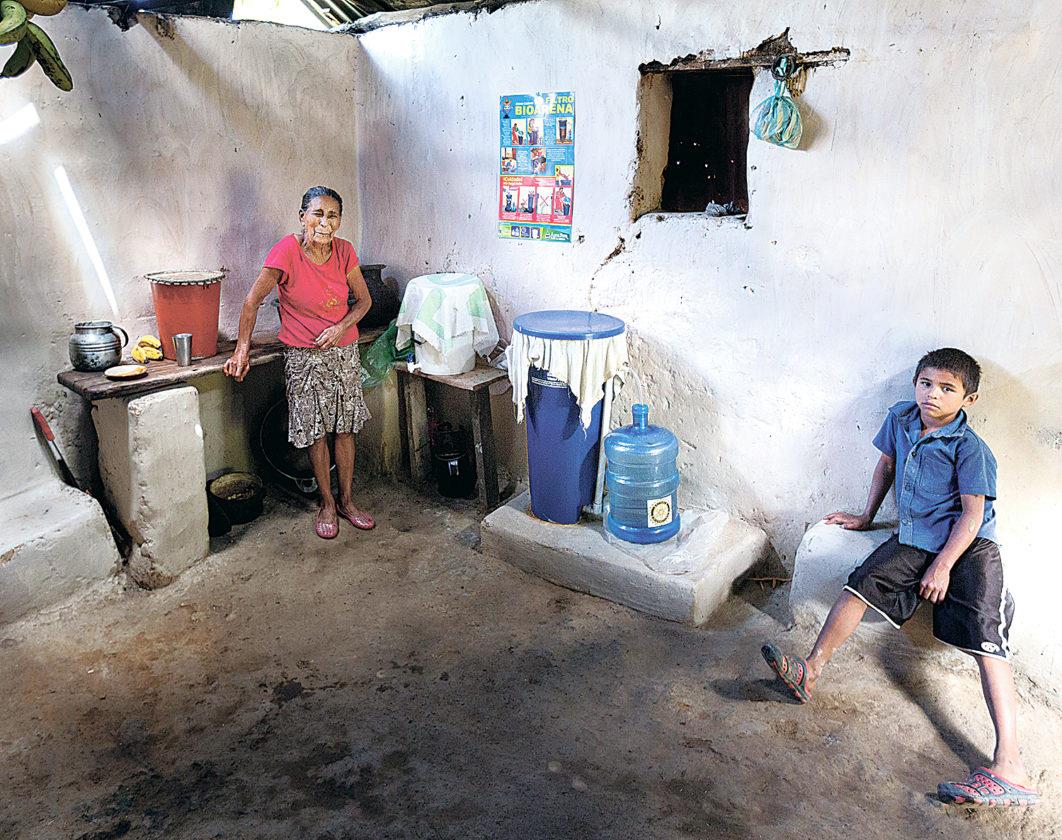 Local News Jun 16, 2018 Hannah LaClaire Staff Writer for the Nashua Telegraph NASHUA – Rotary clubs across New Hampshire and Vermont are raising funds to help families in Honduras meet one of life’s most basic necessities: the access to clean drinking water. Partnering with Pure Water for the World Inc., (initially a Rotary project in the early 1990s and now a nonprofit), Rotary District 7870 is working to raise $26,000 for Las Trojes, Honduras. Las Trojes is a mountainous region of the country with over 62,000 people in hundreds of rural, dispersed communities, according to Pure Water. These families collect water in small streams of runoff from the mountains. This water is also used for cooking, bathing, laundry and livestock, and is contaminated with pathogens such as E. coli and giardia, according to Rotary 7870 Past District Governor Tony Gilmore. The majority of families in the area only have access to the contaminated water, which increases risk of disease and results in “a persistent cycle of poor health, reduced time in school and at work, and contributes to the cycle of perpetual poverty,” Rotary information states. Pure Water for the World seeks to break that cycle by installing biosand water filters in homes and building bathrooms with hand washing stations. While $26,000 may seem like a relatively small feat for 59 different clubs to raise, that money translates to 40 homes with 40 biosand water filters and 38 latrines, a boys and girls latrine and wash station and filter for their school and teacher hygiene training. The money will also help provide filter testing in the months after installation as well as another trip to help the community remove parasites, Gilmore said. The Hollis Brookline Rotary club has already donated $5,000, he said, while another New Hampshire club also generated $10,000. While officials are on their way to meeting the goal, they are still seeking donations. “The sooner we raise (the money), the sooner we can get to work,” Gilmore said. For more information on Las Trojes, or to donate, visit https://purewaterfortheworld.org/where-we-work/honduras/trojes/. |
||||||
Becoming a Rotary alumni is just the beginning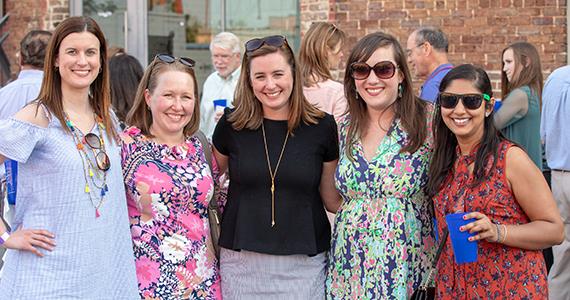 Members of the Rotaract Club of Birmingham attend The Rotary Club of Birmingham’s Annual Rotary Trail Party in May. From left: Erica Murphy, Mary Meadows Livingston, Jeris Gaston, Amanda Martin, and Uma Srivastava. By Jeris Burns Gaston If you told me twelve years ago upon finishing my Rotary Ambassadorial Program year in Dublin, Ireland, that this was just the start of an adventure, I would have been hard pressed to believe you. The program itself was such a unique and enriching experience that improving on this worldview changing year seemed impossible. However, as I enter my thirteenth year as a member of the Rotary family, I now realize that being an alumnus is just the beginning. While in Ireland I was a member of the incredible Dublin Central Rotary Club; a close-knit group I remain connected with to this day. Unfortunately, there was not quite the same type of club experience available for a recent graduate student when I returned to Birmingham, Alabama, USA. After working for a few years and establishing myself as a young professional, a new opportunity arose. To my surprise, the opportunity was not as a Rotarian but as a Rotaractor. Spirit of Rotary alive and well Although I wasn’t familiar with this program, I quickly realized that the Rotary spirit was alive and well within Rotaract, especially the new Rotaract Club of Birmingham, Alabama, USA. In the now fourteen years since its founding, this club has gone on to not only enhance my Rotary experience, but also to change the conversation about how Rotaract members can truly partner with Rotary worldwide. Last year, I was honored to serve as our club’s president. Simply put, the Rotaract Club of Birmingham is a unique establishment to lead. At 300 members, our organization is one of the largest community-based clubs in the world. We have our own non-profit foundation run by our members which funds two internationally award-winning signature service projects. Accolades aside, we are constantly challenging each other to improve on leadership development, service and membership engagement. During my year as president, I often referenced my days as an Ambassadorial Scholar. While traveling around Ireland speaking to Rotary clubs, I was introduced to different service projects and Rotary customs. I realized that Rotaractors have an incredible amount to learn from Rotarians and vice versa. I was determined to show my club the wide net that Rotary International casts, and did so by challenging the group to “Think Global and Act Local.” I hoped to impress upon the club members the value of broadening their worldviews by learning more about RI Programs, attending conventions and starting the conversation about International Service opportunities. Rotary Scholar lens My time as a Rotary Scholar provided me the lens by which to challenge our club to do more within the Rotary framework, while also cementing strong ties with our sponsor Rotary Club and other clubs around town. I am now a member of our sponsor club, The Rotary Club of Birmingham, so my Rotary adventure continues. Ultimately, I want all our members to become Rotarians, to continue within the Rotary family, and to elevate their professional and personal development. I’ve seen firsthand the outcome and the personal growth that occurs when you put Service Above Self. Without the Rotary ambassadorial experience as a starting block, my Rotary story would have ended before it began. Being an alumnus kickstarts a lifetime of learning, engaging, and bringing about positive change in your community and worldwide through the Rotary family. |
||||||
How our club attracts and retains alumni as members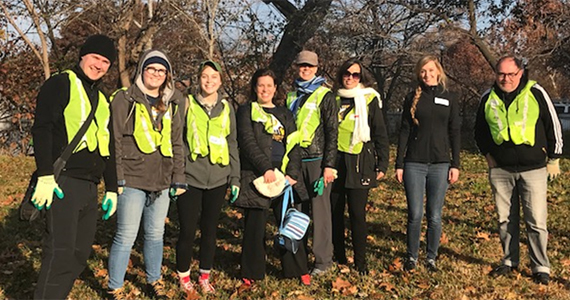 Members of the Dupont Circle Rotary Club at a tree planting event. By Mandy Warfield, president, Rotary Club of Dupont Circle, Washington D.C., USA The Rotary Club of Dupont Circle was started six years ago by a group of Rotary alumni, and since then, the club has grown to include many other facets of the community, including individuals who have not had any previous experience with Rotary. Over the last few years, our club has continued to attract and retain alumni members. Sometimes RI finds the alumni and introduces them to our club, and sometimes the alumni find us. We are lucky to have naturally open and social members, and everyone makes a concerted effort to make any visitor feel welcome. One of our Rotary alumni members, Molly, recounts, “When I started attending meetings, no one treated me like a joke or a second-tier Rotarian because I was so young. Fellow members treated me as an equal who had ideas and skills to contribute to the club.” Our club meets at a neighborhood bar and we meet in the evening. This rather informal environment also allows us to keep dues at a minimum, which is often a swaying factor for younger members. Because we are a small club, we’ve adopted an “all hands on deck” approach in order to execute on our club’s goals; new members frequently become active members of our committees, and even volunteer to step up into the committee chair role. Their fresh insights and perspectives have helped our club grow and have shaped our club over time. Our service opportunities also reflect this “all hands on deck” approach. Another of Molly’s reasons for joining our club were “the hands-on service opportunities the club offers.” She says, “I like getting to get my hands dirty planting a tree or digging out invasive plant species in a wetlands. Almost all the service events Rotary Club of Dupont Circle does involve that level of activity and commitment.” What are some tips we have for attracting and retaining Rotary alumni or other young professionals? • Get people involved immediately. New members are interested in your club because they want to make a difference. Ask your prospective member to help plan a service project or take a leading role on a committee. • Explore financing options. If paying dues is the only thing standing in the way of a member joining your club, it is worth sitting down to have a candid discussion to explore other options. Perhaps another existing member would be willing to support a portion of the dues. • Be curious. Ask them questions about their work life and previous experiences with Rotary. Connect them with someone in the club who might have a similar previous experience. • Most importantly– Have fun! |
||||||
Why you want to risk Visalia Rescue Mission in Visalia, California, USA.
By Ryan Stillwater, a member of the Visalia County Center Rotary, California, USA
On my walk to work on a recent morning, air crisp and clear after an overnight rainstorm, I walk past a man sitting on the street corner. I immediately recognize him as a former resident in our Life Change Academy, who left early on in the program. I nicknamed him Logan, due to his striking resemblance to one of my favorite X-Men comic book characters — with his muscular frame and prominent dark sideburns and stubble. This morning, he is angry and making loud threats against a man (not present) who had very personally wronged him. “Are you ok?” I ask. “No!” he screams, eyes fixed on an invisible enemy. I am standing with Wolverine – the enraged persona of the gentle man I had known.
I became a Christian at the age of 15 and was baptized in the Pacific Ocean a year later with blue-dyed hair and a head full of ambition to do great things. In the years that followed, I would travel to Vancouver, San Francisco, and what is now South Sudan. I saw remarkable (and terrible) things – hopeless drug addicts, prostitutes of all ages, and a desperate mother holding a sick infant miles from medical aid. I imagine these experiences contributed to my becoming a Rotarian at the age of 31.
I’m pretty sure my father hated these trips – not because I was helping others, nor because he is Jewish and these trips were Christian-affiliated – but because he loves me and wants to keep me safe. Also, as he once told me, “There are plenty of people you can help here in your own community.” He was right, which brings me back to Wolverine.
I stood there for just a moment with a decision to make. I could respond with a gracious, yet shallow, apology for his troubles and wish him luck. Or, I could engage. I chose the latter and awkwardly sat down next to him, full cup of coffee in one hand and a stack of papers in the other. I wasn’t convinced he recognized me and I discerned the need to tread softly – to listen and choose my words carefully.
It turns out, his 18-month old daughter had been removed from his custody three months ago. Suddenly, I had a window of opportunity to connect and to encourage. “I would hate for you to make a decision that further separates you from your daughter’s life.” He tears up. “She is young enough not to remember this situation, which means you have an opportunity to get your life together…to become whole and be in her whole life.”
What started as a scary interaction in which I feared for my own safety turned into two grown men (and near strangers) hugging each other on a street corner at 8 o’clock in the morning. I don’t think he hugged me and cried because of my advice, but because I felt led to say, “Logan, I believe in you.”
It would have been easier to move on, but that would have served self way more than another. As you and I pause in these moments and take them as opportunities to build goodwill and better friendships (especially with those hurting in our communities) more Wolverines may remember they have a different name, potential, and purpose.
No matter what you believe or how good of a person you are, you can’t protect yourself or your loved ones enough to avoid the everyday tragedies of life. So let’s risk a bit more in the day to day and seek opportunities for service in the mundane commutes. As Rotarians, “service above self” is not a motto we excuse ourselves from in the face of opposition, or even danger – we press in.
About the Author: Ryan Stillwater is the Director of Development for Visalia Rescue Mission located in California’s Central Valley – which operates a 12-month, residential drug and alcohol recovery program for men and women (Life Change Academy). Ryan serves as the Faith Community Representative on a County Task Force on Homelessness, as well as other local boards and committees. |
||||||
Thousand Flags event connects community High school students work on posting flags for the event. By Cheryl M. Scott, a member of the Bakersfield Breakfast Rotary Club, California, USA Imagine a sparkling lake, surrounded by rolling hills dotted with red, white, and blue flags flapping in the gentle breeze. Picture a three-year-old boy with a miniature flag, running beside the patriotic spectacle…or a high school senior in cap and gown, smiling proudly for her picture-taking mom in front of the colorful backdrop. Now, imagine an Army veteran, dressed in a beret and fatigues, leaning on his cane for support in his slow, deliberate walk among the sea of American flags. These and other heartwarming sights are the reason my anticipation builds each year as Memorial Day approaches. As a 25-year member of Bakersfield Breakfast Rotary Club, this event – Thousand Flags – is my immediate answer when I’m asked, “What’s your favorite club event?” In fact, this is the event that took my Rotary commitment to a whole new level. As Rotary clubs in the United States consider how to connect people across the generations in order to serve, impact, and improve our communities and our world, Bakersfield Breakfast Rotary Club hit the jackpot in 2014 when we introduced Thousand Flags. The three-day event honors military heroes who have fallen in the line of service (consistent with Memorial Day’s traditional purpose), and also salutes all current and past members of the military, and local first-responders as well. When Rotarian Becky Brooks approached Breakfast Rotary about the possibility of creating the project, club members were intrigued. But they knew an undertaking of this magnitude would require a lot of planning and many volunteers. Brooks knew it was possible, especially considering our community’s commitment to honoring those who serve. She was right. Rotarians, high school clubs, cub scout troops, football teams, and even an occasional passerby will spend the first morning of their three-day weekend posting flags in spots carefully selected and marked by a crew of professional surveyors that volunteer for the event. I especially enjoy the early part of that first day, where small teams – people of all ages and backgrounds – move quickly to complete the project in time for an 11:30 a.m. opening. The conversations are unpredictable! I’ve overheard talk about the weather, the last day of school, college plans.One time I heard a Coast Guard veteran ask a Marine vet “how many people are in a Marine platoon, anyway?” People are brought together at Thousand Flags. They are brought together by Rotary! When the large center flag is lowered at dusk each evening, a quiet crowd gathers to hear the playing of taps and to watch the high school color guard fold the flag and present it to our club president. At the end of Monday’s ceremonies, which feature patriotic music and local speakers, many attendees will walk away with a folded flag that they have sponsored in honor of someone they love. This Memorial Day, Bakersfield Breakfast Rotary Club will celebrate the 5th Annual presentation of Thousand Flags. I can’t wait to see what kinds of connections are made this year! |
||||||
Literacy center dedicated to Pakistan Rotarian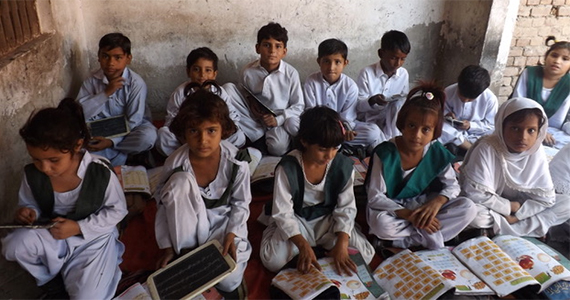 Children at their school in Jhang, Pakistan, before the project provided new chairs, blackboard, and books. By Michelle Tanner, past president Rotary Club of Matamata, New Zealand A random Facebook message with an invitation to present at a Rotary polio conference in Lahore in 2014 was the start of an amazing journey that took me from rural New Zealand to Pakistan and culminated in a project to improve the education of children of garbage pickers in Jhang, Pakistan. While I was in Lahore, Rotarian Khalid Haider invited me to his home city of Jhang, three hours west of Lahore. There he took me to visit the Rotary Education Center Dar-ul-Ehsan, established in 2002 and funded by his Rotary club, Jhang Saddar. I was impressed at the efforts of the local Rotarians, and appalled that, in the 21st century children were educated in these conditions. They wrote on slates! There were hardly any books, almost no furniture, in fact virtually nothing. Just a willingness on the part of the children to learn and of the teachers to teach. The Rotarians were doing all they could but they needed help. I returned to New Zealand to seek the support of my fellow Rotarians. In July 2016, when I became president, this was our international project, supported by a district grant. I emailed the news to Khalid who went into action rallying support from other overseas Rotarians who had visited and pledged support and setting up a Facebook page. Building work commenced in January 2017 and was completed in months. Sadly, Khalid died just weeks before the opening ceremony but he saw the work completed and we dedicated the development to him. The inauguration of the “Rtn. Mian Khalid Haider Block, Rotary Literacy Centre” was a day that I will remember forever. The transformation was stunning. Classrooms renovated and furnished; new classrooms built; and computers, tables, chairs, blackboard, and books installed. In addition, our new Interact club’s first project, a book drive, provided additional books for the pupils. But it was the children that made the day. They glowed with excitement and anticipation. I look forward to following their progress. |
||||||
Assisting Rohingya refugees in Bangladesh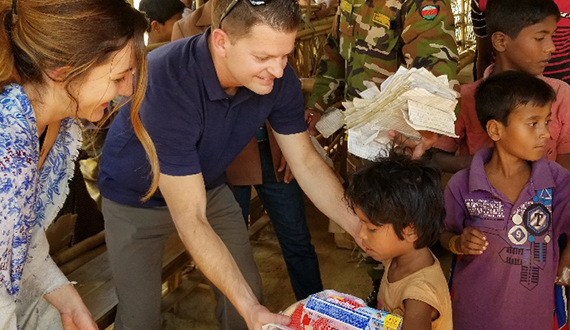 Eric Lee and his wife hand out supplies to refugee children in Bangladesh. By Eric Lee, a member of the Rotary Club of Cheat Lake, West Virginia, USA Service above self was the underpinning of our aid project for Rohingya refugees in Bangladesh this year. The project was a colorful example of how Rotary works around the globe in the service of others. Clubs from the United States and Bangladesh delivered dry goods to Rohingya refugees in the Bahlukali camp along the Bangladesh-Myanmar border in February. The Rohingya are an ethnic minority who fled violence in Myanmar for refugee camps in southern Bangladesh. More than 700,000 refugees have entered Bangladesh since August 2017, and most came with just the clothes on their back. They are in desperate need of food, supplies and basic sanitation. Cox’s Bazaar is the closest city to the Rohingya refugee camps, and the Rotary Club of Cox’s Bazaar engages other clubs and various non-profits to facilitate the delivery of goods and services. The Rotary Club of Cheat Lake in West Virginia, USA, coordinated efforts with Cox’s Bazaar Rotary to deliver clothing, personal hygiene products, and water purification tablets to the Rohingya refugees in Bangladesh. Challenges like transferring goods, security on the ground, and obtaining proper authorization were managed between the two Rotary clubs. The goods were purchased and shipped from wholesale markets from the capital of Bangladesh, Dhaka. Once the products arrived in Cox’s Bazaar, then our group worked in a small bungalow on the Bay of Bengal preparing separate packages for men and women. Maji, or tribal captains, are village leaders that manage groups of about fifty families. They were instrumental in helping coordinate with the army and determine fair distribution across thousands of refugees. Many refugees were shaking as they came through the line to receive their package. Some were sick, some were visibly scared. Distribution went off without a hitch, in part, because members from multiple Rotary clubs made a significant contribution to the project. Together they established resources and logistics for the safe and successful distribution of aid. Rotary clubs around the world should look to examples like this for ideas on future refugee service projects. |
||||||
Trust unlocks creativity at European youth seminar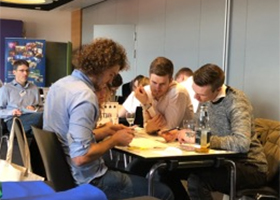 Participants in the RYLA from the Netherlands and Germany collaborate to develop a strategy. By Cédric Schad I am a 19-year-old law student at the University of St. Gallen in Switzerland. Through the Rotary Club of Bad Bederkesa, Germany, I had the chance to take part in a Dutch-German Rotary Youth Leadership Awards (RYLA) seminar in Nordhorn this year. It was an amazing experience. When I arrived on that Friday for the “Proud to be European” seminar, I didn’t know what to expect. But luckily, I wasn’t the only one. None of the other 23 participants (ages 18-28), knew each other either. They came from different regions of the Netherlands and northwest regions of Germany. From the first get together, though, there was a great spirit of openness and friendliness. The first part of the program was designed to stimulate discussions about the European Union. We had the chance to exchange our thoughts about personal and general benefits of the European Union. What I remembered the most was that we all felt proud to represent European values such as democracy, equality, and peace. In addition, we got an idea of how important cooperation between European countries is to solve common problems. For example, Professor Stefan Kuks, Chairman of the Dutch Waterboard Vechtromen, told us about the collaboration between Dutch and German offices necessary to control overflowing waters in the area of the river Vecht and prepare the nearby area for any possible consequences. The second part of the seminar was dedicated to teaching us to work together. The challenge was to quickly assemble a team and build trust. Groups of four to five people had to develop strategies for a business game, which involved coming up with ways to make the people living in a fictitious country in Europe the happiest on the continent, and then present those ideas. We were given no limits to our creativity. Especially in this second part, we faced the challenges of making decisions under pressure while sharing responsibility. But we figured it out quite quickly, and soon gained each other’s trust, which I guess was the case for all the teams. We developed an incredible team spirit and were able to use our different strengths for optimal results. To help our collaboration, one or two coaches observed each team’s interactions and offered constructive feedback. Participants use different props to work out their strategies. An added attraction was entertainer Richard de Hoop, who used music to visualize Belbin Team Roles to help us support each other and build on each of our strengths as a team. But most importantly, what will last are the friendships that we built in such a short time through our collaboration and through relaxed conversations during social time at the bar in the evenings. It is an amazing feeling to get to know so many interesting personalities and to spend some unique moments with them. I hope to stay in contact with them, despite the geographical distance between us. So far, we keep in touch through social media groups and exchange news daily. |
||||||
Rotary.org wins Webby People's Voice Award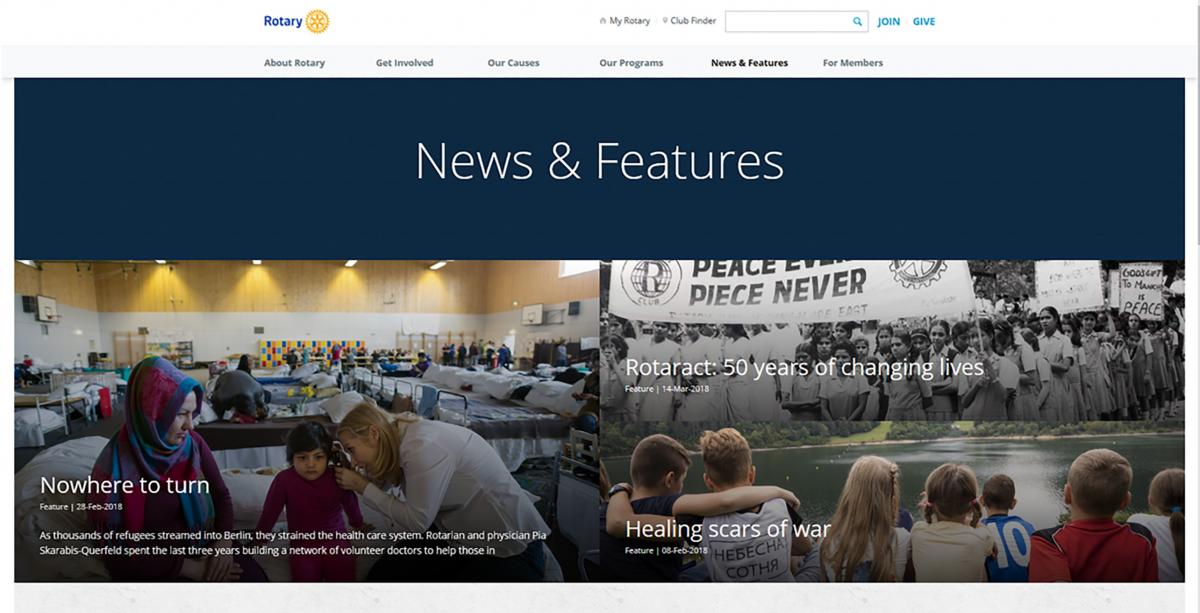 By Rotary International The people have spoken. With a majority of internet user votes, Rotary.org won the prestigious Webby People’s Voice Award for best association website. The International Academy of Digital Arts and Sciences announced the winners on 24 April. Rotary International's revamped website has been chosen by the International Academy of Digital Arts and Sciences as one of the best association websites in the world. This year, internet users cast over 3 million votes worldwide. And with over 13,000 entries from nearly all 50 U.S. states and more than 70 countries, this year’s contest is the biggest Webby Awards ever. Winners will be recognized at the Webby Awards’ 22nd annual ceremony 14 May in New York, New York, USA. The Webby Awards are the leading international honor for excellence on the internet. Rotary was one of five websites nominated in the best association category. The other nominees were the Paso Robles Wine Country Alliance, 11th Macau Design Biennial, Trade Works for Us, and the Center for Court Innovation. Rotary was also nominated for a Webby Award whose winner is chosen by the academy. That award went to the Macau Design Biennial. |
||||||
The opportunity that changed my life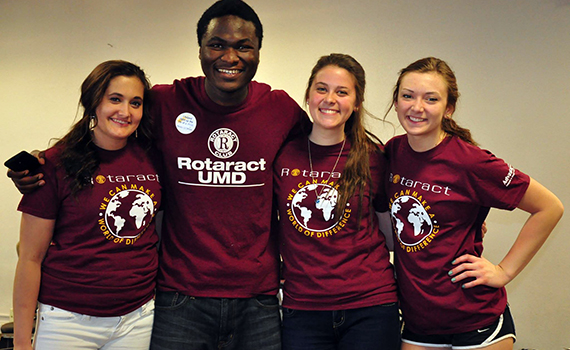 Jireh Mabamba, second from left, with members of Rotaract in Minnesota. By Jireh Mabamba Sometimes, all you need is a chance – that one opportunity of a lifetime. Rotary gave me that chance. I grew up in the Democratic Republic of Congo, where human life has little value. Children are taken from their families and forced into the army, women are raped daily, and men are killed in front of their loved ones. Massacre is the norm. The only way to survive this brutal environment is to flee the country, and when I was nine, that’s what my family and I did. We moved to South Africa, a country that was foreign to us on so many levels. The language and the currency were different. We knew no one. Of the few people that showed us kindness, most were Rotarians. They came forward and helped us when we needed it most. At that time, I knew nothing about Rotary. In 2007, Rotary Youth Exchange students from Australia, France, Germany, and the U.S. came to my school for their year abroad and it was through them that I truly became interested in Rotary. I learned about fellowship, the value of friendship, and what it means to serve. The more I learned of the work of the Rotary Club of Durban Berea, the more my interest grew. When I completed high school, Rotary International gave me the opportunity to be an exchange student in Duluth, Minnesota, USA. My life changed in so many ways during my exchange. I grew as a leader by surrounding myself with Rotarians who were leaders of action in their professional field and their community. I contributed to hands-on projects that made immediate impact in the community. When I met other youth exchange students, I was exposed to new cultures, traditions, and languages. My experience built my self-confidence, allowed me to be more globally competent, and it gave me an opportunity to make lifelong friends. When I returned to Durban, South Africa, after my exchange, I joined the Rotaract Club of Durban Berea to be with people my age who knew the value of serving others. This allowed me to further develop my leadership skills, to network, and to continue having fun with like-minded people. I was accepted at the University of Minnesota-Duluth, allowing me to return to the U.S. in 2013. I built upon the relationships that I had developed during my exchange year with host families and Rotarians to found the Twin Ports Rotaract Club in Duluth. I started this club because I felt empowered by Rotarians from Durban and Duluth. My goal was to form a group of vibrant and dynamic individuals who enjoy serving their community, a group that does not discriminate based on gender, race, or nationality. Twin Ports Rotaract has done several service projects in Minnesota, South Africa, and recently in Guatemalan communities. When I look back, I can see how my life has been completely transformed by the generosity of the people I met through the Rotary Youth Exchange program. Today, I am more passionate about empowering others and making a significant impact in the lives of the people I meet because of the Rotarians who took the time and believed in me. |
||||||
Unexpected lessons from my disaster relief experience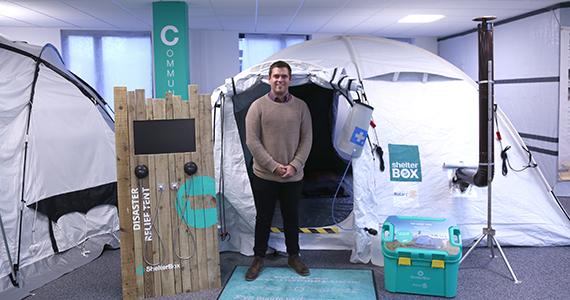 Yannis Comino with ShelterBox aid supplies. By Yannis Comino Both my mother and father are members of the Rotary Club of Morisset, and their club’s constant promotion of ShelterBox gave me the idea to seek the exchange. I am currently working on a bachelor’s in Development Studies with the hope of pursuing a career in the aid sector through either community development or disaster management, so I was thrilled when my exchange was approved. As I walked through the doors of ShelterBox headquarters, I was greeted by a youthful, vibrant, and enthusiastic team. I was impressed by their morning meetings, as they sit in front of four large television screens analyzing the current deployments and tracking global news of the day. My task was to dive through post-deployment reports to identify contacts. Reading through these reports and generating a contact list the organization can use in future deployments, I got a real taste for the work they do. I was able to work alongside, and gain a deeper understanding of, the affiliates programme. This work was fascinating, but the greatest experience was sitting in on meetings and working will fellow colleagues who share my humanitarian virtues. As I look back over my six-week immersion in disaster relief operations, and the logistical conundrums that must be resolved for any successful aid deployment, I am more certain than ever of my desired career path. I truly believe this was the beginning of a lifetime of experiences. This kind of work will enable me to merge my two passions: helping others and exploring new destinations and cultures. My exchange has already led me to become more involved with the Morisset Rotary Club. I shall be going to Tanzania later this year to help undertake a project to provide needed equipment for a hospital in the city of Morogoro. I extend a big thanks to the Rotary Club of Truro Boscawen, who hosted me for my six-week exchange, and the Rotary club back home for kick-starting this adventure. But my biggest thanks has to go to Jane and Andrew Parker who put up with a stranger staying in their house for six weeks. It is a good thing I head back as the Australian summer draws to a close, as I dare not get back into a swimsuit after eating all of Jane’s amazing food. This New Generations Service Exchange has ignited my flame for humanitarian service, one I hope will continue to burn brightly for many years to come. |
||||||
Plant trees, we’ll plant seaweed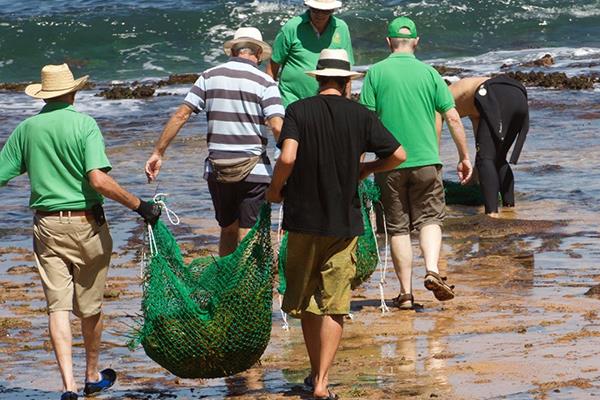 Plant trees, we’ll plant seaweed By Parry Monckton, president-elect of the Rotary Club of Turramurra, New South Wales, Australia In early March, members of my club joined the Operation Crayweed team at Mona Vale Beach to restore the denuded reef on the Sydney shore coastline. We decided to help plant a Crayweed forest as part of our unique response to RI President Ian Riseley’s challenge for Rotary members to plant trees around the world. Underwater trees, you see, are just as important, if not more so, to restoring the health and vitality of the world’s oceans. Time and development have not been kind to the Sydney reefs. Pollution killed off a lot of the Crayweed before better sewage treatment and extended outfalls were put in place in the late 1980s. The quality fo water has improved dramatically. Unfortunately, seaweed forests do not return all by themselves. Enter Operation Crayweed, which has already had great success in eight sites around Sydney. The Mona Vale reef site will be the ninth seaweed forest planted. Club members gather, measure, and record. Club members gathered, measured, weighed, recorded and observed the quality of marine life on the individual kelp plants. These had been transported there from an earlier collection in the day from well-established reefs south of Sydney. Fifteen healthy plants were then put into each of nine pre numbered labelled green mesh bags then closed and fixed with cable ties. Three scuba divers from the University of New South Wales/Sydney Institute of Marine Sciences of Operation Crayweed (including leader, Dr ‘Ziggy’ Marzinelli and his team) floated them out from the beach to a predetermined reef site and anchored them down with clips and ropes with five preplaced stainless steel anchors to 45 bolts in the reef. They were placed into about three to four meters of water, which took several. Our members were busily engaged in their scientific activities and sealing the mesh bags and carrying them to waiting divers. After repopulation of the reef, these nets and anchors will be removed. The sites will now be revisited periodically. The Crayweed ‘forest’ that will emerge in the next 6 to 12 months will gradually take over the reef in coming years allowing the return of crayfish, fish, and all manner of other marine life to restore the natural underwater habitat lost in past years and for future people to enjoy. Individual plants don’t have the effect a forest will, but clubs or members wishing to help can purchase these underwater “trees” to contribute to a future planting by contacting our club. Look at it as a way of responding to Riseley’s challenge if you wish. There is plenty of shoreline reef off of Sydney in need of restoration. Operation Crayweed will give us periodic updates on the health of the forest of weed. |
||||||
Water is building friendships, changing lives in Sri Lanka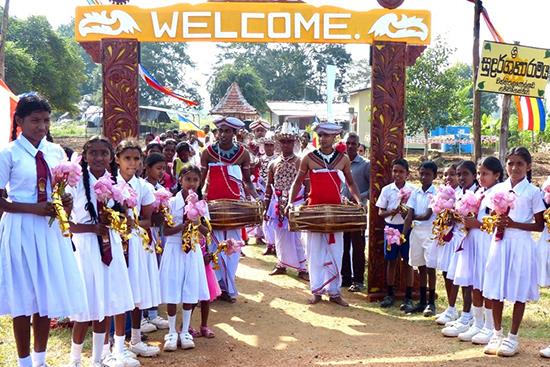 Villagers in Vanni Pallugollewa, Sri Lanka, welcome the visiting Rotary members. By Katie Conlon, PhD student at Portland State University in Portland, Oregon, USA Winding along the bumpy backroads of Sri Lanka and through intermittent rice fields and jungle, our group took hours of navigation skills to find the last village. But as we turned a corner, we got a first glimpse of the village’s welcoming committee, a 50-deep motorcycle “motorcade” assembled to escort us to the Nawa Teldeniya Water Project. It was a very impressive entourage for the village to drum up. The bus and motorcycle cavalcade rode with us for the remaining kilometers to the village, and our procession grew as villagers came out of their homes and fields. By the time we reached the entrance of Nawa Teldeniya, the entire village had assembled. The motorcade passed over the role of leading the procession to the village’s traditional Kandyan dance troupe. Rows of young children dressed in immaculate white temple attire gifted us with flowers and kowtows. The dancers wore colorful, traditional costumes adorned with silver chest pieces and headpieces that glistened in the sun as they whirled, drummed, and danced their way backwards into the heart of the village. This was a magnificent welcome for a newly formed friendship and international partnership involving a Rotary global grant project. The gift of clean water, a basic human right, sparked this joy and enthusiasm on the part of the villagers. For centuries, rice farming in the north central provinces of Sri Lanka has depended on man-made reservoirs that collect and store water during the rainy seasons. In recent decades, chronic kidney disease is linked to agricultural fertilizers and pesticides that pollute the reservoirs, irrigation canals, and ground water. This ground water in turn fills the community wells that supply drinking water. Hundreds die every year from this disease. The pollution is irreversible. The only way to remove the dissolved heavy metal ions responsible for the disease is through the process of reverse osmosis. Through a global grant from The Rotary Foundation awarded to the Rotary Club of Colombo, Sri Lanka and eight Rotary clubs from District 6600 in Ohio, reverse-osmosis plants have been built and are now providing clean water in seven rice-farming Sri Lankan villages affected by chronic kidney disease. Each water plant serves 1,400 people. And there is sufficient funding to build five more such plants in the next several months; bringing the grant tally eventually to 13 centers. Over the course of two weeks in January, the delegation of nine Rotarians from Ohio and eight from Colombo formed a core group, and numerous Colombo and North Central Province Rotarians joined for various stages of the water filtration center tour to see the fruition of the past year’s work and officially commemorate the completed centers. Committed to the motto “service above self,” these Rotary clubs have partnered to address the crucial overlapping problems of access to clean drinking water and preventing chronic kidney disease, both of which create an unbearable situation for livelihoods and health in the north central province villages in Sri Lanka. Back in the village, the revelry of the day continues, and smiles and warmth radiate from everyone present. After being entertained by dance and song, the ribbon-cutting ceremony to officially open the water filtration center begins. The commencement plaque reveals the names of the national and international Rotary groups who partnered for this project. Commemorative photos are snapped. The reverse osmosis machine is fired up and water is poured for a round of cheers. Nothing tastes sweeter than the first sip of clean water after decades of drinking polluted water. For Rotarians and villagers alike, this day of clean drinking water is a day that will not be forgotten. |
||||||
World Water Day 2018: Unlocking Nature’s Potential to Create a Water-Secure World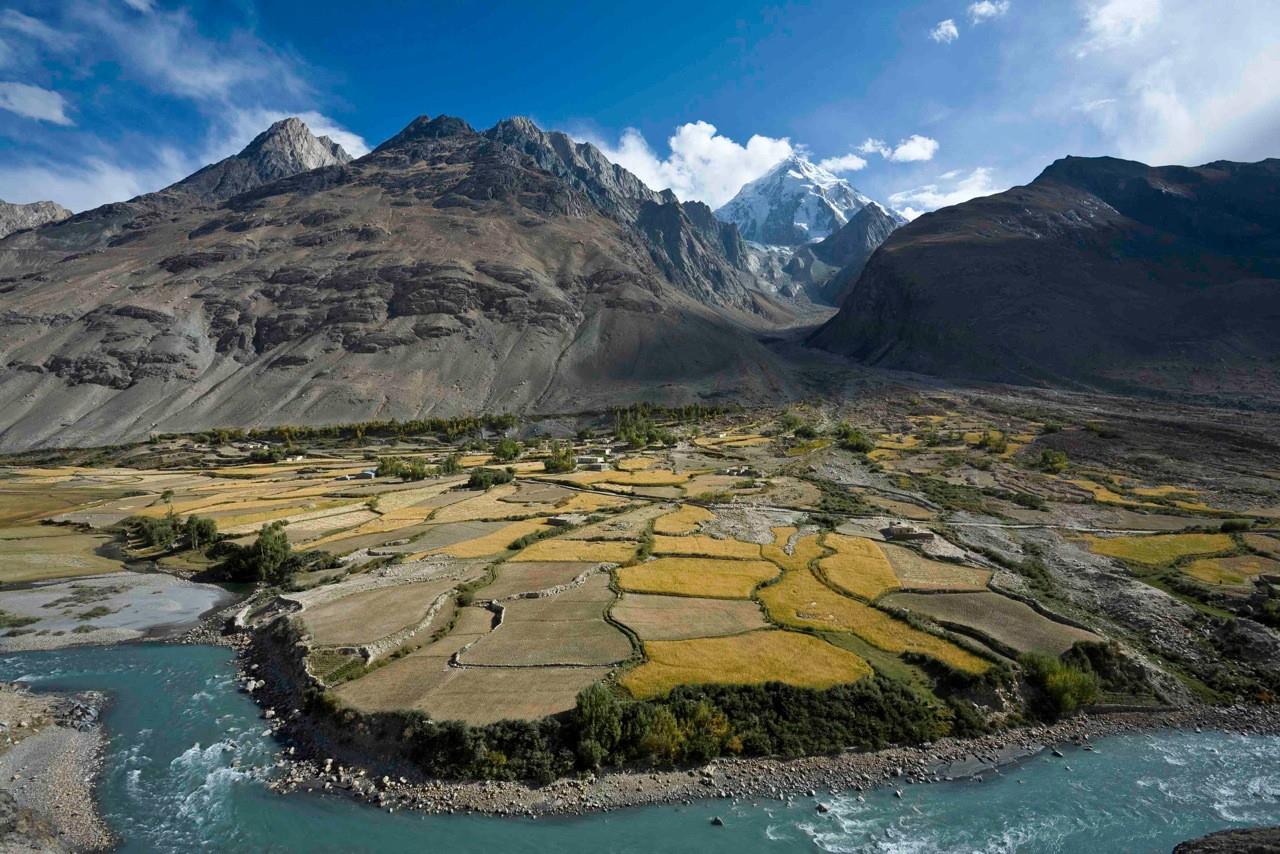 Wakhan, Afghanistan. Photo credit: John Winnie Jr., WCS-Afghanistan “Water is the driving force of all nature,” Leonardo da Vinci observed more than 500 years ago. His observation is just as relevant today — water’s role in maintaining the health and balance of natural ecosystems remains as vital as ever. But on a planet that is growing warmer and more crowded, freshwater resources and the ecosystems that depend on them are being strained as never before. This year, as the world prepares to celebrate World Water Day on March 22, attention is being focused on our relationship with nature. Specifically, how can we interact more sustainably with the natural environments around us to become more effective stewards of water, the world’s most vital resource? USAID recognizes that environmentally responsible water resources management serves a key role in improving everything from economic development prospects and human health outcomes to resilience in the face of intensified cycles of flood and drought. To that end, USAID — along with more than 16 other U.S. Government agencies — declared in the recently released U.S. Government Global Water Strategy that preservation of the planet’s natural environments is a key component to making sustainable improvements to water supply and human health. |
||||||
Clean water for Fante Mayera, Ghana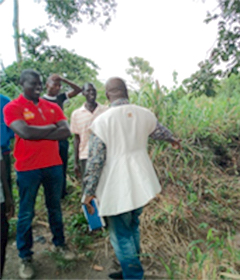 Albert Essien, left, visits the stream that is a source of water for the village. By Albert Essien, Rotary Club of Tema Meridian, Ghana Fante Mayera is a medium-size rural community of about 800 people in the greater Accra region of Ghana. In August, I visited the community with the manager of the Rotary-USAID partnership in Ghana and other officials to meet with villagers and check on the progress of a borehole and latrine. I had been part of an initial visit with my Rotary club in 2016 to assess conditions there, and it was exciting to return and see the difference this important collaboration is making. The main occupation of the people in Fante Mayera is farming. The community is connected to the National Electricity Grid so inhabitants have access to a power supply. The community had an existing hand-dug well, which was installed a decade ago. But over time, the quality of the water had become very bad. When we arrived at the well site, the apron was hanging off from erosion and the hand pump was not working. To fetch water, villagers had to use a bucket and rope. The color of the water resembled tea. In spite of the poor quality, the community still used it. As we stood by the well interacting with residents, I saw children come around with buckets to fetch water. In the dry season, the well dries up, and when that happens, the community shifts their attention to a stream which is some distance away. From the hand-dug well site, residents led us on a 20-minute walk to the stream. During my earlier visit in 2016, I remembered seeing a snake swimming in the water, an indication of the dangers the people are exposed to meeting their daily water needs. We impressed upon them the need to get a platform people could stand on to fetch water, so they wouldn’t have to walk into the stream. As part of the collaboration, Rotary and UAID are providing the community with a water supply system based on a mechanized borehole. Next we visited the primary school to inspect construction of two 4-seater KVIP latrines. I was glad that the girl’s latrine had a changing room with a washing trough connected to a water source. This feature is a requirement of my club’s menstrual hygiene program, under which we distribute washable menstrual kits to school girls. We were shown the existing latrine which was in a very bad shape. We were told that community members used to come to the school to use the existing latrine, but the heads of the PTA and School Management Committee gave us assurances this would not happen with the new facility. The community seemed very appreciative of the latrines being constructed, so we felt convinced they would not allow anybody to mess them up. The community members are very appreciative of what Rotary is doing for them. It is my hope that in the not-too-distant future, I will return to witness the completed WASH facilities in use, as our club continues to work with Rotary’s partners to support, train and mentor the community in water and sanitation management and hygiene education. |
||||||
Water flows from new borehole in Basari Akura
|
||||||
5 things you may not know about ending Polio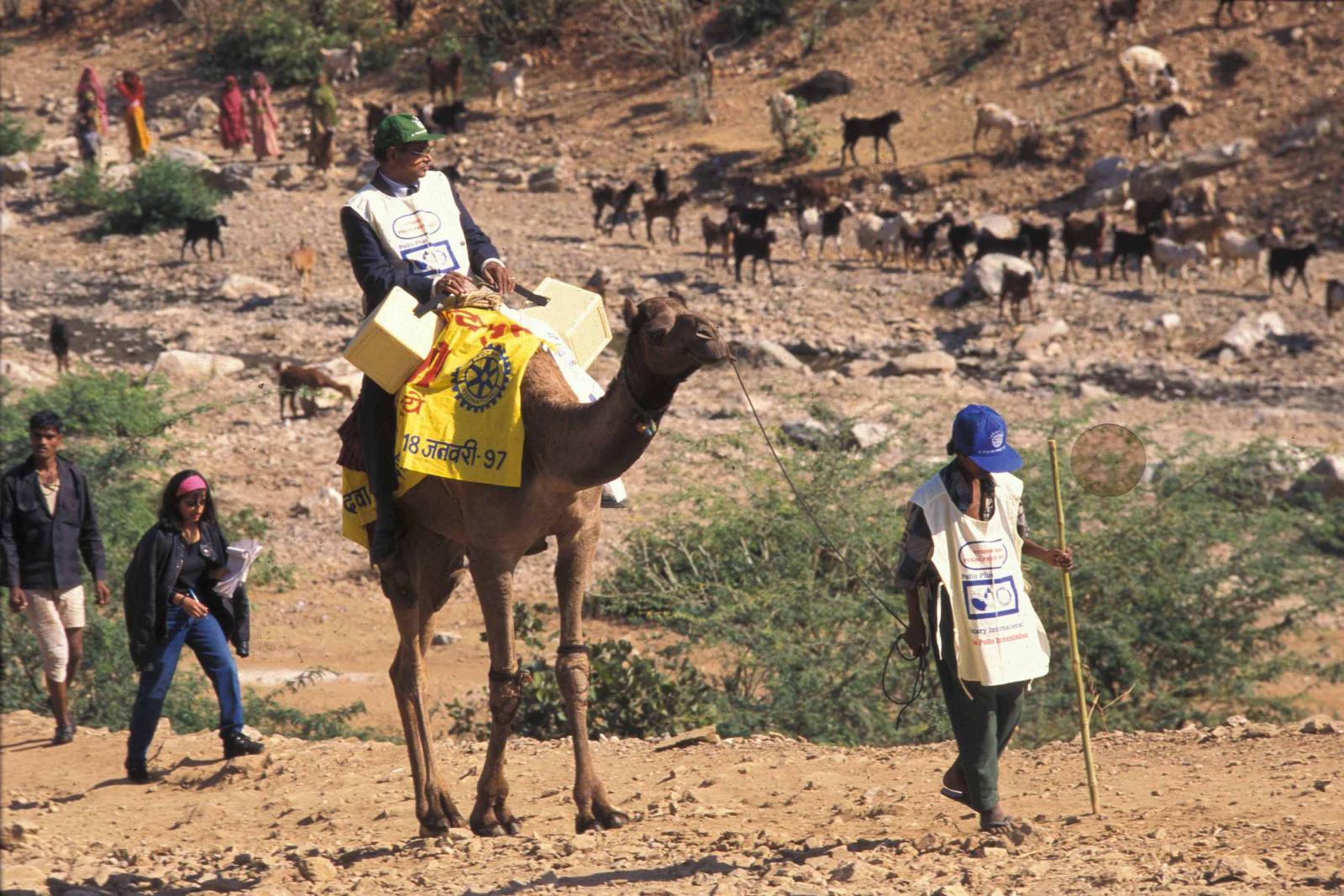 John Cena The road to eradicating polio has been a long and difficult one, with Rotary leading the fight since 1985. Going from nearly 350,000 cases in 1988 to just 10 so far this year has required time, money, dedication, and innovation from thousands of people who are working to end the disease. Here are five things you may not know about the fight to end polio: 1. Ice cream factories in Syria are helping by freezing the ice packs that health workers use to keep the polio vaccine cold during immunization campaigns. 2. Celebrities have become ambassadors in our fight to end the disease. They include WWE wrestling superstar John Cena, actress Kristen Bell, action-movie star Jackie Chan, golf legend Jack Nicklaus, Grammy Award-winning singers Angelique Kidjo and Ziggy Marley, Nobel Peace Prize laureate Desmond Tutu, anthropologist Dr. Jane Goodall, co-founder of the Bill & Melinda Gates Foundation Bill Gates, and world-renowned violinist and polio survivor Itzhak Perlman. 3. Health workers and Rotary volunteers have climbed mountains, crossed deserts, and sailed to remote islands, risking their lives to vaccinate children against this disease. Rotary has funded more than 1,500 motorbikes and 6,700 other vehicles, as well as 17 boats, to make those journeys. Vaccinators have even traveled on the backs of elephants, donkeys, and camels to immunize children in remote areas. 4. In Pakistan, the polio program emphasizes hiring local female vaccinators and monitors. More than 21,000 vaccinators, 83 percent of whom are women, are achieving the highest immunization coverage rates in the country’s history. 5. Thanks to the efforts of Rotary and its partners, more than 16 million people who otherwise might have been paralyzed are walking today. In all, more than 2.5 billion children have been vaccinated since 1988. |
||||||
Rotary gives $53.5 million to help eradicate polio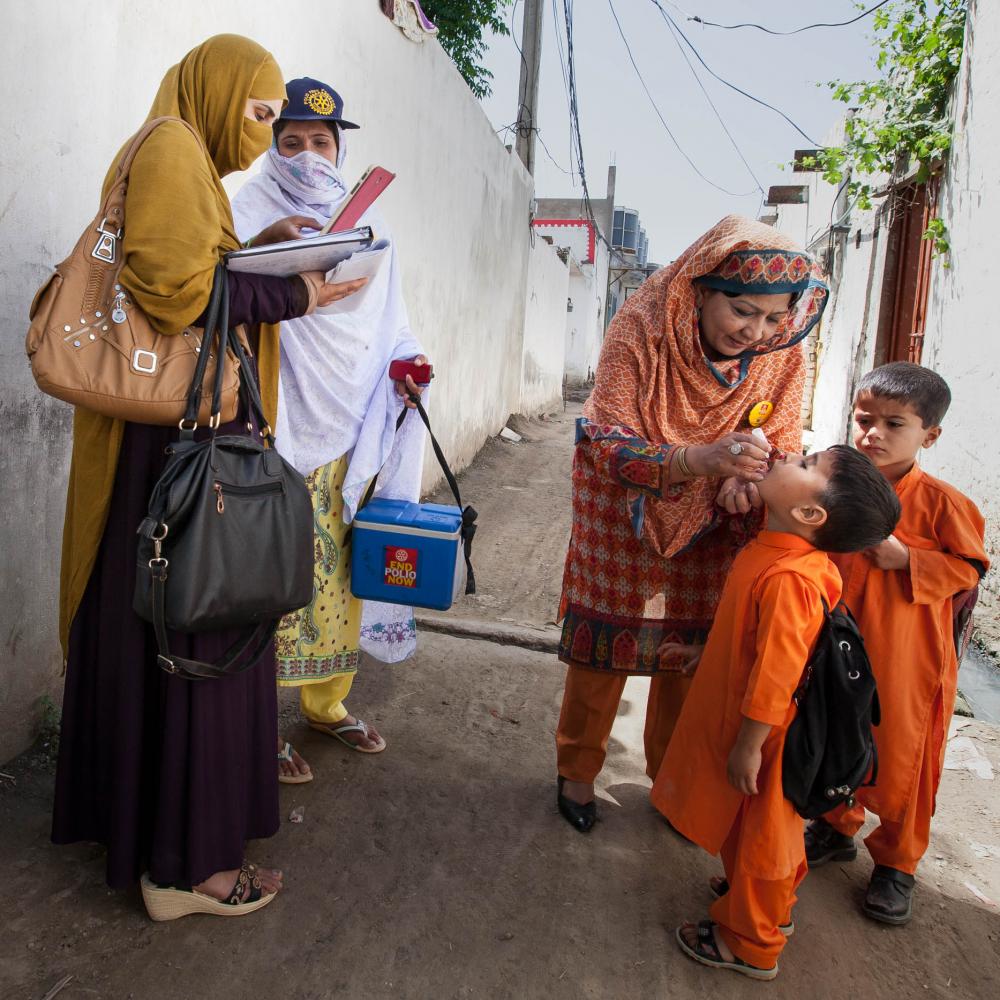 Rotary gives $53.5 million to help eradicate polio and challenges the world to continue the fight to end the disease. Photo by Khaula Jamil Rotary is giving $53.5 million in grants to support immunization and surveillance activities led by the Global Polio Eradication Initiative (GPEI). More than half of the funds will support efforts to end polio in two of the three countries where polio remains endemic: • Afghanistan: $12.03 million • Pakistan: $19.31 million Further funding will support efforts to keep 10 vulnerable countries polio-free: • Cameroon: $1.61 million • Central African Republic: $428,000 • Chad: $2.33 million • The Democratic Republic of Congo: $6.48 million • Ethiopia: $1.82 million • Iraq: $2 million • Niger: $1.71 million • Somalia: $3.29 million • South Sudan: $835,300 • Syria: $428,000 An additional $731,338 will fund research to be conducted by the World Health Organization (WHO), and another $518,000 will go toward technical assistance in West and Central Africa. While significant strides have been made against the disease, polio remains a threat in hard-to-reach and underserved areas and conflict zones. Despite a historically low case count, as long as a single child has polio, all children are at risk, which underscores the need for continued funding and political commitment to eradication. Rotary has committed to raising $150 million over the next three years, which will be matched 2-to-1 by the Bill & Melinda Gates Foundation, yielding $450 million for polio eradication activities, including immunization and surveillance. Rotary started its polio eradication program PolioPlus in 1985, and in 1988 became a partner in the GPEI, along with WHO, UNICEF, and the U.S. Centers for Disease Control and Prevention. The Bill & Melinda Gates Foundation later became a partner. Since the initiative launched, the incidence of polio has plummeted by more than 99.9 percent, from about 350,000 cases in 1988 to just 22 confirmed cases in 2017 (as of 25 January). Rotary has contributed a total of more than $1.7 billion — including matching funds from the Gates Foundation — and countless volunteer hours to protect more than 2.5 billion children in 122 countries from polio. |
||||||
Incoming district governors prepared to Be the Inspiration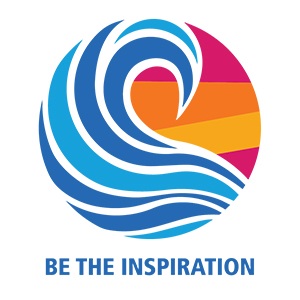 By Hank Sartin, Rotary editorial staff District governors-elect got their first look at the 2018-19 presidential theme Be the Inspiration Sunday at the International Assembly, an annual training event for incoming district leaders. RI President-elect Barry Rassin urged the audience to build a stronger organization by inspiring a younger generation and by getting the word out to the community at large about the work Rotary does. “I will ask you to inspire with your words and with your deeds: doing what we need to do today, to build a Rotary that will be stronger tomorrow; stronger when we leave it, than it was when we came.” We caught up with incoming district governors after the theme was announced to get their thoughts on being the inspiration. 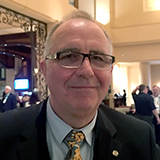 Charles Tondeur, Rotary Club of Hazebrouck-Merville, France (District 1520): “I think Rotary needs to be open to new ideas, and this theme encourages us to think about ideas that will inspire our members. Inspiring is about bringing new energy.” 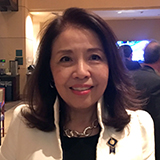 Yoko Hattori, Rotary Club of Tokyo Hiroo, Japan (District 2750): “This theme is clear and direct, which is going to be useful and powerful for the leadership in districts. He’s asking us to think about how we take care of our Rotary family, but also how we inspire beyond Rotary.” 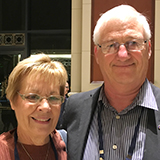 Malcolm Kerr, Rotary Club of Cobram, Australia (District 9790): “I thought the theme was, well, inspiring. I especially like the way he talked about the sea connecting us all. We have to inspire our districts, we have to inspire our clubs, we have to inspire our individual members, and we have to inspire in the world beyond Rotary. It’s a pyramid of possibilities.” 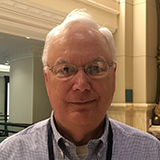 Jim Cupper, Rotary Club of Kalamazoo, Michigan, USA (District 6360): “What I really liked was Barry Rassin’s emphasis on the environment and how we’re going to fit that into the things that Rotary does. Be the Inspiration is easy for most of us to work into our message to our districts and our leadership teams. Part of inspiring our clubs will be training them to use the amazing tools that Rotary has.” 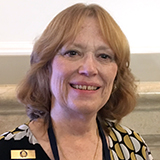 Linda Murrary, Rotary Club of South Everett/Mukilteo, Washington, USA (District 5050): “The theme is so important to Rotary right now, when we all need inspiration. Barry Rassin talked about getting the word out, so I’m going to go post the theme and talk about it on Facebook tonight! His message on membership is so important, urging us to be open to new ideas. ”
|
||||||
Teaspoons of peace that will last a lifetime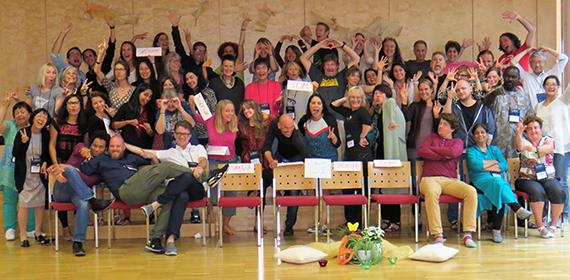 With peace makers from around the world at the International Institute on Peace Education conference in Innsbruck, Austria By d’Arcy Lunn, 2016-18 Rotary Peace Fellow, International Christian University, Tokyo Take visiting 15 countries over five months, then add in any number of training events, an internship, research, attending conferences and events, and meeting two Nobel Peace Laureates, and you get an amazing formula for gaining skills in peace building. The final and most important result of this equation, though, will be what I eventually do with it all. I have some ideas about that. d’Arcy, left, with Nobel Peace Laureate Leymah Gbowee and former Rotary Peace Fellow Wisdom Addo at a PeaceJam event in Liberia. The Rotary Peace Fellowship is a wonderful opportunity to earn a Master’s in Peace Studies at an esteemed university. With it comes an Applied Field Experience (AFE) where Fellows spend time almost anywhere in the world learning about peace with practitioners, academics, and others associated with peace in various ways. The variety of Peace Fellows is as diverse as the applied field experience opportunities. In my class there was a Fellow from Bangladesh pursuing his field experience in Geneva, a Fellow from Sierra Leone and Gambia in Nigeria, from Argentina in Bolivia, Australia in Israel, and from the United Kingdom in Tanzania and Thailand. I am originally from Australia, but have been fortunate to have had the opportunity to travel for the better part of the last 17 years. So I used the five-month applied field experience to see and experience as much as possible during a round-the-world trip that began in Japan and included North America, Europe, West Africa, the Middle East, and Southeast Asia. During my field experience, my focus shifted from researching the way people perceive peace in different contexts (conflict, non-conflict, and post-conflict) to engaging in dialogues for reconciliation during an internship with Search for Common Ground in Liberia. I also took part in conferences centered on engaging youth in peace and educating people about peace. I was not the most comfortable in the traditional classroom setting but out in the field my understanding flourished alongside highly engaging and effective educators, practitioners, and ambassadors for peace. The opportunity still seems like a dream. A few of the very many highlights include:
I’m humbled and grateful, and come out of this experience with a high resolve to make peace an active and important component of my life and future. I hope to polish and refine all the small lessons and insights I have learned to create Teaspoons of Peace – small but significant choices, decisions, and actions creating more peace in the world. I couldn’t have imagined a better opportunity than my applied field experience to engage, learn, and grow in my understanding and practice of peace. Thank you Rotary. |
||||||
Father, son team up to make a difference
|
||||||
From all of us at Capital City Sunrise Rotary Club |
||||||
Improving access to water in Ghana Ako Odotei, chair of the Ghana Host Committee of the RI-USAID collaboration, greets Rotarians from the U.S. during the West African Project Fair in Accra. By Theophilus Mensah In early October, Rotary Foundation Chair Paul Netzel was on hand to open the West Africa Project Fair in Accra, Ghana, where Rotary and USAID are partnering to improve sustainable access to water, sanitation and hygiene in six regions of the country. The project fair, as the name suggests, involves Rotary clubs across the West Africa sub-region, and is in its 12th year. It serves as an excellent forum for local clubs to show off their projects and establish partnerships with international clubs to secure the financial and technical support needed to implement projects in the region. The Ghana Host Committee of the H2O Collaboration decided it would be good to have a booth at the fair, to showcase this unique public-private partnership, build awareness, and seek the support of new technical advisers and financial donors. As project manager of the committee, I assisted Ako Odotei, the committee chair, in setting up our booth and providing information. We were located near a staircase, which turned out to be a very strategic location. We welcomed members from the Rotary clubs of Accra, Accra Legon, Accra Dansoman, Sunyani Central, Tema, and Accra RRC, many of whom expressed support for our efforts. Frank Owusu Debrah, past president of Sunyani Central, noted how important it is to help Rotarians gain a clearer understanding of the project. He believes it will dispel any negative perceptions and motivate more members to give toward meeting the $200,000 Rotary has agreed to raise in each country. Rotarians in Nigeria and Niger were also excited about the water and sanitation improvements, and expressed interest in developing a similar WASH program in their home country. All in all, I was very pleased with the results of the fair, which was well organized and well attended. We were able to provide valuable visibility to the collaboration. |
||||||
Pakistan and Nigeria replace paper-based reporting with fast, accurate cellphone messaging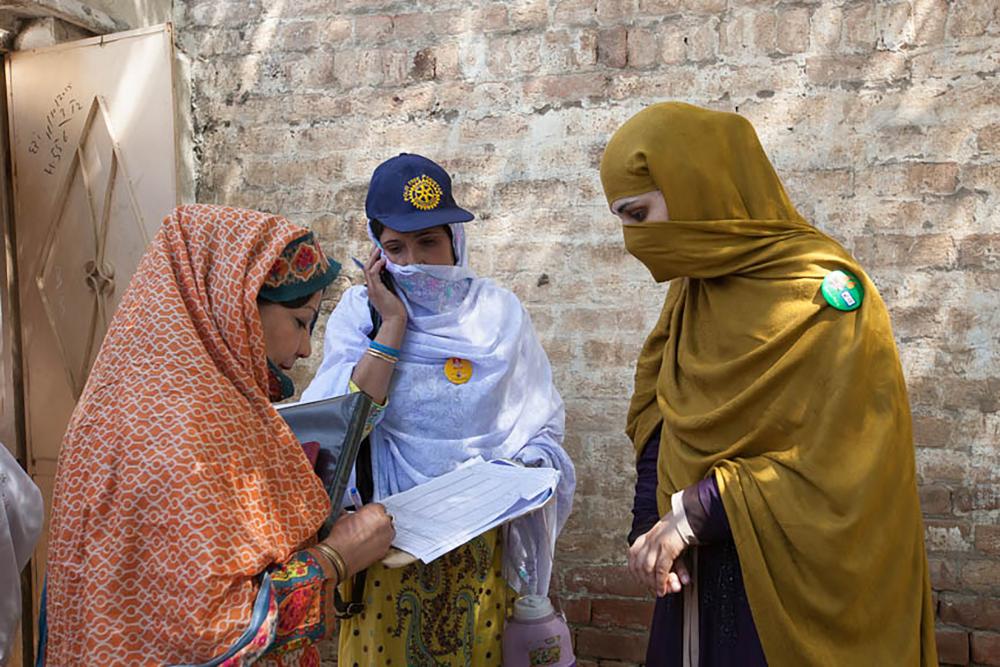 Pakistan health workers are replacing traditional paper-reporting with accurate and timely cellphone-based reporting. By Ryan Hyland Photo by Khaula Jamil Mobile phones and simple text messaging may be the keys to victory in the world’s largest public health initiative: the eradication of polio. As the disease retreats from the global stage, thriving in only a few remote areas in three countries, it’s up to health workers to deliver vaccines and share information with speed and accuracy. Health workers in Pakistan are receiving cellphone and e-monitoring training at the Rotary Resource Center in Nowshera, Khyber Pakhtunkhwa. Rotary and its partners in the Global Polio Eradication Initiative are strengthening the lines of communication by giving cellphones to health workers in Pakistan and Nigeria, where a single text message could save a life. In Pakistan, Rotary has been working to replace traditional paper-based reporting of maternal and child health information, including polio immunization data, with mobile phone and e-monitoring technology. Community health workers across the nation have received more than 800 phones through a partnership with Rotary, the Pakistani government; Telenor, the country’s second-largest telecommunications provider; and Eycon, a data monitoring and evaluation specialist. Organizers plan to distribute a total of 5,000 cellphones by the end of 2018. Health workers can use the phones to send data via text message to a central server. If they see a potential polio case, they can immediately alert officials at Pakistan’s National Emergency Operations Center. They also can note any children who didn’t receive the vaccine or parental refusals – and record successful immunizations. In Pakistan, the polio eradication effort aims to reach the nation’s 35 million children under age five. The result is a collection of real-time information that officials can easily monitor and assess, says Michel Thieren, regional emergency director of the World Health Organization’s Health Emergency Program. Pakistan health workers are replacing traditional paper-reporting with accurate and timely cellphone-based reporting. “Cellphone technology signals tremendous progress in the polio eradication program,” says Thieren, who has directed polio-related initiatives for WHO in Pakistan. “The data we collect needs to have such a granular level of detail. With real-time information that can be recorded and transcribed immediately, you can increase accuracy and validity. “This gives governments and polio eradication leaders an advantage in the decisions we need to make operationally and tactically to eliminate polio,” Thieren says. Beyond polio Health workers also are using mobile phones to monitor a multitude of maternal and child health factors. Pakistan’s child mortality rate ranks among the highest in the world, according to UNICEF, with 81 deaths under age five per 1,000 live births. But mobile technology can help reduce those deaths, says Asher Ali, project manager for Rotary’s Pakistan PolioPlus Committee. “Our health workers, including community midwives, are tracking pregnant mothers,” Ali says. “When a child is born, they can input and maintain complete health records, not just for polio, but for other vaccines and basic health care and hygiene needs.” They also can monitor infectious diseases, such as malaria, tuberculosis, and influenza-like illnesses, as well as child malnutrition and maternal health concerns. “If there is a problem with the baby or the mother, we can send information to the government health departments immediately, so they can solve the issue quickly and adjust their strategies,” Ali says. Cellphones also facilitate follow-up visits with families, because health workers can send appointment reminders over text message. |
||||||
National Day of Giving - Giving Tuesday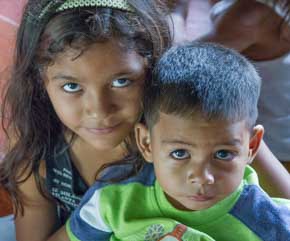 Pure Water for the World, Inc. started in 1994 by Rotarians from Brattleboro, VT and was established as 501(c)(3) in 1999. Our Rotary District 7870 has a long history of supporting PWW’s sustainable safe water programs, which empower vulnerable children, families and communities to thrive. This project continues that commitment. Will you help? You can help us on giving Tuesday. Please click here to make a donation. The kids will thank you! |
||||||
Wise Words of Nelson MandelaChildren are our greatest treasure. They are our future. Nelson Mandela |
||||||
Rotary Day at the United Nations pushes peace from concept to reality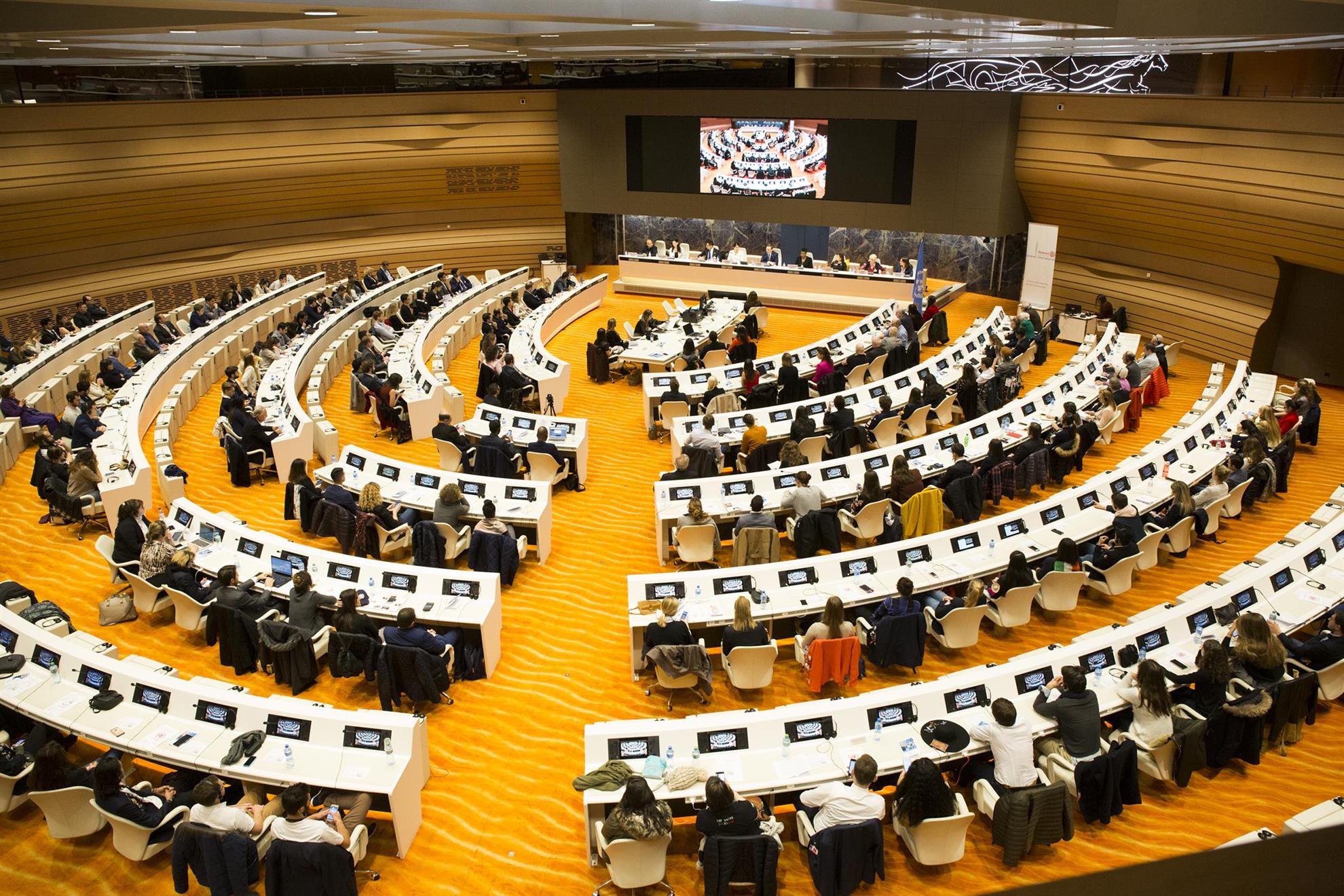 By Geoff Johnson Photo by Monika Lozinska On the 99th anniversary of the end of World War I, more than 1,200 people gathered in Geneva, Switzerland, for Rotary Day at the United Nations. Representing 87 countries, they convened on Saturday, 11 November, at the Palais des Nations, originally the home of the League of Nations, and dedicated themselves to the theme introduced by Rotary President Ian H. S. Riseley: “Peace: Making a Difference.” “The advancement of international understanding, goodwill, and peace have always been among Rotary’s primary goals,” said Riseley. “It is past time for all of us to recognize the potential of all of our Rotary service to build peace, and approach that service with peacebuilding in mind.” For the first time in its 13-year history, Rotary Day at the UN was held outside of New York. Rotary Day concluded Geneva Peace Week, during which John Hewko, general secretary of Rotary International, noted the “close and longstanding ties between Rotary and the UN in (their) mutual pursuit of peace and international understanding.” Rotary members “can transform a concept like peace to a reality through service,” said Ed Futa, dean of the Rotary Representatives to the United Nations. “Peace needs to be lived rather than preached.” During a Rotary Day highlight, Hewko introduced Rotary’s 2017 People of Action: Champions of Peace. He praised them as “an embodiment of the range and impact of our organization’s work,” and saluted them for providing “a roadmap for what more peaceful, resilient societies look like.” Rotary honored six individuals, who each made brief remarks. They were: 1. Alejandro Reyes Lozano, of the Rotary Club of Bogotá Capital, Cundinamarca, Colombia: As "part of the generation that grew up with uncertainty and fear,” as he put it, Reyes Lozano played a key role in negotiating an end to the 50-year conflict between the Colombian government and the Revolutionary Armed Forces of Colombia (FARC). Now he's using a Rotary Foundation global grant to lead peacebuilding efforts among women from six Latin American countries. 2. Jean Best, of the Rotary Club of Kirkcudbright, Dumfries and gallowayScotland: “Without peace within ourselves we will never advance global peace,” said Best, explaining The Peace Project, the program she created to help “the future leaders of peace” develop the skills they need to resolve the conflicts in their lives. 3. Safina Rahman, of the Rotary Club of Dhaka Mahanagar, Bangladesh: “Education is a powerful and transformative vehicle for peace,” said Rahman, a passionate advocate for workers’ rights and workplace safety who also promotes and provides educational and vocational opportunities for girls. 4. Ann Frisch, of the Rotary Club of White Bear Lake, Minnesota, USA: Frisch’s Civilian-Based Peace Process introduced the radical concept of “unarmed civilian protection” in war zones around the world. “Sustainable peace,” she said, “requires strong civilian engagement.” 5. Kiran Singh Sirah, Rotary Peace Fellow: As the president of the International Storytelling Center in Jonesborough, Tennessee, USA, Sirah uses stories to foster peace, nurture empathy, and build a sense of community. “Stories matter—and I believe they matter a lot,” he said. 6. Taylor Cass Talbot, Rotary Peace Fellow: Currently based in Portland, Oregon, USA, Cass Talbot partnered with SWaCH, a waste-picker cooperative in India to form Pushing for Peace, which promotes safety, sanitation, and dignity for waste pickers in Pune, India. Her advocacy displays an artistic flair: her Live Debris project creatively addresses issues of waste on a global scale. Alejandro Reyes Lozano, of the Rotary Club of Bogotá Capital, Cundinamarca, Colombia: As "part of the generation that grew up with uncertainty and fear,” as he put it, Reyes Lozano played a key role in negotiating an end to the 50-year conflict between the Colombian government and the Revolutionary Armed Forces of Colombia (FARC). Now he's using a Rotary Foundation global grant to lead peacebuilding efforts among women from six Latin American countries. Later, the six honorees participated in workshops devoted to sustainability and peace, as well as a workshop on education, science, and peace designed by and for young leaders in which Rotaract members from around the world played a prominent role. Dr. Michel Zaffran, the director of polio eradication at the World Health Organization, provided an update on efforts to eradicate polio. They noted the tremendous progress made by Rotary, WHO, the Bill & Melinda Gates Foundation, and other partners in eliminating 99 percent of all global incidences of polio. Returning the focus to peace, Zaffran said: “This same international relationship (that’s eradicating polio),” he said, “can be used to achieve world peace.” Zaffran was joined Her Excellency Mitsuko Shino, the deputy permanent representative of Japan to the international organizations in Geneva and co-chair of Global Polio Eradication Initiative's Polio Partners Group. In his keynote address, Riseley made a similar observation. “The work of polio eradication, has taught us . . . that when you have enough people working together, when you understand the problems and the processes, when you combine and leverage your resources, when you set a plan and set your targets — you can indeed move mountains,” he said. “And the need for action, and cooperation, is greater now than ever before.” |
||||||
In Mexico’s migrant shelters, a Rotary scholar puts his education into action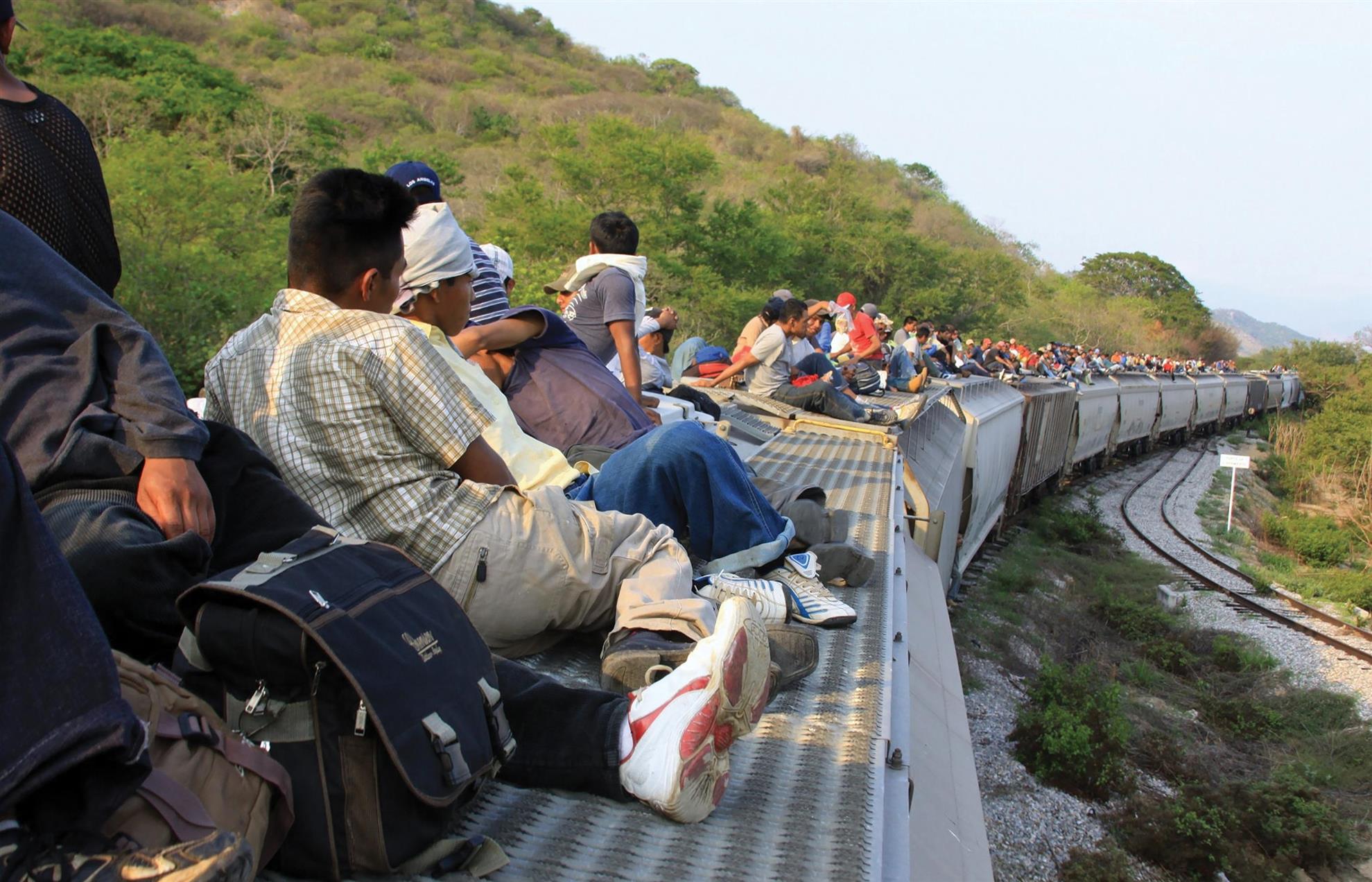 Story and photos by Levi Vonk There are two inescapable elements of southern Mexico. The first is dust – desert rock ground to a powder that finds its way into your every crevice: the backs of your knees, the folds of your eyelids. You cough it up as you drift to sleep and discover its brume settled across your bedsheets in the morning. The second element is violence. I found both on the gritty tracks of the Beast. Among those apprehended at the U.S.-Mexican border between October 2015 and January 2016 were 24,616 families – the vast majority of them from Central America. Over the past half-century, millions of Central Americans have crossed Mexico from south to north, fleeing poverty, decades-long civil wars, and, most recently, brutal gangs. To escape, migrants used to ride atop the cars of the train line known as the Beast. In July 2014, Mexican immigration officials announced a plan called the Southern Border Program; part of it entailed closing the Beast to migrants. Mexican President Enrique Peña Nieto said the plan would create new economic zones and safeguard migrants’ human rights by securing the country’s historically volatile southern border. Instead, the number of migrants beaten, kidnapped, and murdered has skyrocketed. Some have even been victims of the black-market trade in organs. In early 2015 I had just completed my studies as a Rotary global grant scholar, earning a master’s degree in the anthropology of development. I had studied how trade and development initiatives in Mexico could make people’s lives more perilous, not less. To learn about what was going wrong, I went to southern Mexico to use the skills I had gained through my global grant studies. Southern Mexico is poor and rural, made up of small pueblos and subsistence agriculture. In some ways, I felt at home. I grew up in rural Georgia, and I became interested in immigration after teaching English to farmworkers harvesting cabbage, berries, and Christmas trees in the foothills of North Carolina. Many of the men I worked with were from southern Mexico. Their descriptions of the violence brought by drug and human trafficking led to my interest in the region. Shelters house migrants including children traveling with family members as well as young people on their own. To understand how the Southern Border Program was affecting people’s lives, I stayed in migrant shelters, which are not unlike homeless shelters or temporary refugee camps. They are often without reliable running water or electricity, but they do provide migrants with a warm meal and a place to rest before they continue north. At first, shelter life was a shock to me. Sick or injured people arrived nearly each day. Severe dehydration was a big problem, and some people had literally walked the skin off the bottoms of their feet. I was there when a gang member entered the shelter to kidnap someone, but shelter directors stopped him. By the time I arrived, shelters along the tracks of the Beast had seen the number of migrants dwindle from 400 a night to fewer than 100. Shelter directors explained that the number of Central Americans fleeing into Mexico each year – around 400,000 – had not fallen, but because immigration agents were now apprehending anyone near the Beast, people were afraid to approach the shelters. These safe havens had been transformed into no-go zones. “This is a humanitarian crisis on the scale of Syria,” one director said to me, “but no one is talking about it.” In the shelters, I chopped firewood, cooked dinners, and scrubbed kitchen floors. I changed bandages and helped people file for asylum. And I lived and traveled with migrants headed north, recording their stories – about why they left, where they hoped to go, and what they had faced on their journeys. In 2015, shortly after finishing his studies as a Rotary Foundation global grant scholar, Levi Vonk went to Mexico to work with migrants. He has written about what he saw, and about the experiences of migrants themselves, for Rolling Stone, The Atlantic, and National Public Radio. For Rotary Foundation Month, we asked him to describe what he has done and learned. Vonk studied at the University of Sussex, England, sponsored by the Rotary clubs of Shoreham & Southwick, England, and Charleston Breakfast, S.C. His master’s degree in the anthropology of development and social transformation led to his becoming a 2014-15 Fulbright fellow to Mexico. He is now a doctoral candidate in medical anthropology at the University of California at Berkeley. Mildred, a single mother of three, was fleeing gang members who threatened to kill her family if she didn’t pay them a protection fee. Ivan, the oldest brother of six, singlehandedly resettled his entire family in Mexico – including his elderly mother and his two toddler nephews – after hit men tried to kill them in their home in Honduras. Milton had lived in New York City for years – and had sheltered ash-covered pedestrians in his apartment during the 11 September 2001 terror attacks – before being deported. The things I learned were terrifying. Instead of shoring up Mexico’s borders, the plan had splintered traditional migrant routes. Those routes had been dangerous, but they were also ordered and visible. Migrants knew approximately which areas of the train passage were plagued by gangs. They were prepared to pay protection fees – generally between $5 and $20. They traveled in groups for safety. And they were often close to aid – a shelter, a Red Cross clinic, even a police station. The Southern Border Program changed that. Hunted by immigration officers, migrants traveled deep into the jungle, walking for days. Gangs, which had previously extorted money from migrants, now followed them into these isolated areas to rob, kidnap, or simply kill them. The Southern Border Program has failed as a development initiative. Not only has cracking down on immigration made southern Mexico less safe, but the increased violence has deterred business investment that the region so desperately needs. During my time as a Rotary scholar, I learned to look at development differently. We often think of international aid in terms of poverty reduction, and we often see poverty reduction in terms of dollars spent and earned. The anthropology of development aims to analyze global aid in another way. We pay particular attention to how initiatives play out on the ground to determine just what local communities’ needs are and how those needs might be met sustainably and, eventually, autonomously. Axel Hernandez, whose parents brought him from Guatemala to the United States as an infant, has been deported twice; he now lives in Mexico. When I was living in migrant shelters, we often received huge, unsolicited shipments of clothing from well-intentioned organizations. Had they asked us, we would have told them that their efforts, and money, were wasted. In fact, directors had to pay for hundreds of pounds of clothing to be taken to the dump when space ran out at the shelter. Among the things shelters actually needed, I learned, were clean water, better plumbing, and medical care. But shelter directors did not just want these items shipped over in bulk; they needed infrastructure – water purification, functioning toilets, and access to a hospital, along with the skills and knowledge to maintain these systems themselves. Of course, as one shelter director told me, “Our ultimate goal is to not be needed at all – to solve this migration crisis and violence and go home.” Rotary’s six areas of focus mesh neatly with these goals. Such measures require money, but more than that, they require in-tense cultural collaboration to make them sustainable. Who better than Rotary, with its worldwide network of business and community leaders, to understand the challenges and respond effectively? One way Rotary is responding is by funding graduate-level studies in one of the six areas of focus. After his global grant studies in anthropology of development at the University of Sussex, my friend Justin Hendrix spent several years working in a Romanian orphanage, helping to provide the children there with the best education possible. Another friend, Emily Williams, received a global grant to get her master’s degree at the Bartolome de las Casas Institute of Human Rights at Madrid’s Universidad Carlos III and now works with unaccompanied Central American minors and victims of trafficking in the United States. My partner, Atlee Webber, received a global grant to study migration and development at SOAS University of London (School of Oriental and African Studies); she now works as a program officer with the U.S. Committee for Refugees and Immigrants. Rotarians understand that to have the most impact, we need to learn from other cultures. As global grant scholars, that’s what we aim to do – during our studies, and afterward. |
||||||
Rotary Zones' 24 & 32 Donald MacRae Award WinnersDonald MacRae Awardee-Zone 24 - Rotary Districts from Canada and Alaska and Zone 32 - Rotary Districts from the US North East Coast Each year, these two Zones honor dedicated Rotarians or Rotary-based organizations for their international humanitarian work. This year’s Donald MacRae award winners are long-time Rotarians who have each spent a lifetime of philanthropy and dedication to make lives better in Ethiopia and Haiti. Leo Seguin Zone 24  A past president of the Westlock Rotary Club in Alberta, he has spent 30 years improving lives in Ethiopia. Leo’s involvement dates to the mid-80s famine that struck that country. Through Rainbow for the Future, an Alberta-based organization Leo started in 2004 to focus on development work, he has been instrumental in raising $10 million that has helped one million people in Ethiopia by focusing on improved food security, clean water, schools and medical equipment. The organization also stresses education and healthcare, especially for girls and women. One of the first projects undertaken by the club was to fund a hostel for girls and young women. Because Ethiopia’s Karayu people follow the rains in search of fodder for their animals, the girls are not able to go to school, but instead, they marry at a very early age. Rainbow for the Future and Westlock Rotary built the hostel so the girls can pursue an education and delay marriage. Leo shares the story of his work in his book, Where a Bird Meets a Fish in the Sky. Donald MacRae Awardee-Zone 32
 Dr. Jerry Lowney - Zone 32 A member of the Norwich, Connecticut club in D-7980, he has devoted time, talent, and treasure to serve the poorest of the poor in Haiti over the past 25 years. What started in 1982 as a short-term mission trip to provide dental care has become a lifelong passion to improve health of Haiti’s poorest. In 1985, Jerry founded the Haitian Health Foundation (HHF) which offers basic healthcare services to the 200,000 people living in the Jeremie region of Haiti. HHF has developed a feeding program that offers 24-hour care for children suffering from chronic malnutrition. It has an inpatient maternal center for village women in high-risk pregnancies, and also provides routine maternal and pediatric care, and has helped to found a school of nursing. For more than 25 years, Jerry has traveled to Haiti every three months to operate the Haitian Health Foundation, provide dental care, and more. His work has received wide-spread praise, and in 2013, the White House named him a Rotary Champion of Change. |
||||||
Rotary partners with Habitat for HumanityEVANSTON, IL (October 2, 2017) — More than 1 billion people around the world live in inadequate housing according to the United Nations Centre for Human Settlements. Through a partnership between Rotary and Habitat for Humanity, more will have access to safe and affordable housing across the globe. The partnership will facilitate collaboration between local Rotary clubs and local Habitat for Humanity organizations, enabling Habitat to extend their volunteer pool by tapping into Rotary’s 1.2 million members in 200 countries and regions. “Habitat’s aim to bring people together to build homes, communities and hope aligns perfectly with Rotary’s commitment to make positive, lasting change in communities around the world,” said Rotary General Secretary John Hewko. “With Habitat’s expertise and the power of Rotary’s volunteer network, we will help build the foundation for stronger communities.” “The values of our organizations are so closely aligned, and the desire to help others runs deep for both groups. That makes us such a perfect match,” said Habitat for Humanity International CEO Jonathan T.M. Reckford. “So many Rotarians have worked alongside Habitat and the knowledge, experiences and connections that are so strong in local Rotary clubs will make them valuable Habitat partners in many communities worldwide.” Rotary members develop and implement sustainable projects that fight disease, promote peace, provide clean water, support education, save mothers and children and grow local economies. These projects are supported by more than $200 million awarded through Rotary’s grants programs. Habitat for Humanity joins a list of Rotary service partners including, the International Agency for the Prevention of Blindness, Peace Corps, Dollywood Foundation, the Global FoodBanking Network and Youth Service America (YSA). About Rotary Rotary brings together a global network of volunteer leaders dedicated to tackling the world’s most pressing humanitarian challenges. Rotary connects 1.2 million members of more than 35,000 Rotary clubs in over 200 countries and geographical areas. Their work improves lives at both the local and international levels, from helping families in need in their own communities to working toward a polio-free world. About Habitat for Humanity Driven by the vision that everyone needs a decent place to live, Habitat for Humanity began in 1976 as a grassroots effort on a community farm in southern Georgia. The Christian housing organization has since grown to become a leading global nonprofit working in more than 1,300 communities throughout the U.S. and in more than 70 countries. Families and individuals in need of a hand up partner with Habitat for Humanity to build or improve a place they can call home. Habitat homeowners help build their own homes alongside volunteers and pay an affordable mortgage. Through financial support, volunteering or adding a voice to support affordable housing, everyone can help families achieve the strength, stability and self-reliance they need to build better lives for themselves. Through shelter, we empower. To learn more, visit habitat.org. |
||||||
Overcoming obstacles to polio eradication in Pakistan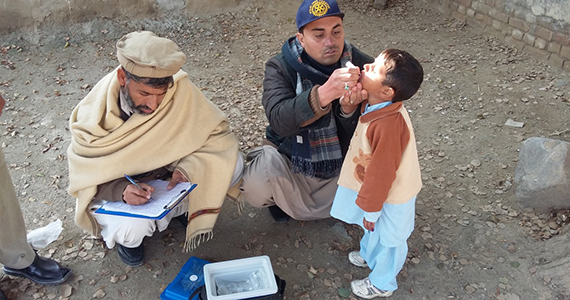 A Rotary volunteer administers polio drops to a child missed by earlier rounds in Pakistan. “Coming together is a beginning. Keeping together is progress. Working together is success.” Henry Ford By Alina A. Visram, manager, Pakistan National PolioPlus Committee When I first joined Pakistan’s PolioPlus Committee (PNPPC) as a manager close to eight years ago, polio eradication seemed within our reach. I used the opportunity to study poliomyelitis beyond just perceiving it as “a crippling disease.” I researched the causes and consequences; the types of polio virus; modes of prevention; and how elusive the virus can be given the right conditions. Then in 2012, the dynamics of my country changed. We were faced with hostile militants, who refused to allow polio teams to vaccinate children in their territory. Our front line workers were regularly targeted for their work during campaigns. Alina Visram bonds with the community in Pakistan. Children were deprived of polio vaccine in several regions occupied by the militants making it inaccessible and hard to reach. Common myths and misconceptions were rife in most backward communities. Our biggest hurdle was “how do we change their mindset,” while they eyed us with suspicion and disdain. We expanded our motley crew to a larger team. Together we worked closely with our polio partners to devise strategies and innovative approaches to overcome the odds; through placing Resource Centers in high risk districts; targeting nomads and Internally Displaced Persons (IDPs) through Permanent Transit Posts (PTPs); creating awareness in illiterate communities through speaking books; conducting workshops with enlightened religious clerics; and encouraging Rotary clubs to hold health camps in impoverished districts. Meanwhile, polio cases spiraled across the country and in 2014 we reported over 300 cases of the wild poliovirus. In the years that followed, we worked with unwavering diligence and commitment in collaboration with the government of Pakistan to restrict polio transmission. Today, we have only five cases of polio stemming from the wild virus and only 11 globally, as of the end of September. World Polio Day 24 October was established by Rotary International to commemorate the birth of Jonas Salk, who led the first team to develop a vaccine against poliomyelitis. It marks the long and arduous journey all endemic countries have struggled against, to eradicate polio. The last mile is the hardest, but we are so close to the finish line. |
||||||
One Recent Day in Puerto RicoSometimes we have no idea what would happen if we were devastated by a hurricane. Here from the NY times is a powerful reminder of what it is like there. http://https://www.nytimes.com/interactive/2017/09/30/us/24-hours-in-puerto-rico-after-hurricane-maria.html?emc=edit_nn_20171001&nl=morning-briefing&nlid=64926981&te=1 If you would like to help, please follow this link: https://www.shelterboxusa.org/donate/
|
||||||
How to contribute to the Gulf Coast Disaster Relief Donor Advised FundBy checkPayable to: The Rotary Foundation DAF By credit card Online at: https://www.your-fundaccount.com/rotary/HowToContribute.asp Account name: Gulf Coast Disaster Relief Fund By wire transfer To the account of: Boston Private Bank & Trust Company For Further Credit: TRF DAF You must fax a copy of the wire authorization to +1-781-658-2497 to complete the transfer. |
||||||
Cap City helps Ormoc Bay Rotary (Philippines) after EarthquakeIn July Ormoc Bay on the western side of Lete Island in the Philippines had a 6.5 magnitude earthquake. Many residents lived in poorly built cinder block houses which crumbled and left them homeless. Ormoc Bay Rotarians hosted our District 7870 Group Study Exchange Team in 2009. Some members of that team have kept in touch through Facebook. 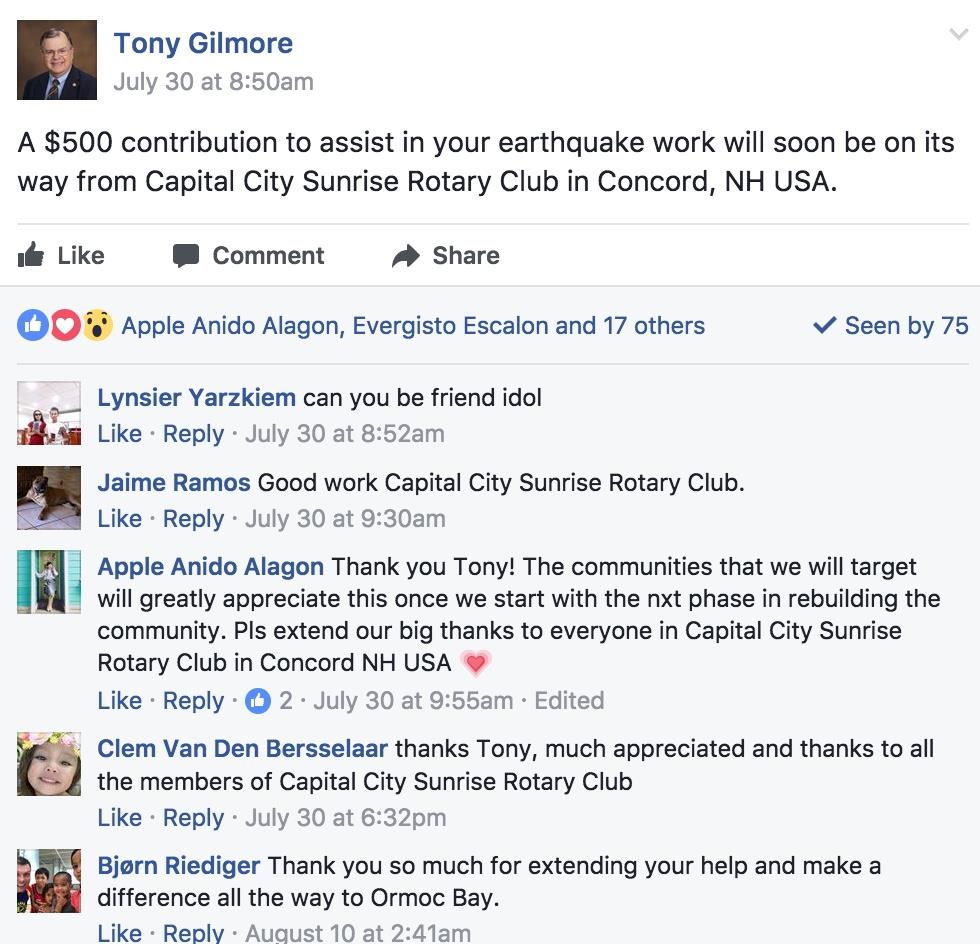 |
||||||
We are all same, same…but different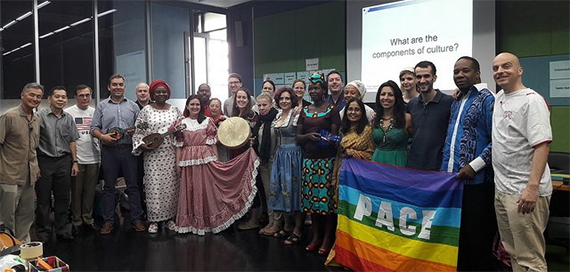 Rotary Peace Fellows at Chulalongkorn University in Bangkok, Thailand. By Dessa Bergen-Cico, a Rotary Peace Fellow at Chulalongkorn University, Bangkok, Thailand One thing I have learned through my experiences traveling and working around the world is that people are more alike than they are different. Moreover we embody our expressions of joy in similar ways. Anyone who has ever visited Thailand has likely heard the phrase same, same when trying to make a purchase from a vendor or negotiate the menu in a restaurant. Same, same is an English phrase used by Thai people, it means that two or more items are similar, or cost the same amount. A common phrase in Thailand. A similar phrase is same, same…but different. This can mean many things from same price but different items to these items are not the same at all. This may be confusing but I find these phrases endearing and I like to think of them as an allegory for humanity. In other words, we are all pretty much the same and we also have unique differences. We are same, same…but different. Rotary International is a perfect example of how similar people are around the world; and Rotary reflects the innate human desire to help one another. The Rotary mission of placing Service Above Self has drawn together more than 1.2 million members in more than 35,000 clubs worldwide. Rotary is evidence that we are really same, same. There are certainly differences between us. For example, there are many cultures and each culture has subcultures. Moreover within those subcultures there are differences of opinion and many different personalities. However, if one were to make a list of the differences between people and cultures the list would be finite. That is to say there is a limit to the number of things we can identify as being different between people. On the other hand there is a seemingly infinite list of things we can find that are similar between people. We are similar on a cellular level; in fact there is less than .01 percent difference in the human genome between people. We all have similar needs. At our core, each human being needs a sense of security, belonging, and wants to be respected. Virtually everything else stems from efforts to satisfy these basic needs. We all laugh the same. People laugh the same across all cultures and enjoy music and sports in similar ways. Each person wants to feel joy and embodies that feeling in similar ways (like the young girl in the picture with the camel at right). Music brings people together from many cultures. Our instructor Jan Sunoo sparked an interest in playing the ukulele among a group of Peace Scholars. We recently had the joyful opportunity in Krabi to connect with people from around the world listening to Thai musicians singing both Thai Reggae music and peace protest songs in English from the greats like Bob Dylan and John Lennon. Although we could not verbally communicate when not singing we established a special connection through music and dancing. Sports diplomacy, or cultural connection through sport, is another wonderful way for people to connect across and within cultures. This approach is being used by several Class 23 Peace Scholars and is the basis of the peace work of our visiting instructors Tom Woodhouse and Sombat Topanya. Every morning and evening you can see throngs of people from all over the world in Bangkok’s Lumpini Park enjoying exercise and sports together. The scene is the same in New York City where people gather in free open public spaces to do yoga together, cycle and run. Everyone enjoying the opportunity to engage their mind and body. Really, we are all same, same! |
||||||
Cared for with love.jpg) Head of Ritaliza Secondary School, Sister Mary Masway, “The sisters, with Rotary’s support, further prepare the children for formal schooling and encourage residents to realise their potential, despite their circumstances.” Rotary oversaw the transference of Upendo’s management to the Missionary Sisters of the Precious Blood in 2003, who specialise in the care of the sick. Previously, the sisters would bicycle up the long and dusty road to Upendo each week to tend to the foot and leg sores of those with leprosy. Rotary’s offer to the sisters to take up residence at Upendo was happily accepted. In the years since, they have greatly improved living conditions and provision of health care services and hygiene education. The sisters, with Rotary’s support, further prepare the children for formal schooling and encourage residents to realise their potential, despite their circumstances. Thankfully, leprosy rates in the area have declined in the decades since Upendo’s establishment, with the facility instrumental in reducing incidence and spread. Today, Upendo has branched out to care for the poorest of the poor, as well as leprosy sufferers. Monica is currently attending St Ritaliza Secondary School, a boarding school close to the Kenyan border.Stuart recently returned to Tanzania and was delighted to meet Monica, accompanied by Head Sister Agatha of Upendo. “New Zealand Rotarians can be proud of their contribution to helping children like Monica on their way to anow bright future,” Stuart said. With the support of a group of New Zealand Rotarians, leprosy victims and their families in Tanzania are receiving the care they deserve. With the support of a group of New Zealand Rotarians, leprosy victims
and their families in Tanzania are receiving the care they deserve. |
||||||
The Rotary network at work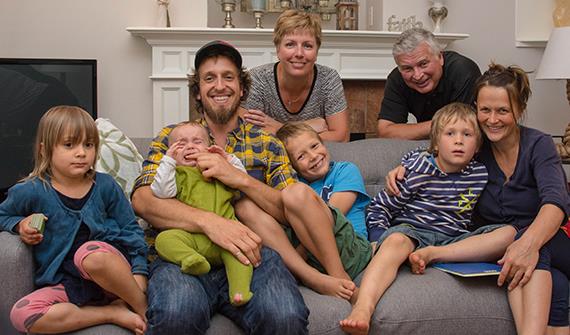 The Kuehn family, on sofa, during their stay in Vancouver, stranded by wildfires. Ray and Joanne Moschuk, rear, hosted the family. By Past District Governor Chris Offer, member of the Rotary Club of Ladner, British Columbia, Canada Wildfires in the forests of British Columbia are common but the fire season in 2017 has been one of the most destructive in many years. At its peak, 40,000 people were evacuated from farms, villages, and cities. More than 1,000 fires were burning 100,000 hectares. Numerous highways were closed, isolating large parts of the province. Meanwhile, in the hope of moving permanently to Canada, and after more than a year filling out forms for a two-year, Canadian work permit, Barbara and Gregor Kuehn and their four young children finally arrived in Vancouver from Switzerland. They were en route to a ranch in Redstone, west of Williams Lake, British Columbia, an isolated part of the province’s interior, where they expected to work for the next two years. With all roads to their destination blocked by wildfires, they didn’t make it and they had no place to stay. Rotary stepped in to help. When their future employer found out they were stranded in Vancouver, she found the family a motel room and also put out an appeal on social media, seeking a temporary place for the family to stay. As luck would have it, her good friend, Kristin Brown, is on Facebook, on staff at Rotary International Headquarters in Evanston, Illinois, USA, and is a member of the Rotary Club of Evanston Lighthouse. Kristin shared the story with a Rotary contact from British Columbia who gave her my name and Kristin contacted me. I told Kristin to have her friend call me and after I spoke with her friend on the ranch, I sent an appeal to the 50 members of my Rotary club. In response to my billeting request, Ray and Joanne Moschuk of Ladner Rotary opened their home to the family. After settling the Kuehns in their temporary lodging, we invited them to a Rotary event: an outdoor fundraiser with activities for the whole family. While there, they met Delta Member of Parliament Hon. Carla Qualtrough who, in addition to her Cabinet post, is the chair of the Prime Minister’s committee coordinating the federal government response to the wildfires in British Columbia. Qualtrough, who recently toured the wildfire-stricken areas, gave the family an update on the fire situation. The Kuehns still can’t get all the way to Williams Lake, but they now have a truck and a trailer and hope to leave Vancouver by the end of the week. They will drive part way and camp. Rotary has been described as the original social network. This is the network in action, Rotary: Making a Difference. Update: The Kuehn family left Vancouver 27 July, the highway having finally opened, and with their truck and RV trailer, have been camping their way to their ranch in Redstone. |
||||||
Interactor from Brazil combats a deadly online game
|
||||||
Solar lamp project delivers light in Belize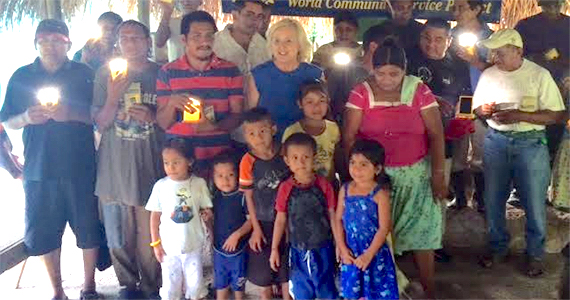 Residents of a remote village in the Toledo district of Belize use their solar lamps. By Audrey Cochran, a member of the Rotary Club of Northwest Austin, Texas, USA Tonight Amelia Ramirez sits with her younger siblings at their kitchen table. A stack of books sit on the table and Amelia smiles as she reads. She no longer fears being burned by a kerosene lamp. The fumes that had irritated her eyes and made her cough are gone. She no longer begs her mother to stop before her school work is done because of the heat, the bugs, and the fumes caused by the kerosene lamp she was previously forced to use. Amelia’s family received a solar lamp from Rotary District 5870. Nearly one quarter of the world population lives without access to electricity or safe light. As a result millions suffer from burn injuries each year, most of which are children. These families see by kerosene lamps, candles and open flames, all of which are dangerous and toxic. According to the World Health Organization respiratory illness is the number one cause of death in children under 5 years of age that live in areas without access to electricity. Rotarians are taking action to change this. Working with the Grid Earth Project, a Texas based 501(c)3 Charity, founded by Rotarians from the Northwest Austin Rotary Club, safe solar light is being provided to families forced to live off the electrical grid. It’s a worldwide problem requiring a worldwide solution. The Northwest Austin Rotary Club has just completed District 5870’s 2016-17 World Community Service Project. Over six hundred families in remote villages of the Toledo District of Belize received household solar lamps. The impact is immediate and the change results in 100 years of progress in a single day. The solar lamps were hand delivered to each of the eleven villages, whether by four-wheel drive trucks, by boats, hiking or pack horses. Every lamp was placed directly into the hands of these families in need. Seventeen clubs from District 5870 participated in this year’s project. The club is now kicking off our 2017-18 World Community Service Project. The goal this year is to provide safe solar light to 1,000 families in the Toledo District that are still living in darkness. For as little as $100 your club can become a partner in this district wide project. Together we can change the world one light at a time. |
||||||
Rotary President-elect Sam F. Owori dies
 Sam F. Owori, Rotary International president-elect, died unexpectedly Thursday as a result of post-operative complications from a planned surgery. Sam was a member of the Rotary Club Kampala, Uganda, for 38 years. “Rotary has become a way of life for me – with the intrinsic value and core belief in mutual responsibility and concern for one another as a cornerstone,” Sam said when he was nominated last year. “I feel immense satisfaction knowing that through Rotary, I’ve helped someone live better.” Sam's term as Rotary’s 108th president would have begun on 1 July 2018. “Please remember Sam as the outstanding, hard-working Rotarian he was,” said Rotary International President Ian Riseley. “In this difficult time, I ask you to keep his wife, Norah, the Owori family and Sam’s millions of friends around the world in your thoughts.” Under Sam’s leadership, the number of clubs in Uganda swelled from nine to 89 over the course of 29 years. Sam saw in Rotary members "an incredible passion to make a difference," and wanted to "harness that enthusiasm and pride so that every project becomes the engine of peace and prosperity." Sam was the chief executive officer of the Institute of Corporate Governance of Uganda (ICGU), whose mission is to promote excellence in corporate governance principles and practice in the region by 2020. Previously, he was executive director of the African Development Bank (AfDB) and managing director of Uganda Commercial Bank Ltd. (UCB) and director of Uganda Development Bank. He has also served as corporation secretary of the Central Bank of Uganda (BOU). He had served as member and chairman of several boards including FAULU (U) Ltd (now Opportunity Bank), The Uganda Heart Institute, the Centre for African Family Studies (CAFS), Mulago Hospital Complex, Mukono Theological College, and the Kampala City Council. Sam also was the currently vice chair of the Hospice Africa Uganda, and member of the board and chair of the Audit Committee of PACE (Programme for Accessible Health, Communication and Education) in Uganda. “Sam was a special person in so many ways, and his unexpected death is a huge loss to Rotary, his community and the world,” Riseley said. “In addition, we are establishing details on plans to celebrate his life as they become available.” |
||||||
Skydivers raise thousands for polio eradication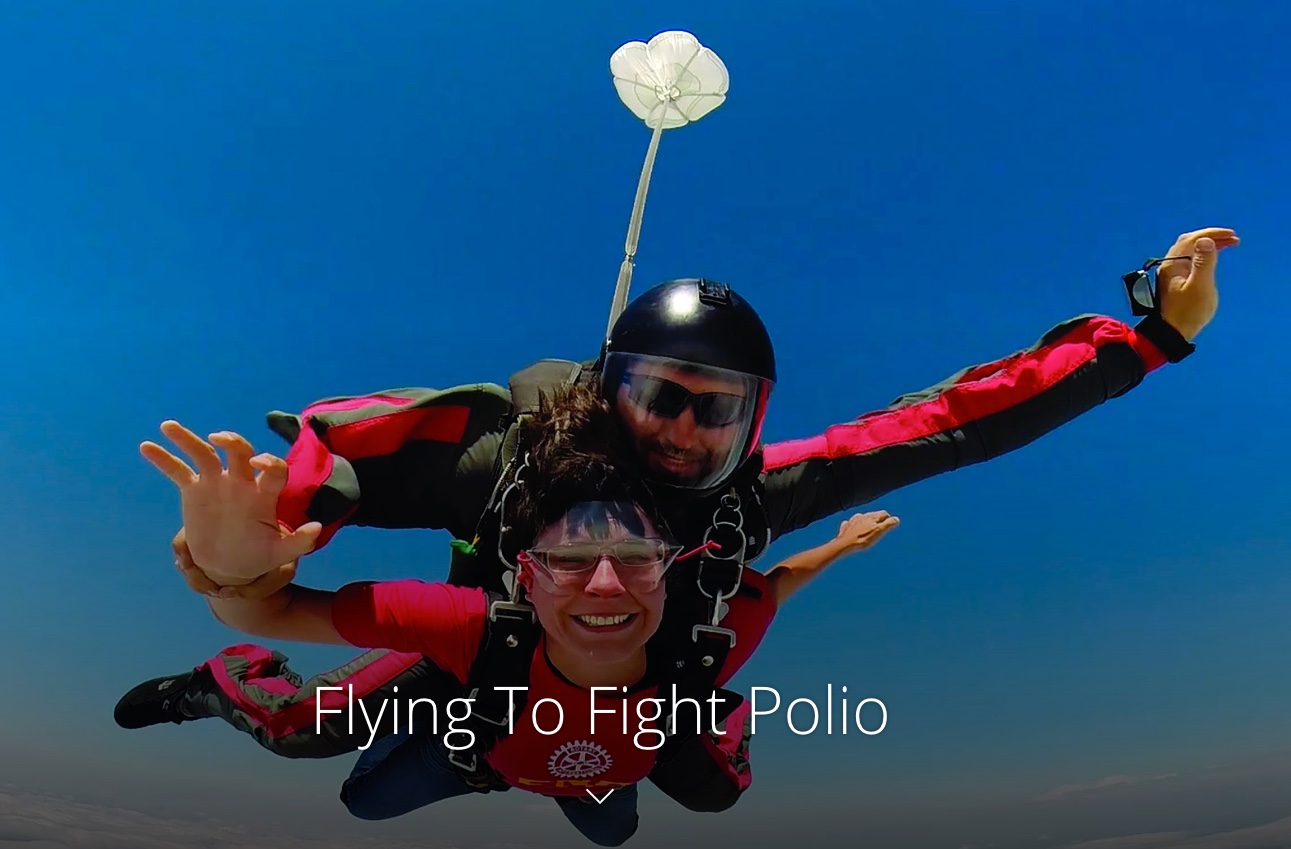 By Arnold R. Grahl The first time Noel Jackson jumped out of a plane, it had nothing to do with raising money for polio eradication. The Michigan dentist had received a gift certificate from members of his staff to go skydiving because they knew he was into adventure. “It is definitely a defining moment,” says Jackson, a member of the Rotary Club of Trenton, Mich., of that first jump at 14,000 feet, done in tandem strapped to a professional skydiver. “The rush of the free fall is beyond anything I have ever experienced before. Just the speed and acceleration is unbelievable. You don’t even have time to figure out if you are enjoying it or not; it’s just a sensation that happens.” Jackson did enjoy the sensation, so much so that he agreed to do another jump, with Shiva Koushik, a Rotarian friend in nearby Windsor, Ont. The two men were waiting for this second jump when their wives came up with the idea of enlisting other jumpers and raising pledges for polio eradication. In August 2014, a jump in the skies of northeastern Michigan raised $15,000 for Rotary’s polio eradication campaign. Matched 2-to-1 by the Bill & Melinda Gates Foundation, the effort contributed $45,000 to the cause. Since 1985, when Rotary committed to polio eradication, the organization has contributed more than $1.5 billion and countless volunteer hours to immunize children against the disease. In that time, the number of polio cases has dropped 99.9 percent, and only three countries remain where the virus has never been stopped: Afghanistan, Nigeria, and Pakistan. While World Polio Day, 24 October, serves as an important opportunity to remind the world of the need to finish the job, raising money and awareness is a year-round effort for many. Late-night recruiting Julie Caron, a member of the Rotary Club of Toronto Skyline, heard about plans for the Michigan fundraising skydive after being invited to speak at a leadership training event in Koushik’s district. Julie Caron and 10 members from Toronto Skyline and surrounding Rotary clubs plunged earthward in their own tandem skydive, raising several thousand dollars for polio eradication. “We were in one of those friendship rooms after the conference … when Koushik began talking about the skydive,” Caron says. “We all got really excited and signed up. “I don’t like to back out on things I say I’m going to do, even if it’s the middle of the night,” Caron says. So she began raising money and drove down to Michigan to do the jump. She also took the idea back to her own club, whose members are mostly young professionals looking for fun things to do. This past July, 10 members from Toronto Skyline and surrounding Rotary clubs plunged earthward in their own tandem skydive, raising several thousand dollars for polio eradication. Caron hopes to make it a yearly event. “Polio eradication is definitely something I am passionate about,” she says. “It’s not a hard fundraiser to put together at all. You just call around and pick a place, and then you begin asking people if they would rather jump or pay up in pledges.” Jackson, who’d jumped out of the plane in his “Captain Rotary” outfit, says he personally raised $4,700 for the Michigan skydive using Caron’s approach. A recent jump in Michigan raised $45,000 to help end polio. I would go up to people and tell them we were skydiving for polio and give them two options,” says Jackson. “I would tell them I was paying $180 out of my own pocket to jump, so if you are not going to jump, you have to pay $180. Most people would say, ‘OK, you got it.’ ” Floating like a bird Koushik and his wife are active in other ways to rid the world of polio. They have been on several trips with their Rotary district to immunize children in Afghanistan, Pakistan, and India, and particularly enjoy showing off their native country, India, from which they emigrated to Canada about 30 years ago. They are planning to take part in another National Immunization Day in Pakistan next year. Still, the skydive will hold a special place in Koushik’s heart. “This is one of the highlights of my polio eradication efforts,” he says. “It’s such a feeling of freedom. The first time out of the plane, you have very little idea what is happening; you are free-falling so fast. But once that parachute opens, you look around and say, ‘Wow!’ It’s such a great feeling to be able to float like a bird.” |
||||||
Changing of the Gavel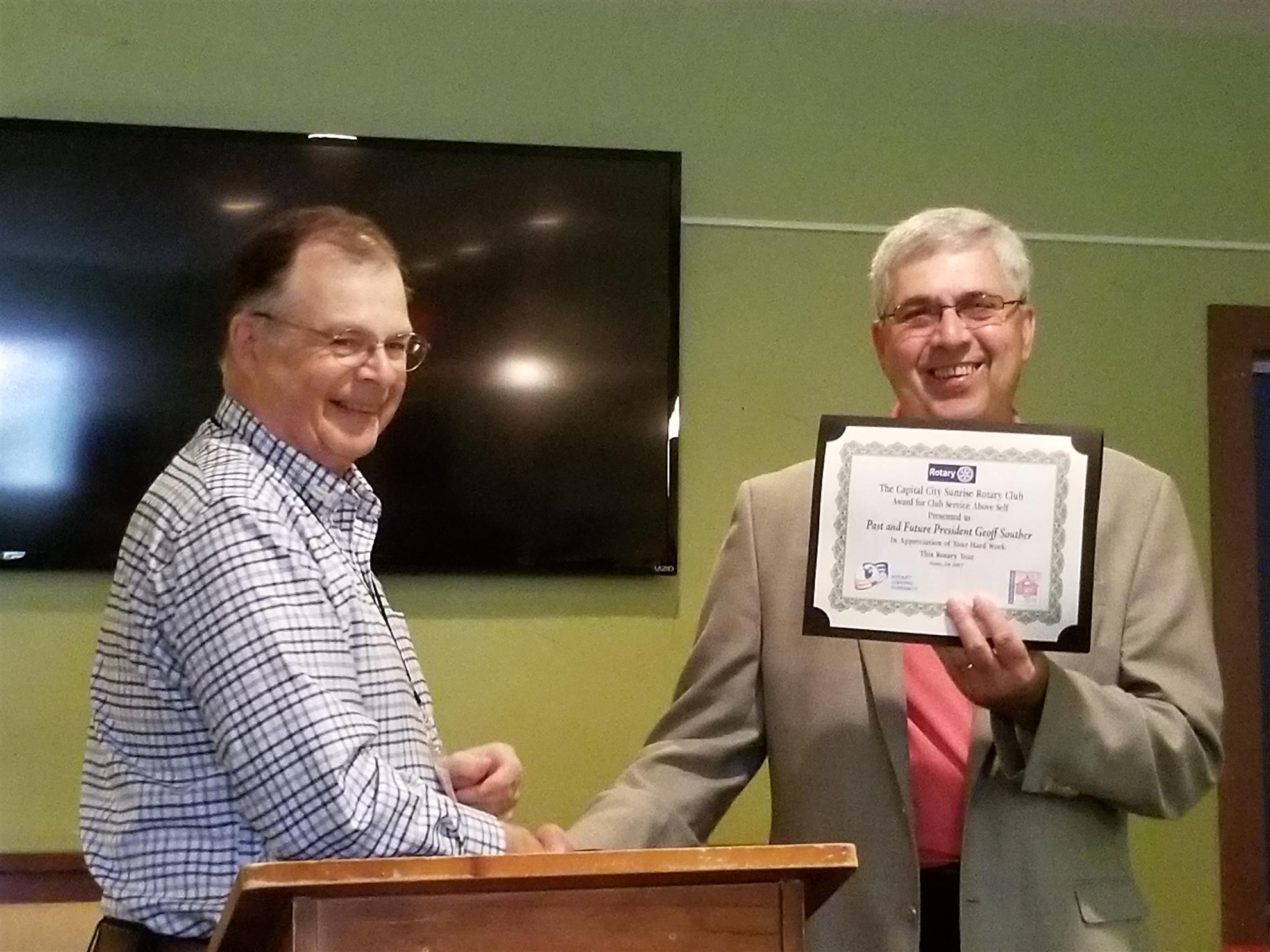 This year President Geoff gets to change the gavel from his right hand to his left!
|
||||||
Muslim and Christian women work together to prevent dengue fever in Indonesia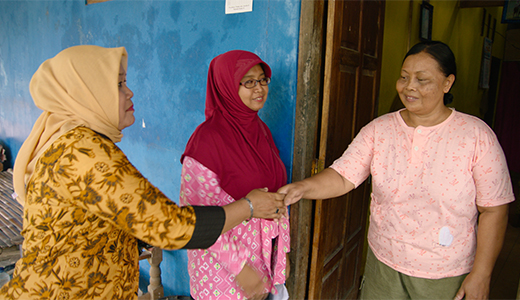 Photo by Tim Deagle In a world where intolerance and violence fueled by religious differences are seemingly increasing, one Rotary club in Indonesia is showing how diversity can help prevent a pandemic threat. When the Rotary Club of Solo Kartini in Surakarta, Indonesia, formed 25 years ago, its members drew criticism from the predominantly Muslim community. The club’s members were mostly Christians, atypical for a country where more than 80 percent of the population is Muslim. Religious leaders were skeptical of Rotary’s secular mission and wary of intrusion. Undeterred, the club started recruiting more members. Today, the 72-member, all-female club includes both Muslims and Christians. And the effort they have put into breaking down barriers and fostering respect and understanding among club members has reinforced the club’s capacity to address dengue fever, one of the biggest public health threats in tropical cities like Surakarta. Dengue fever is a virus transmitted by mosquitos that flourish in tropical urban environments like Surakarta. There is no effective treatment; once infected, victims experience sudden high fevers, severe headaches, joint and muscle pain, fatigue, nausea, and vomiting. Launching an effective public health initiative to prevent the disease requires volunteers with deep knowledge and connections to the community who can craft specific and sustainable solutions. And that means being able to build relationships across religious, cultural and socio-economic lines. The Rotary Club of Solo Kartini in Surakarta, Indonesia, installed white tiles on more than 3,500 tubs. The tiles make it easier to see and clean mosquito larvae, which helps prevent dengue fever. Rotary member Mariam Kartonagoro says her club’s diverse makeup – particularly its abundance of mothers and professionals of varied ages and backgrounds – enhances their effort to fight dengue fever. “The fact that we are different does not create trouble, but it strengthens our relationship,” she says. In collaboration with the Rotary Club of Westport, Connecticut, USA, and the local ministry of health in Surakarta, the Muslim and Christian club members have been able to help reduce the risk for dengue fever by interrupting the breeding cycles of carrier mosquitos. The first step was to implement a startlingly simple, low-cost strategy: line the dark cement bathtubs, common in Indonesian households, with white tiles so mosquito larvae is easier to see – and remove. In five years, the club project modified more than 3,500 tubs in two neighborhoods. But tiles weren’t enough. The club needed to change habits and behaviors that contribute to infections, which required building trust to educate the community. “Our main focus is to educate and invite people to be aware of health issues, hygiene, and the importance of a clean environment,” says Rotarian Indrijani Sutapa, one of the dengue project leads. “This takes a very long time to teach.” Community social workers teach homeowners how to empty and scrub infested tubs twice a week, close the lid on water containers, and bury waste that can collect water. The fact that we are different does not create trouble, but it strengthens our relationship. Siti Wahyuningsih, Surakarta’s director of public health, hopes to extend Rotary’s white-tile project to other parts of the city. “Health is a shared responsibility between government, society, and the private sector,” she says. “The government can’t do it alone. We as a community must embrace all of our strengths, and Rotary is a big one.” The club hopes to see more people crossing cultural lines to help each other. “Rotary has a very diverse membership, and we can be examples to others in the way we work. After all, when we give help, we do not ask about the religion of the person whose tub we replace. We think in a much more global way,” says Rotarian Febri Dipokusumo. “And we try to foster relationships with people who may have different beliefs or thoughts. We can become friends here in Rotary. Maybe this way, we can inspire Indonesia and the world.” |
||||||
The most important thing in the world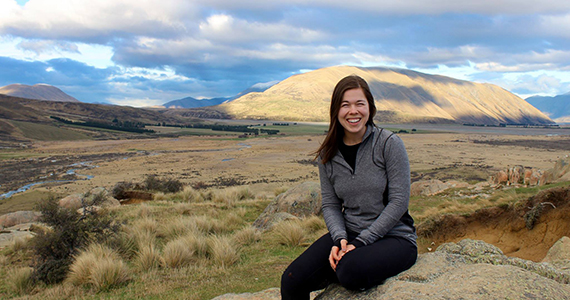 Jessica Compton enjoys the view on Mount Sunday, located in the middle of the South Island in Kakatere Conservation Park. By Jessica Compton, Rotary Global Grant Scholar to New Zealand As a child, I dreamed of teaching. But it took until my junior year of college to return to that dream. My undergraduate coursework had prepared me for the content, if not the pedagogical strategies, to effectively engage and teach adolescents English – reading, listening and viewing; writing, speaking, and presenting. I figured I would pick up the rest of what I needed in graduate school in order to be able to teach. But I had no idea it would be in New Zealand. Through the benevolence of a global grant scholarship sponsored by District 7570, I earned a Master of Teaching and Learning at the University of Canterbury in 2016. Compton and Sha Litten (right). Says Compton “she was my mentor teacher on my first teaching placement — a delight to work with and learn from.” The experience of living abroad in New Zealand was both memorable and life-changing. Along with all the tramps (Kiwi lingo for hiking) in such a stunningly beautiful country, I learned to be a culturally responsive teacher. My courses and teaching placements intentionally focused on how to improve the learning experience and outcomes of students from low socio-economic backgrounds, predominately in Māori schools. Last year, I arrived quite ignorant, but ended up learning so much (“heaps,” as they say in NZ) about Māori culture, the fundamental importance of relationships in the classroom, and how to teach in a discourse of inclusion that benefits all learners. I think my living in New Zealand achieved “the advancement of international understanding, goodwill, and peace,” which is Rotary’s fourth guiding principle. I understand a different culture; indeed, one that didn’t seem all that different on first landing. Back in the United States, I have effectively become an ambassador for Māori tikanga. In August, I will begin my first year teaching English in an impoverished community, with a largely marginalized student body. The specific circumstances of my future students may be different from those I taught in New Zealand, but after my year there, I am so much more aware of people’s cultures and how to embrace and build on place and space in the classroom. In teaching – and in all of life – seeking service above self, I have found one whakataukī, or Maori proverb, to ring particularly true: He aha te mea nui o te ao? (What is the most important thing in the world?) He tangata, he tangata, he tangata. (It is the people, it is the people, it is the people.) As I venture into this coming school year, may people and the building of relationships be the core of my teaching, service, and love. My deepest thanks will forever extend to both the Roanoke-area and Riccarton Rotarians for your partnership and support in aiding my career as an educator. |
||||||
Rotary International Conference - AtlantaRoughly 40,000 Rotarians attended the International Conference in Atlanta  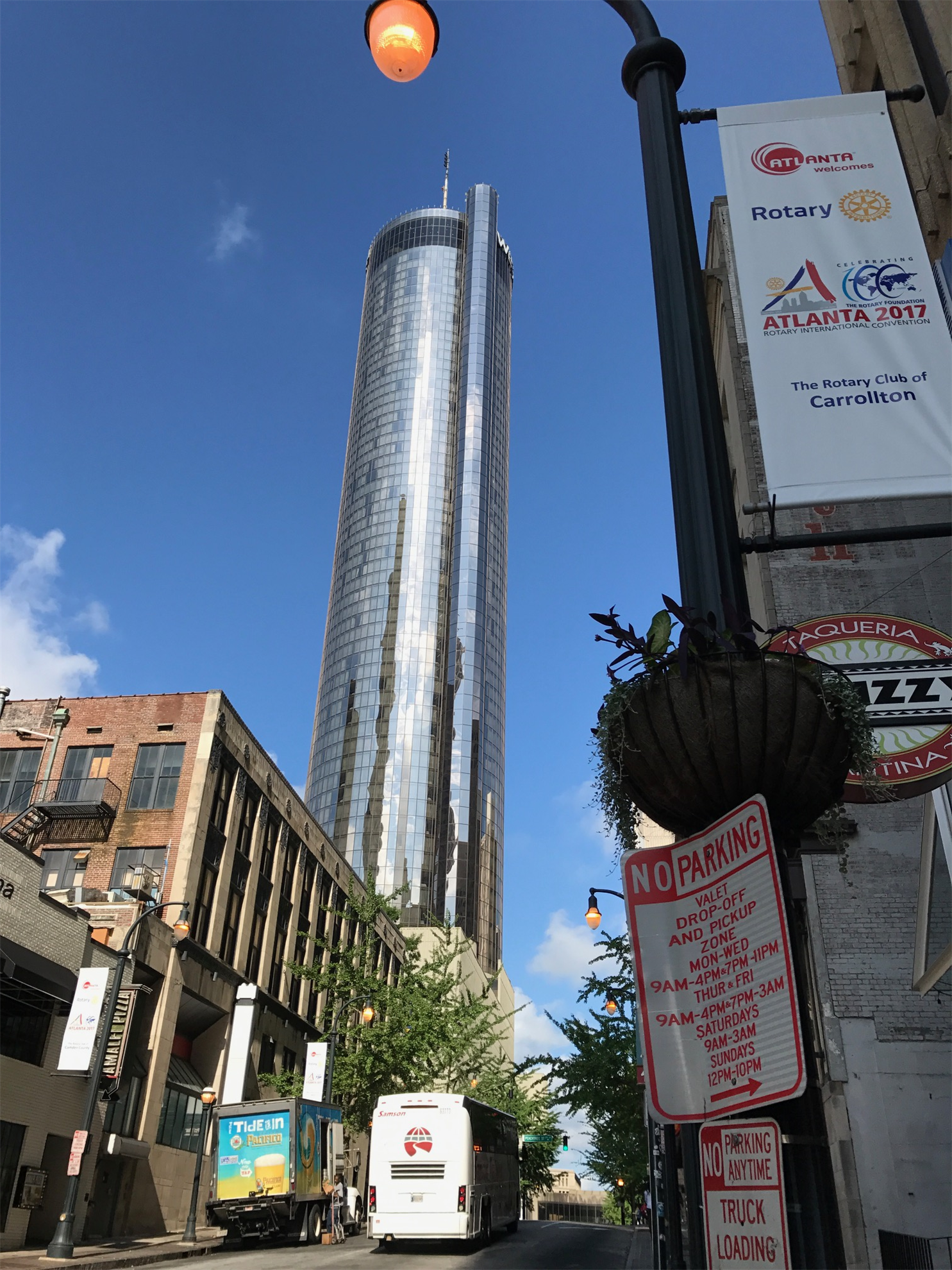 The Westin Peachtree 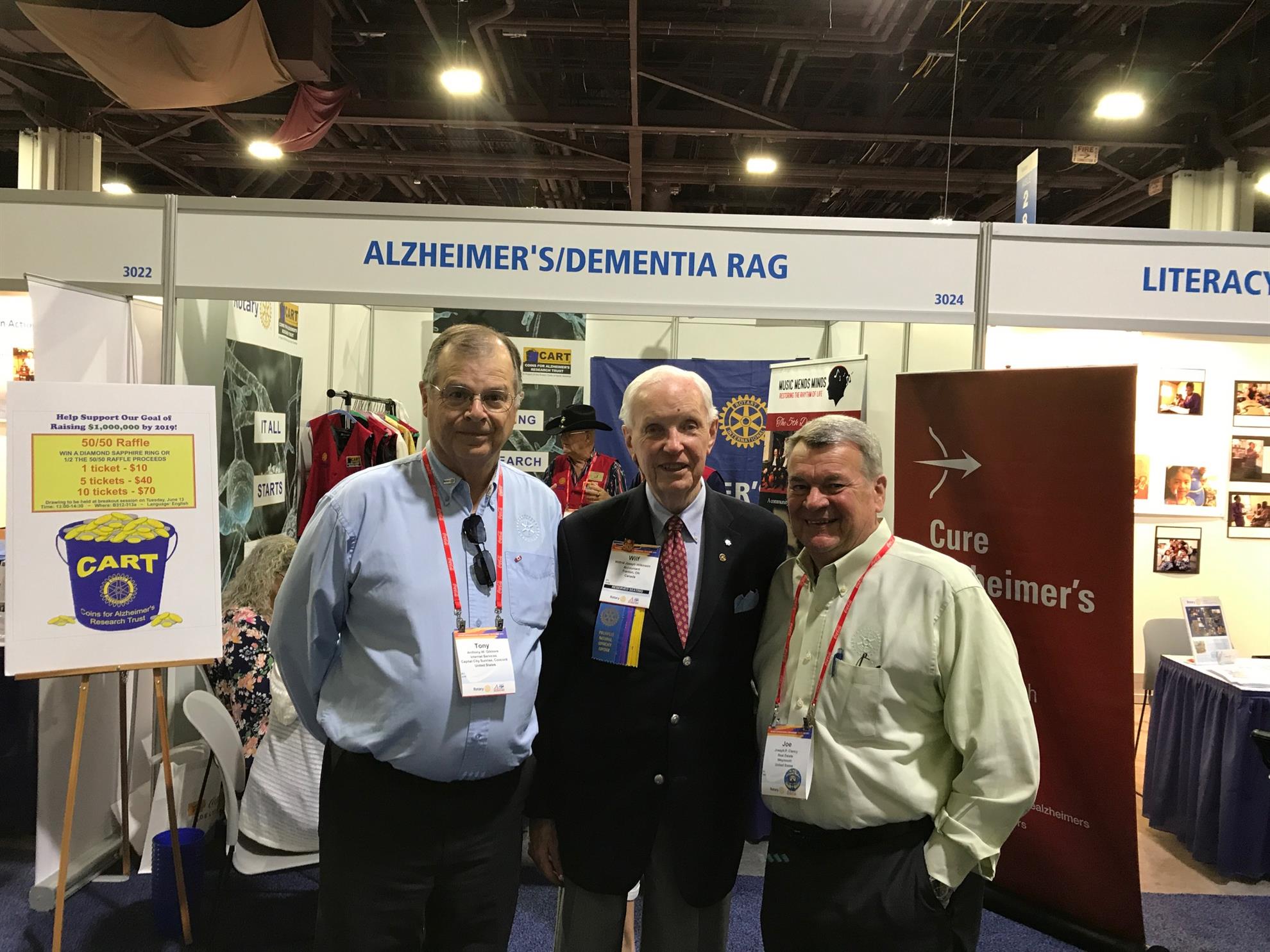 PDG 2012-2013 classmates Tony Gilmore and Joe Clancy with Past Rotary President Wilf Wilkensen at the Alzheimer's booth in the House of Friendship at the Conference 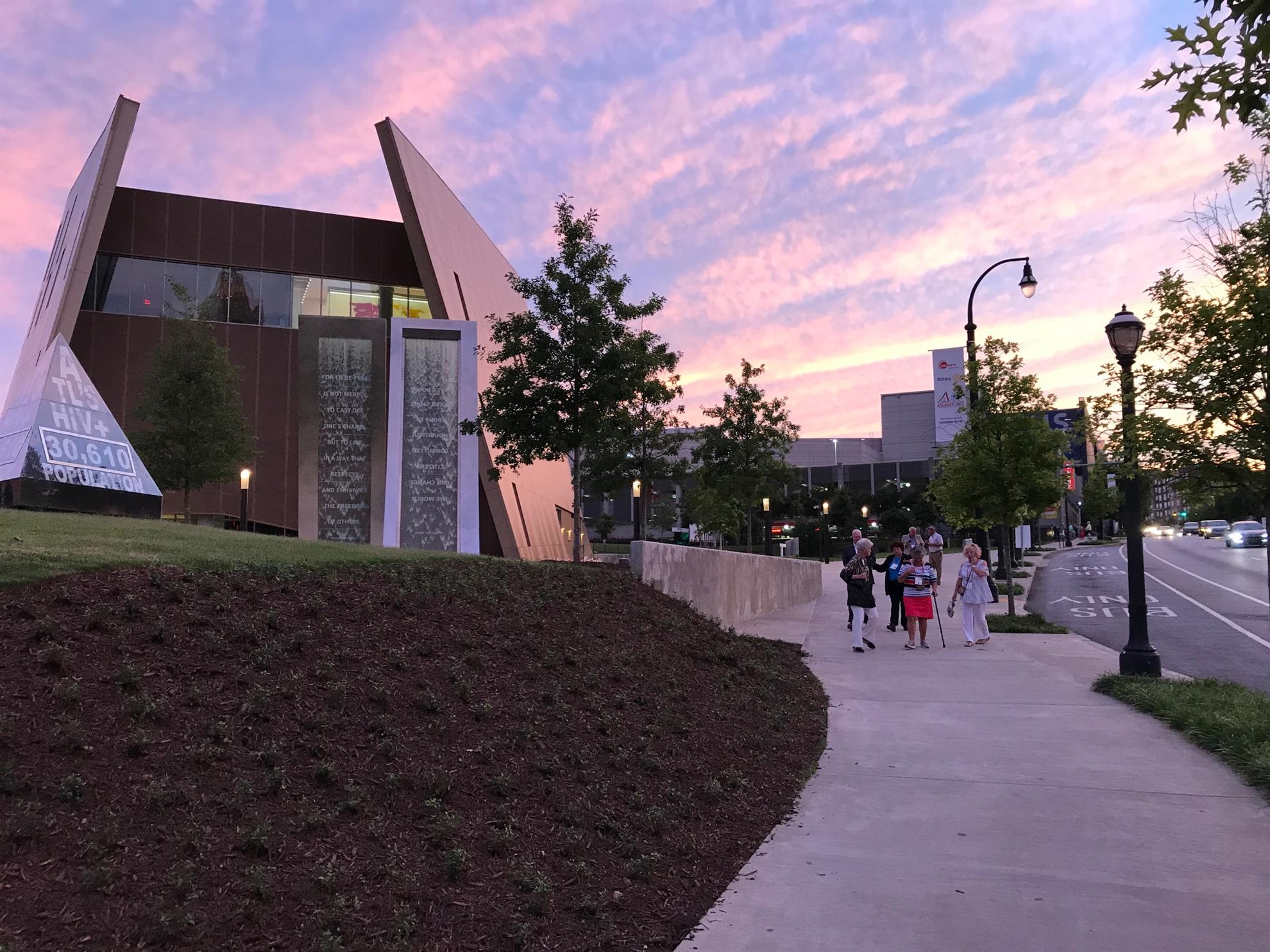 Following the Beyond Borders Dinner at the Aquarium, a beautiful sunset.
|
||||||
The benefits of dual membership in Rotaract, Rotary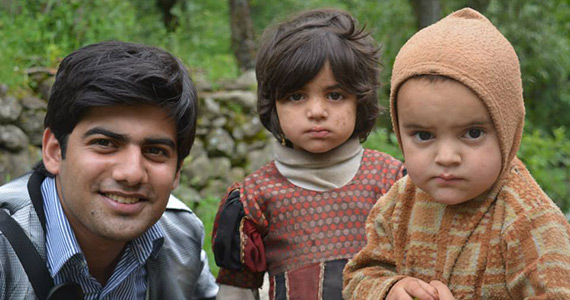 By Muhammad Talha Mushtaq, a member of the Rotaract Club of Jhang Saddar and the Rotary Club of Jhang Metropolitan When I joined Interact back in 2009, I had no idea the path it would set me on or that it would change my life forever. I enjoyed many successful service projects with my fellow members of Interact, as we assisted victims of the great flood of 2010. One-fifth of Pakistan’s total land area and 20 million people were directly affected by floods. We were able to collect a sizable sum of money and donations in kind during three days of scorching July heat. It was then that I understand the meaning of this quote by Oprah Winfrey: “The happiness you feel is in direct proportion to the love you give.” As soon as I turned 18, I joined the Rotaract Club of Jhang Saddar along with some of my friends from Interact, and continued to enjoy service projects that included installing libraries in five different schools, distributing school bags and stationary, helping deliver food rations to the needy, and holding a family festival attended by almost 10,000 people. When I learned that the Rotary Club of Jhang Metropolitan was conducting a free medical camp for the poor in my hometown of Jhang, I wanted to join that club, too. This is something Rotary now allows, dual membership in Rotary and Rotaract, and I jumped at the opportunity. Rotary clubs provide young leaders like us with expanded opportunities for projects on a much larger scale. Each week in my Rotary club, I get to listen to informative speakers on a variety of topics, learn what is going on in my community, and carry all that back to my Rotaract club. I can share ideas with them and inspire them to get more involved. Likewise, I have become the face of Rotaract to my Rotary club, sharing with them the issues that our important to my fellow Rotaractors. Dual membership allows me to be a bridge. There are so many opportunities to welcome present members of Rotaract or program alumni into Rotary. I decided to serve as my club’s membership chair next year because I am convinced there are many who are willing to join Rotary, but just need proper guidance. For example, recently, my Rotary club invited six Rotaractors who had also been in Interact with me to enjoy the benefits of dual membership. It is a love for humanity and our fellow countrymen that compel us to play our part. Both Rotary and Rotaract give us the platform. I will have the added joy of serving as my district’s Rotaract Representative in 2018-19, the same year that my father, Muhammad Mushtaq, will be serving as the district’s governor. Rotary and its programs for young leaders have enabled me to develop my personal and professional skills. I find it much easier to meet new people, make friends, and speak in front of groups. I have learned to be more patient and listen before I speak. I have learned the value of helping others and giving. And I have a new outlook on life. My love for this organization knows no limit. |
||||||
Rotarians are active in Grassroots PeacemakingThere is great interest for Grassroots Peacemaking in many areas around the world. Grassroots Peacemaking Groups, in different parts of the world, take advantage of formal and informal networks of leaders in Rotary, the United Nations, the Holy See and many NGO’s. Rotarians are active in Grassroots Peacemaking around the world! In peace, everybody wins! In war, everybody loses! Studies show that there are no winners in modern wars. Peace is the only way to win. Once the conflicting parties realize this key fact, it becomes in their own self-interest to pursue peace. 1.2 million Rotarians in more than 35,000 Rotary Clubs in more than 215 countries and territories around the world share a passion for enhancing communities and improving lives across the globe. The members embrace their diverse background and unite to exchange new ideas, apply expertise, and implement improvements that transform communities. Rotary’s peacemaking history goes back to the days when Rotary was active in the creation of the United Nations. The U.S. State Department asked Rotary International to help develop the Statutes of the United Nations. Rotary also organized and managed the United Nations charter meeting in San Francisco 1945. Forty-nine of the delegates from different countries were also Rotarians. Rotary Grassroots Peacemaking Groups have made positive differences in conflicts between Argentina and Chile, Cyprus, India and Pakistan and between China and Taiwan. We have also started to see interest for Grassroots Peacemaking in Zimbabwe, Israel, Lebanon, Palestine, Russia, Ukraine and Mexico. |
||||||
The girls of Malawi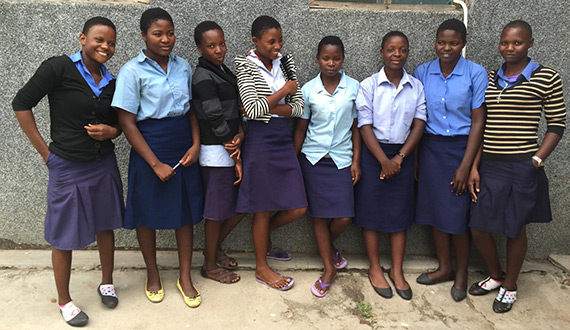 The Rotary club’s project trained teachers for an after school program designed to empower girls, like those above, to stay in school. By Elizabeth Usovicz Last April, I led a Vocational Training Team (VTT) to Malawi. The global grant project of the Rotary clubs of Limbe (Malawi) and Kansas City-Plaza (Missouri, USA) installed solar lighting in schools and trained primary school teachers in an after-school program designed to empower children, especially girls, to stay in school. As in many countries, girls in Malawi face several challenge along their path to an education, including early marriage, teen pregnancy and HIV/AIDS. Malawi is called “The Warm Heart of Africa,” and with an average annual income of about $255 per capita, tenacity is more than an admirable trait. It’s a survival skill. Here are some of the traits, conditions and needs affecting the girls of Malawi in their quest for an education. Multitasking: Village girls learn how to multitask from their mothers, walking barefoot several times a day from the village water pump with 70-pound buckets of potable water on their heads, babies on their backs, and another child or two by the hand. I saw village girls supervising younger siblings while pounding maize, herding goats, and trying to get homework done. These girls exhibited a tenacity that humbled me. Tradition: According to a United Nations Development Program background paper on Malawi, 47 percent of girls finish standard 8 – the equivalent of the 8th grade. Family influences, the tradition of early marriage and teen pregnancy can easily discourage a girl’s plans for the future. A girl who intends to go to secondary school and then to college or university must have strong, quiet determination, as well as encouragement. Role Models: I met dozens of girls who told me they aspired to become businesswomen, doctors, nurses or accountants. Most had never had an opportunity to meet women working in those professions. The village girls who succeed in getting an education are the future role models for other village girls. My VTT experience has given me a global perspective on the value of girls’ education. With tenacity and encouragement, it’s my hope that the girls of Malawi will reach their aspirations. |
||||||
Rotary members meet with EU officials to examine Rotary’s role in achieving peace.jpg) More than 240 Rotary members and guests gathered in Brussels, Belgium, on 8 March for Rotary at the European Union. Nikita Philippi By Bryant Brownlee More than 240 Rotary members and other guests gathered in Brussels, Belgium, on 8 March for Rotary at the European Union, a special event that explored how Rotary and the European Union can work together to achieve peace. The meeting was the first of its kind at the European Union (EU) and was modeled on the tradition of Rotary Day at the United Nations. Rotary members, EU officials, and business leaders at the two-hour event asked how business and civil society organizations like Rotary can work with the EU to achieve the United Nations Sustainable Development Goals (SDGs) and build more peaceful and stable societies. Françoise Tulkens, a professor and former vice president of the European Court of Human Rights, moderated the meeting, which included presentations from Karmenu Vella, European commissioner for environment, maritime affairs, and fisheries; Jean de leu de Cecil, general secretary of the board of Colruyt Group; Rene Branders, president of the Belgian Federation of Chambers of Commerce; and John Hewko, Rotary general secretary. Vella emphasized the importance of working with business and civil society to achieve the development goals. He also recognized the important role Rotary can play in this global effort. “You have a massive asset, your vast network, and you can use it to bring community stakeholders together in order to turn the SDGs into reality. Rotary International is uniquely placed to create transformational alliances between business and civil society, pushing forward the implementation of our common agenda,” said Vella. Hewko highlighted Rotary’s efforts to address the ongoing migration crisis and foster inclusive economic development. "At Rotary, we believe that we can only respond by forming smart partnerships in which the EU, governments, civil society, the private sector, and other organizations all play an important role. This is why the growing relationship between Rotary and the European Union is a cause for optimism,” said Hewko. Because the EU supports the global polio eradication effort, organizers of Rotary at the European Union are confident that there are other opportunities for collaboration between the organizations. The event was coordinated with the European Commission and organized by Michel Coomans and Hugo-Maria Schally, RI representatives to the EU, with the support of Kathleen Van Rysseghem, Philippe Vanstalle, and Nathalie Huyghebaert, the governors of the Rotary districts in Belgium and Luxembourg. |
||||||
My path into Rotary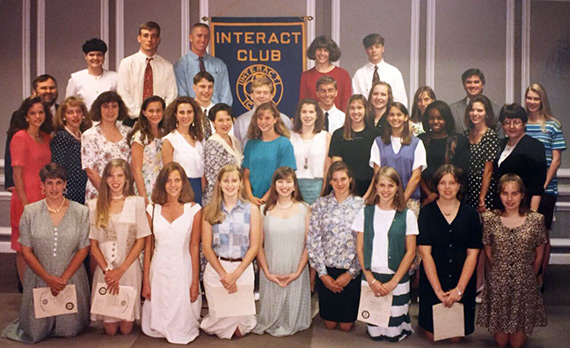 Kay Fisher, bottom row far right, with her Interact Club in Clemson, South Carolina, USA. By Kay Fisher, a member of the Rotary Club of North Mecklenburg, North Carolina, USA Growing up in the suburbs of Atlanta, I never learned how to swim, how to play the piano, or how it would feel to go to church on Sunday mornings. The opportunities were there. The new YMCA offered swim lessons, my grandparents bought me a new piano and offered to pay for lessons, and churches were close to my house. But these were all things my dad felt only “plastic people” did. That was his word for those whose education afforded them a seemingly easy white collar life. My father had dyslexia, a condition not well understood in the 1950’s, and because of it he struggled in school. His insecurities growing up in a college town led him to drinking at an early age. As a plumber, he felt someone who didn’t get their hands dirty working was too self-absorbed on appearances and achievement to care about anything or anyone else. When I was 13, my mother and I left him in the middle of the night. We moved to the hometown they both shared — Clemson, South Carolina, to live with my grandparents. It was a culture shock to go from suburban Atlanta to a small college town but gave me insight into my dad’s adolescence. Although I felt I was betraying him with my new facade, I decided being accepted in this new environment was more important and I wanted to join the group of kids whose parents he would have called plastic. Fisher’s high school yearbook photo. In high school, the most popular extracurricular club was Interact. I joined and developed a love of service. Our club was active and there was a service project almost every week. We tutored elementary students, cleaned highways, visited nursing homes and a few of us went to a battered women’s shelter. I saw these kids as friends who cared about other people and other things greater than themselves. At the end of the year, our sponsoring club hosted the Interactors at their weekly lunch meeting. We had learned Rotarians were leaders, professionals, business owners and well respected community members. I loved Interact and wanted to learn more about this Rotary Club which had provided me opportunities to serve our community. I read aloud The Four-Way Test and learned Rotary was about Service Above Self. I met Rotarians who were welcoming and took an interest in me. They wanted to know about our club and the projects we had done. The experience forever changed the trajectory of my life and my image of leadership. I graduated from Clemson University and now run a real estate business with my husband in Cornelius, North Carolina. I am a board member of the Rotary Club of North Mecklenburg, Davidson Lands Conservancy, and Our Town Habitat for Humanity. I am humbled by the opportunities to serve my community and am grateful to those Rotarians who created Interact. A moment of goodwill has the power to change the next generation of leaders. |
||||||
Poliovirus in Nigeria last summer shocked eradication efforts By Erin Biba Photo by Andrew Esiebo For a 13-month-old boy whose family lives in northeastern Nigeria, escaping Boko Haram was only the beginning of a long, difficult journey. When his family finally arrived at the Muna Garage camp for internally displaced people (IDP), they had walked more than 130 miles in three days. They were starving, and the camp was only a temporary setup with inadequate facilities, housing more than 15,000 people. But the worst news was yet to come. Health officials in the camp determined the baby had polio. “It was heartbreaking,” says Tunji Funsho, chair of the Nigeria PolioPlus Committee and a member of the Rotary Club of Lekki Phase I. Funsho met the boy on a trip he took in August to three of the country’s IDP camps. “At least (the family was) able to escape Boko Haram. The child was able to walk but with a limp, and was quite malnourished.” If it weren’t for the polio surveillance system that the World Health Organization (WHO) has in place at every one of Nigeria’s IDP camps, Funsho says, the boy’s polio could have easily gone unnoticed. In fact, it was a shock to the entire polio eradication effort in the country that a case existed at all. An estimated 15,000 people live in the Muna Garage camp, an informal settlement on private land. The country hadn’t had a case since July 2014 and had been removed from the list of polio-endemic countries. But in August 2016, routine surveillance methods, which include sampling of sewage and wastewater to look for viruses circulating in the wild as well as monitoring and investigating all cases of paralysis in children, discovered two cases of polio in Borno state – one of them the 13-month-old. (Two more cases were subsequently reported.) Polio wasn’t gone from Nigeria after all. “The new cases devastated us. Even one case is unacceptable. It’s very unfortunate we are in this position, but we are recalibrating our efforts to end this disease,” Nigeria’s health minister, Isaac Adewole, told Rotary leaders during a meeting at Rotary International World Headquarters at the time. “We consider this situation a national emergency.” The importance of surveillance The polio surveillance system, carried out mostly by WHO and the U.S. Centers for Disease Control and Prevention (CDC), two of Rotary’s partners in the Global Polio Eradication Initiative, consists of several parts. First, doctors and other community health workers such as healers and traditional birth attendants monitor children for paralysis. “Most times cases are not discovered at a medical facility – they’re discovered at home by the volunteer community mobilizers and people who are paying regular visits,” Funsho explains. “They find a child that is limping or unable to use a limb they’ve used before. They’re trained and they know the questions to ask.” If they discover a paralyzed child, the health workers report the case to WHO, which sends a surveillance team to collect stool samples from the child and his or her siblings for testing. The second part of the surveillance process involves local authorities collecting samples from sewage systems or, in places that don’t have adequate sanitation facilities, rivers and bodies of water near large settlements. The samples are sent to a lab, one of 145 in the Global Polio Laboratory Network, which looks for the poliovirus. If it is found, the samples go on to a more sophisticated lab where scientists perform genetic sequencing to identify the strain and map where and when it has been seen before. The worldwide scale of these surveillance efforts is massive and costs roughly $100 million every year. For the most part, these activities take place only in countries that don’t have adequate health systems already established. In the U.S., for example, if a child showing signs of paralysis visits the doctor, the necessary tests for polio are already a part of the working health system. But in countries that don’t have such a robust system, WHO takes on that responsibility. That means investigating more than 100,000 cases of paralysis around the world every year to rule out polio. In Nigeria’s IDP camps, surveillance is more complicated. Before people enter, they are screened by security agencies (there have been several cases of suicide bombers trying to infiltrate the camps). Next, at the camp’s health facility, doctors evaluate the new arrivals’ overall health and screen them for polio. Volunteers then document what villages they have traveled from, using the information to track who is in the camp, where they are within the camp, and who their family members are. |
||||||
Changing the world is possible, through Rotary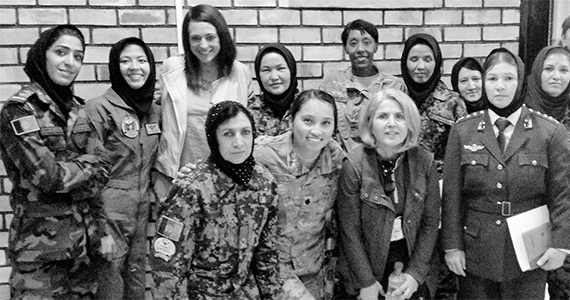 Lerch, third from left in rear, at a round table discussion with her Coalition colleagues and women in the Afghan military. By Bethany Lerch, former Rotary Ambassadorial Scholar, 2010-2011 I knew little about Rotary eight years ago when my former high school counselor encouraged me to apply for an Ambassadorial Scholarship. He was retired, but still active in Rotary, and knew a master’s was my next step. At the time, I had just graduated from the University of Wisconsin Oshkosh and knew I needed to go to graduate school. But where and how? Through a Google search, I learned Rotary was an international service organization. Intrigued, I applied for the scholarship and made it to the district interview, where I was asked what I wanted to do, really do. The question took me by surprise. Unsure how to answer, I stuttered that I hoped to change the world someday. I remember looking at the floor thinking, how far-fetched. Less than a week later, I received the call that I had been selected. What if, I wondered, my acceptance had to do with wanting to “change the world” someday? The University of Saint Andrews was my graduate school home. I pursued Terrorism Studies in hopes of better understanding the phenomenon that was killing so many, so often. In spring, two faculty members took me and a dozen classmates to the Middle East to see the context of that particular enduring conflict for ourselves. It was crushing. I zeroed in on Afghanistan with my research, marveling at the country and investigating its history of, and tendency toward, violence as a means to an end. If ever there was a country that baffled historians and social scientists, Afghanistan is it. From the Anglo-Afghan wars to the Taliban to Al Qaeda, Afghanistan remains a bit mysterious. It took four years of independent work and international travel before I finally made it to Afghanistan as a trainer on Gender Integration and Resource Management with the U.S. government. My job was to meet incoming Coalition personnel and teach them about the overall mission, as well as the country’s political and cultural terrain. I arrived believing in making a change, forging ahead with equal rights for women, and telling others about doing the same. Less than a month later, a young Afghan woman named Farkhunda was brutally killed by a mob in downtown Kabul. Big questions set in. Mostly I wondered if we had the right approach: What if it was all too much, too soon? My second job in Kabul took me from NATO headquarters into the city, where I worked with Afghan consultants to help their countrymen in the Ministries of Defense and Interior. Our team included strong Afghan women. Zahra was one of them. She demonstrated competence, courage, and commitment to rebuilding her country. Zahra explained that she hoped to attend graduate school abroad. Like my guidance counselor before me, I told her about Rotary scholarships. Unfortunately, when we turned to Afghanistan-based Rotary groups, we found them unable to facilitate the global grant application. As an alternative, I turned back to my hometown Rotary clubs in Oshkosh, Wisconsin, USA. Would they be willing to help Zahra? They were. The Afghan Education Project kicked off with a small group: representatives from two Oshkosh Rotary clubs, folks from the University of Wisconsin campus in Oshkosh, and I (in Kabul). The university waived out-of-state tuition; a Rotary club provided the sponsor letter to the U.S. Embassy in Kabul; and Rotarians donated to fund the cost of Zahra’s in-state tuition for a graduate degree in Educational Leadership and Policy. Now in her second semester, Zahra has achieved all A’s. She is gainfully employed on-campus, for which she receives free room and board and meals. She is researching more about women’s access to education in Afghanistan, specifically how ethnicity and regional cultural norms impact their access. Upon her return to Afghanistan, she plans to work in educational policy. She’d like to integrate more literacy components, diversity lessons, and tolerance best-practices into the national curriculum. I’ve always suspected that changing the world is possible. Rotary helped change my world, then did the same for Zahra. Just as Rotary makes a difference through its global organization and local presence, so, too, will Zahra’s future leadership in Afghan education make a difference for countless young students in Kabul and beyond. Bethany Lerch is the founding President of Rotaract Oshkosh, graduate of the University of Saint Andrews, and former Coalition Military Advisor in Kabul, Afghanistan. For more information on the Afghan Education Project, including how to support it, visit www.able-to.org. |
||||||
Rotary members meet with EU officials to examine Rotary’s role in achieving peace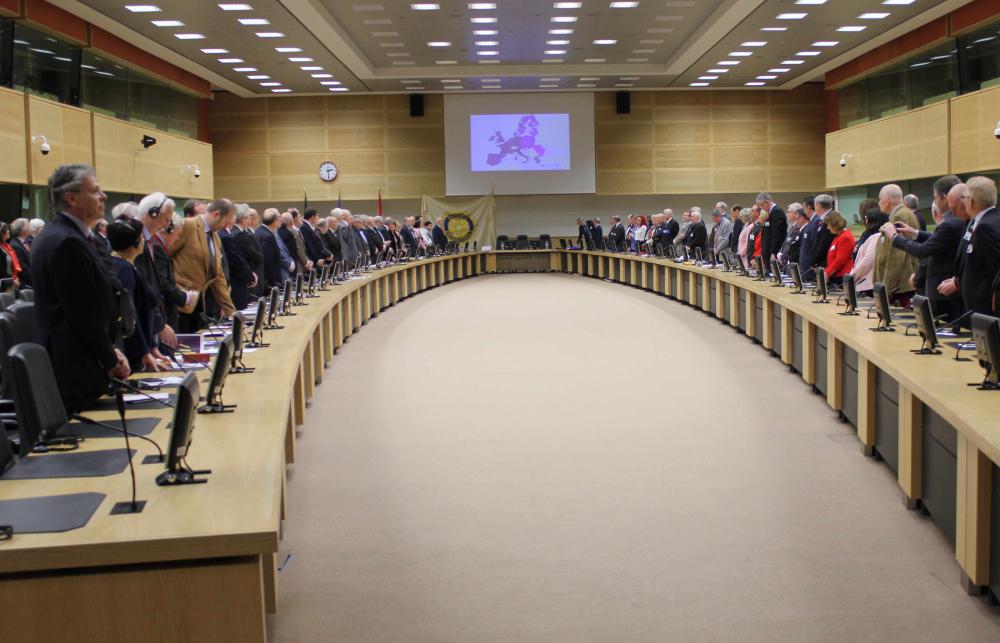 More than 240 Rotary members and guests gathered in Brussels, Belgium, on 8 March for Rotary at the European Union. Nikita Philippi By Bryant Brownlee More than 240 Rotary members and other guests gathered in Brussels, Belgium, on 8 March for Rotary at the European Union, a special event that explored how Rotary and the European Union can work together to achieve peace. The meeting was the first of its kind at the European Union (EU) and was modeled on the tradition of Rotary Day at the United Nations. Rotary members, EU officials, and business leaders at the two-hour event asked how business and civil society organizations like Rotary can work with the EU to achieve the United Nations Sustainable Development Goals (SDGs) and build more peaceful and stable societies. Françoise Tulkens, a professor and former vice president of the European Court of Human Rights, moderated the meeting, which included presentations from Karmenu Vella, European commissioner for environment, maritime affairs, and fisheries; Jean de leu de Cecil, general secretary of the board of Colruyt Group; Rene Branders, president of the Belgian Federation of Chambers of Commerce; and John Hewko, Rotary general secretary. Vella emphasized the importance of working with business and civil society to achieve the development goals. He also recognized the important role Rotary can play in this global effort. “You have a massive asset, your vast network, and you can use it to bring community stakeholders together in order to turn the SDGs into reality. Rotary International is uniquely placed to create transformational alliances between business and civil society, pushing forward the implementation of our common agenda,” said Vella. Hewko highlighted Rotary’s efforts to address the ongoing migration crisis and foster inclusive economic development. "At Rotary, we believe that we can only respond by forming smart partnerships in which the EU, governments, civil society, the private sector, and other organizations all play an important role. This is why the growing relationship between Rotary and the European Union is a cause for optimism,” said Hewko. Because the EU supports the global polio eradication effort, organizers of Rotary at the European Union are confident that there are other opportunities for collaboration between the organizations. The event was coordinated with the European Commission and organized by Michel Coomans and Hugo-Maria Schally, RI representatives to the EU, with the support of Kathleen Van Rysseghem, Philippe Vanstalle, and Nathalie Huyghebaert, the governors of the Rotary districts in Belgium and Luxembourg. |
||||||
Rotary-US AID Bring Liquid Gold to Ghana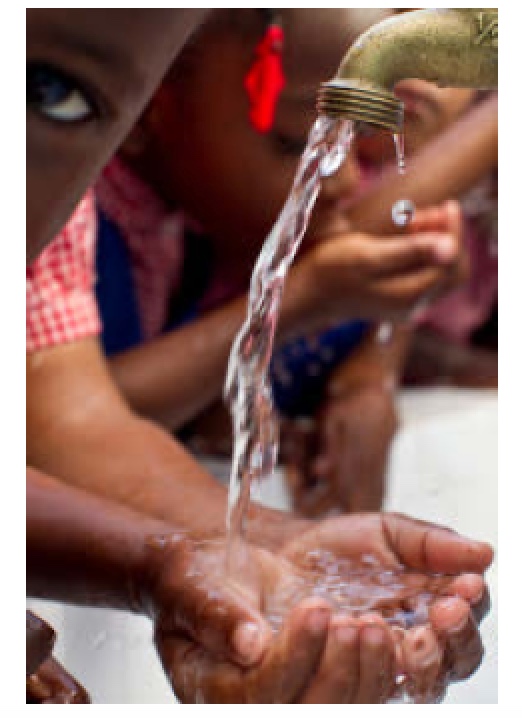 Ghana, a country with a population of 28 million on West Africa’s Gold Coast, was once famous for its gold. Today, it’s one of the world’s major suppliers of cocoa and also produces oil and diamonds. But even in a country with all of these precious commodities, it may be that nothing is as valuable, particularly in rural areas, as clean water — liquid gold. Since 2009, Rotary and USAID, the world’s largest government organization to deliver civilian foreign aid to address extreme poverty, have worked together to support lasting, positive change by improving access to clean water and sanitation in developing countries like Ghana. As Rotary marks World Water Day on 22 March, Rotarians are invited to learn more about the Rotary International-USAID International H2O Collaboration, how it solves seemingly unsolvable problems in Ghana, and how those approaches can be used in other countries. “We do more than just provide clean water and sanitation. We help bring about lasting change through education and advocacy — showing people what to do with the new resources and ensuring policies are in place to preserve the changes,” says Erica Gwynn, Rotary International’s manager of the RI-USAID partnership. For 2015-18, the collaboration has committed $4 million each to Ghana, Madagascar, and Uganda. Rotary is providing $2 million of the total per country, with $200,000 for each country needing to be raised by individual Rotarians, clubs, and districts. Work is underway in Ghana, with 91 communities scheduled to have new wells by 2018, establishing an improved water source, reducing illness, and increasing quality of life for residents. The project in Ghana will also add 122 latrines in schools and health clinics, bringing sanitation facilities to thousands in rural areas. But providing access to clean water and sanitation is only part of the project. Extensive hygiene and sanitation training will be offered in each community, in partnership with local Rotarians and Global Communities, an international nonprofit that is working with USAID to provide local contractors. Rotarians will also work with local and national governments to advocate for improving water and sanitation policies. |
||||||
Police officer takes the lessons of the Rotary peace program to the streets of Philadelphia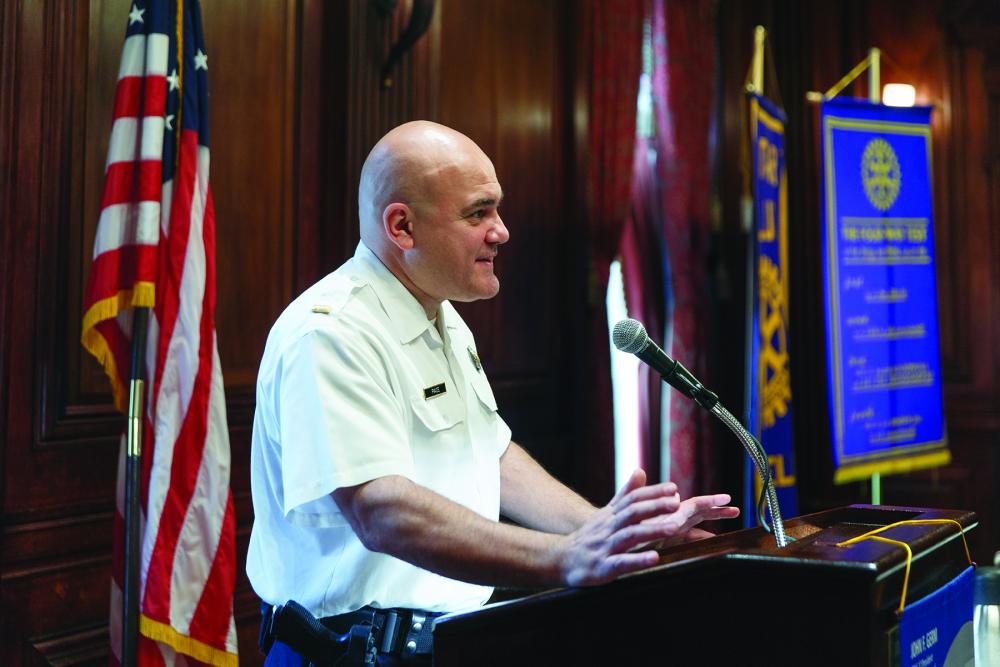 Lt. D.F. Pace speaks to the Rotary Club of Philadelphia. Members encouraged then-Commissioner Charles Ramsey to solicit applications for the peace fellowship. By Bryan Smith Photograph by Matt Stanley The tension is palpable as we cruise through a neighborhood of dilapidated row houses in one of the toughest parts of Philadelphia. Buildings jaggedly rise from the street – like a mouth full of busted teeth. Lt. D.F. Pace nods to acknowledge a stare. He understands. In his 15-year career with the Philadelphia Police Department, Pace has taken pride in being naturally tolerant and level-headed, qualities that helped him rise through the ranks. But he is human. To maintain a level head under pressure, at times he uses several techniques he learned through the Rotary Peace Fellowship program. In 2010, Pace applied for the intensive three-month professional certificate program in Thailand. The idea had come to then-Police Commissioner Charles Ramsey through a suggestion from the Philadelphia Rotary Club, the 19th-oldest Rotary club in the world. Pace relished the challenge. “As soon as I saw it, I said, ‘This is a once-in-a-lifetime opportunity.’” Even before events like what happened in Ferguson (Mo.), I saw an unease developing between police and the community. I thought, ‘If we don’t get a handle on this, the lid’s going to come off.’ Lt. D.F. Pace saw the fellowship as a way to defuse a developing powder keg. “Even before events like what happened in Ferguson [Mo.], I saw an unease developing between police and the community,” he recalls. “I thought, ‘If we don’t get a handle on this, the lid’s going to come off.’” The growing tension between police and residents also troubled members of the Philadelphia Rotary Club. They considered a few ideas until Joseph Batory, then scholarship chair of the club, had a light-bulb moment: the peace fellowship. “Sometimes the obvious is right in front of us,” says Batory. “It finally dawned on me that a police officer is at the very forefront of violence prevention and peacebuilding and, as such, would be a great fit for Rotary’s three-month certification program.” In D.F. Pace, known as “D” to friends, Batory believed the club had found the perfect candidate: “He was an up-and-coming young lieutenant with patrol experience on the streets, but he’s also a lawyer and thus well-versed in the legal aspects of proper policing,” he says. “He reflected Commissioner Ramsey’s vision of creating a new generation of police officers with enhanced professionalism, dramatically improved judgment, and dedication to being instruments of peace.” Friction, racial and otherwise, between police and the people they protect is not new. But the killings of unarmed black men by police in recent years, captured on camera phones and broadcast on the nightly news, have indeed touched a match to the kindling that Pace and others saw piling higher and higher. Philadelphia has not had the kind of headline-grabbing police-involved shootings that St. Louis, Chicago, and New York have had. However, it ranks in the top 20 in murder and crime rates among big cities in the United States. Almost from day one, Ramsey (who retired in January 2016) looked for innovative ways to avoid the former and reduce the latter. “Ramsey’s a forward thinker,” says Pace. “He was always looking for ways to infuse new ideas into his police department.” Even so, when Philadelphia Rotary Club members pitched the peace fellowship to Ramsey, they kept their expectations low. But when Batory met with the commissioner, Ramsey took out a notepad and listened intently. He liked the idea and put out a citywide memorandum inviting officers to apply. Each year, Rotary selects up to 100 individuals from around the world to receive fully funded academic fellowships at a peace center. These fellowships cover tuition and fees, room and board, round-trip transportation, and all internship and field-study expenses. In just over a decade, the Rotary Peace Centers have trained more than 1,000 fellows for careers in peacebuilding. Many of them go on to serve as leaders in national governments, nongovernmental organizations, the military, and international organizations like the United Nations and World Bank. Pace says his cohort included a labor relations specialist, a women’s rights advocate, educators, and lawyers. |
||||||
Women share stories of humanitarian service on International Women's DayBy Jane Lawicki
What motivates everyday women to do extraordinary things — to positively change the lives of people halfway around the world while inspiring so many folks at home? Three Rotary members answered that question at a celebration of International Women’s Day hosted by the World Bank at its Washington, D.C., headquarters 8 March.
.jpg) Razia Jan, the founder and director of the Zabuli Education Center, was honored on International Women's Day.
Speaking to an audience of more than 300, with thousands listening to the live-stream, Razia Jan, Deborah Walters, and Ann Lee Hussey told their personal stories and explained what inspired them to build a girls school in Afghanistan, assist people living in a Guatemala City garbage dump, and lead more than 24 teams to immunize children in Africa and Asia. “I’m so inspired to see the faces of the children, what they’re learning, how to stand up for their rights, to have ambition ... to want to do things that may even be impossible — to have dreams,” said Jan, a member of the Rotary Club of Duxbury, Massachusetts, USA. An Afghan native now living in the United States, Jan has worked for decades to build connections between Afghans and Americans while improving the lives of young women and girls in Afghanistan. Founder and director of the Zabuli Education Center, a school that serves more than 625 girls in Deh’Subz, Afghanistan, Jan said the first class of students graduated in 2015 and a women’s college will open soon. 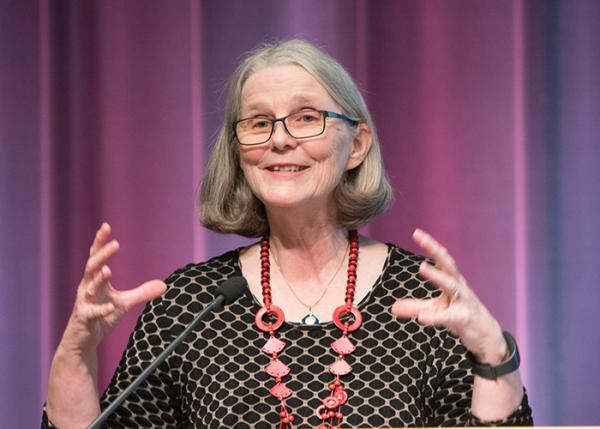 Dr. Deborah Walters, a member of the Rotary Club of Unity, was honored by the World Bank at International Women's Day.
The girls school teaches math, English, science, and technology, along with practical skills to prepare them to achieve economic freedom within a challenging social environment.
Walters, a neuroscientist and member of the Rotary Club of Unity, Maine, USA, has served as a volunteer for Safe Passage (Camino Seguro), a nonprofit organization that provides educational and social services to children and families who live in a Guatemala City garbage dump. Walters, known as the “kayaking grandmother,” traveled from her home in Maine to Guatemala in a small kayak to raise awareness of the plight of the residents. 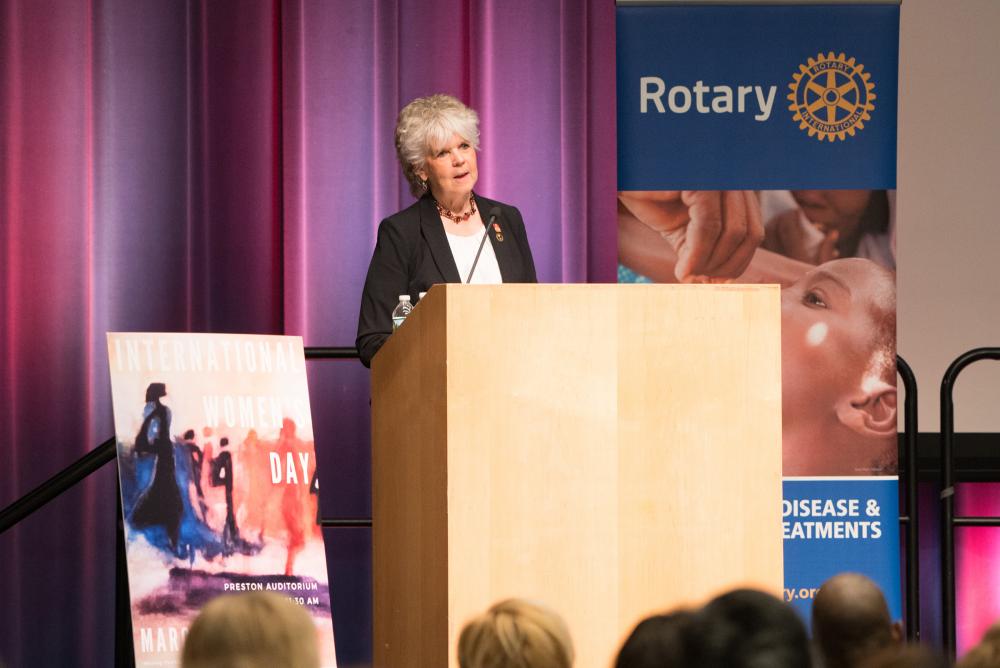 Hussey, a member of the Rotary Club of Portland Sunrise, Maine, has made the eradication of polio and the alleviation of suffering by polio survivors her life’s work.
A polio survivor herself, she’s spent the past 14years leading teams of Rotary volunteers to developing countries to immunize children during National Immunization Days. Ann Lee Hussey was honored for her lifelong work in polio eradication. She often chooses to lead or participate in NIDs in places that don’t often see Westerners: Bangladesh, Chad, Mali, Niger, Nigeria, and remote areas of Egypt and India. There, the need is greatest, and the publicity and goodwill that the trips foster are critical in communicating the urgency of the need for immunizations.
“These women exemplify what the World Bank is striving to attain every day with the twin goals of ending extreme poverty within a generation and boosting shared prosperity,” said Daniel Sellen, chair of the World Bank Group Staff Association. “They illustrate the power of women to change the world and improve people’s lives through innovative and impactful projects in education, economic development, and health.” |
||||||
Cared for with love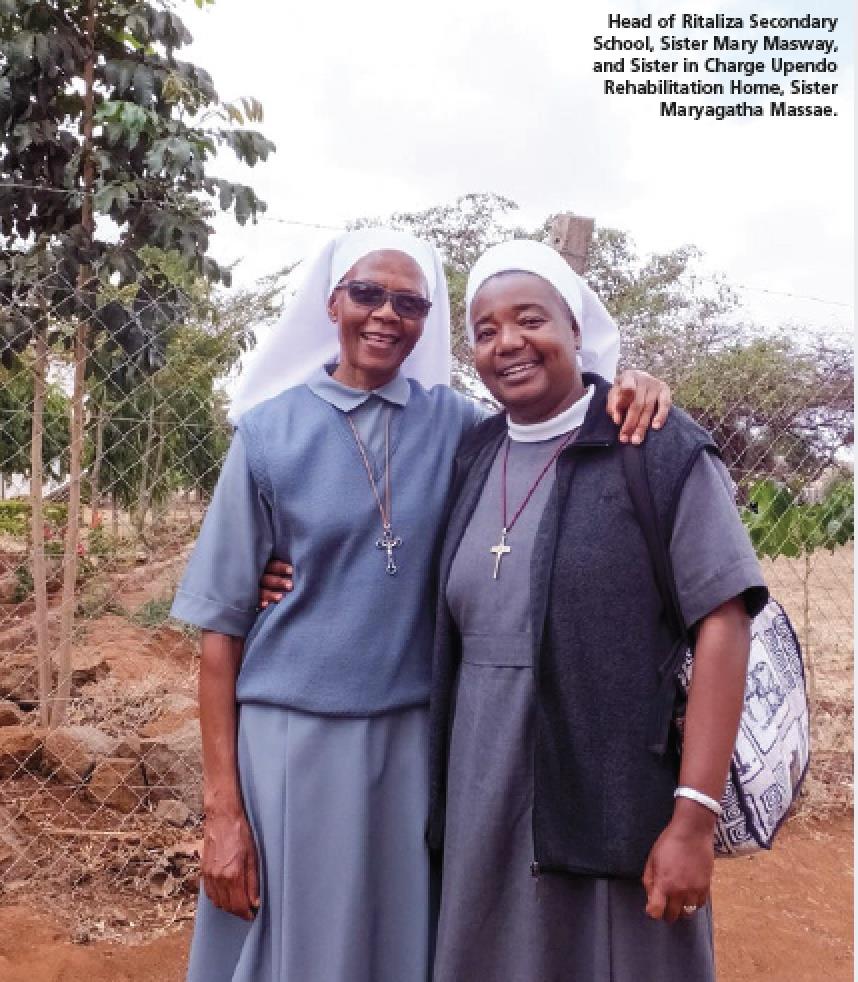 Head of Ritaliza Secondary School, Sister Mary Masway, and Sister in Charge Upendo Rehabilitation Home, Sister Maryagatha Massae.
With the support of a group of New Zealand Rotarians, leprosy victims and their families in Tanzania are receiving the care they deserve.
When PDG Stuart Batty and the late John Somerville travelled to Tanzania in 2001, their journey took them to the Upendo Rehabilitation Home for Leprosy Sufferers in Maji ya Chai. The centre was home to 150 men, women and children, including widows of leprosy victims and families where both parents suffered the debilitating, though curable, condition.
The Rotary Club of Arusha, Tanzania, established the home in 1995, providing accommodation for leprosy sufferers and their families. Prior to this, victims had been forced to scrape together a living on the streets and take up residence on a nearby riverbank. Upendo, which means “cared for with love”, improved their welfare considerably, though improvements were necessary to make facilities and resources accessible.
John and Stuart asked how New Zealand Rotarians could assist the effort. The suggestion of helping the children of Upendo led to the launch of Project CHEF, an acronym for Clothe, House, Educate and Feed.Since then, many children have been assisted by the effort, such as Monica Maiko, who has been supported by the Rotary Club of East Coast Bays, NZ, since she was a baby, with the nickname “Happy”.
Rotary oversaw the transference of Upendo’s management to the Missionary Sisters of the Precious Blood in 2003, who specialise in the care of the sick. Previously, the sisters would bicycle up the long and dusty road to Upendo each week to tend to the foot and leg sores of those with leprosy. Rotary’s offer to the sisters to take up residence at Upendo was happily accepted.
In the years since, they have greatly improved l iving condi t ions and provision of health care services and hygiene education. The sisters, with Rotary’s support, further prepare the children for formal schooling and encourage residents to realise their potential, despite their circumstances.
Thankfully, leprosy rates in the area have declined in the decades since Upendo’s establishment, with the facility instrumental in reducing incidence and spread. Today, Upendo has branched out to care for the poorest of the poor, as well as leprosy sufferers.
Monica is currently attending St Ritaliza Secondary School, a boarding school close to the Kenyan border. Stuart recently returned to Tanzania and was delighted to meet Monica, accompanied by Head Sister Agatha of Upendo.
“New Zealand Rotarians can be proud of their contribution to helping children like Monica on their way to a now bright future,” Stuart said. Cared for with love With the support of a group of New Zealand Rotarians, leprosy victims and their families in Tanzania are receiving the care they deserve.
|
||||||
Monitor Correspondent Allie Morris reports on GSE Trip to India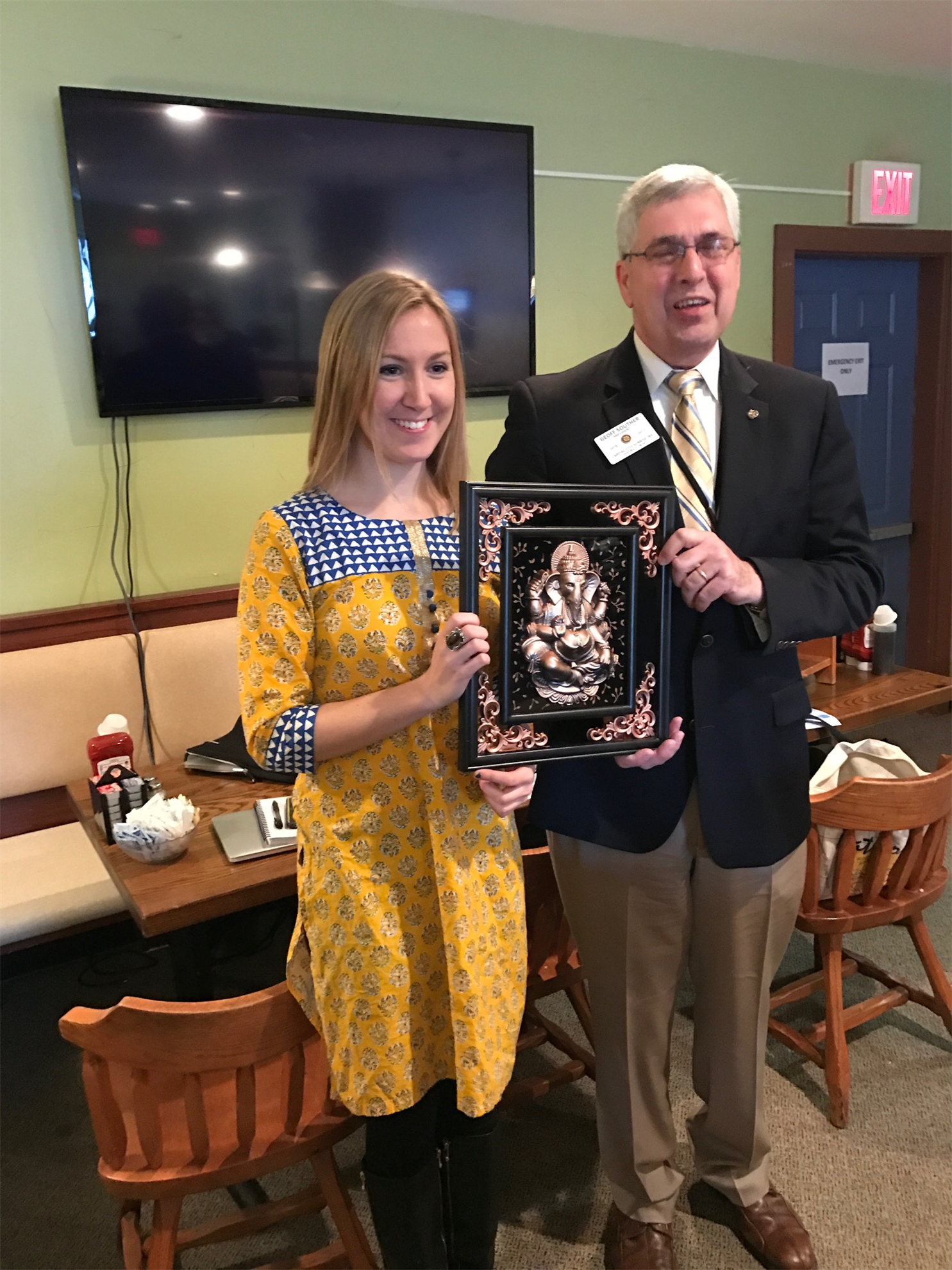 Allie Morris, proposed by Capital City Sunrise as Group Study Exchange team member to Mysore India with President Geoff Souther presented her experiences to the club following her trip.
|
||||||
Manitoba honors Rotary Peace Fellow for public achievement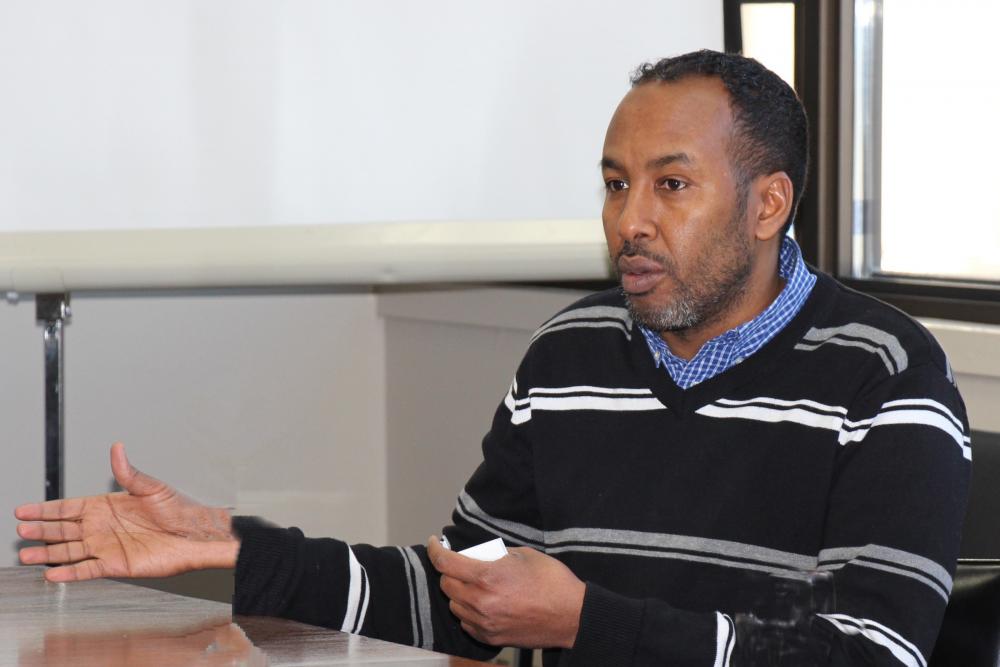 Abdikheir “Abdi” Ahmed, a 2011-12 Rotary Peace Fellow and immigration partnership coordinator for the Social Planning Council of Winnipeg.
By Paul Engleman
Refugees who come to Winnipeg often end up living in areas that are predominantly inhabited by indigenous people. “Newcomers do not know much about the indigenous life and heritage and, without that knowledge, the first thing they encounter is people who are poor and stereotyped by the mainstream community,” says Abdikheir “Abdi” Ahmed, a 2011-12 Rotary Peace Fellow and immigration partnership coordinator for the Social Planning Council of Winnipeg. “Indigenous people may see immigrants as encroaching into their neighborhoods. There is tension between both groups.” Ahmed works to smooth relations, helping them see they have more in common than what divides them. “Integration is a two-way process,” he says.
In recognition of his work, Ahmed received the Order of the Buffalo Hunt, one of the highest honours for public achievement issued by the Manitoba legislature, in January 2016. “I never thought what I was doing had this significance,” he says. “But I don’t look at what I have done. I look at what needs to be done to bring about better living standards for people.” Ahmed, 37, may understand the needs of immigrants better than most. Originally from Somalia, he and his family fled the conflict there and settled in Kenya when he was a child. My hope is that in the next 20 to 50 years, if we have more Rotary Peace Fellows around the world who are speaking the same language and taking on a leadership role to create an interconnected world, things will change. Abdikheir “Abdi” Ahmed As a young adult, he moved to Canada as part of the national resettlement program. He began working with refugee children who were struggling in school while attending the University of Winnipeg, where he earned a degree in international development in 2007. After graduation, Ahmed began working at the Immigrant and Refugee Community Organization of Manitoba. He learned about the Rotary Peace Centers program from Noëlle DePape, a colleague who had earned her master’s degree at the University of Queensland, Australia, through the fellowship. After Ahmed completed his own peace fellowship at Queensland, he and DePape worked together to develop a curriculum for a summer course that they teach to high school students at the Canadian Museum for Human Rights, part of a Rotary District 5550 (Manitoba and parts of Ontario and Saskatchewan) program called Adventures in Human Rights. “We help them view the world from the perspective that everyone’s rights are equal and understand the idea of building a community where everyone’s rights are respected and each person is given a fair opportunity,” he says. In addition to his work in Winnipeg, Ahmed serves on the board of Humankind International, an early childhood learning center that he co-founded at the Dadaab refugee camp in Kenya with two Somali friends who also immigrated to Winnipeg. He says it serves 150 children with four teachers, and he hopes to expand it to accommodate the many children who have to be turned away. Despite the suffering he has witnessed and the daily conflicts he works to resolve, Ahmed is optimistic about the prospects for peace and the potential of the peace centers program. “My hope is that in the next 20 to 50 years, if we have more Rotary Peace Fellows around the world who are speaking the same language and taking on a leadership role to create an interconnected world, things will change,” he says. “I also hope we can find an opportunity for Rotarians and past peace fellows to collaborate on projects in a more defined way.” Ahmed and his wife, Saadi, have three sons. He says their oldest, Mohamed, 9, dreams of playing in the NBA and says that with the money he earns, he will build houses for the homeless people he sees on his way to school. Ibrahim, 7, wants to be a firefighter so he can save people. One-year-old Yussuf has not announced any career plans yet. |
||||||
Getting creative with science in rural Taiwan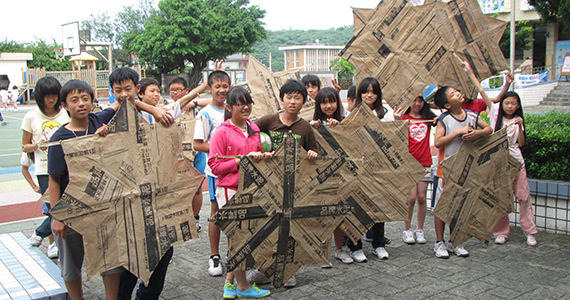 Students show off their construction skills by making kites out of newspapers during classes supported by the science education program.
By Pauline Leung, a member of the Rotary Club of Taipei Pei An, Taiwan, and past governor of District 3520 On a rainy day in Spring four years ago, I was talking to a few young teachers about the education system in Taiwan. The country was on the verge of extending free education to children through the age of 12, which I thought was a good policy to reduce illiteracy. However, the teachers had concerns about the impact of the policy on schools in remote areas of Taiwan that have less resources and thereby have a harder time staying competitive. They explained to me that the children in these schools don’t get the extra curriculum trainings necessary to have opportunities to attend college or university. In January 2014, a report titled “Child Welfare League Foundation” noted a considerable gap between urban and rural areas. The lack of resources in remote areas led to poorer performance by children, many of who were aborigines. Since these children could never catch up, roughly a quarter of them consider dropping out of elementary school. Improving basic education seemed to be extremely crucial in helping eliminate poverty in these areas. We started to discuss what we as Rotarians could do to help. Our team of professional educators decided we should improve their understanding of basic science, their weakest area, and make it more interesting for them. It was important to do this during their elementary school years, so that they could continue on to senior school and pursue university studies. In our research, we learned that the National Science Council of Taiwan was cooperating with the Zhong Hwa Institute of Creative Education, to use creative tools for science training which not only increased the learner’s creativity, but also made science lessons more interesting and practical. This was exactly what we needed. To make our project sustainable, we will provide teachers specialized in this creative science approach not only to teach fourth through sixth graders, but also train the local teachers in order that they can carry on the training for future classes. The Rotary Club of Taipei Pei An applied for a global grant in 2013. A few other Rotary clubs also joined as well as a district in Korea. The big smiles on the children’s faces the first time we watched them get excited about learning and use their own hands to explore basic theories of science like simple machines, levers, wheels, axles, gears, pulleys, and energy confirmed that we were doing the right thing. We told ourselves this was just the beginning. In three years, we used Rotary Foundation funds to reach 20 schools. This year, we are entering into our fourth year and reaching more schools. Thanks to District 3600 and 3700 who used their DDF to become our international partner these past three years, we have been able to carry on a great service program, and believe we will be able to help more remote schools and children into the future. We are convinced that our contributions to The Rotary Foundation are certainly doing good in the world and serving future generation. |
||||||
Pakistan Polio Update Pakistan and Rotary are cutting through a whirl of migrating families and cultural barriers to turn what was 'a badge of shame' into a model for disease eradication.
By Ryan Hyland Produced by Miriam Doan At a busy toll plaza in Kohat, Pakistan, a three-member vaccination team is working fast. Outfitted in blue Rotary vests and flanked by armed military personnel, the vaccinators approach a white van as it pulls away from the scattered stream of traffic, cars rattling east toward Islamabad and west to the nearby border with Afghanistan. One worker leans toward the driver to ask a question as another reaches into a cooler to prepare the vaccine. Among the crush of passengers in the van, they identify one child who has not yet been vaccinated. There is no time for second-guessing. There is not even enough room for the boy to crawl toward the front of the vehicle or through one of the doors; a relative must hand the young child to the vaccinators through one of the rear windows. He is quickly inoculated with two drops of oral polio vaccine, and his pinkie finger is stained with purple ink to indicate that he’s received his dose. He cries as the vaccinator hurriedly passes him back through the window. The van speeds off, fading back into the dizzying hum of traffic, as the vaccinators look for the next car and child. This scene plays out thousands of times a day at transit posts like this one — makeshift vaccination clinics set up at bus stops, border crossings, army posts, and police checkpoints across the country in an effort to reach children who are on the move. Here in Pakistan, home to almost all of the world’s polio cases just a few years ago, these moving targets require a vaccination strategy as agile and stubborn as the virus itself. At hundreds of sites, teams of health workers verify that every child passing through receives the vaccine. The interaction is fleeting — faster than getting a meal at a drive-through restaurant — but the benefit is permanent. Another child, another family, another generation is protected, and Pakistan moves one step closer to having zero polio cases. |
||||||
How my first trip to Africa changed my life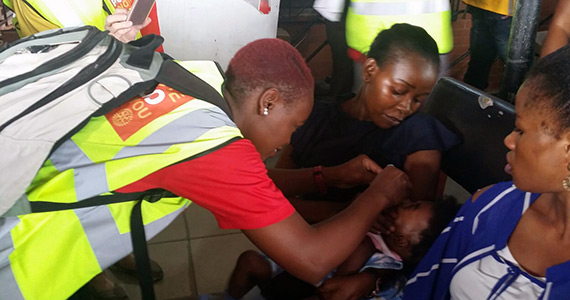 Rotary members and Rotaractors took part in World Polio Day activities as part of the West Africa Project Fair.
By Shapreka Clarke, president of the Rotaract Club of Eleuthera, The Bahamas
After an 18-hour flight from The Bahamas, I finally arrived in Port Harcourt, Nigeria, on 19 October to participate in the 11th West Africa Project Fair. As I stepped off the plane onto African soil for the first time, I did not know the adventure that was ahead of me, the lasting friendships I would make or how my life would forever be changed. That first moment getting off the plane, I remember being very excited and a little nervous. Through the sponsorship of the Rotary Club of Rancho Cotati in California, I was able to embark on this journey with 34 fellow Rotarians and Rotaractors from the United States and The Bahamas. The West Africa Project Fair, the primary purpose of our trip, gave our group an opportunity to discover the various projects Rotarians across Africa are undertaking. It also allowed us to form partnerships with projects we were interested in supporting. While at the fair, I presented with Rotaractors and Rotarians from the Bahamas, California, and Yenagoa, Nigeria, about our joint Telemedicine Project. Telemedicine allows doctors from California to connect with doctors in under-served areas to consult on diagnoses and treatment plans. Despite the distance, doctors have consistent access to mentors and educational opportunities through telemedicine. Our booth raised awareness about the project and encouraged clubs across Africa to participate, while forming new partnerships with clubs in the United States. This trip allowed me to better understand how important Rotary is in other parts of the world. I was given an opportunity to engage in field work in the local communities, create strong friendships with the West African Rotarians and Rotaractors, and participate in hands-on humanitarian and health-related work. It was truly a life changing opportunity. |
||||||
Cap City Sponsored GSE Team Member Ali MorrisAllie Morris, a Concord native and political reporter for the Concord Monitor newspaper is part of the Group Study Exchange team traveling to Mysore, India. You can follow her blog here:https://allieabroad.travel.blog/
|
||||||
Crossing the Choluteca bridge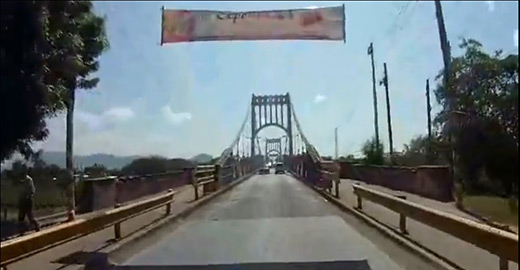 The Choluteca bridge is a suspension bridge in Honduras built by the U.S. Army Corps of Engineers between 1935 and 1937.
By Neal Beard, a member of the Rotary Club of Lawrenceburg, Tennessee, USA For the past eleven years, I have traveled to Honduras with many other Rotarians to help on numerous Rotary humanitarian projects in the southwestern part of Honduras near the Pacific Ocean and in the mountains along the Nicaraguan border.
A homestead in southwestern Honduras. The journey there takes me from Lawrenceburg via Nashville and Atlanta to Tegucigalpa, Honduras, and then down a long mountain road that connects with the Pan-American Highway that crosses this bridge. The journey is not as important as what lies on the other side of the bridge. On the other side lies my destination and that is where the adventure begins. The United States Army Corps of Engineers built this bridge between 1935 and 1937. It is one of the few replicas of the Golden Gate Bridge that still exists, and it controls the flow of traffic from Guatemala to Panamá. It serves as a metaphor for our work in Honduras, where we try to be a bridge between the advances and prosperity that we enjoy in the United States today and the less-advanced conditions and poverty that lies on the other of the bridge. For me, it is like traveling back in time about 50 years. It so much reminds me of the poverty and conditions of my early childhood when some homes around us still did not have electricity. A time when we had to rely on the charity of others, when most of the clothes that we wore were used, purchased at a secondhand store, or given to us. A time when we raised most of our food, milked cows, slopped hogs, and raised chickens. A time when we were proud of the things we had and were happy and unknowing of the prosperity that many enjoyed beyond our kin. Helping the people of Honduras have a better, healthier life is rewarding for me; it’s a way of going back and helping that young woman and child and his brothers and sisters – the young woman and siblings of my youth. You can’t pay back all of the people who helped you become who you are, but you can pay it forward and help others – that is the reward of Rotary’s humanitarian service in our world. |
||||||
Rotary - We've been doing good in the world for 100 years |
||||||
Merry Christmas & Happy Holidays
 From the Capital City Sunrise Rotary Club - the Little Club that Does
|
||||||
Cap City Spreads Holiday Cheer.JPG) For the eighth year in a row, Capital City Sunrise provided Holiday entertainment and a ham dinner for the residents of the Crutchfield building apartments, designated for eligible elderly (age 62 and over) and disabled adults.
|
||||||
Group Study Exchange (GSE) to Mysore, India
|
||||||
Australian entrepreneur announces $1 million gift to RotaryOn Wednesday, over breakfast with the Rotary Club of Wahroonga, New South Wales, Australian entrepreneur and philanthropist Dick Smith announced a donation of AU$1 million to Rotary (about US$750,000), citing admiration of Rotary members for the time they devote to others.
The Rotary Australia Benevolent Society (RABS) will administer the funds. “With 29,500 Rotarians in 1,100 clubs throughout Australia, we have an army of volunteers eager to assist those in need,” says Michael Perkins, RABS chair. “The impact of this donation will be felt throughout all of Australia, from the cities to the Outback. We are deeply grateful to Mr. Smith for trusting Rotary to use his donation to expand our work in this country.” The society will distribute the funds to Australian Rotary clubs for community service projects, beginning in February. Smith and his wife, Pip, will determine eligibility criteria. In 1968, the couple invested in a small taxi radio repair company that grew into a multimillion-dollar electronics retailer. In the 1980s and 1990s, Smith founded Australian Geographic magazine and launched a major food brand, and his aviation feats claimed headlines. In 1983, he completed the first solo helicopter flight around the world. Smith has contributed to a range of social causes, including Rotary’s polio eradication campaign. Rotary News 7-Dec-2016 |
||||||
Rotarians, Heifer International help farmers grow economy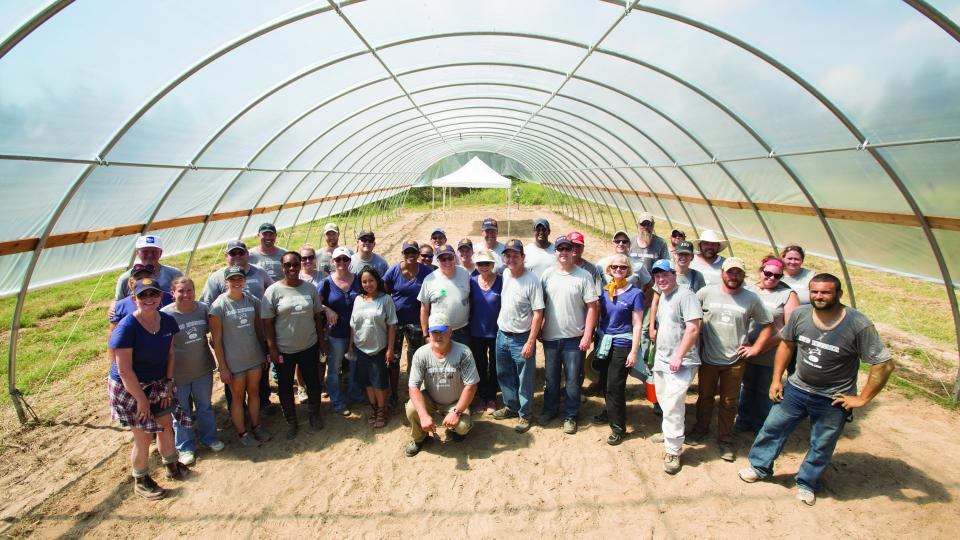 Members of the Rotary Club of Little Rock, Ark. and Heifer International staff work together to build a hoop house to seal in heat and extend the growing season for farmer Joe Carr.
Photo Credit: Miriam Doan/Rotary International “Agriculture is the lifeblood of Arkansas; it’s the state’s original business,” says Sharon Tallach Vogelpohl, an Arkansas Rotarian for nearly 20 years. But that business has become more challenging in recent years as row-crop farming has become more commoditized, making it difficult for families who have been farming for generations to make an adequate living.
Vogelpohl, who was club president during the Rotary Club of Little Rock’s centennial year in 2014, says club members wanted to mark the milestone with a project that would have a lasting, local impact. “With all the good that Rotary has done internationally, we wondered what we could do to bring that good home here in Arkansas, which is a very impoverished state,” she says. “What could we do to help our friends and neighbors in our own backyard?” The conversation quickly turned to a farming project. The Little Rock club (nicknamed “Club 99” because it was the 99th Rotary club chartered) meets weekly at the William J. Clinton Presidential Library, which is a tomato’s throw from the headquarters of Heifer International. Heifer is a nonprofit, founded in 1944, that seeks to end hunger and poverty through sustainable agriculture. Given the proximity – and that several Heifer employees are members of the Rotary Club of Little Rock, including Ardyth Neill, president of the Heifer Foundation, and Ben Wihebrink, operations director for Heifer USA – the two organizations teamed up to help Arkansas farmers. Around the world, Heifer teaches farmers how to increase production sustainably and access new markets. It also helps small-scale farmers form cooperatives, where locals can buy produce directly. The goal is to increase a farmer’s profits by about 30 percent while providing the community with more locally grown produce. A key component of Heifer’s method, and the Arkansas project, is the formation of a Community Supported Agriculture (CSA) network – a food subscription service in which consumers buy produce in advance at a fixed price, guaranteeing farmers a market for their crops, regardless of how weather or other factors may affect their output. In Arkansas, Rotarians fund Heifer’s training efforts, including an informational video, and members offer advice in their areas of expertise, like marketing, finance, and business planning. “Heifer helps the farmers with technical expertise,” Neill says. “Rotary gives them access to individual club members who want to help them directly. That means local folks helping local folks to make a difference.” The project plan calls for the establishment of a financially independent cooperative by 2018, with 45 or 50 farmers. As of last spring, the cooperative had more than 20 farmers. The CSA network, which had more than 150 shareholders in its first year, grew to 400 in its second. While the project is focused on lifting the economy of Arkansas, which has a poverty rate of 19.2 percent, Wihebrink says Heifer wants to replicate the model. “Once we have the model proven, if we go into Mississippi, Tennessee, Alabama, or another high-need area, the Rotary club will be a natural in,” he says. The Little Rock club received a global grant of $60,000 in 2013 to fund the project. Individual Rotarians support the initiative by purchasing CSA shares and using their relationships and connections to bring others into the fold. For example, a Rotary connection resulted in Baptist Health, the largest nonprofit hospital system in Arkansas, agreeing to buy CSA shares for use in its cafeteria. The hospital also created an opportunity for its employees. “Rotarian Troy Wells, CEO of Baptist Health, committed to a block of shares which were remarketed to Baptist Health employees with the incentive of being able to purchase them through a payroll deduction program,” Vogelpohl explains. “Baptist Health has been a great partner to the cooperative by promoting the CSA program to its employees and by purchasing shares for use in its cafeteria.” Wes Ward, Arkansas’ secretary of agriculture, says the conditions are right for the project to succeed. He cites a Heifer study that calculated that Arkansas spends more than $7 billion a year on food, with about $6.3 billion of that food coming from outside the state. “There’s a significant opportunity [to provide local food] in Arkansas, and small-scale producers can take advantage of it,” Ward says, adding that the time is also right on the consumer side. “People want to know where their food comes from, how it’s produced, and who grew it.” Vogelpohl concurs. “Over the past several generations, we’ve become pretty disconnected,” she says. “This is a way for us to become more connected to our agrarian roots and culture – by knowing where our food comes from and supporting something that’s making a difference in our economy.” Still, for a farming project to succeed, there is another obvious need: farmers who want to participate. Enter Joe Carr. Carr left his job at Whirlpool in 1987 to farm crops full time. In 2003, he started a farmers market that grew to more than 60 vendors. “I come from a family of farmers that go back as far as I can remember, to my grandmother and grandfather in Ukraine,” says Carr, who is 62. “After they migrated to America, my grandmother and grandfather raised sweet corn in Florida. I remember running beside the tractor as they plowed the field. In 1967, we pulled up stakes and moved to Arkansas and got into cattle farming, but I never lost my love for crop farming.” To help Carr increase profits, volunteers from Rotary and Heifer spent weekends at his farm last fall to build a hoop house – a structure of metal hoops, over which durable greenhouse plastic is tightly stretched to seal in heat from the sun. Carr says that on sunny days, the temperature inside the hoop house, which he refers to as the “high tunnels,” can reach 80 degrees even though the outside temperature is 32 degrees. The hoop house allows him to begin planting earlier than if he had to wait for suitable outdoor conditions and extends his growing season by about three months. “Building the high tunnels, that was a great boost,” Carr says. “That increased my level of production and increased my income.” He’s eager to continue to improve. “I need to increase my management skills and knowledge about what I’m doing and how to do it better,” he says. “I’m grateful for the support that I’ve gotten.” “When you find people like Joe who are committed to growing food in a responsible and sustainable manner, it’s really important to support that,” Vogelpohl says. So far, Heifer and Rotary’s partnership in Arkansas has brought more local produce to the state and increased profits for farmers. “This project has made sustainable farming a viable way of living for many families,” Vogelpohl adds. “That Heifer and Rotary were able to come together to do that right here in our backyard is really gratifying.” Paul Engleman The Rotarian 23-Sep-2016 |
||||||
Rotary-UN celebration mixes business with diplomacy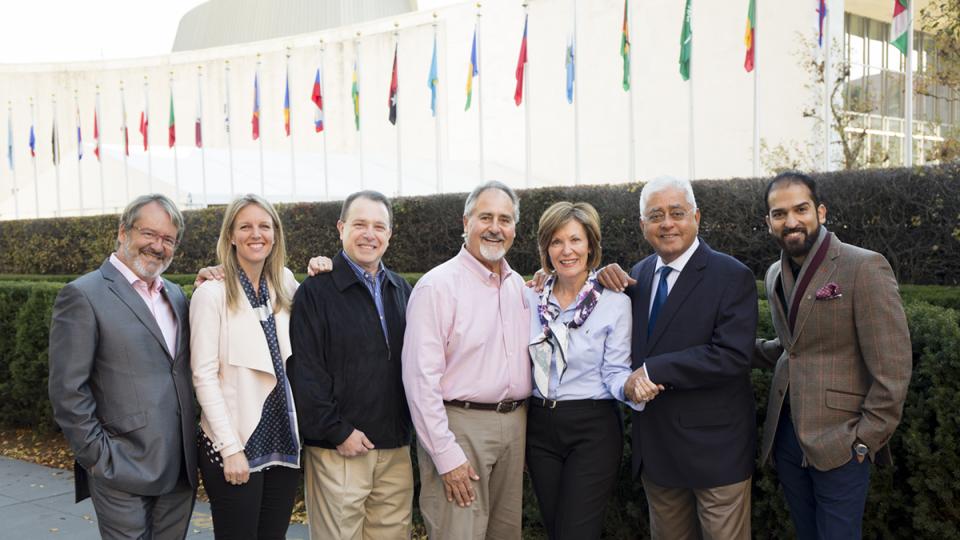 The Rotary Responsible Business honorees are, from left: Jean-Paul Faure, Stephanie Woollard, Mercantil Banco Universal representative Luis Calvo Blesa, Larry Wright, Annemarie Mostert, Suresh Goklaney, and Coca-Cola Pakistan representative Fahad Qadir. (Not pictured: Juan Silva Beauperthuy.)
Photo Credit: Monika Lozinska/Rotary International Outside the United Nations building in midtown Manhattan stands an imposing sculpture of a man wielding a sword in one hand and raising a hammer with the other. It reflects a shared goal that Rotary and the United Nations celebrated at the organizations' annual meeting on Saturday, 12 November: to use our strengths and tools to build a more peaceful and just world.
The theme of this year's Rotary Day at the United Nations, "Responsible Business, Resilient Societies," emphasizes Rotary's role as a global network of business leaders using the tools of their trades to build stronger, more prosperous communities. In his introductory remarks, Rotary International President John F. Germ drew the crowd's attention to the statue, "Let Us Beat Our Swords Into Ploughshares," as he set the tone for the day, which included breakout sessions and keynote addresses on aspects of responsible business, or the philosophy that for-profit enterprise can contribute to positive social and economic development. "Here is where the UN and Rotary International are working side by side, equipping communities with the tools they need, and empowering them with the will to use those tools far and wide," he said. Per Saxegaard, founder and chairman of the Oslo-based Business for Peace Foundation, gave a keynote address on the complex relationship between business and broader society, marked by both tension and opportunity. Despite the perception that profit alone motivates enterprise, he says, commercial success and social progress are closely intertwined. "Societal needs define markets," he said. "I have met many entrepreneurs in my career, and they all have one thing in common: They see a problem, and they say 'I can fix that, and I can do it cheaper and better.' That is the engine of innovation in business. We need that energy to solve the problems at hand," such as hunger or illiteracy. He pointed to the Sustainable Development Goals, the UN's ambitious roadmap for eliminating poverty by 2030 and highlighted the opportunity for businesses to help achieve them. Other speakers included UN Under Secretary-General and High Representative for Disarmament Affairs Kim Won-soo and UNICEF polio chief Reza Houssaini, who provided an update on the polio eradication campaign. John Hewko, general secretary of Rotary International, introduced eight Rotary Responsible Business honorees, six individuals and two corporate partners whose inclusive business practices are bringing employment, mentoring, education, and innovation to their communities. The individuals honored were: • Juan Silva Beauperthuy, Rotary Club of Chacao, Venezuela: For 25 years, Beauperthuy has helped keep disadvantaged youths on the right track through Queremos Graduarnos, an education program focused on mentoring and skill development, with support from his engineering firm. Today, the program serves more than 700 students in 18 schools. • Jean-Paul Faure, Rotary Club of Cagnes-Grimaldi, France: To encourage young professionals and provide promising new businesses with training and funding, Faure launched a business contest called Le Trophée du Rotary. Now in its seventh year, the program has drawn support from a major bank and has kept past participants involved as mentors. • Suresh Goklaney, Rotary Club of Bombay, India: Goklaney, executive vice chair of a large manufacturer of UV water purification systems, has led efforts to provide clean water in rural villages and impoverished urban areas throughout India. The project has also established centers where local women can sell clean water to generate income. • Annemarie Mostert, Rotary Club of Southern Africa, South Africa: Mostert formed Sesego Cares, a Johannesburg-based nonprofit, in 2005 to offer education and job training, and to teach entrepreneurship and leadership development to women and children. She also worked with TOMS Shoes to provide 1.3 million pairs of its shoes to the country's poor. • Stephanie Woollard, Rotary Club of Melbourne, Victoria, Australia: After meeting seven illiterate craftspeople during a visit to Nepal, Woollard founded Seven Women to help Nepalese women make products to sell abroad. The program, which has trained and employed more than 1,000 women in the past decade, also teaches basic bookkeeping and computer skills. • Larry Wright, Rotary Club of Taylor, Michigan, USA: A master gardener, Wright started his landscaping business with a bank loan in the 1970s. In 2013, he led an effort to adapt a microfinance model that had succeeded abroad to offer microloans, business classes, and mentorship to entrepreneurs in Detroit. The business partners honored were: • Coca-Cola Pakistan has supported the Rotary Pakistan National PolioPlus Charitable Trust since 2010 to promote polio prevention and awareness, particularly through publicity and projects to provide clean water, in one of the few countries where polio remains endemic. • Mercantil Banco Universal supports a project that has trained 6,000 students in 40 universities across Venezuela in social responsibility and leadership, with the goal of encouraging students to use their academic knowledge to respond to the challenges of underserved communities. In the afternoon, Rotary member Devin Thorpe spoke about the intersection of profit and purpose. Infusing a corporate program with a sense of social purpose pays off, he says, because it breeds loyalty and satisfaction among both customers and employees. "When a purpose program is profitable, there is no limit to the good that can come from it," he said. "Corporations are made up of people. We in this room bear the responsibility to shape corporate behavior, it is up to each one of us." By Sallyann Price Rotary news 12-Nov-2016 |
||||||
Capital City leads District in per capita Foundation giving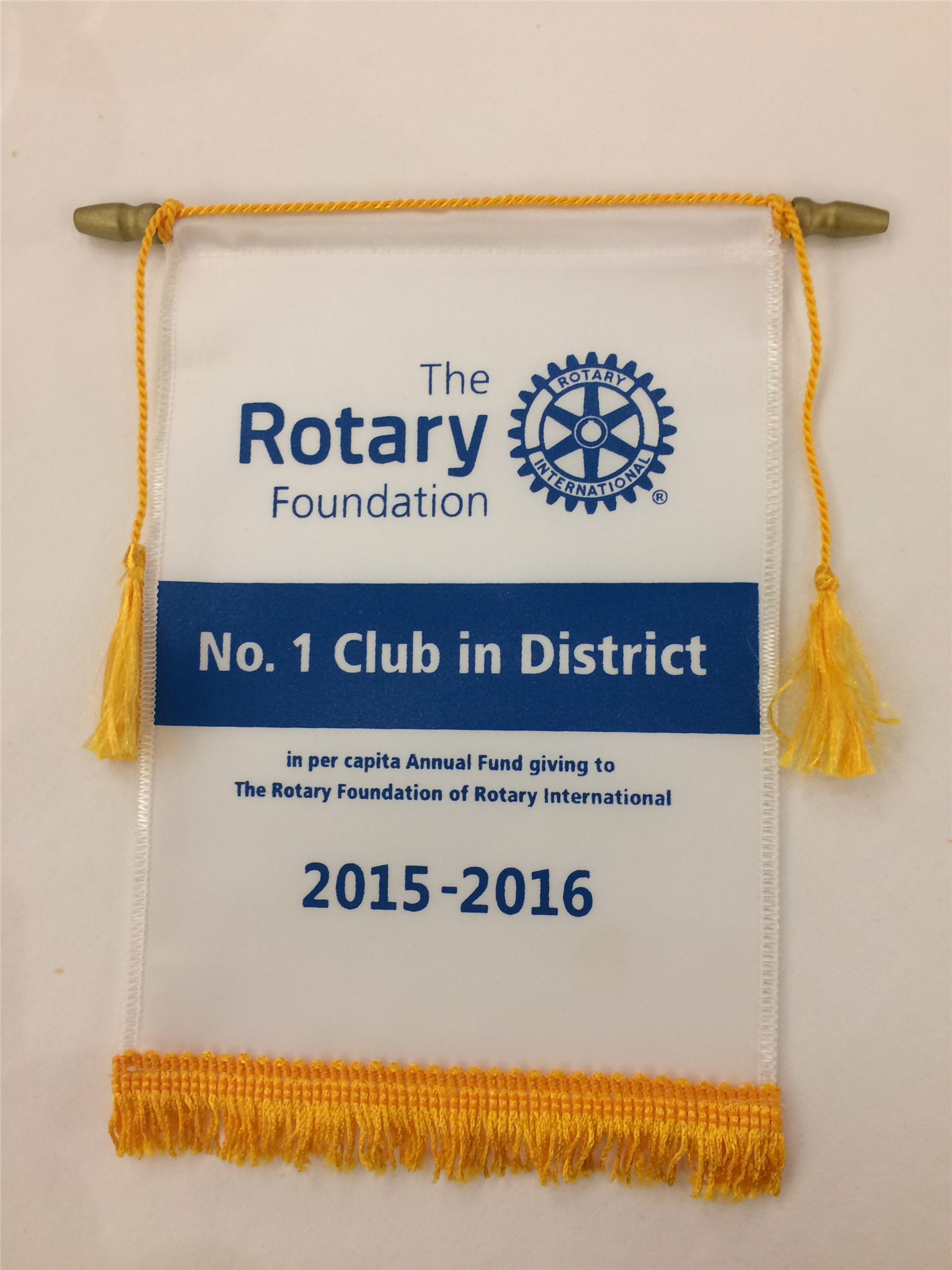 Capital City has again led the 60 clubs in District 7870 in per capita giving. The club is proud to support the Rotary Foundation and its commitment in supporting the work the charitable work world wide. The Rotary Foundation is ranked number 1 in Charity Navigator.
|
||||||
Sewing skills ease job woes in KwaZulu-Natal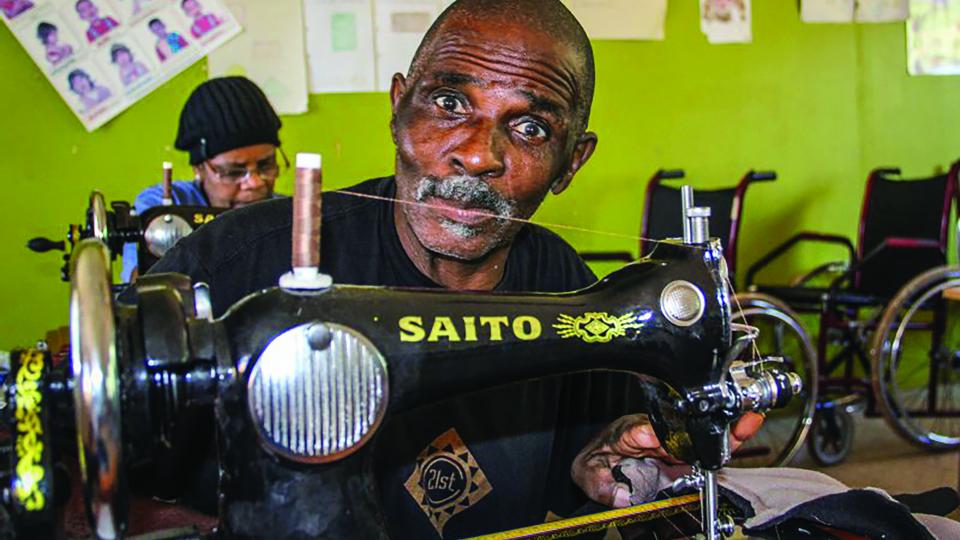 Rotarians partner with a South African group to teach sewing, computers, textiles, welding, and woodwork to Zulu people. The cost of a sewing class is $1,323.
While the picturesque Valley of 1,000 Hills outside Durban, South Africa, offers stunning scenery to visitors, job prospects for the Zulu people who live on tribal land there are bleak. Three years ago, the nearby Rotary Club of Hillcrest addressed the unemployment rate by partnering with Embocraft, a skills training group serving the province of KwaZulu-Natal. The group offers classes in sewing, computers, textiles, welding, and woodwork, with the goal of alleviating poverty.
Hillcrest Rotarians have co-sponsored four sewing courses, each lasting 15 sessions, for Zulu seniors or others who are unable to travel to industrial areas for employment. "There's not a lot of work available, so people have to travel for jobs. That can require taxis or buses, which are expensive," explains past District Governor Peter Dupen. The participants – 10 or so in each class – learned to sew basic items such as cushion covers, napkins, and pillowcases on hand-operated machines. The community selected the best students from the first three classes to participate in the fourth, which used electric sewing machines donated by Embocraft and the Rotary clubs of Hillcrest, Winnipeg, Man., and Royston, England. Hillcrest Rotarians, assisted by the Winnipeg club, made upgrades to the Phakama community center, home to the sewing training class – providing a meeting place for seniors, a kichen area, and a day care center on the other side of the building. The club also added upgraded toilets and wash basins. The sewing project has been a success, Dupen says, and the participants have sold a number of the items they made. Next, Rotarians will offer training to sew uniforms for the community's schoolchildren – giving the craftspeople some income and making uniforms more affordable to locals. "The whole project is very positive, and we're so happy to work with them," Dupen says. By Anne Stein The Rotarian 1-Nov-2016 |
||||||
|
||||||
|
||||||
|
||||||
|
||||||
|
||||||
|
||||||
Donovan continues support for Purple4PolioI Thought it might be interesting if we had a story from the UK-Editor
After launching the campaign last month, Purple4Polio Ambassador Donovan is stepping up his support for Rotary’s latest initiative which is helping to finally rid the world of polio.
Speaking to the Daily Express, the 70-year-old folk singer believes that his experiences of contracting polio as a child played a huge part in his successful musical career: “I spent a lot of time in bed as a child after having polio while my dad read poetry to me.
“It made me interested in words, writing and being creative. If I hadn’t had that experience maybe I wouldn’t have gone on to write and sing my own songs for the past half a century.
“I feel strongly that having a disability in one area makes you explore others instead. That was the case for me after having polio.”
When Rotary began its commitment to rid the world of polio over three decades ago, there were 125 polio-endemic countries, now only Pakistan and Afghanistan remain, with just 18 cases of polio contracted worldwide this year.
The fact that we are so close to completely eradicating this disease is something which inspired Donovan to get involved. Speaking at the launch of Purple4Polio last month he said, “It is a very important thing, to try and cut it out completely. Kids should not have to have it.”
As part of the Purple4Polio campaign, Rotary has partnered with the Royal Horticultural Society (RHS) to plant purple crocus corms across Great Britain and Ireland. Rotary clubs are teaming up with the RHS’ community-based Bloom Groups and have ordered over six million corms, meaning communities will be covered in a carpet of purple when the crocuses flower in the spring of 2017.
Published: Tuesday 9th August 2016
|
||||||
Member spotlight: Rod Buffington's patchwork of good deeds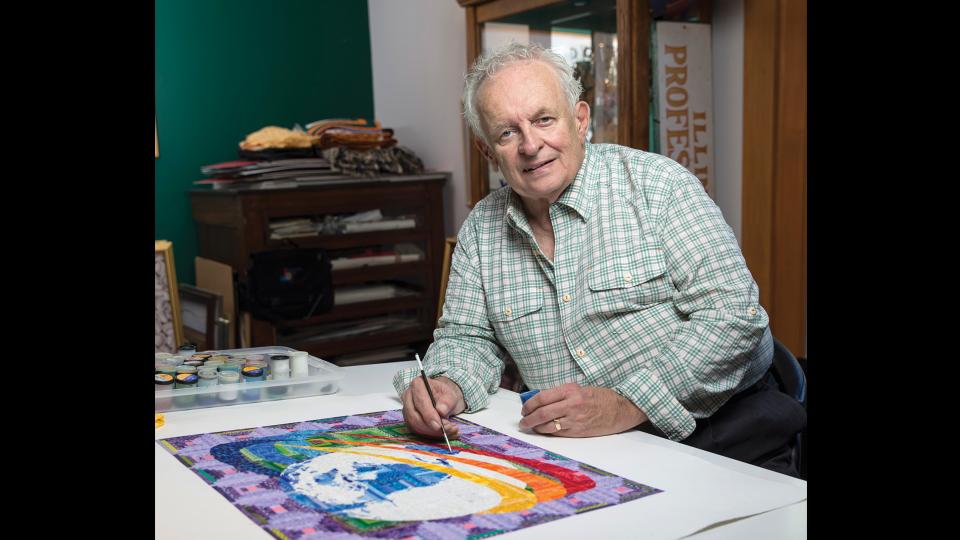 Photo Credit: Whitney Curtis
From the August 2016 issue of The Rotarian Quilts may be utilitarian objects, but Rod Buffington’s “quilt paintings” – watercolors on paper that are then covered with small bits of fabric – are geometrics where mathematics and whimsy intersect. Buffington, a member of the Rotary Club of Springfield, Ill., didn’t come up with this unusual method overnight. His voilà moment came as he beheld the mesmerizing quilts made by his grandmother, who lived to 104 and continued her craft until she was 98. To create his works, Buffington lays cotton fabric over paintings he has created, then hand-stitches silk thread through the fabric and paper. A work might include more than 1,700 areas of painting or fabric and take as long as 300 hours to complete. A past governor of District 6460 (Illinois), Buffington has used his skills to raise money to support Rotary causes. His Be a Gift to the World painting, tailored to the theme of 2015-16 Rotary International President K.R. “Ravi” Ravindran, has been reproduced as a print, with more than 100 of the unframed posters sold for $100 each to benefit The Rotary Foundation. In 2003 Buffington inaugurated Rotary Family Day at the Ballpark. Enlisting support from his area district and four others, he and other Rotarians have sold about 30,000 tickets to St. Louis Cardinals games in the past 13 years, raising $355,000 for literacy projects.
Brad Webber The Rotarian 1-Aug-2016 |
||||||
The visionaries: Young women in Peru learn to see a future for themselves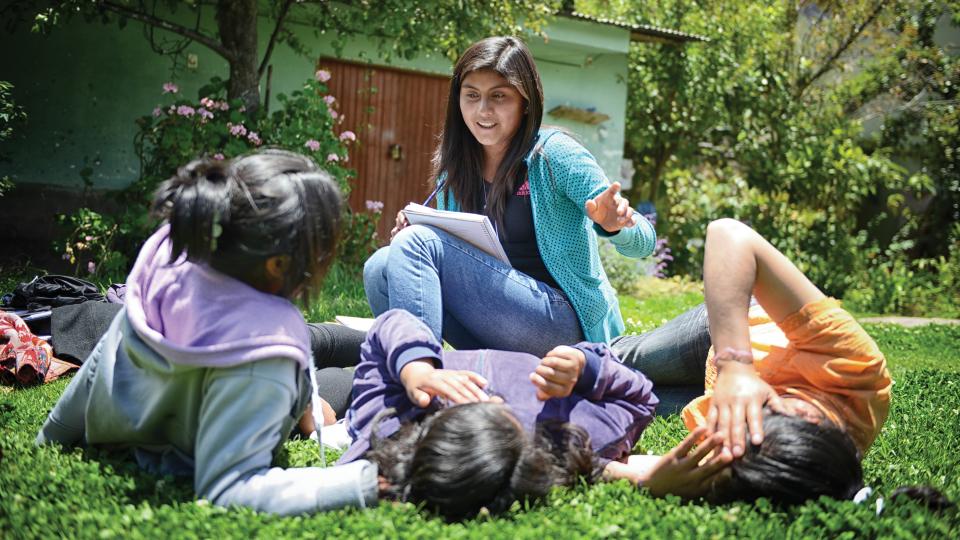 Photo Credit: Christopher Carruth
From the August 2016 issue of The Rotarian It’s 3 a.m. on a Sunday, and Katheryne Rosa Barazorda Cuellar is up, preparing to work in her mother’s soup stall in the small Peruvian town of Anta, near the Inca capital of Cusco. Smart and seemingly indefatigable, she has a quick smile and infectious laugh. Rosa is studying to be a chemical engineer, and she has unmistakable talent and drive. She needs them. Poverty, gender bias, and violence darken the lives of many young Peruvian women, including her. Rosa is lucky, though. Her family supports her. And for the past four years, so has Visionaria Perú – a Rotary Foundation-supported leadership and self-empowerment project in Peru’s Sacred Valley. Colorado Rotarians launched the summer program for adolescent girls with career and community-service aspirations. The project team hopes to generate measurably effective and sustainable empowerment projects worldwide. Peru is the first step on that ambitious journey. In Peru, women suffer higher rates of poverty and unemployment than men. About 50 percent of Peruvian women in the Sacred Valley region, which lies outside Cusco, will suffer severe physical or sexual intimate-partner abuse during their lifetimes, the World Health Organization reports. Meanwhile, Peru’s environment suffers. Peruvians – particularly in rural areas – endure high levels of smoke from cooking over indoor fires. About 4 million of the country’s 30 million residents lack access to clean water. Untangling such a knot is difficult. In 2012, members of the Rotary Club of Boulder’s New Generations pilot satellite club came up with a plan to address all of those problems by concentrating on empowering local women – specifically in their ability to make and act upon their decisions. The town of Urubamba shares its name with the river that flows past shops, farms, and ramshackle buildings painted with candidate ballot symbols from the 2011 general election – a soccer ball, a mother and child, a purple striped potato, a traditional cap. Downstream, the river snakes far below the misty ruins of Machu Picchu and tumbles toward the Amazon River. Here, well-heeled tourists may drop $475 apiece – nearly the mean monthly salary in Peru – to ride the Hiram Bingham luxury train from Cusco to Machu Picchu. Visitors glide past squalid barrios where grandmothers bathe in ditches, children may breathe toxic indoor stove smoke, and dogs paw through piles of garbage, seeking food. On an early January morning in Urubamba’s La Quinta Eco Hotel, young women gather for a weeklong leadership training institute through Visionaria Perú. The girls – the team calls them visionarias (female visionary, in Spanish) – come from both the bucolic Andes and the noisy city. Most receive tutoring, scholarships, and other help from Peruvian nonprofits such as project partner Peruvian Hearts, which supports Rosa. Sitting in a circle, the young women each take a small piece of paper and write a fear they harbor. They put their paper in a hat, and each (anonymous) fear is read aloud and discussed. Genevieve Smith, a Rotarian and program director of Visionaria Perú, works with them to understand that shame and fear need not stifle their personal or professional growth. This “fears in a hat” exercise is one of the lessons taught during the institute, in which visionarias are coached on leadership skills, professional growth, environmental awareness, and self-esteem. The training follows a 150-page curriculum developed by Colorado Rotarians in partnership with local Peruvian professors and experts. “Before, I never really thought much about how I treated myself. I always used to tell myself ‘You can’t’ and ‘You’re so stupid because you messed up,’ ” one participant says after the training. “But not now. Now I know I should treat myself better. And I know that when I fail, it’s just a chance to learn how to do something better the next time around.” At the end of the institute, the visionarias form teams and enter one of three activism tracks: improved cookstoves, water and sanitation, or solar lighting. The activism tracks give participants the chance to exercise their skills by working on sustainable development projects they envision and carry out from beginning to end. Members of the Rotary Club of Cusco attend portions of the leadership institute to review and provide feedback on the girls’ community project plans. They also participate during implementation of the projects and attend the final celebration to review and support the girls’ achievements. A mentor and local NGOs assist each team in project planning and implementation, and Rotary Foundation-supported vocational training team members such as Smith participate. The project started in 2012 when Smith, then a Rotaractor, was in Peru through her studies at the University of Colorado Boulder and visited a hogar (home for girls) supported by Peruvian Hearts. There, she asked the girls what kind of support they would need as they got older. She found out that while the students in Peruvian Hearts’ college prep program were smart and qualified to attend a university, they lacked confidence and felt discriminated against because of their indigenous, and often troubled, backgrounds. Smith crafted a project plan to support the girls by the time her bus took her back to where she was staying. Marika Meertens, a Rotarian with experience at Engineers Without Borders, pitched the Peru project to the Rotary Club of Boulder’s New Generations members. And Abigale Stangl, who has been working alongside one of her instructors at the University of Colorado to produce metrics that show how well the project works, “got on board as soon I heard about the project,” she recalls. The trio is the driving force behind the project. They assumed roles reflecting their strengths: Smith with planning, Meertens in fundraising (including two global grants totaling $55,000 from The Rotary Foundation), Stangl with project evaluation. Evaluating the annual program design and execution is one thing. “Measuring empowerment is a different kind of challenge,” Stangl says. In four years, 55 visionarias have installed 62 cleaner cookstoves, sold 61 water filters and 75 solar lanterns, and addressed 145 students in workshops. Some 1,640 individuals have been touched by this work, Visionaria Perú calculates. Visionarias themselves report positive results in their own lives: 80 percent said participating in Visionaria Perú improved their status in their communities, and 100 percent agreed or strongly agreed that the program improved their capacity to imagine and create change in their lives and the lives of others. “The program helped me a lot because I had visions and goals, but I did not feel capable in making decisions,” says one girl in an assessment. “Now I am capable of making decisions and taking risks for my life.” Peruvian Rotarians are preparing to take full control of the project once Rotary funding ends this year. Flavio Miraval, past president of the Rotary Club of Cusco, is working to form a nongovernmental organization to carry on the work. Colorado Rotarians have sought local input every step of the way, including cultural adaptation of lesson plans, involvement by local NGOs, and adjusting the program to fit participants’ priorities. That transfer back to local control, the final objective of the Rotary project, is what the group means when it speaks of “sustainability” and is an important component of any vocational training team project. With all metrics in hand, Colorado Rotarians want to replicate the empowerment program for women in other countries and continents. Since 2014, the team has conducted empowerment, leadership, and business training in 10 countries, including Bolivia, Kenya, India, Uganda, and Guatemala, with funding from USAID, German partner GIZ, and the United Nations Foundation. The team recently launched Visionaria programs in two Peruvian schools and plans to expand throughout the country. It is designing a mobile-friendly online platform to allow visionarias to share their visions with one another. This team doesn’t think small. Meanwhile, Rosa believes she will find a good job in chemical engineering “with perseverance and with my sacrifice.” Getting to the university in Cusco is a four-hour trip several times a week, but the time she has put in has borne fruit: She just completed an internship at a top laboratory in Lima, Peru’s capital. That lab offered her a chance to pursue her thesis work this fall. She works hard but is grateful. She is quick to credit Peruvian Hearts for its steadfast support. And she praises Visionaria Perú, which helps “us to believe more in what we may be able to achieve each day, empower us, and give us strength to achieve our dreams.” But the young Rotarians behind Visionaria Perú believe that such power and strength existed all along and that their work to unleash adolescent girls’ powerful visions has only begun. Clint Talbott The Rotarian 28-Jul-2016 |
||||||
Capital City Sunrise Rotary Club Scholars for 2016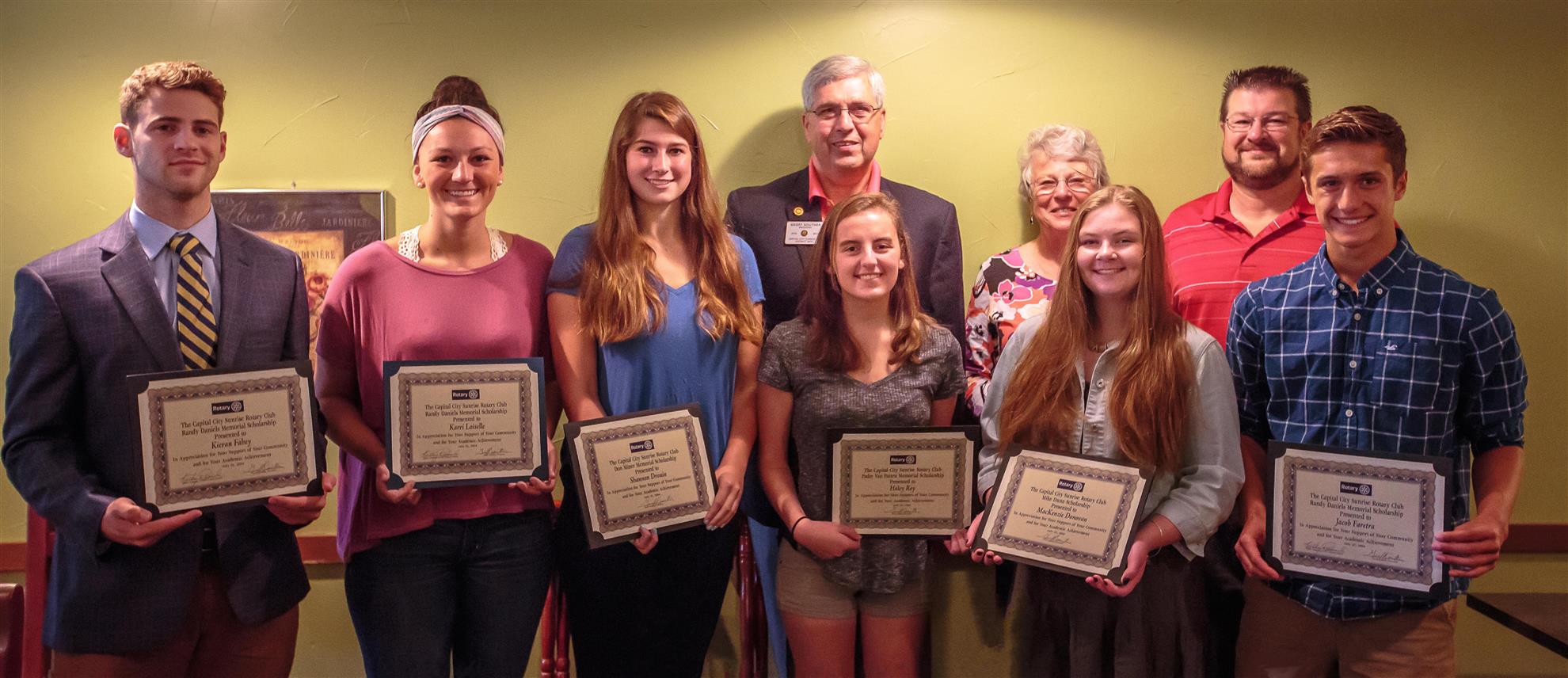 Photo caption: 1st Row L to R: Kieran Fahey, Karli Loiselle, Shannon Drouin, Haley Roy, MacKenzie Donovan, Jacob Feretra. 2nd Row: Capital City President Geoff Souther, Kathy Daniels, Tim Daniels
Capital City Sunrise Rotary awards 6 scholarships
Concord, NH – The Capital City club and the Daniels family presented 6 scholarships to graduating seniors from area high schools. All the recipients were chosen not only for their academic achievements but also for their outstanding community service. The Daniels family presented 3 awards as a memorial to past Rotarian, Randy Daniels, to: Jacob Feretra, Bishop Brady; Kieran Fahey, Bow; and Karli Loiselle, Pembroke. Capital City awarded the Don Miner (founder of the club) Memorial Scholarship to Shannon Drouin, Bishop Brady; Padre Van Patten (long time member and past president) Memorial Scholarship to Haley Roy, Merrimack Valley; and the Mike Dunn (named in his honor for his incredible generosity) Scholarship to MacKenzie Donovan, also from Merrimack Valley. |
||||||
Capital City Rotary's Founder - Don MinerDon Miner passed away 11 years ago – he was the founding member of the Capital City Rotary Club in 1982, its first President and a friend. Padre Van Patten and I shared officiating duties at his memorial service and this is what I said:
If Don were here, this would be a roast, but since it’s he’s not, it’s a reminiscence.
My first encounter with Don was in the early seventies when we played in a Thursday night golf league. Over a several-year period, we played at Plasawa, Beaver Meadow and Concord Country Clubs and after golf, had a catered supper at the Wonalancet Club at the corner of North State and Pleasant streets. Don, unfortunately, was always on the other team and frequently I’d get paired up against him in a foursome. Don was a fearsome competitor, but just an average golfer. His advantage was his gamesmanship. He’d talk all the way through his opponent’s shots which was especially maddening and distracting to some. I figured out what he was up to and returned him the favor. This brought me some peace when it was my turn to hit.
Don the Rotarian.
In 1982, Don, a member of the Concord Rotary Club, thought it was time to start another Rotary club in Concord. An evening club was best, and he reasoned that a Monday club would be good – to take advantage of Monday holidays. Why meet 52 times a year when you can meet around 45 ?
Using the word determined to describe Don in his quests is like calling Mohammed Ali a good sparring partner. Don launched into creating the Capital City Rotary Club with his typical no holds barred, take no prisoners style. No one was safe.
He had a unique style of recruiting new members. “And where does your husband work.” He would inquire when introduced to a woman. When asked if he was looking for a date . . . “No, no, he’d reply, “I’m just trying to find out if the husband would be a good fit for Rotary.” This was obviously in the days before women in Rotary.
Bill Wiley was Concord Rotary Club president that year. “I’d arrive at my office on Loudon Road early and Don would have club charter papers ready for me to sign. He would have been there for a while entertaining the receptionist with stories of his sister as ‘Madge’ the Pomolive salesperson.” John Kennedy, who was that year’s Rotary District Governor, remembers Don as a great Rotarian, friend and man of action - one who gets it done!
Capital City Rotary club was chartered with 25 members, all of whom were recruited by Don. He was the first president in 1982-83, I transferred to his club that year from Concord Rotary.
Don took his role as the godfather of the Capital City Rotary Club very seriously, phoning the presidents who followed him – sometimes very early in the morning (I remember a 6 a.m. call) or very late in the evening - with tidbits of advice – some seemingly important to him but not necessarily to us. At our house, my young daughters would announce his calls by saying “Dad, it’s that man again”.
Major Wheelock followed Don as President of Capital City. Unfortunately, he was not able to be here today and emailed me the following:
Don loved his family, interaction with other people, golf and Rotary, perhaps the latter two more than most people will ever know. He invested untold hours getting the new club started in Concord and did it "his way" (which was the way he did most things - - he always had his agenda planned way in advance) An example of that was when he was scheduled to end his term as the first President of the Capitol City Club. It is customary that the outgoing President be given some gift from the club for his/her service and we were thinking that a Paul Harris fellowship or some such thing might be appropriate. However, Don had something else in mind - - he told me (as the incoming President) that he wanted a set of Ping irons and that he had already reserved the set he wanted at the Beaver Meadow Pro Shop. Once again, Don had anticipated and planned what he wanted to happen, rather than simply hoping that we would have thought of golf clubs as our gift to him. He was an American original!
Don, as you know, was a salesman, but when it came to Rotary, he would definitely ‘kick it up another notch”. It didn’t matter whether it was raffle tickets, sponsorships, or ads for our fund-raising book, Don would outsell all of us. His technique was pretty simple – he’d visit potential targets so many times that eventually they’d buy so he wouldn’t call on them until the next time - - It worked.
As a consumer Don believed is getting the best deal when making a purchase – he’d often ask for the “Clergy discount”. It certainly produced a smile if nothing else.
Don was tireless in raising funds for good causes in his lifetime – whether as President of Hingham Rotary, it was books for India or a new roof for the White Church in Hingham - to his numerous projects for his Rotary Clubs in Concord. Like it or not, we benefited from his zeal. Don recently asked “Do you think I’m an Itch?”. Yes, Don, you were – a good, well-meaning itch.
I think all of us would like you back for a good long scratch!
Tony Gilmore
|
||||||
Rotary Team Rerouted by Terrorist Attack – But That’s Not the Full Story!.jpg) Installing solar panels on the Administration building roof.
By Ron Smith, Zone 32 Rotary Regional Foundation Coordinator On the morning of March 22, a Global Grant travel team of six people were on their way home from Sierra Leone, West Africa, and found themselves in Brussels airport when the terrorist attacks occurred.
“We were in the secure area of the airport, and the attacks occurred in the unsecured area, so we didn’t hear the explosions,” noted Herb Klotz, team leader from Allentown West Rotary club in District 7430. “We were ushered to the end of the terminal and out onto the tarmac. Eventually, we were bussed to a nearby train terminal, had to make hotel arrangements on the fly and figure out how to get a flight home.” More on Brussels later.
The more lasting story is about the work being done by Rotary and Engineers without Borders (EWB) with the local community and school alumni at the Centennial Secondary School in Mattru Jong, Sierra Leone. The school’s infrastructure was destroyed during the civil war that occurred in Sierra Leone during the 1990s. For two years during the war, rebels used the school as a local base of operations. Before the war, Centennial was one of the best secondary schools in the south of Sierra Leone. The school currently has about 1200 students in grades 6-12.
In 2009, the school alumni submitted an application to EWB asking to rebuild the school’s infrastructure (water, electricity, sanitation, buildings). The Lehigh Valley Professionals EWB chapter (EWB-LVP) accepted their application and began work in 2010. In 2011, District 7430 partnered with EWB-LVP and the Free-town Rotary club to obtain a $50,000 Future Vision Grant for water and electricity for the school. This was a game-changer for the project.
Since that time, EWB-LVP and Rotary have gone on eight trips to Centennial school to install solar-powered running water throughout the campus, solar-powered lighting in classrooms and the administration building (there is no electric grid), toilets in the boy’s and girl’s bathrooms and a new roof on a classroom building.
Both EWB and Rotary emphasize the importance of sustainability on all projects. In 2012, the school implemented a development fee, which is a small student fee collected each term to pay for maintenance and operation of all the infrastructure, including the salary of a maintenance technician. All infrastructure that has been installed in the last six years is in good working order, and that is a major accomplishment in Sierra Leone.
With improved infrastructure, the next step was education. In 2014, the Allentown West (D-7430) and Bo City (D-9101) Rotary clubs partnered on a $30,000 Global Grant with area of focus in Literacy. This grant supplied teacher training, library books, computers, printers and solar power equipment for the library.
The grant has already had a positive impact on the school. For example, the students’ test scores have improved dramatically during the past few years. From 2011 to 2015, the percentage of students passing the BECE test to enter 9th grade increased from 14 percent to 91 percent! Thanks to Rotary and Engineers Without Borders, the school is on its way back to being one of the best schools in Sierra Leone.
As promised, let’s go back to Belgium. After they were evacuated from the airport, the travel team made its way to the Belgian town of Leuven where they booked into a hotel and proceeded to “wait it out.” Cindy Hornaman (Governor Nominee Designate of District 7430 and spouse of Chris who was on the travel team), found the Leuven Rotary Club on the Internet and phoned the contact listed: Frank Op 't Eynde. Frank’s first words were: “Can you give me 10 minutes to get to the hotel?”
The Belgian Rotarian immediately stopped whatever he was doing, contacted his club President, and in less than an hour, the Leuven Rotarians and the Pennsylvania team were in a pub having lunch and planning the trip home. Frank made sure the team had whatever they needed. And the help from the Leuven Rotary Club didn’t end with their departure: The club continued to help two of the team get their carry-on luggage — left at the airport terminal during the attack — safely returned to them.
What remarkable examples of “Service above Self!”
|
||||||
Miss NH 2016 Speaks to Capital City Sunrise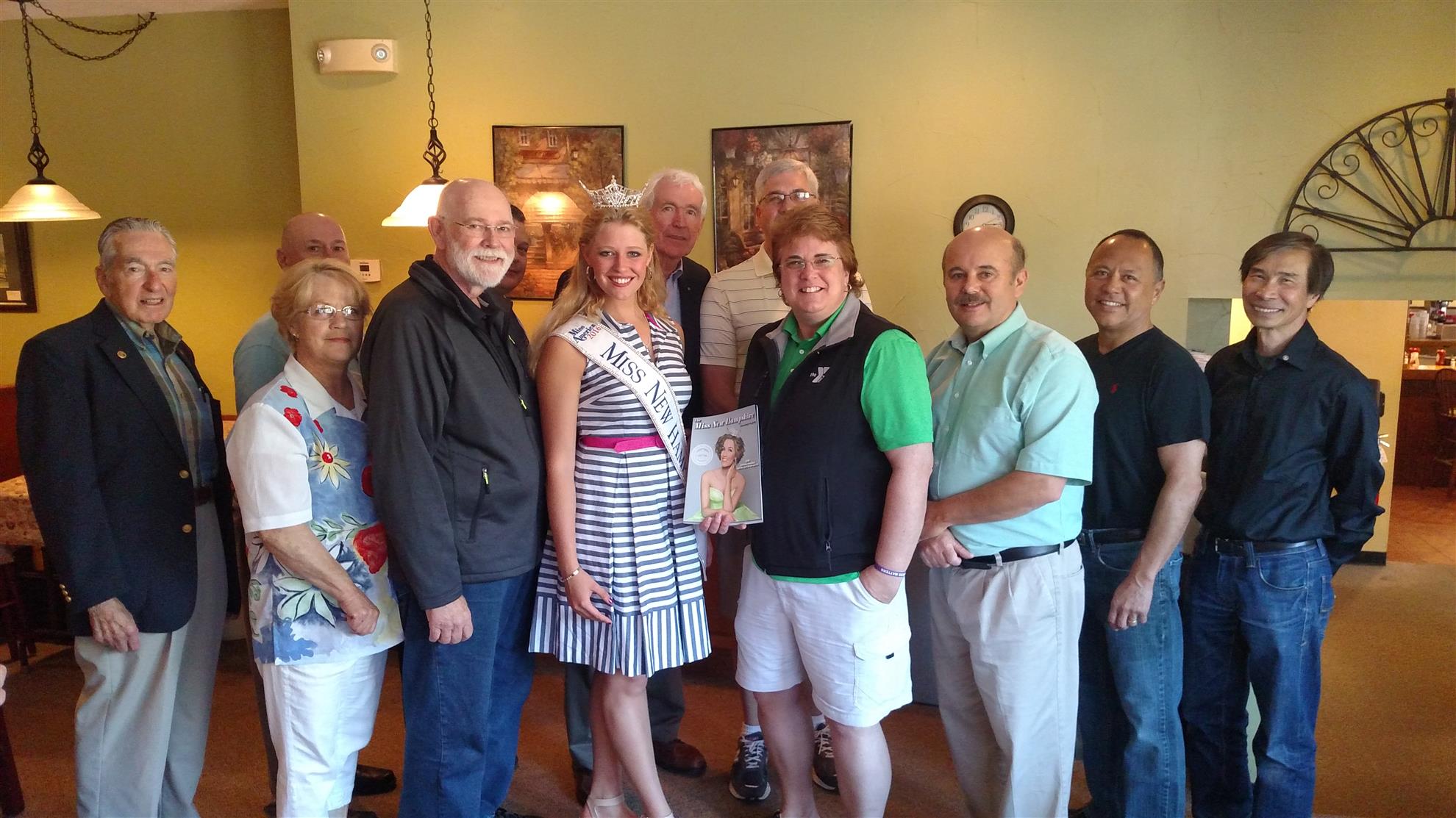 Miss NH 2016. Jessica Strohm speaks to the club
|
||||||
Cynthia Salim: Former Rotary Scholar makes clothing with a conscience Photo Credit: Rotary International / Monika Lozinska
From the July 2016 issue of The Rotarian The way Cynthia Salim sees it, the fashion industry doesn't have much to offer a young, socially conscious woman like her when it comes to work clothes.
"The fashion industry often does 'sexy' or 'fun' or 'hip,' and things that encourage frequent purchases," the 29-year-old says. "It's very rare that the design community will design something that will make a young woman look credible and influential as well as timeless." Add "and is ethically made" to that list, and it becomes a tall order that Salim became increasingly frustrated trying to fill when she needed clothes for her job in international affairs in Geneva and later as a management consultant. So she decided to do something about it. Salim started a company to produce high-quality, classic women's wear constructed of socially responsible materials and made by fairly paid workers in environmentally friendly factories. It took more than two years to source the right suppliers and track down partners who met her high standards, but in April 2015, Salim launched Citizen's Mark, an online retailer that bills itself as "the lifestyle brand of the socially conscious, empowered woman." When Salim talks about how she did it, it's clear that starting her own company was more than just a way to make money. "I've always been really interested in social change," she says, "and this was such an interesting and unique way to create change from a sector and industry that doesn't have as much social change work going on." It's an interest she nurtured during her undergraduate years at Loyola Marymount University in Los Angeles, a Jesuit school with a strong tradition of social responsibility. It became a central focus of her life when she won a Rotary Ambassadorial Scholarship to pursue a master's degree in human values and contemporary global ethics at King's College London. "I was so grateful to have had that opportunity, to have Rotary put their trust in me and in that program, which doesn't have a clear career path," Salim says. "But the time I had was really valuable in helping me see that there are so many ways to make change, everyone has a role whether it's in policy or advocacy or business." At Loyola, Salim met Fred Kiesner, a 52-year veteran of Rotary and the school's chair of entrepreneurship (now retired). Kiesner, who became Salim's mentor, remembers her as "probably the most ethical and socially responsible young person I've ever met." "A lot of Ambassadorial Scholars do it for the learning and the fun of living in a foreign country, which are not bad reasons," Kiesner says. "Cynthia did it because she knew it was giving her the foundation and knowledge upon which she would build a powerful and impactful life of giving and contributing." Salim realized there was a market for high-end, ethically made work clothes after meeting "all these incredibly committed, smart women who were socially conscious about all areas of their lives, whether it was the impact they had at work or through their purchases." Tragedies at poorly built, shoddily maintained factories – such as the Rana Plaza facility in Bangladesh, which collapsed in 2013, killing 1,137 people – have raised consumer awareness of the garment industry's ugly side. Workers at the factory made as little as 12 cents an hour and worked 90 to 100 hours a week, with just two days off a month. Citizen's Mark will eventually carry a full line of clothes, but for now it has just one item: a blazer available in four styles and three colors that Salim designed herself and calls the quintessential "go to" piece that every professional woman needs. Salim's search for the highest quality fabric took her to the historic wool mill city of Biella, Italy, where she toured mills and interviewed owners about "their track record in social and environmental responsibility." When she found a mill that purified the water it uses in the dyeing process before returning it to the stream, she signed up. Then it was on to Portugal, home of some of the world's best pattern makers and suit manufacturers, where she found a factory that runs on 30 percent solar power and provides living wages and full health care coverage for its employees. That all sounds great, but expensive. So it's surprising to hear Salim say that Citizen's Mark's prices, which range from $425 to $475, are "incredibly competitive" with similar brands. "The cost to produce something well and responsibly does not necessarily mean a luxury markup," she says. "In fact, [we're] underpriced compared to the competition, because the competition that's using this [same] level of fabric and construction tends to be in the luxury space, where markups are 8, 10, 12 times" the cost of production. (In fact, a check of women's wool blazers at luxury brand Hugo Boss shows they start upwards of $535.) Sales are growing steadily, Salim says, and customer feedback has been positive. She says an industry insider told her a few months after launch that the brand "really resonates with a message that's clear and sharp and strong and timely." But not everyone has been so encouraging. "I've already heard pressure from the industry to market Citizen's Mark as something more fun and hip," Salim says. Her response is that she's catering to a new type of customer – a socially responsible working woman "who loves what she does, does it well, and gets to wear cool, chic clothes." Kiesner says Salim knows exactly what she's doing. "For Cynthia, her company is just a continuation of her values, ethics, and social responsibility," he says. "I taught entrepreneurship for 45 years, and we talk about social responsibility a lot in my field – an entrepreneur who creates a business that also does good in the world. She is the epitome of that." By Heather Maher The Rotarian 23-Jun-2016 |
||||||
Altruism: Individual serving Illustration by Dave Cutler
From the June 2016 issue of The Rotarian The sun rises on a new school day. In rural Ganguli, India, 450 students climb aboard school buses. Five years ago they couldn’t have gone to school because the distance from their village was too far to walk. In San Agustín, Ecuador, students used to attend classes in the town morgue when it rained, because their school had no roof. Since 2012, hundreds of children there have learned to read and write in a real classroom. Quietly orchestrating these and other projects was Vasanth Prabhu, a member of the Rotary Club of Central Chester County (Lionville), Pa. When he was growing up in India, education was not free, and he saw how hard his father worked to pay for schooling for eight children. Understanding how school can change a person’s life keeps Prabhu working to provide education to those with no access to it, he says. “I feel that everyone is a diamond in the rough,” he says. “But it must be cut and polished to show its brilliance.” So instead of spending his money on luxuries, he is using it to bring out that brilliance. There are three ways we can deal with enormous problems and our emotional responses to them. We can let them overcome us until we feel too paralyzed to act. We can bury our heads in the sand. Or we can act. And when we help others, we often find that we benefit as well. “Taking action allows me to exercise passion,” Prabhu says, “to give it a good place to go.” James Doty, director of the Center for Compassion and Altruism Research and Education at Stanford University, wrote Into the Magic Shop: A Neurosurgeon’s Quest to Discover the Mysteries of the Brain and the Secrets of the Heart. “We’re adapted to recognize suffering and pain; for us to respond is hard-wired into our brain’s pleasure centers,” says Doty. “We receive oxytocin or dopamine bursts that result in increased blood flow to our reward centers. In short, we feel good when we help.” Caring for others brings other benefits, too. “When we engage in activities that help, it also results in lowering our blood pressure and heart rate,” he notes. Research shows that it can help us live longer. And the good deeds we do can inspire others. On the flip side, Doty says, “People can create mistrust or fear by implying that another group is threatening our safety. When that happens, fear or anxiety makes us want to withdraw into our own group and not care for others. Hormones are released that are detrimental to long-term health. But generally speaking, most people will be kind and compassionate to other people.” For years, Peggy Callahan has told stories that are hard to hear. A documentary producer covering social justice issues, she’s also a co-founder of two nonprofits working to help people who are enslaved or caught in human trafficking. But perhaps paradoxically, her difficult work brings her happiness, and, thanks to neuroscience research, she understands why. “When you do an act of good, you get a neurotransmitter ‘drop’ in your brain that makes you happy,” she says. And there’s a multiplier effect: “Someone who witnesses that act also experiences that, and remembering that act makes it happen all over again.” She wondered how she could leverage that. The result was Anonymous Good, a virtual community and website where people post stories or photos of acts of kindness they’ve carried out, observed, or received. For each act posted, website sponsors make a donation to feed the hungry, free people who are enslaved, plant a tree for cleaner air, or dig a well for clean water. “One act of good is much more than simply one act of good,” says Callahan. “It’s part of a much bigger force.” Like Prabhu and Callahan, P.J. Maddox – a member of the Rotary Club of Dunn Loring-Merrifield, Va. – has felt the joy of tackling issues that seem too big to face. Rotary projects she has supported include funding a nurse-led clinic in war-ravaged rural Nicaragua. She has also mentored and made a Youth Exchange trip possible for a student otherwise unable to participate because of hardships at home. “Some problems are so complicated and huge, it could be easy to say, ‘Why bother?’” Maddox says. “But in addition to Rotary’s power of collective talents to make something happen, I realized that the outcome of these projects wouldn’t have been what they were if I wasn’t there. I realized that a single human being can change the world.” As the sun sets around the globe – as students in India head back home on the school bus, as pupils in Ecuador close their books for the day, and as people in many places are well-fed, free, and happy – the world looks a little different. Because one individual extended a hand, there are people newly ready to change the world tomorrow. Carol Hart Metzker is the author of Facing the Monster: How One Person Can Fight Child Slavery and a member of the E-Club of One World D5240. By Carol Hart Metzker
The Rotarian 1-Jun-2016 |
||||||
Polio – Bivalent vs Trivalent Vaccines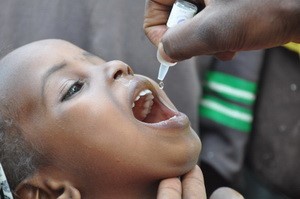 By Pat Killoran, Zone 24 West End Polio Now Coordinator
As part of the End Polio Now strategy, last April The World Health Organization transi•tioned from trivalent Oral Polio Vaccine (OPV) to bivalent OPV .
What does this mean … and what are the implications? There are 3 types of polio virus (known as 1, 2, and 3). The trivalent vaccine being used for some time now was designed to address all three types of polio. However, Type 2 wild poliovirus has been eradicated with no cases being detected globally since 1999. Despite the high degree of effectiveness, in the past two years the Type 2 component inthis vaccine has been responsible for 98 polio cases that developed from the vaccine itself (circulating polio vaccine cases). Many of these cases were the result of vaccina•tion campaigns in non-endemic countries. The trivalent Oral Polio Vaccine (OPV) contains a live but weakened virus, which in very rare cases can genetically revert to an active form of virus (circulating vaccine-derived poliovirus, or cVDPV) and, in even rarer cases, can cause paral•ysis (vaccine-associated paralytic polio, VAPP). Since there is no longer any circulating Type 2 wild poliovirus, the risks associated with the Type 2 component of the Oral Polio Vaccine now outweigh the benefits as follows: ¨ The Type 2 component of the oral vaccine causes around 40 percent of vaccine associated paralytic cases and over 90 percent of circulating vaccine cases.
¨ The Type 2 component of the oral vaccine interferes with immune response to types 1 and 3. To fully eradicate polio, we need to eliminate vaccine-derived polioviruses by graduallyphasing out oral vaccines entirely. This began in April with the removal of the Type 2 component of the oral vaccine. The switch in vaccines has been a globally synchronized event that involved every health worker, in every facility, in every country using oral vaccine. All countries — and all health facilities — were required to stop using trivalent vaccine, and any remaining trivalent stock must be destroyed so as not to put neighboring communities at risk of a circulating trivalent vaccine outbreak. This is a real milestone on the road to polio eradication. What are the key messages for Rotarians related to this change? The general public may not be aware that there are 3 types of polio viruses and there•fore may not ask about it. However, Rotarians need to be ready to reassure any ques•tioners that the bivalent oral vaccine simply replaces the trivalent vaccine. It follows the same immunization schedule and has the same attributes for administration as the tri•valent vaccine. Besides the active bivalent polio vaccine (drops), there is an inactivated polio vaccine (IPV) which is administered by injection and will help to protect children against po•liovirus types 1, 2, and 3 and will also help boost protection against paralytic poliocaused by the Type 2 poliovirus. The IPV is compatible and safe either with the new bi•valent vaccine or, if administered following the bivalent vaccine, offers additional pro•tection against types 1 and 3. |
||||||
Global movement needed to reverse water crisis Gary White, chief executive and co-founder of Water.org, explains his organization’s microfinance program to attendees at the World Water Summit in Seoul on Friday, 27 May.
this year's World Water Summit on 27 May in Seoul highlighted the progress being made:
• Over the last 25 years, more than 2.5 billion people gained access to improved drinking water, and 2 billion who didn't have adequate sanitation now do. • Child deaths from water-related diseases dropped from 1.5 million to just over 600,000. • The UN Millennium Development Goals' target for clean drinking water was met five years ahead of schedule. But for the 1.8 billion people whose drinking water remains contaminated and the 2.4 billion without access to proper sanitation, progress is still too slow, said Vanessa Tobin, director of water and sanitation for Catholic Relief Services and one of the event's main speakers. Mirroring the polio eradication movement "We need a movement," Tobin declared, saying it should follow Rotary's polio eradication model. "Polio was universal and everyone had one aim: eliminate every case in the world. We need to set a goal that by 2030 every child has safe water and sanitation for life. "Water and sanitation must be at the top of each country's development agenda," she said. Gary White, chief executive and co-founder of Water.org, agreed and told attendees that charity alone won't solve the global water crisis. White said that it would take five years and $1 trillion to provide and maintain safe water access for all, but international aid totals only $8 billion each year. His organization is making it possible for people in need to help pay for their own clean water and sanitation. "People who live in poverty or are coming out of it in developing countries want to pay for water security, not just for practical purposes, but for social and financial purposes," White said. His organization established WaterCredit, a microfinance program that offers loans to families in need of water connections or toilets. The program's repayment rates exceed 99 percent. "Giving people the capital to ensure water security gives them the dignity they want and need," he added. Matching expertise with action The water summit, the eighth convened by the Water and Sanitation Rotarian Action Group, seeks to match industry expertise with Rotary service projects. Francis Barram, a member of the Rotary Club of Centurion in South Africa, came to the water summit to find partners for a project to clean up sewage-filled rivers in Johannesburg. "People here [at the water summit] are passionate about finding solutions for clean water. And more importantly, they know what they're doing," said Barram, who joined the Rotarian Action Group last year. "Our club found the need, and we can pull together the support, but we need the technical know-how. This event can help me find that." Breakout sessions focused on sustainable strategies for getting clean water and sanitation in schools, partnerships, financing, climate change, and safe drinking water systems. Other speakers included Deuk-Mo Chung, director general of the Seoul Water Institute, and Sanjay Wijesekera, chief of Water, Sanitation, and Hygiene for UNICEF. Ryan Hyland
27-May-2016 |
||||||
Polio vaccine celebrates 60th anniversary Dr. Jonas Salk with one of the first children to receive the vaccine. © WHO
Sunday, 12 April, marked 60 years since the Salk polio vaccine was declared safe, effective, and potent. In that time, the number of polio cases has dropped by 99 percent worldwide. With just three countries remaining polio-endemic, we are closer than ever to eradicating this crippling disease.
Jonas Salk’s inactivated polio vaccine (IPV) has been crucial in helping us reach our goal of a polio-free world. Before the vaccine was widely available, in the United States alone, polio crippled more than 35,000 people each year. By 1957 -- two years after the introduction of Salk’s vaccine -- cases in the U.S. had fallen by almost 90 percent, and by 1979, polio had been eradicated there. The impact on the rest of the world has taken longer. In 1988, when Rotary International launched the Global Polio Eradication Initiative (GPEI) with its partners at the World Health Organization, UNICEF, and the U.S. Centers for Disease Control and Prevention, polio continued to cripple children in 125 countries. Today, polio remains endemic in only three: Afghanistan, Nigeria, and Pakistan. And it has been more than eight months since Nigeria’s last case, making a polio-free Africa a real possibility. Salk’s vaccine will play an important role in the end-game strategy against polio when 120 countries introduce IPV into their routine polio immunization systems this year. Leading that effort are the GPEI partners and Gavi, a global vaccine alliance, along with Sanofi Pasteur, the largest manufacturer of polio vaccine. “As more than 120 countries in the world are introducing IPV, we are beginning the last chapter on polio eradication,” said Olivier Charmeil, Sanofi Pasteur’s chief executive officer. “At Sanofi Pasteur, we have had a long-term vision of IPV as the ultimate public health tool able to finish the job started with Oral Polio Vaccine (OPV).” Rotary News 10-Apr-2015
|
||||||
Alumni of three Rotary programs unite to advance ‘Service Above Self’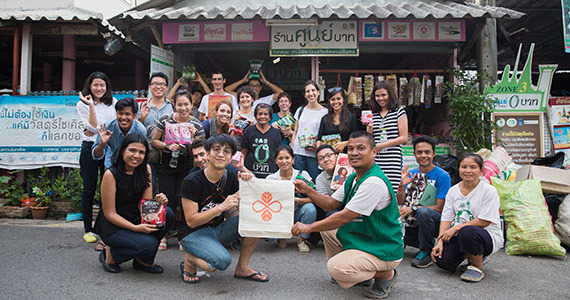 The three Rotary alumni and DSIL Global participants at the Zero Baht Shop, a domestic migrant community that has developed a recycling program that funds insurance and social support programs for the community. From the coastline of Costa Rica, to the sidewalks of Bangkok, to the jungles of Indonesia, we have been supported as individuals by The Rotary Foundation to make this world a better place; one where service comes before self. As a team of Rotary alumni, we have been able to pull together in pursuit of empowering grassroots social innovators around the world. Katherine Grennier leads a session for global social impact entrepreneurs in Manila. The three Rotary programs that have supported us: Courtney’s Ambassadorial Scholarship at the University for Peace in Costa Rica; Hermes’ global grant supported scholarship at Chulalongkorn University in Thailand; and Katy’s Rotary Peace Fellowship at the Rotary Peace Center at Chulalongkorn University in Thailand; have been critical experiences in defining our work and the experiences that we create for our participants at Designing for Social Innovation & Leadership (DSIL) Global. At DSIL Global, we train social entrepreneurs from around the world using a combination of design tools, leadership development, and business frameworks. Above all of this, we weave in themes found when peace and conflict studies, sustainable management, and international development intersect; all skill that we developed as Rotary scholars and fellows. Our lives would not be the same without the support of our clubs back home, our host communities, and the support of The Rotary Foundation. In all three of our Rotary programs, we were encouraged to develop a network with local Rotary members who supported and mentored us through our times as Rotary scholars. They were there when we got sick or needed advice on the local bureaucracy. They provided a community for us to engage in service to better the places we lived and help the people we worked with. All three of our programs involve exchanging ideas and experience across diverse perspectives. We shared with and learned from scholars, fellows, and practitioners from over 80 countries. This would not have been possible without the support of Rotary and the global community of Rotarians, alumni, and support personnel. Today, as friends and colleagues, we are using our experiences to continue finding innovation in daily dialogue and shared experiences. In partnership with the University for Peace, we select people who are ready to make a positive impact in their communities and bring them together to accelerate that impact. In the process, we are developing a global network of innovators who can lean on each other. Five times this year we will be facilitating our DSIL programs to bring grassroots innovators together in conversation and fellowship in a creative environment to seek solutions to challenges facing Southeast Asia. Our lives would not be the same without the support of our clubs back home, our host communities, and the support of Rotary. We’re looking forward to working with more Rotary alumni in the future to create an even greater impact. Rotary is empowering people to change the world, and we’re excited to be a part of it. We’re looking forward to providing new ways for Rotary members to apply Service Above Self, and we can’t wait to bring DSIL Global to a community near you. |
||||||
Pope welcomes Rotary to Jubilee audience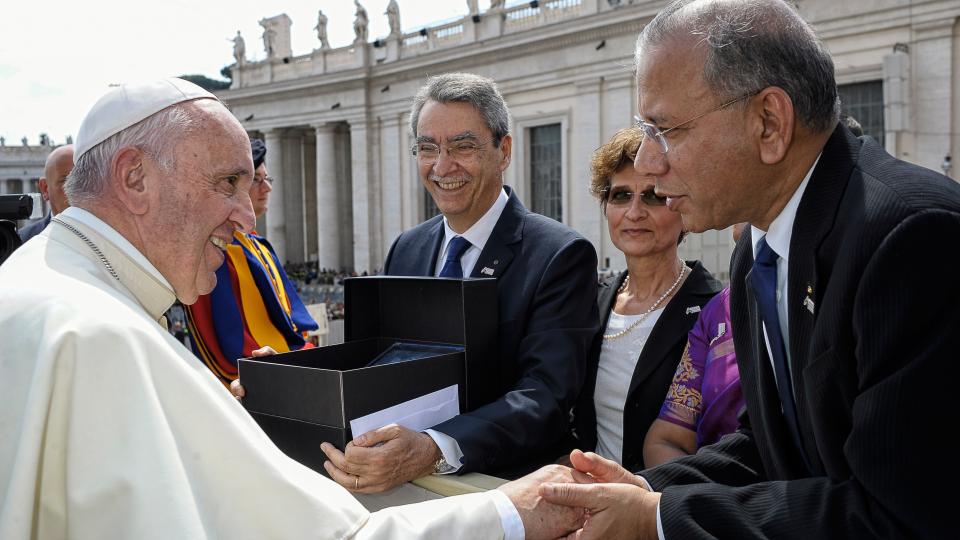 Pope Francis greets Rotary International President K.R. Ravindran at a Jubilee audience at the Vatican on 30 April, where 9,000 Rotary members were special guests of the pontiff. Photo Credit: Courtesy of the Vatican Thousands of Rotary members, motivated by a special invitation from Pope Francis, gathered at the Vatican in Rome on Saturday to celebrate a message of compassion, inclusiveness, and service to humanity. At midmorning, the group -- numbering some 9,000 members from 80 countries -- made its way through the congested streets of Rome, past the tight security surrounding St. Peter's Square, and settled into the area reserved for Rotary in front of St. Peter's Basilica for the Jubilee audience. Francis, a 79-year-old Argentine, urged the crowd of more than 100,000, which included members of the police and armed forces from around the world, "to build a culture of peace, security, and solidarity around the world." His message of peace resonated with Rotary members, including R. Asokan from Tamil Nadu, India. "His message about peace is about accepting. Rotary, which accepts all walks of life, can carry his message to all our clubs, therefore carrying his message to all our communities," says Asokan. Though Francis is the leader of the Roman Catholic Church, his words often reach a wider audience. A poll published earlier this year found him to be one of the most liked and trusted world leaders. That's what made this event at the Vatican so appealing, says Adriana Lanting, who traveled from California, USA, to attend. "To have such a transcending figure together with a transcending organization like Rotary in the same place is something I just couldn't miss," says Lanting, a member of the Rotary Club of Long Beach. Madrid Zimmerman, another Long Beach member, isn't Catholic but says Francis has a knack for touching people's hearts regardless of where they're from. "Rotary has the same effect," she adds. "We may have different ways of expressing it, but our [Rotary] action in helping others comes from the same place. "This event is a reminder that we only have one goal and that's to give service to those who need it. I think that's the message I want to bring back to my club," Zimmerman says. After the Jubilee audience, Francis met with a small delegation of Rotary members led by RI President K.R. Ravindran. The pope spoke to Ravindran about the importance of vaccinating children against polio and encouraged Rotary to continue its efforts against this disease. "I have been honored and deeply touched to have had the opportunity to meet Pope Francis earlier today, and to have heard him tell us to continue our fight toward polio eradication," says Ravindran, who is Hindu. "It has given me even more pride in Rotary's past, even more faith in its present, and even more optimism about its future, than ever before." Mitigating the migrant crisis On Friday, Rotary hosted a panel discussion in Rome to highlight efforts to alleviate the plight of refugees from Syria, Iraq, and Afghanistan. More than 60 million people, including 11 million Syrians, have been displaced by war and violence over the last four years. Such extensive displacement has not been seen since World War II. In the discussion, moderated by Vatican Radio, experts from the World Food Programme, the Jesuit Refugee Service, and UNHCR (UN Refugee Agency) talked about ways to help migrants start over in their new countries. Rotary General Secretary John Hewko, speaking on the panel, pointed to several initiatives Rotary clubs have undertaken to integrate refugees into society, including computer coding schools and a vocational training project in Rimini, Italy. "The plight of today's refugees is really a litmus test for today's compassion," Hewko said. He encouraged audience members and panelists to use their connections to provide the resources and funding needed to address the humanitarian crisis. After the panel discussion, Bonaventure Fohtung, a member of the Rotary Club of Upper Blue Mountains Sunrise in New South Wales, Australia, said that Rotary and the pope have the same agenda when it comes to helping migrants. Recently Francis took 12 Syrian migrants, three families including six children, back with him to the Vatican after visiting a camp on the Greek island of Lesbos. "We need to go home from this event and set an example. Each club should do something. Just one thing to help these refugees can make a remarkable difference," he added. The two-day Rotary event in Rome, tied to the Vatican's Jubilee of Mercy and dubbed the Jubilee of Rotarians by organizers from District 2080 (Italy), also included benefit concerts and three fundraising dinners for polio eradication. By Ryan Hyland Rotary News 2-May-2016 |
||||||
Grant brings clean water to thousands in GhanaInvesting in clean water could save 2.5 million lives a year. We can't afford not to protect the world's water supply.
Worldwide, more than 748 million people live without access to clean water and at least 3,000 children die each day from diarrheal diseases caused by unsafe water. Rotary is working to change that. For example, members used a Rotary grant to drill more than 20 clean-water wells and to repair another 30 in villages across Ghana. The project also included education about and treatment of Buruli ulcer, a debilitating infection that if untreated can lead to disability and death. Nearly 70,000 people will benefit from this initiative. |
||||||
A wave of compassion.jpg) Kerstin Jeska-Thorwart (left) talks with a nurse at the Mahamodara Teaching Hospital in Galle, Sri Lanka.
Photo Credit: Rotary International / Alyce Henson From the April 2016 issue of The Rotarian
What Kerstin Jeska-Thorwart remembers is the silence. No birds chirping, no dogs barking, no car engines revving. Nothing. “I’ve never heard such a silence before, and never since,” she says. “I knew something must have happened.” It was 9:35 the morning after Christmas 2004, and in Sri Lanka, it was a Poya Day, a Buddhist public holiday held every full moon. Jeska-Thorwart, a lawyer from Germany, was on vacation in Hikkaduwa, on the island’s southwestern coast. Any other morning of her holiday she and her husband would have been on the beach, but today they stayed back at their vacation home, up a small hill about a half-mile from the water’s edge, to clean and prepare for guests. After a few minutes, sound returned, as though it had been switched on. Now she heard people running, crying. She went down the main road to see what had happened. She saw people in swimming suits, shoeless, covered in blood. They told her there was a big wave. The tsunami, as she later learned, was caused when an earthquake with the estimated force of 23,000 atomic bombs rattled the floor of the Indian Ocean. The seabed rose 10 feet, displacing 7 cubic miles of water. A wall of water, in some places up to 100 feet high, slammed into countries throughout Southeast Asia and as far away as Africa. All told, more than 230,000 people died in 14 countries, and 1.7 million were left homeless. More than half of the dead were in Indonesia, followed by Sri Lanka, where 35,000 people were killed. Sri Lanka was hit by several waves that day. They knocked out cellphone service, land lines, electricity, television, radio. Jeska-Thorwart, then governor of District 1950 (Germany), opened up the house as a makeshift first aid clinic. Four days later, when the situation had stabilized, she and her husband, the late Carl-Otto Thorwart – himself a member of the Rotary Club of Nürnberg-Sigena – together with some Sri Lankan friends, drove down the coast looking for clues to the extent of the damage. “We had no information about what had happened,” she says. “Was it only Hikkaduwa that was hit, or other towns too?” The first city they came to was Galle, about 12 miles south. Conquered by the Portuguese in the 16th century and fortified by the Dutch in the 17th, the city had long served as the main port between Europe and the East. The tsunami killed 4,000 people in the city and damaged 12,000 houses. “Every minute that went by,” Jeska-Thorwart says of her Sri Lankan companions, “they were more and more silent. They were completely shocked. They realized their country was destroyed.” On the edge of the city, directly across the road from the beach, the group arrived at a hospital. It was Mahamodara Teaching Hospital, the primary maternity hospital in the province of 2.5 million people. “It was totally empty,” Jeska-Thorwart recalls. One of the women in the car had delivered four children there, and when she saw the devastation, she cried out: “Where are the babies?” When the first wave of the tsunami slammed into the hospital, deliveries had been underway. Although the 10-foot wall around the hospital could not stop the wave, it buffered its force, so the water was only 4 feet high by the time it reached the prenatal ward that faced the sea. The power failed, the backup generator failed, the water supply and sewer systems failed. Patients’ mattresses were soaked with foul-smelling water. The 349 patients were evacuated, first to a nearby temple, then to the Karapitiya Teaching Hospital, a couple of miles inland. By the time the subsequent waves hit Mahamodara, no patients or staff remained on site. One baby had died. Upon learning that the patients and staff had been moved, Jeska-Thorwart and her companions went to check on them. Only the most urgent cases had been transferred – others were sent home – and the maternity hospital had been squeezed into 70 beds in the male neurology wing and portions of two other wards at Karapitiya. Jeska-Thorwart saw pregnant women sitting outside in the rain. They lay in beds to deliver and moved to the floor to recover. There were not enough toilets; there was nowhere to eat or drink. “It was a horrible situation,” she says. She asked to speak to a doctor. Her first words to him were: “Don’t worry. We will help you.” “Excuse me, may I know your name?” asked Malik Goonewardene, the head of the obstetrics and gynecology department at the University of Ruhuna in Galle and a consultant at Mahamodara Teaching Hospital. He eyed Jeska-Thorwart, who was dressed in a T-shirt and shorts, like a tourist. “I’m from Rotary. I want to help you.” Goonewardene invited her into a meeting where the Mahamodara doctors were gathered. Jeska-Thorwart explained who she was and asked the doctors to compile a list of everything they needed. (She still has it.) A few days later, she drove to Colombo, which – because of its location on the island’s western coast – had not been damaged as severely. She asked local Rotarians to email the list to her office in Germany. By the time she returned home on 6 January, her office was jammed with medical equipment, and by 10 January, German Rotarians had shipped the doctors 2 tons of supplies, including scalpels, drapes, arm slings, gloves, three ultrasound scanners, and 1,360 diapers. Less than a month later, they shipped another 7 tons. And that was only the beginning. A decade later, Mahamodara Teaching Hospital’s only ward that has not been replaced or refurbished after the tsunami stands empty. Inside, pieces of plaster are falling off the walls. A couple of old bed frames are stacked in a corner, and wires hang from the ceilings. The building dates to the 1800s, when the hospital was built to quarantine South Indian immigrants arriving to work on Sri Lanka’s plantations and vaccinate them against smallpox. In contrast are the bright and airy new buildings designed by Lakshman Alwis, an architect and a member of the Rotary Club of Colombo. Inside one, lofted ceilings with vents allow the tropical heat to rise, so the building stays comfortable without air conditioning. Large windows illuminate a room filled with beds where women rest, waiting to deliver. Since patients come from all over the province, many arrive before their due date so they don’t have to travel while in labor. The hospital serves the entire socioeconomic spectrum; the wife of its deputy director delivered her baby here. Within a few weeks of the tsunami, more than 6,000 German Rotarians had donated €1.3 million, and in 2008, The Rotary Foundation supported the project. Other partners included German-headquartered global corporations such as Siemens, Trumpf, and Ejot, as well as a foundation set up by former German Chancellor Helmut Kohl, who had been vacationing at a coastal resort southeast of Galle when the tsunami hit. In the past 11 years, this funding has helped renovate or build 10 departments and wards, and provided equipment worth more than €1 million. The Rotary Club of Colombo, which partnered with District 1950 on the Foundation grant, managed much of the construction. Since work started, 160,000 babies have been born and more than 2.5 million women have received gynecological care. In 2014, a year the hospital saw more than 12,000 births, not one mother died – a statistic many Western hospitals would covet. “That speaks volumes about what we have been able to achieve here,” says RI President K.R. Ravindran, a member of the Rotary Club of Colombo. “When this hospital got damaged and we had to evacuate, it was an absolute calamity. We didn’t know what to do,” says Goonewardene. “Without our donors, including Rotary, who came to our aid from the start, I don’t know how we would have managed.” The project has included many steps over the years: first, operating rooms and intensive care units for mothers and babies; then the prenatal wards; and, finally, training. Jeska-Thorwart, whom Rotary honored as a Global Woman of Action at the United Nations in November, says they plan to celebrate the completion of the project in January 2017. Since 2010, a team of doctors, midwives, and nurses has traveled once a year from Sri Lanka to Germany, and another from Germany to Sri Lanka, for training. At the biggest hospital in Nuremberg, where Jeska-Thorwart lives, only a couple of babies are born each day. In contrast, the Mahamodara Teaching Hospital delivers 70 babies daily. Because of the number of births in Sri Lanka, the German doctors get more experience in the neonatal intensive care unit dealing with birth complications. Meanwhile, Sri Lankan doctors get experience on state-of-the-art equipment in Germany. The neonatal intensive care unit, one of the few air-conditioned buildings at the hospital, is a world of beeps and scrubs and needles. A 19-day-old infant lies in an incubator, connected to a neonatal CPAP machine to support her breathing, donated by Rotary, which equipped the entire unit. The newborn, who arrived two months premature, was transferred here because the hospital has some of the most advanced equipment in the country. “When I started here, I was amazed,” says Selvi Rupasinghe, the chief neonatologist. “Rotary’s contributions have made a tremendous change to neonatal care.” Outside the unit, a woman holds a sleepy toddler in her arms. The child’s eyes are closed and her head droops as her mother, a dance teacher, smiles and hugs her daughter tight. The child, now 21 months old, was born premature, weighing only 2 pounds. She spent a month in the neonatal intensive care unit and today loves to dance, like many girls her age. “Without all of this equipment, she would not have been able to survive,” says Sumith Manathunga, the hospital’s deputy director. English isn’t the mother’s first language, but she does know four words: “Thank you very much.” By Diana Schoberg The Rotarian 1-Apr-2016 |
||||||
Goodwill games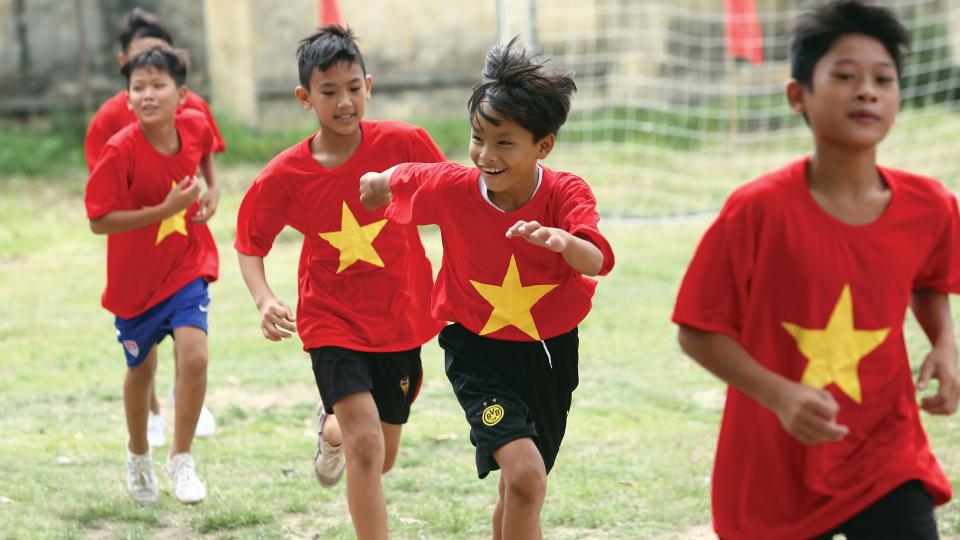 Photo Credit: Na Son Nguyen
From the March 2016 issue of The Rotarian
The fierce July sun beat down on us as we approached the field where the match was to take place. It wasn’t much of a soccer pitch, with its uneven terrain and rusty poles for goalposts, but the local teens we had met came ready to play. They guided us over the piles of bricks and broken tiles that separate their neighborhood community center from the field behind it and took their positions. Much like any schoolyard competitors, incursions from grazing cows notwithstanding, players stretched and warmed up, took turns retrieving out-of-bounds balls, and, after the final goal, lined up to exchange high-fives. The Vietnamese contingent handily outscored our group of American Rotary volunteers, but the defeat was far from bitter. The five Rotarians, four Interactors, and two 20-something alumni of Rotary Youth Leadership Awards had already achieved what they had come to Vietnam to do: distribute durable soccer balls to promote play and to spread Rotary’s message of service and goodwill. The community center sits on the outskirts of Hoi An, a resort town on the South China Sea. Orange and fuchsia bougainvillea blossoms spill over stalls selling scarves and spices at one of Vietnam’s oldest marketplaces, and along the banks of the Thu Bon River, food vendors serve aromatic pho (noodle soup) and banh mi (sandwiches). By night, tourists dine under glowing silk lanterns at the seaside restaurants and hotels. The kids we met in Hoi An have a few soccer balls on hand, but are just as likely to kick around rocks or bundles of banana leaves. Tim Jahnigen first observed this phenomenon in 2006 as he watched news footage of a refugee camp in Darfur, Sudan. The children on the screen were playing soccer using a bundle of trash tied with twine. Struck by the evidently universal tendency of children to play no matter how difficult the circumstances, Jahnigen set out to develop a soccer ball tough enough to endure the harshest conditions. Almost 10 years later, One World Play Project – the company Jahnigen founded with his wife, Lisa Tarver – has provided more than 1.5 million durable soccer balls in over 175 countries. The ball itself is made of a proprietary foamlike blend that bounces like a soccer ball but won’t puncture, deflate, or otherwise fall apart. “Play is vital for humans to thrive,” Tarver says, echoing recent research. “Play is one of the most effective therapies for any kind of trauma or hardship, whether in refugee camps or inner cities afflicted with gang violence – anywhere kids have suffered human rights abuses or the effects of poverty or natural disasters. Play is what allows them to recover and connect with their community.” Our team of Rotary members and youth program participants from the San Francisco Bay Area brought to Vietnam 2,400 of these balls, bound for schools and community centers. We traveled south from the capital, Hanoi, through the mountains and along the scenic coastline to Ho Chi Minh City and the villages of the Mekong Delta. In each community we visited, we met with local officials, handed out balls, and challenged the recipients to a game – no translation required. “Play is the universal language,” Tarver says. “You go somewhere and you may not be able to talk to the people, but if you pull out this ball, you’ll be connected, because it’s intuitive. The ball is the connector between the visitors and the community.” There are no Rotary clubs in Vietnam; they were disbanded in the 1970s. Since 1994, however, when the U.S. government lifted the trade embargo that had been in effect since the Vietnam War ended, Rotary clubs have worked with government approval on several successful projects with local charities. Sue McKinney, a member of the Rotary Club of Oakland Sunrise, has divided her time between Ho Chi Minh City and her native California since 1994. A lawyer by training and a serial entrepreneur in practice, McKinney has worked on 21 projects in Vietnam, coordinating Group Study Exchange trips, organizing wheelchair distributions and medical camps, hosting dozens of visiting U.S. Rotarians, and tapping into her extensive in-country network to promote Rotary’s work. The collaboration with One World Play Project also has its roots in McKinney’s Rolodex. She once hosted a GSE participant from California’s District 5170 named Ingrid Fraunfelder, and the two kept in touch. When Fraunfelder went to work for One World Play Project as a program manager, McKinney saw a natural fit for the district’s Interact program. She presented the idea to the district and reached out to contacts at Aid for Kids and Football for All in Vietnam, two local nonprofits that provided logistical support and helped coordinate distribution events. McKinney also saw an opportunity to expand Rotary’s network and build goodwill through cultural exchange. “Group Study Exchange was my introduction to Rotary 30 years ago,” before clubs accepted female members, she recalls. “I went to Holland on an all-female GSE team, and I’m still in touch with those women. Those connections are for life. It’s a way of networking, and it helped recruit me into the organization. Once I’d seen Rotary at work on the world stage, I wanted to be a part of it.” For Gloria Garing, a member of the Rotary Club of Freedom, Calif., the trip was an opportunity to honor her late husband, Ward, who served in Vietnam in the late 1960s and died of cancer in 2006. Midway through the trip, Garing made a solo detour down the coast from Hoi An to Cam Ranh Bay, where Ward had been stationed, to deliver soccer balls at a school. “I wasn’t sure about what it would be like going to a communist country,” Garing says. “Growing up in the 1950s and ’60s with a father in the Navy, the whole idea of communism was, ‘They’re the enemy.’ There was a lot we didn’t know, of course, but there was a real fear.” Garing met students, teachers, and families in Cam Ranh. “I was surprised by how welcoming everyone was,” she says. Vietnam, she says, is beautiful and interesting, but there was more to the trip: “When we do service work, it’s about the people we meet and the connections we make.” Vu Dinh, a member of the Interact club at Mount Eden High School in Hayward, Calif., until his graduation last spring, was born in Vietnam, but his family moved to the United States when he was a baby. He had returned to Vietnam only once since then, on a family trip 10 years ago. “It’s weird to think that one turn of events can change your whole life,” he said as we left a secondary school in Hanoi where he had addressed students in hesitant Vietnamese. “I’m sitting across from these kids, thinking how I could have been in their seats, meeting these American visitors, but instead I’m coming to their school on a tour bus.” Later, after he had reconnected with family members outside Da Nang, he said, “I’m glad my parents came to America, but I’m also glad I have the chance to come back to Vietnam, to spend time with my parents’ brothers and sisters, and see what the world looks like from the back of their motorbike.” Dinh joined Interact during his sophomore year. He met new friends across the district, participated in leadership development programs such as RYLA, and served as club president in his senior year. “In high school it’s often repeated that grades stay on your transcript forever. But these clubs teach you that the impact you make stays on these people’s lives forever,” Dinh says. “Interact has given me the opportunity to grow as a person, gain leadership skills, and give back. In Interact we have a structure and a network that allows participants to branch out in different communities and move toward a global community. That’s what sets Rotary apart.” The way he sees it, our group is bringing that message of inclusion and opportunity to everyone we meet in Vietnam. “We’re giving away these soccer balls, but we’re also giving the opportunity to play and grow as a community through sports,” he says, “and we have the opportunity to let people know Rotary is important.” The nearly indestructible soccer balls will go on conveying that message, says inventor Jahnigen. “When you go into a community and leave a ball behind, it reinforces the bonds and messages that came with it,” he says. “As long as it’s there being played with, it keeps the connection alive.” Look for Interactors from District 5170 in the House of Friendship at the 2016 Rotary International Convention in Korea. Learn more about this ongoing project. By Sallyann Price The Rotarian |
||||||
A wave of compassion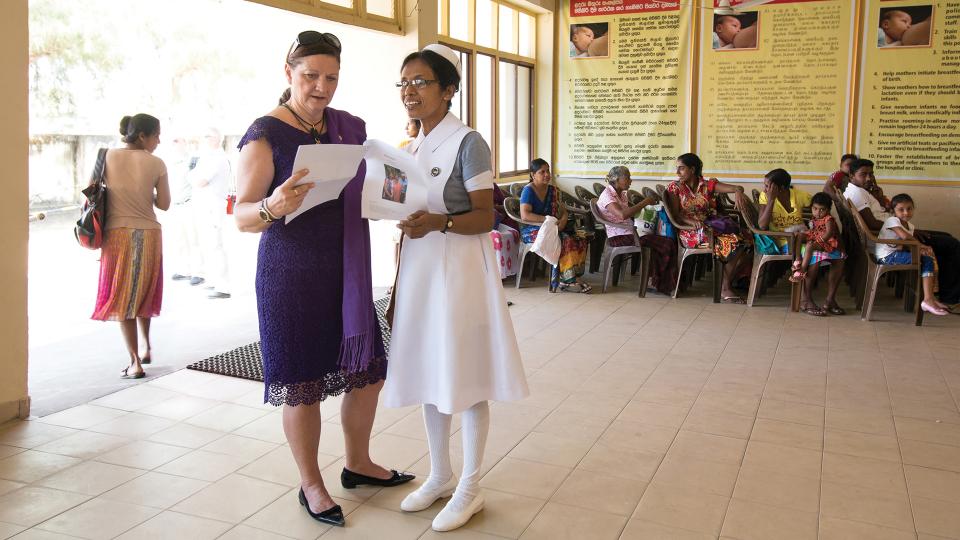 Kerstin Jeska-Thorwart (left) talks with a nurse at the Mahamodara Teaching Hospital in Galle, Sri Lanka.
Photo Credit: Rotary International / Alyce Henson  From the April 2016 issue of The Rotarian ers is the silence. No birds chirping, no dogs barking, no car engines revving. Nothing. “I’ve never heard such a silence before, and never since,” she says. “I knew something must have happened.”
It was 9:35 the morning after Christmas 2004, and in Sri Lanka, it was a Poya Day, a Buddhist public holiday held every full moon. Jeska-Thorwart, a lawyer from Germany, was on vacation in Hikkaduwa, on the island’s southwestern coast. Any other morning of her holiday she and her husband would have been on the beach, but today they stayed back at their vacation home, up a small hill about a half-mile from the water’s edge, to clean and prepare for guests. After a few minutes, sound returned, as though it had been switched on. Now she heard people running, crying. She went down the main road to see what had happened. She saw people in swimming suits, shoeless, covered in blood. They told her there was a big wave. The tsunami, as she later learned, was caused when an earthquake with the estimated force of 23,000 atomic bombs rattled the floor of the Indian Ocean. The seabed rose 10 feet, displacing 7 cubic miles of water. A wall of water, in some places up to 100 feet high, slammed into countries throughout Southeast Asia and as far away as Africa. All told, more than 230,000 people died in 14 countries, and 1.7 million were left homeless. More than half of the dead were in Indonesia, followed by Sri Lanka, where 35,000 people were killed. Sri Lanka was hit by several waves that day. They knocked out cellphone service, land lines, electricity, television, radio. Jeska-Thorwart, then governor of District 1950 (Germany), opened up the house as a makeshift first aid clinic. Four days later, when the situation had stabilized, she and her husband, the late Carl-Otto Thorwart – himself a member of the Rotary Club of Nürnberg-Sigena – together with some Sri Lankan friends, drove down the coast looking for clues to the extent of the damage. “We had no information about what had happened,” she says. “Was it only Hikkaduwa that was hit, or other towns too?” The first city they came to was Galle, about 12 miles south. Conquered by the Portuguese in the 16th century and fortified by the Dutch in the 17th, the city had long served as the main port between Europe and the East. The tsunami killed 4,000 people in the city and damaged 12,000 houses. “Every minute that went by,” Jeska-Thorwart says of her Sri Lankan companions, “they were more and more silent. They were completely shocked. They realized their country was destroyed.” On the edge of the city, directly across the road from the beach, the group arrived at a hospital. It was Mahamodara Teaching Hospital, the primary maternity hospital in the province of 2.5 million people. “It was totally empty,” Jeska-Thorwart recalls. One of the women in the car had delivered four children there, and when she saw the devastation, she cried out: “Where are the babies?” When the first wave of the tsunami slammed into the hospital, deliveries had been underway. Although the 10-foot wall around the hospital could not stop the wave, it buffered its force, so the water was only 4 feet high by the time it reached the prenatal ward that faced the sea. The power failed, the backup generator failed, the water supply and sewer systems failed. Patients’ mattresses were soaked with foul-smelling water. The 349 patients were evacuated, first to a nearby temple, then to the Karapitiya Teaching Hospital, a couple of miles inland. By the time the subsequent waves hit Mahamodara, no patients or staff remained on site. One baby had died. Upon learning that the patients and staff had been moved, Jeska-Thorwart and her companions went to check on them. Only the most urgent cases had been transferred – others were sent home – and the maternity hospital had been squeezed into 70 beds in the male neurology wing and portions of two other wards at Karapitiya. Jeska-Thorwart saw pregnant women sitting outside in the rain. They lay in beds to deliver and moved to the floor to recover. There were not enough toilets; there was nowhere to eat or drink. “It was a horrible situation,” she says. She asked to speak to a doctor. Her first words to him were: “Don’t worry. We will help you.” “Excuse me, may I know your name?” asked Malik Goonewardene, the head of the obstetrics and gynecology department at the University of Ruhuna in Galle and a consultant at Mahamodara Teaching Hospital. He eyed Jeska-Thorwart, who was dressed in a T-shirt and shorts, like a tourist. “I’m from Rotary. I want to help you.” Goonewardene invited her into a meeting where the Mahamodara doctors were gathered. Jeska-Thorwart explained who she was and asked the doctors to compile a list of everything they needed. (She still has it.) A few days later, she drove to Colombo, which – because of its location on the island’s western coast – had not been damaged as severely. She asked local Rotarians to email the list to her office in Germany. By the time she returned home on 6 January, her office was jammed with medical equipment, and by 10 January, German Rotarians had shipped the doctors 2 tons of supplies, including scalpels, drapes, arm slings, gloves, three ultrasound scanners, and 1,360 diapers. Less than a month later, they shipped another 7 tons. And that was only the beginning. A decade later, Mahamodara Teaching Hospital’s only ward that has not been replaced or refurbished after the tsunami stands empty. Inside, pieces of plaster are falling off the walls. A couple of old bed frames are stacked in a corner, and wires hang from the ceilings. The building dates to the 1800s, when the hospital was built to quarantine South Indian immigrants arriving to work on Sri Lanka’s plantations and vaccinate them against smallpox. In contrast are the bright and airy new buildings designed by Lakshman Alwis, an architect and a member of the Rotary Club of Colombo. Inside one, lofted ceilings with vents allow the tropical heat to rise, so the building stays comfortable without air conditioning. Large windows illuminate a room filled with beds where women rest, waiting to deliver. Since patients come from all over the province, many arrive before their due date so they don’t have to travel while in labor. The hospital serves the entire socioeconomic spectrum; the wife of its deputy director delivered her baby here. Within a few weeks of the tsunami, more than 6,000 German Rotarians had donated €1.3 million, and in 2008, The Rotary Foundation supported the project. Other partners included German-headquartered global corporations such as Siemens, Trumpf, and Ejot, as well as a foundation set up by former German Chancellor Helmut Kohl, who had been vacationing at a coastal resort southeast of Galle when the tsunami hit. In the past 11 years, this funding has helped renovate or build 10 departments and wards, and provided equipment worth more than €1 million. The Rotary Club of Colombo, which partnered with District 1950 on the Foundation grant, managed much of the construction. Since work started, 160,000 babies have been born and more than 2.5 million women have received gynecological care. In 2014, a year the hospital saw more than 12,000 births, not one mother died – a statistic many Western hospitals would covet. “That speaks volumes about what we have been able to achieve here,” says RI President K.R. Ravindran, a member of the Rotary Club of Colombo. “When this hospital got damaged and we had to evacuate, it was an absolute calamity. We didn’t know what to do,” says Goonewardene. “Without our donors, including Rotary, who came to our aid from the start, I don’t know how we would have managed.” The project has included many steps over the years: first, operating rooms and intensive care units for mothers and babies; then the prenatal wards; and, finally, training. Jeska-Thorwart, whom Rotary honored as a Global Woman of Action at the United Nations in November, says they plan to celebrate the completion of the project in January 2017. Since 2010, a team of doctors, midwives, and nurses has traveled once a year from Sri Lanka to Germany, and another from Germany to Sri Lanka, for training. At the biggest hospital in Nuremberg, where Jeska-Thorwart lives, only a couple of babies are born each day. In contrast, the Mahamodara Teaching Hospital delivers 70 babies daily. Because of the number of births in Sri Lanka, the German doctors get more experience in the neonatal intensive care unit dealing with birth complications. Meanwhile, Sri Lankan doctors get experience on state-of-the-art equipment in Germany. The neonatal intensive care unit, one of the few air-conditioned buildings at the hospital, is a world of beeps and scrubs and needles. A 19-day-old infant lies in an incubator, connected to a neonatal CPAP machine to support her breathing, donated by Rotary, which equipped the entire unit. The newborn, who arrived two months premature, was transferred here because the hospital has some of the most advanced equipment in the country. “When I started here, I was amazed,” says Selvi Rupasinghe, the chief neonatologist. “Rotary’s contributions have made a tremendous change to neonatal care.” Outside the unit, a woman holds a sleepy toddler in her arms. The child’s eyes are closed and her head droops as her mother, a dance teacher, smiles and hugs her daughter tight. The child, now 21 months old, was born premature, weighing only 2 pounds. She spent a month in the neonatal intensive care unit and today loves to dance, like many girls her age. “Without all of this equipment, she would not have been able to survive,” says Sumith Manathunga, the hospital’s deputy director. English isn’t the mother’s first language, but she does know four words: “Thank you very much.” By Diana Schoberg The Rotarian 1-Apr-2016 |
||||||
Rotary wins prestigious Silver Telly for AIDS documentary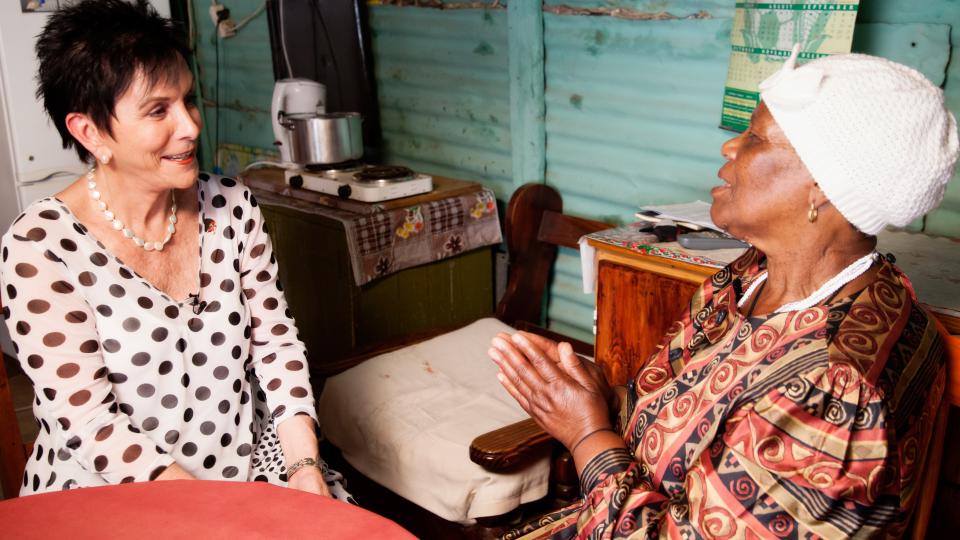 Marion Bunch (left), a Rotary member from Georgia, USA, whose son died of AIDS, sits with Me Maria, a South African grandmother who is raising her two grandsons after their parents died of AIDS.
Marion Bunch (left), a Rotary member from Georgia, USA, whose son died of AIDS, sits with Me Maria, a South African grandmother who is raising her two grandsons after their parents died of AIDS.
A documentary film produced by Rotary's broadcast media department that features Rotary member Marion Bunch and her work to prevent the spread of HIV/AIDS in underprivileged African communities won two 2015 Telly Awards. The prestigious awards are given annually to the finest film and video productions. Rotary's documentary, "Rotary Family Health Days" received a Silver Telly, the highest honor, in the online video-documentary category, and a Bronze Telly in the online video-branded content and entertainment category. The documentary was shown by the South African Broadcasting Corporation and throughout Africa. "What we tried to accomplish with the film was to get the good news and the good deeds out there so that the non-Rotary world can see it," says producer Andrew Chudzinski. "It was a great collaborative project." The film documents the tremendous burden HIV/AIDS places on African families and communities. It covers the journeys of two women: South African grandmother Me Maria, who is raising her two grandsons whose parents died of AIDS, and Bunch, from Atlanta, Georgia, USA, who became a global advocate for AIDS prevention and the inspiration for Rotary Family Health Days after she lost her son to the disease. "Because of that one single tragedy, my life's journey changed dramatically, from a very engaged businesswoman to a warrior on AIDS and advocate of human rights," Bunch told senior White House staff in October, when she was honored as one of 10 Rotary Women of Action for 2014. A member of the Rotary Club of Dunwoody, Bunch is the founder and CEO of Rotarians for Family Health and AIDS Prevention, a group of members that collaborates with Rotary clubs and districts on health-related projects. The Rotary Health Days project, now in its fifth year and supported by Rotary clubs in Africa, has grown to deliver free basic health care, including HIV/AIDS screening and other preventive services, to underserved communities in Ghana, Nigeria, South Africa, and Uganda. It began in 2010, when Ugandan Stephen Mwanje, then governor of District 9211, asked Bunch if the Rotarian group would organize a multisite, comprehensive health event. "The tremendous burden on the families of those infected by HIV/AIDS -- particularly for older people caring for their terminally ill children and raising their grandchildren, and for children orphaned by this disease -- is incalculable," says Bunch. "This is a story of people coming together to help fight this global killer and other preventable diseases." The award-winning documentary was a joint project of the public relations and broadcast media staff at Rotary's world headquarters in Evanston, Illinois. In addition to Chudzinski, producer Vivian Fiore, video editor Todd Murphy, and executive producer Stephen Guenther worked on the film. "We went through many different outlines, thoughts, and angles, and worked closely with Marion [Bunch] on it," says Fiore. "It evolved into a better piece than we all imagined." In 2012, Rotary won a Silver Telly for its documentary "Doing Good in the World: Growing Local Economies." By Adam Ross Rotary News |
||||||
Wise Words from Mark TwainI was born modest‚ but it didn’t last.
Mark Twain
|
||||||
My UNESCO-IHE scholarship has defined my career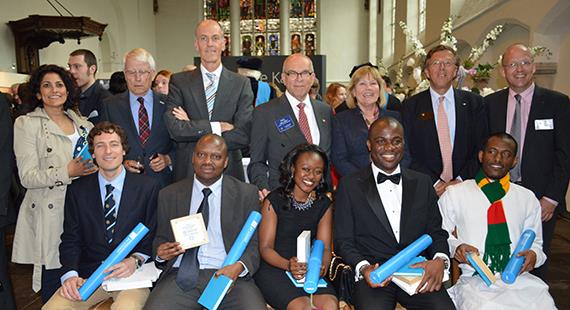 Rotary and UNESCO-IHE Institute for Water Education scholarship recipients at the April graduation ceremony. From left: Gonzalo Duro (Argentina), Godfrey Baguma (Uganda), Bernice Asamoah (Ghana), Kaycee Okoli (Nigeria), and Temesgen Adamu (Ethiopia).
By Bernice Asamoah
When I first arrived in the Netherlands, I marveled at how clean everything was and how neatly water was channeled through town. It was very different from my homeland of Ghana, and I was struck by the diversity of Delft’s population. I had arrived in the Netherlands on a scholarship from The Rotary Foundation to study sanitary engineering at the UNESCO-IHE Institute for Water Education. The opportunity came unexpectedly, but has turned out to be a career defining moment. I am so grateful to the Rotary Clubs of Kumasi East and Accra who supported my efforts to meet all the requirements for the scholarship. Social coordinators from the school worked hard to make our stay as comfortable as possible. Our Ghanaian predecessors met us at the airport to greet us and take us to the school on a cold and rainy day. I was already experiencing the Dutch weather! Local Rotary members also went out of their way, despite their busy schedules, to help us and make us feel welcome. I am confident and ready to begin contributing my part to solving my country’s water management and health issues. We were taken on so many tours our first week in the Netherlands that I lost count. I learned a lot from the people I met. I was able to relate to the issues they shared about their countries and how they dealt with them. I saw how I could model these experiences to help meet the needs of my country, and the world as a whole. One gets around the Netherlands principally by bicycle, which proved difficult for me to pick up at first. But eventually I got used to it, and can even say I found it a comfortable and easy way to get around. My main purpose in accepting the scholarship was to gain knowledge in water and sanitation related issues, which proved totally worth my time. It was an educational journey that included excellent teaching and enlightening field trips. Apart from my studies, I also had the opportunity to meet other students from a variety of backgrounds and learn from their different lifestyles. I left the school a much more rounded person. This has definitely been an important stepping stone in my career. I am confident and ready to begin contributing my part to solving my country’s water management and health issues. I look forward to striving to achieve Rotary’s motto of “Service above self.” |
||||||
Rotary Peace Fellows poised to change the world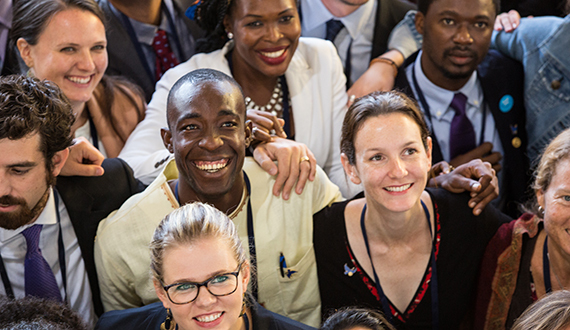 Peace Fellows at the 2015 Rotary Convention in São Paulo, Brazil.
By Teree Bergman When I was an undergraduate, one of my professors expressed the interesting idea that scholars should stop studying the causes of war. He suggested that conflicts occur all the time and that the natural state is war. He proposed that we should be studying the causes of peace, as that is the less common situation. Paul Harris expressed a similar view in a recorded interview in Tuskegee, Alabama, in 1945: “The way to war is a well-paved highway and the way to peace is still a wilderness.” While Rotary’s number one objective rightly continues to be on polio eradication, the inception of the Rotary Peace Centers program may be the initiative that secures Rotary’s role in the world. Rotary has a long history of promoting peace, and Rotary Peace Fellowships are the embodiment of this long-term interest. In 1923, Paul Harris offered an opinion as to the real mission of Rotary. “Is there anything more potent than man’s impulse to hate? I think that there surely is and that it is man’s impulse to love. What have we been advertising throughout the centuries? We have been advertising war. The pages of history reek with it. In the days of my childhood, no education was considered well begun until hatred of alien races had been burned into one’s mind. It was surely wonderful advertising and done just in the nick of time. The child mind is a delicate film, wonderfully impressionable. Love is mightier than hate. Give it one half the advertising that hate has had, and there will be no more war.” The Rotary interest in achieving peace has continued throughout its 111-year history. As past RI President Frank Devlyn said in 2006, “In Rotary we have always practiced and have an ongoing policy of promoting Better Understanding and Peace.” Rotary was instrumental in the formation of the United Nations and has continued that collaboration for 70 years. Rotary holds regular peace symposia and forums throughout the world. The Rotary Peace Centers program that Rotary created in 2002 offers great promise for the future, and it is worthy of our support. These peace fellows are the best and the brightest, and they choose to put their talents to work in the study of peace. Your financial gift to the Rotary Peace Centers make you a part of this great effort to promote nonviolent solutions to problems that would otherwise be decided by conflict. |
||||||
Successful women mentor youth through Rotary.jpg) Clara Montanez attends a reception in 2013 for the Champions of Change honorees at the White House in Washington D.C.
Photo Credit: Rotary Images When Clara Montanez was a student, she never heard the word mentoring. The idea of having a role model help you pursue your ambitions was unfamiliar to her.
"You basically chose your career based on personal interest and hoped you could find a job," says Montanez, senior director of investment for Oppenheimer & Co., Inc. "I went the route of getting married and having children first, and started my career later in life. I had no model for how to do that." That changed for Montanez the day a friend invited her to join Rotary. "Frankly, I was dragged into Rotary. I didn't see a connection at first," says Montanez, who's been a member of the Rotary Club of Washington, D.C., since 2003. "But then I met several women, including Doris Margolis, who took me under her wing and started mentoring me on how to get more involved. I began seeing the value in having someone I could count on as a mentor, and I have become more of a leader in our club, in my community, and at work." Rotary's mentoring opportunities motivated Montanez, Rotary's alternate representative to the Organization of American States, to help organize an event for International Women's Day, 8 March. The event, to be held at the World Bank Group headquarters in Washington, will feature Deepa Willingham and Marion Bunch, both previously honored as Rotary Women of Action. Rotary International Director Jennifer Jones will moderate the event, which will be streamed on World Bank Live. Montanez says Rotary has given her a platform to mentor young women as they balance career and family, as well as manage the challenge of repaying student loans. According to a recent study by the American Association of University Women, the student loan debt burden weighs more heavily on women because of the persistent gap in pay between women and men. "I think Rotary has given me access to young people, like Rotaractors, and they are ready to accept guidance because Rotary is a safe place to reach out and get advice," says Montanez. Similarly, Jackie Huie, a member of the Rotary Club of St. Joseph & Benton Harbor, Michigan, USA, recognizes Rotary's mentoring power. In 2007, Huie's club created a program that matches high school juniors and seniors with a mentor in the field they'd like to enter. The program started with 40 students at one high school and has now expanded into schools across the area. "I got a letter from a girl who came from a poor background, and through the program, she got a chance to meet with an attorney in town," says Huie, president of JohnsonRauhoff, a multimedia company that fosters creative thinking for artists. "It inspired her and gave her confidence to go to school and study law. She got accepted into four law schools and is on her way to becoming an attorney." Besides the investment in young people's futures, mentoring brings clubs important community recognition. For example, Huie's club has 150 members, a large number for a club that doesn't hold membership drives, she says. "Everyone in southwest Michigan knows about Rotary," says Huie. "We had a student who wanted to be a CEO for a large corporation. After we arranged for him to meet with the CEO of Whirlpool, his father was so impressed with the whole program that he joined Rotary." Many of the program's early participants went on to form an Interact club, and there are now more than 200 Interact members at four area schools. Forty of them will travel to the Dominican Republic this summer to install water filters and take part in a medical mission. "It's important for Rotary to make an investment in young people," says Huie. "My own daughter is in Interact because of my membership in Rotary. I think her world is broader, and she looks at the world differently. We all do, because of what we've learned through Rotary." By Arnold R. Grahl
Rotary News 8-Mar-2016 |
||||||
Helping women find dignity and earn a living A Rotaract project in Uttar Pradesh, India, is liberating women who emptied dry toilets with their hands by teaching them skills that enable them to earn a living for their families.
Although manual scavenging was banned in India in 1993, it persists in many parts of the country. The women who engage in it, many of them the sole wage earners for their families, make a meager income for their efforts. Through Project Azmat, members of the Rotaract Club of SRCC Panchshila Park partnered with the international nonprofit Enactus to organize women who had been doing this work into a cooperative, teaching them basic literacy skills and training them to make and market detergent. The project is also replacing dry latrines with two-pit toilets, which require no maintenance and use only a small amount of water to convert human waste into manure, improving sanitation and preventing the spread of disease. More than 120 new toilets have been installed, enabling over two dozen women to earn a living through the sale of detergent. The project was selected as this year’s international winner of the Rotaract Outstanding Project Award. (Photo above) A woman measures out ingredients to make detergent. Project Azmat is freeing women from hand-cleaning dry toilets for a living by teaching them marketable skills.
Highlighting the scope of youth service in Rotary Every other year since 2003, members of the Interact Club of Hugh Boyd Secondary School in Richmond, British Columbia, Canada, have teamed up with their sponsor Rotary club, teachers, and firefighters to provide assistance to the Refilwe orphanage, located PHOTO COURTESY OF INTERACT CLUB OF HUGH BOYD SECONDARY SCHOOL near Johannesburg, South Africa. In 2013, the month-long effort included rebuilding the orphanage and a preschool.
The Interact club produced a video that featured the orphanage renovation, along with other projects such as ice skating to raise funds for polio eradication, collecting canned goods for a local food bank, and participating in a model UN day in San Diego, California, USA. The video — “Our Best Day in Interact” — won the annual Interact video contest for 2014-15, beating out 88 entries from 33 countries. (Below left) The Interact Club of Hugh Boyd Secondary School in Richmond, British Columbia, Canada, has built a strong tradition of bringing positive change to communities locally and globally. The Rotary Foundation
Annual Report 2014-2015
|
||||||
Rotary District 7870 Conference First Time Visit to Historic Portsmouth, NHDistrict 7870 conference 2016 will be held in the historic city of Portsmouth, New Hampshire. We will convene at the newly renovated and enlarged Sheraton Harborside, where we have negotiated aa affordable rate of $695 for a couple, or $495 for a single participant. The cost includes a spacious room for two nights, dinner on Friday night, breakfast and dinner on Saturday and breakfast on Sunday.
The fun starts on Friday afternoon at 2:00 PM and continues with fellowship and dinner. Be prepared for exciting entertainment that evening. We kick off the day Saturday morning with breakfast, followed by a full plenary session that ends at noon. For those who play golf, a tournament is scheduled for the afternoon; and for those who don't, a host of activities await. Take a boat trip to Star Island, or enjoy a harbor cruise. Visit Strawbery Banke, the USS Albacore, or Portsmouth Harbor Lighthouse within Fort Constitution in New Castle. If you are partial to craft beers, take a brewery tour, or just wander through the variety of interesting shops, all within walking distance of the Sheraton. Whatever you choose to do, it will be an afternoon to remember. Saturday evening brings fellowship at six, followed by a delicious plated banquet. After the evening ceremonies, extend the fun in the hospitality rooms. Sunday morning starts with an early breakfast for those attending the memorial service where we will celebrate the lives of those lost during the past Rotary year. The third plenary session follows, with awards for excellence and to honor unique and successful club projects. Finally, our exchange students will enthuse over their "awesome" year with their Rotarian hosts, an exercise that always brings tears and laughter. "Let there be Peace on Earth" closes out what promises to be a most memorable conference. Join us and Be a Gift to the World.
|
||||||
Presidential conference explores routes to peace.jpg) Actress and humanitarian Sharon Stone gives the peace sign after speaking at the Rotary World Peace Conference on 15 January in Ontario, California, USA.
Photo Credit: Rotary International/Ryan Hyland On 2 December, a terrorist attack killed 14 people and wounded more than 20 others in San Bernardino, California.
Less than two months later, an event nearby focused on peace: the Rotary World Peace Conference. The two-day meeting on 15-16 January brought together experts from around the world to explore ideas and solutions to violence and conflict. The conference was the first of five Rotary presidential conferences planned for this year. San Bernardino County official Janice Rutherford, a member of the Rotary Club of Fontana, California, told attendees at the opening general session that the conference couldn’t be timelier. “Now more than ever, we need to come together and create peace and reduce human suffering,” said Rutherford, who declared 15 January 2016 Rotary World Peace Day and a Day of Peace for San Bernardino County. “We appreciate your commitment to exploring these options and taking them back to your community and the rest of the world.” More than 150 leaders in the fields of peace, education, business, law, and health care led over 100 breakout sessions and workshops. Topics ranged from how to achieve peace through education to combating human trafficking to the role the media has in eliminating conflict. Hosted by Rotary districts in California and attended by more than 1,500 people, the conference is an example of how Rotary members are taking peace into their own hands, said RI President K.R. Ravindran. “We can’t wait for governments to build peace, or the United Nations. We can’t expect peace to be handed to us on a platter,” said Ravindran. “We have to build peace from the bottom, from the foundation of our society. The valuable information you leave with at the end of this conference will aid you in managing conflict in your personal lives, local communities, and potentially around the world.” Actress and humanitarian Sharon Stone urged conference attendees to find tolerance within themselves as a way to develop compassion and understanding for others. Noting that today’s technology makes it easy to learn about diverse cultures and beliefs, Stone encouraged Rotary members to embrace differences while learning about others’ work. “The more we understand the darkness of our enemies, the better we know what to do, how to respond and behave,” said Stone. Rotary is inching the world closer to meaningful change, said the Rev. Greg Boyle, executive director of Homeboy Industries, a Los Angeles-based gang intervention and reentry program. “Rotary decided to dismantle the barriers that exclude people,” said Boyle, a bestselling author and Catholic priest. “You [Rotary members] know that we must stand outside the margins so that the margins can be erased. You stand with the poor, the powerless, and those whose dignity has been denied.” Rotary’s most formidable weapon against war, violence, and intolerance is its Rotary Peace Centers program. Through study and field work, peace fellows at the centers become catalysts for peace and conflict resolution in their communities and around the globe. Dozens of Rotary peace fellows attended the conference to promote the program, learn about other peace initiatives, and help Rotary clubs understand the role they can play. Peace Fellow Christopher Zambakari, who recently graduated from the University of Queensland in Australia, said the conference is a chance to increase awareness of what others are doing to achieve peace. “Some people have only a local view toward peace,” said Zambakari, whose consulting firm in Phoenix, Arizona, USA, provides advisory services to organizations in Africa and the Middle East. “An event like this, with so many diverse perspectives, can open up connections and different possibilities to how we all can work towards a more peaceful world." Other speakers included Carrie Hessler-Radelet, director of the U.S. Peace Corps; Judge Daniel Nsereko, special tribunal for Lebanon; Gillian Sorensen, senior adviser at the United Nations Foundation; Steve Killelea, founder and executive chair of the Institute for Economics and Peace; Dan Lungren, former U.S. representative; By Ryan Hyland Rotary News 1-Feb-2016
|
||||||
Rotary condemns deadly attack on polio security personnel in PakistanRotary members and our partners in the fight to eradicate polio offer our heartfelt condolences and express a deep sadness in the wake of a horrific bomb attack in Quetta, Pakistan, that took the lives of at least 15 security personnel on 13 January.
This tragic attack outside a polio immunization center is a stark reminder of the dangers faced by Rotary, our partners in the Global Polio Eradication Initiative, and the brave women and men on the front lines of our effort to protect all children from the paralyzing effects of polio. While the bombing will be investigated, one thing is clear: The security personnel who were killed died because their job was to protect teams of polio immunizers. We applaud the government's commitment to continue the vaccination campaign throughout Pakistan, which is one of only two countries where the poliovirus is still endemic.
Today we pause to honor the sacrifice made by the heroic police officers killed. Yet our 30-year commitment to end polio remains steadfast. Even as we absorb the horror of this bombing, we are redoubling our efforts to educate families and build confidence in the safety of polio vaccines, and to engage community and religious leaders to support our campaign. We are closer than ever to achieving a polio-free world. Vast improvements have been seen in Pakistan, with more than 80 percent fewer cases in the country than in 2014. In order to stop polio in Pakistan in 2016, we must ensure the safety of vaccinators to reach every child. And today, our release of $35 million in grants for polio eradication signals our determination to finish the job to which thousands of courageous individuals have committed themselves, and to never forget the sacrifices made by those who lost their lives in this effort. Rotary News 13-Jan-2016 |
||||||
Germ reveals ‘Rotary Serving Humanity’ as 2016-17 presidential theme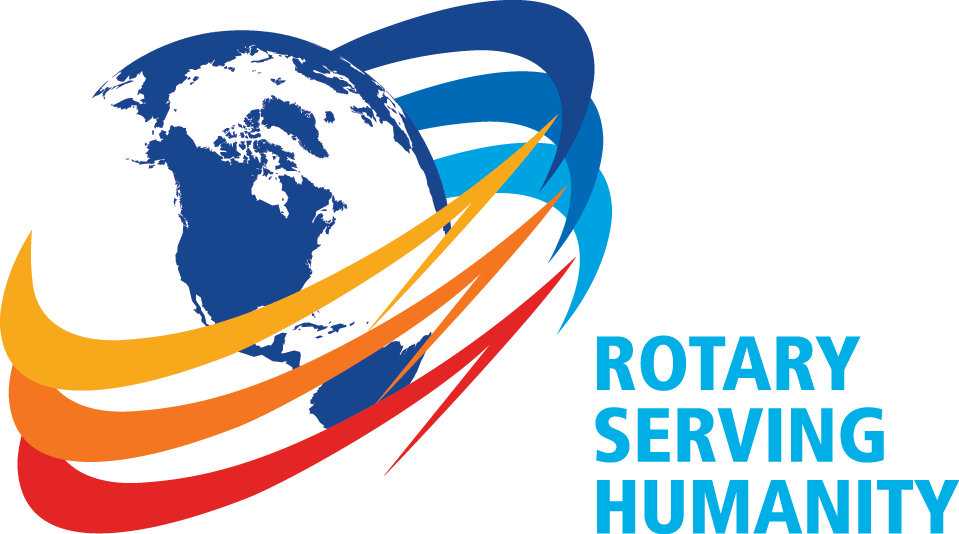 Rotary International President-elect John F. Germ announces his presidential theme 'Rotary Serving Humanity.'
Rotary’s founder, Paul Harris, believed that serving humanity is “the most worthwhile thing a person can do,” RI President-elect John F. Germ said, and that being a part of Rotary is a “great opportunity” to make that happen. Germ unveiled the 2016-17 presidential theme, Rotary Serving Humanity, to incoming district governors on 18 January at the International Assembly in San Diego, California, USA. “I believe everyone recognizes the opportunity to serve Rotary for what it truly is: not a small opportunity, but a great one; an opportunity of a lifetime to change the world for the better, forever through Rotary’s service to humanity,” said Germ. Rotary members around the globe are serving humanity by providing clean water to underdeveloped communities, promoting peace in conflict areas, and strengthening communities through basic education and literacy. But none more important than our work to eradicate polio worldwide, he said. After a historic year in which transmission of the wild poliovirus was stopped in Nigeria and all of Africa, Germ said we are closer than ever to ending polio. “We are at a crossroads in Rotary,” he added. “We are looking ahead at a year that may one day be known as the greatest year in Rotary’s history: the year that sees the world’s last case of polio.” Last year’s milestones leave just two countries, Afghanistan and Pakistan, where the virus still circulates. Polio would be only the second human disease ever to be eradicated. When that moment arrives, it’s “tremendously important” that Rotary is ready for it, said Germ. “We need to be sure that we are recognized for that success, and leverage that success into more partnerships, greater growth, and even more ambitious service in the decades to come.” Germ, a member of the Rotary Club of Chattanooga, Tennessee, USA, encouraged attendees to return to their clubs and communities and spread the word about Rotary’s role in the fight for a polio-free world. “People who want to do good will see that Rotary is a place where they can change the world. Every Rotary club needs to be ready to give them that opportunity,” Germ said. Enhancing Rotary’s image isn’t the only way to boost membership. “We need clubs that are flexible, so our service will be more attractive to younger members, recent retirees, and working people.” He added: “We need more willing hands, more caring hearts, and more bright minds to move our work forward.” Rotary News 18-Jan-2016 |
||||||
Alumna honoree creates opportunities for the poor .jpg) Susan Davis shares a photo with school children in Pakistan. Davis co-founded BRAC USA to advance the mission of BRAC -- Bangladesh Rehabilitation Assistance Committee -- which is dedicated to fighting poverty.
Photo Credit: Courtesy of Susan Davis For her work to mitigate extreme poverty around the world, Susan Davis has received many honors. But the 2015-16 Rotary Global Alumni Service to Humanity Award has special significance.
“It feels like a circle of completion,” says Davis, who was a Rotary Foundation Ambassadorial Scholar in 1980-81, doing graduate studies in international relations at Oxford University in England. “Rotary invested in me when I was young, and now is celebrating the harvest.” A decade ago, Davis co-founded BRAC USA to advance the mission of BRAC -- Bangladesh Rehabilitation Assistance Committee -- the world's largest nongovernmental development organization, which was founded after Bangladesh’s partition from Pakistan in the 1970s. The U.S. branch is dedicated to fighting poverty and to creating opportunities for the poor in Africa and elsewhere. Fulfilling that mission hasn’t been easy. Davis’ work has been disrupted by floods, cyclones, earthquakes, and war. Even worse was the sudden and deadly Ebola epidemic in 2014 in West Africa. “I wasn't sure how to protect our staff and clients and accompany these vulnerable communities out of this tragic situation,” says Davis, who served as BRAC USA’s president and chief executive officer until her departure this month. She quickly contacted Ebola experts and connected them with BRAC USA’s representatives in affected countries. “I lost sleep and cried with each death,” she says. Two of those deaths were particularly painful. Ophilia Dede, a BRAC credit officer in Liberia, and her husband succumbed to the virus, leaving behind a little girl. Davis helped set up a scholarship fund for her education. But she doesn’t allow such painful experiences to deter her. “The urgency of the need and the tangible opportunities to make a difference keep me going,” she says. “And I have been blessed by seeing two big ideas — microfinance and social entrepreneurship — take root globally.” From 1987 to 1991, Davis championed microfinance while working as a program officer with the Ford Foundation in Bangladesh. She developed a consortium that raised $175 million, increasing the availability of microloans in Bangladeshi villages to 44 percent from 5 percent, she says. Though debates endure over how much credit microfinance should receive for the country’s progress, conditions in Bangladesh have improved significantly: According to The Economist, life expectancy in the country rose from 59 to 69 during a 20-year span ending in 2010. Davis also is co-author, with journalist David Bornstein, of the book “Social Entrepreneurship: What Everyone Needs to Know.” And she is involved with Ashoka, a nonprofit organization that supports social entrepreneurship; as a director, she oversaw its expansion to the Middle East, North Africa, and Central Asia. A resident of New York City, Davis is widely recognized for her work in the field of international development. She was appointed to the board of the United Nations Fund for International Partnership in 2012, is a member of the Council on Foreign Relations, and has served on the boards of the Grameen Foundation, the Sirleaf Market Women's Fund, and the African Women's Development Fund USA. Davis has come a long way from the small town in southwest Louisiana, USA, where she grew up. The Rotary scholarship provided her first opportunity to live abroad. She believes that her Oxford experience allowed her to be taken seriously, and credits it with helping her land a job with the Ford Foundation. Perhaps most importantly, says Davis, that Rotary-sponsored year gave her an entirely new perspective on power and privilege. “Oxford was larger than life in my imagination,” she recalls. “But when I became a part of Oxford and got to know the dons and the students, I realized that, whether rich or poor, we were all just human beings and all of us were vulnerable and full of imperfections.” Davis will be honored at the Rotary International Convention in Korea in June. By David Sweet Rotary News 8-Jan-2016 |
||||||
Rotary condemns deadly attack on polio security personnel in PakistanRotary members and our partners in the fight to eradicate polio offer our heartfelt condolences and express a deep sadness in the wake of a horrific bomb attack in Quetta, Pakistan, that took the lives of at least 15 security personnel on 13 January.
This tragic attack outside a polio immunization center is a stark reminder of the dangers faced by Rotary, our partners in the Global Polio Eradication Initiative, and the brave women and men on the front lines of our effort to protect all children from the paralyzing effects of polio. While the bombing will be investigated, one thing is clear: The security personnel who were killed died because their job was to protect teams of polio immunizers. We applaud the government's commitment to continue the vaccination campaign throughout Pakistan, which is one of only two countries where the poliovirus is still endemic. Today we pause to honor the sacrifice made by the heroic police officers killed. Yet our 30-year commitment to end polio remains steadfast. Even as we absorb the horror of this bombing, we are redoubling our efforts to educate families and build confidence in the safety of polio vaccines, and to engage community and religious leaders to support our campaign. We are closer than ever to achieving a polio-free world. Vast improvements have been seen in Pakistan, with more than 80 percent fewer cases in the country than in 2014. In order to stop polio in Pakistan in 2016, we must ensure the safety of vaccinators to reach every child. And today, our release of $35 million in grants for polio eradication signals our determination to finish the job to which thousands of courageous individuals have committed themselves, and to never forget the sacrifices made by those who lost their lives in this effort. Rotary News 13-Jan-2016 |
||||||
What it's like to go to jail for your beliefs ... and forgive your captors.jpg) Illustration by Gwen Keraval
Naing Ko Ko
Rotary Peace Fellow University of Queensland, Australia, 2012-13 In 1988, when I was 16, I began to protest with other students for democracy, human rights, and social justice in my home country of Burma, now called Myanmar. Four years later, I was arrested and tortured for two months in an interrogation camp. I was shackled and beaten. I was not allowed to sleep. They put a cloth over my eyes and a hood over my head, so I could not tell the day from the night. They asked me the same questions over and over. It was quite similar to George Orwell’s 1984. After this, I was sent to a special court. I was given no lawyer, just sent directly to prison. They did not want us to learn in prison, but I had a dream to go and study overseas when I was released. I convinced a guard to smuggle books to me. I received a dictionary to learn English and books on economics and philosophy. I dug a hole in the wall of my cell and hid the books and covered the hole with an image of the Buddha. I studied English at night and in the day I slept. But one day, I got sleepy and didn’t hide the books, and they were discovered. After that, I was moved to a cell where they kept the dogs. They put me in shackles again and made me behave as if I were a dog. If they called my name, “Naing Ko Ko!” I had to respond, “Woof! Woof!” When the guards came, I had to kneel down and press my face to the floor and not look at their face. They put the food on the ground and I had to eat just with my mouth, like a dog. With water it was this way, too. At this time, I realized that I would die in the prison if I remained fighting and stubborn. I knew I had to accept the reality and control my mind or I would go crazy in that place. There were others who committed suicide. They smashed their heads against the wall. I didn’t want to be defeated in this way. I did not want to die in front of inhuman wardens. But I had also to remember that the guards were not educated people. They were part of a system. So I started to talk with them. I said, “Come on. We are just students. We are not murderers or criminals. We only want the right to learn and to make a democracy.” I tried to explain as much as I could, from reading the Rev. Martin Luther King Jr. and Gandhi. Many did not respond at all. But I kept talking. I made my voice loud. After many times talking, some prison guards replied to me. We became familiar and finally like close friends. After six years and eight months, I was released. I am now fulfilling my dream of studying overseas at Australian National University in Canberra. Of all the prisoners who were arrested in the protests, I think I am the only one who is getting a Ph.D. More than 3,000 people died during the democracy protests of 1988. Thousands more went to prison like me. We became known as the “88 Generation” because we called for democracy and human rights. We cannot forget what happened in places like the dog cell. But we must forgive the guards and wardens or we cannot move forward. You cannot make a democracy with rage in your heart. There must be forgiveness. It is important to talk about justice. But revenge and justice are not the same. For me, the best revenge is to become someone who can work to change my country systematically. I want to return to Myanmar to become a chief policy adviser. I want to work on anti-corruption and anti-poverty programs and social justice, and most of all the peacemaking process. I want the interrogation camp where I was tortured to become a museum so we never forget this part of our history and never repeat it. As told to Steve Almond The Rotarian 1-Jan-2016 |
||||||
Happy New Year.jpg) |
||||||
Happy Holidays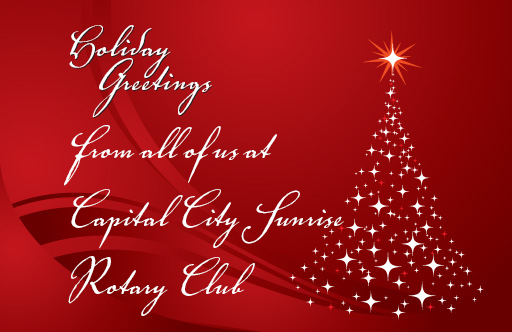 |
||||||
Indian hospital project is eye-opening.jpg) Rotary International / Alyce Henson
When Camilla McGill planned her first visit to India about 10 years ago, she couldn’t have known how quickly – nor how painfully – she’d learn one of the trip’s most important lessons.
“I was alone in a hotel, and I had a nightmare,” she says. “I jumped out of bed, caught my foot in the sheet, fell to the floor, and hit my head.” In the morning, she found herself dizzy and disoriented, with a blossoming black eye, but she was determined to keep her first appointment: assisting with a National Immunization Day event with Rotarians at a nearby hospital. “I didn’t find the hospital I was looking for,” she says, “but I came across a group of nuns who care for tuberculosis patients. They took me in, cleaned me up, and put me back together.” She soon resumed her work, grateful that the strangers’ kindness had sidetracked her. “As Westerners, we’re often taught to take initiative: ‘Be the leader! Stick to the plan!’” McGill says. “Most of the Indians I’ve met don’t work that way; they work with people. It’s about relationships.” A decade after that first trip, the relationships McGill has built with Indian, Canadian, and U.S. Rotarians have helped hundreds of India’s poorest citizens in a variety of projects. Her journey began about 9,300 miles away from India, in the town of Pearland, Texas. When she and her husband moved there from Canada for his job, McGill returned to school to study inter-cultural communication – and joined the local Rotary club. “I went to the 2005 Rotary International Convention in Chicago my first year as a member,” she recalls. “I saw the full international component of Rotary on display. I was amazed to learn that there were grants available to do all kinds of things.” Through Indian friends back in Canada, McGill had developed an interest in India, and she sensed an opportunity. She took to the Web, browsing posts from Rotary clubs working in the country. Volunteers were needed for many projects, including schools, a maternity hospital, and an eye hospital, with the Rotary Club of Anakapalle, a small town in east-central India. “I contacted them, and I went,” she says. The hotel mishap aside, that first journey was a success. A $1,000 donation from the Rotary Club of Pearland furnished Anakapalle schools with desks and benches, and later, larger grants from The Rotary Foundation supported projects benefiting the town’s maternity and eye hospitals. McGill and her husband relocated again after Texas – first to Wilmington, Del., and then, after retirement, to Sarnia, Ont. – but the moves didn’t slow her volunteer efforts. She joined a Rotary club in Delaware and kept working on grant projects. In Sarnia, she joined the Rotary Club of Sarnia-Bluewaterland, which co-sponsored a Rotary Foundation Global Grant project with the Anakapalle club last year at the eye hospital. “Cataracts are much more common in India than they are here,” McGill explains. “The sunlight there causes some cases, and diet – particularly insufficient food – can play a role. When the eye hospital opened in 2000, the goal was to provide 40 free cataract surgeries per month and dispense eye medications to the poor.” The grant last year provided cataract surgeries for 760 people, medical treatment for about 2,500 patients with other eye conditions, and medical seminars on best practices for improving eye health. Through annual visits, McGill has witnessed Rotary’s impact on the hospital. “One year we paid for painting and new tiles, and we’ve purchased a new autoclave,” she says. “Many other Rotary clubs from the West have donated ophthalmologic microscopes. Now the hospital could use a phacoemulsifier” – an expensive piece of equipment that uses vibration to pulverize and extract the cataract. It will help improve outcomes for patients with limited access to health care – which McGill describes as the most rewarding part of this work. Her visits to Anakapalle have allowed her to see how vital the hospital’s services are to the community too. “One day I was visiting the eye hospital, and the staff was smiling and happy and laughing, and I asked why,” she says. “It turned out that a man was coming in who’d had a damaged eye removed at an early age. He had only one eye left, and a completely white cataract was covering that entire retina. The hospital was going to remove the cataract, and the staff knew he would be able to see again. That was exhilarating to see happen.” She hopes other Western Rotarians pursuing global grant projects will visit potential partner clubs and project sites, she says. “Once that’s done, the grant becomes more than a piece of paper. We can feel what the need is, in addition to knowing what the need is.” By Anne Ford The Rotarian 8-Dec-2015 |
||||||
From CNBC - The top 10 charities changing the world in 2015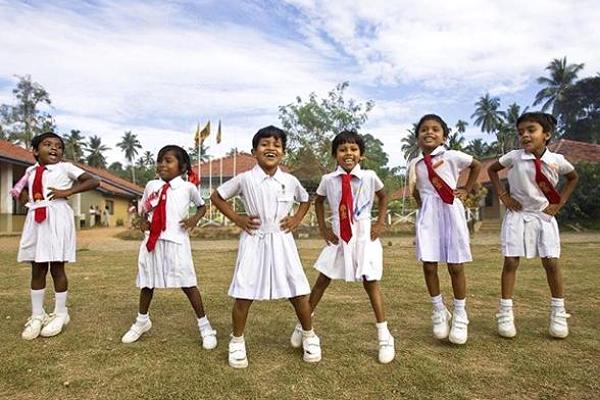 On Giving Tuesday, CNBC, one of the leading consumer and business news media outlets in the U.S., named its top 10 charities in the world, ranking The Rotary Foundation No. 5. Charities were chosen for changing the world while maintaining excellent financial standards.  5. The Rotary Foundation This not-for-profit organization works to advance world understanding, goodwill and peace. Using Rotary Foundation grants, Rotary's 34,000 clubs across the globe develop and carry out sustainable humanitarian projects and provide scholarships and professional training opportunities. One of its biggest initiatives aims at eradicating polio through its PolioPlus program, launched in 1985. Since then, Rotary and its partners, including the World Health Organization and the Bill & Melinda Gates Foundation, have immunized more than 2.5 billion children, reducing the incidence of polio by 99 percent and eradicating it from all but three countries. Score: 96.31 |
||||||
Chulalongkorn celebrates 10 years of equipping leaders to build peace Rotary Peace Fellows at Chulalongkorn University in Bangkok discuss peacebuilding strategies during a field study.
Photo by Stephanie van Pelt
Bobby Anderson was helping former freedom fighters in Aceh, Indonesia, adjust to life after combat when he heard about the Rotary Peace Center at Chulalongkorn University in Bangkok.
Anderson, who became part of the 2010 class of Rotary Peace Fellows, says the program allowed him to reflect upon the work he had already done and gain a larger perspective beyond day to day practicalities. “To be able to meet other people that had done similar work in other places and to be exposed [during field study] to the disarmament, demobilization, and reintegration situation in Nepal was fascinating and helped me change how I think about the way I manage my own programs,” Anderson says. Through its six peace centers, Rotary is developing leaders to become catalysts for peace in their communities and around the globe. The Chulalongkorn program offers a professional development certificate to individuals already working in fields related to peace. Unlike the 15- to 24-month master’s degree program, the Chulalongkorn course lasts just three months. Because of the shorter time commitment and emphasis on relevant experience, the program attracts a broader pool of applicants. Chulalongkorn, which celebrates its 10th anniversary this year, has graduated 355 peace fellows from 69 countries. Its curriculum emphasizes equal parts instruction and learning from peers. “There are two main aspects of the program,” says Jenn Weidman, deputy director of the center. “One is the academic skills, what you actually learn, the steps of mediation, theory of analysis, etc. The other is the transformation.” “We take professional people and remove them from their role, place them in the same space with diverse people for three months, and then challenge everything they’ve ever believed or held dear,” she says. “You get reflection, and we walk alongside and guide that, asking a lot of questions and creating a safe space for discussion. Some come and leave totally different people.” Professors, from both Thailand and outside the country, are chosen each year for a curriculum that is constantly evolving. Fellows also complete two field studies, one in Thailand and one in a postconflict setting outside Thailand where they put their training into action. “It’s an incredible opportunity for me as an instructor in the program to be able to interact with people working on the frontlines in Afghanistan, or Kenya or South Sudan, but then also the U.S.,” says Craig Zelizer, associate director of conflict resolution at Georgetown University in Washington, D.C., and founder of the Peace and Collaborative Development Network. “The diversity of participants and the change they are already affecting and what they’ll do as a result of this program are incredible.” Jennifer Jacobson, a police constable in Canada, attended the center in 2012. She says the group exercises and interactions with classmates altered her views of her work. “A lot of it is bonding with other people, because you are together all day long, pretty much seven days a week,” she says. “I’ve taken something from every little piece of the program.” Since completing the program in 2007, Meas Savath, of Cambodia, founded the Cambodian Center for Mediation, which provides training and social dialogue, building conciliation between former Khmer Rouge and non-Khmer Rouge factions. Although the country’s brutal civil war ended more than 35 years ago, Savath says, there is still a lot of mistrust between the two sides. “In my program, all parties are invited to share their experience and understanding, as well as their perceptions of the two groups, and afterward they have a relationship that didn’t exist before,” he says. By Arnold R. Grahl Rotary News 17-Nov-2015 |
||||||
Happy Thanksgiving |
||||||
Rotary honors six women for leadership and humanitarian serviceRotary President K.R. Ravindran has named six Rotary Global Women of Action for 2015. The honorees were chosen for their dedication and service, which has improved the lives of thousands around the world.
“Every day at Rotary I see firsthand how our members work to change lives and make a significant impact,” said Ravindran. “Rotary’s Global Women of Action embody Rotary’s motto, Service Above Self.” The women will be honored at Rotary Day at the United Nations in New York City on 7 November. They will address attendees and lead discussions on various topics related to their work. The six were selected by Rotary senior leaders and staff from more than 100 nominees from around the world. They are: • Dr. Hashrat A. Begum, of the Rotary Club of Dhaka North West, Bangladesh, who has implemented several large-scale projects to deliver health care to poor and underserved communities. • Stella S. Dongo, of the Rotary Club of Highlands, Zimbabwe, who leads the Community Empowerment Project in the city of Harare. The project provides basic business and computer training to more than 6,000 women and youths affected by HIV/AIDS. • Lucy C. Hobgood-Brown, of the Rotary E-Club of Greater Sydney, New South Wales, Australia, who cofounded HandUp Congo, a nonprofit that promotes and facilitates sustainable, community-driven business, educational, social, and health initiatives to underprivileged communities in the Democratic Republic of Congo. • Razia Jan, of the Rotary Club of Duxbury, Massachusetts, USA, who has spent decades fighting for girls’ educational rights in Afghanistan. An Afghan native, she is the founder and director of the Zabuli Education Center, a school that provides free education to more than 480 girls in Deh’Subz, Afghanistan. She was also recognized as a CNN Hero in 2012. • Kerstin Jeska-Thorwart, of the Rotary Club of Nürnberg-Sigena, Germany, who launched the Babyhospital Galle project after surviving the 2004 tsunami in Sri Lanka. With a budget of $1.8 million and the support of 200 Rotary clubs, the project rebuilt and equipped the Mahamodara Teaching Hospital, in Galle, Sri Lanka. The hospital has served more than 150,000 children and more than 2.2 million women. • Dr. Deborah K. W. Walters, of the Rotary Club of Unity, Maine, USA, a neuroscientist who has served as director of Safe Passage (Camino Seguro), a nonprofit that provides educational and social services to families who live in the Guatemala City garbage dump. |
||||||
Enhance your next school water project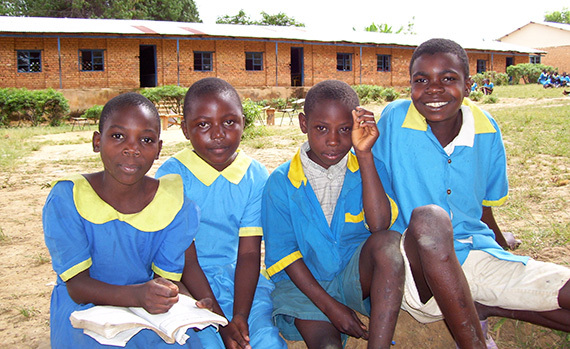 Students at a school recently equipped with toilets. Water projects in schools lower dropout rates and prevent the spread of disease.
By Sandy Forster
The young girl shyly held my hand as she took me on a tour of her school — similar, yet strikingly different, from the schools I knew at home, half a world away. The students were eager to have a visitor and excited to show me their work. Since supplies were limited, I could see many students sharing paper, short nubby pencils, and schoolbooks. I noticed that in the upper primary school grades, four through eight, the classrooms had fewer students, especially girls. The headmaster explained that many children, girls especially, drop out of school to help their mothers bring water from creeks or rivers or when the girls reach the age when their menstrual cycles begin because they don’t have access to bathrooms. He said this particular school didn’t have a water source, nor toilets or even latrines for the students to use. This first experience visiting a Rotarian-led water and sanitation project site has stayed with me throughout the years. Water, Sanitation and Hygiene (WASH) in School programs are vital for community development and growth. Because of these programs, we are able to see positive changes for families, villages, and nations. School dropout rates decline, health improves as fewer diseases spread, and economic growth accelerates. In the years following my first WASH trip, I made several more trips to this village. The homes and the school now have easy access to clean water. Toilet blocks have been built at the school and homes have added latrines with toilets. All grades are full with both boys and girls learning, and the dropout rates have declined. Children became ‘teachers’ to parents and grandparents about sanitation and hygiene. Small businesses have grown. And it all began with water. Now as a member of the Water and Sanitation Rotarian Action Group (WASRAG), I have the opportunity to help other clubs and districts with their WASH projects. The action group has teamed up with Rotary to offer a three-part webinar series to assist clubs and districts with their WASH in Schools projects. The series will feature ideas and best practices from experts in the field to help you start or expand your projects. Sandy Forster is a past governor of District 5810 (Texas, USA) and a member of the Board of Directors of the Water and Sanitation Rotarian Action Group.
|
||||||
Rotary's representative network puts books into the hands of children in Ecuador.jpg) Students in Ecuador read books they received through an international project sponsored by the Rotary clubs of Annapolis, Maryland, and Quito Occidente, Ecuador. The project is part of an ongoing collaboration between Rotary and the Organization of American States.
Photo Credit: Courtesy of the Rotary Club of Annapolis, Maryland, USA Schoolchildren in Ecuador are improving their reading, and their teachers are receiving additional professional development through a collaboration between Rotary and the Organization of American States (OAS). The effort began three years ago when Richard Carson, RI representative to the OAS, and other Rotary members met with staff at the agency to discuss a set of literacy requirements for schools. They briefed the ministers of education of Central and South American countries on an approach to improve reading skills. Ecuador adopted the plan. “We flew to Ecuador and met with the vice president of the country, who happened to be a Rotarian, and with many different teaching professionals,” says Carson, a member of the Rotary Club of Bethesda-Chevy Chase, Maryland, USA. “It’s a very successful project involving three Rotary districts and eight clubs.” To achieve the new academic standards, the program called for additional training for teachers, including how to incorporate new technology into the curriculum. Rachael Blair, who coordinated a global grant project for the Rotary Club of Annapolis, Maryland, USA, said she was moved by how much the teachers appreciated Rotary’s involvement. “They could not believe that Rotary clubs would take such an interest in their professional development, especially clubs from overseas,” she says. “They reminded me that when you nurture and support others, they shine and bring their very best skills and talents to the table.” For the past three decades, a network of RI representatives has been strengthening ties with the United Nations, its agencies, and other international organizations, like the League of Arab States and the European Union. The result is bigger projects, like the one in Ecuador. In Lebanon, Rotary clubs have partnered with the UN’s Economic and Social Commission for Western Asia to teach high school students about the UN Millennium Development Goals, the progress Arab states have made toward reaching them, and the obstacles that remain. The aim is to better educate the younger generation on how they can help achieve the goals. Michel Jazzar, a member of the Rotary Club of Kerousan, Lebanon, and an RI representative to the UN agency, has also been instrumental in bringing Lebanon clubs together to form a National Rotary Lebanon Fund to coordinate their efforts. RI representatives monitor activities and advocate for Rotary’s causes within most of the major international institutions. They regularly attend functions at the White House, United Nations, the Commonwealth, and European Union, and they arrange private meetings and organize special events. Rotary Day at the UN One such special event is the annual Rotary gathering at the United Nations building in New York City. This year’s event, 7 November, will celebrate 70 years of partnership and give roughly 1,000 members and guests a chance to hear from experts at the UN and exchange ideas on water, sanitation, hunger, poverty, education, and other topics. A morning youth session is open to high school students, including members of Rotary’s Interact and Youth Exchange programs. “Just by having a presence at the United Nations building and in meetings of [nongovernmental organizations], it’s given Rotary much greater credibility,” says Joseph Laureni, the primary representative to the UN in New York. “We’re not just a name you see on a billboard.” Deep roots The roots of the RI representative network actually predate the formal chartering of the UN after World War II. In 1942, Rotary clubs from 21 nations organized a conference in London where ministers of education developed ideas for advancing education, science, and culture across nations. This meeting was the seed of what is known today as UNESCO, the United Nations Educational, Scientific, and Cultural Organization. Delegations of Rotary members helped draft the UN Charter in San Francisco in 1945 and gave the organization strong support during its early years, until the Cold War turned it into an ideological battleground. Rotary’s participation decreased over the following decades in keeping with its policy against political involvement. The spark that restored Rotary’s interest in the UN was the launch of the campaign to eradicate polio in 1985 By Arnold R. Grahl
Rotary News 19-Oct-2015 |
||||||
Rotary gives US$40.4 million to end polio worldwide.jpg) NEW YORK, (Oct. 23, 2015) — On the heels of historic success against polio in Nigeria and across the continent of Africa, the global effort to end polio is receiving an additional US$40.4 million boost from Rotary to support immunization activities and surveillance spearheaded by the Global Polio Eradication Initiative.
Polio is on track to become the second human disease ever to be eliminated from the world (smallpox is the first). To date, Rotary has helped 194 countries stop the transmission of polio through the mass immunization of children. Rotary’s new funding commitment, announced in advance of the Oct. 24 observance of World Polio Day 2015, targets countries where children remain at risk of contracting this incurable, but vaccine-preventable, disease.
“We are in the final push to end polio, but as long as the disease exists anywhere in the world, all children are at risk,” said Rotary’s International PolioPlus Committee Chair Michael McGovern. “With just two endemic countries remaining – Pakistan and Afghanistan –we must continue to raise awareness and funds needed to end this paralyzing disease. Our grants show Rotary’s commitment to staying the course until we wipe out polio forever.”
Following Nigeria’s polio-free milestone, and no cases of wild polio in all of Africa in more than a year, Rotary is contributing $26.8 million to African countries to ensure the disease never returns to the continent: Burkina Faso ($1.6 million), Cameroon ($2.7 million), Chad ($2.6 million), Democratic Republic of Congo ($499,579), Equatorial Guinea ($685,000), Kenya ($750,102), Madagascar ($562,820), Mali ($1.5 million), Niger ($3 million), Nigeria ($6.9 million), Somalia ($4.9 million) and South Sudan ($1.5 million).
Rotary has earmarked $6.7 million to polio-endemic Pakistan, $400,000 to Iraq and $5.3 million to India. The remaining $990,542 will support immunization activities and surveillance.
Rotary provides grant funding to polio eradication initiative partners UNICEF and the World Health Organization, which work with the governments and Rotary members in polio-affected and high-risk countries to plan and carry out immunization activities.
To date, Rotary has contributed more than $1.5 billion to fight polio. Through 2018, the Bill & Melinda Gates Foundation will match two-to-one every dollar Rotary commits to polio eradication (up to $35 million a year). Currently, there have been only 51 cases of polio reported in the world in 2015, down from about 350,000 a year when the initiative launched in 1988.
|
||||||
Why mentors matter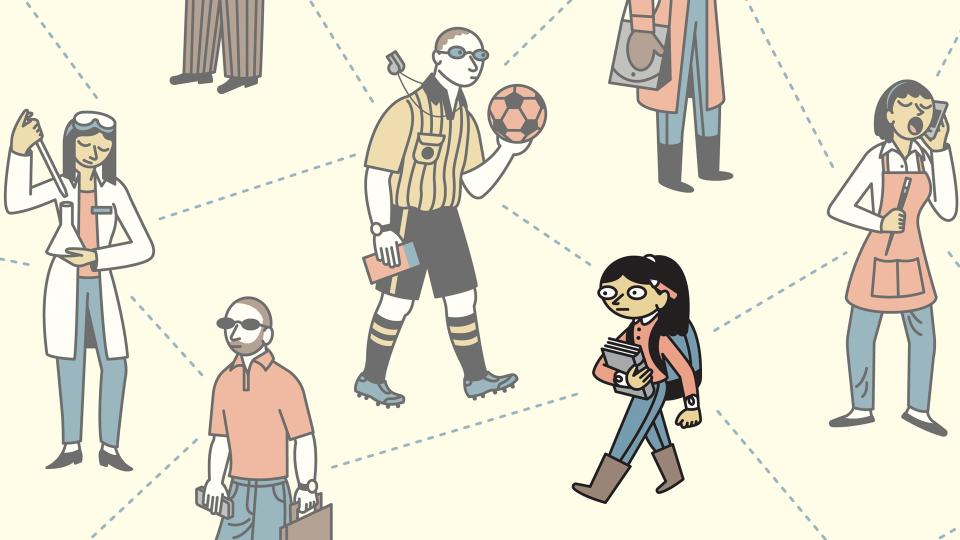 llustration by Greg Clarke From the October 2015 issue of The Rotarian We Americans like to think of ourselves as “rugged individualists” – in the image of the lone cowboy riding toward the setting sun, opening the frontier. But at least as accurate a symbol of our national story is the wagon train, with its mutual aid among a community of pioneers. Throughout our history, a pendulum has slowly swung between the poles of individualism and community, both in our public philosophy and in our daily lives. In the past half century we have witnessed, for better or worse, a giant swing toward the individualist pole in our culture, society, and politics. At the same time, researchers have steadily piled up evidence of how important social context, social institutions, and social networks – in short, our communities – remain for our well-being and our kids’ opportunities.
Social scientists often use the term social capital to describe social connectedness – that is, informal ties to family, friends, neighbors, and acquaintances; involvement in civic associations, religious institutions, athletic teams, volunteer activities; and so on. Social capital has repeatedly been shown to be a strong predictor of well-being both for individuals and for communities. Community bonds and social networks have powerful effects on health, happiness, educational success, economic success, public safety, and (especially) child welfare. However, like financial capital and human capital, social capital is distributed unevenly, and differences in social connections contribute to the youth opportunity gap. Many studies have shown that better-educated Americans have wider and deeper social networks, both within their closest circle of family and friends and in the wider society. By contrast, less-educated Americans have sparser, more redundant social networks, concentrated within their own family. (By “redundant,” I mean that their friends tend to know the same people they do, so they lack the “friend of a friend” reach available to upper-class Americans.) In short, college-educated parents have both more close friends and more nodding acquaintances than less-educated parents. Class matters for the density of “close” friendship – the sort of “strong ties” that can provide socioemotional and (in a pinch) material support. Holding race constant, parents in the top fifth of the socioeconomic hierarchy report about 20-25 percent more close friends than parents in the bottom fifth. Perhaps more important, more-educated Americans also have many more “weak ties,” that is, connections to wider, more diverse networks. The reach and diversity of these social ties are especially valuable for social mobility and educational and economic advancement, because such ties allow educated, affluent parents and their children to tap a wealth of expertise and support that is simply inaccessible to parents and children who are less well-off. College-educated parents are more likely to “know” all sorts of people. This weak-tie advantage is especially great when it comes to occupations that are most valuable for their kids’ advancement – professors, teachers, lawyers, medical personnel, business leaders – but it is visible even among more traditional working-class connections, like police officers and neighbors. On the contrary, lower-class parents’ social ties are disproportionately concentrated within their own extended family (and perhaps a high school friend and a neighbor or two), who, because of their own location in the social hierarchy, are unlikely to expand the reach of the parents. Though more-educated, affluent parents have a quantitative edge in the size of their personal networks, even more important is their qualitative edge, in terms of what their friends and acquaintances can do for them and their kids. Upper-class parents also enable their kids to form weak ties by exposing them more often to organized activities, professionals, and other adults. Working-class children, on the other hand, are more likely to interact regularly only with kin and neighborhood children, which limits their formation of valuable weak ties. When adjusting to college, choosing college majors, and making career plans, kids from more affluent, educated homes engage a wider array of informal advisers – family members, faculty, and outsiders – whereas kids from poor families typically consult one or two members of their immediate family, few if any of whom have any college experience at all. In short, the social networks of more affluent, educated families amplify their other assets in helping to ensure that their kids have richer opportunities. Connections are important not merely for getting into top schools and top jobs. At least as important as the pipeline from a prized internship to a corner-office job are the ways in which social capital can protect privileged kids from the ordinary risks of adolescence. Studies during the past 40 years have consistently shown that, if anything, drug usage and binge drinking are more common among privileged teenagers than among their less affluent peers. What is different, however, are the family and community “air bags” that deploy to minimize the negative consequences of drugs and other misadventures. Mentors and “savvy” adults outside the family often play a critical role in helping a child develop his or her full potential. Careful, independent evaluations have shown that formal mentoring can help at-risk kids to develop healthy relations with adults (including parents), and in turn to achieve significant gains in academic and psychosocial outcomes – school attendance, school performance, self-worth, and reduced substance abuse, for example – even with careful controls for potentially confounding variables. These measurable effects are strongest when the mentoring relationship is long-term, and strongest for at-risk kids. (Upper-class kids already have informal mentors in their lives, so adding a formal mentor does not add so much to their achievement.) Measurably, mentoring matters. Formal mentoring is much less common and less enduring than informal mentoring. In 2013, a nationwide survey of young people asked about both formal and informal mentoring. Sixty-two percent of kids of all ages reported some sort of informal (or “natural”) mentoring, compared to 15 percent who reported any formal mentoring. Moreover, informal mentoring relationships lasted about 30 months on average, compared to roughly 18 months for formal mentoring. Those national averages, however, obscure substantial class differences in access to mentoring. Informal mentoring is much more common among upper- and upper-middle-class kids than among lower-class kids. For virtually all categories of informal mentors outside the family – teachers, family friends, religious and youth leaders, coaches – kids from affluent families are two to three times more likely to have such a mentor. Privileged children and their less-privileged peers are equally likely to report mentoring by a member of their extended family, but family members of privileged kids tend to have more valuable expertise, so family mentors tend to have more impact on the educational achievements of the privileged kids. In short, affluent kids get substantially more and better informal mentoring. The informal mentoring gap is substantial in elementary school and steadily increases as children age through middle school and into high school. As things stand now, formal mentoring barely begins to close the gap. In fact, the modest compensation from formal mentoring is concentrated in primary and middle school and disappears as kids age. In high school, there is no difference at all in the incidence of formal mentoring between rich kids and poor kids. Thus, the total class gap in mentoring (informal plus formal) begins in elementary school and balloons just as the kids most need help outside their families. In sum, nearly two-thirds of affluent kids have some mentoring beyond their extended family, while nearly two-thirds of poor kids do not. This stunning gap exists not because the poor kids don’t want mentoring; in fact, they are nearly twice as likely as rich kids to say that at some point in their lives they wanted a mentor, but didn’t have one. One consequence of the mentoring gap is to exacerbate the savvy gap – kids from more privileged backgrounds are savvier about how to climb the ladder of opportunity. [Interviews showed that] disadvantaged 18- and 19-year-olds across the country are baffled about school practices, two- and four-year colleges, financial affairs, occupational opportunities, and even programs (both public and private) specifically designed to assist kids like them, such as educational loans. Their less-educated parents’ limited skills and experience explain part of this, but equally important is the fact that these kids lack the dense networks of informal mentors that surround their upper-class counterparts. One poignant example from our fieldwork arose when a working-class dad asked if he could bring along a younger daughter to our interview with his son, just so she could meet an actual college graduate. Any serious program to address the opportunity gap must address the savvy gap and therefore the mentoring gap. By Robert D. Putnam The Rotarian 17-Sep-2015 |
||||||
Nigeria declared polio-free, removed from endemic listThe World Health Organization (WHO) announced on 25 September that Nigeria is now polio-free. The World Health Organization (WHO) announced on 25 September that Nigeria is now polio-free and has been officially removed from the list of countries where polio is endemic. It’s been 14 months since any cases of polio caused by the wild virus have been detected there.
With Nigeria’s historic achievement, polio remains endemic in only two countries: Afghanistan and Pakistan. That means transmission of the virus has never been stopped there. Nigeria was the last country in Africa where polio was endemic. The continent celebrated its own first full year without the disease on 11 August. Once three years have passed without a case in WHO’s entire African region, officials will certify polio eradicated there. “Rotary congratulates Nigeria on its tremendous accomplishment in stopping polio,” says RI President K.R. Ravindran. “On behalf of the entire Global Polio Eradication Initiative, we thank volunteers, health workers, and parents in communities across Nigeria for their tireless commitment to ensuring every last child is protected against this devastating disease. In the months ahead, their dedication will remain as important as ever, as we work to keep Nigeria polio-free and to eliminate polio from its final strongholds in Pakistan and Afghanistan.” Nigeria’s success is the result of several sustained efforts, including domestic and international financing, the commitment of thousands of health workers, and new strategies that reached children who had not previously been immunized because of a lack of security in the country’s northern states. Type 2 poliovirus gone for good In other encouraging news, an independent global health commission officially verified on 21 September that wild poliovirus type 2, one of three strains of the wild virus, has been eradicated worldwide. Although the last type 2 case was detected back in 1999, the confirmation is an important milestone, as Rotary and its partners in the Global Polio Eradication Initiative prepare to switch from a form of the vaccine that targets all polio types to one that does not protect against type 2. The announcement by the Global Commission for the Certification of Poliomyelitis Eradication confirms that only two strains of the wild poliovirus remain. Of those, type 3 wild poliovirus hasn’t been detected in almost three years, and wild poliovirus type 1 is endemic only in Afghanistan and Pakistan. Funding increase needed to reach final goal On 25 September, the Polio Oversight Board met to determine the next steps needed to eradicate polio. The group concluded that $1.5 billion in new funding is needed to help Rotary and its partners end polio in the next few years. With Nigeria now polio-free, spending will focus on the most vulnerable children in Afghanistan and Pakistan, while continuing to shield millions of children already living in polio-free countries. “With a fully funded program and global commitment to ending this disease, we have the opportunity to interrupt transmission of the wild poliovirus in Pakistan and Afghanistan in 2016, opening the door for certification of a global eradication in 2019,” says Michael K. McGovern, chair of Rotary’s International PolioPlus Committee. “With [Rotary members’] continued support, we will soon see our dream of a polio-free world realized.” By Ryan Hyland
Rotary News 25-Sep-2015 |
||||||
Nigeria sees no wild polio cases for one yearDespite historic milestone, country still faces hurdles before being declared polio-free.
Today marks one year since Nigeria last reported a polio case caused by wild poliovirus, putting the country on the brink of eradicating the paralyzing disease. The last case was reported on 24 July 2014 in the northern state of Kano. If no cases are reported in the coming weeks, the World Health Organization is expected to remove Nigeria from the list of countries where polio is endemic, leaving just two: Afghanistan and Pakistan. Nigeria is the last polio-endemic country in Africa. The continent is poised to reach its own first full year without any illness from the virus on 11 August. “Every Rotarian in the world should be proud of this achievement,” says Rotary International President K.R. Ravindran. “We made history. We have set Africa on course for a polio-free future. But we have not yet reached our goal of a polio-free world. Raising funds and awareness and advocating with your government are more crucial than ever.” Progress in Nigeria has come from many measures, including strong domestic and international financing, the commitment of thousands of health workers, and new strategies that reached children who had not been immunized earlier because of a lack of security in the northern states. “Rotary’s commitment has been the number one reason for the recent success in Nigeria,” says Dr. Tunji Funsho, chair of Rotary’s Nigeria PolioPlus Committee. “We have infected political leaders with this commitment. The government has demonstrated this with political support and financial and human resources. And that went down the line from the federal level, to the state, to the local governments.” Nigeria has increased its domestic funding for polio eradication almost every year since 2012 and has allocated $80 million for the effort this year. Funsho also applauds religious leaders who championed the vaccination efforts to families in their communities. Despite the historic gains in Nigeria, health experts are cautious about declaring victory. Funsho says the Global Polio Eradication Initative partners must strengthen routine immunization especially in hard-to-reach areas, in addition to boosting sensitive surveillance to prevent resurgence of the disease. If no new cases are reported in the next two years, Nigeria, along with the entire Africa region, will be certified polio-free. “The virus can be introduced from anywhere where it is still endemic, particularly now in Afghanistan and Pakistan, into areas that haven’t had polio in years,” Funsho says. “It is important we keep the immunity level in Nigeria to at least 90 percent.” For instance, Syria experienced a sudden outbreak of the disease when 35 cases were reported in December 2013. None had been reported there since 1999. “Immunizations become imperative for history not to repeat itself in Nigeria,” says Funsho. In June, Rotary announced $19 million in grants for continued polio eradication activities in Africa, including almost $10 million for Nigeria. Since 1985, when Rotary launched PolioPlus, the program that supports the organization’s polio eradication efforts, its worldwide monetary contributions to the cause have exceeded $1.4 billion. “We’ve come a long way and have never been so close to eradicating polio in Nigeria and around the world, but it’s not a time to fully celebrate,” says Funsho. “We have some grueling years ahead of us before WHO can certify Nigeria and Africa polio-free.” By Ryan Hyland Rotary News
24-Jul-2015 |
||||||
Road trip revs up interest in Rotary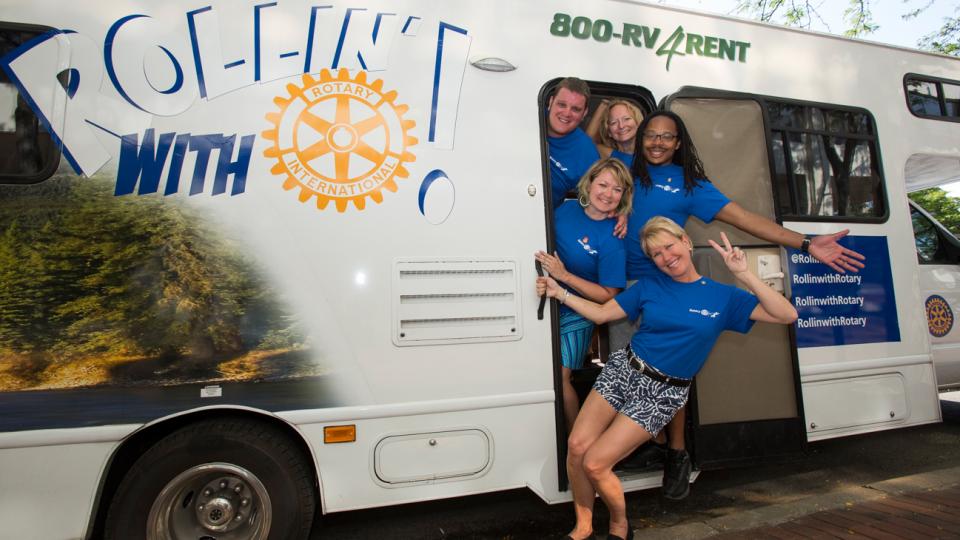 The Rollin' with Rotary team, clockwise from top left, Adam Barth, Kathy Fahy, Jason Browne, RI Director Jennifer Jones, and Marie Fallon, stop off at Rotary International Headquarters in Evanston, Illinois, USA, on 6 August.
Photo Credit: Rotary International/Alyce Henson Members of the news media had gathered, along with the mayor of Windsor, Ontario, Canada, and a group of Rotary members, on the bank of the murky Detroit River. It was early August and the members were about to amaze the reporters on hand.
Jason Browne and Adam Barth, members of Rollin’ With Rotary, a four-person team of Rotary members who visited a dozen cities this summer, dipped a bucket into the polluted water. The reporters watched as they poured the brownish water into a filter, part of a $1,000 survival kit that Rotary and its project partner ShelterBox distribute to disaster victims worldwide. The water came out clear. Browne, Barth, and their teammates drank glassfuls and grinned broadly. Then they invited Mayor Drew Dilkens to take a drink. “He survived,” says Rotary International Director Jennifer Jones, laughing. “And the media went nuts!” Jones, who is from Windsor, traveled with the team. That day, Rotary was front-page news locally and featured on radio and TV. It was the kind of coverage that would be repeated almost every day of the nine-day Rollin’ With Rotary tour, 1-9 August. Says Jones: “Our aim was to make Rotary look cool, hip, and relevant. And I think we did it.” The trip was a direct outgrowth of Rotary’s Young Professionals Summit, held last September in Chicago, at which Jones had encouraged the young Rotary participants to dream big. Barth, 31, of the Rotary Club of Jacksonville, North Carolina, USA, took that exhortation to heart and came up with the idea for the tour. His plan was immediately endorsed by Kathy Fahy, 41, of the Rotary Club of Iowa Great Lakes (Spirit Lake), Iowa; Marie Fallon, 40, of the Rotary Club of Pittsburgh East, Pennsylvania; and Browne, 32, of the Rotary Club of State College-Downtown, Pennsylvania. “We were discussing what people don’t understand about Rotary and we said, ‘What would people think if we stopped in their town and did something crazy? That would show them how fun Rotary can be,’ ” recalls Browne. Some of the fun was on display at Cedar Point amusement park in Ohio, where the team gave away discount coupons. “It gave us a chance to explain Rotary,” says Browne, “and we also went on rides and got people to yell, ‘Let’s Go Rotary!’ ” At other stops, the team delivered explicitly educational messages about the good that Rotary does. In Perrysburg, Ohio, the team participated in a six-block “water walk,” toting heavy containers of water to demonstrate how women and children in the developing world struggle daily to provide water for their families. During the drive between Taylor and Ann Arbor, Michigan, the team’s RV – festooned with the Rotary logo -- had a motorcycle escort of more than 80 members of the Wounded Warrior Project. Other drivers pulled off the road to watch, took photos, and were among the people who donated $11,000 that day to help disabled veterans. While in Ann Arbor, team members participated in an End Polio Now walk that concluded on the University of Michigan campus, in the building where, 60 years ago, the public announcement of the polio vaccine’s effectiveness was made. And the team even meditated in front of Rotary International World Headquarters in Evanston, Illinois, near hand-lettered signs bearing messages like “Pause, Breathe, and Relax With Rotary.” The team members were joined by several local people, including Sensei Mui, a Buddhist priest and the husband of a Rotary member, who was marking the 70th anniversary of the Hiroshima bombing. In Cedar Rapids, Iowa, the team, along with local Rotary members, engaged in three hours of random acts of kindness. Team members gave out cards bearing the Rotary logo that encouraged recipients of the kind acts to pass along the kindness -- and the cards -- to others. “It helped that nobody (on the team) was afraid to do goofy things,” says Fahy. “We couldn’t have afforded this kind of media coverage.” By the end of the trip, 1,500 people had liked the Rollin’ With Rotary Facebook page The entire trip was pulled together in just six weeks. Each of the team members contacted Rotary members along the planned route and solicited ideas for attention-getting activities in their area. “We looked for movers and shakers who wouldn’t just ask us to attend club meetings,” says Fallon, who organized the water walk in Perrysburg. “We’re showing that there are fun, inexpensive things you can do to bring attention to Rotary,” says Fahy. “Don’t wait for permission -- you can just take it and run with it.” A Rotary grant covered a budget of $12,000, and generous Rotary members all along the route opened their homes for meals and overnight stays. The four never slept in a hotel. Near the end of the tour, already thinking how much he would miss it, Jason Browne offered a piece of advice to fellow Rotary members: “We would have loved to come to every city in the country. We couldn’t do that, so do something on your own -- anything you can think of to promote Rotary!” By Nancy Shepherdson Rotary News 8-Sep-2015 |
||||||
Making a difference through Rotary Youth Exchange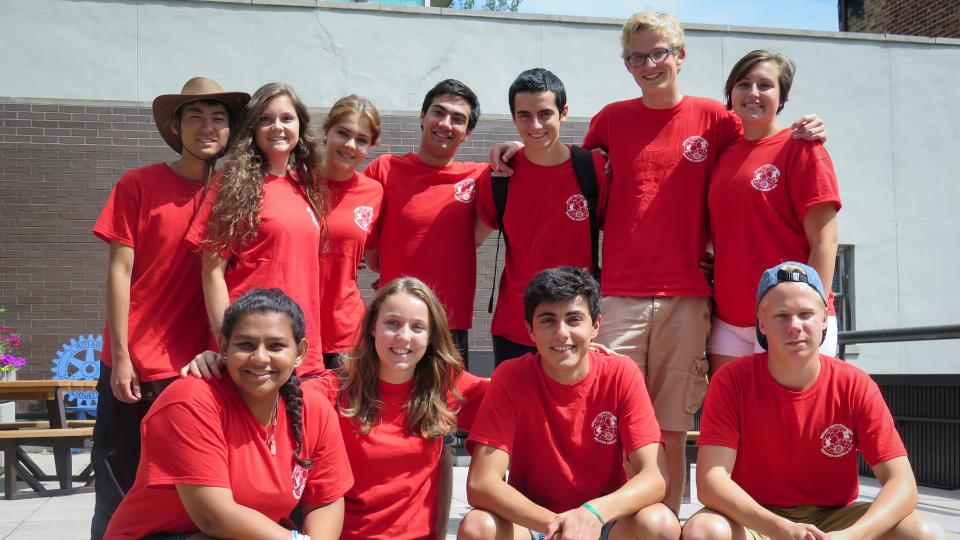 Rotary Youth Exchange students visit RI World Headquarters in Evanston, Illinois, USA, during a Discover America Bus Trip in July.
Photo Credit: Rotary International/Arnold R. Grahl When Gabriela Vessani was 12 years old, her mother took her to stay with friends in Pittsburgh, Pennsylvania, USA, for the summer.
“I loved it, so when I heard about Rotary Youth Exchange, I knew that was something I wanted to do,” says Vessani, who is an Interactor from São Paulo. This year, Vessani participated in the program. Hosted by the Rotary Club of Waterdown, Ontario, Canada, she stayed with four families, one of which included adopted children from different parts of the world. “They had seven children, and it was crazy for me. But I loved it,” she says. “It was such a unique experience getting to know all of my host brothers and sisters, and learning about so many cultures.” Changing lives Vessani and 104 other Rotary Youth Exchange students visited Rotary World Headquarters in Evanston, Illinois, in July as part of a 31-day Discover America cross-country bus trip that was a finale to the exchange experience. “This is the best program Rotary can be involved with, because Rotary is all about changing lives,” says Vessani. Rotary Youth Exchange has been providing intercultural exchange opportunities for secondary school students ages 15-19 since the 1920s. Students become cultural ambassadors for up to a full academic year, and the host families can help build peace and international understanding, serving one of Rotary’s six areas of focus. Club benefits Mike Lubelfeld, an elementary school superintendent and member of the Rotary Club of Deerfield, Illinois, spent weeks making arrangements for his club to host its first exchange student in more than two decades. In August, Leo, a 17-year-old from Indonesia, was greeted at the airport by an enthusiastic welcome committee from the club. “We have just started the process and, already, there is so much excitement,” says Lubelfeld. “Working with youth of the world is one of the best ways to ensure a better future. And for our club to be able to take part in this cultural exchange is a huge opportunity that will not only benefit Leo but our members as well.” Building self-confidence Varda Shah’s family was asked by a friend to host an exchange student two years ago in Mumbai. At first, family members were reluctant. “We were like, he’s a boy, he’s German, I don’t know how this is going to work,” says Shah. “But we decided to take a chance, and I never would have thought I could grow so close to someone in three months. We still Skype and connect through social media constantly and are always in touch.” Shah decided she wanted her own exchange experience. She stayed with three host families in New York, learning about camping, tailgating at sports events, and ice hockey. But the biggest change was to her self-confidence. “Before, I would never be able to make a conversation with a person I didn’t know,” she says. “Now, I can proudly say it isn’t like that anymore. I can go up to people. I have become more open, more mature.” Accepting others Juliana Kinnl of Vienna decided to follow in her older sister’s footsteps and take part in a Rotary Youth Exchange. She was hosted by two families from the Rotary Club of Newtown, Pennsylvania, and says she learned to be more accepting of other people and their differences. “Meeting exchange students from all over the world, I have grown to accept people for who they are and not to judge them because they are different,” says Kinnl. “I’ve also grown more confident in my own abilities and who I am.” Growing bolder Minerva Lopez Martinez of Marcia, Spain, spent her exchange in Canada, hosted by the Rotary Club of Simcoe, Ontario. She said some of her friends at home chose not to pursue an exchange because they felt they would be losing a year of schoolwork. But she has a different perspective on that. “You have your whole life to go to school and learn. You only have one opportunity for a youth exchange,” she says. “The reason I came on the exchange is that I can be shy, and I didn’t want to be like that anymore. Now, I am trying new things, talking to people I don’t know. It has changed me a lot.” By Arnold R. Grahl Rotary News 1-Sep-2015 |
||||||
Bringing education to rural Mexican area, one school at a timeCarolina Gonzales Rivas, a scholarship recipient and member of the Rotary Club of Jaltemba-La Peñita, Mexico, talks about how Rotary has influenced her life.
In addition, Rotary clubs from the United States and Mexico have been investing in the education of children in Nayarit since 2003, providing scholarships and libraries and rehabbing school buildings. The lasting impact in the region is apparent. “I think the combination of the scholarship program and Rotary’s interaction with the schools has made things seem possible, has changed the climate of education here, and the way the people think about education,” Day says. One example of Rotary’s impact is Carolina Gonzales Rivas. She was able to attend high school thanks to Day’s scholarship program. Rivas is currently working on her master’s degree and has recently joined the Rotary Club of Jaltemba-La Peñita. “I think that what Rotary is doing by supporting education and supporting students is to have a vision for life, to have aspirations – that’s what is going to change the world,” Rivas says. The Rotary Club of Berkeley, in California, USA, along with the Bahia de Jaltemba-La Peñita club and other North American clubs, recently tackled their largest project to date: a monthlong renovation of La Preparatoria 20 de Noviembre , a high school in the village of Las Varas. Funding came from a Rotary Foundation global grant and the financial contributions of six Rotary districts covering the 25 Rotary clubs that participated. A total of 90 volunteers including the school’s teachers, students, and students’ parents, improved the old buildings and built three laboratory classrooms. All three feature new equipment and technology and can be used by local residents as well as students. Eduardo Dominguez, a member of the Bahía de Jaltemba-La Peñita club, says one of the biggest rewards of these efforts is the fact that a college education is now a real possibility for local students. “There are many young people in Mexico with huge potential and with much to give, as long as they are given an opportunity,” Dominguez says. “Rotarians are helping those opportunities to occur, for [these young people] to become contributors to their communities.” By Daniela Garcia Rotary News 26-Aug-2015 |
||||||
Member spotlight: Peak performer scales KilimanjaroWhen Carole Kimutai was growing up in Nairobi, family members were always coming for long stays – a grandparent one month, a cousin the next.
"Anyone who needed school fees would come to Nairobi, and my parents would assist," she says. "Or if my grandmother was sick, she would come to live with us until she was better. It was natural to help others." Years later, Kimutai was invited to a meeting of the Rotary Club of Nairobi-East, where she instantly felt at home. "I grew up seeing my parents help relatives, and now I am seeing people help quote-unquote strangers," says Kimutai, the managing editor of a Kenyan news website and 2014-15 club president. That realization led her all the way to the top of Mount Kilimanjaro, which she and 38 other Rotarians and friends from District 9212 (Eritrea, Ethiopia, Kenya, and South Sudan) spent five days climbing in January. The team raised $40,000 for polio eradication and local projects. Another benefit was the deep relationships they developed with one another during their six months of training and subsequent journey. "Here we were, these professional people with fancy titles, living in basic accommodations, having dinner on plastic plates, using toilets in the bush," she says. Months after coming back down the mountain, the climbers and their Rotary clubs still enjoy those relationships. And Kimutai continues to cherish the memories of their time on Kilimanjaro. "It reminded me of my childhood," she says happily. "So much sharing." By Anne Ford The Rotarian |
||||||
Capital City Sunrise presents five scholorships.jpg) From left to right: Meghan Richardson, Don Miner Scholar; Kathy Daniels; President Roger Howells; Myles Bouchard, Ted "Padre" Van Patton Scholar; Kayleigh Lassonde, Randy Daniels Scholar; not able to attend - Sara Gilliland and Connor Kukla, Randy Daniels Scholars.
|
||||||
Meet Rotary’s new presidentRI President K.R. Ravindran, a member of the Rotary Club of Colombo, Sri Lanka, is asking Rotary members to be gifts to the world during his term in office.
This excerpt from the July issue of The Rotarian magazine profiles the 2015-16 RI president. Before he gives a speech, K.R. Ravindran doesn’t like flowery, adulatory introductions. They make him uncomfortable. The 2015-16 Rotary president would rather keep a low profile and share the credit. If it were up to him, you probably wouldn’t even be reading this article. Negotiating Days of Tranquility during the Sri Lankan civil war so that health workers could administer drops of polio vaccine? Although it was on his desk that the agreement landed, he says, a lot of people worked to make that happen. Rebuilding 23 tsunami-damaged schools for 14,000 children? He merely led the committee. Taking a label-printing business from a small outfit operating in a space the size of a garage to a global powerhouse in the packaging business that has helped change the value-added tea industry in his country? Well, he simply happened to be in the right place at the right time. “I’m sometimes introduced as a self-made man,” says Ravindran, a member of the Rotary Club of Colombo. “You’ve got to be utterly egocentric to believe you are self-made. Each one of us is made because so many people helped us become who we are. One of the reasons I work so much for Rotary is that I have been helped by so many people, and often you never have a chance to reciprocate,” he explains. “The only way you can is by helping others. When the people I help ask me, ‘What can I do?’ I say, ‘Go and help someone else in return.’” For Ravindran, paying it forward isn’t a fad, it’s a way of life. His theme for this Rotary year, Be a Gift to the World. By Diana Schoberg Rotary News 1-Jul-2015 |
||||||
The lost girls of South Sudan and the Rotarian who found them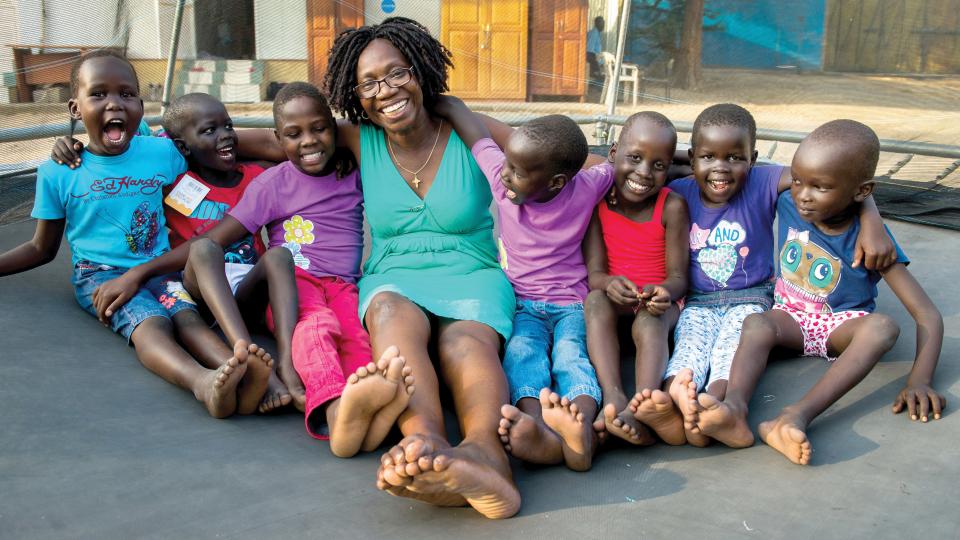 Groenendijk and younger kids take a break from jumping on the center's trampoline. Staff say it's her energy that holds Confident Children out of Conflict together.
Photo Credit: LuAnn Cadd From the August 2015 issue of The Rotarian The girls were alone. Their families were dead, or gone, or lost in the broken landscape of southern Sudan. They had nowhere to turn, and no one to turn to. Some lived in the market, others in the cemetery. When Cathy Groenendijk saw them, she couldn’t help herself. She offered them tea, then some food, then a place to sleep in her guesthouse.
“In the morning, we would sit together and talk about what had happened the night before,” Groenendijk remembers. “And what I heard I could not believe. I could not believe it.” One girl’s father had died, and after the funeral, she never saw her mother again. She was living on the streets with some other kids when four men started chasing them. The other girls were faster. She fell behind and was caught and raped by all four men. Groenendijk knew a doctor who repaired the physical damage, saving her life. Another three girls, ages eight, six, and one, lived with their mother, but they all slept in the open. Groenendijk helped them build a tarped shelter, but the hot sun ate it away. One night, a man snuck in and tried to assault one of the girls. After that, Groenendijk let them sleep on her veranda. This was in 2006. A peace accord had been signed the year before, ending a 22-year civil war and paving the way for the independence of South Sudan. But the region was still broken in many ways. While the story of its “lost boys,” who traveled hundreds of miles on foot to reach safety during the war, is well known, little has been written or said about the girls who stayed behind, and who were just as lost. Groenendijk was born in eastern Uganda, where her father grew coffee and bananas on the family farm. She had three brothers and seven sisters, so when she was three years old, she was sent to the capital, Kampala, to live with an aunt. After secondary school, she went on to study nursing. “When I was in Kampala,” she says, “I used to take the food that was left from our kitchen in the training school and give it to the children who were without food. It was a very, very bad time under Idi Amin, and after.” It was a time of war, suspicion, and fighting. Between 1971 and 1979, about half a million people died under Amin’s dictatorship. Another 300,000 died under Milton Obote before he was deposed in 1985. When she finished nursing school, Groenendijk got a job at a hospital in the north of Uganda. “There were so many militias and armed groups, especially among the northern tribes,” she says. “Even after the war, there were militias who were never fully disarmed. They were always fighting.” Not long after she arrived, she met a young Dutch missionary named Wim, who worked with a relief organization called ZOA that aids people trapped in conflict and disaster zones. The two fell in love, got married, and for 10 years remained in Uganda, mostly in Karamoja, the remote northeast corner of the country. In 1993, the couple went to the Netherlands. Shortly after they moved, the genocide in Rwanda began to unfold. An estimated 800,000 to 1 million people were killed in 100 days. When the violence subsided, a colleague at ZOA asked if Wim and Cathy would be willing to go to the country. Groenendijk would run a health program, and Wim would do agriculture and food security work in the town of Nyamata, south of Kigali. One of the most devastated areas, it’s now the site of a genocide memorial, at a church where 10,000 people who had gathered for protection were murdered. Five months after the killing stopped, the couple arrived in Nyamata. Seeing how many children had lost their parents, they took in two foster children – girls who had lost their families. The girls still visit, and one will graduate from college this fall. “The organization had little money to plan something positive for the children, like a party, to share together, to bring kids together,” Groenendijk says. “So I did a lot of children’s programs, in addition to working.” In 1998, ZOA asked Groenendijk if she would help establish a health program in Sudan, which, on the map, was the largest country in Africa. In reality, though, it had never been much of a country at all. The south and the north were very different, and since 1955, animist and Christian groups in the south had been fighting for independence from the primarily Muslim north. During the first war, which lasted until 1972, more than half a million people died. The south gained some autonomy, but when oil was discovered there in the late 1970s, war broke out again. From 1983 until 2005, an estimated two million people were killed; four million more fled to other countries or to camps for internally displaced people. In a country of 12 million, no one was unaffected. When Groenendijk and her husband arrived in 1999, the fighting was still intense. They lived in rebel territory, in a village called Katigiri. “There were areas with no medical care at all,” she remembers. “Many people were dying.” They’d lived in conflict zones before, but this time was different. Planes bombed areas that had relief operations. “When we first arrived,” Groenendijk says, “we were bombed as were driving. Every house had foxholes, and when you heard planes flying over, you got out of the house and into the foxholes. We also had one large bomb shelter for everybody, but if a bomb landed on that one, there would be many casualties. So we used several foxholes to spread the risk.”
For nearly five years, she ran the ZOA health program in Katigiri. She made sure health workers were trained, medicines delivered, new health units opened, and transportation arranged for patients. All the while, the bombs kept coming as the war dragged on. When the danger and stress grew unbearable, the couple went back to Rwanda. In 2005, a peace accord was signed and the fighting stopped. A date was set for a vote on independence. Groenendijk thought of the people she knew there, especially the children who’d lost so much. In 2006, she and Wim decided to return. Now people were flooding into Juba. In the future capital of the world’s newest country, everything had to be built from scratch, including Rotary clubs. Michael Elmquist had been a Rotarian in Kastrup, Denmark, for more than 20 years when he arrived in Juba in 2008 to work for the Danish Ministry of Foreign Affairs. He could see that the area could benefit from Rotary’s work. The country had only 200 miles of paved road. Barely 2 percent of children completed primary school. Infant and child mortality rates were among the highest on every ranking. Everything needed to be restored: families, villages, lives. “Once in Juba, I realized that the whole country of Sudan [before South Sudan became independent] had only one Rotary club, and that was in Khartoum, over 700 miles away,” Elmquist recalls. “I felt I could not live for three years without access to a Rotary club.” He started to round up prospective candidates. But because few people in Juba knew much about Rotary, most of the initial recruits were expatriates. And because the streets didn’t have names, people listed their addresses as “the big house with the yellow roof opposite Equatoria Hotel.” Nonetheless, Elmquist soon found the required 20 people. The Rotary Club of Juba was chartered in 2010, bringing the number of Rotary clubs in a country almost twice the size of Alaska, to two. After she and her husband moved to Juba, Groenendijk started working for an NGO called War Child, but grew frustrated with the slowness of a big organization. She needed to keep pace with the brothel owners who were recruiting girls. So she started her own organization, offering what she had. First, she gave the girls tea, then one meal. Friends would help out. “For two years,” she says, “I was providing tea and one meal, which was better than nothing. Some of the kids had never had a meal apart from scavenging and eating leftovers from restaurants. Once a week, I would buy a proper meal for all of them.” She started going door to door, asking for funding. Help started to trickle in. As volunteers and donors appeared, her organization started to take shape. She called it Confident Children out of Conflict (CCC). Elmquist heard about her work and invited her to join the Rotary Club of Juba. She accepted. “When they saw what I was doing,” Groenendijk says, “they used every opportunity to support us. A lot of credit goes to Michael. I went there and showed pictures of a girl who had been raped, to show what was happening in Juba. After that, a lot of people started paying attention to what we were doing.” “The job she’s done looking after these children has just been amazing,” Elmquist says. “You can’t believe the difference in the young girls who come in. They don’t talk, they don’t know how to hold a knife or fork or anything. And she trains them and gets them to school. She gets them dressed. She saves them from prostitution, which would be their only source of income.” Soon Groenendijk started looking for a piece of land. Eventually, she bought some property and built a dormitory that could house about 40 girls. She hired a small staff. The Juba club continued to support her work, along with other rebuilding projects in South Sudan – which became an independent nation in 2011. At one fundraising dinner, the club auctioned drawings done by the girls at Groenendijk’s center and raised $3,000 for CCC, as well as an orphanage in Juba. Today, almost 40 girls and a few boys live at CCC, which also issues reports on child prostitution in Juba and the plight of the city’s 3,000 street children. It is not an easy transition for those she takes in – some girls have run away, overwhelmed by structured life. But many more stay. After about a year, Groenendijk says, they get used to living in a house, sleeping in a bed. They learn how to settle disputes without fighting. With time and patience, she helps them adjust. Where the social fabric has been torn, she does her best to mend it. In addition to educating those living at the center, CCC pays school fees for about 600 children around Juba. A few have even gone to Uganda for further schooling. One, named Esther, is at one of the best schools in that country, with plans to become a doctor. CCC is a lively place. The girls sing and drum before going off to school in the morning, and again when they come home. Hannah Rounding, a British NGO consultant staying at the center, says Groenendijk’s energy and enthusiasm holds it all together: “The girls love her. Everybody calls her mummy. When she’s been away and comes back, the place goes wild. All the girls are so excited – they’re jumping and cheering and clapping.” “Cathy is a bright personality. She’s immediately endearing, from the first time you meet her,” says program manager John Fenning. “I was blown away by her capacity to love and care for all the children. It’s rewarding, and such a privilege, to be involved in that kind of work, and to see the difference you can make in these children’s lives.” One evening in the middle of December 2013, the girls heard gunfire. Fighting had broken out between followers of the president, who is ethnic Dinka, and the Nuer vice president, whom the president had accused of planning a coup. They girls were nervous – only the youngest had never known war. The fighting in Juba went on for days, then slowed while it raged on in other states. At least 50,000 people have been killed and another 1.6 million displaced, in what is now being called the South Sudanese Civil War. Some of the girls have been sent to an orphanage in the city of Yei, seeking safety farther south. The rest stay with Groenendijk. Together, in a nation of unease, they keep singing, learning, and living under her watch, until they are strong enough to be on their own. By Frank Bures The Rotarian 22-Jul-2015 |
||||||
Nigeria sees no wild polio cases for one yearDespite historic milestone, country still faces hurdles before being declared polio-free.
Today marks one year since Nigeria last reported a polio case caused by wild poliovirus, putting the country on the brink of eradicating the paralyzing disease. The last case was reported on 24 July 2014 in the northern state of Kano. If no cases are reported in the coming weeks, the World Health Organization is expected to remove Nigeria from the list of countries where polio is endemic, leaving just two: Afghanistan and Pakistan. Nigeria is the last polio-endemic country in Africa. The continent is poised to reach its own first full year without any illness from the virus on 11 August. “Every Rotarian in the world should be proud of this achievement,” says Rotary International President K.R. Ravindran. “We made history. We have set Africa on course for a polio-free future. But we have not yet reached our goal of a polio-free world. Raising funds and awareness and advocating with your government are more crucial than ever.” Progress in Nigeria has come from many measures, including strong domestic and international financing, the commitment of thousands of health workers, and new strategies that reached children who had not been immunized earlier because of a lack of security in the northern states. “Rotary’s commitment has been the number one reason for the recent success in Nigeria,” says Dr. Tunji Funsho, chair of Rotary’s Nigeria PolioPlus Committee. “We have infected political leaders with this commitment. The government has demonstrated this with political support and financial and human resources. And that went down the line from the federal level, to the state, to the local governments.” Nigeria has increased its domestic funding for polio eradication almost every year since 2012 and has allocated $80 million for the effort this year. Funsho also applauds religious leaders who championed the vaccination efforts to families in their communities. Despite the historic gains in Nigeria, health experts are cautious about declaring victory. Funsho says the Global Polio Eradication Initative partners must strengthen routine immunization especially in hard-to-reach areas, in addition to boosting sensitive surveillance to prevent resurgence of the disease. If no new cases are reported in the next two years, Nigeria, along with the entire Africa region, will be certified polio-free. “The virus can be introduced from anywhere where it is still endemic, particularly now in Afghanistan and Pakistan, into areas that haven’t had polio in years,” Funsho says. “It is important we keep the immunity level in Nigeria to at least 90 percent.” For instance, Syria experienced a sudden outbreak of the disease when 35 cases were reported in December 2013. None had been reported there since 1999. “Immunizations become imperative for history not to repeat itself in Nigeria,” says Funsho. In June, Rotary announced $19 million in grants for continued polio eradication activities in Africa, including almost $10 million for Nigeria. Since 1985, when Rotary launched PolioPlus, the program that supports the organization’s polio eradication efforts, its worldwide monetary contributions to the cause have exceeded $1.4 billion. “We’ve come a long way and have never been so close to eradicating polio in Nigeria and around the world, but it’s not a time to fully celebrate,” says Funsho. “We have some grueling years ahead of us before WHO can certify Nigeria and Africa polio-free.” By Ryan Hyland
Rotary News 24-Jul-2015 |
||||||
Australian students take opportunity by the hornsAustralian Rotary members create a rodeo school for Aboriginal boys in rural Queensland.
The rules of the Shaftesbury Rodeo Academy are simple: no school, no rodeo. It’s a message that teenagers who attend school at Bisley Farm, most of whom have never attended any school regularly, take seriously. Because come Friday night, these aspiring rodeo heroes want to join their friends to ride bulls for a heart-stopping eight seconds, if they last that long. The school in rural Queensland, Australia, also teaches the boys, who are of the Wakka Wakka Aboriginal people, basic academics and farming skills, including how to care for crops and livestock. It’s a fairly common form of schooling in Australia, an alternative education for students with troubled backgrounds. For many of them, Bisley Farm is the best chance for them to improve their lives. But rules are rules. In order to participate in the school’s weekly Friday night rodeo, students must attend class Monday through Thursday and do all their work, including helping to manage a herd of beef cattle. Perhaps not surprisingly, student attendance and performance have shot up. “These are really tough kids,” says Kristian Wale, director of the Shaftesbury Centre, which sponsors Bisley Farm, and a member of the Rotary Club of New Farm, Brisbane. According to the Australian Bureau of Statistics, Indigenous peoples make up 3 percent of the country’s population. But they make up 50 percent of the juvenile detention and 27 percent of the adult prison populations. “A majority of the kids [who come to us] can’t read, even if they have been to school,” says Wale. “We teach basic education and social skills and prepare our students for jobs.” And none of it would exist without Rotary. Powerful grants George Grant wanted to do something for the Aboriginal teenagers after attending a Rotary grants seminar in 2010. He was president of the Rotary Club of Bribie Island when he met Wale at the conference. The two began to formulate an idea for a cattle operation near Cherbourg, sponsored by the Shaftesbury Centre. “When I first took the idea to the club, it seemed too far out in left field. Some members came along easily but others were very noisy in opposition,” says Grant. “They couldn’t see how a club with fewer than 30 members could raise the money required to get something like that off the ground.” At first, the naysayers seemed right, Grant says, particularly when the scope of the problem began being mapped out. They would have to buy cattle, trailers, fencing, and a school building. Then what would they do with the beef? If the operation was to be sustainable, they would have to figure out a way to get the beef to market. So they started small: six head of cattle, a trailer, and some fencing. They soon started applying for money through Rotary, more than US$120,000. Supported by fundraisers from surrounding clubs, the Bribie Island club managed to donate thousands of dollars toward the project. Undoubtedly, though, many of potential supporters and new club members are drawn to Grant’s enthusiasm for the school his club built from the ground up. “I just love to skite (brag) about it.” By Nancy Shepherdson Rotary News 17-Jul-2015 |
||||||
Illiteracy traps adults, and their families, in poverty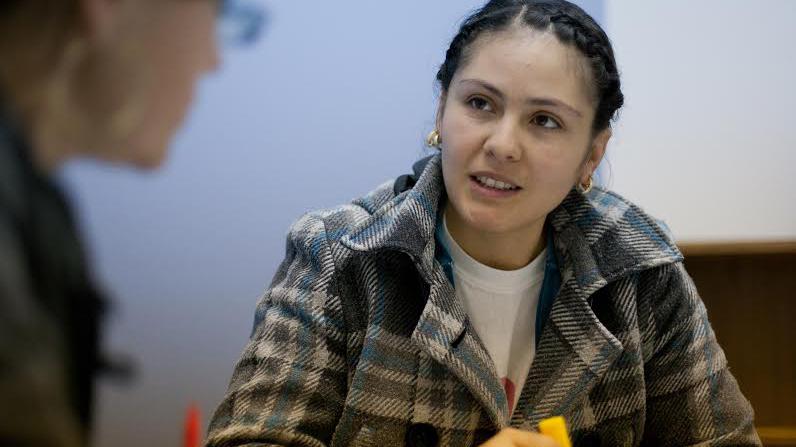 A student attends a literacy program at the Mercy Education Project in Detroit to build her reading skills. The agency offers free educational programs to improve the lives of low-income girls and women.
Photo Credit: Courtesy of Reading Works Around the world, millions of adults are unable to read or write, and therefore struggle to earn a living for themselves and their families.
Even in the United States, with its considerable resources, there are 36 million adults who can’t read better than the average third-grader, according to the international nonprofit ProLiteracy. In Detroit, Michigan, a widely cited 2003 survey conducted by the National Institute for Literacy found that almost half of residents over age 16 were functionally illiterate -- unable to use reading, speaking, writing, and computer skills in everyday life. Kristen Barnes-Holiday, director of program outcomes for Reading Works, an organization tackling adult illiteracy in Detroit, says the agencies -- many of them underfunded and understaffed -- that have been trying for years to address the problem there have made little progress. Illiteracy affects all areas of life. Those with low literacy skills are far more likely to live in poverty, face health problems because they can’t read prescription labels or instructions, and grow isolated in a world increasingly dependent on computers. And the lack of a skilled workforce, Barnes-Holiday notes, has slowed Detroit’s economic revival. But she worries most about the impact on future generations. “A lot of children are raised in households where parents are low-skilled or illiterate, and we all know only a certain amount of learning happens in the classroom,” she says. “We are raising this generation with the expectation that if we pour a certain amount of dollars into their education, we will get better results. But that is only partially true if we do nothing to address the households they are coming from.” Rotary member Mark Wilson, who also has been involved with Detroit literacy efforts, agrees that adult literacy is not receiving the attention it deserves. “It doesn’t pull at the heartstrings the same way as when you see a child who can’t read,” says Wilson, a member of the suburban Rotary Club of Grosse Pointe. “But, in fact, it’s a vicious cycle and it perpetuates itself.” Wilson’s club, along with other Detroit-area Rotary members, partnered with ProLiteracy Detroit to raise money to recruit and train more tutors. Also, members have collected 261,000 books and 587 computers to donate to literacy agencies throughout the city. A grant from The Rotary Foundation brought a team of literacy experts from Australia to Detroit, to share their expertise with those who are training the tutors. The grant helped launch a weekly program on local television to raise awareness and broaden corporate and community support. Through the efforts of the volunteer tutors, more than 500 adults raised their reading levels by three grades, according to testing by the Michigan Adult Education Reporting System. Margaret Williamson, executive director of ProLiteracy Detroit and a member of the Rotary Club of Detroit, said the project has produced benefits even beyond initial expectations. “Not only do we look at reading, but we look at building the skills the individual will need for employment,” she says. “And what happened was that, through the Rotary network, [these adults] had access to people who knew other people who were willing to give them an opportunity. We had people call us and say, “Do you have a person who would be good for this entry-level position?’ ” The Rotary members have become better advocates for adult literacy, influencing policymakers at several levels, adds Williamson. Among the results of that advocacy: A financial institution donated a banking center for vocational training, and ProLiteracy received more money for tutor training and has expanded its network of partners. “The ripple effect is still benefiting us,” she says. Wilson also talks about ripples. “When you teach somebody how to read, they have that for a lifetime,” he says. “It ripples through the community, one by one. And that was our goal.” By Arnold R. Grahl Rotary News 9-Jul-2015 |
||||||
Early cancer detection is saving lives in Sri Lanka.jpg) Radiologist Jayantha Mapatona (right) prepares B.M. Tilakalatha for her mammogram at the Cancer Prevention and Early Detection Centre in Colombo, Sri Lanka.
Photo Credit: Rotary International/Alyce Henson More than 20,000 new cases of cancer are diagnosed every year in Sri Lanka, and many of them prove fatal. The Rotary Club of Colombo, Sri Lanka, set out 10 years ago to save some of those lives by establishing the Cancer Prevention and Early Detection Centre.
In partnership with the National Cancer Control Programme and the Ministry of Health, the center in Colombo has screened more than 35,000 patients, mostly low-income, and detected more than 7,500 cases of abnormalities that required further investigation. The Rotary Club of Birmingham, Alabama, USA, donated a mammography and ultrasound scanner to the center’s breast cancer screening facility. The Colombo Rotary club is seeking to open early detection clinics in other easily accessible locations throughout Sri Lanka. Rotary News 22-Jun-2015 |
||||||
India eye surgeons share skills with peers in Ethiopia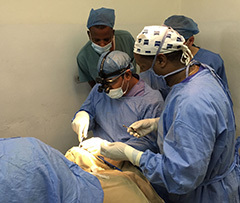 Members of the vocational training team of eye specialists from India perform an eye surgery in Ethiopia. Photo courtesy Rotary District 3140 By Suhas B. Naik-Satam, past president of the Rotary Club of Bombay Chembur West, Maharashtra, India In March, during our silver jubilee year, my Rotary club sponsored a vocational training team of ophthalmologists to Ethiopia to improve the abilities and skills of eye surgeons at various medical centers there. Under the direction of club president S.R. Balasubramanian and led by Dr. Haresh Asnani, a past president of our club, the team of three super specialists included a vitreoretinal surgeon, a pediatric ophthalmologist/squint specialist, and an oculoplastic surgeon/ocular oncologist. Our club partnered with Beyond Eye Care, an organization that manages the India Eye Center in Addis Ababa, Ethiopia’s capital. The team conducted medical education programs and clinic workshops on topics including common retinal disorders, diabetic retinopathy, common eyelid disorders, and squint problems. Members conducted classroom lectures and a few practical workshops on pediatric eye disease examination that doesn’t require expensive equipment. They also stressed the importance of timely intervention in childhood squints, eye tumors, and cataracts. The program benefited around 14 ophthalmologists, 25 postgraduate students, 40 optometrists, and 20 ophthalmic nurses over five teaching sessions, five surgical workshops, and six clinical demonstration sessions. One of the team members noted the amount of expensive equipment that had been donated but that was just lying around unused because doctors and paramedical staff had not been trained in its use or maintenance. The team spent time teaching them the proper handling of these. Dr. Akshay Nair, the youngest member of the team, said the whole experience was extremely rewarding. We were able to demonstrate many different surgical procedures as well as have fruitful clinical sessions that involved video-assisted skill-transfer sessions. The demand and need for ocular oncology and oculoplastic specialists is high in Ethiopia, and the next step is to arrange training opportunities in India for Ethiopian ophthalmologists. The team had discussions with the respective hospital managements to draw up strategy to sustain the benefits of this program, especially at St. Paul’s and ALERT Hospitals and Hawassa University, by facilitating fellowship programs for their doctors and providing technical support for their surgical equipment. Rotary has yet again played a helping hand by envisioning, executing, and enabling such a worthy project. |
||||||
ROTARY RELEASES US$40.3 MILLION TO END POLIO WORLDWIDE.jpg) The continued fight to stamp out polio will receive an additional $40.3 million boost from Rotary in support of immunization activities and research to be carried out by the Global Polio Eradication Initiative. The funds will be used by the World Health Organization (WHO) and UNICEF for polio immunization, surveillance and research activities in ten countries, as well as to provide technical assistance to additional countries in Africa.
The funding commitment comes at a critical time as Nigeria – the last polio-endemic country in Africa – approaches one-year since its last case of polio, which occurred in Kano State on 24 July, 2014. If the current progress continues, WHO may remove Nigeria from the list of polio-endemic countries as early as September. In addition to the notable progress in Nigeria, no new cases of polio have been reported anywhere in Africa since August 2014. Experts do, however, strongly caution that it is too soon to fully celebrate. Nigeria needs to go an additional two years without polio to be certified polio-free. Funding and support for high-quality immunization campaigns and surveillance activities will be key to sustaining current gains. The only two other polio-endemic countries, Pakistan and Afghanistan, continue to experience hurdles in polio eradication campaigns including inaccessibility to children and security. Last year, Pakistan saw an outbreak which resulted in more than 300 cases, the highest number in the country in more than a decade. As a result, Pakistan accounted for almost 90% of the world’s cases. However, there has been improvement in 2015. Cases are down nearly 70% over this same time in 2014. Progress against polio, while significant, remains fragile. Rotary’s funds will support immunization efforts in: $9.9 million in Nigeria; $12.2 million in Pakistan and $2.3 million in Afghanistan. Additional funds will support efforts to keep other at-risk countries polio-free. The grants include $1 million, Cameroon: $900,000, Chad; $2 million, Democratic Republic of Congo; $1.1 million, Ethiopia; $1 million, Niger; $1.5 million, Somalia; and $1.5, South Sudan. In addition, grants totaling $5.8 million will provide surveillance in African and Eastern Mediterranean regions. Grants to Africa alone total $19 million. In total, Rotary has donated $688.5 million to support polio eradication efforts in Africa over the past thirty years. |
||||||
Water summit urges Rotary members to invest in youth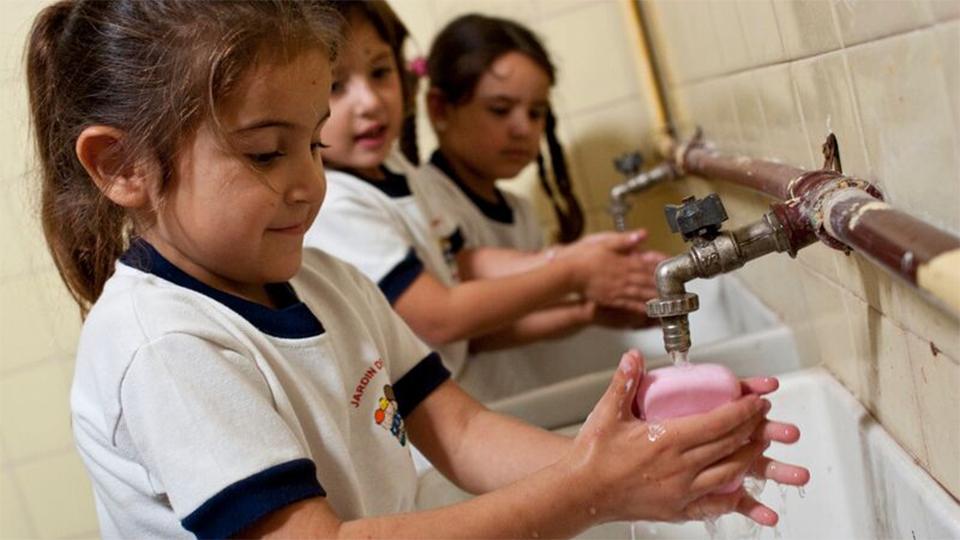 This year's World Water Summit focused on water, sanitation, and hygiene in schools. Almost 200 million days of school attendance are lost every year because of the lack of proper sanitation. Many diarrhea cases in children result from transmission of disease in schools rather than at home.
“A school is a place where children should feel safe, not a place where they are susceptible to infection,” says Lizette Burgers, senior adviser of UNICEF’s Water Sanitation and Hygiene (WASH) in Schools program. But the message at the World Water Summit on 4 June in São Paulo was positive: Rotary members and their clubs can make schools healthier places through programs that provide clean water and better sanitation. | “WASH in Schools is about addressing the rights of the children. This forum can help us all learn how to provide a healthy, safe, and secure school environment,” said Burgers. “This will help ensure quality education, because healthy, well-nourished children can fully participate in schooling. It increases school attendance, because students have to spend less time traveling long distances to fetch water. And it encourages children to take pride in their school and community by providing them with a renewed sense of dignity.” The water summit, the seventh convened by the Water and Sanitation Rotarian Action Group, focused on water, sanitation, and hygiene in schools and provided Rotary members with resources and tips for starting their own projects. Sushil Gupta, The Rotary Foundation’s WASH in Schools committee chair, explained that these projects aren’t just about investing in infrastructure and improving sanitation facilities. A successful WASH in Schools project is also about advocacy. Rotary members were encouraged, when considering a new project, to focus on hygiene education by finding ways to develop healthy behaviors in youths. Gupta said that children are generally more receptive to new ideas than adults are, and they can more easily change their habits and improve practices within families and their communities. “WASH in Schools is about revitalizing and bringing revolution in societies,” Gupta said. “These young children can become our agents of change, and help us reach our goal of a cleaner, better, and more educated world.” At a breakout session, Greg Allgood, vice president of World Vision, a leading nongovernmental provider of clean drinking water in rural areas of the developing world, discussed how Rotary members can develop more sustainable and effective WASH in Schools projects by partnering with NGOs and the private sector. With the support of Rotary-collaborated projects, World Vision helped more than 845,000 children gain access to clean water through $85 million in project funding in 2013 alone. Other breakout sessions focused on the basics of conducting a WASH in Schools program, the importance of changing behavior through hygiene education, and how to address sanitation needs in schools. Carlos Rossin, director of sustainability solutions for PricewaterhouseCoopers, also provided an update on São Paulo’s current drought and water resources issues. “Rotarians are dedicating their time and leadership to address the need for basic WASH in Schools programs, and the results are already inspiring,” said John Hewko, general secretary of Rotary International. “These programs create a cycle of opportunity. It reduces hygiene-related disease, it increases attendance in school, it enhances the learning environment, and it contributes to a student’s dignity. This is an opportunity for Rotary to showcase what we’re all about. And through your work, we will be impacting generations to come.” By Megan Ferringer
Rotary News 7-Jun-2015 |
||||||
Camp Spaulding Clinic Gets Capital City Treatment Capital City Sunrise Rotarians
For many years, the members of Capital City Rotary have taken care of the Clinic building at Camp Spaulding, a camp for under served youth now managed by the YMCA - this year was no exception. All but one of our Rotarians (one was missing because of short staff at work) arrived to mow, weed wack, rake, paint, clean sinks and fail miserably at replacing a toilet seat. After the sucessful work session, President-elect Rodger provided the supper of huge sandwiches, potato and fruit salad, and sodas.
A little about the camp: Child and Family Services (NH) is excited to partner with the YMCA of Greater Nashua on the 2015 season of Camp Spaulding!
Camp Spaulding will continue under the ownership of Child and Family Services, while camp programming and operations will be managed by the YMCA of Greater Nashua. This collaboration combines a 90 year camp history, a newly renovated camp facility, and strong community support, with the recreational programming expertise of the YMCA. The YMCA will continue the Camp Spaulding legacy of adventure programming that endeavors to improve the lives of campers, during and after the camp experience. Activities will include swimming and boating, performing arts, archery, woodworking, arts & crafts, high and low ropes courses, and horse-back riding, as well as outdoors living skills, cooking and nature and ecology programs. |
||||||
Rotary, USAID collaboration improves sanitation facilities in Ghana A young girl takes a bath using a single gallon of clean water. Photo Credit: Rotary Images/Alyce Henson According to a 2012 report by UNICEF and the World Health Organization, Ghana has made great strides in providing its people with clean drinking water. But access to better sanitation has lagged. Only about 14 percent of Ghanaians have access to improved facilities, compared with the 54 percent target set for 2015 by the United Nations Millennium Development Goals. Addressing the issue isn't simple, as pit latrines need emptying, toilets need maintenance, and promoting hygiene requires education. The H2O Collaboration, a partnership between Rotary and the U.S. Agency for International Development (USAID), is working to alleviate the problem. Between 2009 and 2013, the collaboration invested $2 million in water, sanitation, and hygiene initiatives in Ghana, along with equal amounts in the Dominican Republic and the Philippines. In Ghana, the effort resulted in 57 boreholes, 20 wells, latrines for 41 public schools, three public toilet and shower-block units, and three mechanized water supply and distribution systems for rural communities. In each community, Rotary members and USAID partnered with Ghana's Community Water and Sanitation Agency to set up local water and sanitation committees that assume ongoing oversight of the improvements. They have also worked with the country's Ministry of Education and its local affiliates to promote a health curriculum that teaches the importance of hand washing with soap, safe water storage, and use of improved household latrines. The collaboration is poised to enter its second phase this year with commitments of $4 million each in Ghana, the Dominican Republic, the Philippines, and Uganda. Unique strengths Rotary and USAID both bring unique strengths to the effort. Rotary's global network of members raise money and oversee construction of the improvements. USAID provides the technical support to design and carry out the initiatives, and works to build the capacity of local, district, and regional agencies to operate and maintain the systems and oversee education and training. "Working with USAID has been great because they have been in the development business for years and have the backing of the U.S. government," says Ako Odotie, a member of the Rotary Club of Tema, Accra, who serves on a committee overseeing the effort in Ghana. "In Rotary, we are volunteers and many individual clubs. USAID is one unit, and that provides strength to our effort." One of the first steps for Rotary was the creation of a host organization committee made up of Rotary leaders who could steer the project. The committee members sat down with representatives from USAID and the Community Water and Sanitation Agency to determine where the need was greatest; they selected the Volta, Eastern, Central, and Greater Accra regions. Sites were then chosen, and Rotary's share of projects in 114 communities was divided up among 16 clubs. The clubs met with each community to get their input before seeking bids for projects. Local water and sanitation committees participate in decision-making, donate land for the improvements, set up bank accounts, establish and collect user fees to cover ongoing costs, and receive training in the use and maintenance of the facilities. Health and sanitation teams from local government units and the Community Water and Sanitation Agency regularly inspect and monitor the sites and evaluate reports from the communities. Sustainability "Some of the water and sanitation committees have done so well with the fees they get from users that they have expanded things," says Odotie. "In one community where we dug a borehole, they got additional funding from a church camp and installed pump-to-pump water into a tank and built themselves a complete water system." "Sustainability is built right into the project," notes Robert Holden, who served as international project sponsor for District 7630 (Delaware and Maryland, USA). "When we entered a village, they had to show us their bankbook and deposits, which were enough to keep the projects running. I was very impressed with how much prior planning went into this project, its detail, ingenuity, and foresight." Odotie says it has been rewarding to see the reaction of villagers to all the improvements. "Sometimes it is very emotional to see the joy and appreciation on their faces," he says. "When you bring in water -- clean water versus what they are used to drinking, which is very pitiful -- you can tell straightaway that their health situation is improved. This is what I live for. It is what makes Rotary what it is." By Arnold R. Grahl Rotary News 15-May-2015 |
||||||
Global grant partnership turns good idea into bigger, sustainable project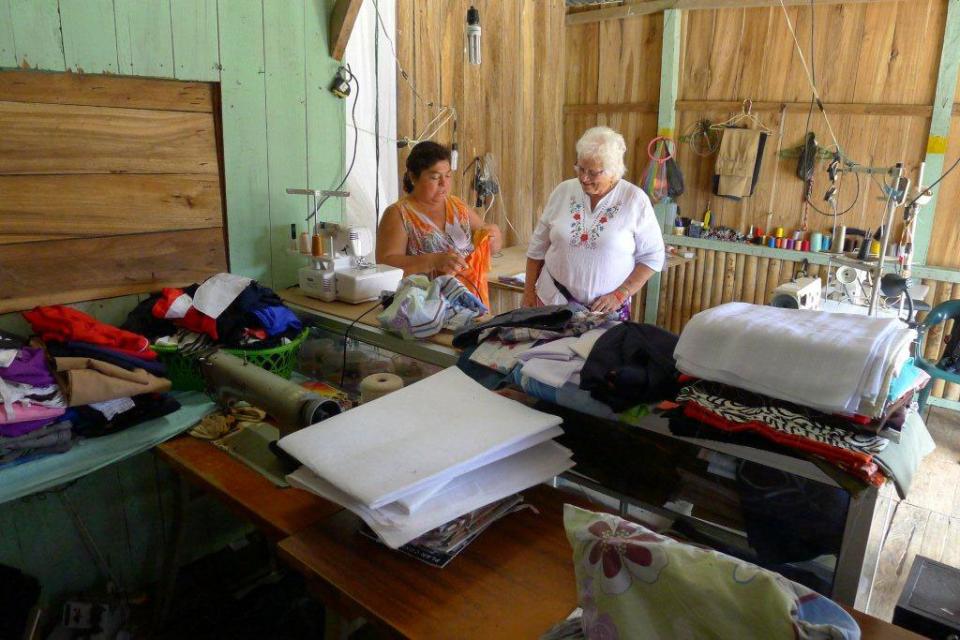 A microloan recipient shows off one of the items she made in her sewing shop.
Photo Credit: Photo courtesy of Rotary Club of Marin Evening, California, USA In the Esmeraldas Province of Ecuador, Rotary members have teamed up with a microfinance organization to provide small loans to poor women, teaching them to sew and bake so they can start or expand businesses.
The Rotary Club of Marin Evening, in California, USA, reached out to 64 Rotary clubs in seven districts including Ecuador's, to raise money, find support from partners, and mobilize local community members for a global grant project.
Keith Axtell, a member of the Marin Evening club, says the effort began in 2005-06, when his wife, Holly, was district governor and was looking for an international project the district could lead and that clubs could join without doing a lot of paperwork themselves. The Axtells took a team of district leaders to explore projects in Ecuador, including one conducted by the Rotary Club of Guayaquil. The club was working with a microcredit organization to turn funds it had raised into seed money for small loans.
"We took a group of people from different clubs in our district to see [this project] and they loved it," Axtell says. "We started out with an initial Matching Grant, and the response was overwhelming. People kept saying they wanted to contribute to the next one, so we just kept going."
Eventually, the Guayaquil microfinance operation had enough capital to sustain itself, so the Axtells' club sought a new partner. It found the Rotary Club of Quito Occidente, which wanted to get involved in microcredit, and the clubs collaborated on a global grant application.
Through a Web search, Axtell found the microfinance organization FUDECE, which was using a lending model developed by the Grameen Bank in Bangladesh that has had considerable success.
"We wanted an organization that was really focused on the very poorest people and that used group lending, where people cross-guarantee each other's loans," he says. "They were the only ones in the area offering that, so we chose to work with them."
FUDECE's director suggested that the Rotary clubs focus on the province of Esmeraldas instead of Quito, Ecuador's capital, because the people there were even poorer, and there were no banks where villagers could pool even their meager funds to grow their businesses.
When the project committee met with community members to conduct a needs assessment for the global grant application, members discovered the villagers wanted to learn sewing and baking.
Project leaders in California attended district conferences and visited clubs as far away as Montana to line up support and raise $107,000 in cash and district funds, using Rotary's online application to apply for the grant.
"We're not shy, we will ask for help anywhere," Axtell says. "This project was bigger, so we had to really pull out all the stops."
Most of the global grant, which includes $75,000 from The Rotary Foundation, is providing seed money for microloans. But it's also buying sewing and baking equipment for a training center that FUDECE and the Quito club established to teach loan recipients vocational skills and basic business management. Members of the Quito club have served as trainers, along with educators hired from a government agency and private contractors.
FUDECE organizes the loan groups and provides training and oversight for the co-op that manages the loans and savings and that qualifies additional loan recipients.
"Frankly, I think microcredit is the best way Rotary can help people," says Axtell. "You are helping people improve their economic situation, but you are also helping them help themselves. You are not just giving them something; you are making a loan and you expect them to pay it back."
Axtell tells the story of a woman he met on one visit who had started a business with an old hand-operated sewing machine. With her first loan, she bought an electric sewing machine that enabled her to make items faster and better. With a second loan, she bought a second machine and hired a partner. Eventually, she was able to branch out and buy specialty tailoring equipment and a machine that works with leather.
"She has quite a successful little business there now," Axtell says. "The thing that impressed me was how proud the women were of what they had built. They really learned through this that instead of being victims [of poverty], they can become problem-solvers. We've seen cases where, once they get into that mode, they start working on problems in their own communities."
By Arnold R. Grahl
Rotary News 8-May-2015 |
||||||
HOW A SIMPLE SCHOOL PROJECT IN INDIA BECAME A GLOBAL GRANT |
||||||
Nursing school helps indigenous community survive in Uganda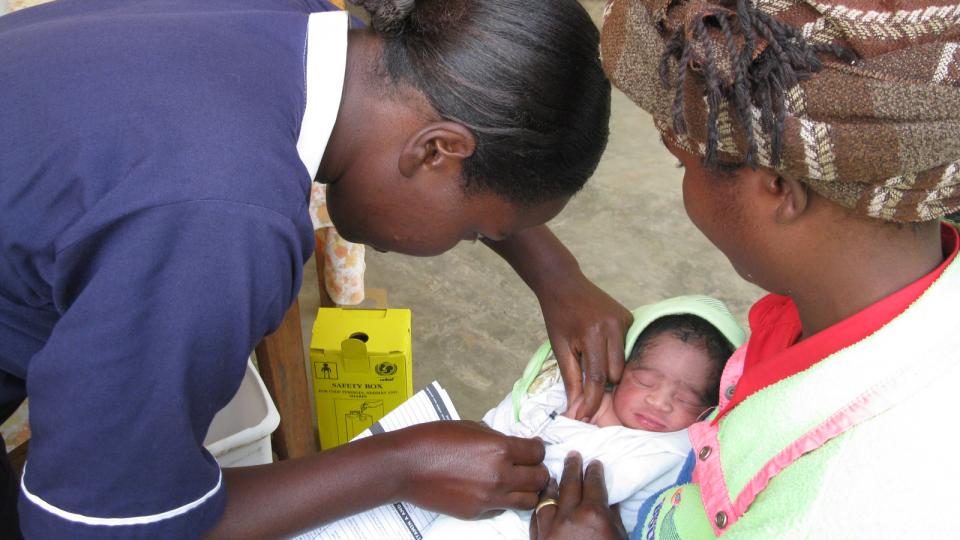 A nurse immunizes a child at Bwindi Community Hospital in southwest Uganda. Photo Credit: Courtesy of Bwindi Community Hospital For thousands of years, the Batwa Pygmies lived among the silverback mountain gorillas in the Bwindi Impenetrable Forest of southwest Uganda.
But in 1992, the forest was declared a World Heritage Site to protect the endangered silverback, and the Batwa lost their home.
Forced to transition from hunter-gatherers to farmers, they did not adapt well, and their very survival was threatened.
Over the years, Rotary members in the United States, Uganda, and other parts of the world helped with efforts to aid the Batwa. Most recently, those efforts have focused on the creation of a nursing school to serve the entire southwestern part of the country. Dr. Scott Kellermann, a physician and Rotary member from California, USA, discovered the plight of the Batwa in 2000, when he and his wife, Carol, traveled to the area as medical missionaries to assess the indigenous people's needs. He describes the situation they found: "Abject poverty. No access to health care, no access to education, no clean water, no sanitation, land insecurity, and food insecurity." The Kellermanns' survey found that 38 percent of the Batwa died before the age of five -- twice the rate of Uganda as a whole -- and that the average life expectancy was 28. Building a hospital Shortly after his first visit, Kellermann and his wife sold their possessions, including his medical practice, and moved to Uganda -- where they stayed fulltime until 2009 -- to help the Batwa. Starting with mobile clinics held under trees and with IVs hanging from branches, they treated "200, 300, sometimes 500 people a day," Kellermann recalls. Eventually, they launched a foundation and built Bwindi Community Hospital. Kellermann's Rotary connections helped to equip it. Projects supported by a series of Rotary Foundation grants and backed by members in Uganda, the United States, and other parts of the world provided an operating theater, a dental unit, generators, solar panels, and clean water and improved sanitation, and taught the Batwa how to raise small livestock to improve their nutrition. Now, the infant mortality rate is down to 6 percent, and the number of women dying in childbirth has declined 60 percent. "Rotary has been incredible," says Kellermann. "It doesn't just throw money at a problem. It goes through a local Rotary club so Rotarians on the ground come out to make sure the projects are successful. What Rotary did was look at the broader picture and say, hey, a hospital is great. But you need to prevent these diseases. You need to provide water and sanitation. You need to teach these women how to feed their kids." A project aimed at reducing the incidence of malaria distributed thousands of bed nets to families through tribal healers. "In 2006, we were losing one to two kids every week to malaria," Kellermann says. "After Rotary helped us distribute 25,000 bed nets, we went nine months without a kid dying from malaria. Rates have dropped over 90 percent." Creating a nursing school A few years ago, two entrepreneurs, James Jameson and Steve Wolf, met Kellermann while they were in the area to track gorilla. After they learned of the need for a nursing school, they contributed more than $650,000 to plan, design, and build it. The Uganda Nursing School Bwindi opened in November 2013. The pair also paid to send Jane Anyango, a registered nurse at the Bwindi hospital, to Queen Margaret University in Edinburgh, Scotland, where she earned a master's degree in nursing that enabled her to take over as the school's principal teaching tutor. And they provided iPads, loaded with a year's worth of textbooks, for every nursing student at the new school. Last year, Jerry Hall, a past Rotary International vice president, led a vocational training team of nursing educators who spent two weeks developing the school's curriculum, instruction, and administration. Hall had met Kellermann during a previous project, when Hall was a Rotary director, and he had become a strategic planning consultant for the hospital. Hall's club, the Rotary Club of Reno, Nevada, USA, along with Rotary members in Kihihi, Uganda, and 18 other clubs, raised $67,000 for a global grant totaling $247,000 that provided furnishings, classroom supplies, and lab equipment for the school. Hall says that after the vocational training team returned home, a team member affiliated with the University of San Francisco arranged for Anyango to have access to the university's trove of digital information. Another team member arranged to have flash drives loaded with nursing curriculum sent to the school. "The technology they have at the school is the first of its kind in Uganda," says Hall. "The chair of the Uganda Nursing Council attended a grand opening celebration during our stay and was blown away by some of it. "The potential is tremendous," adds Hall. "Once we get trained nurses out to the villages and regional areas, you'll have people with midwifery skills who can deliver children out there safely and provide prenatal care. None of that is available today." By Arnold R. Grahl
Rotary News |
||||||
Ecuadorean surgeon donates heart to children in need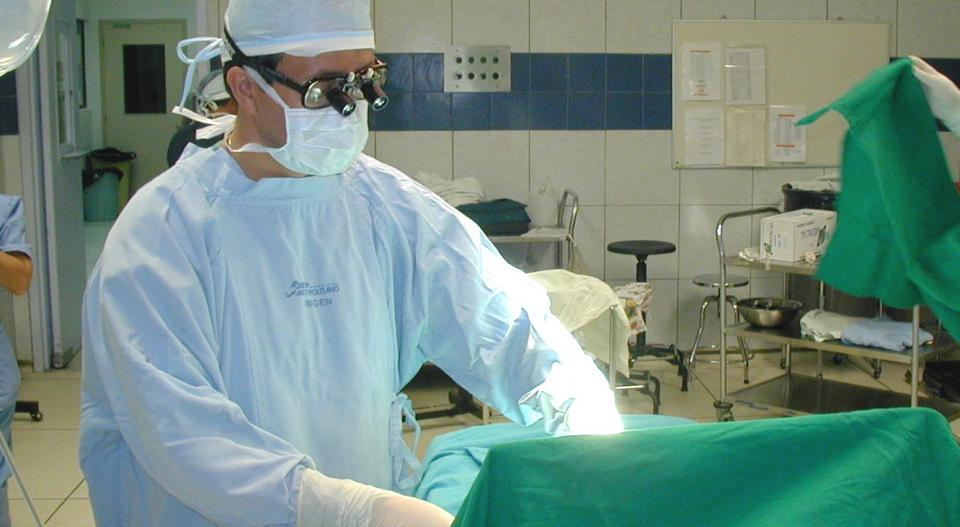 Dr. Gerardo Davalos, a pediatric heart surgeon and member of the Rotary Club of Quito, Ecuador, performs a life-saving procedure on a child in 2012. The surgery was funded through a Rotary Foundation Matching Grant. Photo Credit: Courtesy of Gerardo Davalos Pediatric heart surgeon Gerardo Davalos has treated scores of young heart patients, but one made a particular impression on him. The day before 11-year-old Josue Ochoa died in 2013, Dr. Davalos, a member of the Rotary Club of Quito, Ecuador, walked into the boy's hospital room to say goodbye. The atmosphere in the room, where family members were gathered, was somber. But one person was smiling and comforting everyone else. It was Josue. Says Davalos: "I'll never forget how strong Josue was in that moment. He wasn't concerned about himself. He was more worried about his mom and dad. He kept telling them that everything was going to be OK and that he'd lived a great life. He was an amazing child." And Josue also shared his gratitude with Davalos. "He told me, 'Thank you for giving me a chance to dance at school,' "the surgeon recalls. Five years earlier, funded by a Rotary Foundation grant that paid for corrective heart surgeries for underprivileged children at Quito's Hospital Metropolitano, Davalos had performed a complicated operation that saved Josue's life. The ensuing recovery period had been extremely hard for the youngster, who'd had to remain in the hospital for two months after the surgery. But "Josue never complained once; he always had a smile on his face," says Davalos. "He couldn't wait to get out of the hospital and dance." Over the years, though, Josue's heart problems became irreversible, says Davalos. "But Rotary helped extend his life, and gave him a chance to enjoy things that normal children his age do." Josue is one of more than 120 children on whom Davalos has performed free corrective heart surgeries since his club, along with the Rotary Club of Wheeling, Illinois, USA, initiated the grant project in 2002. Connecting with Rotary After spending five years in Spain for his medical residency, Davalos returned home in 1995 eager to make a difference in the lives of Ecuador's underprivileged children, and looking to use his surgical skills outside his regular duties as a hospital doctor. "I was a young surgeon with a skill I wanted to share," he recalls. "There are so many needs in Ecuador -- the government can't afford to pay for heart surgeries for poor children. There are very few options out there for them. I wanted to find a way to provide free surgeries to those in need." A friend of Davalos' who was a member of the Quito club thought Rotary could be the answer. After attending a few meetings, Davalos joined the club in 1998. "I was very impressed with the variety of professional skills the Rotarians had. I didn't know how to start a project or find connections that I needed to reach these desperate children. Rotarians do," says Davalos, who is director of pediatric cardiothoracic surgery at Hospital Metropolitano, Quito's leading hospital. "The club gave me options and the support I needed. Their enthusiasm to help those less fortunate was as strong as mine." Rallying behind Davalos' vision, a number of clubs worked together to obtain grant money, which funded more than 60 surgeries. "Life can be kind to some people and unkind to others. Those of us who are lucky to be in the position to give back must try to do so," he says. "I'm lucky to have found Rotary, lucky to have found friends so willing to help change lives." Davalos, who also implants cardiac pacemakers free of charge through the Pacemaker Bank Foundation, adds: "I'm grateful that I can share my gift and make a difference. But those children are more of a gift to me than I can ever be to them." None more so than Josue. By Ryan Hyland Rotary News |
||||||
Event at Indian racetrack nets $350,000 for service projects The Race for Humanity held at the Mahalaxmi Race Course in Mumbai. Photo Credit: Courtesy Rotary District 3140 Rotary members in India selected a popular racecourse in Mumbai to promote Rotary to the tens of thousands of racing aficionados who gather there daily, raising more than $350,000 for club service projects in the process.
And between races, spectators at the Mahalaxmi Race Course were also treated to the Rotary members' attempt at a Guinness World Record as 650 members, 75 of them dressed in white and 575 in black, formed the shape of a horse -- with the Rotary wheel as its eye -- on the lawn of the members' area. District leaders in western India chose the Mahalaxmi Race Course for their Race for Humanity event because it draws people from all segments of Indian society. They reached out to Gulam A. Vahanvaty, a member of the Rotary Club of Bombay who also is a member of a track committee, to facilitate a deal that enabled Rotary clubs to name seven of the eight races run on 23 November after their respective service projects. Leading up to race day, each club had raised at least $50,000 for the projects, which support literacy, children's health, and education, among other causes. Betting on the races was left up to the Rotary members but was not promoted as part of the event. More than 6,000 Rotary members attended the Race for Humanity event, and club leaders distributed 1,500 membership kits to race goers. In addition, Rotary colors and flags lined the paths to the complex, banners hung in every available location, and a five-minute Rotary public service video was shown throughout the event as well as on video feeds to other racing sites throughout the country. "This was a spectacular event for Rotary in terms of fellowship, bringing together Rotarians and their families in one grand open-air venue," says Vahanvaty. "Rotary's work was showcased across the racecourse through banners and audiovisuals. We also obtained immense public relations through newspapers, radio, and TV covering the event." Adds Ajay Gupta, governor of District 3140, "It was a delight to be with so many Rotary members and sing our national anthem and unfurl both our nation's flag and the Rotary flag." District 3140 spearheaded the event along with the Rotary Club of Bombay. The day at the racecourse also included a fashion show, an art camp, a play area for kids, a DJ, and an organized cleanup activity inspired by a nationwide campaign to clean up India's infrastructure. "Truly, this has to be one of the most significant events that I have had the opportunity to witness in my 42 years in Rotary," says past Rotary Foundation Trustee Ashok Mahajan. "The event not only helped raise funds for Rotary, strengthen district fellowship, and reinforce Rotary goodwill but it also highlighted Rotary's reach and network in society." By Arnold R. Grahl
Rotary News |
||||||
Korean sailor makes waves for End Polio Now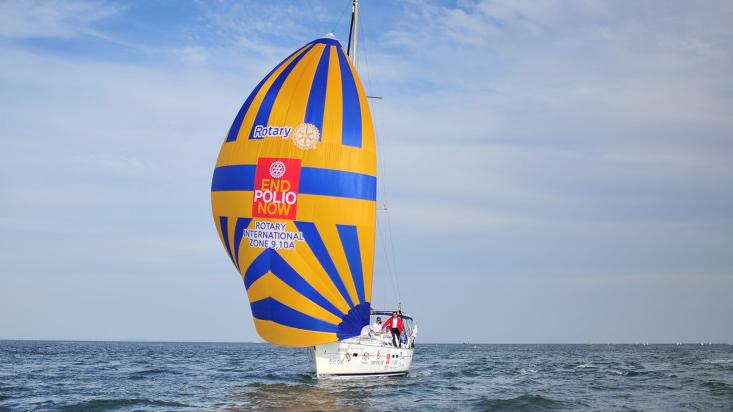 Seung Jin Kim shows off his sail emblazoned with the End Polio Now logo before setting off on his voyage around the globe.
Photo Credit: Courtesy of District 3260 Enjoying calm winds and peaceful Pacific waters, Seung Jin Kim dove off his 43-foot sailboat, the Arapani, to swim with some dolphins nearby. The serenity that day near the equator was a stark contrast to the 60 mph winds and 23-foot waves he had to fight around Cape Horn, the southern tip of South America. But Kim, a veteran sailor and member of the Rotary Club of Seokmun, in Chungcheongnam, Korea, expected such challenges when he set out in mid-October on a 25,600-mile journey around the world. In addition to fulfilling a lifelong dream, Kim is using the trip to raise awareness and funds -- his goal is $200,000 or more -- for Rotary's End Polio Now campaign.
He's now more than halfway through the voyage, which is expected to take eight months. As of 23 March, he'd passed South Atlantic and is now in the middle of the Indian Ocean en route to Western Australia. "I want to give people the belief and aspiration to create a better and more prosperous future," says Kim, who chose Sailing With Hope as the theme of his voyage. "Rotary is doing that with polio eradication, so I'm sailing around the world in support of the effort to wipe this disease from the face of the earth. I want people to know how close we are." To spread the word, the Arapani carries a 68-foot mast whose sail is emblazoned with the End Polio Now logo. He hopes people who see the logo will be curious enough to look into his cause. "The success of our fundraiser depends on how much publicity we get," says Kim. "The bigger the crowd of people we can attract [when he completes the trip], the more money we can raise for polio eradication." While he is in daily contact via satellite phone with his support team, which includes Korean Rotary members, he acknowledges that the solitary aspect of the journey is difficult. "The toughest part of this trip was the moment I realized I was all by myself in the middle of the ocean. A sullen feeling of loneliness suddenly invaded me," says Kim. Kim, who expects to return to Korea in late May, will have crossed the Pacific, Antarctic, Atlantic, and Indian oceans. He says the things he's most looking forward to are a home-cooked meal and being able to sleep under the same roof as his family. But he's already anticipating setting sail again. "I want to do this again, he says, "but with young sailors who have the same dream of sailing around the world." Kim's journey is sponsored by 18 districts in Korea. The day he set off, Korean Rotary members posted poems, inspirational words, and photos around the marina. "I am so grateful for [the members'] support and encouragement. They are a wonderful inspiration for me," says Kim. Sun-Hyung Cho, governor of District 3620 and part of the support team, says the district's Rotary members are closely following Kim's progress. "We are so proud of his voyage around the world," Cho says. "This is important for Rotary because Kim's message can help convince other Rotarians to get more involved in the End Polio Now fight. I believe positive attitudes attract positive reactions from others. Kim's positive thinking has helped gain attraction to our cause." By Ryan Hyland
Rotary News 26-Mar-2015 |
||||||
Monrovia club’s Ebola fight not finished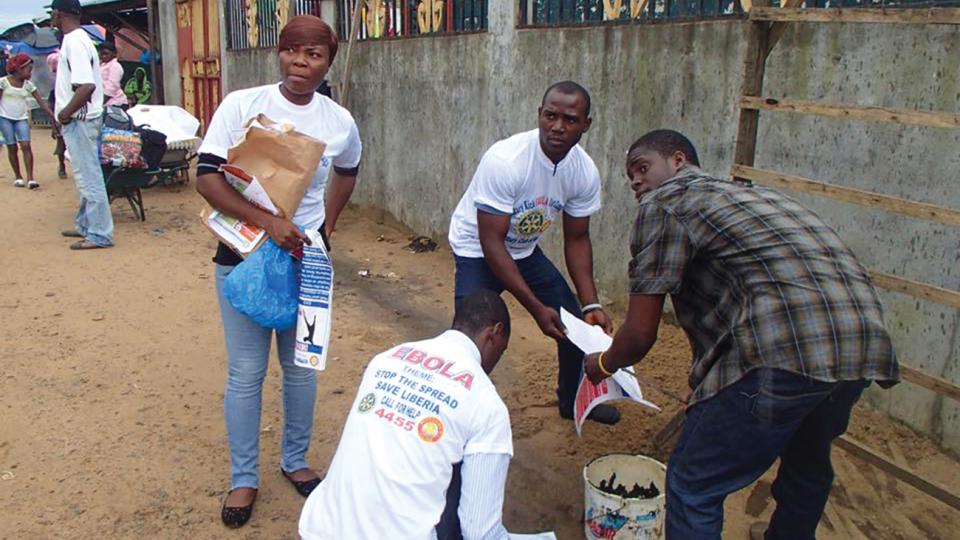 Members of the Rotaract Club of Monrovia conduct a door-to-door outreach campaign aimed at raising awareness about Ebola prevention. Photo Credit: Courtesy of Rotary Club of Monrovia, Liberia After the first cases of Ebola reached Liberia's capital, Monrovia, last June, local Rotary members feared that the city's limited health care system wouldn't be able to contain the highly infectious, often-deadly disease.
Those fears were realized when infections quickly multiplied, underscoring the speed with which Ebola can spread in an urban center. It was the first time the hemorrhagic fever had threatened a major city since it erupted in West Africa last March. Now, after months of crisis-level response, and with the number of new cases declining, club members are looking to the long term, planning three projects that will have a sustained impact in the Ebola fight in their community. "We were at the mercy of Ebola," recalls David Frankfort, a member of the Rotary Club of Monrovia and chair of its Ebola committee. "We didn't have enough trained health personnel or proper medical equipment to handle the onset of the epidemic here." The Monrovia club quickly stepped up efforts to control the spread of the disease in the city. By October, members had donated 220 noncontact infrared thermometers, 10,000 examination gloves, 100 plastic buckets with spouts for handwashing, 120 pairs of rubber boots for health care workers, 80 mattresses, fuel coupons for Ebola response vehicles, and books for students who had to stay at home after the government ordered the closing of all its schools in June. The 53-member club is also working directly with the Ministry of Health and Social Welfare to enhance local support for Ebola patients, health workers, and support staff. "When this crisis hit, we weren't going to stand by and wait for help to arrive; we created our own emergency action plan," says Frankfort. "We felt a responsibility, as a Rotary club, to show our community that responding to disasters like this is what we are all about." The Rotaract Club of Monrovia also pitched in, conducting a door-to-door outreach campaign aimed at raising awareness about Ebola prevention and home management. The effort was co-sponsored by the Liberian Nurses Association. In addition, Frankfort says that dozens of clubs worldwide have assisted Rotary members in Monrovia, including the Rotary Club of Marlow, in Buckinghamshire, England, which raised more than $113,000 for the effort. Cases drop, response stays strong The Ebola epidemic, the worst on record, has claimed more than 3,600 lives in Liberia. In the three worst-hit countries -- Liberia, Sierra Leone, and Guinea, -- the death toll is more than 8,620, according to the World Health Organization (WHO). Ebola, which causes vomiting, diarrhea, and internal bleeding, is spread through direct contact with blood or other bodily fluids. It has no known cure. However, the rate of new cases has declined in recent months, prompting the government to end the country's state of emergency in November. But William Martin, senior adviser to Liberia's Health Minister and a member of the Monrovia Rotary club, says more has to be done to end the epidemic. "Our biggest concern is that this disease doesn't stop at the border. The boundaries of these three countries are poor. People migrate back and forth all the time," says Martin, who serves on the Presidential Advisory Council on Ebola. "Eliminating cases in Liberia isn't enough. We [the government] must continue to prepare for cases." His club, which is celebrating its 50th anniversary this year, is also ready to continue the fight. "I'm extremely proud of what we've been able to accomplish so far. Every one of our members agreed that this outbreak is something we must take on as a challenge," he says. "But we can't stand down." The Monrovia club plans to institute three major projects for long-term relief. Members will donate $80,000 to an orphanage caring for children who lost parents to the disease. They are buying an oxygen machine for the John F. Kennedy Medical Center, one of Liberia's largest and oldest medical facilities, which lacks proper equipment for Ebola patients. Martin says the machine will be crucial to the hospital's treatment of infected patients. The third initiative is to provide scholarships for people to study health and social work subjects. Ebola's impact on Liberia was magnified by its deadly reach into the health care system. More than 300 medical workers contracted the disease, and 178 of them died from it. This was a significant blow in a country whose population of 4.4 million was served by only one doctor for every 100,000 people before the outbreak started, according to WHO. That compares with WHO's recommendation of at least one doctor for every 600 people. As the club's efforts transition from emergency response to long-term relief, members will focus on filling gaps the government can't address, Frankfort says. "There is going to be a strong focus on community outreach and awareness," he says. "It's crucial that people are educated on Ebola, because taking even a small step back can be disastrous for this country." By Ryan Hyland Rotary News 9-Mar-2015 |
||||||
Interact club’s winning video highlights scope of youth service in RotaryThe Interact Club of Hugh Boyd Secondary School in Richmond, British Columbia, Canada, won the $500 grand prize in the 2014 Interact video contest with its entry, “Our Best Day in Interact.”
For the second time in three years, the Interact Club of Hugh Boyd Secondary School in Richmond, British Columbia, Canada, took the $500 grand prize in the annual Interact video contest, beating 88 entries from 33 countries.
The secret to the club's success isn't just the professional quality of the videos but the stories behind them, says club member Kyle Gomes, who was the director, cinematographer, and editor for this year's three-minute entry, "Our Best Day in Interact." The video, narrated by several Interact members, shows the students decorating Christmas trees at Richmond's City Hall; ice skating to raise funds for the polio eradication campaign; collecting canned goods for a local food bank; participating in a model UN day in San Diego, California, USA; and rebuilding a preschool and orphanage in South Africa in 2013. The project in South Africa, conducted every other year since 2003, generally includes a team of five Interact members; members of the sponsor Rotary club, Richmond Sunset; teachers from Hugh Boyd Secondary; and firefighters, all of whom spend a month providing assistance to the Refilwe orphanage, located south of Johannesburg. "We really wanted to emphasize how much of an impact we can make in our community," says Gomes. "Our club is involved in so many projects, it was imperative to us that we show that in our video. We want the Rotary world to know that Interactors enjoy and are motivated to give back." Club president Melissa Chao was part of the 2013 team that traveled to South Africa, and calls it a "life-altering journey." The team renovated the preschool that adjoins the orphanage, adding linoleum flooring, expanding the kitchen, creating a patio and awnings, and fixing the roof. "I hope to return to Refilwe to continue the progress I started two summers ago," says Chao. Gomes will be part of the team traveling to South Africa this July. To raise the $3,500 cost for each student, he and the other Interactors plan to participate in a pledge drive called 24 Without, in which they will fast for 24 hours and refrain from using cell phones and other digital devices. "This will give us a glimpse of what so many children deal with on a daily basis," he says. Interactors add vigor to small sponsor club The Hugh Boyd Interact Club, chartered in 2012, has 160 members, almost eight times the total in its sponsor Rotary club, Richmond Sunset. But what the Rotary club lacks in numbers, it makes up with strength, thanks in part to the Interactors, says Richmond Sunset member and Interact adviser Magdalen Leung. "Their boundless energy motivates our members. We try to include Interactors in all our projects because they add so much enthusiasm," she says. "It's no surprise the club won the contest again," Leung says. "They represent exactly what Rotary wants from our youth programs. This will help attract more members to their club, which only makes our family bigger and stronger." Leung says engaging in youth programs is vital to Rotary's future. "Being hands-on with Interactors or Rotaractors by giving them community service opportunities will help these students to be better members of society." For Chao, the feeling is reciprocal. "Words can't describe how extremely grateful we all are to our sponsor club and Rotary for their leadership, mentorship, and friendship," she says. Her club plans to use its $500 contest prize as seed money for an upcoming clothing drive for teens at Vancouver Covenant House, a shelter for homeless youth. The three other clubs selected as contest finalists, and their videos are: Interact Club of Marghita, Romania, "Interact Helps the Poor Children"; Interact Club of Geethaanjali, Tamil Nadu, India, "Best Day Ever"; and Interact Club of CSI San Salvador Noroeste, El Salvador, "Serving for Better Days." By Ryan Hyland Rotary News |
||||||
Rotary member takes fundraising to new heights -- the summit of Mount EverestJoe Pratt, a former naval aviator, husband of 34 years, and father of two, sits on Mount Everest.
Photo Credit: Courtesy of Joe Pratt 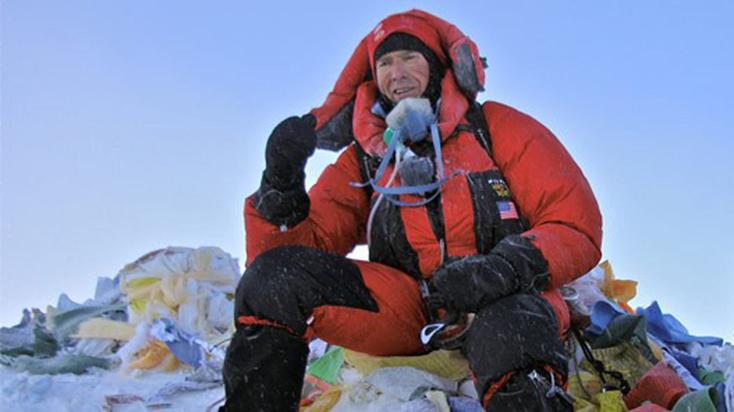 Joe Pratt, a former naval aviator, husband of 34 years, and father of two, sits on Mount Everest.
Photo Credit: Courtesy of Joe Pratt Despite his longstanding interest in polio eradication, polio was not on Joe Pratt's mind as he prepared for a mid-April 2012 climb of Mount Everest, the highest mountain on earth. But that changed in late 2011, when the resident of Nottingham, New Hampshire, USA, participated in a polio immunization project in Pakistan with fellow Rotary member Steve Puderbaugh.
Moved by the efforts of the Pakistanis to battle the crippling disease, and by the vulnerability of the young victims, Pratt reset the focus of his climbing adventure. Pakistan is one of three countries where polio has never been stopped (the others are Afghanistan and Nigeria). Pratt considered wearing a polio patch on his climbing outfit, as a tribute to those who had had polio. But Puderbaugh had other ideas. "My point was, 'Who's going to see that patch?'" recalls Puderbaugh. Instead, he suggested that Pratt dedicate the climb to raising funds for polio eradication. Pratt, a tall, lean 59-year-old Delta Airlines pilot who has been a member of the Rotary Club of Raymond Area for 28 years, says he "recognized it as a great idea" right away, and mentioned it to their Pakistani hosts at dinner. "It was immediately embraced by the Pakistanis," says Pratt, who had also climbed Mount McKinley and Mount Kilimanjaro among others. At first, the planners set a fundraising goal of $10,000, but later increased it to $29,030 -- a dollar for each foot of Mount Everest's height. And since Pratt's successful climb, his efforts have raised more than $40,000, not including matching funds from the Bill & Melinda Gates Foundation. His ascent, accomplished as part of a team of 23 Russians and one American, took five weeks. The climbers braved high winds and subzero temperatures, and occasionally passed the bodies of climbers who'd perished weeks or months earlier -- grim reminders of the perils of the adventure. In the end, only 12 members of the expedition reached the summit, the others having turned back. Pratt says he had a lot of motivation to keep going. "One of the many images in my mind was that of the little Pakistani kids -- kids who were healthy and hopefully will stay healthy," he says. "I would think, I want to quit, but these kids are depending on me." It took a little over a year to reach the $29,030 goal, with contributions picking up significantly last fall, after Pratt spoke to Rotarians from six Montana clubs. For them, Pratt's story had special meaning. "He's a mountain climber and we're in the mountains of northwest Montana," says Michael Hayes, a businessman and 19-year member of the Rotary Club of Daybreak Kalispell. "Several people are into mountaineering here." Hayes was also impressed with Pratt's selflessness, noting that he'd borne the entire $50,000 cost of his Mount Everest climb, never seeking any funding help. "We were also impressed that Joe Pratt, on his own time and his own dime, came out to speak to us," Hayes adds. "His trip didn't cost our club anything." Pratt gave two talks during his mid-October visit to Montana, attracting about $11,000 in donations from club members and area residents and $23,000 in matching funds from the Gates Foundation. "It was very heartening," says Pratt, a former naval aviator, husband of 34 years, and father of two. "I have given talks in libraries and other places. In one worst-case scenario, only one person showed up." By Lekan Oguntoyinbo
Rotary News 16-Feb-2015 |
||||||
Rotary releases $34.8 million for polio immunization activities worldwide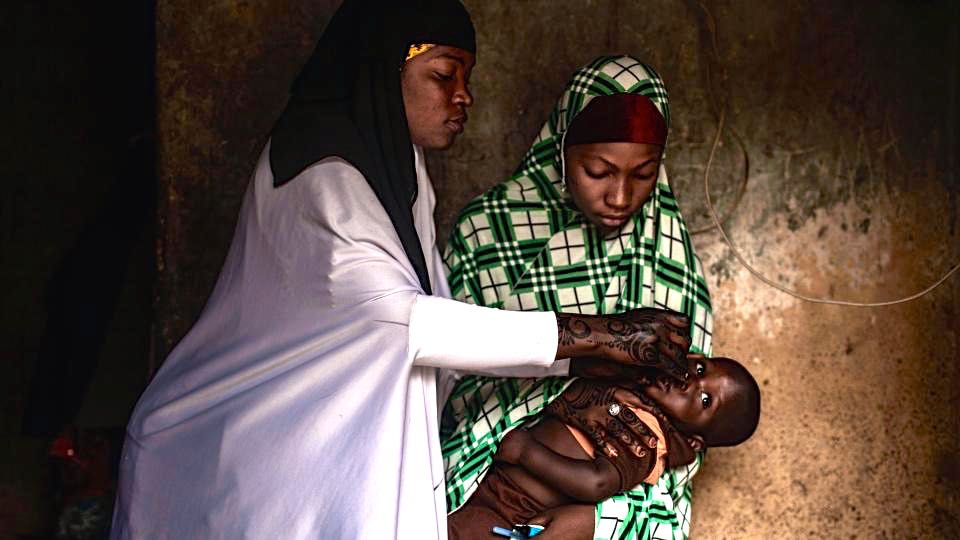 Female polio health workers providing the polio vaccine during the National Immunization Days in Kano Northern Nigeria. Photo Credit: Diego Ibarra Sánchez Rotary International released an additional $34.8 million in grants to support polio immunization activities in 10 countries, including Afghanistan, Nigeria, and Pakistan, the three countries where the disease has never been stopped.
The funds, whose release was announced 20 January, will be used by the World Health Organization and UNICEF for polio immunization and surveillance activities in the 10 countries, as well as to provide technical assistance in several other countries in Africa. The grants include $8.1 million for Nigeria to support its final push to eradicate the disease. Nigeria experienced a nearly 90 percent reduction in cases in 2014 compared with the previous year, and hasn't registered a new case of polio in the last six months. "Nigeria has managed an incredible feat," says Dr. Tunji Funsho, Rotary's PolioPlus chair for Nigeria. "However, now we must be more vigilant than ever, as our progress is fragile." Commitment to polio eradication from all levels of the Nigerian government has proved crucial to the country's recent progress. Disease experts are urging political leaders to maintain this focus as national elections approach next month. The Global Polio Eradication Initiative, in which Rotary is a partner, made significant progress against polio in 2014 in most places. More than half of the world's cases in 2013 were the result of outbreaks in previously polio-free countries, largely caused by instability and conflict in countries including Syria, Iraq, and Somalia. The outbreaks appear to have been stopped last year following special vaccination efforts in 11 countries that reached more than 56 million children. "We are encouraged to see the tangible progress made against this disease in 2014," says Mike McGovern, chair of Rotary's International PolioPlus Committee. "However, until we eliminate polio from its final reservoirs, children everywhere are at risk from this disease. Rotary -- along with our partners -- will work hard to ensure that the world's most vulnerable children are kept safe from polio." One less promising spot in the polio eradication fight has been Pakistan, which saw an explosive outbreak totaling more than 300 cases in 2014, the most there in more than a decade. As a result, Pakistan accounted for almost 90 percent of the world's cases last year. Pakistan will receive $1.1 million of the funds that Rotary is releasing to support eradication efforts there. In addition, the grants include $6.7 million in Afghanistan, $7 million in Somalia, $3.3 million in Democratic Republic of Congo, $2.8 million in Niger, $2.5 million in Chad, $1.6 million in Cameroun, $1.1 million in Ethiopia, and $250,000 in Kenya. A total of $321,000 will provide technical assistance in Africa. To date, Rotary has contributed more than $1.3 billion to fight polio. Through 2018, the Bill & Melinda Gates Foundation will match 2-to-1 every dollar that Rotary commits to polio eradication (up to $35 million a year). In 2014, there were only 350 confirmed polio cases in the world, down from about 350,000 a year when the initiative began in 1988. By Arnold R. Grahl Rotary News |
||||||
Intense summer program gives Israeli and Palestinian teens new perspectives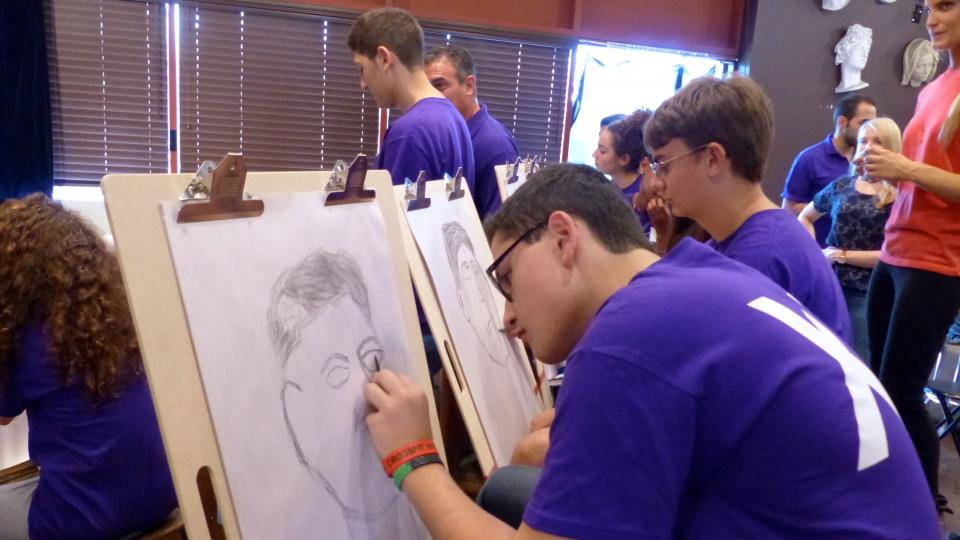 Israeli, Palestinian, and American teens draw portraits of one another -- an exercise in seeing one another in a new way -- in an art studio in Encinitas, California, USA, during the 2014 Hands of Peace program.
Photo Credit: Courtesy of Kelly Mellos Students from Israel and Palestine sat together at a local art studio in Encinitas, California, USA, one day last summer, drawing portraits of one another and learning how to live in peace. Kelly Mellos, an organizer of the project from the Rotary Club of Encinitas Coastal, says that drawing someone who is sitting so close helps break down social barriers between the young people. "They see how many similarities there are between them," she says. "And they begin to understand we are all just people. There is a respect and trust that builds." The students were participating in a program run by Hands of Peace, which every year brings together Jewish-Israeli, Palestinian-Israeli, and Palestinian teens, along with local students from a variety of religious backgrounds, for 18 days of dialogue and team-building exercises. The 12-year-old organization, which began in Chicago, expanded its program to the San Diego area in 2014. Professional facilitators lead the sessions, in which the teenagers learn about different cultures and religions and are exposed to a range of perspectives on the Middle East conflict. The program's goal is to have the students use what they learn to engage in peace-building efforts in their everyday lives and in their communities. Rotary's involvement During the program, the young participants stay with host families, some of which have included Rotary members. Rotary members also serve as volunteers and take part in community forums, seminars, and other peace-building events. The Rotary Clubs of Encinitas Coastal and La Jolla Golden Triangle in California and the Rotary Club of Glenview-Sunrise in Illinois provide financial support. Mellos got involved after Scott Silk, a history teacher at Pacific Ridge School, a private college preparatory school, and now director of Hands of Peace's San Diego branch, visited her club two years ago while organizing the branch. Mellos developed the art workshop because she believes art has the power to bring people together. "I teach them to look at the big patterns and shapes," Mellos explains. "It is suddenly as if you can't be too specific about a person's story; you are seeing the beautiful patterns that make them up. And then you are seeing each other as people, not as Israeli or Palestinian, not as narratives, but as creations." Jim and Gail Tatsuda began hosting student participants after a Hands of Peace volunteer spoke to the Rotary Club of Glenview-Sunrise in suburban Chicago. They have hosted four students, and have remained close to all of them. Gail, who is Jewish, recalls being touched when the mother of their second student, Mohammed, a Muslim from the West Bank, learned she had a bad cold. "She had been calling every morning to talk to her son, but now she called to talk to me," Gail recalls. "She would say, 'Are you taking your honey and lemon juice like I told you? Are you taking it three times a day?' I would get off the phone and think: Here I am, this little Jewish woman, and I have a dear friend who is a Muslim Palestinian." Mohammed later attended high school in Italy and then received a full scholarship to Lake Forest College, not far from Glenview. When he graduates, his parents plan to stay with the Tatsudas. "Once these kids go through the program and meet each other, it's life-changing for them," Gail says. "I heard one of the kids asking one of the others, 'What if you see me at one of the checkpoints -- are you going to aim a gun at me?' And the other kid said, 'No, I could not do that. I would treat you respectfully.' " Participants praise program "It was really surprising to hear things I'd never heard before. The dialogues can be really hard, very intense," says Hagar, an Israeli teen invited back last summer to provide peer support to new Hands of Peace participants. "I thought the program might change how I see Palestinians, which it did. But I didn't think I would bond this much with the other participants. They are part of my life now; we talk all the time." Alumni programs bring past participants together for seminars and workshops several times a year in Israel, providing them with a support network to pursue what they have learned. Inspired by the program, Hagar is working with a student from Tel Aviv to organize a soccer game for Israeli and Palestinian youth in Nazareth. They have spoken with city officials and soccer clubs, and hope to raise enough money to hold the event soon. "We want [the players] to understand they are humans and they have the same interests and enjoy the same things." Roxanne, a high school student in Carlsbad, California, was participating in last summer's program when news broke that Israeli ground troops were entering Gaza. "No one was sure what was going to happen [in the program]," she recalls. "Would people start fighting, or break into their own delegations and not talk for the remainder of the trip? But then an Israeli girl stood up and bowed her head for a moment of silence, and then everyone else stood up. And then everyone started crying. We all came together that day and embraced each other. "It was just incredible to see that, even though they all had family on different sides of the conflict, they had built friendships that could transcend all that was unfolding." By Arnold R. Grahl Rotary News |
||||||
Colorado joins Kosovo club to restore sanitation in blighted local schools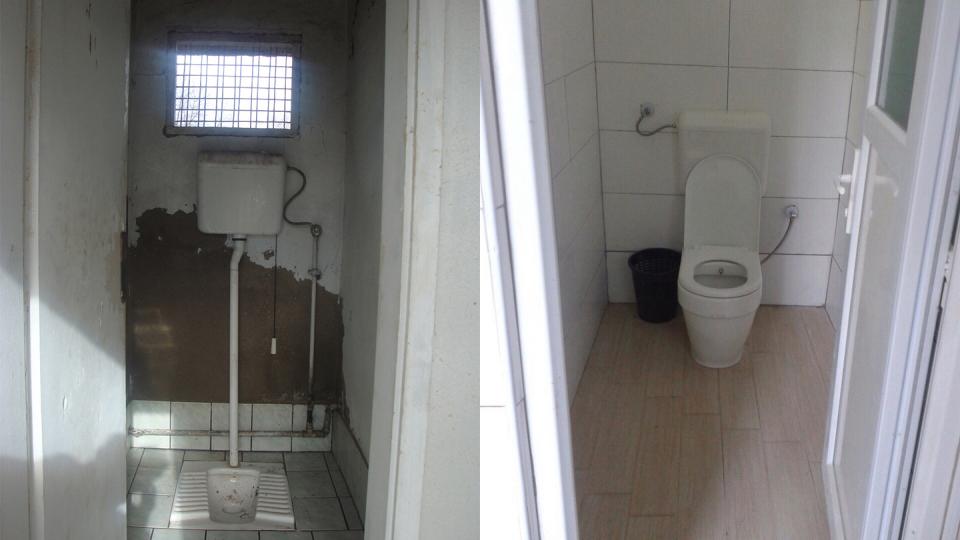 Through a $50,000 Rotary Foundation Global Grant, the Rotary clubs of Edwards, Colorado, USA, and Peja, Kosovo, brought clean water and new bathroom facilities to six area schools in Peja.
Photo Credit: Courtesy of Richard Dangler Blighted schools in the mountain city of Peja in western Kosovo are a reminder of the ethnic strife and war that ravaged this area in the 1990s. To restore ruined sanitation facilities in some of those schools, local Rotary members recently partnered with their counterparts from Colorado, USA. Though residents have been slowly rebuilding the city's infrastructure after years of neglect under earlier governments, most resources are going to improve roads, rebuild homes, and create new businesses. Little money remains to restore the schools. As a result, students have fallen ill, stayed home from school, and been unable to focus on their education, says Neshad Asllani, a member of the Rotary Club of Peja and a physician with the Health Center of Excellence in Kosovo. "Healthy students make better students," he says. Last year, his club joined the Rotary Club of Edwards, Colorado, USA, to bring clean water and modern toilet facilities to six area schools with the worst conditions. The $50,000 project was funded by a Rotary Foundation global grant and completed in September. It replaced all the commodes and sinks, repaired leaking roofs, and installed floor tiles, fixtures, and new septic tanks. The project was initiated by Edwards club member Richard Dangler, who'd spent time in the area in 2008-09 as the chief water engineer for International Relief and Development, helping to install a $1 million potable-water system in Kosovo that was funded by USAID. Although that system benefited most homes and businesses, the pipes didn't extend to schools in rural areas. Dangler recalls that those schools' water and sanitation facilities were "ghastly," with flooded commodes; dirty water for washing; and crumbling walls, floors, and roofs that made the facilities almost unusable. Dangler traveled to Peja in 2013 to plan the project there with local Rotary members. He says the community was instrumental in carrying it out. "We held planning meetings where 100 people would show up," says Dangler. "They were incredibly engaged. They showed a desire and readiness to be included in planning, designing, and maintaining post-construction tasks. Out of all the war-torn and underdeveloped places in the world I've worked, I found the Kosovo people had the greatest willingness to help themselves." The project also calls for water and sanitation education in the six schools. Students will design posters promoting proper hygiene practices, and will learn in science classes about diseases transmitted by unsanitary habits. The Peja club will create health committees made up of faculty and students for each school. Members also will oversee maintenance of the toilet facilities and devise sanitary and hygiene awareness campaigns to educate the entire community. Asllani notes that although the war's impact lingers, projects like this one are helping to restore area residents' spirit as well as the region's infrastructure. "The goodwill of NGOs and organizations like Rotary has helped our people overcome their animosities from the past by establishing projects that look to the future." Adds Dangler: "The people who lived through this conflict want to put this period behind them. At the top of the local community's priority list was improving the sanitary conditions of the schools. Focusing on the children and their education was the best way for them to look toward the future rather than to the past." By Ryan Hyland Rotary News 3-Feb-2015 |
||||||
Kids in Kenya are ending violent mistrust between tribes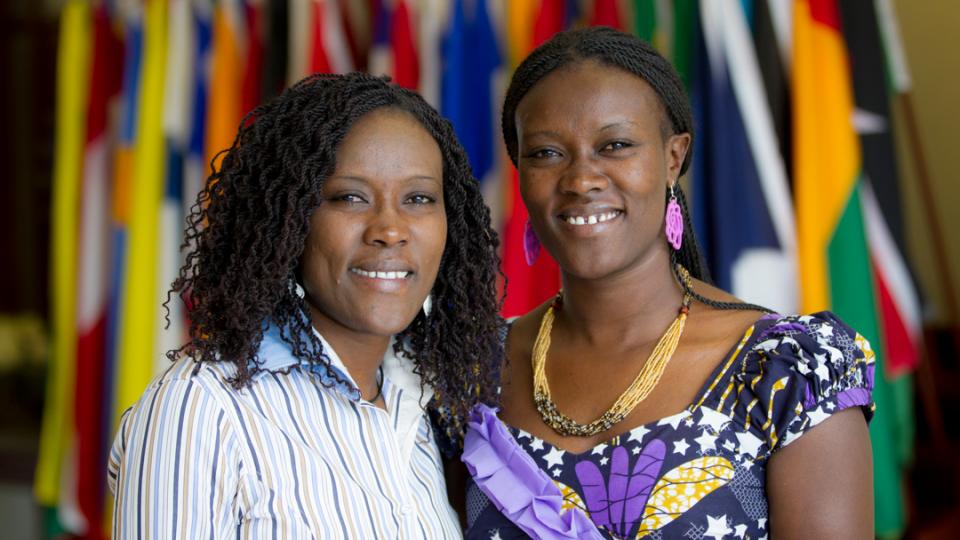 Monica Kinyua (right) and her sister, Jane Wanjiru, during a visit to Rotary headquarters in October.
Photo Credit: Rotary International/Monika Lozinska For decades, the small, pastoral communities in northern Kenya have been caught in a cycle of violence. Tribes have shed blood over distrust, scarce resources, and the theft of livestock.
Rotary Scholar Monica Kinyua founded the Children Peace Initiative (CPI) Kenya with her twin sister, Jane Wanjiru, to end the fighting by building friendships between children from different tribes. Earlier this year, the sisters used a global grant sponsored by Rotary members in San Diego, California, and the Rotary Club of Nairobi to conduct a peace camp for children in Baragoi, Samburu County, one of the most dangerous in northern Kenya. Forty police officers investigating a report of cattle rustling had been killed there a few years prior. During the peace camp in May 2014, Turkana students from three community schools and Samburu students from three schools along with their teachers mingled for five days of ice-breaking and bonding activities. At the end of each camp, every child is strongly encouraged to make a friend with a child from another tribe. CPI Kenya volunteers also organized events in Marsabit County where children who had formed friendships with children from neighboring communities invited their parents to meet their friends, and in the process the two families formed friendships. "In one case, they greeted each other with gifts that ranged from clothing, artifacts, foodstuff, confectionaries, and mostly goats," Monika said. Before the CPI Kenya activities, resolution happened only in the form of armed negotiations. On one occasion, before delegates from one tribe had even arrived at the other tribe's village, they were met on the road by armed negotiators. The peace camps have reduced violence in the region. "Children have never before been involved directly in conflict resolution," she says. "This role has been reserved for men. Through the CPI Kenya program, children are directly participating in intercommunity peace and coaching their parents and influencing the communities to live peacefully with each other." Rotary scholarship Monica contacted Rotary for help following a series of serendipitous events that began in 2011. She had just been selected to receive a scholarship to the University of San Diego to pursue a master's in peace and justice, but she had no means of paying her living expenses. Days before she had to decide whether to accept the scholarship, she attended a Rotaract club she was considering joining. Carol Kurth, a college student from San Diego, was also visiting the club that day as part of a trip she was taking through another nonprofit. Her mother, San Diego Rotary member Janice Kurth, had spent time in Kenya on a Rotary vocational exchange 18 months earlier. "When Carol left on her trip, I gave her my business card to use while there. So she gave Monica my business card and Monica emails me," Kurth recalls. "Our district has been using grants to sponsor students in the very program she was applying to for the past several years. I went to people in my district and explained the situation, and when she was selected, I said, 'I have to be her host counselor.' " Kurth said Monica became like another daughter to her during the scholarship. Near its conclusion, Kurth called one of her contacts in Kenya, Rotary Club of Nairobi member Sudish Walia, and they began putting together a global grant to fund Monica's work. More communities have requested CPI Kenya's help as they hear about the work the sisters are doing. At the end of each peace camp, community leaders recommend other villages that would be helped by the program. Monica, who serves as executive director of CPI Kenya, says her Rotary scholarship helped her become a better leader and form a wider network of support. She got to know Interactions for Peace, a nonprofit based in San Diego, through a Rotary member, and is now partnering with the group. The University of San Diego has also lent support. "Rotary exposed me to a world of possibilities and opportunities," she says. "Many of the people I met are even today continuing to mentor me or shape my career. I see Rotary's commitment to education and to world peace as a great asset to peace and understanding in the world." By Arnold R. Grahl
Rotary News 23-Dec-2014 |
||||||
PRESIDENT-ELECT URGES ROTARY MEMBERS TO ‘BE A GIFT TO THE WORLD’ RI President-elect K.R. “Ravi” Ravindran announces his presidential theme for 2015-16, Be a Gift to the World, at the opening session of the International Assembly in San Diego, California, USA. Photo Credit: Rotary International/Monika Lozinska
Using their talents, expertise, and leadership, Rotary members worldwide are asked to be gifts to the world this upcoming 2015-16 Rotary year.
Rotary International President-elect K.R. "Ravi" Ravindran called Sunday's address to incoming district governors the "most significant moment of my life."
"All of you have been given so many gifts. And you have now been given this great gift: one year to take all your talents, all your gifts, everything that you are and can become -- and Be a Gift to the World," said Ravindran, revealing his presidential theme at the annual five-day training meeting in San Diego, California, USA. "You have one year to take that potential and turn it into reality. One year to lead the clubs in your district and transform the lives of others. The time is so short, yet there is so much to be done."
Highlighting Rotary's biggest challenge, the eradication of polio, Ravindran said, "A future without polio is a gift that we have promised to the children of the world. And indeed it is a gift that we will give."
Ravindran, a member of the Rotary Club of Colombo, Sri Lanka, used Rotary's successes in the fight to eradicate the disease as an illustration of the impact Rotary members can have in the world. When Rotary set a goal of eradicating polio 25 years ago, it was endemic in 125 countries, and more than 1,000 children were becoming paralyzed each day. Today, polio remains endemic in just three countries, Afghanistan, Nigeria, and Pakistan. And in all of 2014, only 333 cases were reported. "We will battle on. We will prevail," he said.
Ravindran discussed some of Rotary's other challenges, including membership.
"We have to find a way to bring back the fundamentals that built our organization: the emphasis on high ethical standards in all aspects of our lives, and the classification system that encourages a diversity of expertise in each club," he said. "Too often these ideas are viewed as little more than inconvenient obstacles to increasing our membership. But they have been essential to Rotary's success, and we ignore them at our own peril."
Ravindran told attendees that the focus on branding is essential to helping Rotary grow. "We need to reposition our image, which we recognize has faded in many parts of the world," he said.
Rotary also needs to continue to raise funds for The Rotary Foundation, attract new members, and encourage greater participation from current members, he added.
"There are no easy answers to any of these questions. And yet the answers must somehow be found. We are the ones who must find them," said Ravindran.
The president-elect closed his speech emphasizing that now is the time to make real change.
"You have one year to build monuments that will endure forever, not carved in granite or marble, but in the lives and hearts of generations. This is our time. It will not come again. Let us grasp it," he said.
By Ryan Hyland
Rotary News 18-JAN-2015 |
||||||
Man in iron lung discovers Rotary Rotary e-club member Linda Elliott visits fellow member Paul Alexander in his home. Alexander is among a small number of people in the world today who rely on an iron lung to breathe.
Photo Credit: Courtesy of Linda Elliott, a member of the Rotary E-club of District 5810 One might think a man living with polio in an iron lung would know about Rotary. But it wasn't until Paul Alexander had a business meeting with a member in Duncanville, Texas, earlier this year that he learned Rotary fights to eradicate the very disease that left him almost completely paralyzed.
"I was completely blown away by the idea. For all these years, I didn't know the work they were doing," says Alexander, a practicing attorney in Dallas. "It's such a perfect fit for me." Alexander contracted polio during a major U.S. outbreak of the disease in the late 1950s when he was six years old, and almost died in the hospital before a doctor noticed he wasn't breathing and rushed him into an iron lung, an airtight metal tank that encloses all of the body except the head and uses regulated changes in air pressure to force the lungs to inhale and exhale. Alexander is among a small number of people in the world today still using an iron lung to assist his paralytic polio. The need for the 800-pound machines declined dramatically after the polio vaccine became widely available in the early 1960s. In October, Alexander became a member of the Rotary E-Club of District 5810 during an induction ceremony held in his home, attended by Rotary's President Gary C.K. Huang through an online connection. Alexander is writing a book about his experience and wants to be an ambassador for Rotary promoting the benefits of eradicating polio. Freed from the lung For 10 years, Alexander never left the device or his house. But then he had a breakthrough, teaching himself to breathe on his own by forcing air into his lungs. That allowed him to get around in a wheelchair for up to eight hours. "The first day I was outside the house was extraordinary. It was a 100 percent improvement," he recalls. Determined to go to college, he moved onto campus and with the help of a nursing assistant attended classes, earning a degree from the University of Texas. He eventually went on to earn a law degree, passed the bar, and practices civil and criminal law. He has a computer keyboard and a touchtone phone by his head which he can manipulate with a plastic stick held in his mouth. When he goes to court for a case, he has assistants who help him. He's traveled farther from his home on rare occasions. The iron lung, which has wheels, is shipped to meet him at his destination. Long lost connection to Rotary His father was president of a Dallas Rotary club in the 1960s, but Alexander says he doesn't remember it. His introduction to Rotary began when he met Duncanville member Alexander Peralta. Peralta told the Rotary District 5810 governor, Bill Dendy, who immediately decided Alexander would be the perfect subject of a video his wife was making on polio eradication. Alexander agreed, and a film crew from the district's e-club came out to shoot the interview. "I visited him weekly after that," Dendy says. "One day, I said to him, 'Paul, you could be a contributing member of Rotary.' He asked me how that would be possible. And I told him with an e-club, which meets online, it would be very possible." Since joining Rotary, he's become a popular speaker in the Dallas Rotary community. He's already addressed two large gatherings and is scheduled to speak at the next district conference. The Waxahachie Rotary Club, which builds wheelchair ramps as a project, built him a new one when they heard he transports his iron lung to the hospital or for longer trips. "It means so much to me to belong to this organization," Alexander said during a phone call to his home recently. "I'm having a great time and staying awake at night thinking of ideas. So many people have come into my life. I never knew there were so many caring people out there." By Arnold R. Grahl Rotary News 15-Jan-2015 |
||||||
Rotary’s innovative tribute to polio eradication in India breaks Guinness world record.jpg) A bird’s-eye view of the world’s largest human national flag.
Photo Credit: Courtesy of I.S.A.K. Nazar, governor of District 3230 (India) To eradicate polio in India, Rotary members displayed impressive coordination and commitment. So it should come as no surprise that Rotary members in Chennai, Tamil Nadu, were able to mobilize more than 40,000 people to create the world's largest human national flag. The tribute to the polio eradication effort qualified as a Guinness World Records-breaking achievement.
"What impressed me most was that all of Rotary was represented: Rotaractors, Interactors, and Rotarians," says RI President Gary C.K. Huang, who participated in the event along with his wife, Corinna, and other Rotary senior leaders. "They brought their classmates, friends, and co-workers. I think that says a lot about how important it is to the people that India is polio free." Participants from all walks of life holding placards stood together on a local fairgrounds to form the Indian flag. Their display broke the record set last year by the Sports Club of Lahore, which organized nearly 30,000 people to form the Pakistani flag.
After breaking the record, local Rotary members, who'd formed the blue wheel in the center of the flag, flipped their placards over to create Rotary wheels, and other Rotary members unfurled a large banner reading "Keep India Polio Free." The organizers, led by District 3230, estimate that another 50,000 people showed up to watch on large TV screens set up outside the event.
Once the participants were organized, they had to hold up the placards for more than five minutes to enable the representative from Guinness to verify the new record. "The last 30 seconds, everyone started screaming [in encouragement]," says Huang. "I [felt] very patriotic, says Avanthika Iyer, a third-year student at Shasun Jain College in Chennai. "The five-minute period of holding the placard was difficult but made us happy."
Says Huang: "When I was told how many people had to participate -- 40,000 to 50,000 -- I didn't think it would happen. When I saw the thousands and thousands of people [gathered] for just the rehearsal the day before, I realized it was possible."
By Adam Ross
Rotary News 8-Jan-2015 |
||||||
Capital City Rotary Club brings medical equipment to rural Mongolia
A local Rotary Club effort improved rural Mongolian birthing technology by bringing maternal and pediatric suites to five clinics in the developing country’s outskirts last month. A year of fundraising in New Hampshire, Vermont and Maine netted about $25,000 of donations, which was matched by other Rotary funds to total more than $60,000, said Tony Gilmore, a past governor of a district covering much of New Hampshire and Vermont. The Rotarians partnered with a Massachusetts-based nonprofit called International Medical Equipment Collaborative, which refurbishes surplus equipment donated by hospitals for reuse in impoverished countries. In the end, that partnership meant that the local funds bought birthing beds, incubators, sterilization equipment and other supplies that would have cost nearly $800,000 if purchased new. “We shipped a 40-foot-long container full of this medical equipment broken down into five suites,” Gilmore said. “The inventory list was 66 pages long, so it was quite a lot of stuff.” The effort was led by the Concord-based Capital City Sunrise Rotary Club, one of two clubs in the city. Gilmore said he’s one of the club’s 13 members. Gilmore said a Mongolian man named Batuka Baterdene who’d won a Rotary scholarship was giving a presentation in the spring of 2013 to Rotarians about the lack of equipment for medical clinics in his country. Gilmore said the man brought videos that illustrated a dire need, and he decided he wanted to help.
Gilmore was busy serving as the district governor for an area covering all of central and western New Hampshire and Vermont, but he said when his term was up on July 1, he was going to make a Mongolia project his priority. He and others then spent a year making presentations and gathering donations, and by Sept. 15 the equipment was on its way to Mongolia, where it would then be dispersed to clinics spread throughout the country’s hinterlands. One of the clinics was more than 650 miles from the capital – where the equipment was shipped – and almost 90 percent of the way was unpaved, Gilmore said. He flew to the country to be there when the equipment arrived and see the clinics for himself. “One of the clinics there, their sterilizer was broken. I don’t know how they sterilized their instruments,” he said, noting that their new sterilization technology could be powered by heat and could work even if the power is out. Gilmore said nearly half the country’s population is located in the capital, and services in the rural parts of the country – oftentimes without roads – are severely lagging. According to UNICEF data, the infant mortality rate has been on the decline: It went from 31 deaths in the first year of life per 1,000 births in 2000 to 23 in 2004. But, compared with neighbors Russia and China, at 7 and 15, respectively, it’s still relatively high. In rural areas, Mongolia’s infant mortality rate is even worse “due to long distances to health facilities as well as lack of access to antenatal and delivery care, including emergency services in rural areas,” UNICEF said. Rural areas are also much less likely to have improved water sources or sanitation provisions. Gilmore said he worked as quickly as he could to expedite the project. He said it was “highly unusual” for the grant proposal to be fully funded, and he personally drove to IMEC headquarters with a check three days after the Rotary grant was approved in mid-July. The equipment was shipped in September and arrived in the Mongolian capital Ulaanbaatar around Thanksgiving. Gilmore said his Capital City Sunrise Rotary Club worked closely with Mongolia’s Peace Avenue Rotary Club to work out the logistics of the project. He said the Peace Avenue club got a number of permissions from the Mongolian government to import the equipment as a donation and bypass tax requirements. “They worked tirelessly to get this thing through customs,” he said. A Mongolian company donated a warehouse and lifting equipment and offered a place where representatives of the five clinics could receive training on all of the new equipment. Gilmore said the Mongolian Rotarians on average were about half the age of the average American Rotarian, and the youthful group took time off work and managed to overcome a number of obstacles to deliver all of the equipment to rural destinations. “These guys were just absolutely fantastic,” Gilmore said. “It was really, really, a terrific undertaking. I’m thrilled.”
(Nick Reid can be reached at 369-3325 or nreid@cmonitor.com or on Twitter @NickBReid.) |
||||||
Mongolian Rotary Global Grant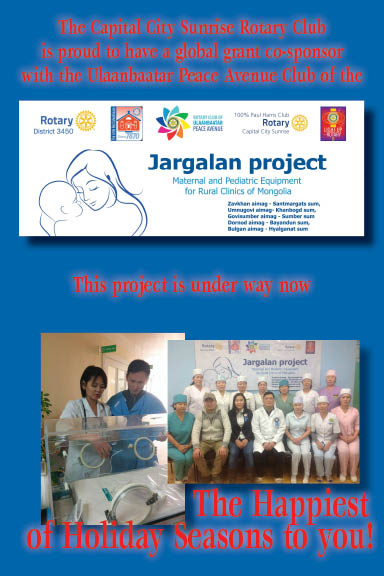 |
||||||
Miles to end polio: $6 million crosses the finish line for polio eradication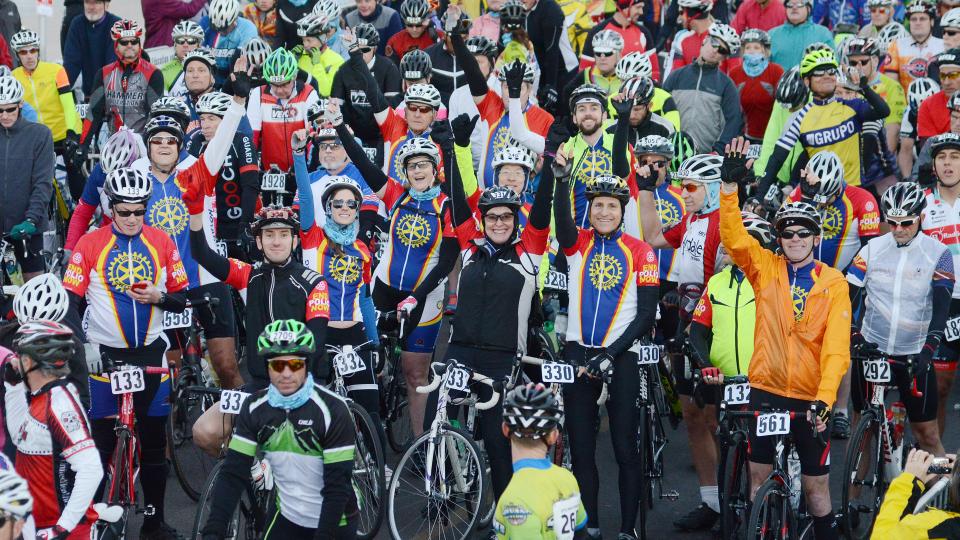 Rotary members and staff biked 104 miles in the annual El Tour de Tucson, raising $6 million for the fight to end polio. Photo Credit: James S. Wood Rotary General Secretary John Hewko and six RI staff members bicycled 104 miles in Tucson Arizona, USA, on Saturday, for the Miles to End Polio event, raising more than $6 million for polio eradication.
The money raised by Rotary will receive a two-to-one match from the Bill and Melinda Gates Foundation.
In addition to the team from Evanston, 100 Rotary member riders took part in the ride.
The fundraising ride is part of the annual El Tour de Tucson bike event in Tucson, Arizona, USA. The race attracts more than 9,000 cyclists a year, making it one of the top cycling events in the U.S. The Rotary team from Evanston was joined by Rotary members from Arizona's District 5500, and other members from around the world.
Hewko tweeted that he finished the race in 5 hours and 2 minutes.
"Really enjoyed riding in El Tour de Tucson along with 100 Rotarians and members of the Rotary International staff," Hewko added. "As a group we were able to raise over $6 million for polio eradication which will help bring us even closer to the dream of a polio-free world. I am deeply moved by the generosity and passion of Rotarians around the world and Rotary staff."
By Ryan Hyland
Rotary News 23-Nov-2014 |
||||||
Rotary Day at the United Nations highlights the strength of partnerships.jpg) To strengthen their 69-year-old partnership, leaders from Rotary and the United Nations met this month in New York City for Rotary Day at the United Nations. The two organizations began working together with the aim of maintaining peace after World War II. Today, the relationship has evolved to include humanitarian work in areas like gender equality, child and maternal health, and disease treatment and prevention.
While the UN's Millennium Development Goals are set to expire in 2015, its leaders are preparing for an even more ambitious humanitarian agenda of eradicating extreme poverty by 2030, said Amina J. Mohammed, special adviser of the UN secretary-general on post-2015 development planning, speaking at the event. The UN considers those living on less than $1.25 per day to be in extreme poverty. Around the world, 1.2 billion people fall into this category. "We have the resources in the world to deal with the issues we have today," said Mohammed. "We need to find a way to unlock that." She added that building strong partnerships with organizations that share a similar vision will be crucial to solving the global issues that are related to extreme poverty. As proof of the power of partnerships, Mohammed cited the polio eradication work of Rotary and its global partners. Describing that work, Rotary Foundation Trustee Chair John Kenny, in his address to the meeting, said, "we persist, we overcome challenges, we make progress -- and we do not yield." Nina Schwalbe, principal health adviser for UNICEF, noted that the skills honed in fighting polio -- such as identifying the people an infected person has come into contact with, known as "contact tracing" -- can be used "as a model to make advances in other global health issues," such as Ebola. Nigeria's government stopped its recent Ebola outbreak largely by employing the strong health care systems it had put in place to tackle polio, said Schwalbe. Extreme poverty can be eliminated, insisted Mohammed, but infrastructure must be improved, and not merely through ad hoc projects scattered around the world. Eliminating extreme poverty, she said, requires making sure girls have access to education and addressing other forms of gender inequality. "Women and children are the world's greatest untapped resources. Helping them is the quickest way to end poverty," said Nana Taona Kuo, senior manager for Every Woman Every Child, an initiative of the UN secretary-general. "When women and children are healthy and strong, entire economies grow." By reaching decision makers, Rotary can play a critical role in civil society, said Kuo. Rotary leaders call on members maintain their dedication Ed Futa, dean of the Rotary Representative Network and a past Rotary general secretary, called on Rotary members to maintain their dedication to polio eradication while working with partners on humanitarian causes. He said that Rotary members can't rest simply because polio has been 99 percent eradicated. "It's like running the New York marathon -- if you don't cross the finish line, it's like that marathon never happened for you, because it didn't count in the records. We must cross the finish line. It's eradicate it all or nothing." In addition, Futa challenged Rotary members to work for peace. "When it comes time for creating peace, who should we send? We're sending you," said Futa. "Each of us can do it and must do it." Rotary members work in behalf of the global community, not themselves, said Futa. "This is what the UN building is trying to extract from each one of us. As Rotarians, we're the ones who are going to answer the call," he said. Rotary International President Gary C.K. Huang agreed. He asked participants to convey what they've learned from Rotary Day at the United Nations to their friends. "Create a much brighter world," he added. By Antoinette Tuscano Rotary News 21-Nov-2014 |
||||||
LLNESS LEADS FORMER NAVY CODE BREAKER TO FORM WORLD’S FIRST FACEBOOK-BASED ROTARY CLUBMotivational speaker and performer Amanda Wirtz, charter president of the United Services Rotary Club on Facebook, discusses why Rotary fulfills her desire to build a hope and a future for others, and how it is a gold mine of opportunity for those desiring to change the world. When a serious illness stripped away many of her professional ambitions, Amanda Wirtz, a former U.S. Navy code breaker and professional violinist, turned to humanitarian service and Facebook to give her life new purpose.
Wirtz was in her twenties and pursuing a career as a fitness trainer when a sharp pain in her abdomen sent her to the emergency room. Expecting something manageable like appendicitis, she instead found herself facing a rare tumor disorder that required her to undergo 30 surgeries over the next several years. Forced to rethink her life plans, Wirtz began focusing on how to help others, a quest that led her to Rotary. "I met an older man with a Rotary pin," Wirtz recalls, "and I said, 'I love Rotary.' Ten years earlier as a Rotary Youth Exchange student, Rotary had helped build a hope and a future for me. Now, I found that through Rotary I could build hope and a future for others. And doing that, I found that I actually received it myself." Wirtz launched the world's first Facebook-based Rotary club last year, United Services Rotary, after being approached by Rotary leaders who were seeking ways to make membership more convenient for U.S. military personnel. Their need to travel and relocate frequently can make it difficult for members of the military to commit to the weekly attendance that most Rotary clubs require. The leaders came to Wirtz because of her passion for service and her military background. The club differs from a traditional Rotary club in that members log in to Facebook at any time during the week to view a high-definition video that reproduces many of the elements of a typical meeting: The Four-Way Test, sharing of Rotary moments, announcements, and a presentation by a main speaker. If there hasn't been time to record an original program, the weekly presentation may be a TED talk or other video on a Rotary-related topic that's available online. Members keep in touch through Facebook updates and by posting on each other's timelines. Wirtz admits that meeting online comes with some drawbacks. "There is nothing like being in the same room with another person. I don't think anything can replace one-on-one interaction," she concedes. "So it's, 'How can I get a sense of you truly to have the feeling of real fellowship in a remote location?' And honestly, that's something we are continuing to work on." But she feels social media is too big a phenomenon for Rotary not to embrace it. "I see a lot of missed opportunities, and my pain reminds me that time is short," Wirtz says. "Social media is a powerful tool. But it is more about embracing whatever strategy brings innovation, opportunity, and change. If we are to do anything about the mounting problems in the world, and the problems within Rotary regarding keeping members, we need to do whatever it takes to fully engage our evolution." HOW WIRTZ BROUGHT THE IDEA TO LIFE Wirtz used focus groups on military bases to discover what people would want in an online meeting. They didn't want to read a lot of text, they wanted to communicate very quickly, and they didn't want to go to a lot of places to do that.
On all counts, a Facebook platform seemed to fit the bill. It was convenient: Members can sign in to Facebook from anywhere in the world and stay connected without having to attend an in-person meeting in a set location every week. It cost nothing to set up. And because there's no meal, the club can keep expenses down. Wirtz said she expanded the membership target beyond the U.S. military because she wanted to have as big an impact as possible and promote peace among military personnel everywhere. Through the focus groups and by promoting the idea heavily on social media, she assembled a core of members in and around San Diego, California, USA. Members in other countries, including Afghanistan, Germany, and Japan, signed up as they learned about it. Though military personnel were the initial focus, she notes that membership is open to anyone who shares the club's vision of building hope through peace. SERVICE ITS OWN REWARD Wirtz's quest to help others has meant learning new skills. After working with an exercise physiologist to manage her pain, she enrolled at the University of Illinois to earn a degree in health education and graduated with top honors. She followed that with an advanced degree at the University of California, Santa Barbara. A motivational speaker, Wirtz now shares her story with audiences around the U.S., combining her new life philosophy with her other passion, playing the violin.
Before forming the Facebook club, Wirtz had already taken part in a trip to South America to help orphans find homes. She also participated in projects to rehabilitate a homeless shelter and distribute backpacks to low-income families. "When I hear our motto Service Above Self, I am reminded of the words of Mahatma Gandhi, who said, 'the best way to find yourself is to lose yourself in the service of others.' I feel passionately that by serving we answer the most important question -- and that is, Who do we want to be?" In its first year, United Services Rotary received a grant to build a memorial wall at U.S. Marine Corps Base Camp Pendleton for those killed in combat. It has renovated elementary schools in San Diego and provided tsunami relief in Japan. It is also organizing a larger project that would gather Rotary members from all over southern California for an annual day of international service in Baja California, Mexico. For other projects, members assist each other remotely. "We have a member in Germany. If he wants to do a project for schools in Germany, I can find some way to facilitate that. Maybe some kind of exchange, maybe we get students talking to each other," Wirtz says. "It's a creative world. There are no restrictions to it." "We are bringing social media and Rotary together in a way that has never been done before. Paul Harris said, 'This is a changing world; we must be prepared to change with it. The story of Rotary will have to be written again and again.' I think Paul Harris would have liked social media." By Arnold R. Grahl Rotary News 18-SEP-2014 |
||||||
Restoring vision to hundreds in China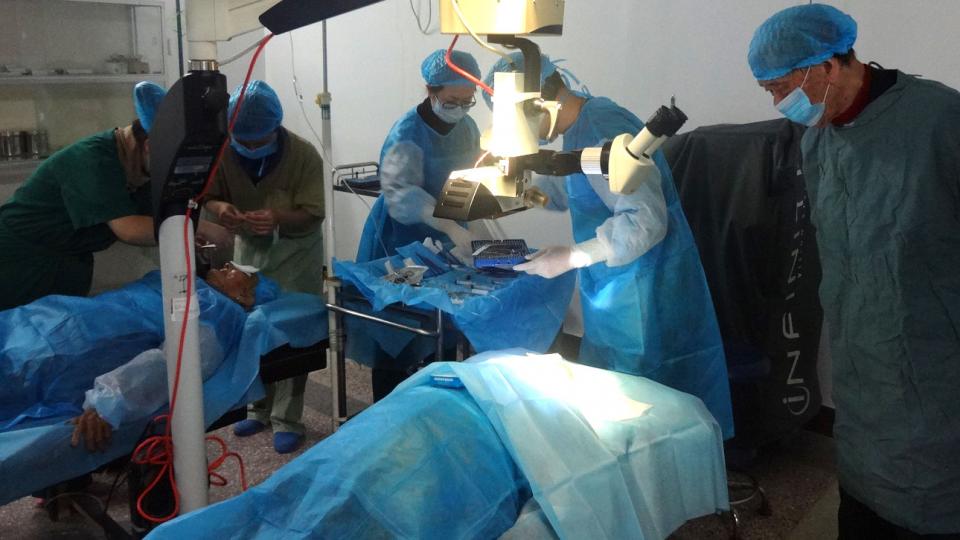 Four hundred citizens in northeast China received free cataract surgeries in 2013 thanks to efforts by the Rotary Clubs of Warner Robins, Georgia, USA, and Shanghai, China.
Photo Credit: Courtesy of the Rotary Club of Shanghai Seeing an elderly Tibetan woman weep with joy when cataract surgery restored her vision after 10 years is the kind of moment Dave Razo will never tire of. For several summers Razo, a member of the Rotary Club of Warner Robins, Georgia, USA, traveled to rural northwest China with a team from Georgia-based nonprofit Gansu Inc., to provide free sight-restoring cataract surgery to some of the country's poorest residents. In 2012, after 22 years and 6,000 successful procedures, Gansu's founder, ophthalmologist William Conrad, retired and discontinued the organization's operations. But Razo didn't want the effort to end. He had seen how life-changing the surgery could be, not only for the patients but for their families and their community. "When you see the face of someone who regains their sight for the first time in years, you can't help but share their overwhelming happiness and gratification," says Razo, who is a retired U.S. Air Force pilot. "There was so much good work done by Dr. Conrad and his organization that I felt I could continue his legacy through Rotary." Cataract, a clouding of the lens of the eye, is responsible for an estimated 2.5 million cases of blindness in China, nearly half of the country's blind population. In rural areas, blindness can be a death sentence for villagers who must walk dangerous mountain trails to obtain food and water. Nearly half of China's population lives in rural areas, without access to the same health care as urban residents. With its huge population of older people, China is likely to face a growing backlog of people in need of cataract surgery, Razo says. "Chinese families in these regions are close knit, and three or four generations often live together. So giving sight to a patriarch or matriarch has a multiplier effect for the family and the community," he says. Razo turns to Rotary to continue the project During one of his missions with Gansu, Razo had met Frank Yih, of the Rotary Club of Shanghai. Yih, who is chair of the nonprofit HuaQiao Foundation, which provides in-country logistical support for international charities, arranged housing for team members during their last two visits to China. When Gansu closed its doors, Razo's Rotary club and the Shanghai club partnered to fund cataract surgery for 400 people at two hospitals in the northeast provinces of Shandong, Gansu, and Qinghai, as well as remote areas closer to Shanghai. The clubs raised a total of $46,000, including $21,000 in matching funds from The Rotary Foundation. The surgeries, each of which cost about $110 and took about two hours, were completed in June. The Shanghai club collaborated with Vision in Practice, an organization that provides surgical training, consultation, and assistance to eye care institutions and professionals, to oversee the procedures and assist hospital staff. Yih says the grant project has introduced a low-cost, high-quality cataract surgery model into the Chinese health care system, and he hopes his club can help expand the effort. "If this type of surgery and outreach can be integrated nationwide, millions of elders in the rural villages can enjoy the benefit of regaining their vision through affordable operations," says Yih. "This will ease the burden of our country's health care dramatically." Find out how to apply for a Rotary grant Learn about the lifecycle of a project. By Ryan Hyland Rotary News 29-Oct-2014 |
||||||
Dynamic young club uses social media to grow.jpg) Members of the Rotary Club of Plaza Matriz at a social event.
Photo Credit: Courtesy of Erin Mills Erin Mills had just finished teaching for the day in Montevideo, Uruguay, when her smartphone buzzed with a message.
An impromptu gathering to watch Uruguay's World Cup soccer match was being organized. Through the power of a mobile messaging app, a majority of the Rotary Club of Plaza Matriz had soon assembled at a member's home to munch on baked goods and chips while rooting for their national team. That enthusiasm and ability to draw a crowd has made the club, which just received its charter in July, a success in the country's capital city. Made up almost entirely of young professionals, it is the kind of club Rotary is eager to have more of. It has also served as a bridge back to Rotary for former members of Rotaract, who must leave the program when they turn 30. Mills says she could tell the club had something special by its third meeting. "It turned into a brainstorming session of all the projects we wanted to do. No idea was too large or too small." An "Oscars for Rotary" The club has partnered with PORSALEU, a local charity that provides a place for leukemia patients and their families to stay close to the hospital when they travel to the city for treatment. They held their first fundraiser during the World Cup, auctioning off a jersey signed by Uruguayan footballer Cristian Rodríguez -- through social media. And they're planning a Rotary award night to recognize and encourage humanitarian service, which they are calling the "Golden Wheel." "It's like an Oscars for Rotary," Mills explains. "Clubs that enter have a chance to win a Golden Wheel in categories such as best outreach program for new members, best service project." Members are conducting workshops to teach other Rotary members in the city how to use social media to their advantage. How the club got started For Mills, the club has also offered a way to get reestablished in Uruguay. She came to Montevideo in 2008 on a scholarship sponsored by the Rotary Club of Casa Grande, Arizona, USA, and joined the Rotaract Club of Paso Molino. After completing her scholarship, she returned to Arizona and began a long-distance relationship with one of the Rotaractors she had met during her studies. Realizing that her heart was in Uruguay in more ways than one, she completed an advanced degree in bilingual education and returned. She is now teaching future English language educators at the University of Montevideo and middle school students from around the world at an American International School. Finding a new group to connect with wasn't initially easy. She looked for a Rotary club to join but couldn't find one that "had the right vibe." They either were too far from her home or didn't offer the sense of family she was searching for as an expatriate. Many of her friends had left the Paso Molino Rotaract Club. About the same time, Nicolas Ortiz, a member of the Rotary Club of Montevideo and chair of the district's New Generations committee, began running into many of Mills' old friends. He realized that all of these former Rotaractors and the former Rotary Scholar would be the ideal core for a new club, so he encouraged them to start one. "We were all a little intimidated by the responsibility. Where do you even start? And then there's the financial responsibility involved," Mills recalls. "But he helped us and got his club to sponsor many of our costs, and his club eventually became our sponsor club." From there, district leaders took the group under their wing. Past District Governor Antonio Nocetti Ruiz got other district officers together to advise them on the steps they needed to take to found the club and even attended many of the unofficial planning meetings. "We're excited to bring Rotary into the next generation," says Mills. By Arnold R. Grahl Rotary News 22-Oct-2014 |
||||||
Creating works of art helps refugee children repair their lives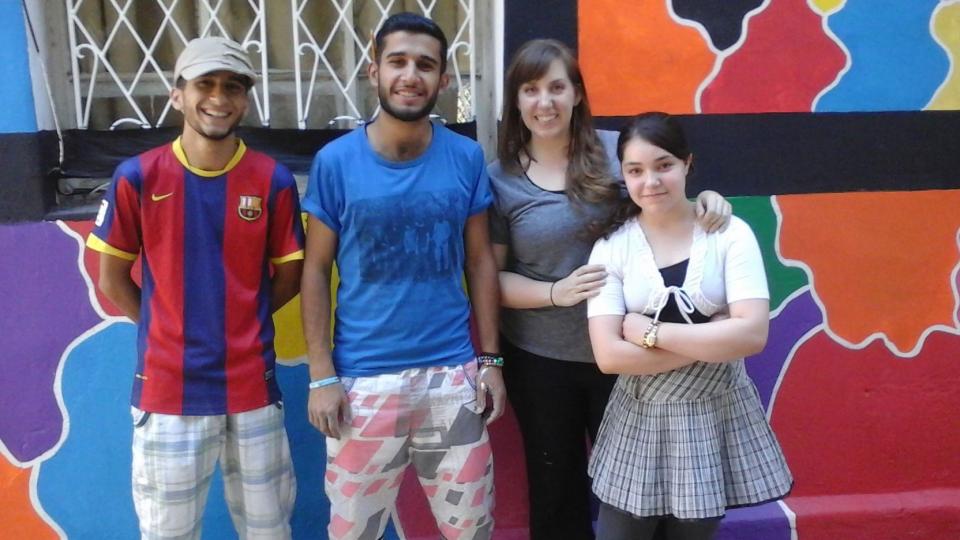 Alexandra Dawley (second from right) with teen volunteers in front of the mural they painted on the community center. The supplies for the mural and other art projects were funded Rotary clubs in Vancouver Island, British Columbia, Canada.
Photo Credit: Courtesy of Alexandra Dawley When asked to describe his future, a refugee child from Iraq draws a picture of himself as a doctor. Another child uses colorful paints to depict happy memories of his former life in Iraq. Both children are among the 200,000 displaced Iraqis who now live in Jordan, a country that has become a safe haven for those fleeing oppression and war in neighboring Palestine, Syria, and Iraq.
Alexandra Dawley, a former volunteer with the Collateral Repair Project in Jordan, emphasizes how something as simple as an art project can help young refugees adjust to their new lives in a foreign country. With the support of Rotary clubs across Vancouver Island in British Columbia, Canada, and the help of teenage refugee volunteers in Jordan, Dawley implemented a children's art program to give refugee children a creative outlet for their dreams and ambitions.
Dawley cites as her inspiration the 10 life skills deemed essential by UNICEF and WHO for those coping with forced displacement. Those skills include problem solving, creative thinking, effective communication, empathy, and the ability to cope with emotions and stress.
"I am not a certified art therapist," she says, "but I recognized art as a way to make healing and life-skills development accessible and fun for kids."
Dawley, a Rotary global grant scholar from Nanaimo, Vancouver Island, recently received a master's degree in social development from the University of Sussex in Brighton, England. Her three months of volunteer work in Amman, Jordan, in 2014 counted toward her graduate research.
Dawley says the art program not only helped kids be kids but it also enabled the teenagers who helped her implement the classes, giving them the chance to develop and practice their leadership skills. "These teenagers genuinely care about their community, and developed important mentorship roles with children who need it," she says.
The teens also helped brighten up the community center in Jordan where the Collateral Repair Project hosts community-building activities and educational programs for refugees. As part of the art program, Dawley organized a mural project for the teens, who painted a wall at the center in vibrant colors.
"Due to the generous Rotarian donations, I was able to leave a wealth of supplies for the teens to use as they continue running the art program," she says. "The mural on the side of the center was a source of stress relief and a source of pride for the teens who designed it and the children who volunteered with us as we painted it."
Founded in 2006, the Collateral Repair Project is a nonprofit organization that helps refugees create a sense of community in Jordan. It runs an emergency assistance program to ensure that basic nutrition and housing needs are met, and through the community center, offers a variety of programs and learning opportunities including computer courses, English classes, and a women's craft co-op.
"The Collateral Repair Project is working hard to overcome sectarian tensions, building community ... and promoting life skills that can help children and youth cope with the challenges they face," Dawley says.
Dawley traces her interest in helping refugees to her time as a Rotary Youth Exchange student in Budapest, Hungary. While there, she volunteered at a local orphanage, using art and drama to connect with children. She also helped to lead an English class for American Corner, a nonprofit organization that promotes the development of English-language skills. "The [Youth Exchange] program sparked my interest in global issues and shifted my life trajectory," she says.
Barbara Cameron, scholarship chair for District 5020, which includes part of British Columbia, served as Dawley's mentor throughout her scholarship application process and volunteer work in Jordan. A member of the Rotary Club of Saanich, Cameron also helped Dawley organize presentations to Rotary clubs throughout Vancouver Island about her work with refugees. In the process, Dawley raised more than $2,000 for her art program.
Having completed her studies in England, Dawley is back in Canada, planning to work with refugees and recent immigrants while continuing to raise awareness and support for the Collateral Repair Project. She hopes someday to return to the Middle East and pursue a doctorate in forced migration studies. And ultimately, she wants to help formulate policies to support holistic development programs that expand the capabilities of refugees, rather than leave them reliant on government aid.
"Much of our world is in conflict, many of our international communities are displaced, and people need policy that allows them to voice their needs and reach their potential," Dawley says. "This is what drives me and this is what I'll work toward."
By Daniela Garcia
Rotary News 17-Oct-2014 |
||||||
Partners build community center and health clinic in impoverished Mexico neighborhood.jpg) Registered nurse and midwife Sylvia Flores (right) helps run the maternal health program at the Tepehua Community Center.
Photo Credit: Courtesy of Moonyeen King Four years ago, Rotary member Moonyeen King decided to take action to help residents of the impoverished neighborhood of Tepehua, located in Chapala, Jalisco, Mexico, who faced daily struggles with crime, malnutrition, and limited access to health care. King, together with Susan Netherton and Gin Pelzl, fellow members of the Rotary Club of Ajijic, turned an abandoned building into the Tepehua Community Center.
For its first year, the center provided a soup kitchen every Friday to feed over 200 women and children. That enabled King and her fellow Rotary members to gain the trust of the community, and before long, they had each family register and communicate its individual needs. Through that community feedback, the need for a women's health clinic became apparent.
In early 2012, in a trial conducted by the Tepehua center's board, 67 women were tested for sexually transmitted diseases (STDs) and other gynecological issues. Only five had normal results. King, who heads the Tepehua Community Center Board, estimated that 1,200 local women would benefit from a health care program addressing STDs, family planning, and cancer.
The project gained international support when members of the Rotary Club of Lincoln, California, heard about it through a former member who had moved to Mexico and joined the Ajijic club. The clubs partnered to receive a Rotary Foundation grant to establish a comprehensive maternal health program at the center.
"Through the maternal health program, women and girls are taking charge of their own destiny," King says. "Maternal health and family planning will be passed to the next generation."
Paul Radcliffe, a member of the Rotary Club of Lincoln, says the program results have been remarkable. In the first 15 months, 1,000 Pap smears and breast exams were conducted and 800 women attended family planning and counseling sessions.
"If women are healthy, able to plan their pregnancies and obtain good preventive health care, lives will be saved, a cycle of poverty can be broken, and children will be raised by their mothers instead of [those mothers] being lost to disease," Radcliffe says.
He adds that the success of the clinic resulted not only from word of mouth about positive experiences, but also from the fact that community members had been educated and helped to address cultural taboos surrounding sexual health. Encouraged by the program's success, the two clubs are looking to expand to surrounding communities in the Lake Chapala region through a mobile clinic.
"While mostly illiterate and uneducated, the women are learning quickly as they see the improvement of just a few," Radcliffe says.
In addition to the clinic, the Tepehua Community Center improves the quality of life for area families by providing education and counseling. Current class offerings include sewing, arts and crafts, computer skills, and English. The center also offers auxiliary nursing classes and has certified dozens of women as auxiliary nurses. A nursery and a playground were built to provide child care while the local women participate in the center's activities.
Says the Ajijic club's King: "This is probably one of the most rewarding projects I have ever experienced. Once you receive the trust of people, they are willing to learn, to grow, and take advantage of opportunity."
By Daniela Garcia
Rotary News 10-Oct-2014 |
||||||
The White House honors Rotary women for their humanitarian service Tina Tchen, assistant to President Barack Obama, and chief of staff to First Lady Michelle Obama, thanks the Rotary honorees for their humanitarian work. Photo Credit: Rotary International/Alyce Henson Senior Rotary leaders gathered Tuesday at the White House to honor 10 women for their service projects, an event attended by members of U.S. President Barack Obama's senior staff. The Rotary members presented their projects, in the hopes of creating new inroads for government partnerships and support. "This is recognition of the great work that they do but also serves as a great vehicle to inspire others to do similar kinds of things," said Rotary General Secretary John Hewko. "One of the things we're doing a better job of is sharing our story to the non-Rotary world." The honorees were selected by Rotary senior leaders and endorsed by the White House from clubs around the U.S. but their projects touch lives across the globe. Carolyn Jones, of Anchorage, Alaska, has served numerous times as a Rotary volunteer in Russia, three of them as a preschool teacher for developmentally delayed children in orphanages. During her presentation she lamented hearing about a child sold for a bottle of vodka, and vowed to use her honor as a stepping stone to save more lives. Jacqueline Parsons, a licensed professional counselor from San Antonio, Texas, works on projects in her community and abroad, including the FLAG (Fitness, Literacy, Attendance, and Grades) program, which provides incentives to students to go to school, including bikes, sports equipment, and other items. Ginger Vann from Baker, Louisiana, coordinates tutoring for at-risk students. With the help of her club, she renovated an uninhabitable school building, and worked with tutors to reach 50 students each day. She's also passionate about workforce development in Baker, where well-paying craftsman jobs often go unfilled. "We just don't have enough craft workers, people who are certified to do the jobs," she said. Michelle Candland, from San Diego, California, works with Monarch High, an alternative school designed for homeless children. "Right now there are over 1.3 million homeless kids on the street in America. That's more than there are Rotarians around the world," said Candland. "Twenty thousand of those kids are in San Diego alone." "How can a child focus on school if their tummies are growling, their shoes don't fit, and they don't even know where they are going to be sleeping the next day?" she asked. "It takes an entire community to work together to solve this problem." The other honorees Tuesday were Bernadette Blackstock, Marion Bunch, Carol Butler, Elizabeth Usovicz, Deepa Willingham, and Jane Winning. Winning, a registered nurse from Chowchilla, California, has provided immunizations and health exams to more than 2,500 people in need across Mexico, Honduras, Ecuador, and Guatemala. She's also worked with Rotaplast International to provide free cleft lip and palate reconstructive surgery to those who cannot afford it. "A gentleman was 65 years old and he said, 'I can kiss my wife for the first time,'" Winning said of the man post-surgery. "Those are incredible experiences you don't get to share every day." Butler, also from Anchorage, highlighted two projects. The first is a statewide suicide prevention plan. According to Butler, Alaska has the highest rate of suicide per capita in the nation. The public awareness plan educates Rotary members and Alaska residents to recognize the warning signs of someone in crisis. She also talked about her club's partnership with the Alaska Mission of Mercy, a collective of dentists, staff, and other volunteers who provide free dental services throughout the state. "Dental care is a gateway to good health," says Butler. "There's an increasing problem nationwide with people seeking dental care in emergency rooms." Usovicz, of Shawnee Mission, Kansas, has worked on service projects in Missouri as well as abroad. In Malawi, she helped to reduce the rate of malaria deaths by 65 percent to 70 percent in less than a year by supplying the community with mosquito bed nets. Willingham, of Solvang, California, is the founder and chair of Promise of Assurance to Children Everywhere (PACE), an organization that educates girls and their mothers, and works to prevent child trafficking and early marriage in India. Bunch, of Atlanta, Georgia, is the CEO of Rotarians for Family Health and AIDS Prevention. She has received numerous awards on behalf of her work for AIDS, and considers herself a mom who represents the face of AIDS because she started her work after losing her son to the disease in 1994. "Because of that one single tragedy, my life's journey changed dramatically from a very engaged business woman to a warrior on AIDS and advocate of human rights," Bunch said. As a result of her leadership, in April some 343,660 people received health care, medical checkups, and counseling from 8,150 Rotary volunteers during Rotary Family Health Days across Ghana, Nigeria, Uganda, and South Africa. Like Bunch, Blackstock, of Franklinville, New Jersey, has turned her love of service into a career, launching the People for People Foundation, which assists families struggling with financial hardships. To date, the foundation has helped some 10,000 families afford food, clothing, rent, utilities, medications, and other life necessities. "Our combined mission today is not only to provide small grants but to serve as advocates for our families and provide life-skill training and mentoring and case management where needed." The event in D.C. was also an opportunity for the honorees to share ideas with each other. "There are some resources still available to expand and improve projects even amongst the women here," Jones said. "Listening to the ladies, I was in awe," said Vann. "I was thinking what if all 10 of us got together on one project. That would be amazing. We're talking and it's exciting to be a part of that conversation." By Adam Ross Rotary News 8-Oct-2014 |
||||||
GIVING VOICE TO CHILDREN WHO MIGHT OTHERWISE LIVE IN A SILENT WORLD
Editor"s Note - The Peace Avenue Rotary Club in Ulaanbaatar, Mongolia is Capital City Sunrise's partner in a Rotary Global Grant which is bringing almost $800,000 worth of Maternal and Pediatric medical equipment and supplies to five rural medical clinics in Mongolia. The shipment is due to arrive the second week of November 2014. Your editor will be on hand for its arrival.
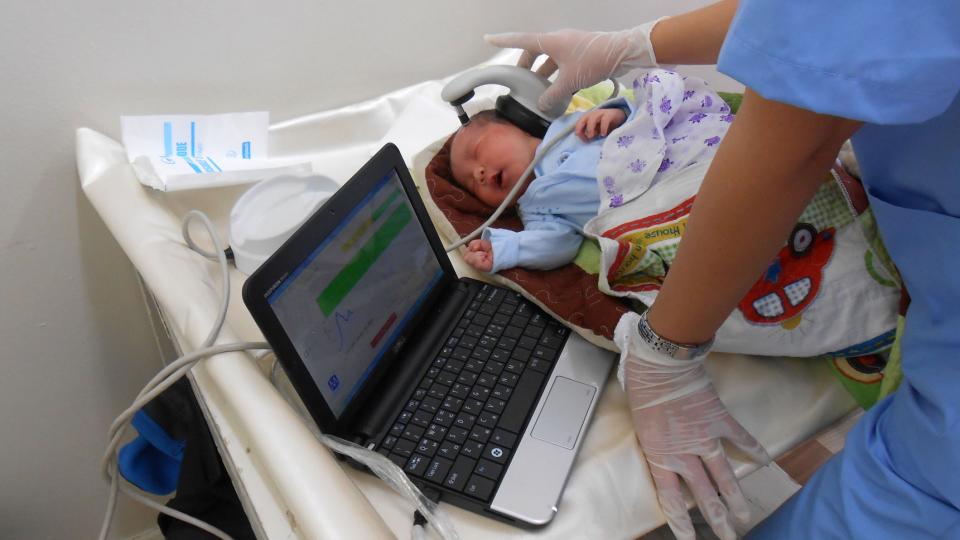 The Rotary Club of Ulaanbaatar Peace Avenue, Mongolia, has raised more than $10,000 to outfit two Mongolian hospitals with screening devices to test newborns’ hearing. Photo Credit: Courtesy of Enkhtur Sodnomtseren
As part of a large-scale community project, the Rotary Club of Ulaanbaatar Peace Avenue, Mongolia, is equipping hospitals with screening devices to test newborns’ hearing. Batjargal, an ear, nose, and throat physician, says screening to detect hearing loss is not routine nationwide in Mongolia. She estimates that more than 200 hundred children in the country lose their hearing each year. But Batjargal believes this is preventable. Early screenings are crucial for infants because, left undiagnosed, hearing impairment can impede children’s development in speech, language, and cognition. “If we can detect hearing loss before babies turn six months old, we can fit them with hearing aids or cochlear implants and give them good early intervention programs that will allow them to communicate normally at school and with friends,” says Batjargal, who noted that only one hospital in Mongolia conducted screenings before club members launched the project in 2013. “Our club is helping prevent hearing-impaired babies from growing up in a world of isolation.” The club has held two fundraisers since January, including a performance of the ballet “Swan Lake.” They raised more than $10,000 -- enough to outfit two hospitals with screening devices. The Ministry of Health worked with the club on both events, which indicates the issue’s importance for Mongolia, says Enkhtur Sodnomtseren, chair of the club’s service committee. “Hearing disability has been largely ignored by the government, as it is seen as low-priority in the overall list of pressing health issues,” says Sodnomtseren. “It’s also been under the radar of most charity and grant organizations. We as a club want to fill this gap. We can see that with a little extra effort and time, we can dramatically improve the quality of life, for not only the affected babies, but their families as well.” Sodnomtseren says that the club, with the cooperation of the Ministry of Health, can expand the project. It hopes to raise enough funds to supply every maternity ward with screening devices and training over the next few years. More than 78,000 infants will be tested each year, he estimates. Batjargal, who plans to train other medical practitioners in how to use the screening devices, says this project exemplifies the positive change Rotary can make. “Instead of waiting for the government to address this problem, our Rotary club has decided to solve it,” says Batjargal. “We’re making a major contribution to society. This is simply what we do.” By Ryan Hyland Rotary News 4-SEP-2014 |
||||||
Empowering Young Leaders The Rotary Club of Fort Smith, Arkansas, USA, sponsored a float in a 1924 Loyalty Day parade.
The history of Rotary's work with youth dates back to the 1920s, when many clubs took part in an international event known as Boys' Week.
The first Boys' Week was held in New York City in May 1920 by the Rotary Club of New York and other local organizations. The event was part of an effort to promote youth development in the areas of education, citizenship, health and hygiene, and vocation.
New York club members reported on the success of Boys' Week at the 1920 Rotary convention, hoping that it would become part of the Boys' Work program, which Rotary had established several years earlier with the creation of the Committee on Work among the Boys (later known as the Boys' Work Committee). The program encouraged Rotary clubs to work with other community initiatives and organizations to counter juvenile delinquency, truancy, and poor physical health, with the goal of developing good citizens.
Boys' Week events quickly spread throughout the world. By the mid-1920s, they were being held in almost 600 locations across 25 countries. In 1928, the number of participating cities and towns had grown to about 3,000.
The target audience also grew rapidly. Girls rode on the float sponsored by the Rotary Club of Vicksburg, Mississippi, in a 1924 Loyalty Day parade held in conjunction with Boys' Week.
By the late 1920s, the United States had established a National Boys' Week Committee, in which Rotary participated. Rotary clubs were encouraged to support their local Boys' Week events as a way to achieve the goals of the Boys' Work program.
In 1934, Boys' Week became known as Youth Week, and in 1936, Boys and Girls' Week.
The RI Board of Directors voted to discontinue Rotary's official sponsorship of Boys and Girls' Week in 1956 in order to support new youth efforts, but it encouraged clubs to continue participating in local youth service initiatives.
Rotary went on to create other programs for young people in the following decades, including Interact, Rotaract, and Rotary Youth Exchange.
In 2010, Youth Service became Rotary's fifth Avenue of Service. Rotarians recognize the positive change that young people implement through leadership development activities, community and international service projects, and exchange programs that enrich and foster world peace and cultural understanding.
|
||||||
Wise Words from Mark TwainWhen you fish for love, bait with your heart, not your brain. |
||||||
ANTI-VACCINE MOVEMENT MAY HAVE GLOBAL REPERCUSSIONS
Polio vacination in Maiduguri, Nigeria. Photo Credit: Diego Ibarra Sánchez Supporters of the anti-vaccine movement question the safety, efficacy and necessity of the very medicines that have so greatly reduced our children's risk of catching a host of once-common but potentially very serious infectious diseases, such as mumps, measles and whooping cough. And then there's polio, the disabling, sometimes fatal virus that was every American parent's worst nightmare until effective vaccines were developed in the 1950s — and which still infects children in the developing world. Some who oppose vaccines are well-meaning parents who have come to believe — wrongly in the view of mainstream medical science — that the medicines are to blame for their own children's health problems, especially in the case of autism. What they don't realize is that refusing vaccinations jeopardizes not only their own children's health and that of every unvaccinated child in the community, it also undermines a core principle of global health: that vaccines are essential to safeguard all children against disease. The anti-vaccine movement is quick to publicly criticize anyone it deems to be a shill for the pharmaceutical industry. Which brings us to "Invisible Threat," a documentary produced by a group of broadcast journalism students at Carlsbad High School. The film takes an unbiased look at the debate over vaccine safety. It includes interviews with physicians; parents who believe vaccines are linked to autism; and parents who have lost children to vaccine-preventable diseases. After considering both sides and weighing the evidence, the students conclude that vaccines are safe, effective and tremendously important. What slight health risks vaccines may pose are vastly outweighed by the good they do. A no-strings-attached grant of $60,000 from several San Diego-area Rotary clubs in 2012 funded the project, and the sponsors are proud of the results. Unfortunately, controversy delayed the film's public release until last month, when it was posted online. Anti-vaccine groups say the film is propaganda for the vaccine industry. In a press release, one group cited the Rotary grant as evidence. Why? Because Rotary "receives large grants from the Bill & Melinda Gates Foundation, a major investor in vaccines." In truth, both Rotary and the Gates Foundation are "major investors" in improving children's health worldwide. Since 2007, Rotary's collaboration with the Gates Foundation has raised nearly $763 million, funds that Rotary dispenses as grants to the World Health Organization and UNICEF to fight polio worldwide. The oral polio vaccine is the primary weapon. As the students report, polio — now so close to eradication — is still only the proverbial plane ride away, placing every unvaccinated child at risk. Even kids in Southern California. In 1952, polio paralyzed a record 21,000 Americans, most of them children. Do we really want to relive that nightmare? Opposition to vaccines is not unfamiliar to Rotary and its partners in the Global Polio Eradication Initiative, which since 1988 has reduced the incidence of polio by more than 99 percent. It is true that misperceptions and rumors about the polio vaccine sometimes cause parents in developing countries to refuse immunization. Such challenges are anticipated and overcome. In recent months, however, religious extremists with political agendas — most notably in Pakistan and northern Nigeria — have gone far beyond fomenting fear and distrust. They have actually attacked polio vaccination workers, killing dozens. This is reported in "Invisible Threat." A concern now is that the noise generated by the anti-vaccine movement here will be heard by the extremists attacking health workers abroad. The last thing needed at this critical juncture of the polio eradication effort is for a violent fear-monger to point to a news headline and tell families, "Look, even American parents fear the vaccines." Such a scenario would only further jeopardize the health of children denied access to lifesaving vaccines, while increasing the danger faced by the brave health workers dedicated to protecting them. It is completely understandable that parents of children with unexplained health problems are desperate for answers. But as "Invisible Threat" reports, the weight of medical science comes down squarely on the side of vaccines. To quote astrophysicist Neil deGrasse Tyson, "The good thing about science is that it's true whether or not you believe in it." This op-ed first appeared in the San Diego Union-Tribune By John Hewko Rotary News 12-SEP-2014 |
||||||
Rotarians Outfit Neonatal Clinics in MongoliaBy PDG Tony Gilmore, District 7870
Rotary Ambassadorial Scholar Batuka Baterdene, from Mongolia, had a dream when he came to the United States in 2012 to pursue a degree in city planning at the State University of New York (SUNY) Albany. It was his goal to equip five rural clinics in his home country with the medical equipment needed to provide care to expectant mothers and their infants in villages that were sometimes hundreds of miles from the nearest hospital. At Northeast LINK, a Rotary forum held annually in Massachusetts for Rotary scholars and outgoing Group Study Exchange teams, Batuka made a presentation that demonstrated the desperate need of the clinics. His presentation was enhanced by a series of compelling videos taken by two expat members of Mongolia’s Ulaanbaatar Rotary Club. Batuka's presentation struck a chord with me. I told him that I'd like to help, but it would have to be after my Governor year ended in June 2013. With the help of the videos, we put together a presentation and took it to as many Rotary clubs as possible through the summer and into the fall and winter of 2013-14. A governor classmate got involved. Her District 7780 had sent a medical team to visit Mongolia via a Group Study Exchange to District 3450 several years previously. And as luck would have it, the leader of that GSE team, Dr. Burt Dibble, was now president of his Exeter, NH, club and in a position to help.
Batuka returned to Mongolia that winter, and we communicated via email and social media. Batuka found a host club, Ulaanbaatar Peace Avenue Club, and every member of that club contributed financially to the project. They secured the necessary Memos of Understanding from the government to ensure that the donation would not be taxed; from the Medical University to ensure appropriate training at each clinic; and from the clinics themselves, to ensure that they understood the equipment was only to be used for its intended purpose. Meanwhile the equipment list was being refined. High-tech equipment needed included solid-state sonogram units, fetal heart monitors and the incubators. Particular attention was paid to the local power sources; power conditioning equipment was used to protect the sensitive equipment. LED lighting avoids the problem of burned-out bulbs and the sterilizers are non-electrified "Pot Sterilizers" - meaning any heat source will do. Almost all of the durable equipment is mechanical to eliminate specialized repair should it be damaged or broken. In all, IMEC (International Medical Equipment Consortium), headquartered in Andover, MA, provided almost $800,000 in equipment and supplies to make up the five suites. The Global Grant for $65,000 - primarily the cost to ship a 40-foot container of medical equipment 12,000 miles plus some training and transportation costs in Mongolia was approved by The Rotary Foundation in July, and at that point, IMEC began to assemble the equipment. Once assembled and loaded, the equipment will take approximately 72 days to reach Ulaanbaatar. Our biggest challenge may well prove to be the weather! In past years it has snowed in August -- as we write this we're all hoping that the first snows will be late. The equipment is set to arrive in November, and when it does, a representative of each of the clinics will come in for a one-day training session. Some may have to travel as much as 1700 miles to reach Ulaanbaatar. After a re- fresher course, each will accompany their equipment back to their clinic. I plan to be there along with other representatives of my D-7870 (Vermont and New Hampshire), and former GSE team leader Burt Dibble from D-7780 is also hoping to make the trip. It started as an impossible dream. Outfitting five neonatal clinics in remote areas half a world away could never be easy. But the Rotary world is a connected place - and with the help of many Rotarians in New England and Mongolia, the nearly impossible is now taking place. |
||||||
Rotaract award winners celebrated for their life-changing projects
The Rotaract Club of H.R. College meets with the villager leaders of Kumbharwadi to discuss their clean water project. The village of Kumbharwadi is one of many in a drought-prone region near Mumbai, India. Until recently, its residents had access to only one well with drinkable water. During the summer months, the well runs dry, and the women and girls of the village travel three to four hours a day to search for water. Enter Project Boond, undertaken by a Rotaract club, a Rotary club, and the Watershed Organization Trust to provide clean drinking water and sanitation facilities in Kumbharwadi. Nikunj Pherwani, 2013-14 president of the Rotaract Club of Hassaram Rijhumal College of Commerce and Economics in Mumbai, India, says that droughts are a serious problem in India and often exacerbate malnutrition and illness in remote regions. "Our major aim through this project was to provide clean water for drinking and domestic purposes to the drought-affected areas of Maharashtra," he says. "These villages not only suffer due to shortage of water but also due to several waterborne diseases." Pherwani's Rotaract club teamed up with the Rotary Club of Bombay, Maharashtra, India, to raise funds for the project through donations and events, including a comedic play and black tie dinner. The project has over $13,000 in its coffers, and the clubs are using the funds to dig wells and install toilets. Pherwani's club also worked with the Rotary Club of Bombay to choose a local nonprofit organization to partner with. They found the Watershed Organization Trust, a nonprofit dedicated to ending water scarcity and poverty in rural India. After meeting with officials and signing an MOU, the Watershed Organization Trust helped them choose a village, and the Rotaractors traveled there to speak to locals about the credibility of their partners. Pherwani says they continue to visit Kumbharwadi every two months to check in with the village and see if additional resources are needed. Village leaders have been trained to maintain the new facilities. In addition to providing clean water and sanitation facilities, Pherwani says they also aim to provide villagers with chlorine tablets and a workshop on basic health and hygiene. Among the seven Rotaract projects that were honored at this year's Rotaract Preconvention, Project Boond was chosen as the international winner of the Recognition of Outstanding Rotaract Project. Two members of the Rotaract Club of Hassaram Rijhumal College of Commerce and Economics attended the preconvention on 30 May in Sydney, Australia. They traveled there using miles that Rotary won through United Airlines' 10 Million Charity Miles giveaway. They, along with representatives from other winning clubs, presented their projects and received their awards. Regional winners In addition to the international award-winning project, top Rotaract club projects from six regions were recognized at the Rotaract Preconvention. Asia Pacific: The Rotaract Club of National University of Singapore (District 3310), for Waves of Hope Swimathon 2013. Club members volunteering at Pathfinder School were impressed by its work helping children with autism develop social and vocational skills. To support services for low-income students, the club organized a swimathon in which 474 participants swam laps and raised over $20,000. South Asia: The Rotaract Club of the Caduceus (District 3140), for EMcounter Kumbh -- Mapping the Mela. Club members, most of them medical doctors, volunteered to provide disease surveillance during the Maha Kumbh Mela, a gathering of tens of millions of Hindu pilgrims. They worked with local organizations to install disease surveillance software in clinics and sample water sources to prevent disease outbreaks. Europe, Middle East, and Central Asia: The Rotaract Club of Casamassima-Bari Alto (District 2120), for DREAMbox. Rotaract club members from every district in Italy came together to provide 1,000 DREAMboxes, filled with books, toys, and art supplies, for children being treated for cancer at a local hospital. They are also raising funds to modernize a room in the hospital's pediatric oncology wing. Sub-Saharan Africa: Rotaract Club of Nairobi Central (District 9212), for A Girl, a K, a Year. Rotaractors raised funds to provide sanitary napkins to 2,936 girls who would otherwise miss school during menstruation because they lack supplies. They also worked with local and international Rotary clubs to raise $22,000 for the project, which included a book drive and mentorship program. Latin America: Rotaract Club of Carpe Diem Catolica (District 4455), for Involucrados: An Initiative for Communities at Risk. Club members organized training workshops on literacy, budgeting, and entrepreneurship for parents of local school students. They also supported the school by holding arts and athletic activities and improving classrooms and restroom facilities. United States, Canada, and Caribbean: Rotaract Club of Boston (District 7930), for Guatemala Water Filters Project. Rotaractors worked with a local nonprofits and craftsmen to provide people living in the highlands of Guatemala with water filters, hospital supplies, beds, stoves, and toiletries. With the help of Rotary clubs in the U.S. and Guatemala, they raised over $7,000 for the project. By Daniela Garcia |
||||||
Young writers get published with the help of Rotary
Two winning story writers in St. John, U.S. Virgin Islands, proudly receive their autographed copies of “The Butterfly StoryBook 2014." In Jamaica, 11-year-old Jordan Allwood reads his classmates a story about a lonely puppy who finds a new family. The puppy grows into a big dog, enjoys walks along the beach, and survives a frightening autumn day when he is caught in a trap before being rescued by his family. Jordan's story is one of hundreds that were written by children ages 7-11 for a writing contest organized by the Rotary E-Club of the Caribbean 7020 and supported by clubs in 10 Caribbean nations. The best stories, including Jordan's, were published in "The Butterfly StoryBook," produced by the club and sold through Amazon.com. Rotary members and others are encouraged to donate copies to school libraries. Proceeds are used to support other literacy efforts. In July, Rotary International and the International Reading Association (IRA) selected the Butterfly StoryBook project and a summer mobile library project run by the Rotary Club of Ellensburg Morning, Washington, USA, to receive two $2,500 awards from the Pearson Foundation. The awards recognize projects in which Rotary clubs and local IRA-affiliated reading councils collaborate to strengthen literacy in local and international communities. Rotary and the IRA have been project partners since 2002. Diana White, a past district governor and member of the Rotary E-Club of the Caribbean 7020, says she got the idea for the story contest after a visit to the headquarters of Rotary International in Britain and Ireland (RIBI), which holds a number of well-publicized youth contests every year. White said a project that involved drafting rules and promoting a contest was perfect for the e-club. It turned to clubs throughout the district to solicit entries from local schools. In 2013, the contest's first year, 200 children contributed stories. This year, 300 young writers took part. Each club selects three local winners, who receive certificates. Then a panel of judges from the e-club chooses 10 stories from among all of those to include in "The Butterfly StoryBook." Each of those young authors receives $50 in books. "It's been a great shot in the arm for our club, which only just chartered last year," says White. "We tried to think of things we could do specifically that didn't require everyone getting together in one place. This project has been more successful than we could have imagined and has been a great source of pride for our members." This year, the e-club provided a free copy of the e-book to the Jamaica Reading Association, an IRA-affiliated council, which used it in its annual Reading Week in April. The association signed an agreement with the club to further promote the contest throughout the Caribbean. Rotary clubs in the U.S. Virgin Islands purchased 500 copies for the Summer Reading Challenge held there. Clubs have also purchased copies to donate to schools in Canada, Ethiopia, Haiti, India, and the United Kingdom. The contest rules required each story to have a Caribbean theme, because the e-club wanted to share the culture of the region while encouraging creative writing. University students in Haiti translated the stories into French and Haitian Creole free of charge. The books are also available in English and will soon be available in Spanish. "I'm really excited how this has all turned out," says White. "We still have a long way we can go with this project. There's no limit how far these books can be promoted through the Internet." The Rotary Club of Ellensburg Morning and the IRA council based at Central Washington University collaborated on the second project to receive a Pearson Foundation award. Mandi Laurent, a member of the council, got the idea for a bookmobile, or mobile library, after attending a conference on summer reading loss. Volunteers from the Rotary club, the IRA council, the local Rotaract club, and the Ellensburg Education Foundation solicit books from a variety of sources, sort them by grade level, and accompany the bookmobile, a converted delivery truck, to its stops in low-income neighborhoods every Tuesday in July. This year, the education foundation raised $10,000 to purchase the truck it had been renting. "We get a lot of smiles," says Laurent, who became a member of the Rotary club as a result of the project. "The children in these communities tend to be underserved, and many of them have very few books in their homes." Many of the volunteers are educators, and they teach as they read books to the children. Laurent says she's also seen older children reading to their younger siblings. "This past week, I went along with a third-grade teacher, and she said afterward how glad she was that she took part," Laurent says. "It's an eye-opening experience every time you go. By Arnold R. Grahl |
||||||
Clubs breaking down barriers to clean water in Ghana
|
||||||
Capital City Sunrise 100% Paul Harris Fellow club
From L to R Roger Howells, President Tom Timpone, Foundation Chair Tony Gilmore, John David Eggleton III, Jim Spain |
||||||
ShelterBox tents awaiting Iraqi families fleeing Sinjar Mountain
As the United Nations (UN) declares a "Level 3 Emergency" for Iraq, ShelterBox partners with both the UN and the Agency for Technical Cooperation and Development (ACTED) in an attempt to deliver vital shelter to families previously stranded on Sinjar Mountain. Thousands of people, mostly religious minorities, were left stranded atop Sinjar Mountain after being driven from their homes by the advance of Islamic state militants in the region. The rapid advance of militant fighters has thrown Iraq into crisis and has now led to overseas involvement in the form of aid interventions. The UN estimates that 1.2 million Iraqis have now been internally displaced by the crisis. ShelterBox has a wealth of experience in humanitarian response in the region as we've been responding to the Syrian crisis since early 2012. The UN has issued a statement explaining: "Given the scale and complexity of the current humanitarian catastrophe, this measure [declaring a Level 3 Emergency] will facilitate mobilization of additional resources in goods, funds and assets to ensure a more effective response to the humanitarian needs of populations affected by forced displacements." The severity of this crisis is not to be overlooked as today’s UN statement goes on to clarify that a Level 3 Emergency "represents the highest level of humanitarian crisis." In a week that has seen both the UK and US completing aid drops of food and water into the region, the latest announcement from the UN comes amidst growing concerns for what lies ahead for the families stranded atop Sinjar Mountain. Concern is also mounting for those families who have, in recent nights, fled the mountain under the cover of darkness and are now in search of shelter. ShelterBox currently has prepositioned stock in Iraq and will be working with UNHCR and ACTED to move 500 UN specification tents to Duhok, near the border with Syria, to be used to establish a camp to provide shelter for internally displaced people (IDP’s) such as those fleeing Sinjar Mountain. Although daytime temperatures in the region are currently high, the ShelterBox operations team is currently making provisions to supplement the current stock of shelter in Iraq with winterization kits. This is more of a precautionary measure should the need for shelter sadly extend into the colder winter months. |
||||||
Rotary Scholar’s unique ability in bringing clubs together Rotary Global Grant Scholar Isis E. Mejias Carpio with children in Kenya during her work with Engineers Without Borders. Photo Credit: Courtesy Isis E. Mejias Carpio In a municipal hospital in Cubatão, Brazil, a new mammography machine funded by a Rotary global grant provides breast cancer screening to women who previously had to wait for weeks before they could get in for a checkup with a doctor. A Rotary global grant also funded training for medical staff and cancer awareness education for people in the community. Isis Mejias Carpio of Houston, studying at the University of São Paulo on a Rotary scholarship, played an instrumental role in bringing together Rotary clubs in two countries to make the grant possible. Members of the Rotary Club of Cubatão, who hosted Mejias during her scholarship, had already identified the hospital's need for expanded health services for women. Visiting the clinic herself, Mejias saw an opportunity to collaborate with her contacts back home in the Rotary Club of Humble Intercontinental, north of Houston. "Building a bridge between a host and international sponsor on any grant project is always one of the most important parts," Mejias says. "It was very rewarding to know that my little participation evolved into a project like that." The ink had barely dried on the final report for the mammography grant when Rotary member Bill Davis, Mejias' principal mentor in the Humble club, approached her with another health-related project. Baylor University in Texas had partnered with the government of Botswana to support the Botswana-Baylor Children's Center of Excellence, which provides free, state-of-the-art pediatric care, treatment, and support to HIV-positive children and their families in Botswana. The growing number of adolescents with HIV has outpaced the center's resources. So Davis, who had previous contacts with Baylor, was interested in pursuing a global grant to fund a separate adolescent center on an adjacent plot of land. The center would provide a safe place for kids to receive life skills education, health information, and training to deal with the stigma of HIV and discrimination they may face. To get the project off the ground, Davis says he raised money in his district and called Mejias to see if her friends in Brazil would want to help. The HIV project grant has been approved by the Foundation. It's just the latest good to come from Mejias' first meeting with Davis in 2011. A volunteer with the Central Houston chapter of Engineers Without Borders (EWB) at the time, Mejias was looking for help on a clean water project for a hospital in Kenya and had heard that Davis and his club had a history of supporting EWB projects. So she approached him. "I liked what she had proposed," says Davis, who recalls Mejias had already been to Kenya twice to see the project, which also involved a retired doctor from San Diego whose wife is a Rotary member. "I thought it's a pretty secure deal, so our club became the international sponsor and got a couple other clubs in." "Talking to Bill we made a friendship through the months of developing this grant," Mejias says. She told him she was working with a team at the University of Houston developing a bio-filter to remove metals from water. Davis told her of a Rotary scholarship for graduate students that she might be interested in. But the deadline was in two weeks. "I knew little about the scholarship, but I researched it and thought it would be a perfect opportunity to understand more about water treatment." Mejias met the deadline and was selected for the scholarship, but she didn't want to abandon her work. So with the help of her academic sponsors, she forged an agreement between the University of Houston and the University of São Paulo to collaborate on the study and work toward a dual PhD. About her Rotary scholarship, Mejias says, it made her realize "I can have a huge impact on changing people's lives. I was able to find my passion in life and determine I want to create a road for future projects." Mejias was also recently selected by The Rotary Foundation to lead a team of engineers who will be traveling to Uganda to study the feasibility of water projects. By Arnold R. Grahl |
||||||
Capital City Sunrise 2014 Scholars
From L to R : Padre Van Patton, Elizabeth Williams, Brittany Fisher, President Tom Timpone, Kerry-Lee Fedion, Caroline Andy, Kathy Daniels |
||||||
Capital City Rotary Club awards 5 scholarshipsCapital City Sunrise Rotary club announces five Scholarship awards for 2014.
|
||||||
Fully funded Mongolian Global Grant approved by RI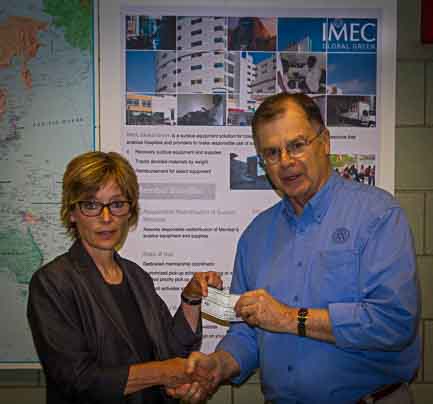 maternal and pediatric medical suites to be shipped to clinics in Mongolia.
Batuka traveled back to Mongolia in December. We continued to communicate using Skype, email, text and Facetime. Batuka found us a club partner at Ulaanbaatar Peace Avenue. Every member gave to the project. They worked through the Ulaanbaatar club to secure the necessary Memos of Understanding from the government saying that this donation would not be taxed; from the Medical University saying that they would provide training for a representative at each clinic; and from the clinics themselves, assuring that they understood the equipment was only to be used for its intended purpose. Meanwhile the equipment list was being refined to fit the environment. The only high-tech equipment items are the sonograms (solid state - two laptop sized units), the infant fetal heart monitors and, to a lesser extent, the incubators. Particular attention is being paid to the local power sources; power conditioning equipment is used to protect the sensitive equipment. LED lighting gets around the problem of burned-out bulbs and the sterilizers are non-electrified "Pot Sterilizers" - any heat source will do. Almost all of the durable equipment is mechanical to eliminate specialized repair should it be damaged or broken. IMEC (International Medical Equipment Consortium) will have put together almost $800,000 in equipment and supplies in the five suites that will be shipped. The biggest challenge will be the weather and delivery time. IMEC will take some time to assemble all the hundreds of pieces that make up the suites. Shipping in a 40-foot container to Ulaanbaatar will take a minimum of 72 days. In past years it has snowed in August - we're all hoping that the first snow is late. When the equipment arrives in UB, a representative of each of the clinics will be brought in for a one-day training session. Some may have to travel as much as 1700 miles. After a refresher course on the equipment (all medical professionals are trained at the university in UB), each will accompany their equipment back to their clinic. There are lots of moving pieces to a grant like this, but with the help of dedicated and engaged Rotarians, it gets done. Tony Gilmore, PDG
|
||||||
Rick Burns’ thoughtful approach to Iraq and Afghanistan One of 15 women participating in the Goats for Afghan Families project organized by Karadah Project International. Humanitarian Rick Burns, a retired civil affairs officer in the U.S. Army, has been helping people in the war-torn countries of Afghanistan and Iraq since 2003. He's seen a lot of good, but he's also seen what happens when good intentions go awry. Take the fertile grounds of Arghandab River Valley in Afghanistan, for example. Burns recalls an initiative to help fruit exporters become profitable again after the war. Cold storage facilities were built, but because no one considered the country's spotty electricity, the facilities ended up being too expensive to maintain. "We really want to make the world a better place," says Burns, "but if we don't consider the outcomes of these projects, we can cause more damage than good." He's seen similar failings at vocational training centers, where the unskilled and the unemployed receive training but not jobs. Then there are wells that fall into disrepair because no one planned for ongoing maintenance. Watching all this good energy and hard work go to waste is one reason Burns started his nonprofit, Karadah Project International. "I'd been whining and complaining for so long, I thought that it's time I do something," says Burns, who is a member of the Rotary Club of Atlantic, Iowa, in the U.S. The organization helps communities in Afghanistan and Iraq create international partnerships to help solve such pressing problems as hunger, poverty, and disease. Smart partnerships Burns is a big believer in partnerships. He says more gets accomplished when organizations are connected. So last March he arranged a conference in his hometown of Elk Horn, Iowa, and invited representatives from 30 nonprofits working in Afghanistan and Iraq to share their knowledge and resources. "Small nonprofits pop up in response to a need they feel passionate about," says Burns. "But we can do so much more if we all work together." He also approached his Rotary club, which donated $1,000 to his nonprofit. The money was given to the Shindand Women Social Foundation (SWSF), Burns' Afghanistan partner, to help purchase two goats each for 15 women (total cost $10,000). The goats not only provide food for the women's families, they also provide an income. The women sell the goats' milk in the village. The SWSF also purchased 10 goats for breeding, to ensure the project's sustainability. Like Heifer International, each family is required to donate the first offspring of their donated animal to another needy family, giving even more families the chance at a better life. In fact, Burns first approached Heifer International for help with this project but was told they didn't work in Iraq and Afghanistan. So he found a local group, the Shindand Women Social Foundation, who could adapt Heifer's model to fit their needs. The SWSF works with village leaders to determine which families receive the goats. It also purchases milk processing equipment locally and hires men in the village to train the women in milk production, further helping the local economy to recover. Focused on outcomes, not spending money As a soldier, Burns saw the success of projects measured solely on the amount of money spent and number of projects completed. "Those are very poor metrics," he says. "I try to do things intentionally and perhaps slower than other organizations so we can get it right." Burns started by building upon the relationships he had developed while based in Iraq. In 2008 he established a friendship partnership between the Karadah (Baghdad) District Council and Council Bluffs, Iowa, through Sister Cities International. He later formed a partnership between the University of Baghdad College of Dentistry and Creighton University School of Dentistry in Nebraska. With the help of the sister city committee, a delegation of professors from the Baghdad school visited the Creighton campus. Burns hopes to take advantage of a vocational training team through Rotary to further the mentoring relationship. And then came the goats, a project so successful that a second group of 15 families is set to receive the animals. Burns worked through friends he'd made while on duty in Afghanistan to find the right partners and community support before launching the project. To ensure its ongoing success, he's put a priority on maintaining accountability and obtaining data through photographs, reports, and observation. But it's not always easy. "Everything we do (in Afghanistan and Iraq) is fraught with risk," says Burns. "But by being intentional and focused on the outcomes -- and not just simply spending money because we have it and it's easy -- we can make a difference in the lives of these amazing people." By Maureen Vaught |
||||||
Why the Rotary year begins 1 July Ever wonder why the Rotary year begins 1 July? The international convention initially played a key role in determining the start date of our fiscal and administrative year. Rotary's first fiscal year began the day after the first convention ended, on 18 August 1910. The 1911-12 fiscal year also related to the convention, beginning with the first day of the 1911 convention on 21 August. At its August 1912 meeting, the Board of Directors ordered an audit of the International Association of Rotary Clubs' finances. The auditors recommended that the organization end its fiscal year on 30 June to give the secretary and treasurer time to prepare a financial statement for the convention and board, and determine the proper number of club delegates to the convention. The executive committee concurred, and at its April 1913 meeting, designated 30 June as the end of the fiscal year. This also allowed for changes to the schedule for reporting club membership and payments. Even The Rotarian changed its volume numbering system to correspond to the fiscal year (beginning with vol. 5, July 1914). Rotary continued to hold its annual conventions in July or August until 1917. Delegates to the 1916 event in Cincinnati, Ohio, USA, approved a resolution to hold future conventions in June, mainly because of the heat in cities where most of them occurred. The next one was held 17-21 June in Atlanta, Georgia. The term "Rotary year" has been used to signify Rotary's annual administrative period since at least 1913. An article in The Rotarian that July noted, "The Rotary year that is rapidly drawing to a close has been signalized by several highly successful joint meetings of Clubs that are so situated as to assemble together easily and conveniently." |
||||||
President Burton reflects on his call to ‘Engage Rotary, Change Lives’ Photo Credit: Rotary International/Monika Lozinska Ron Burton has made the world his office. Over the past year, the Rotary International president has traveled more than half-a-million miles across 50 countries, to inspire and motivate Rotary's 1.2 million members. Although many encouraged him to use cheaper, virtual alternatives, he believes it takes face-to-face engagement. "I was the first president to have a Google Hangout and have done Facebook chats," Burton says, reflecting on his term, which ends at midnight 30 June. "But I asked Rotarians this year to Engage Rotary, Change Lives, so I needed to live that as well, by sitting at kitchen tables talking to families, visiting community projects, speaking to clubs, and [meeting] with other leaders around the world to promote Rotary's good work." Burton, Rotary's 105th president, calls the job one of "awesome and great responsibility." "It's a great honor to follow in the footsteps of [Rotary's founder] Paul Harris," says Burton, a member of the Rotary Club of Norman, Oklahoma, in the U.S. "When I travel around the world, I'm able to meet Rotarians from every walk of life and every culture. And all of them have such a deep respect for the office." He adds that it's been important to remember that "this position isn't about me. It's about the job." The job of Rotary president essentially begins election to the position a year before taking office. Presidents-elect set an agenda for the coming year, pick committee chairs, and work on the convention program. All of that, Burton says, is to set the stage for a successful term. And looking back on the past two years, he's reminded of an adage from back home. "There's a saying in Oklahoma that where you go in life, whatever job you set out to do, you should always leave the woodpile a little higher than it was when you found it," he says. "With the tremendous support of Rotarians worldwide, I believe we accomplished that this year." A big contribution to that woodpile is one of the things Burton is most proud. He asked each one of his 537 district governors to make a gift to The Rotary Foundation. No matter the size of the contribution or the fund, he wanted all of them to show support for the Foundation. And they did, becoming the first district governor class to make that commitment, raising more than $700,000. "What we're talking about here is a change of thinking, a change in culture," says Burton. "There needs to be the thought that this is our Foundation and the more we support it, the more lives we can change." President-elect Gary Huang followed Burton's lead and has asked his own class of governors to do the same. The group has already contributed $1 million for the Foundation. "I hope what we started becomes a tradition with all Rotary presidents," says Burton. Another highlight of the year was during the Victory Over Polio celebration in February at Talkatora Stadium in New Delhi. The nationally televised event hailed India's third consecutive year of being polio-free. Burton was among several speakers that included Indian President Pranab Mukherjee, Prime Minister Manmohan Singh, Health and Family Welfare Minister Ghulam Nabi Azad, and World Health Organization Director-General Margaret Chan. What made the event memorable for Burton was a small gesture that had a big impact. Before leaving the stage President Mukherjee walked over to Burton, shook his hand, and thanked him and Rotary for their incredible contribution to India's accomplishments. Burton says the gesture "shows the respect Rotary has in India and the tremendous appreciation for what we've done. It was a proud moment for me and Rotary." Sydney convention caps off "unforgettable" year For Rotary presidents, the convention is the pinnacle of their terms. "I couldn't have asked for a better convention. What I was most proud of [was] our speakers," he says of the convention in Sydney. "Every one of them spoke with such enthusiasm and brought a unique and powerful message that relates to what we do at Rotary. I heard from so many Rotarians afterward how great they were." Burton was especially impressed with the speakers on the last day who focused on new generations and the future of Rotary, calling it the most important message of the event. "Our youth program participants and alumni can be one of our strongest assets moving forward," he says. "And the speakers who represented this movement knocked the message out of the park. If that doesn't wake up this organization, I don't know what will." During his final speech of the convention, Burton became emotional as he thanked Rotarians for their support during his year. "It was a bittersweet moment. It hit me during the end of my speech how great our organization is and why. It's because of the people in the audience," he says. Burton is looking forward to returning to Oklahoma after two years of being away. "I can't wait to spend time with my family and hanging out at my pool all day," he says. Burton, who has held almost every senior-level position at Rotary, says there's one thing important to remember when he leaves office. "On July first, I'm going to hold only one title and it's the most important: Rotarian." by Ryan Hyland |
||||||
Rise of the female Honduran entrepreneur A member of the Santa Catarina assembly receives a receipt from assembly president Roxana Dominguez after making a loan payment. A member of the Santa Catarina assembly receives a receipt from assembly president Roxana Dominguez after making a loan payment.Photo Credit: Rotary International/Monika Lozinska Marta Lopez bakes up to 100 items a day in a small clay oven. Higinia Reyes owns a corn mill. Remigia Dominguez is the head of a weaving co-op. All of these women live in rural Honduras and run their own businesses with the support of loans provided by the Adelante Foundation and Rotary International. The rural villages of the Lenca Corridor in the western highlands of Honduras are home to some of the poorest indigenous people in the country. This is where the Adelante Foundation, a microlender, finds poor women who want to become self-sufficient business owners. Adelante collaborates, through Rotary's global grants, with the Rotary Club of Real de Minas-Tegucigalpa (Honduras), the Rotary Club of Poway-Scripps (California, USA), and several other clubs from District 5340 (California, USA). With the help of Rotary, Adelante has been able to provide business training and 600 loans to its clients. The partnership continues to grow in the departments of Intibucá and La Paz. "Not only did [Rotary's] support enable us to provide loans, [it] also went towards the development of educational materials and other costs associated with the biweekly education program that we provide to our clients," says Gina Cappuccitti, a social impact analyst at Adelante. Adelante takes a unique approach to microcredit loans. Rather than lending to individuals, it offers noncollateralized group loans. Four to six women take out a loan together, and if one member cannot make a payment, the others in her group cover the shortfall. Group meetings and assemblies led by credit officers foster a tightknit community that provides mutual support and encouragement. The credit officers, who also provide business advice and training, are often from the same region as their clients, and they work to build good relationships with the borrowers. "The community now has access to badly needed products these new businesses provide, plus employment opportunities when the businesses grow," says Win Cox, international service chair of the Rotary Club of Poway-Scripps. "And as repaid loans continue to be reissued, the money Rotary invested in this region will have a transformative impact in these communities and women's lives for years to come." Cappuccitti says that Adelante staff sees its clients as female entrepreneurs who have few opportunities rather than labeling them as poor. "We've recognized that prior to joining, the women we work with have not received the opportunities needed to fully realize their potential," she says. "And that opportunity, and the confidence that we place in them, is what makes the difference for so many of our borrowers throughout Honduras." Cox, who has traveled to Honduras to meet with Adelante's staff and clients, says it has been both inspiring and humbling to see that the Lenca women can start sustainable businesses with as little as $50 each. Cox's Rotary club has supported a number of microcredit projects, but this global grant project is the largest, and that's because of Adelante's verifiable results and willingness to work closely with both host and international clubs. "Adelante has proven to be an excellent partner -- cooperative, credible, fiscally sound, culturally sensitive, and extremely knowledgeable about how to administer a microloan program in almost inaccessible areas of Honduras," Cox adds. By Daniela Garcia |
||||||
The Economics of Clean Water I have always believed in the compassionate story of clean water. It seems a matter of basic justice that every human being should have access to clean, safe water. Lately however, I have been thinking a lot about the economics of clean water. Does what we do improve the economic wellbeing of a family? Will it be reflected in a rise in the standard of living of a village or maybe even a country? Here is some evidence that says it resoundingly does. Whenever I talk with recipients of Pure Water’s program, I always ask what the filters have meant to them. Recently, a Haitian woman told me her story. Prior to receiving her filter, she had to buy potable water in Port au Prince. She is a street vendor and lives in a village about an hour from her work. The water cost her about USD $.25/gallon. Once she got the filter, she stopped buying the water and was able to save some money. With her savings she moved her mother into her home. Now, her Mother cooks the food that the woman sells. Prior to the filters, the woman could only sell 3-4 days/week because she had to stay home and cook the other days. Now she is able to sell every day. She told me that her income has DOUBLED since receiving the filters. After hearing her story, I created a little spread sheet based on her data. The table below shows the results. I assumed that a household of 5 uses 2 gallons per person per day of water that cost them $.25/gallon. I also assumed that program costs (filter plus hygiene education and follow-up) cost $329 and that the filter would last for 10 years.
Using these assumptions, an investment of $329 yields an economic benefit of $9,125, which is quite astonishing. Now, considering the woman’s net worth was probably zero before, it is no wonder that she was so ecstatic about her new situation. So, next time you hear someone say that water programs do not help lift people out of poverty, tell them this woman’s story and show them these numbers because they are dead wrong. For Pure Water for the World |
||||||
Rotary’s historic climb in Sydney Photo Credit: Rotary International/Alyce Henson During Friday's world record-breaking Sydney Harbour bridge climb, Rotary members raised enough money to protect 240,000 kids from polio. Despite the physically grueling four-hour trek up and down the bridge's storied steel arches, the 340 participants kept their good spirits and stood side-by-side waving 278 flags. "When the helicopters were going around, you just felt like one great big nation," says Graeme Davies, district governor of the Rotary Club of Kincumber in Australia. The massive turnout eclipsed Oprah Winfrey's world-record climb in 2011 when she summited the bridge alongside 315 of her most ardent fans. But for Rotary members, the record paled in comparison to the experience and the opportunity to take a step closer to ending polio forever. The event raised 110,000 Australian dollars (US$102,300). "It made me even prouder to be a Rotarian," said John Avakian from Healdsburg, California, USA. "It was an incredible experience of tremendous camaraderie." Rotary members cheered for each of the 26 groups as they made way through the lobby to the entrance of the bridge climb. Cloud cover hid the sun for most of the morning, but light broke through briefly as the climbers unfurled their flags, which had been tucked into their sleeves during the ascent. Helicopters circled overhead from a variety of local Sydney news stations. Climbers cheered, danced, and even broke into the "Wave" from 400 feet above ground. "I think that's exactly what Rotary needs," said Nate Harimoto of Thousand Oaks, California, "a show of force from all around the world." Climbers from Taiwan, Australia, China, Japan, United States, and dozens of other countries and regions supported each other during the event. They watched each other's backs, literally and figuratively, helping to steer climbers' heads away from hanging steel beams. For a day, their commitment to help others also became a commitment to help each other. And in the process, they raised enough money to show the world how committed they are to polio eradication. For Leilani Ross of Queensland, however, the climb was also about closing an important family chapter. She had long wanted to climb the bridge with her father, but didn't get the chance before he died a few years ago. "The friendliness is just wonderful," Ross said. "Everyone is very welcoming." Cheryl Drozdowicz, a former Youth Exchange student from Wisconsin, USA, who stayed with Ross 35 years ago, watched her go up. After the convention, Drozdowicz will travel back to Queensland for the first time since her program all those years ago. "I always feel like a piece of my heart is still there," Drozdowicz said. Fondly known as the "Coat Hanger," the bridge officially opened in 1932. The bridge is also referred to as the "Iron Lung" because it employed so many Australians during the Great Depression. Tourists began climbing the bridge in 1998, which is now considered a tourist must with over 3 million visitors from more than 130 countries in that time. Adam Ross |
||||||
Training nurses to save mothers and babies in East Africa Photo Credit: Jennifer Huxta Josephine Awor doesn't need statistics to know Uganda struggles to provide adequate health care to expectant mothers and babies. As a nurse who has worked with vulnerable populations in areas affected by conflict in South Sudan, she's seen firsthand what happens when mothers are forced to deliver and care for newborns without medical assistance. Still, the numbers don't lie. According to the World Bank, 310 women die in Uganda for every 100,000 live births, compared with just 21 in the United States and 12 in the United Kingdom. Infants fare even worse. In Uganda, 45 out of 1,000 infants never reach the age of one, compared with six in the U.S. and just four in the U.K. Kenya and Tanzania's infant and maternal mortality rates are as disturbing as those found in neighboring Uganda. Add in the HIV/AIDS crisis, poverty, and inadequate -- or nonexistent -- clinics and it's clear that programs like these are needed more than ever in East Africa. Improving maternal health is one of the UN's eight Millennium Development Goals, which seeks to reduce the maternal mortality ratio by three-quarters and achieve universal access to reproductive health by 2015. To address this challenge, The Rotary Foundation and Aga Khan University (AKU) are working together to provide nursing professionals, like Awor, the skills and education they need to improve the lives of mothers and their children in East Africa. "I need to be empowered to serve the poor and contribute to the government's efforts," says Awor. She is one of 24 students who received Rotary scholarships to advance their nursing education at one of AKU's three East Africa campuses: Nairobi, Kenya; Dar es Salaam, Tanzania; and Kampala, Uganda. In February, the first class of students in the scholarship program graduated with either a Registered Nurse or Bachelor of Science in Nursing degree. Through a packaged grant, Rotary provided financial support -- about $14,000 per student -- to cover tuition, books, and room and board, among other things. To be eligible for the program, applicants had to live where AKU's East African campuses are located, and their career goals had to focus on improving child and maternal health issues -- an area of focus for Rotary. During the two-year nursing program the students worked, participated in community outreach activities, and received mentoring from Rotary leaders in their community. Yet despite their hectic schedules, many of the nurses graduated at the top of their classes. Awor beat out students on all three campuses to graduate with the highest honors in the Bachelor of Science in Nursing program. Sam Farouk Mukasa-Kajubi, an AKU Rotary coordinator, says mentoring was a key component of the program, which sought to instill confidence and improve communication skills in the students as well as educate them. "It was about turning the nursing students into professionals," he adds. Part of his role as an area coordinator was to work with local Rotary clubs to identify community leaders who could mentor the students. Mentors not only encouraged students to perform well in school, they also taught them financial management and personal safety. The mentor program also introduced the students to the values and humanitarian goals of Rotary. "The students are now on committees in their hospitals. They are carrying out programs to teach health care to men and women in their communities. And they are taking part in outreach programs," says Mukasa-Kajubi, a member of the Rotary Club of Kololo-Kampala in Uganda. Because the program met just two days a week, the students -- many with families and careers -- were able to return to their jobs and community each week and put their knowledge to practical use. "The experience has made me realize that we need to be mindful of those who may not be able to take care of themselves," says Awor. "There is always someone out there who is willing and compassionate to help them." By Maureen Vaught |
||||||
Peace Corps and Rotary kickoff historic collaboration John Osterlund (far left) and Ron Burton watch as Peace Corps Acting Director Carrie Hessler-Radelet and Rotary International General Secretary John Hewko sign a letter of collaboration on a one-year pilot program in the Philippines, Thailand, and Togo. Photo Credit: Rotary International/Alyce Henson In an effort to promote global development and volunteer service, Rotary and Peace Corps have agreed to participate in a one-year pilot program in the Philippines, Thailand, and Togo. Under the agreement, Rotary clubs and Peace Corps volunteers are encouraged to share their resources and knowledge to boost the impact of development projects in these three countries. Opportunities for collaboration include supporting community projects, training, networking, and community education. Through the Peace Corps Partnership Program, Rotary clubs can continue to provide small grants to support volunteers and their communities. Peace Corps Acting Director Carrie Hessler-Radelet and Rotary International General Secretary John Hewko signed the letter of collaboration on Monday, 5 May, at Rotary's headquarters during a ceremony that was attended by RI President Ron Burton and RPCV Rotary staff. In his remarks to the audience, Burton applauded the collaboration and both organizations' commitments to service. "Today's announcement is particularly meaningful for me because I come from a family of Rotarians," said Hessler-Radelet, referring to her father, grandfather, and aunt. "We are eager to join together in common efforts to inspire volunteerism across the country and around the world." Hewko noted how both organizations are committed to improving lives and building stronger communities by addressing the root causes of violence and conflict, such as poverty, illiteracy, disease, and lack of access to clean water and sanitation. The two organizations also agreed to explore expanding the collaboration to more countries based on the results of the pilot. Rotary will enlist the support of its members in recruiting Peace Corps volunteers and involving returned Peace Corps volunteers in service projects at home. Rotary members made collaboration possible Hessler-Radelet credited Rotary members in the Denver area, particularly returned Peace Corps volunteers Sue Fox, Valerie Hopkins, and Steve Werner, with helping to make the collaboration possible. The three Rotarians, who attended the signing, are members of the District 5450 Rotary-Peace Corps Alliance Committee, which has sought a formal agreement between the two organizations since 2010. Werner said they wanted to create an official relationship to make it easier for Rotary clubs and Peace Corps volunteers to connect. "[The letter] ensures compatibility and a shared value system," he added. Jesse Davis, one of more than a dozen Rotary employees who are returned Peace Corps volunteers, said he hopes the partnership inspires more like it around the world. "While serving as a Peace Corps response volunteer in Panama, I found myself working with the local Rotary club on countless occasions. They were an integral partner in my work," he said. Strengthening connections The letter of collaboration not only officially recognizes the partnership between the two organizations, but also encourages Rotary clubs and Peace Corps volunteers to expand the connections already in place. In Togo, Peace Corps volunteers Daniel Brown and David Gooze have teamed up with Rotary and other partners in the United States and Togo to distribute more than 5,000 soccer balls to disadvantaged youth. They are organizing 'More Than Just a Game' sessions, which use soccer as a medium to teach children about malaria prevention. "It's just one example of how Rotary and Peace Corps can collaborate on the ground to achieve lasting impact in the communities where we work," Hessler-Radelet said. Within the Philippines, Thailand, and Togo, Peace Corps posts and Rotary districts will coordinate at the country level with support from the headquarters of both organizations. Local Rotary clubs interested in working with Peace Corps volunteers should contact their district governors. Clubs located elsewhere should work through their Rotary counterparts in the pilot countries. Read what Peace Corps Acting Director Carrie Hessler-Radelet says on the collaboration Find out how you can support peace through Rotary Learn about the Rotarian Action Group for Peace By Maureen Vaught |
||||||
Interact students feared dead in South Korean ferry tragedy, six rescuedFourteen Interactors are among the 350 passengers who are dead or missing and presumed dead after a ferry capsized and sank on 16 April during a routine trip off the coast of South Korea. Six fellow Interact club members were rescued. |
||||||
Paralympian Dennis Ogbe defying paralysis For Paralympian Dennis Ogbe, upper-body strength means everything after losing use of his left leg because of Polio. Dennis Ogbe grips the discus in his right hand. He swings his arm and twists at the waist as far to the right as he can. With one move he snaps back, letting the saucer fly. Upper-body strength is important for any discus thrower, but for Ogbe, a Paralympian, it’s everything. |
||||||
MOVING DOCTOR’S OFFICE RESCUES WOMEN FROM BREAST CANCERIn Tamil Nadu, India, two doctors, both members of the Rotary Club of Srirangam, discovered an alarming trend in the remote city outskirts of Trichy, women dying of breast cancer. Drs. K. Govindaraj and K.N. Srinivasan knew that much of the death and suffering could be avoided, and both were motivated by their personal experiences with the disease. Govindaraj watched his mother die of breast cancer a decade earlier, and helped found the Dr. K. Shantha Breast Cancer Foundation in her memory. Srinivasan, an oncologist, witnessed unprecedented growth in the number of younger patients coming to his clinic with advanced stages of the disease. According to the National Cancer Registry of India, 20 to 40 women per 100,000 are suffering from breast cancer. And because many women lack the resources to travel to the city, or the$50 fee for proper screening , the doctors needed a unique approach. During a trip to South Korea, Govindaraj saw a large van outfitted with X-ray equipment parked outside a mall, and thought a moving doctor’s office and lab -- or “mammobus” -- could overcome the challenges they faced. Through a Rotary global grant, the men were able to buy and outfit their own bus. Since April 2012 the Shantha Foundation’s mammobus, supported by local Rotarians and the Rotary Club of Rockville, Maryland, USA, has administered 2,500 free breast cancer screenings. Early stage cancer has been detected and treated in six women, and thousands have been taught how to conduct regular self-exams, an important means of early detection. “Women have started feeling that they have easy access to health without compromising their day to day work and earnings,” Srinivasan says. “Women come out to our health workers with their health-related problems and discuss freely about various aspects of health and diseases, not just about breast cancer.’’ The mammobus cost $34,000 and is equipped with a mammography machine, an ultrasonogram, and materials that teach the method and importance of self-exams. The Shantha Foundation maintains the vehicle and reaches out to nongovernmental organizations, women’s groups, and employers to arrange visits. The bus stops anywhere a large group of women congregate, with priority given to rural areas. The Srirangam club also helps line up visits and widely promotes the bus through various media. “More and more clubs and NGOs want to participate and are booking the mammobus well in advance,” says Srinivasan. “We are already booked until the end of May.” Govindaraj says if something is detected during screening, the woman is given the choice to get a biopsy at the Shantha Foundation’s affiliated hospital, or to have the foundation arrange a biopsy with a local radiologist. If a biopsy proves malignant, the woman is advised to undergo treatment in a hospital in her own city or, if willing, to receive treatment at the Shantha Foundation hospital. Either way, the procedure is covered by government insurance. The foundation provides follow-up support and counseling for patients and families. Dr. Chenguttai Dheenan, a retired surgeon and member of the Rotary Club of Rockville, Maryland, USA, became involved in the project after he met a member from Tamil Nadu at Rotary’s international convention. In addition to convincing his club to support the project, Dheenan, a lifelong member of the American Tamil Medical Association, secured a $5,000 donation from the association. “In many cases, this will be the first doctor these women have seen,” says Dheenan. “This venture is bringing life-saving detection right to their doorsteps.” Rotary members have also been lining up volunteers to ride on the bus and talk to the women about HIV/AIDS awareness and other health issues. Meanwhile, the doctors have been gathering medical data that will benefit universities in India and other countries, data that up to this point had not been available. “I wish and pray for many more mammobuses in our country,” says Srinivasan. “Healthy women are the backbone of a community.” Rotary News 11-APR-2014
|
||||||
Water project unites Lebanon clubs across all divides A student in Lebanon enjoys clean drinking water at his school, the result of a project by the country’s Rotary clubs to replace old water tanks and purify the water with new filters. |
||||||
Southeast Asia declared polio free Schoolchildren participate in a rally organized by Rotary members in Ghaziabad, Uttar Pradesh, India, celebrating the country’s achievement of polio eradication. Photo Credit: Devin Thorpe The World Health Organization certified on 27 March its 11-country Southeast Asia region has eradicated polio, a long-awaited declaration given that five years ago India represented nearly half of all polio cases worldwide. The region’s last wild polio case was reported in West Bengal, India, on 13 January 2011. “This achievement is an important milestone for the Global Polio Eradication Initiative [GPEI],” said Rotary Foundation Trustee chair Dong Kurn Lee at the WHO’s South-East Asia Regional Certification Commission for Polio Eradication meeting in New Delhi, India, on 27 March. “We have beaten polio in Southeast Asia, and now we must do the same in the rest of Asia and Africa.” The region includes Bangladesh, Bhutan, Democratic People’s Republic of Korea, India, Indonesia, Maldives, Myanmar, Nepal, Sri Lanka, Thailand, and Timor-Leste. Its more than 1.8 billion people represent over 25 percent of the world’s population. Southeast Asia joins WHO’s Region of the Americas (1994), Western Pacific Region (2000), and European Region (2002) in eradicating polio, marking another vital step toward a polio-free world by 2018. Densely crowded cities, migrant populations, and poor sanitation posed daunting challenges to eliminating the disease from Southeast Asia. India PolioPlus Committee Chair Deepak Kapur called eradicating polio in his country “a monumental task, demanding an extraordinary effort by all levels of government and partners involved. Backed by more than 100,000 Rotarians across the country, we helped to ensure maximum support for everything from National Immunization Days (NIDs) to mop-up immunization rounds.” Also crucial were “the extensive efforts we made to build goodwill and acceptance of polio immunization in the Muslim community and among religious leaders,” said former Rotary Foundation Trustee Ashok Mahajan. Rotary clubs created additional support by conducting free health camps to meet basic needs such as measles immunization, free checkups, medicines, vitamin A supplements, and eyeglasses. In Sri Lanka, ceasefires during the country’s civil war were pivotal to carrying out NIDs in the 1990s. As a first step, Rotary leaders and UNICEF established contact with the Liberation Tigers of Tamil Eelam. “Our war is not with the children,” replied the group’s leader, stating that if Rotary and UNICEF could persuade the government to stop the war for two days, they would be willing to lay down their arms too. Subsequent NIDs became known as Days of Tranquility. In Bangladesh, Rotary, WHO, and UNICEF boosted public awareness of the need to eradicate polio, motivating parents to have their children vaccinated during NIDs. In Nepal, Rotary, the national government, WHO, and UNICEF worked hand in hand to make the country polio free. Nepal held its first NIDs in 1996 and recorded its last indigenous wild polio case just four years later. More than 1,500 Rotary members will be celebrating India’s and the region’s achievement at the Polio Free Conclave in New Delhi 29-30 March. The event also focused on strengthening the commitment of the GPEI partners to ending polio globally, including sharing lessons learned in India with other polio-infected countries. The GPEI’s challenge now is to eradicate polio in the three countries where the disease has never been stopped: Afghanistan, Pakistan, and Nigeria. And recent outbreaks in the Middle East and Horn of Africa are stark reminders that polio anywhere is a threat everywhere. “It is India’s responsibility now to share our lessons and best practices with our colleagues in the countries still fighting polio in order to protect their children, and ours as well,” said former Rotary International President Rajendra Saboo. “We already are doing this, assisting in any way we can… India’s victory over polio and the certification of Southeast Asia occur at just the right moment to provide a resounding rallying cry for the final push needed to wipe polio from the face of the earth.” |
||||||
Rotary helps Ghana surpass clean water goals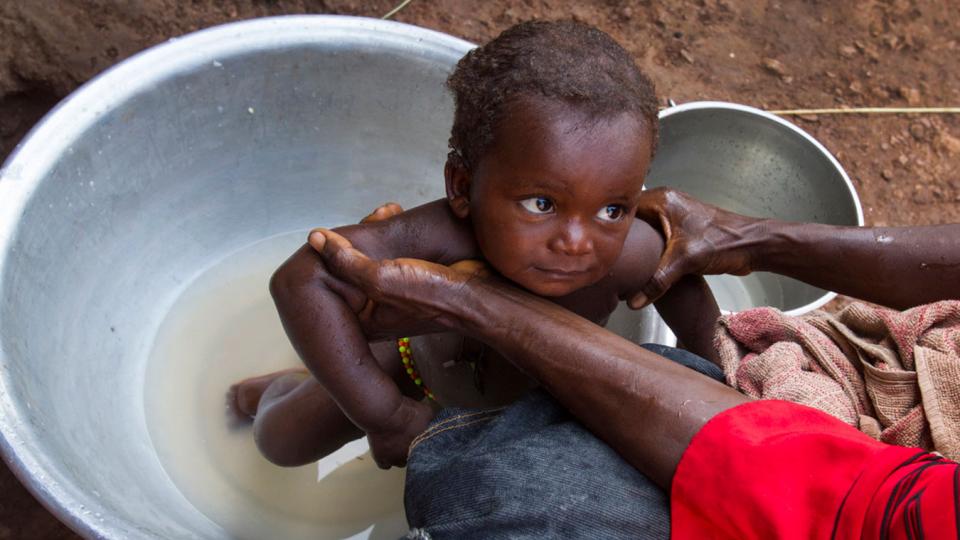 A mother in a community near Sunyani, Ghana, bathes her child with clean water drawn from a local well and stored in a 50-gallon barrel in the family’s yard. The water is also used for drinking, cooking, laundry, and other needs. Photo Credit: Rotary Images/Alyce Henson For over 20 years, Michael Anyekase has crisscrossed Ghana drilling boreholes and installing hand pumps on wells to provide clean water. Water for drinking, washing, and flushing toilets. |
||||||
Partners for climate change research in Tanzania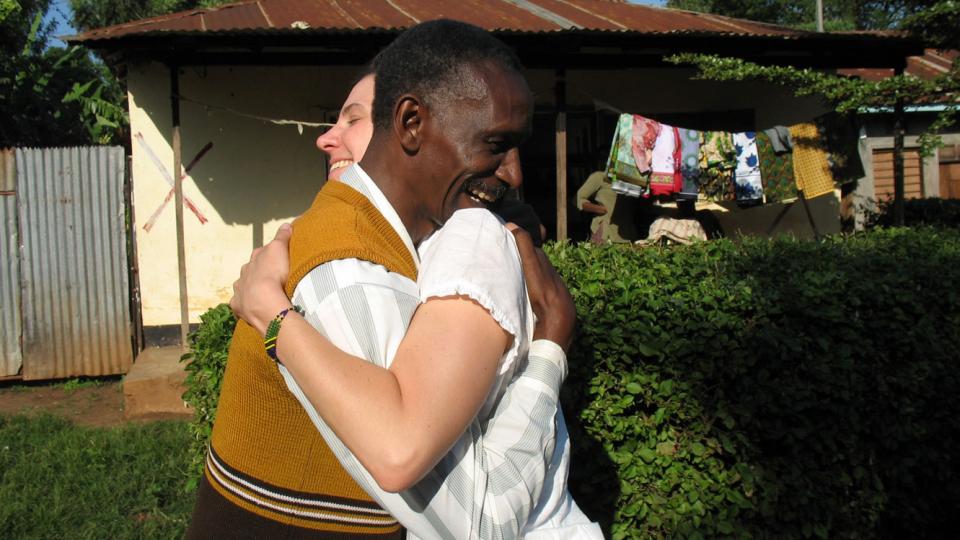 Ohio Rotary member Amy Kaspar and science teacher Bartholomew Meena embrace during Kaspar’s visit to Tanzania in 2009. The meeting sparked a service project that is educating villagers near Mount Kilimanjaro how to adapt to climate change.
Photo Credit: Photos courtesy of Amy Kaspar
Littered with old National Geographic magazines, a model volcano, and a solar cooker, Bartholomew Meena’s crammed science room in Machame, Tanzania, captured Amy Kaspar’s heart at first glance. “He created all the science projects we had from our childhood in one room,” recalls Kaspar, a former Rotary Scholar who’s now a member of the Rotary Club of Capital Square in Ohio. Within those projects, she saw Meena’s passion for his environment and a wealth of unexplored opportunities, particularly the chance to collaborate and study the environmental impact of Mount Kilimanjaro’s melting glaciers. “I had attended several lectures recently at Ohio State University's Byrd Polar Research Center,” Kaspar says. “The thought hit me, shouldn’t the people who live around the mountain know about what is happening and prepare for the changes?” Kaspar spent the next four years connecting Meena with the center, which has been doing cutting edge climate change research. Kaspar’s desire to help Machame matched the center’s goal of providing more research to local communities where it could do more good. And by utilizing Rotary’s network, she was able to bring Rotary members in Ohio and Machame into the collaboration. Together, they would teach communities at the base of Mount Kilimanjaro how to adapt to the changing temperatures and precipitation patterns. “Tanzania is an area where we haven’t been able to give back as much,” says Jason Cervenac, educational outreach coordinator for the Byrd center, “and an educational initiative seemed to be an obvious approach.” The center is also providing Meena with material to write a new curriculum in Swahili, which Rotary members will help publish, distribute, and promote. Additional plans are in the works to use posters to educate the community, hold seminars and community workshops, and fund study exchanges between Tanzania and Ohio. None of this would have been possible without the Rotary infrastructure, Kaspar says. “It’s all about the personal relationships you establish,” she adds. “Rotary has changed who I am, and now I want to do what I can to help change the lives of others for the better.” Kaspar’s path to Rotary began in 1993,when she studied architecture and international development at Oxford Brooks University in Oxford, England, through a Rotary Foundation Ambassadorial Scholarship. There she met her host family, Jane and Peter Jones of the Rotary Club of Haddenham and District. “Amy arrived in a wheelchair with a bicycle. Need I say more?” says Jane, who with her husband has hosted more than 20 scholars. “We found it difficult to control her exuberance and enthusiasm and keep her plans grounded, but that isn’t a criticism.” The Jones family invited Kaspar to attend club activities and take part in service projects. A decade later, they put her in touch with Rotary members in Tanzania, where she would go on to work with the relatively new Rotary Club of Machame. “I’m here today because my host dad in England would never let me off the hook and always made sure I got involved in stuff,” she says. “Service is now a part of who I am. It’s a part of my genetic makeup.” Rotary News 7-Mar-2014
|
||||||
A club with a viewToronto Skyline club's informal vibe attracts young members
the Toronto Skyline Rotary club. The event raised funds for a water and sanitation project in Cambodia. © 2013 David Anthony/Rotary Club of Toronto Skyline
Asked to describe the Rotary Club of Toronto Skyline in two words, Amber Anderson chooses "dynamic" and "participatory." Anderson's club, chartered in April 2012, embraces an informal style that is resonating with Toronto's young professionals. Launched with 25 members, the club finished 2013 with almost 40. "So we make our events appeal to people like us," she says. Those events include the annual Toronto Wing Festival, a dart tournament for Rotary alums and Rotarians, and a battle of the bands held at the Hard Rock Cafe. The club formed when several members of the Rotaract Club of Toronto turned 30 - aging out of Rotaract - and wanted to continue their connection to Rotary. Anderson and fellow charter member Kevin Quan visited area clubs but couldn't find the right fit. "We decided to start something new rather than force ourselves into a club," Quan says. They spent about a year working to recruit – and retain – the required 25 members to charter a Rotary club. "We were very flexible in the beginning; we were never afraid to change things as we went along," Quan says. "That first year, we held our meetings at a new venue every week." Testing different meeting spots gave the founders a good sense of what kind of setting worked best for the members. "We wanted a private space with a pub feel, not a hotel feel," Quan says. They settled on a downtown spot called The Office Pub. Instead of including the expense and formality of a meal in its meetings, the club charges members $5 a week, which covers a standing order of fries, nachos, and other appetizers. "We knew from reading The Rotarian and other Rotary materials that some clubs were experimenting with replacing one meeting with a hands-on service activity," Quan says. The club tried that format, but members wanted a regular weekly meeting in addition to the opportunity to volunteer. The club now offers a standing time when members help staff the local food bank.Quan says the club's first year went well, but retaining members has proved a challenge. "This year we are really focusing on follow-up," he says. "For new members, we have a sponsor who guides each of them, and is on them if they miss a meeting." Quan also gets referrals from other Rotary clubs in the district. "We hosted a darts night and encouraged all clubs in the district to send someone - a son or daughter, an ex-Rotaractor - to check us out. A lot of other clubs know they aren't doing well with younger members and don't mind referring them to our club." Anyone who joins can participate in the club's unconventional induction ceremony: "Our president, the new member, and sponsor do a shot [of liquor]," Anderson says. |
||||||
Helping people with disabilities make their own musicMusic has been an important part of leading an ordinary life for students at the Music School for Children With Disabilities in Honor of Paul Harris in Lublin, Poland. Founded by Rotary members, the school serves 20 students with various disabilities, including Down syndrome, autism, and visual impairments. The Rotary Club of Lublin-Centrum-Maria Curie-Sklodowska has provided funding with help from Rotary Foundation Matching Grants and the Henryk Wieniawski Musical Society, which houses the school. After their son Mateusz was born with underdeveloped eyes, Mariusz and Joanna Kania looked for ways to help him be active. When he showed an aptitude for music, they looked for a teacher and were thrilled to find the Paul Harris music school. “A school like this helps children like Mateusz widen their perspectives, see the world a bit differently, and meet new people,” his father says. “If it weren’t for this school, there wouldn’t be a place in Lublin for disabled children who want to develop musically.” Adapted from a story in the September 2013 issue of The Rotarian 20-Feb-2014
|
||||||
Capital City Sunrise Supports Mongolian Grant in a Big Way
The club meeting on the last Thursday of the month for the 14-member club is called the Million Dollar Breakfast members put $10 in the pot and pay for their own breakfasts. The pot plus fines and happy dollars are donated to whatever charity the speaker chair for the month chooses. Generally it winds up being a hundred and twenty or thirty dollars.
Typically, we discuss upcoming service projects and fund raisers. This past week, though, funding of the club’s Mongolian global grant was the main topic of discussion. When PDG Tony Gilmore explained that money donated to the Foundation would satisfy the Every Rotarian Every Year request and would be matched by $.50 on the dollar, members of the club gave $1700, a visitor added $100, the million dollar pot was donated and the club kicked in $400 for a total of $2310 which, with the match, came up to $3,465 total for the Global Grant. Not bad for a club of 14 whose motto is “the Little Club that does”. |
||||||
Angelique Kidjo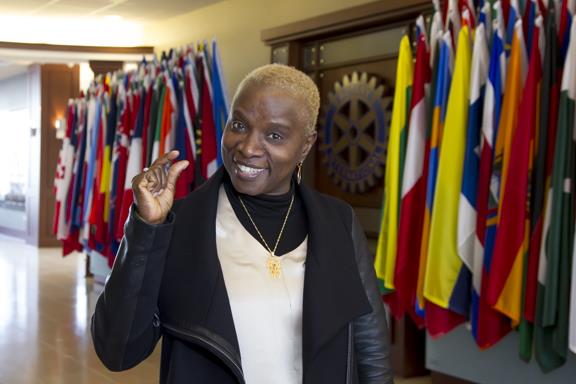 Grammy award winner and longtime UNICEF ambassador Angélique Kidjo has served as a Rotary polio ambassador since 2011. In addition to lending her voice to the “This Close” campaign, Angelique’s support has included: the illumination of the New York Stock Exchange Building with the “End Polio Now” message; a 2011 World Polio Day op-ed; and speeches at Rotary events. Why did you get involved in polio eradication?
As I’ve said before, I believe that I am alive because I was vaccinated as a child in Benin. I had friends whose parents didn’t believe in vaccination, and some of them ended up with polio. There is no excuse for any child to suffer from polio or any other preventable disease.
How do you support the campaign to end polio?
As a longtime UNICEF ambassador, and as a Rotary polio ambassador, I am using my voice to raise awareness for the fight to end polio. I’ve campaigned for vaccination throughout Africa—for polio and for other vaccine-preventable diseases.
What does ending polio mean to you?
I think will be a great opportunity to prove what we can achieve together. It will be a great day when we rid Africa- and the entire world- of that disease forever.
In addition to her polio advocacy, Angélique founded the Batonga Foundation to help empower young African women through education. Her latest album, Eve, released in January 2014, is a dedication to the strength of African women. Angélique’s new memoir, Spirit Rising: My Life, My Music, also out in January, documents her escape from Communist Africa to France, her journey from poverty to Grammy fame, and the importance of giving back. |
||||||
Couple’s 1.1 million gift boosts push to eradicate polioRotary member Terry Caster and his wife, Barbara, announced a $1.1 million gift to Rotary to help eradicate polio. What’s more, their gift will be matched two-for-one by the Bill & Melinda Gates Foundation, resulting in $3.3 million in new funding for the Global Polio Eradication Initiative. The Casters' gift is one of the largest-ever individual contributions to Rotary for polio eradication. In addition to supporting our No. 1 goal of a polio-free world, the couple gave $750,000 to the Rotary Peace Centers to fund a peace fellow’s studies every other year. Both gifts were made to The Rotary Foundation in December. "Barbara and I are blessed to be fruitful in our family business, A-1 Self Storage," said Terry, the company's founder and a member of the Rotary Club of La Mesa in California. "We've always felt it is important to give back and help others, so we are involved in numerous charities. "But as a Rotarian, I can think of no cause more worthy than Rotary's work to end polio and promote peace," said Terry, who received Rotary's Service Above Self Award in 1993 for his humanitarian work. Since the 1960s, the Casters have actively supported humanitarian efforts in San Diego and across the border in Tijuana, Mexico. They founded Serving Hands International in 1982 to help the poor in Baja California. After meeting Mother Teresa, the couple were inspired to expand SHI’s work in Mexico. Rotary is a leading partner in the fight to end polio. Through our advocacy, fundraising, and public awareness efforts, Rotary has helped reduce polio cases by 99 percent worldwide. The End Polio Now, Make History Today fundraising campaign makes contributions work three times as hard with matching funds from the Gates Foundation. The announcement of the Casters' gift was made in San Diego at Rotary's International Assembly, an annual training event for the incoming class of governors who represent Rotary's 537 districts worldwide. 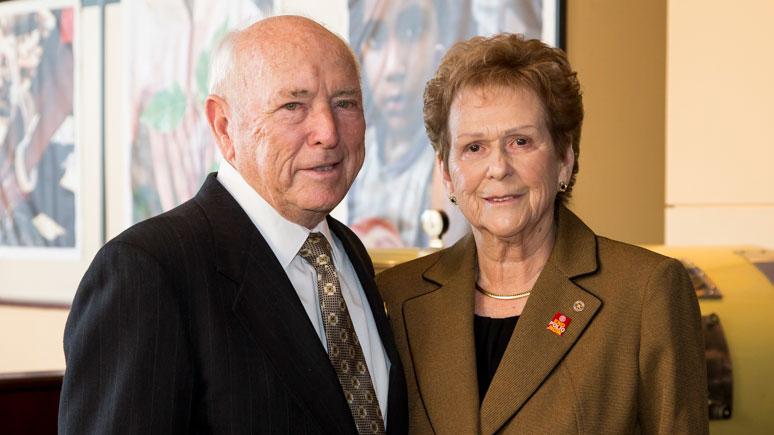 |
||||||
District 7870 Amigos de Honduras
The Amigos team just returned from a very successful mission week in the Danli area of Honduras. The medical and dental teams saw approximately 2,000 patients over 6 days.
The Pure Water for the World team installed 62 household bio-sand water filters. The team built two latrines which will serve as models for 15 more. Pure Water has provided the the materials and the villagers will do the work Below is a photograph of the Amigos build team with the many kids who willingly help. The school the team started and funded will be finished by local Honduran workers. All schools in Honduras require uniforms. The Amigos team provided 18 school uniforms for families who could not afford them. 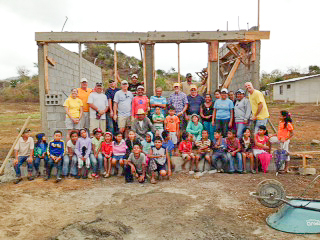 |
||||||
A DANGEROUS IDEA OFFERS HOPE FOR GIRLS IN AFGHANISTANThis story originally appeared in the December 2013 issue of The Rotarian 30-DEC-2013
In 2005, Razia Jan came up with a dangerous idea: to start a free private school for girls in her native Afghanistan. The Taliban were using extreme violence to keep girls from learning. In 2008, the year she opened the school, terrorists in the country -- armed with bombs, poison gas, guns, grenades, and acid -- killed 149 teachers, students, and employees in Afghan schools.
|
||||||
TAKING ETHICAL DEBATES FROM THE IVORY TOWER TO THE TOWN PUBAdapted from a story in the August 2013 issue of The Rotarian 24-JAN-2014
Consider this situation: You are caring for a hungry girl whom you can’t afford to feed. What do you do? Do you steal food, or do you let her starve in the name of law and order?
|
||||||
Capital City Lead Club in Global GrantTwenty thousand dollars is the amount Capital City will to raise for a Global Grant for Medical Equipment for maternal health to equipp five rural clinics in Mongolia with help from Rotary Clubs and Rotarians. The funding, sourcing and shipping for this grant will be managed by District 7870, specifically by Capital City Sunrise Rotary Club in concert with its partner in Ulaanbaatar, Mongolia. The Rotary Club of Ulaanbaatar Peace Avenue will manage receipt of the container, customs, tax exemption processes, and the distribution of the supplies/equipment to the designated five medical facilities. UB Peace Avenue will also seek funding from their District 3450 for the container shipment and for project costs in country. |
||||||
MALALA IS ONE OF USAdapted from a story in the January 2014 issue of The Rotarian. 14-JAN-2014
The Swat Valley of northern Pakistan, in the highlands between Kashmir and the Khyber Pass, was once a lush, peaceful place. It was ruled by Miangul Abdul Haq Jahanzeb — the Wali, or absolute monarch, of Swat. A modernizer, the Wali built schools for his subjects — girls as well as boys — and toured remote regions where no one had ever seen an automobile.
|
||||||
INDIA CELEBRATES THREE YEARS WITHOUT POLIORotary News 13-JAN-2014
Throughout India and around the world, Rotary clubs are celebrating a major milestone: India has gone three years without a new case of polio. The last reported case was a two-year-old girl in West Bengal on 13 January 2011.
|
||||||
A DANGEROUS IDEA OFFERS HOPE FOR GIRLS IN AFGHANISTANThis story originally appeared in the December 2013 issue of The Rotarian 30-DEC-2013
In 2005, Razia Jan came up with a dangerous idea: to start a free private school for girls in her native Afghanistan. The Taliban were using extreme violence to keep girls from learning.
|
||||||
ROTARY AND SHELTERBOX HELP RESTORE A SENSE OF NORMALCY AFTER DISASTERAdapted from a story in the December 2013 issue of The Rotarian. 23-DEC-2013
Months of heavy rains in the heart of the Peruvian rain forest had caused devastating flooding. It was April 2012, and the Amazon River and other waterways had submerged entire villages, forcing families to leave their belongings on the roofs of their homes and find higher ground. Many had to live on wooden planks or under tarps.
|
||||||
ROTARY HELPS CLOSE OUT THE YEAR WITH GAINS AGAINST POLIORotary News 16-DEC-2013
When Julia Yank and a team of Rotary members and health workers entered Kaduna, Nigeria, to immunize children against polio they expected to encounter some tough situations. They found one in a mother of three who stubbornly refused to have her children vaccinated.
|
||||||
NELSON MANDELA REMEMBERED AS AN ALLY FOR PEACE, POLIO ERADICATIONRotary News 13-DEC-2013
In 1996, routine polio immunizations in Nigeria and other African countries were anything but routine. Competing health priorities and lack of funding hampered many governments from putting polio eradication high on their agenda. The drive for a polio-free Africa needed a playmaker.
|
||||||
RELIEF AID POURS INTO TYPHOON-STRUCK COMMUNITIESRotary News 6-DEC-2013
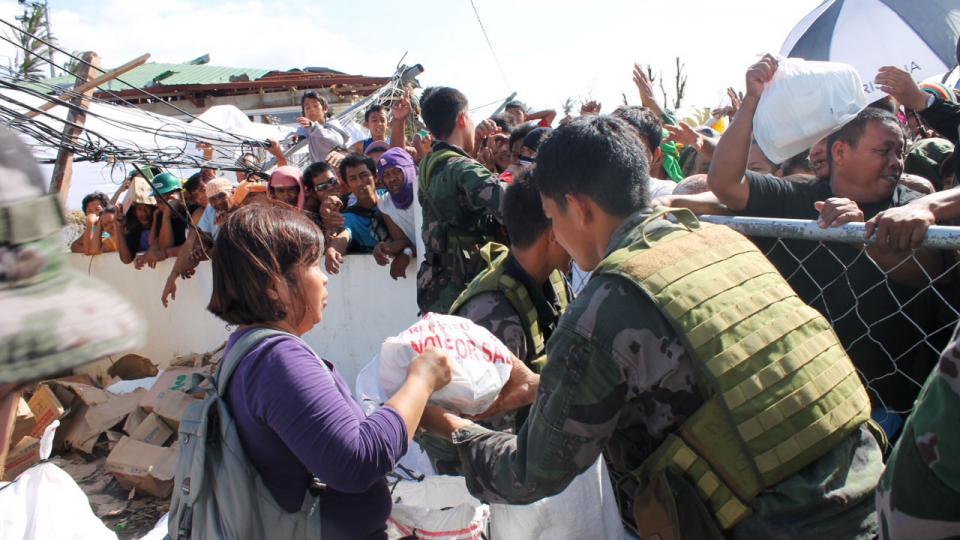
|
||||||
Providing shelter and hope in the wake of Typhoon Haiyan
By Bill Decker, past president of the Rotary Club of Philadelphia, chair of the ShelterBox USA Board, and a ShelterBox Response Team member
I am on the ground on the island of Bantayan in the province of Cebu, Philippines, where the eye of Super Typhoon Haiyan (locally called Yolanda) passed over just a couple weeks ago. The devastation is unlike anything I’ve seen, and ShelterBox’s ongoing efforts will be required to alleviate the suffering here of the hundreds of thousands of displaced people. This is not my first visit to the Philippines as a ShelterBox Response Team member.
|
||||||
Christmas Tree Lighting on the Stete House PlazaAgain, as it has for many years, the Capital City Sunrise Rotary Club
|
||||||
A HANDYMAN’S TALE OF ROTARY CONNECTIONS
By Stephen Yafa
This story originally appeared in the May 2013 issue of The Rotarian. 11-NOV-2013 Cecil “Pancho” Padilla’s emotions hover so close to the surface that at times they engulf him. As he recalls his involvement in setting up a dental clinic in Mulege, Mexico, his voice wavers: “There was a polio-stricken girl we’d helped on an earlier visit, and on this visit we were able to find her a golf cart so she wouldn’t have to crawl through the dirt any longer.”
|
||||||
ROTARY CLUBS TAKE ACTION FOR TYPHOON-RAVAGED PHILIPPINESRotary News 15-NOV-2013
|
||||||
SCHOLARSHIP RECIPIENT REFLECTS ON HIS JOURNEY TO ROTARYThis story originally appeared in the September 2012 issue of The Rotarian. 4-NOV-2013
My father moved us from Vietnam when I was a child to provide us with more than what we’d had under the communist regime. We ended up in a ghetto in Oakland, California, USA. I went to Fremont High School, one of the worst schools in a neighborhood plagued by violence, poverty, and high dropout rates.
|
||||||
PARTNERING WITH MERCY SHIPS TO FIGHT DISEASE IN GUINEA28-OCT-2013
A team of health professionals is touring Donka hospital in Conakry, Guinea, in March when they spot more than a dozen large, greenish masses covering the ground. To the U.S. team members, they look like an art installation; in fact, they are hospital gowns and surgical drapes, laundered and spread out to dry. They are a vivid example of the group’s objective: to lower deadly infection rates caused by unsterile procedures.
|
||||||
ON WORLD POLIO DAY, ROTARY SPOTLIGHTS THE FIGHT TO END THE DISEASERotary News 25-OCT-2013
|
||||||
ROTARY AND UNESCO-IHE PARTNERSHIP LEADS TO 16 NEW WATER SCHOLARS
EVANSTON, Ill. (17 October, 2013) — Building on the success of the Rotary and UNESCO-IHE partnership to train future water leaders, the second class of students – 16 in total – began graduate studies this month at UNESCO-IHE Institute for Water Education, the premier postgraduate water education institution in the world.
|
||||||
OPENING THE DOOR TO POLIO ERADICATION
It’s been more than two years since the last polio case was reported in Côte d’lvoire. Time enough for people to become complacent about immunizations. But that would be a mistake – a potentially deadly mistake.
|
||||||
YOUNG PROFESSIONALS BRING THEIR VISION OF ROTARY TO THE TABLEThis story originally appeared in the September 2013 issue of The Rotarian. 13-SEP-2013
|
||||||
EMPOWERING MOTHERS BY PREVENTING INJURIESThis story originally appeared in the June 2012 issue of The Rotarian. 6-AUG-2013
Robert Zinser understands numbers. The economist and retired president for Asia at chemical giant BASF has spent his life analyzing and predicting future trends. So when he initiated a five-year, $3 million pilot project to reduce infant and maternal mortality in Nigeria – a country with the second highest mortality rate in the world – he was doing more than just betting it would make a difference. He knew it would. |
||||||
INDIAN PHILANTHROPIST BOOSTS ROTARY’S PUSH TO END POLIO WITH NEW US$1 MILLION GIFT
Indian philanthropist and businesswoman Rajashree Birla has announced a new gift of US$1 million to Rotary to help eradicate polio. The gift brings her total contributions to the Rotary effort to more than $7.2 million.
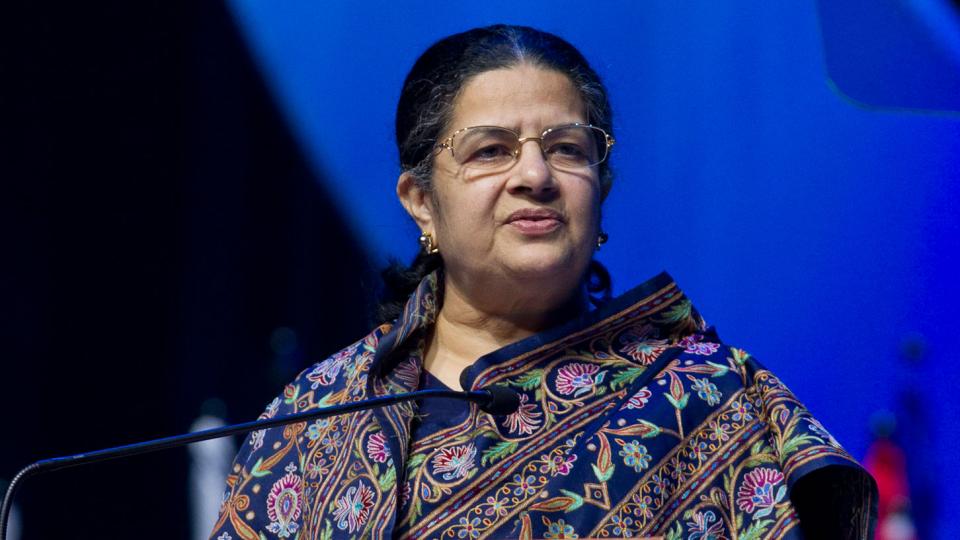
|
||||||
ROTARIAN ACTION GROUP HELPS COUNTRIES GROW INDIGENOUS CROPS6-AUG-2013
Australian Bruce French has been eating locally for 35 years– long before it became a culinary trend. Now he’s working with Rotary members to help countries struggling with food security do the same.
|
||||||
ENGINEERING SUSTAINABLE WATER SOLUTIONS IN LATIN AMERICAThis story originally appeared in the March 2013 issue of The Rotarian
|
||||||
COUPLE VENTURE OUTSIDE COMFORT ZONE TO BRING AIDThis story originally appeared in the August 2012 issue of The Rotarian 6-AUG-2013 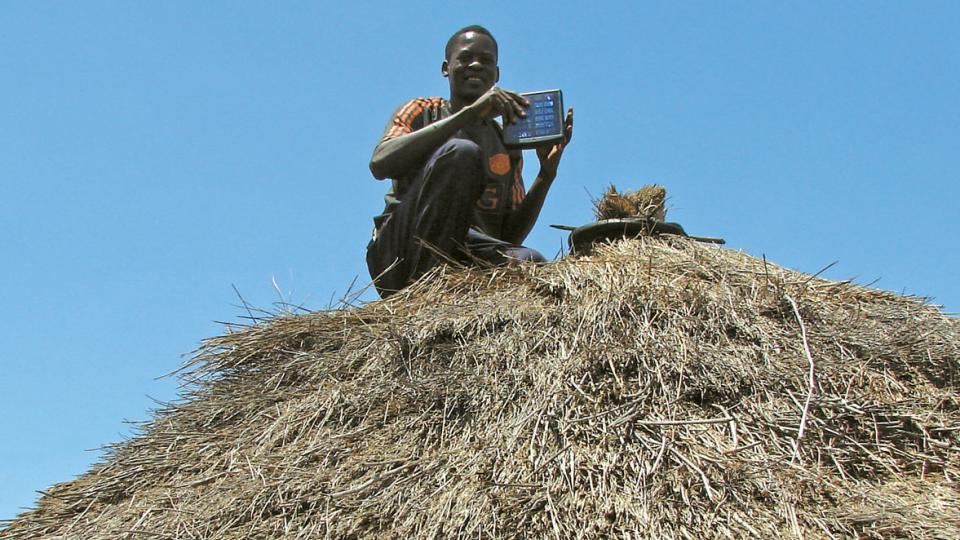
|
||||||
Opening the door to polio eradicationIt’s been more than two years since the last polio case was reported in Côte d’lvoire. Time enough for people to become complacent about immunizations. But that would be a mistake – a potentially deadly mistake.
|
||||||
New Rotary WebsiteDear Rotary Club Officer,
For nearly two years, we’ve been working to refresh and revitalize Rotary’s website and in just a few days, your new website will be unveiled to our members and the public. We are set to launch on August 26th, and in anticipation of this exciting event, I am reaching out to the leaders of our organization and asking you to join me in being champions and advocates for this wonderful new tool.
|
||||||
Ravindran is choice for 2015-16 RI president
By Arnold R. Grahl
Rotary News -- 6 August 2013 K.R. “Ravi” Ravindran, a member of the Rotary Club of Colombo, Western Province, Sri Lanka, has been selected by the Nominating Committee for President of RI in 2015-16. Ravindran will become the president-nominee on 1 October if there are no challenging candidates.
|
||||||
Businesses volunteering time, materials to make Bauman home handicapped-accessibleBy KATHLEEN RONAYNE Monitor staff Monday, August 5, 2013
(Published in print: Tuesday, August 6, 2013) Jeff Bauman has been a regular visitor to Concord for more than a decade, seeing his father, stepmother and two half-brothers at their Thomas Street home whenever he could. Winter visits included hockey games at the Everett Arena or skating in the backyard; summer, sitting on the deck, playing guitar and enjoying time together.
|
||||||
Pakistan Battles Polio, and Its People’s MistrustBy DONALD G. McNEIL Jr.The New York TimesPublished: July 21, 2013KARACHI, Pakistan — Usman, who limps on a leg bowed by the polio he caught as a child, made sure that his first three children were protected from the disease, but he turned away vaccinators when his youngest was born.
|
||||||
Rotary Club of Kyiv project mends children with broken hearts
The way Olena Ichnatenko tells it, her daughter has two fathers – her birth father and the doctor who gave her a second chance at life at the Ukrainian Children’s Cardiac Center.
|
||||||
Responding to disaster comes naturally for New York Rotarianby Stephen Yafa As Jim Kushner sees it, there’s no choice, not for him. Others may dither when a tsunami hits Japan, an earthquake levels parts of Haiti, or a hurricane like Irene or Sandy demolishes a vast swath of homes and businesses along the U.S. northeast coast. For Kushner, past president of the Rotary Club of Inwood, Manhattan, in the borough’s northernmost neighborhood, natural disasters present no options: They demand and deserve immediate and effective action. How could anyone not drop everything and respond? he wonders.
|
||||||
Matthews begins term as first woman vice presidentBy Arnold R. Grahl As Rotary clubs continue to promote diversity in their membership, Rotary is marking a milestone. Anne L. Matthews, a Rotarian from South Carolina, USA, began her term on 1 July as the first female vice president of Rotary International.
|
||||||
Straight ShooterThe Rotarian -- July 2013 W ith his congenial manner and his inclination to keep things simple, Ron Burton has a natural ability to put people at ease. But don’t let the easygoing demeanor of Rotary International’s new president lull you into thinking that he doesn’t get serious when it’s time for business.
|
||||||
The Rotary world comes to Lisbon for the opening of the 2013 conventionBy Arnold R. Grahl Several centuries ago, Portuguese explorers set sail from Lisbon to explore the world over the seas.
|
||||||
Lifesaverby Frank Bures On a cool Monday morning in 2011, Scott Dudley got in his car and started driving north.
|
||||||
Guatemala Rotarians use global grants to help school children receive a better education
By Daniela Garcia
Rotary News -- 10 June 2013 At Próximos Pasos school for girls in Santa María de Jesus, Guatemala, the students look happy, healthy, and energetic.
|
||||||
World Water Summit draws attention to water's pivotal roleby Diana Schoberg W ater and sanitation are at the nexus of Rotary’s six areas of focus, says Ron Denham, of the Rotary Club of Toronto Eglinton, Ont., Canada.
|
||||||
Rotary news in brief from around the globeThe Rotarian -- May 2013 After three years of work, the Rotary Club of Lahaina, Maui, Hawaii, USA, completed a US$300,000 renovation of the Lahaina Public Library, a 57-year-old structure that had fallen into disrepair due to a lack of state funds.
|
||||||
Hiroshima peace forum notes that peace begins with youIn a ceremony heavy with symbolism, RI President Sakuji Tanaka joined other Rotary and community leaders 17 May in laying a wreath in Hiroshima Memorial Park, dedicated to the victims of the atomic bomb dropped on the city during World War II.
|
||||||
Rotary Club cookout to honor Derry’s veterans
|
||||||
Council approves dues increase, unlimited e-clubsBy Arnold R. Grahl Representatives from Rotary’s 532 districts met in downtown Chicago 21-26 April, approving a number of measures designed to strengthen Rotary, increase membership, and enhance the organization’s capacity to serve.
|
||||||
Global Vaccine Summit yields US$4 billion in funding commitments to polio endgame planRotary News -- 25 April 2013 The 2013-18 Polio Eradication and Endgame Strategic Plan and about US$4 billion in funding commitments took center stage at the Global Vaccine Summit in Abu Dhabi 24-25 April.
|
||||||
Dubai Rotarian fights the scourge of pollutionBy Brittany Shoot When David and Theresa Wernery plan a road trip, they don’t mess around. In early 2012, they quit their jobs – he as a lawyer, she as a merchant banker – packed up their modified Ford F-150, and headed out from their home base in Dubai on a journey across the Middle East and Europe.
|
||||||
Rotarians honored as Champions of Change at White HouseRotary News -- 5 April 2013 Twelve U.S. Rotarians were honored at the White House on 5 April as Champions of Change for their efforts to improve communities locally and around the world.
|
||||||
Rotary news in brief from around the globeThe Rotarian -- March 2013 Craig Alford, a member of the Rotary Club of Armadale, Australia, rode more than 400 miles across Western Australia, from Perth to Kalgoorlie, on a Hustler Super Z lawnmower last spring, raising close to US$70,000 along the way.
|
||||||
Rotary news in brief from around the globeThe Rotarian -- February 2013 The Rotary Club of Manama, Bahrain, donated a mobile diabetes unit to the Bahrain Diabetes Society as part of the club’s ongoing effort to combat type II diabetes among youth in the country, where the disease accounts for 12 percent of child and adult deaths.
|
||||||
As Rotary celebrates 108th anniversary, gains against polio continueBy Dan Nixon Rotary’s 108th anniversary on 23 February marks a year of both achievements in the fight to eradicate polio and a stepped-up commitment to finish the job.
|
||||||
News anchor says Rotary Scholarship gave him a broader perspectiveby Kathy Holiday Far away and long ago are not enough to diminish the impact of a 1991 Ambassadorial Scholarship in Australia for Patrick Nolan. The anchor at the Fox TV station in Fort Myers, Florida, USA, says the emphasis on goodwill and understanding still provides a framework for his life.
|
||||||
Author and microcredit expert shares lessons in sustainabilityBy Arnold R. Grahl Years ago, Marilyn Fitzgerald learned valuable lessons about sustainability from an impoverished rice farmer in Indonesia.
|
||||||
Rotarians team up with students to provide clean waterBy Sallyann Price
Growing up in an affluent community near Lake Michigan, Connor Kenehan never had to worry about a lack of clean water. But when a class assignment opened his eyes to global disparities in water access, he decided to help those who don’t have the benefit of proximity.
|
||||||
Incoming district leaders learn about new grant modelRotary News -- 18 January 2013 This year’s International Assembly is focusing considerable resources on training incoming Rotary leaders in The Rotary Foundation’s new grant model, to pave the way for the worldwide launch of Future Vision in July.
|
||||||
Avid cyclist harvests produce to fight hungerby Vanessa N. Glavinskas For 11 days in August, Benjamin Rasmus pedaled around the state of Washington. He biked up grueling mountain passes, battled a headwind for 80 miles, and had to be escorted through a brushfire.
|
||||||
Scuba enthusiasts dive deep for adventureby Paul Engleman On a dive trip in 1991, members of the International Fellowship of Rotarian Scuba Divers decided to take a group photo – under water.
|
||||||
Rotary shares polio eradication message with thousands at Global Citizen FestivalRotary News -- 2 October 2012
|
||||||
Rotary commits additional US$75 million to help end polio
Rotary News -- 27 September 2012
Rotary International has made a new funding commitment of US$75 million over three years to the Global Polio Eradication Initiative (GPEI). Rotary, which has already contributed nearly $1.2 billion to the GPEI, announced the commitment at a 27 September high-level side event on polio eradication, convened by United Nations Secretary-General Ban Ki-moon during the United Nations General Assembly in New York.
|
||||||
World’s first peace park celebrates its 80th anniversary
By Arnold R. Grahl
Rotary News -- 11 September 2012 In a year when the RI theme is all about peace, the annual gathering of Rotarians from both sides of the U.S.-Canadian border at the world’s first peace park takes on even greater significance.
|
||||||
Rotarians honored for promoting literacy
By Daniela Garcia
Rotary News -- 4 September 2012 Two Rotary clubs are being honored 7 September at an International Literacy Day celebration in Washington, D.C., as the winners of the RI-International Reading Association-Pearson Foundation Literacy Project Awards.
|
||||||
Paralympic-related event puts the spotlight on polio eradicationBy Ryan Hyland
|
||||||
Global grant provides water, sanitation for school children in MozambiqueBy Vanessa Glavinskas
|
||||||
Small grants pay off big for students
By Stephen Yafa
The Rotarian -- August 2012 At a middle school in Monterey, California, USA, music teacher Jim Paoletti needs to replace old strings on violins and violas.
|
||||||
Huang is choice for 2014-15 RI president
Rotary News -- 7 August 2012
Gary C.K. Huang, a member of the Rotary Club of Taipei, Taiwan, is the selection of the Nominating Committee for President of Rotary International in 2014-15. Huang will become the president-nominee on 1 October if there are no challenging candidates.
|
||||||
Olympic athletes help Rotary promote polio eradication
By Arnold R. Grahl
Rotary News – 1 August 2012 The best athletes in the world have gathered in London for the 2012 Summer Olympics, and some of them are helping to spread the word about Rotary’s campaign to rid the world of polio.
|
||||||
Rotaractors in Nepal create radio program to disseminate health care information
Rotaractors from Nepal today received top recognition at the 2012 Rotaract Preconvention Meeting for a radio program that provides health care information to people in the eastern part of the country.
 |
||||||
Rotary honors Nigerian president for supporting a polio-free world
Rotary International has recognized Goodluck Jonathan, president of Nigeria, with its Polio Eradication Champion Award for his leadership and dedication to achieving a polio-free world.
|
||||||
Capital City Hosts Breakfast at Salvation Army HQ
Forty-two hungry individuals from local shelters and other service organizations made their way to the Salvation Army Headquarters on Fruit street where they were treated to a free hot breakfast of pancakes, sausages, coffee and juice prepared by Capital City Sunrise Rotarians. This was the club's first Saturday breakfast event. Members of the club anticipate that the numbers served will grow as word of mouth of the service project spreads.
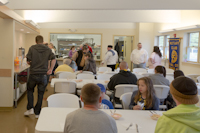
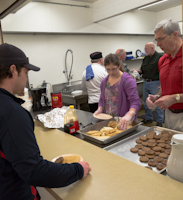

|
||||||
Rotary and Coca-Cola Beverages team up to fight polio in Pakistan
By Aziz Memon, Pakistan PolioPlus Commitee Chair
On 7 April, in honor of World Health Day, a team of Rotarians, Rotary partners, and employees from Coca-Cola Beverages Pakistan joined forces to pick up garbage and conduct a cleanup campaign in Union Council 4, Gadap Town, Pakistan.  |
||||||
Visit to Afghanistan makes Rotary history
By Stephen R. Brown, Rotary Foundation trustee and a member of the Rotary Club of La Jolla Golden Triangle, California, USA.
On 30 March, Fary Moini, a fellow member of the Rotary Club of La Jolla Golden Triangle, and I left San Diego for Afghanistan.  |
||||||
Receiving the gift of sight in Nicaragua
By Amber Recker, president-elect of the Rotary Club of Anthony Wayne (Fort Wayne), Indiana, USA.
Walking through the hall of a small clinic in Managua, Nicaragua, I met Stanley. 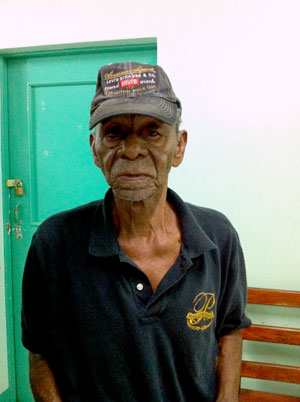 |
||||||
Providing clean water to families in PeruIn Lima, Peru, more than 70 percent of the drinking water comes from the Rimac River, which is polluted with high levels of cadmium, copper, lead, zinc, and arsenic. |
||||||
Peace in our time
The following stories are from the February issue of the Rotarian that not all of you may have seen.
One year after the terrorist attacks of 9/11, the first class of Rotary Peace Fellows began their studies. Since then, more than 590 fellows have gone on to build peace in their communities and nations, as well as across international lines. They include graduates of a two-year master’s degree program and a three-month professional certificate program at Rotary’s partner universities. |
||||||
Rotary projects promoting basic education and literacy |
||||||
Global grant project educates, supports new mothers with HIVFifty doctors, nurses, and home-based health care workers in Liberia are using techniques gained from a Rotarian-sponsored workshop to help prevent transmission of HIV from infected mothers to their children. The techniques are being used to educate pregnant women about HIV and AIDS, treat mothers and their newborn babies with medication, and inform the public about HIV prevention.  |
||||||
Rotarians have reason to celebrate as Rotary reaches 107 years
Rotarians have significant reasons to celebrate Rotary’s 107th anniversary on 23 February.
 |
||||||
Historic Moments: The first four Rotarians On 23 February 1905, Paul P. Harris, Gustavus Loehr, Silvester Schiele, and Hiram E. Shorey gathered in Loehr’s office for what would become known as the first Rotary club meeting. |
||||||
Rotary news in brief from around the globe
Rotary clubs around the globe have many things in common, including a commitment to service. All year long, clubs are taking action to make a difference in their communities. Here’s a roundup of recent club activities worldwide:
|
||||||
Major donor's gamble benefits school children in ChinaI was about to turn 40 when I joined Rotary. The timing was perfect. I’d wandered into a profession, computer software development, where I was disconnected from any community.  |
||||||
Hewko outlines five priorities for strengthening Rotary’s image, reach
A number of major initiatives are underway that will help Rotary
International’s professional staff, the Secretariat, be a more
effective, efficient, and useful resource for clubs and districts.
 |
||||||
Peace Through Service' is 2012-13 RI themeRI President-elect Sakuji Tanaka will ask Rotarians to build Peace Through Service in 2012-13.  |
||||||
U.S. Rotarians join counterparts in Pakistan in polio eradication effortTwo U.S. Rotarians and their wives got a firsthand look at Pakistan’s effort to eradicate polio when they participated in the country’s National Immunization Days (NIDs) in October.
 |
||||||
Polio survivor inspires support for ending the disease
Ten days before his 21st birthday, David Goldstone lay in a hospital bed near Sydney, New South Wales, Australia, his arms and legs paralyzed by polio, his body gripped by fever and in terrible pain. His hospital admission form read, "Life expectancy: 24 hours."
 |
||||||
See how vaccines reach remote locations through the cold chainWhen Rotary launched PolioPlus in 1985, the “plus” signaled the belief that the polio eradication effort would increase immunizations against five other diseases prevalent in children: measles, tuberculosis, diphtheria, whooping cough, and tetanus. As time went on, the list of benefits grew.
 |
||||||
India presses its advantage against polio
With just one case of polio reported in the last 10 months, India is more determined than ever to ensure eradication of the disease.
 |
||||||
Making water pure and simple
A s your dentist knows, some fluoride is a good thing. Too much, however, can be devastating. The residents of Patari, a village in Uttar Pradesh, are among the millions of people in India who suffer the consequences of fluorosis, an irreversible condition caused by elevated levels of fluoride in drinking water.
 |
||||||
The Rotary Foundation enjoys high ratings from charity watchdogsMany philanthropists say it is more difficult to give money away intelligently than it is to earn it.  |
||||||
Selling coffee for a causeEditor's note: Capital City is selling Five for Water's coffee as a fundraiser. By selling fair trade coffee to Rotary clubs throughout the United States, a former Rotary Foundation Ambassadorial Scholar is helping to raise money to fund worldwide clean water initiatives.  |
||||||
Global grant project impressive in combating dengue feverDengue affects 50 million people annually and causes about 22,000 deaths, according to the World Health Organization. "The disease is very debilitating, and drug treatment or vaccination is not available," says Spiekermann, who chairs his club's grants committee.  |
||||||
University of L'Aquila honors Banerjee in recognition of Rotarian-led rebuilding effort RI President Kalyan Banerjee received an honorary doctorate in engineering from the University of L'Aquila, Italy, on 12 October, in recognition of Rotarians’ help in rebuilding the engineering campus after the devastating earthquake of 2009. |
||||||
Former Rotary Scholar from Japan helps her homeland recoverNaoko Kurauchi, a nurse and former Rotary Foundation Ambassadorial Scholar, provided medical relief in Miyako, Japan, two weeks after her country was hit by an earthquake and tsunami on 11 March.
 |
||||||
Rotarian circles Australia in a dinghy for polio eradicationMany Rotarians have gone to extremes to raise money for Rotary's US$200 Million Challenge.
 |
||||||
A look at the Future Vision pilot’s first year
One hundred Rotary districts and their member clubs set a brisk pace in the first year of the Future Vision pilot, recording many milestones along the way.
 |
||||||
Historic Moments: Rotary and Boys' Week In September, Rotary celebrates New Generations Month, reminding clubs of the ongoing need to provide positive influences for youth and equip tomorrow's leaders.  |
||||||
RI General Secretary John Hewko meets with Bill Gates on polio eradication
General Secretary and CEO of Rotary International John Hewko met with Bill Gates, cochair of the Bill & Melinda Gates Foundation, 7 September in Seattle, Washington, USA, to discuss moving forward together to eradicate polio and continuing to energize Rotarians to see the eradication effort through to the finish.
 |
||||||
Steps for developing a successful water project |
||||||
Rotarians improve access to clean drinking water Rotarians have teamed up with nongovernmental organizations in Belgium to bring clean drinking water and improved sanitation to thousands of families in the poorest districts of Toamasina, Madagascar. |
||||||
Historic Moments: Rotary's early growth in IndiaRotary’s history in India from Rotary International on Vimeo. The Rotary Club of Calcutta became the first Rotary club chartered in India on 1 January 1920. Today, more than 3,000 clubs operate throughout the country, including the Rotary Club of Vapi, home to 2011-12 RI President Kalyan Banerjee. |
||||||
Global grant scholar focuses on human rights
Claire Achmad of New Zealand is passionate about improving the quality of people’s lives by working as an advocate for human rights.
 |
||||||
The doctor is in Editor's Note: In 2008 I was fortunate enough on a trip to Haiti with Pure Water for the World, to meet Claude Surena when we made up a Rotary meeting at the Petion-Ville club. |
||||||
Rotarians from France, Côte d'Ivoire distribute bed nets to fight malaria
Thousands of mothers in western Côte d'Ivoire rushed out of their homes to receive insecticide-treated bed nets during an 11-day antimalaria campaign initiated by French Rotarians near the town of Man in November.
 |
||||||
A lesson in recycling
Most of us think recycling means tossing a soda can or newspaper into the proper bin. But the Rotary Club of London, Ont., is taking the concept to a new level: It’s recycling schools.
 |
||||||
Historic Moments: Why the Rotary year begins 1 July
Ever wonder why the Rotary year begins 1 July? The international convention initially played a key role in determining the start date of our fiscal and administrative year.
|
||||||
Global grant project boosts malaria prevention and treatment in Mali
Last year, malaria claimed the lives of almost 750,000 people in sub-Saharan Africa, 85 percent of them young children. Some of the region’s poorest residents live in Yirimadjo, Mali, and are receiving protection from the disease through a Rotary Foundation Global Grant project supported by Rotarians in four countries.
 |
||||||
Turkish GSE Team Visits District 7870Turkish GSE Team Visits District 7870 from Tony Gilmore on Vimeo. Rotary Group Study Exchange visit from
District 2430 in Turkey to District 7870 (Southern New Hampshire and
Vermont). The last day the Team was with Raymond Area Club, they
volunteered at International Medical Equipment Consortium sorting linen
for a new hospital IMEC is fitting out in Haiti donated by Partners in
Health. |
||||||
Pink Jeep delivers prenatal care to rural HaitiA bright pink Jeep Wrangler, staffed with four
midwives, races along uneven, dusty roads to reach more than 50 pregnant
women in Darlegrand, a rural town two hours north of Hinche, Haiti. |
||||||
Snowy event raises thousands for children's charities
Despite 14 inches of snow, Rotarians in Ohio, USA, drew more than 3,000 people to a daylong “chili open” in February that raised nearly $160,000 to benefit children.
|
||||||
Rotary and Oikocredit launch strategic partnership
The Rotary Foundation Trustees have reached an agreement with Oikocredit International, a Netherlands-based cooperative financial institution that promotes socially responsible investing, to form the first strategic partnership under the Foundation’s Future Vision Plan.
|
||||||
Former peace fellows help Haiti rebuild
With Haiti still reeling from last year's devastating earthquake and a continuing cholera epidemic, two former Rotary Peace Fellows are using their expertise to help the country rebuild and recover.
|
||||||
Team dreams of clean streams
The banks of the Sacramento River, as it meanders through Shasta County in Northern California, USA, are a tangle of unwelcome plants.
|
||||||
Indian philanthropist donates another US$1.12 million to polio eradication
Rajashree Birla, of Mumbai, Maharashtra, India, has donated another US$1.12 million to The Rotary Foundation in support of Rotary's US$200 Million Challenge.
|
||||||
Rotary clubs have water projects on tap
Villages in four regions of Ghana are being equipped with ventilated pit latrines, showers, and boreholes featuring hand pumps and mechanized pipes through the efforts of dozens of Rotary clubs in Latin America, North America, and Ghana.
|
||||||
ShelterBox mobilizes quickly for Japanese in need |
||||||
Rotaractor recycles gloves to benefit the hungry Ugandan Rotarian salvaged several dozen pairs of sturdy work gloves from a 2010 Rotaract project and is using them to raise money for starving children in his home country. |
||||||
Rotarians provide medical help for La Gonave, Haiti
A team of Rotarians from New York, USA, and the Rotary Club of Port-au-Prince, Haiti, brought much-needed medical treatment to villagers on the island of La Gonave in February, and also installed 18 solar panels to power the remote village's medical clinic and water pump.
|
||||||
New Zealand Rotarians responding to Christchurch earthquake
Rotarians in New Zealand are doing what they can to assist victims of the devastating earthquake 22 February in Christchurch, where more than 100 people have been killed and at least 200 are still missing.
|
||||||
Ray Klinginsmith rings the NYSE closing bell 23 February
RI President Ray Klinginsmith will ring the closing bell at the New York Stock Exchange on 23 February during a ceremony with representatives from Rotary and Sanofi Pasteur, a leading provider of polio vaccine, in honor of Rotary's 106th anniversary and in support of a polio-free world.
|
||||||
Bell ringing, landmark lighting to mark Rotary's 106th anniversary
Rotary International will join Sanofi Pasteur, a leading provider of polio vaccine, in ringing the opening bell in four financial markets in Europe on 23 February, in honor of Rotary's 106th anniversary and in support of a polio-free world.
|
||||||
This Close
Bill Gates, cochair of the Bill & Melinda Gates Foundation, has joined the growing roster of public figures and celebrities participating in Rotary’s “This Close” public service announcement campaign for polio eradication.
|
||||||
One year later, Haiti still struggles to rebuild
In the year since a catastrophic earthquake struck Haiti, Rotarians in the country have been using resources and funds donated by Rotary clubs worldwide to rebuild schools, support environmental education, and fund clean water initiatives.
|
||||||
Capital City Moves to a New VenueCapital City Sunrise Rotary club is moving its Thursday 7:15 AM meetings for the month of February, 2011 to the Centennial Inn, 96 Pleasant Street, Concord NH for a one month trial and perhaps longer. All interested citizens and visiting Rotarians are welcome for a hearty breakfast and excellent speaker. Please join us. |
||||||
Future Vision Plan provides incredible opportunity
The Future Vision pilot, launched seven months ago with 100 pilot districts, has already produced exceptional global grant projects with sustainable, measurable outcomes.
|
||||||
Keeping children out of harm’s way
South African Damian Lahoud is deeply concerned about the welfare of AIDS orphans in his country, now and in the years to come.
|
||||||
Rotarians respond to cholera outbreak in Haiti
A deadly outbreak of cholera remains a top concern in Haiti as Rotarians assist with long-term recovery efforts.
|
||||||
West African caravan promotes peace from the ground up
A caravan led by former Rotary Peace Fellow Richelieu Allison journeyed through four countries in West Africa in November to promote peace-building at the grassroots level.
|
||||||
Bringing new life to Sierra Leone
For the Rotary Club of Fishers, Indiana, USA, it wasn’t difficult to decide where and how to help the global community become a better place.
|
||||||
Immunization campaigns move ahead in Congo Republic
Rotarians in the Republic of the Congo are stepping up their efforts to help stop the recent outbreak of wild poliovirus in their country.
|
||||||
Cholera rages in rural Haiti
Editor's note: At this happy season, there are still tragedies in the world. A month ago I returned from a trip with Pure Water for the World to Haiti. I visited a little clinic in La Salaine where 74 people had perished from Cholera the week before. The Haitian nation has been through a terrible earthquake, Cholera and the effects of hurricane Tomas and now has disappeared from the headlines again. This Christmas season, please take a moment to reflect on how lucky we are.
|
||||||
An Update on the Critical Cholera Situation in Haiti
Haiti is now 4 weeks into the cholera epidemic which began in the Artibonite valley and has spread to every province, including Port-au Prince (PAP) and in particular to slum of Cite Soleil (CS), where over 300 patients are being hospitalized daily. Every available hospital bed in PAP is occupied with cholera victims. Cite Soleil, because it has the most vulnerable population, is the hardest hit in the greater PAP area. Our water agent at the large Soleil 4 water station buried his brother in the last few days. He died of cholera in a matter of hours.
|
||||||
Canadian polio survivor enjoys a royal moment
When polio survivor Ramesh Ferris hand-cycled across Canada in 2008 to raise money for polio eradication, one of his goals was to share with as many leaders and policymakers as possible the importance of ridding the world of the disease.
|
||||||
Medical students use Rotaract to improve community
The Rotaract Club of A.T. Still University is made up
entirely of medical students who are reaching beyond individual patients
to serve the entire city of Kirksville, Missouri, USA.
ATSU Rotaract Interactive Story from Rotary International on Vimeo. |
||||||
Youth programs pave the way into Rotary |
||||||
Star struck
Even as a small child, Japanese astronaut and former Rotary Foundation Ambassadorial Scholar Naoko Yamazaki found outer space fascinating. From her home in Matsudo City outside Tokyo, she spent evenings stargazing. As she grew older, movies like Star Wars and TV broadcasts of shuttle launches fueled her growing interest.
|
||||||
San Antonio Interactors excel at service
The Interact Club of Winston School San Antonio, Texas, USA, has been setting lofty goals for itself for 15 years.
|
||||||
Providing safe drinking water
The Rotary Club of Summerland, British Columbia, Canada, has been helping villagers in the Nakuru district of Kenya gain access to safe drinking water for years.
|
||||||
Capital City Sunrise painting party makes splash at Camp Spaulding
Camp Spaulding is run by Child and Family Services of New Hampshire to provide a summer camping experience for kids in Merrimack county who would otherwise go without.
|
||||||
Rotary Peace Fellow tells her story
I was in a taxi on the way to testify before Congress on the situation facing Colombia's human rights defenders, the first time I was to appear before a congressional hearing, and I had the jitters.
|
||||||
Former scholar writes book about Katrina
Just days after Hurricane Katrina slammed into the Gulf Coast in 2005, CNN correspondent Kathleen Koch rushed to her hometown of Bay St. Louis, Mississippi, to cover a story that other media outlets weren't telling.
|
||||||
Canadian Rotarian swims to end polio
A 43-year-old Rotarian from Dundas, Ontario, Canada, raised thousands of dollars for polio eradication through her attempt to swim 32 miles across Lake Ontario earlier this month.
|
||||||
Protecting the world’s ‘most vulnerable persons’
Francis Kabosha says that growing up in the southern African nation of Zambia has given him a heart for helping refugees.
|
||||||
Rotary begins plan of action in Haiti
More than six months after Haiti sustained a massive earthquake, Rotary clubs and account holders of the Haiti Earthquake Relief Fund are beginning to allocate resources to help rebuild schools, provide prosthetics, and equip thousands with adequate shelter.
|
||||||
Windmills increase income for salt harvesters
Five families who harvest salt from the desert in western India have Rotarians to thank for windmills that will double their income.
|
||||||
New collaboration strengthens AIDS fight
A Rotarian Action Group committed to fighting AIDS is joining forces with a global health organization that has used scientific methodology to prevent disease and improve the lives of women and children living in poverty.
|
||||||
A home away from home
For Cameron Wilson, the Ottawa Rotary Home has become a second home. Wilson, 20, has cerebral palsy; he’s also blind, developmentally delayed, and uses a wheelchair.
|
||||||
Former scholar writes book about Katrina
Just days after Hurricane Katrina slammed into the Gulf Coast in 2005, CNN correspondent Kathleen Koch rushed to her hometown of Bay St. Louis, Mississippi, to cover a story that other media outlets weren’t telling.
|
||||||
District 7870 Celebrates "End World Polio Day"
On October 24th, District 7870 celebrated world "End Polio Now" day with an illumination on the New Hampshire state house plaza.
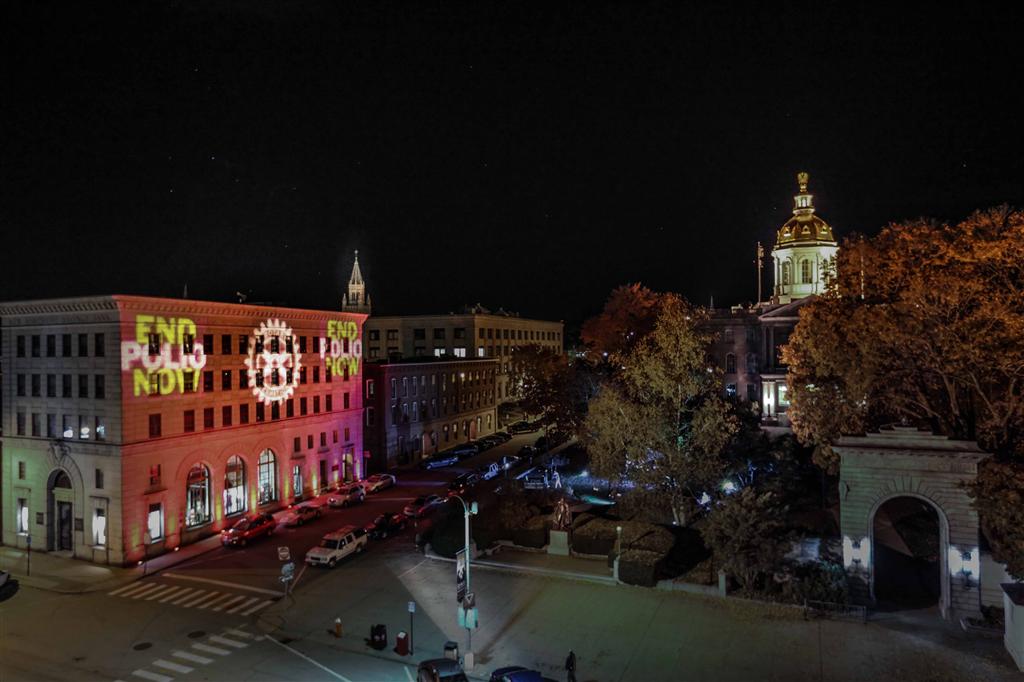
|
||||||
Resourceful fundraisers fuel Rotary's US$200 Million Challenge
Rotarians have raised US$185 million for Rotary's US$200 Million Challenge to help underwrite the cost of ending polio around the world. Although the challenge runs through 30 June, it is vital that fundraising efforts continue until the disease is finished.
 |
||||||
Linking New Generations programs keeps participants on track to becoming Rotarians
A mentoring program in District 5160 (California, USA) helps incoming college freshmen – particularly those who are Interact alumni – get connected with university-based Rotaractors. It’s just one example of the efforts undertaken by many districts to keep Interactors, Rotaractors, RYLArians, and Rotary Youth Exchange participants in the fold – and on track to become Rotarians.
|
||||||
Time to ramp up the fight against polio
The Global Polio Eradication Initiative (GPEI) has made significant progress since the launch of its new strategic plan and the bivalent oral polio vaccine last year. In India and Nigeria, the sources of all recent wild poliovirus importations into previously polio-free countries, the disease declined by 95 percent between 2009 and 2010.
Bill Gates Talks About Eradicating Polio from Rotary International on Vimeo. |
||||||
Rotaractor can't get enough of RI conventions
Editor's note: Clemens Witt is a Rotaractor from Germany and a Rotary Foundation Ambassadorial Scholar to Australia. I’m absolutely addicted to traveling to RI conventions. |
||||||
Vocational training teams give kids an edge
Editor's Note – District 7980's District Governor, Julie Reppenhagen hosted our District's Conference in Mystic, Connecticut this past weekend. Vocational training teams from Rustenburg, South Africa (District 9400), and Bridgeport, Connecticut, USA (District 7980), have discovered that their communities share surprisingly similar challenges when it comes to early childhood education. |
||||||
Eradicating polio will take renewed resolve, says Gates
Bill Gates, cochair of the Bill & Melinda Gates Foundation, praised Rotary for its continued success in the effort to eradicate polio, but cautioned that Rotarians will need to redouble their efforts to keep the disease from spreading -- and threatening hundreds of thousands of children.
|
||||||
Clubs near New Orleans rebuild safety net |
||||||
Colorado Rotarians get their state connected
To celebrate "100 Years of Rotary in Colorado," the Rotary Club of Denver, Colorado, USA, working with other Rotary clubs in the state, helped obtain a $100 million stimulus grant from the U.S. government to bring low-cost, high-speed Internet to the entire state.
|
||||||
Empowering the next generation of peacemakers
Cameron Chisholm didn’t waste any time deciding how he would provide others with the skills he was gaining as a 2006-08 Rotary Peace Fellow. During his fieldwork in Ethiopia, he drafted a plan for a peace advocacy organization.
|
||||||
Rotary responds to polio outbreak in Congo Republic
Rotary International and its partners in the Global Polio Eradication Initiative -- the World Health Organization, UNICEF, and the U.S. Centers for Disease Control and Prevention -- are responding to a recent outbreak of wild poliovirus in the Republic of the Congo. Rotary is providing a total of US$500,000 in emergency grants to WHO and UNICEF for immediate polio immunization efforts throughout the country.
|
||||||
GSE helps provide ‘legs to stand on’
A Group Study Exchange team from District 7300 (Pennsylvania, USA) broke new ground in May when it visited Ghana to participate in the first International Cross-Diseases Conference on Lower-Limb Care in the Developing World.
|
||||||
RYLA alumna brings teens together in Arizona
Annica Benning was shocked. "There was nothing green," recalls the 16-year-old Rotary Youth Leadership Awards (RYLA) alumna. Benning was standing just a few hours from her upscale suburb in Arizona, USA.
|
||||||
Scholarship winners and a new member recognized by Capital City
At Capital City's August 5th meeting, all five of this year's scholarship winners joined the club to be recognized for their outstanding community service.
|
||||||
Winds of Change
What an amazing world! Advances in technology are happening so quickly that they cause constant changes in our businesses and professions. Yet about one-third of the world's population is still living at a subsistence level with little change in their lives. It is a stark contrast and a cause for concern.
|
||||||
Medical mission touches the 'unreachable'
During a massive seven-day medical mission in March, a team of 37 doctors and volunteers from District 3080 provided care to about 50,000 people in the remote tribal district of Mandla, Madhya Pradesh, India.
|
||||||
Australian Rotarians send aid to Chile
Australian Rotarians have been pitching in to help communities in Chile devastated by the February earthquake that killed hundreds and caused an estimated US$30 billion in damages.
|
||||||
Rotary and the Chicago Cubs strike out Polio
When 14-year-old Joshua Kim decided last summer to donate all the allowance he'd saved up to Rotary's End Polio Now campaign, he never dreamed that almost a year later he would be taking the mound for a ceremonial first pitch at Wrigley Field, the historic baseball park of the Chicago Cubs
|
||||||
Capital City Sunrise awards five scholarships
The smallest Rotary club in District 7870 at 12 members announces the winners of its
Randy Daniels and Don Miner Memorial
Scholarships.
|
||||||
Day breaks for Alzheimer's families
For several years, Rotarian Robert Croux struggled to care for his wife, Vony, who had Alzheimer's disease, at their home in Port-la-Nouvelle, France.
|
||||||
Rain Forests of Guatemala
In 1991, Steve Dudenhoefer sold his successful
landscaping business and abandoned his comfortable surroundings in
southern Florida, USA, to dedicate his life to alleviating the plight of
an indigenous community in the rain forests of eastern Guatemala.
|
||||||
Small club scores big with end polio effort
In the past nine months, the residents of Bribie Island, Queensland, Australia, have learned a lot about polio and the global effort to eradicate the disease.
|
||||||
Rotary responds to polio outbreak in Tajikistan
Rotary International and its partners in the Global Polio Eradication Initiative -- the World Health Organization, UNICEF, and the U.S. Centers for Disease Control and Prevention -- are responding to a recent outbreak of wild poliovirus in Tajikistan.
|
||||||
Documentary - band of Congolese polio survivors
A Congolese band whose lead singers are polio survivors is making its way onto the world music scene after a documentary on the group's origins received critical acclaim at the Cannes Film Festival in May.
|
||||||
Taking the pulse of global economic change
Canadian diplomat Donald Bobiash believes international relations is in the midst of a major shift given the tremendous rise of living standards in developing countries in Asia, South America, and parts of Africa.
|
||||||
Eco-clubs attract young members
Eco-clubs attract young members
A growing number of Rotary clubs have found that focusing on the environment helps them bring in new members and gain visibility in the community. |
||||||
Rotarians in Korea are making a difference
Korean Rotarians were active in a wide range of projects last year that helped advance the mission of The Rotary Foundation, including helping to turn remnants of the Korean War into a lasting symbol of peace.
|
||||||
Pakistan in high gear against polio
At the Inayat Foundation Academy for the Deaf in Lahore, Pakistan, children watch attentively as a teacher uses sign language to explain what polio is and the need to be immunized against it.
|
||||||
Building homes, dreams for Mexico's poor
The Interact Club of La Jolla High School, California, USA, is making a difference by helping to build new homes for some of the poorest residents of Tijuana, Mexico.
|
||||||
Literacy project puts the writing on the wall
Being a teenager ain't easy. Being a teenager who's different – from another country, say – is exponentially harder. Barriers of language, culture, and race can make it difficult to succeed socially as well as academically.
|
||||||
New generation lifts up the next
The Rotary Club of Central, Hong Kong, understands the value of helping young people reach their potential.
|
||||||
An Haitian Trip Report
Following the earthquake in Chile, media attention has moved away from Haiti - there are and will be continuing major challenges for the Haitians. The following is a trip report from Byron Miller, who just returned from a Pure Water for the World inspection visit to Haiti:
|
||||||
How Rotarians can best help Haiti
Almost two months after a powerful earthquake shook Haiti, signs of devastation are everywhere, underscoring the long road to recovery that lies ahead.
|
||||||
Nigeria hits new high notes against polio
For over four decades, folklorist Dan Maraya Jos has stirred the hearts of Nigerians with songs on a range of social issues.
|
||||||
Third Olympics is a charm for Florida Rotarian
Ernie Peterson is combining his passions for volunteering and sports during this month's Olympic Winter Games in Vancouver, British Columbia, Canada.
|
||||||
Where there's smoke
Prehistoric humans smoked meat to prevent bacterial growth and preserve protein sources. Modern humans crowd into tile-floored delicatessens to devour smoked meat sandwiches that they will avoid mentioning to their cardiologists. Montréal, Que., Canada, which will host the RI Convention 20-23 June, takes pride in offering some of the world's finest sandwiches à la viande fumée.
|
||||||
Calgary Olympic club makes wish come true for kids
A Rotary club chartered during the last Winter Olympics in Canada has teamed up with a charity to make wishes come true for six children with life-threatening illnesses.
|
||||||
Haiti Operation Centers up and running
Haiti Earthquake Relief
ShelterBox has established three separate operational centers in and around Haiti to help distribute assistance to the estimated one million people left homeless by the devastating 12 January earthquake. |
||||||
Haiti - You can't imagine
Here is an account by a psychologist who just returned from Haiti.
|
||||||
Nigeria the 2009 leader in ending Polio
The incidence of polio in Nigeria dropped by more than 50 percent in 2009 to 388 cases as of 22 December, compared with 783 cases for the same period in 2008.
|
||||||
Former Youth Exchange student champions Rotary
When Megan Miller, a former Rotary Youth Exchange student serving as a Peace Corps volunteer in Floreşti, Moldova, realized her school lacked essential supplies and needed windows that could keep out extreme temperatures, she knew exactly where to turn.
|
||||||
Sister clubs turn scars of war into bonds of peace
Akio Nishikiori clasps his prayer beads and bows his
head as the Peace Bell tolls, marking the exact moment that Hiroshima,
Japan, was devastated by an atomic bomb 64 years ago.
|
||||||
Five years after the tsunami |
||||||
Fight against polio takes a step forward
In a major step forward in the fight to rid the world of polio, the U.S. government and the Organization of the Islamic Conference (OIC) announced that they will be strengthening their collaboration toward eradicating the disease.
|
||||||
Haiti :‘There’s no water. There’s nothing.’
Amid the heartbreaking reports from Haiti , today's Associated Press (Thursday, January 14th) coverage of the ongoing disaster relief includes a doctor's assistant working at a triage center quoted as saying, "There's no water. There's nothing. Thirsty people are going to die."
|
||||||
Concert raises funds for polio eradication
Violin virtuoso Itzhak Perlman played to a sold-out audience in New York City's Avery Fisher Hall at the Lincoln Center for the Performing Arts on 2 December, during a benefit concert to raise money and awareness for Rotary's efforts to eradicate polio.
|
||||||
Fighting Pediatric AIDS
New York Rotarian keeps families strong by fighting pediatric AID S Rotarian Stephen Nicholas, a pioneering pediatric AIDS specialist who helped drastically reduce infant HIV in New York City, is using Rotary as a catalyst for wiping out mother-to-child HIV transmission in the Dominican Republic.
|
||||||
Safe water to communities in Mexico, Malawi
The Rotary Club of Carpinteria Morning, California, USA, is applying the experience it gained from a water project in Mexico to a new effort halfway around the globe, in Malawi.
|
||||||
Newest District Governor Nominee
The District 7870 Nominating Committee met on November 1, 2009 and conducted interviews for the selection for the District Governor Nominee for 2012-2013. The Committee consisted of PDG David Benson from the Fair Haven Rotary Club, Past President, Cassandra Bradley of the Laconia Rotary Club and current Assistant Governor, current and Past President, David Hoopes of Wantastiquet-Londonderry Rotary Club, Past President, Royce Rankin of the Nashua West Rotary Club, and PDG Alley Boucher of Gilford Rotary Club and this years chair of the Nominating Committee.
|
||||||
Movie raise millions for brain research
French Rotarians are hoping to raise more than US$1 million for brain research during a premiere of the Disney movie A Christmas Carol on 17 November in 350 theaters across France.
|
||||||
When the Berlin Wall fell, Rotary was there
On a November 1989 evening, hundreds of Rotarians participating in an International Institute packed the foyer of the Hilton in West Berlin. They anxiously waited for taxis to take them to a host hospitality event, but none arrived.
|
||||||
Widening the gateway to health care in Ethiopia
Ethiopia's fight against HIV/AIDS received a boost in February when the country's top health ministry officials agreed to allow private health care clinics to provide patients with antiretroviral medicines.
|
||||||
Laying the groundwork for lasting peace
The civil war that tore apart Kouame Remi Oussou's homeland of Côte d'Ivoire instilled in him a passion to work for solutions to conflict. |
||||||
Merrimack County Clubs - Halloween FunFest Success
For fifteen years in a row, the nine Rotary clubs of Merrimack county have come together to produce with the recreation staff of the Merrimack County Home, FunFest - a day of fun and entertainment for the MCH residents. This year the event was held most appropriately on Saturday, October 31st, Halloween.
|
||||||
One funny polio fundraiser |
||||||
Medical mission to Congo touches 1,600 lives
The 70-year-old woman, paralyzed from the waist down, looked frail and desperate as she appealed to the visiting doctors from India for help.
|
||||||
New coats for children
As another U.S. winter approaches, Rotarian Richard Sanford and his Pennsylvania-based nonprofit organization, Operation Warm, are gearing up to provide low-income children with the proper apparel to survive the bitter cold.
|
||||||
Australian club promotes Rotary on the air
An eastern Australian Rotary club has taken to the airwaves weekly to spread the word about Rotary in its community.
|
||||||
Filtration system in Ghana benefits thousands
A Rotarian's awareness of local resources in his community helped bring about a water project benefiting 10,000 people in Ghana, more than 7,000 miles away.
|
||||||
Social networking expands Rotary horizons
Two Rotary clubs, in England and Sweden, have discovered the power of social networking to transform their Rotary experience.
|
||||||
Zambian Rotarians focus on clean water for schools
Schools are critical sites
for water and sanitation systems, and excellent launching pads for
community service projects with a big impact. Matti Urho, past governor
of District 1410 (Åland Islands; part of Finland), had that in mind
when he went to the RI Web site to search for water projects based in
schools. The one he found eventually led to a 2006 Rotary Foundation
Matching Grant project involving the Rotary Club of Livingstone,
Zambia, and District 9210 (Malawi; part of Mozambique; Zambia;
Zimbabwe). Through the effort, nine boreholes were drilled, benefiting
six village schools and three urban schools as well as surrounding
communities.
|
||||||
Child mortality rate drops worldwide.jpg)
Improved antimalaria measures and simple health practices have contributed to the decline of child deaths worldwide, according to a report released by UNICEF in September.
|
||||||
Rotarians prepare for Polio immunizations
Volunteers play a critical role in world's largest global health endeavor
(Evanston, Ill., USA: 30 September 2009) In the coming months, hundreds of Rotary club members from the United States, the United Kingdom, Norway, Denmark and Korea will join thousands of their fellow Rotary members and millions of other volunteers and health workers to immunize children against polio in India, as well as Nigeria and several other African nations. |
||||||
Push to end polio gains ground
Although the Global Polio Eradication Initiative (GPEI) has faced sobering challenges in the past year, officials say it is moving forward in key political, technical, financial, and operational areas.
|
||||||
Philippines to host first project fair
District 3830 (Philippines) will host the first Project Fair Philippines in Makati on 26 November.
The project fair, with the theme "Road Mapping for a Better Life," aims to provide a forum for Rotarians worldwide to meet face-to-face and discuss service projects in need of funding, volunteers, or donated goods. The fair will include a projects exhibition, roundtable discussions, guest speakers, and a cultural program. |
||||||
An eye for compassion
Peter Seenan says a highlight of his experience as a 2007-08 Ambassadorial Scholar in Delhi, India, was "giving presentations to numerous Rotary clubs and being invited to be a part of their incredible work, undertaken across the vast city of 17 million inhabitants."
|
||||||
Rotaract paves the way into Rotary
Almost two decades ago, Cyril Noirtin, then a high school student from Nancy, France, received a special gift from Rotary: a chance to participate in an exchange to Wisconsin, USA, hosted by the Rotary Club of Lake Country-Hartland.
|
||||||
Rotaract meeting spotlights feats, fun
New Generations Month and the annual Rotaract Preconvention Meeting are the best opportunities for Rotaractors to shine and show Rotary the value they can add to the organization, says 28-year-old Rotaractor Lisa Hunter.
|
||||||
Perlman joins New York Philharmonic in Concert
Rotary International is teaming up with violin virtuoso Itzhak Perlman and the world-renowned New York Philharmonic to present the Concert to End Polio, a benefit performance supporting the global effort to eradicate this disabling, sometimes fatal, childhood disease.
|
||||||
Reclaiming schools in Sri Lanka
When the tsunami hit Sri Lanka in 2004, more than 187 coastal schools were damaged or destroyed. In the January 2006 issue, The Rotarian covered the Schools Reawaken project, for which District 3220 raised more than US$12 million to build 25 schools.
|
||||||
Extreme Makeover -- Rotarian Edition
Sam Clifton isn't letting his 15 minutes of fame go to his head. In fact, if he had his way, no one would know his company led the build on the TV reality show Extreme Makeover: Home Edition, which provides new homes for families in need.
|
||||||
GSE breaks new ground
For 33-year-old Robb Martin, the 2009 Group Study Exchange between Rotary districts 5490 (Arizona, USA) and 9680 (New South Wales, Australia) offered more than the opportunity to compete in a sailboat race, summit a mountain, and meet with other law enforcement officers
|
||||||
GSE Team heads to the UK in September
Getting ready for their trip to Rotary District 1120 (Kent, East Sussex and Southeast London UK), the District 7870 Group Study Exchange Team lead by Rotarian Steve Christensen of Concord Rotary Club has been intense. The trip is planned to coincide with the host district's conference which is generally in the spring. District 1120's conference is scheduled for the fall - compressing the time available for planning and preparation.
|
||||||
Opening Doors to Better Health
At a health fair in Korolev City near Moscow in December, several youths watched intently as a doctor specialized in treating addictions used an exhibit of healthy and diseased lungs to demonstrate the damage caused by smoking. Other children tried on blurred eyeglasses and took part in games that tested their reflexes to simulate the effects of alcohol abuse.
|
||||||
Taiwanese districts respond after deadly typhoon
Districts in Taiwan are coordinating relief efforts after Typhoon Morakot triggered massive mudslides and flooding 7-9 August, killing an estimated 500 people and causing US$1.5 billion in damage.
|
||||||
Marakot Clobbers Philippines, Taiwan and China
Friday, August 14, 2009
ShelterBox is responding to Typhoon Morakot after tens of thousands of people have been left stranded in the storm's wake. During the past several days, the storm has passed over the Philippines, Taiwan and mainland China, leaving a trail of destruction. |
||||||
Indonesian clubs help 2,000 kids with cleft lip |
||||||
Maasai warrior hopes to work for diplomacy
When Wilson Kimeli Naiyomah returned home to Kenya months after witnessing the 9/11 attacks in New York City, he found that most of his fellow Maasai, a nomadic warrior tribe, had only a vague understanding of the events of that day.
|
||||||
Pakistani TV sends message on polio
Rotarians working to eradicate polio in Pakistan have a new partner in the fight: the media. State-run and private television stations and a cell phone company are part of a network helping to monitor and promote immunization campaigns.
|
||||||
Ambassadorial Scholar joins efforts in India
Most Ambassadorial Scholars wait until their scholarship year to get involved in service projects through Rotary. Not Esha Chhabra.
|
||||||
A program with teeth
A woman lies stretched out in the grass. She has just had a decayed tooth extracted; its root was stuck in her gum, and the remains were chiseled from her mouth.
|
||||||
Korean Rotarians lay foundation for health center
Answering the call from Past RI President Dong Kurn Lee to reduce child mortality, Rotary clubs in Korea donated US$500,000 to build a new medical center dedicated to improving health care for women and children in Tanzania.
|
||||||
Worth the smile of a healthy child
Amidst civil conflict, economic turmoil, and chronic shortages of just about everything, Analia Ramos has helped the people of South Sudan battle hunger for nearly a year.
|
||||||
New Members Join Capital City
Two new members since July 1 have joined the Little Club that Does. The first, Jeff Mayer (pictured) from Concord works for New York Life in Bedford. Jeff wants to give back to his community. He is interested in coaching kids sports - particularly hockey, a life long passion.
Capital Ciy welcomes back Geoff Souther. Geoff lives in Canterbury and works for the state. Geoff is back just in time to help Capital City's golf grusome foursome get out of last place in the Randy Daniels Memorial Golf Tournament - there is always hope. |
||||||
2009 Scholarship Winners Announced
The Capital City Sunrise Rotary Club is proud to announce the winners of the 2009 scholarships. Each of these outstanding graduating high school students will receive $1,000 to help them in their continuing education.
Randy Daniels Memorial Scholarship Winners Nick Tansey - Bishop Brady High School Ian Landry - Merrimack Valley High School Casie Phillips - Merrimack Valley High School Don Miner Memorial Scholarship Winners Chelsea True - Concord High School Kayla Jordan - Merrimack ValleyHigh School The Club thanks all those who applied and wishes them the best as they continue their education. |
||||||
Former 'Lost Boy' brings clean water to Sudan
For centuries, the rival tribes of Salva Dut and Dep Tuany have fought in the Sudanese desert. Today, the two men, both U.S. Rotarians and refugees, are working together to bring peace and clean water to the troubled region.
|
||||||
Chicago youth have a new place to play
After decades without a playground, St. Elizabeth Elementary School in Chicago was recently outfitted with swings, slides, tunnels, and other modern play equipment.
|
||||||
District Awards Ambassadorial Scholarship
Samuel Weeks, sponsored by the Keene Rotary Club, is the 2010 – 2011 Rotary Foundation Ambassadorial Scholar for District 7870. District 7870 covers southern Vermont and most of southern New Hampshire. Ambassadorial Scholarships, The Rotary Foundation's oldest and best-known program, was founded in 1947. Since then, nearly 38,000 men and women from about 100 nations have studied abroad under its auspices. Today it is the world's largest privately funded international scholarship program
|
||||||
Making a difference, one child at a time
For more than a decade, Robert Beck has provided input to the U.S. Centers for Disease Control and Prevention as a public representative on the National Vaccine Advisory Committee.
|
||||||
An Email from a Rotary Friend in Honduras
Dear friends from Hands to Honduras and Rotary Clubs:
|
||||||
On the ground for peace in Timor-Leste
Izabela Pereira has seen a dramatic change in the lives of people in the Democratic Republic of Timor-Leste since she arrived there in April 2008 as a democratic governance officer with the United Nations Integrated Mission.
|
||||||
UN secretary-general opens 100th convention
At a special appearance at the opening plenary session of the 2009 RI Convention in Birmingham, England, on 21 June, United Nations Secretary-General Ban Ki-moon praised Rotarians for their work in advancing social justice.
|
||||||
Books for the Philippines
A recent visitor from the Rotary Group Study Exchange program proved to be an inspiration to a fifth grade class at Heron Pond Elementary School in Milford, New Hampshire. Mr. Gelo Gelera, Assistant School Superintendent in Calbayog City, the Philippines, visited Mrs. Deborah Waldo's fifth grade class last month. In a meeting with her students, he described conditions in many Philippine schools with sixty to seventy students per class, four students sharing one textbook, and few, if any, books to read just for fun!
|
||||||
And the Red Socks Ticket Winners Are...
Thursday, July 2nd.
The following are winners in the Capital City Sunrise Red Sox raffle: David Folks, Concord - Common Man Gift Certificate Tom Hayes, Candia - Dandy Automotive Oil Change Gift Certificate Lymon Cousens, Concord - Kimball's Market Gift Certificate Adam Fleary, Boscawen - Kimball's Market Gift Certificate Dave Liberatore, Northfield - Ninety-Nine Gift Certificate Chuck Willing, Concord - Applebee's Gift Certificate Mike Vanaskie, Concord - Cityside Grille Gift Certificate Duncraft, Concord - Stay at Holiday Inn Gift Certificate Robert Macleod, Thornton - Duncraft Gift Certificate Jim Doremus, Concord - Grand Prize - 2 Red Sox box seats, stay at the Sheridan Boston Hotel, meal allowance for the Royals game Saturday, July 11th. Thank you all who participated in our charity fundraiser. |
||||||
Reused canes, walkers get people moving
A woman in Tanzania who has lost both of her legs above the knee crawls on her hands and stumps, begging at the side of the road.
|
||||||
Ugandan center brings healing through dance
In front of a black curtain draped over a clothesline, several children dance in a dirt clearing that constitutes their front yard.
|
||||||
One killed, many injured in Honduras earthquake
Tegucigalpa, May 28 (DPA) At least one person was killed and scores of others were injured when a 7.1-magnitude quake hit Honduras early Thursday, radio reports said.
|
||||||
Rotarians mark a first in polio eradication
A team of Rotarians from Korea and one from Greece became the first from their respective countries to volunteer during a National Immunization Day (NID), which occurred 1-2 March
|
||||||
Indiana Rotarian assists Ugandan AIDS orphan |
||||||
Clubs help 2,000 children with cleft lip |
||||||
Aid reaches Filipino homeless
Tuesday, May, 26th PHILIPPINES: ShelterBox Response Team (SRT) volunteers Peter Pearce (Aus) and Lyndon Tamblyn (NZ) have successfully distributed 100 ShelterBoxes to those left homeless by typhoons Chan-Hom and Kujira which struck the north of the country earlier this month.
|
||||||
Alaska club moves to fight hunger
Every second Saturday of the month, members of the Rotary Club of Anchorage East, Alaska, USA, distribute food to families in low-income neighborhoods through a mobile food pantry, addressing the area's increasing need for assistance.
|
||||||
Putting a STOP to polio
"As a health professional, working toward the eradication of a disease has to be one of the greatest programs one can participate in."
|
||||||
Philippine Rotary Group Study Team Heads Home
Never seen a moose, never been to New Hampshire or Vermont, never kayaked on a lake, never eaten a Maine lobster, never imagined they'd see so much green - those are just some of the firsts for Anya, Golda, Gelo, Ziggy and their Rotarian Team leader Dick as with a sense of sadness they finished their 30 day visit with Rotary District 7870 (southern New Hampshire and southern Vermont).
|
||||||
Iran releases former Rotary Scholar, journalist
The 11 May release of former Rotary Foundation Ambassadorial Scholar and U.S. journalist Roxana Saberi, imprisoned in Iran on charges of spying, brought elation and relief to people worldwide, especially to Rotarians of Fargo, North Dakota.
|
||||||
Husband, wife team aim to end poverty
Noting that "world peace can only come when there is no poverty," Frank and Kathleen Mayhew of the Rotary Club of Sebastopol, California, USA, urge Rotarians to take a new direction to end poverty.
|
||||||
Rotary responds to polio outbreak in Africa
A recent wild poliovirus outbreak in southern Sudan has spread into parts of Ethiopia, Kenya, and Uganda.
|
||||||
Ten-year-old raises money for polio eradication
A lot of Rotarians could take a cue from one spunky 10-year-old from Eugene, Oregon, USA, who has raised a little more than $1,640 for Rotary's US$200 Million Challenge
|
||||||
Scholarship gives break to young French journalist
Le Rotarien , the certified Rotary regional magazine of France and 38 other Francophone countries, serves more than 39,000 Rotarians. Now through a scholarship program developed in 2002, it also fosters the careers of budding journalists.
|
||||||
Rotary Fellowships pitch in for polio eradication
Rotary Fellowships are finding creative ways to do their part to meet Rotary's US$200 Million Challenge, including running in marathons and auctioning off quilts, to name a few.
|
||||||
Shelter, aid reach victims of Italian quake
Hours after a powerful earthquake struck central Italy on 6 April, killing nearly 300 people, a team of ShelterBox volunteers reached the affected areas to distribute 245 containers of relief supplies to hundreds of displaced families.
|
||||||
Deaf artist polishes skills at Gallaudet
As a child, Hilary Allumaga drew sketches in the dirt, his inspiration the birds, cows, and goats of his native Nigeria.
|
||||||
Hospital receives new lease on life
U.S. and Mexican Rotarians have used a Rotary Foundation Matching Grant to supply a hospital in a poverty-stricken community in Mexico with more than US$1 million worth of medical equipment.
|
||||||
Rotarians bike around Australia
Australian Rotarians have embarked on the longest organized bike ride in their nation's history: a seven-month, 18,000-kilometer (11,200-mile) journey to raise awareness of Rotary, Australian Rotary Health, and the need to fund mental illness research.
|
||||||
Iditarod carries End Polio Now message
Millions of viewers had an opportunity to see the End Polio Now logo during the annual Iditarod Trail Sled Dog Race across the frozen landscape of Alaska, USA
|
||||||
Toys bring hope to children, troops overseas
Rotarian Jack Ham has collected close to 75 Beanie Babies over the years, and was ready to part with his furry little friends, including his favorite, Wilbur, a plush, pink pig he was attached to because of Ham's last name. He wanted to give the stuffed animals to children who had limited or no access to toys.
|
||||||
Suriname project delivers clean water to 10,000
The small South American nation of Suriname may only have three Rotary clubs, but Rotarians there have made a big impact with projects to improve access to clean water.
|
||||||
Service Above Self spans generations
At a glance, the members of the Rotary Club of Rushden Higham, Northamptonshire, may look different from their counterparts in England. Of the 20 members, all but four are female, and their average age is about 32.
|
||||||
High School Students and Pure Water Vending
Pure Water Vending was started back in November 2007 when Jane Starke of Merrimack, New Hampshire High School watched a video in school about contaminated water in the third world and the effects it had on children. The movie really moved her. She went home thinking about how she could help as each day according to the film, 6,000 children die from contaminated water.
|
||||||
Rotary alliance for water, sanitation projects
Rotary International and USAID have launched a collaborative effort to implement water, sanitation, and hygiene projects in the developing world.
|
||||||
Canadian filmmaker explores Rotary in Tanzania
Rotarian Deneka Michaud, 26, is screening her first feature-length documentary about her experience on a Group Study Exchange sponsored by the Rotary Club of Tsawwassen (Delta), British Columbia, Canada.
|
||||||
Matching Grant budget update
Rotary International News -- 12 March 2009
|
||||||
Learn about the Future Vision Plan
The 15 May deadline is quickly approaching for districts to submit the Future Vision pilot application. Talk to your club or district about
Future Vision
and what it means for your involvement with The Rotary Foundation.
|
||||||
Membership leaders discuss economic crisis
Regional Rotary International membership coordinators (RRIMCs) discussed how to respond to the worldwide economic crisis when they met in Chicago for an annual training event in February. The RRIMCs, who work with districts and clubs to improve member recruitment and retention, also focused on ways to achieve diversity and increase retention rates. Judi Beard-Strubing, an RRIMC from Zone 23 in the USA and a retired Wall Street financial adviser, noted that some Rotarians are resigning from their clubs as a result of job loss or economic difficulties. |
||||||
New Midwest club focuses on environment
A new Rotary club spanning the border between Minnesota and Wisconsin, USA, is focusing its energies on helping the environment while reaching out to younger members. |
||||||
Rotary Alumni Celebration to address world's probl
In the classic Western film High Noon , Gary Cooper faces an imminent showdown in a tense community. To Jean-François Rischard, author of High Noon: 20 Global Problems, 20 Years to Solve Them , it's a perfect metaphor to convey the urgency of the global challenges we currently face. |
||||||
Celebrate 104th anniversary of Rotary
During the first Rotary club meeting on 23 February 1905 in Chicago, Paul Harris, Gustavus Loehr, Hiram Shorey, and Silvester Schiele met to talk about their personal experiences. Harris then unfolded his general plan for their club meetings.
|
||||||
Celebrate 100th Rotary convention
2009 RI Convention in Birmingham, England, 21-24 June. Be a part of history and celebrate the 100th Rotary convention, which will take place in Birmingham, the heart of England! |
||||||
GSE Team to go to the UK Sept 2009
Concord area Rotary Clubs (Concord, Bow and Capital Ciy) are looking for non-Rotarian professionals ages 25-40 to spend a month from September 25 to October 25, 2009 on a short-term cultural and vocational exchange program to England - specifically in Rotary District 1120 covers the counties of Kent and East Sussex and South East London, in the South East corner of England.
|
||||||
Landmarks lit up with End Polio Now message
A number of iconic landmarks, including the British Parliament, the Colosseum, and the Sydney Opera House, provided a dramatic backdrop for an equally dramatic message: End Polio Now. |
||||||
Documentary on polio eradication up for Oscar
Don't forget to tune in to the Academy Awards 22 February to see if the short documentary film, The Final Inch, wins an Oscar for its intimate look at the massive mission to rid the world of polio.
|
||||||
Bill Gates announces new US$255 million grant
The Bill & Melinda Gates Foundation has awarded US$255 million to Rotary International in the global effort to eradicate polio, bringing the total committed by Rotary and the Gates Foundation to $555 million. |
||||||
Kenny Says 'Future of Rotary Is in Your Hands'
The 2009-10 RI theme acknowledges the important role individual Rotary clubs will play in shaping the future of Rotary.
|
||||||
Pumping Water for Life in Zimbabwe
Amid famine, water scarcity, disease outbreaks, and rampant inflation in Zimbabwe, six Rotary clubs in as many countries are bringing hope to people there.
|
||||||
One Laptop Per Child Scheme
Imphal (India), January 03 2008: To do away with daily cumbersome activities of carrying books to school in a bag by children, plans are afoot for introduction of the One Laptop per Child (OLPC) Scheme in the State through which every school going child would be able to carry just one solar power generated laptop to the school.
|
||||||
Interact Club Sends School Supplies to Mexico
U.S. Interactors are honoring a classmate who died in a car accident in 2006 by fulfilling her vision of distributing school supplies to children in Mexico.
|
||||||
Pure Water for the World Plans Project in Haiti
Pure Water for the World (PWW), a non-profit headquartered in the Rutland home of its executive director and member of Trinity, Rutland, Carolyn Crowley Meub, is partnering with the Episcopal Diocese of Haiti in an ambitious project to bring clean water to the communities in which the diocese operates some 140 schools as well as orphanages and health facilities.
|
||||||
Blind Rotary Scholar Completes Half-marathon
Helen Keller had Anne Sullivan, and Rotary Foundation Ambassadorial Scholar Eveling Urbina has D'Lisa Simmons.
|
||||||
Holiday Cheer at the North Pole
About 150 gravely ill children and their families embarked on a special "flight" to the North Pole on 13 December, aboard a Boeing 777 out of Dulles International Airport in Washington, D.C.
|
||||||
Hugh Craft is Still Rebuilding after Katrina
Hugh Craft drives around his beloved St. Bernard Parish, La., USA, just six miles east of downtown New Orleans. He looks out the window of his car and sees a place he used to know. His eyes well up, but only for a moment. He has work to do.
|
||||||
The Heart of Texas
South Texas Rotarians are helping Haven for Hope-founder Bill Greehey reinvent the way San Antonio, Texas, USA, helps the homeless.
|
||||||
Mosquito Net Projects Help Prevent Malaria
One of the most sobering facts about malaria is that it can be prevented simply by sleeping under an insecticide-treated mosquito net.
|
||||||
Rotary Club of San Francisco Turns 100
On 12 November 1908, the Rotary Club of San Francisco was chartered at a formal banquet attended by founding members Homer Wood, Chester H. Woolsey, and Roy R. Rogers
|
||||||
Ambassadorial Scholar Country Assigned
On October 23rd, the email Lori Duff, Capital City's Rotary Ambassadorial Scholar, was waiting for arrived.
|
||||||
Having a Good Time in Peru
Rotarians in Peru know how to throw a party.
|
||||||
Serving Meals in Galveston, Texas
When a fire claimed the life of John Capps' mother and destroyed his home 50 years ago, a sergeant in the Salvation Army was the first person to offer comfort, bringing clean clothes and spending money.
|
||||||
Hiking the Pacific Crest Trail for Polio.jpg)
Cris Wallace hiked more than 2,400 miles along the Pacific Crest Trail in the western United States last year before early snowfall ended her drive to complete the entire route.
|
||||||
Rotary Scholars Attend Northeast Link
The NORTHEAST LINK was held this past weekend, for 8 Inbound and 20 Outbound Rotary Ambassadorial Scholars, A University Teacher and and 2 World Peace Fellows. Close to seventy Rotarian councilors, District Executives Committee members, interested Rotarians, and Multi-Zone Ambassadorial representative from Rotary headquarters in Evanston, Il also attended.
|
||||||
Kids Helping Kids - Pure Water for the World
"It's pretty amazing what people do for others!" - an excerpt from a letter Pure Water received from Jordan Hutchins, age 10, a student at St. John's Lutheran School in Dover, Delaware. Jordan's letter was one of many PWW received from St. John's School. The kids' principal Dina Vendetti, used Pure Water's project in Haiti to have the kids learn about the country, its people and as a fund raiser .
|
||||||
Massive India Flood Strands Millions
Past RI President Rajendra Saboo visited the Saharsa District of Bihar, India, last week to survey the devastation caused by August's massive floods.
|
||||||
São Paulo Rotarians Help American Family in Need
Carol Buzbee didn't know a soul in São Paulo, Brazil, when she arrived by medevac flight with her daughter, stricken by an unknown illness while volunteering with an international charity.
|
||||||
Hurricanes Pummel Haiti
Four hurricanes within a span of a month have caused massive flooding in Haiti, sending local Rotarians scrambling to provide help for thousands displaced by the storms.
|
||||||
Man Pedals Around the World |
||||||
Did You Know this about Rotary?
In 1929, The Rotary Foundation made its first donation: a US$500 gift to the International Society for Crippled Children, known today as Easter Seals.
|
||||||
Local Clubs Participated in "Fun Fest"
This past Saturday, September 20, 2008, 9 local Rotary Clubs from the the Greater Concord, New Hampshire and the MCNH activity staff worked together at the 286 bed Merrimack County Nursing Home to provide the residents a fun day.
|
||||||
Ecostove Project Reduces Indoor Air Pollution
Residents of a rural community in Honduras have Rotarians to thank for more efficient stoves that burn less wood and reduce their exposure to indoor air pollution.
|
||||||
Strike Out Hunger Night has End Polio Theme
Thousands of baseball fans provided a captive audience for the latest End Polio Now public service announcement during the 6 August baseball game between the Philadelphia Phillies and Florida Marlins.
|
||||||
Two Scholars Join Cap City for a Moveable Feast
Thursday morning, August 14 was going to be like any other Capital City Sunrise Rotary Club meeting. Two scholars - Kaleena Guzman (a Don Miner Scholar) and Murphy Rainville (a Randy Daniels Memorial Scholar) were scheduled to attend, but when when we arrived at the CitySide Grille something funny happened...
|
||||||
Rotary Make Dream real for British Teen
Cameras rolled as 19-year-old Nicole Dryburgh and her family stepped off their flight from London and embarked on a one-of-a-kind tour of New York City, led by some of the city's savviest tour guides: New York Rotarians.
|
||||||
Randy Daniels Memorial Golf Tournament 2008
Friday, August 1st, the date when the Capital City tee time terrorists took time to tilt at the annual Randy Daniels Memorial Golf Tournament. Joined by more than 170 other golfers, the Capital City threesome (Mike Dunn, Tony Gilmore and Dick Johnson - two short of the required fivesome because of no-shows) played to raise money for the Boys and Girls Club, Make-a-Wish Foundation and the Randy Daniels Memorial Scholarship at the Loudon Country Club.
|
||||||
Rotary and Natural Disasters
Natural disasters have provided devastating reminders this year that nature doesn't discriminate. From wealthy nations to impoverished ones, no corner of the globe has been safe from catastrophe. But disasters have a way of drawing people together and erasing social and political barriers. After each incident, Rotary's local, regional, and international networks have proven crucial in bringing aid to those affected.
|
||||||
Rotarians - Water Tanks for Village in Guyana
The Rotary Club of Daytona Beach West, Florida, USA, is helping a remote village in Guyana gain access to clean drinking water by purchasing 150 rainwater collection tanks for the people of Kabakaburi.
|
||||||
Nigerian President Supports Polio Eradication
Nigeria's President Umaru Musa Yar'Adua pledged his continued commitment to eradicate polio in Nigeria as he received Rotary's Polio Eradication Champion Award for his leadership in support of ending polio.
|
||||||
Club Meets as Wildfires Threaten Paradise |
||||||
New Library Brings Internet to Haitian Community
The Internet has come to a small island off the coast of Haiti thanks to an international Rotary club effort and an Interact fundraiser.
|
||||||
Funds Established for Iowans Affected by Floods
Funds have been established to assist Iowa residents who have been battered by this month's record-setting floods, which have caused billions of dollars in damage and forced the evacuation of nearly 40,000 Iowans from their homes.
|
||||||
Concord Man Winner of Red Sox Yankees Raffle
The lucky winner of the first ever Red Sox - Yankees Raffle is David Gill from Chichester.
David will be enjoying 2 reserved box seats at the Saturday afternoon July 26th Red Sox - Yankees game at Fenway, a stay for two at the Sheraton Boston Hotel, $200 for dinner and parking and breakfast. Our thanks to everyone who participated and to all those 'volunteers' who sold tickets for Capital City - "the little club that does". |
||||||
Haitian Food Crisis Triggers Rapid Response
As a global food crisis sent shockwaves around the world earlier this year, a Bahamian district governor used contacts from the 2007 International Assembly to help his Caribbean neighbors.
|
||||||
Afghanistan Students Earn Money by Weaving
Rotarians in Pakistan and the United States are using the centuries-old craft of carpet weaving to help inhabitants of a town in Afghanistan make better lives for themselves.
|
||||||
Volunteer teaches Turkish earthquake survivors
When Margaret Curtis, a retired professor, began looking for an opportunity to teach English as a second language overseas, she turned to Rotary. Her Rotary Volunteer experience would take her to a community that had survived one of the deadliest earthquakes in recent memory.
|
||||||
Capital City Announces Five Scholarships
The times are changing and the need for scholarship aid is greater than ever. This year the smallest Rotary club in the district has given five $1,000 scholarships in the Concord area.
|
||||||
Rotary Ambassadorial Scholarship
On June 7th, nine District 7870 Rotarians interviewed six outstanding candidates for the Ambassadorial Scholarship. This year's Ambassadorial Scholar is Lori Duff, who was sponsored by the Capital City Sunrise Club in Concord, NH. Lori's scholarship is for the years 2009 - 2010.
|
||||||
District 7870 Global Warming Conference
As a fundraiser for Pure Water for the World and to raise awareness of the now real threat, District 7870 held its first Global Waming Conference at the Cathedral of the Pines in Ringe, NH on June 8th.
|
||||||
ShelterBox and Rotarians Aiding Chinese
Four hundred ShelterBox containers will reach China's Sichuan Province this weekend to help alleviate the acute housing shortage after a 12 May earthquake there left 50,000 people dead and more than five million homeless. Another 400 containers are en route to the area.
|
||||||
Indian philanthropist Gives $1m to Wipe Out Polio
During a ceremony on 21 April at Rotary International headquarters in Evanston, Illinois, USA, Arch C. Klumph Society inductee Rajashree Birla gave a brief speech. The Rotary senior leaders in the audience expected her to talk about her US$300,000 contribution to The Rotary Foundation , which endows an Ambassadorial Scholarship and supports SHARE . Instead, Birla, of Mumbai, India, focused mostly on polio eradication.
|
||||||
Shelterboxes Reach Devastated Areas In Myanmar
Almost two weeks after Cyclone Nargis devastated the delta region of Myanmar, an aid flight carrying 1,050 containers of relief supplies arrived from the United Kingdom on 16 May at the Yangon airport.
|
||||||
A birthday present for AIDS orphans
On his 70th birthday, Bruno Steinhoff, of the Rotary Club of Westerstede, Germany, demonstrated his dedication to children in South Africa. In lieu of typical gifts, the international businessman asked his colleagues and friends to donate to a club project benefiting the country's AIDS orphans. His prominence in the community helped him raise US$373,700.
|
||||||
Center Helps Adults Get Back On Education Track
It's a typical scene at a Rotary club-supported adult education center in Greenville, South Carolina, USA: In one classroom, John Tripoli, of the Rotary Club of Greenville, helps a woman with reading lessons.
|
||||||
Charter Flight Delivers Shelter Aid to Myanmar
Capital City Sunrise is proud to be among the first Rotary Clubs in the US to respond to this major humanitarian disaster in Myanmar by sponsoring a full ShelterBox.
|
||||||
Capital City Donates to ShelterBox for Myanmar
Capital City's Board of Directors met in emergency session at the
club's regular meeting on May 8th and voted to make a $1,000 donation
for a full ShelterBox in support of the disaster in Myanmar.
|
||||||
Scottish golfers set record for Polio Plus
Rotarians in District 1230 (Scotland) are out to break a world record
with a golf fundraiser that could bring in more than US$50,000 to
support the global effort to eradicate polio.
|
||||||
Rotarians close JFK runway for good cause
For more than 30 years, the Rotary Club of JFK International Airport, New York, USA, has taken over a major runway to raise thousands of dollars through a 5-kilometer race.
|
||||||
Aussie GSE Team Pot Luck Dinner Great Success
On Monday, The 14th over a hundred Rotarians and Friends gathered at St
Theresia's church parish hall in Henniker to welcome four Australians
from Rotary District 9690 (a 2500 square mile area just north of
Sidney) who, as a Group Study Exchange Team, are being hosted by the
Rotarians of our district. The Hopkinton, Henniker, Capital City and
Concord Rotary Clubs sponsored the event which was attended by area
clubs and Rotarians as far away as Gilford and Wells River, Vermont.
|
||||||
Pass Christian, LA 2008 (Hurricane Katrina) Update |
||||||
Helping a Shantytown Help Itself
Egyptian Rotarians have joined forces with a local charity to help
families in a Cairo shantytown become self-sufficient. The project,
partly financed by a US$9,335 Rotary Foundation Matching Grant,
provides residents of the poverty-stricken Establ Antar community with
vocational training and other educational opportunities.
|
||||||
Distict 7870 GSE Team in Canberra, Australia
GSE Blog by Amy Beth Kessinger, Team Member
We just returned from an exciting whirlwind tour of Canberra, Australia's exquisitely designed capital. I'm no city girl, but this is one city that captured my imagination! A highlight of our visit was the Australian War Memorial, which commemorates the sacrifice of Australians who have died in war and helps us remember and understand the enduring impact of war on our lives. |
||||||
Rotary Reaches Out to Kenya's Orphans
After a disputed presidential election in Kenya in December caused riots and a national emergency, Rotary clubs in Nairobi, along with clubs in Sweden and the United States, increased their support for projects that help orphaned children.
|
||||||
World Water Day
While the United Nations designates 22 March as World Water Day, Rotarians worldwide are focused on the issue throughout the year. They volunteer their time and resources to provide safe water and sanitation to communities wherever there is need.
|
||||||
Very Fast Dogs Make Great Pets
Greyhound Placement Service of NH (GPS) is a humane organization dedicated to the rescue and placement of retired racing greyhounds into responsible homes. In addition to operating our kennel, volunteers are very active in local communities to promote awareness, adoptions, behavior, proper health, and responsible pet ownership for the retired racing greyhound. GPS was incorporated in 1991 as a 501(c)(3) nonprofit organization and currently operates its kennel in Goffstown, New Hampshire.
|
||||||
District 7870 Well Represented by GSE Team
In less than 2 weeks our GSE team will depart for Australia. The team is made up of Kate Seamans, who grew up in New London, N.H., team leader and Rotarian Steve Puderbaugh, a veterinarian from Candia, N.H.; Amy Beth Kessinger, an educator from North Pownal, Vt.; Pete Peck, a pharmacist from Springfield, Vt., and Mina Connor, a veterinarian from Londonderry, N.H. |
||||||
Google Adds Millions in Search to End Polio |
||||||
Free Camp for Low Income Kids in Franconia
Donna Gallagher spoke to the CCSRC on February 21, 2008. She is with Copper Cannon Camp in Franconia. They are the only free camp for low income children in New Hampshire. 40 Kids came from the Concord area in 2007. |
||||||
A record year for The Rotary Foundation
There could be a million reasons why contributions to The Rotary Foundation's Annual Programs Fund topped US$100 million for the first time ever, reaching $103 million in 2006- 07. Here are just a few.
|
||||||
"Innovate or Die" Pedal Power to Pure Water
The Ferruary 7th progam was given by two Concord High School Students based on their "Innovate or Die" High School project.
|
||||||
CCSRC Team Back From Honduras
Capital City had the greatest club representation by percentage for
District 7870 for the Amigos de Honduras trip to Danli, Honduras at the
end of January - again - for the second year in a row.
|
||||||
Rotarians Helped Hondurans After Mitch
This is a story from Rotary World that might be of interest since three
of Capital City's members are soon to be off on a Rotary mission to Honduras.
|
||||||
April's Project brings clean water to Guatemalans
Water poses a paradox to those living in the western highlands of
Guatemala. From May to November, heavy rains wash out the unpaved roads
that wind between villages at elevations of 10,000 feet or more. Yet
during this wet season, residents can obtain water only by walking
miles to fill buckets from sparse wells or by using barrels to collect
runoff from rooftops.
|
||||||
The District Conference 5/2-5/4
This year the District Conference will be held at the beautiful Crowne Plaza Resort - Lake Placid in New York.
|
||||||
RI Foundation Facts
Last year, Worldwide Annual Giving to The Rotary Foundation was just
over $133 million and the Permanent Fund received just over $13 million.
|
||||||
Capital City's 2007 Holiday Activties
This year the little club that does.. .did - and in a big way.
|
||||||
U.S. Shelterbox Response Team
On her first trip delivering disaster relief for ShelterBox, Trannie Lacquey encountered Maoist guerillas, crossed swollen rivers on foot, and hiked miles in a remote, tension-filled corner of Nepal.
|
||||||
Club Serves a Holiday Meal
On Wednesday night, December 12th, the club served a holiday meal to about 50 residents of the Crutchfield Apartments at 15 Pittman Street.
|
||||||
A Special Olympics Thanks |
||||||
Relay For Life®
Relay For Life®, the American Cancer Society's signature event, is a fun-filled overnight experience designed to bring together those who have been touched by cancer.
|
||||||
RI and Gates Foundation commit US $200 million
Rotary International announced a partnership with the Bill &
Melinda Gates Foundation on 26 November that will inject a much needed
US$200 million into the global effort to eradicate polio.
|
||||||
Egyptian convoy dispenses 'health for all'
Residents of Siwa, Egypt, have a clearer view of their spectacular landscape because of the Rotary Club of Alexandria Mariout. During last year's medical convoy to the area, ophthalmologists treated more than 130 patients and performed 23 operations - 19 of them to correct cataracts.
|
||||||
Rotarians' Pediatric Orthopedic Center in Honduras
- Two members of the Hershey Rotary Club are establishing a permanent
pediatric orthopedic center in San Pedro Sula, Honduras.
|
||||||
7870 Amigos Need Help
Your Amigos de Honduras Committee needs your help. Our fundraising
efforts this year have come up short and we have projects to complete
this January/February and could really use your help.
|
||||||
Capital City's 25 Years Of Service
On Wednesday night, November 7, 2007, more than fifty joined Capital City Sunrise in celebrating 25 years of service to the Concord area and beyond.
|
||||||
Concord Regional Crimeline
Concord Regional Crimeline is a non-profit partnership between the law enforcement community, and the communities they serve.
|
||||||
Capital City is 25
|
||||||
November 1st Rotary Expo |
||||||
Shelter Box UpdateDelphine Clough, a Meredith Rotarian presented the Shelter Box update on the 18th of October. As many of you know, Capital city has participated twice in the Shelter Box program. Once with Goffstown Rotary and once with Bow and Pittsfield. |
||||||
Capital City's 14th Year at Funfest
Fourteen years ago Don Miner, the founder of Capital City Rotary Club, thought it might be a good idea to provide the residents of the Merrimack county home with some entertainment one Saturday after Labor day. Don rightly reasoned that the residents would really enjoy some external stimulation in the form of a day's entertainment. He eventually convinced 8 other Rotary clubs in Merrimack county to participate - thus was born FunFest. Don passed away some years ago, but his legacy continues.
|
||||||
Rotary Club sends goods to Romania
Almost 150 shoeboxes filled with toys and household items made their way to children in poverty-stricken regions of Eastern Europe after a four-month campaign by Bray Rotary.
|
||||||
The 4 Way Test Means BusinessAt any Walgreens drugstore in the United States, you're likely to see The Four-Way Test hanging on the wall in the manager's office and in the pharmacy. These plaques are tangible evidence of a philosophy that has guided the company's corporate culture for decades, championed by Rotarian Charles R. Walgreen Jr., the son of its founder. |
||||||
News from The Concord Chamber of Commerce
Capital City Sunrise is a member of the Concord Area Chamber of
Commerce. As members we can participate in Chamber events. Here is a
schedule of upcoming events..
|
||||||
Global Aids Alliance
This organization is working to increase the
attention and awareness of the Global HIV/AIDS epidemic among the people of
|
||||||
Henniker Chilli Fest
This year's Henniker Rotary Chilli Fest held on August 19th was the most successful ever.
|
||||||
Ending Polio Worldwide
|
||||||
2007 Scholarship Awards Given
Capital City Sunrise Rotary and Kathy Daniels award Randy Daniels Memorial and Don Miner Memorial Scholarships
|
||||||
Pittsfield Balloon Festival
The Annual Pittsfield, NH Rotary Balloon Festival was held on this past weekend. (Aug 3, 4 and 5)
|
||||||
Pure Water for the World - Honduras
Capital City Rotary is a strong supporter of Pure Water for the World
and District 7870 Amigos de Honduras. Here is a video posted on YouTube
that describes the work being done there.
Please click here. |
||||||
Bill Newell, Past President 1996-97
Bill Newell, President in 1996-97, a Paul Harris Fellow passed away on August 9.
|
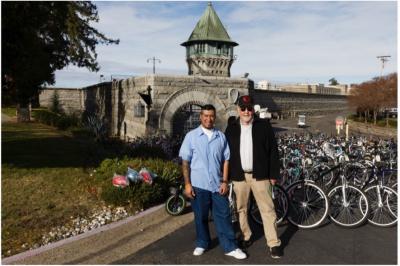
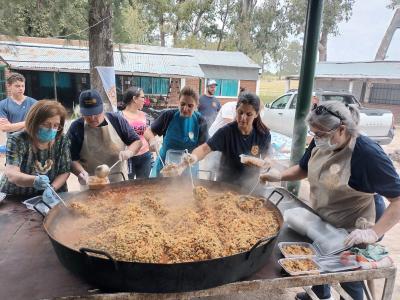
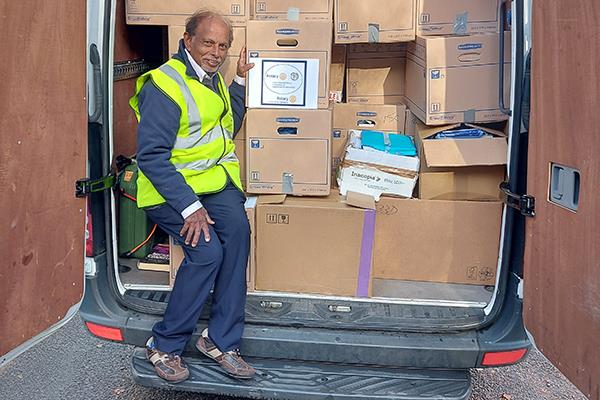
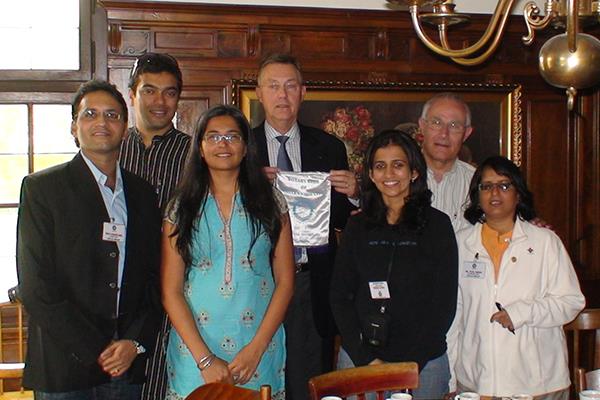








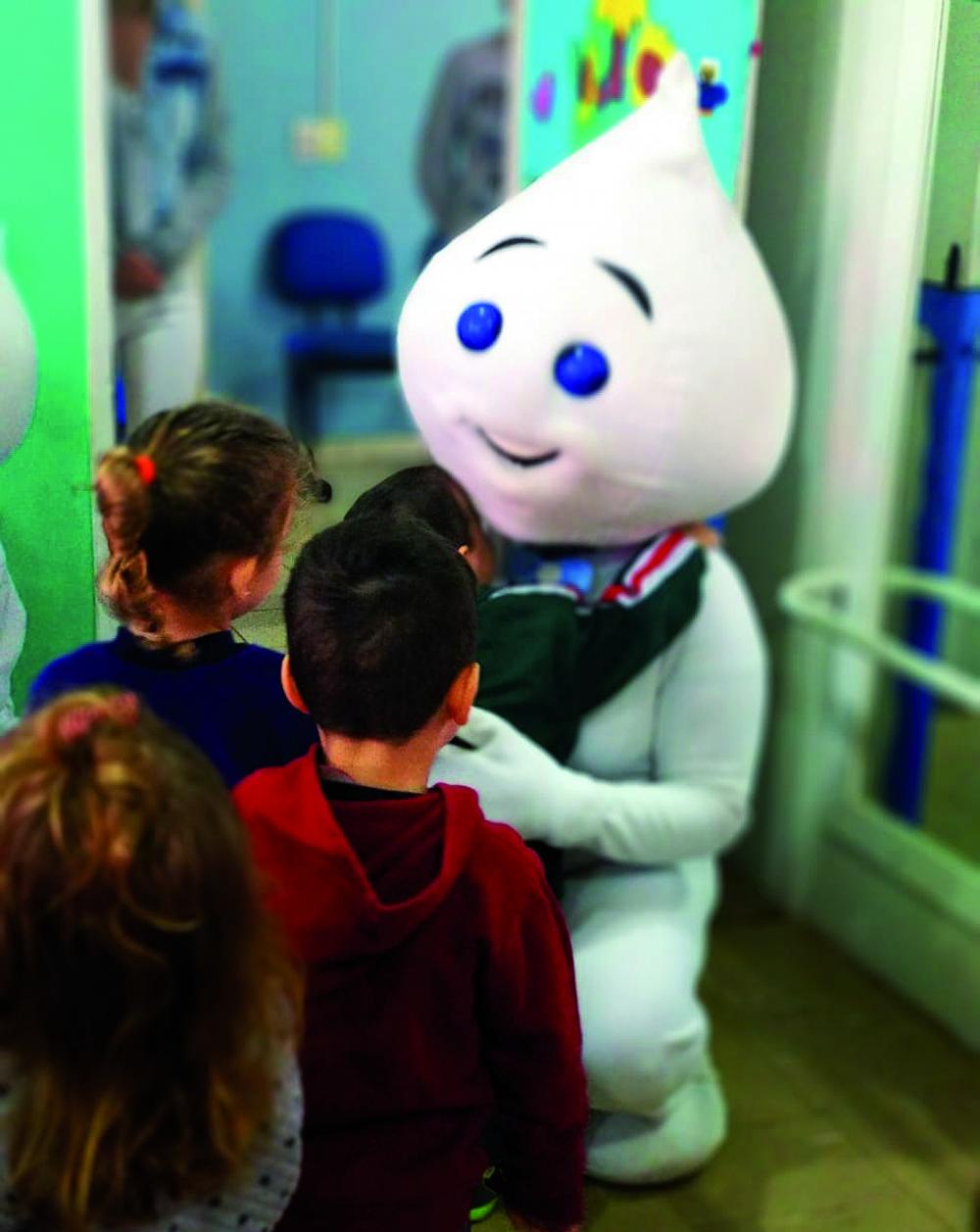
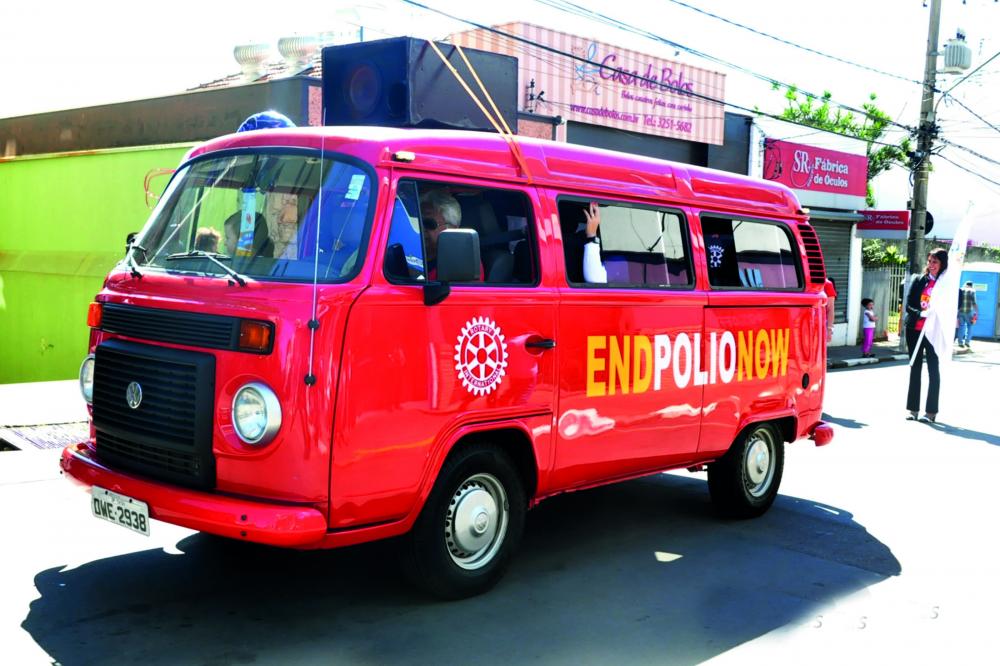
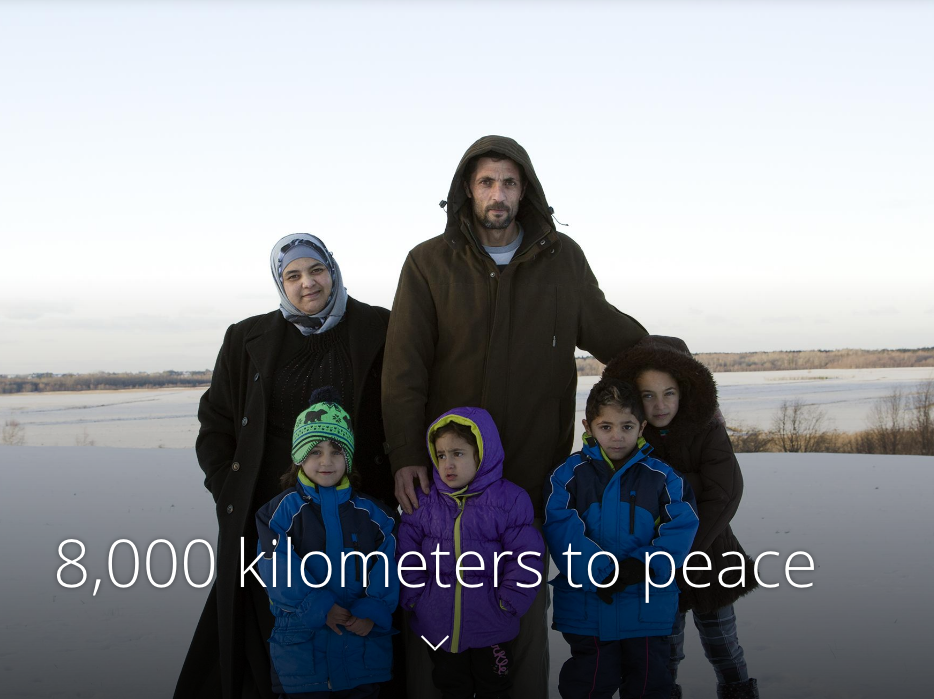
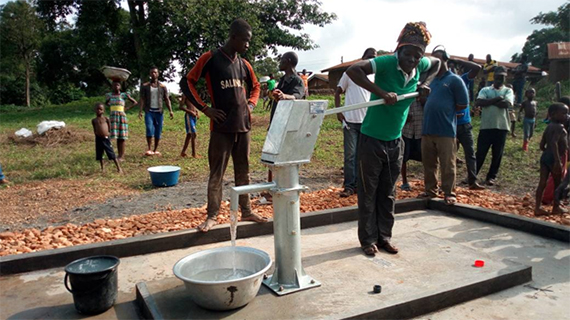
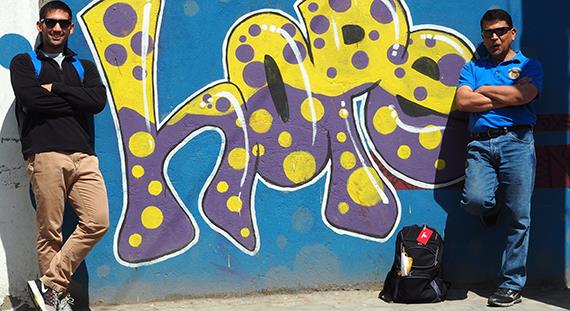

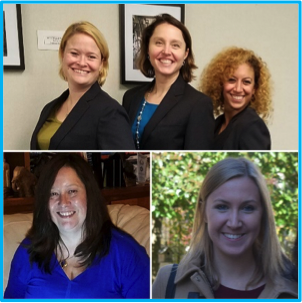 The Team: The District GSE committee was convened and selected a GSE team. The Rotarian team lead is Claudine Husainy from the Milford Club, and four non-Rotarians were selected from more than 10 applicants. The team of non-Rotarians heading out to Mysore are: Suzanne Delaney: Educator & business owner (sponsored by the Nashua Club); Nina Giannotti: International Student Advisor at New England College (sponsored by the Henniker Club); Sarah Marchant: Community Development Director, city of Nashua (sponsored by the Milford Club) and Allison Morris: Journalist, reporter with the Concord Monitor (sponsored by the Capital City Sunrise Club in Concord).
The Team: The District GSE committee was convened and selected a GSE team. The Rotarian team lead is Claudine Husainy from the Milford Club, and four non-Rotarians were selected from more than 10 applicants. The team of non-Rotarians heading out to Mysore are: Suzanne Delaney: Educator & business owner (sponsored by the Nashua Club); Nina Giannotti: International Student Advisor at New England College (sponsored by the Henniker Club); Sarah Marchant: Community Development Director, city of Nashua (sponsored by the Milford Club) and Allison Morris: Journalist, reporter with the Concord Monitor (sponsored by the Capital City Sunrise Club in Concord).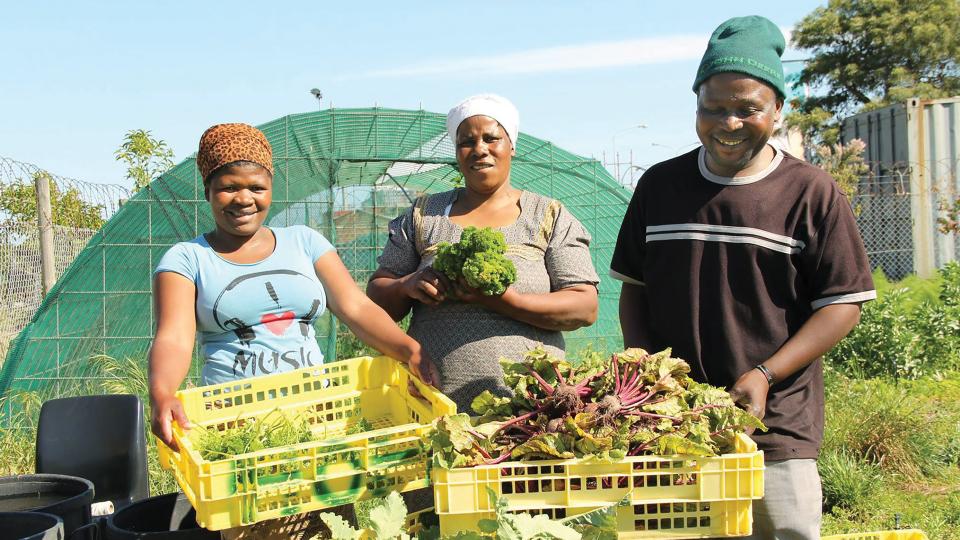
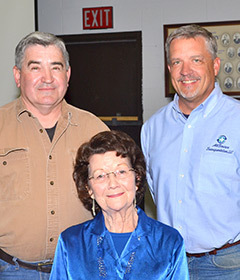
.jpg)
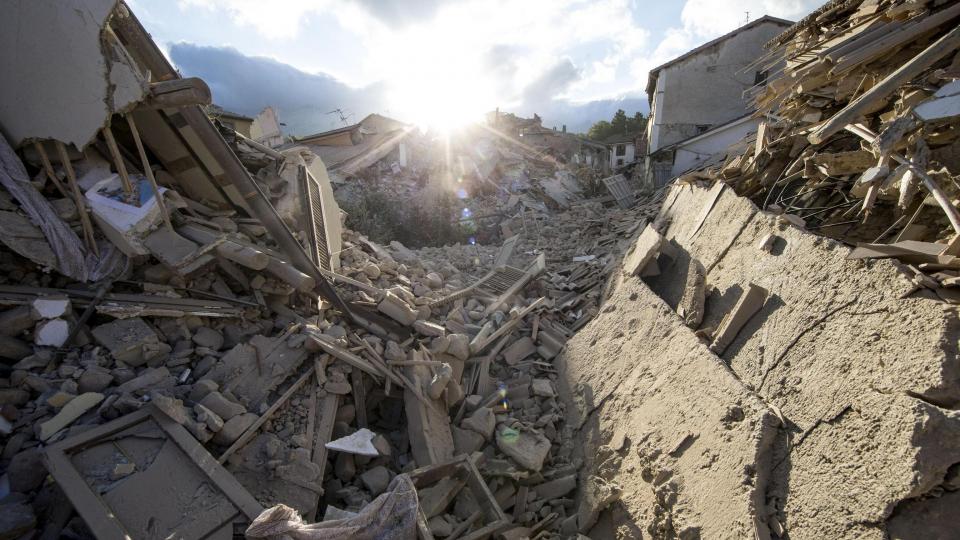
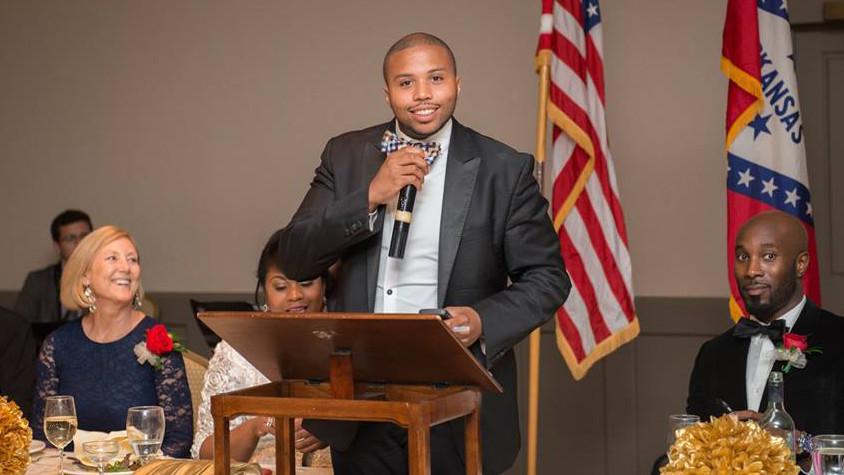
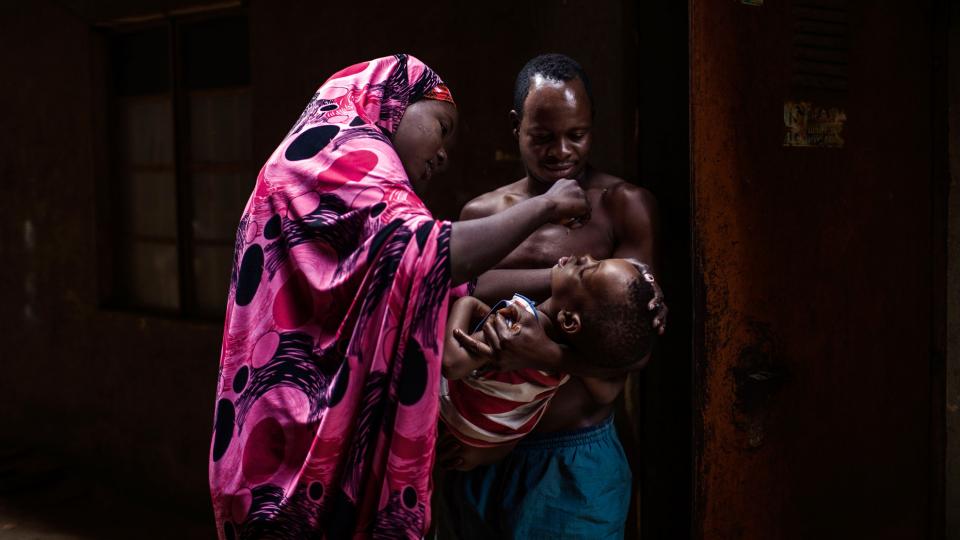
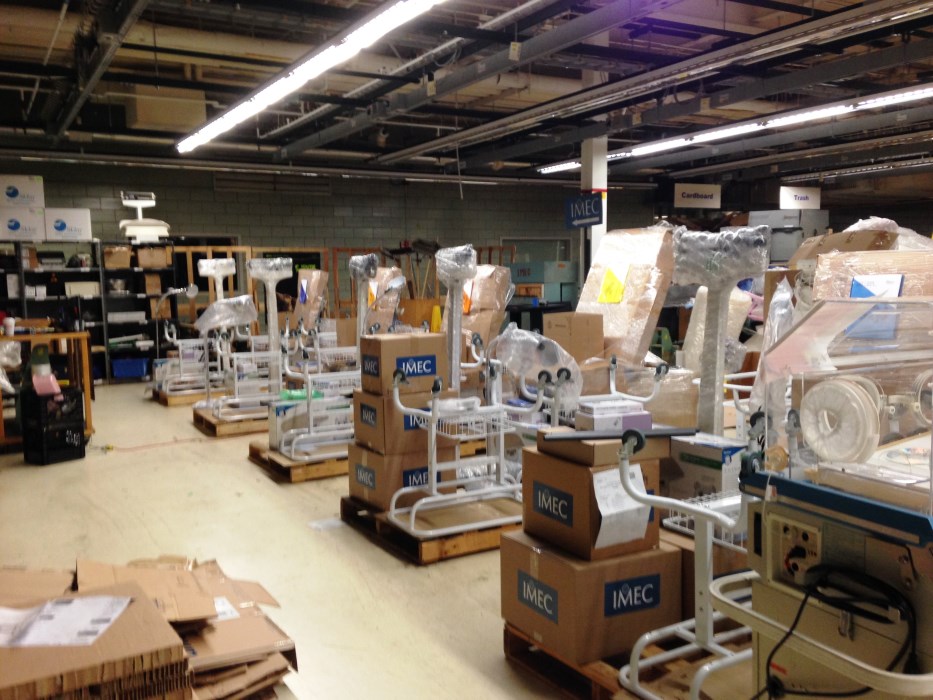
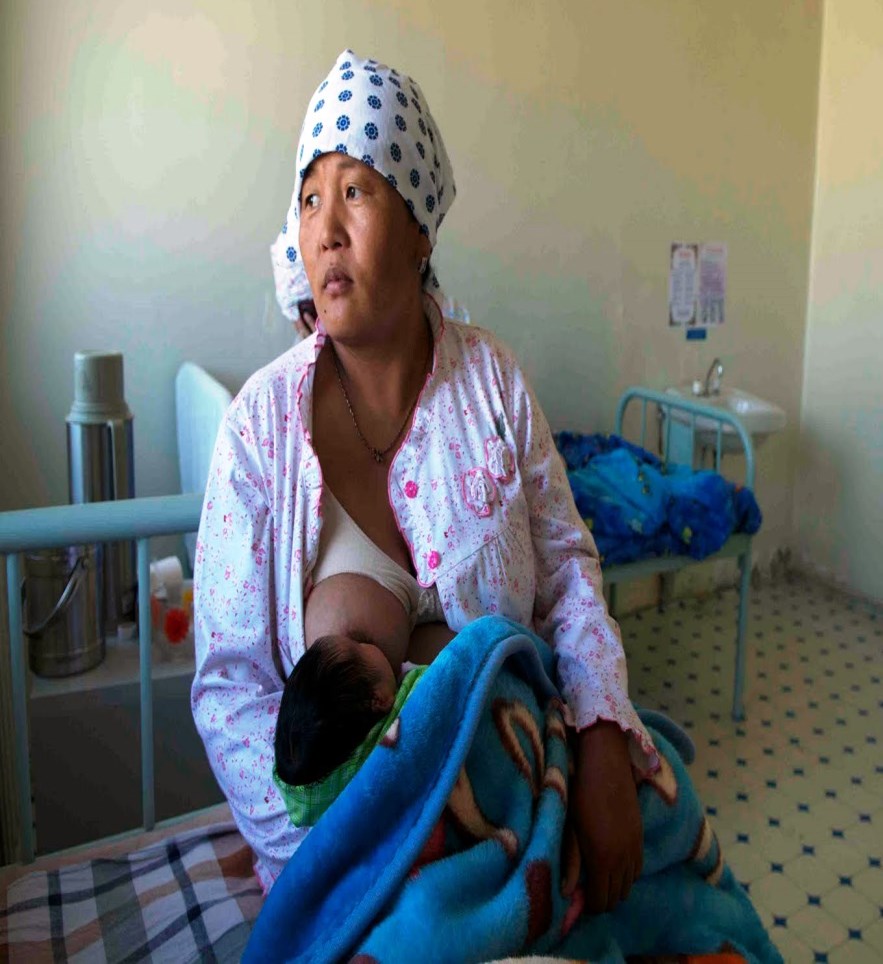
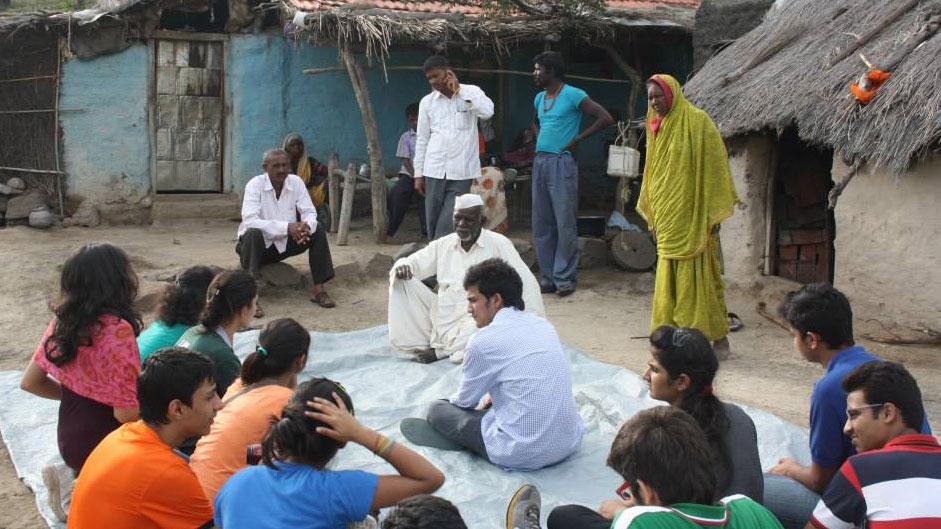
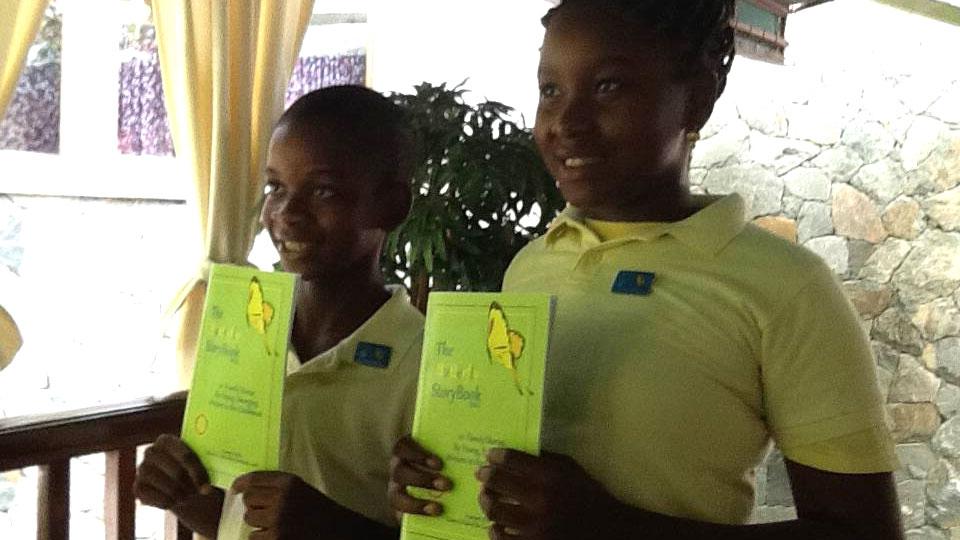
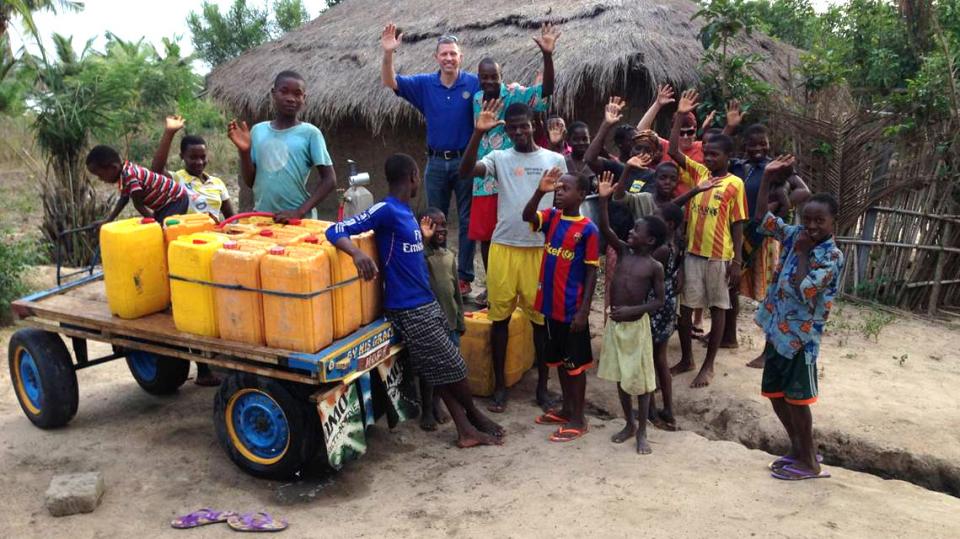
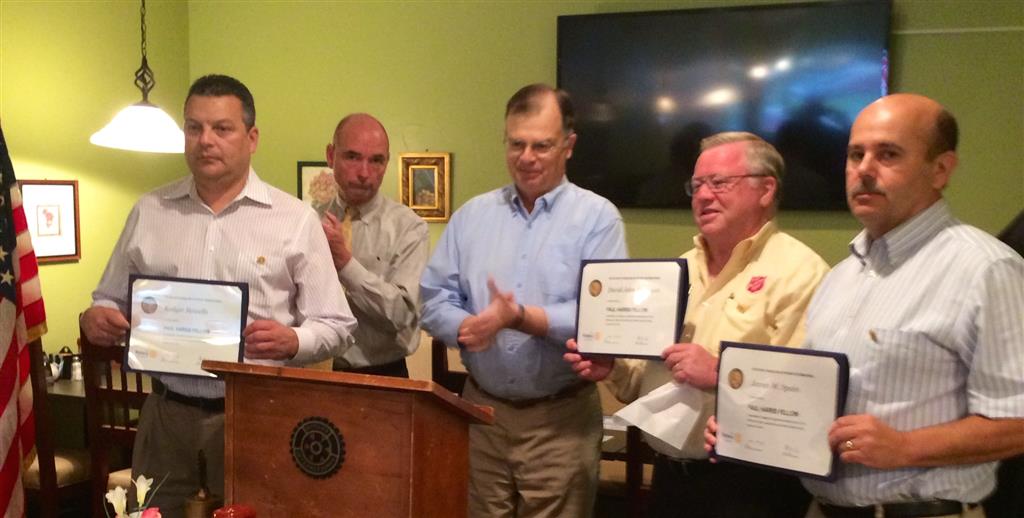
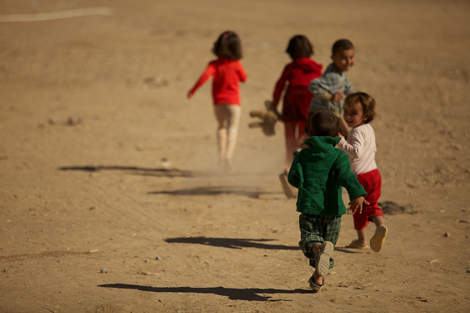
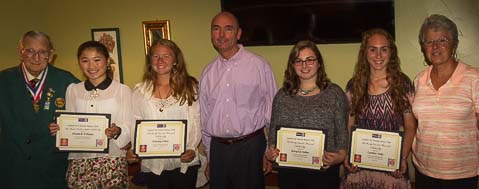
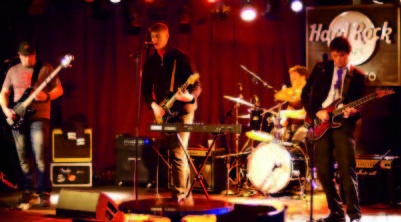

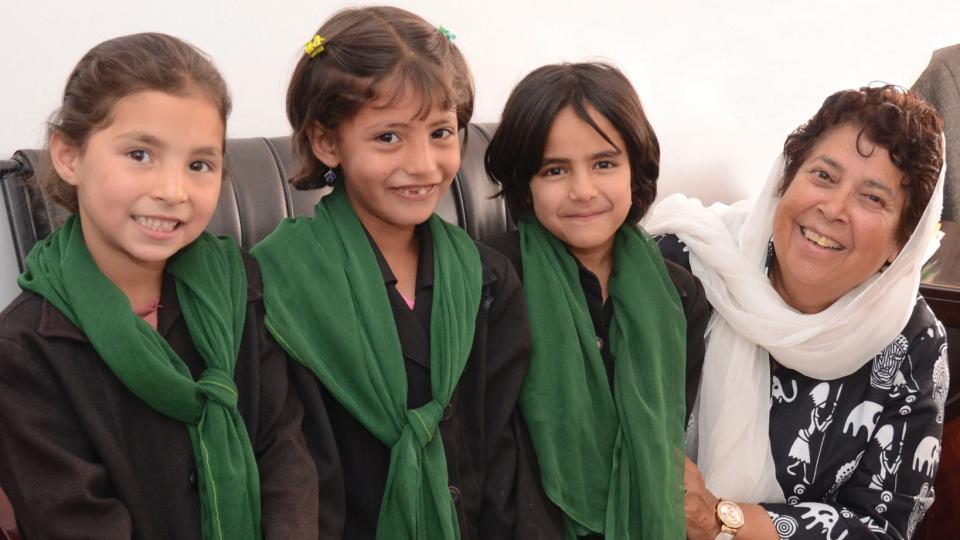
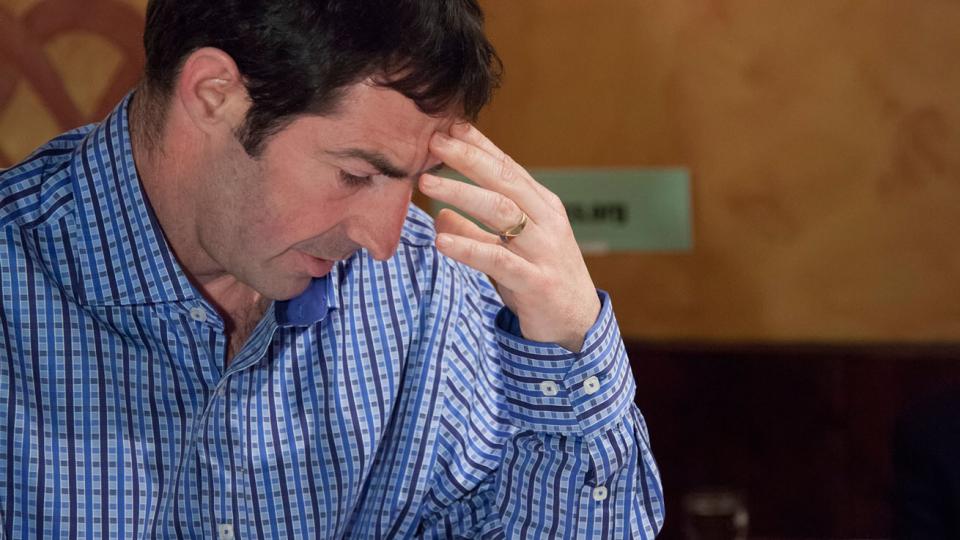

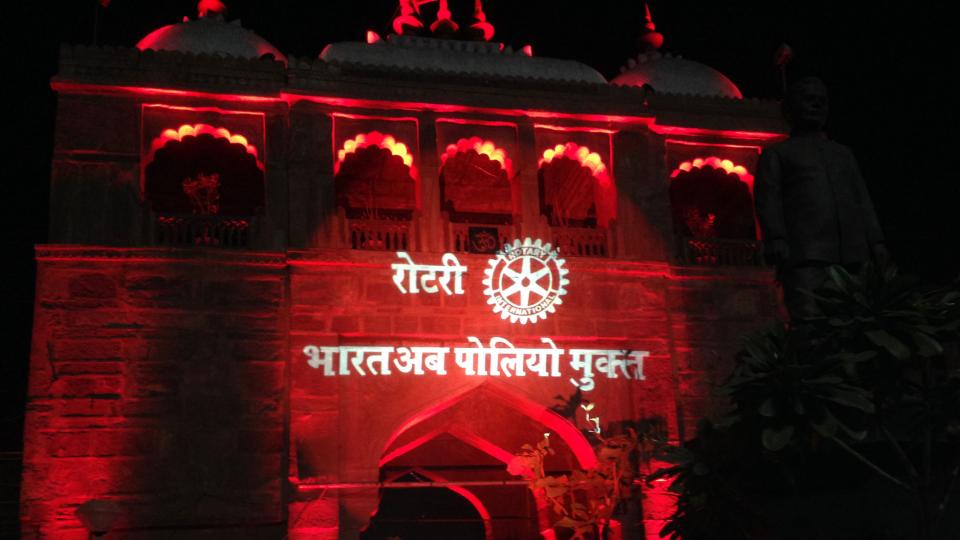
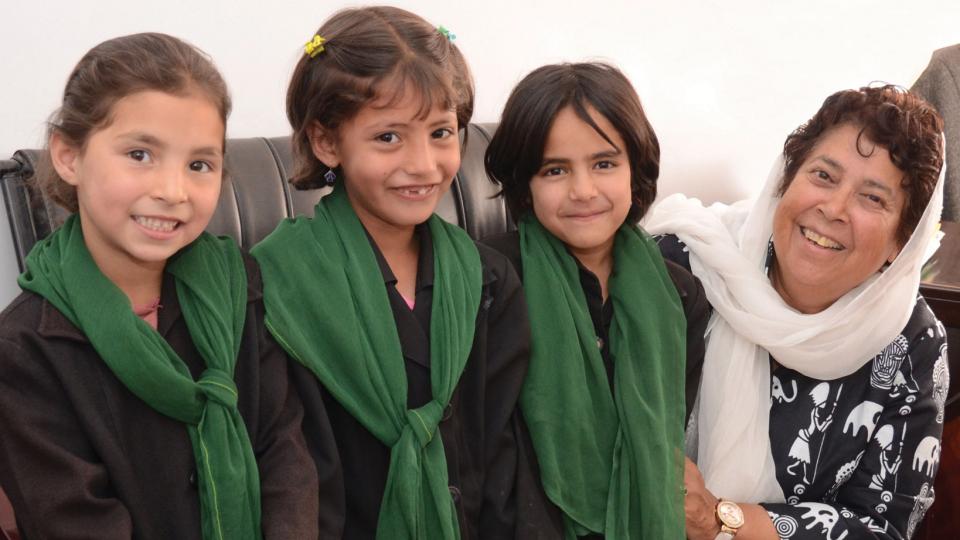
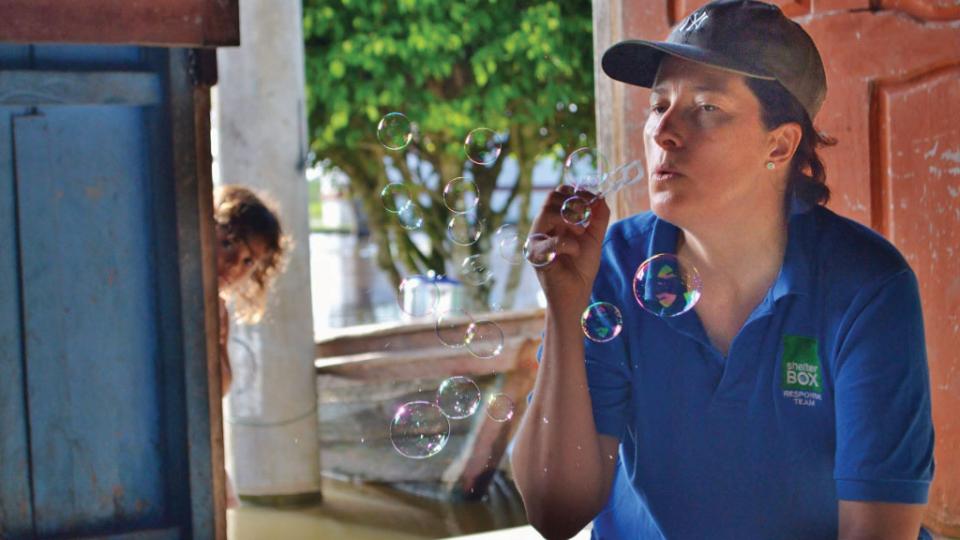
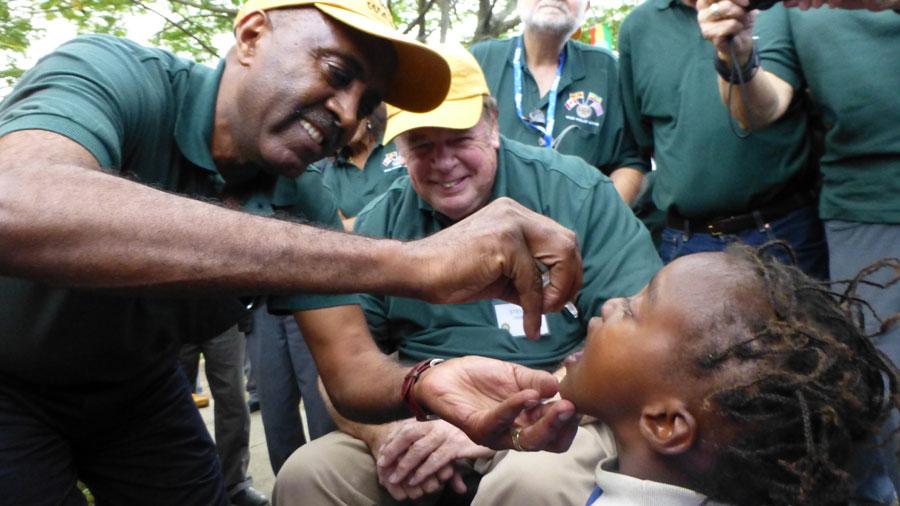
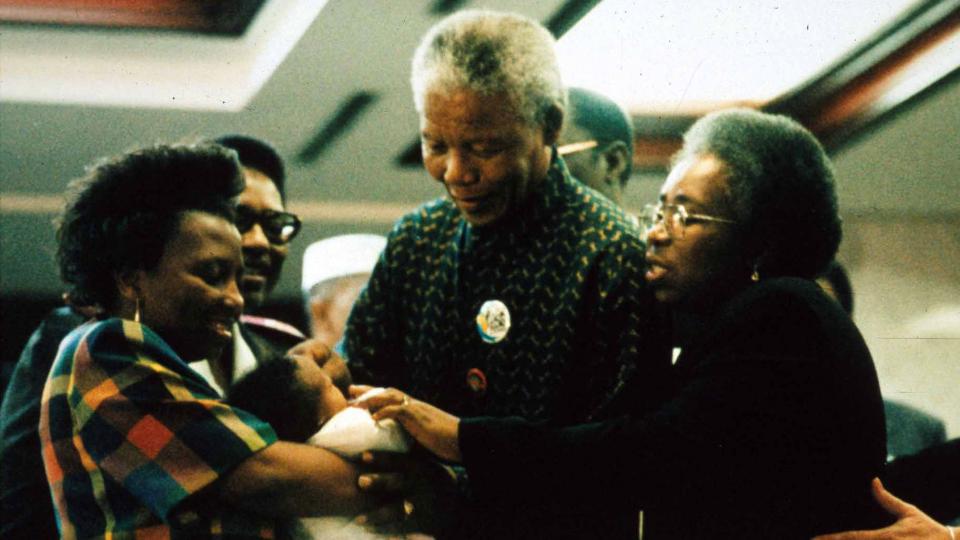
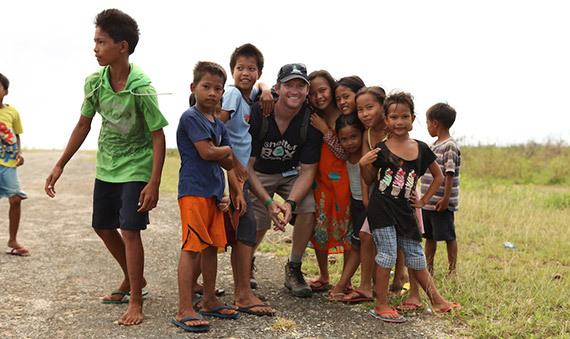
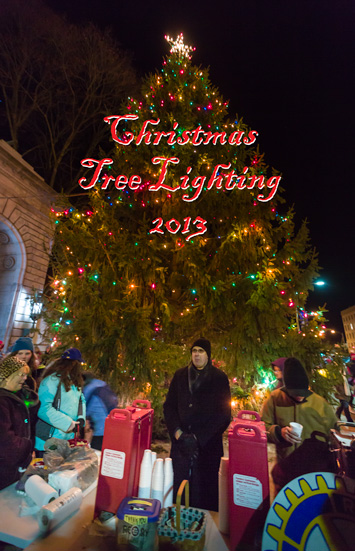
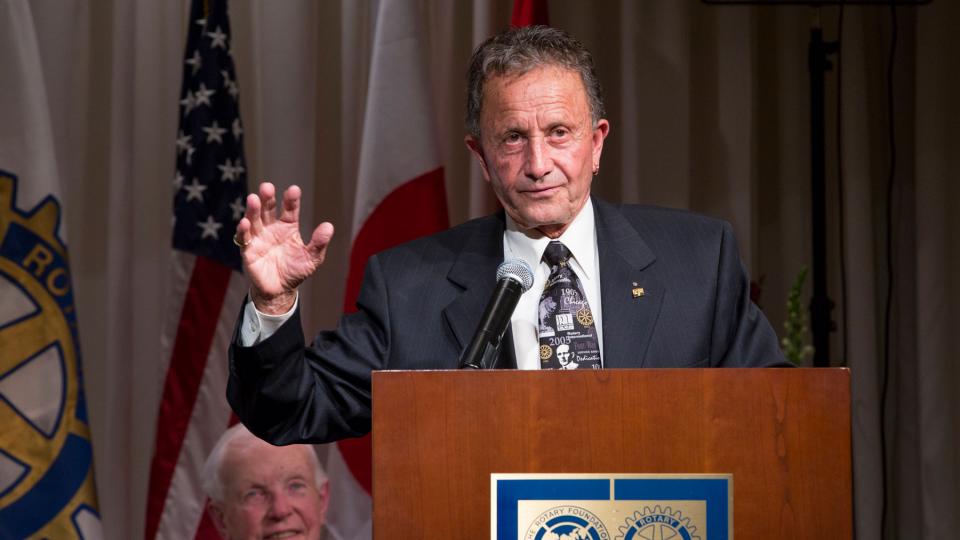
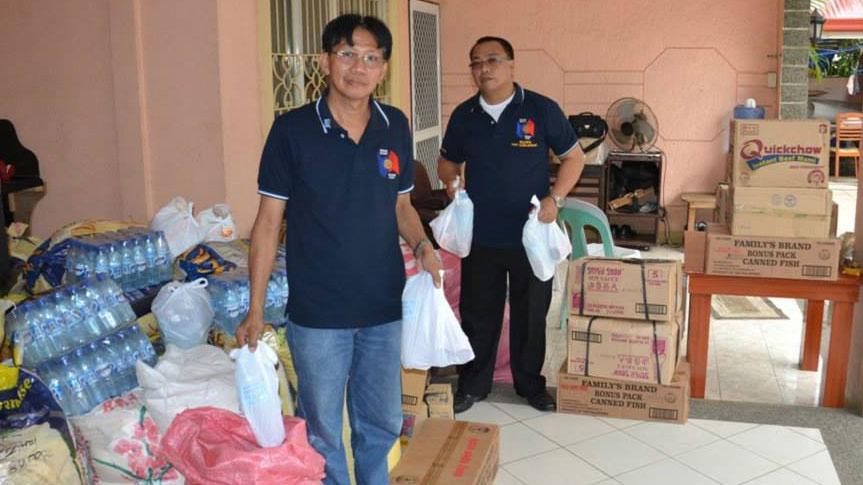
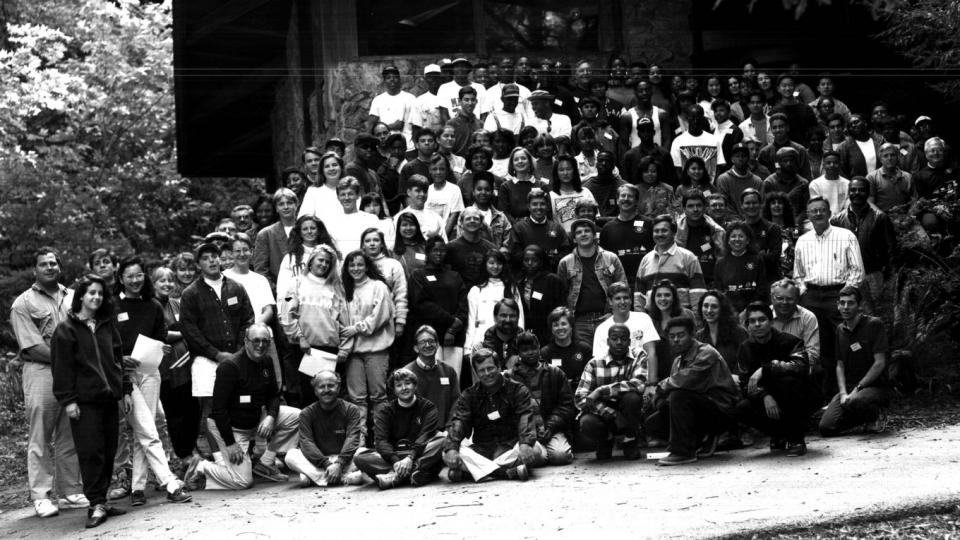
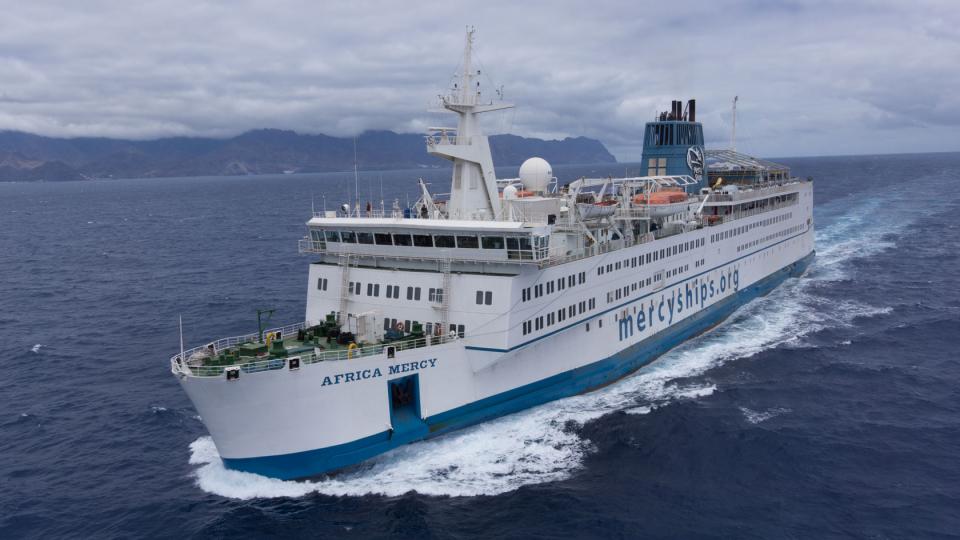
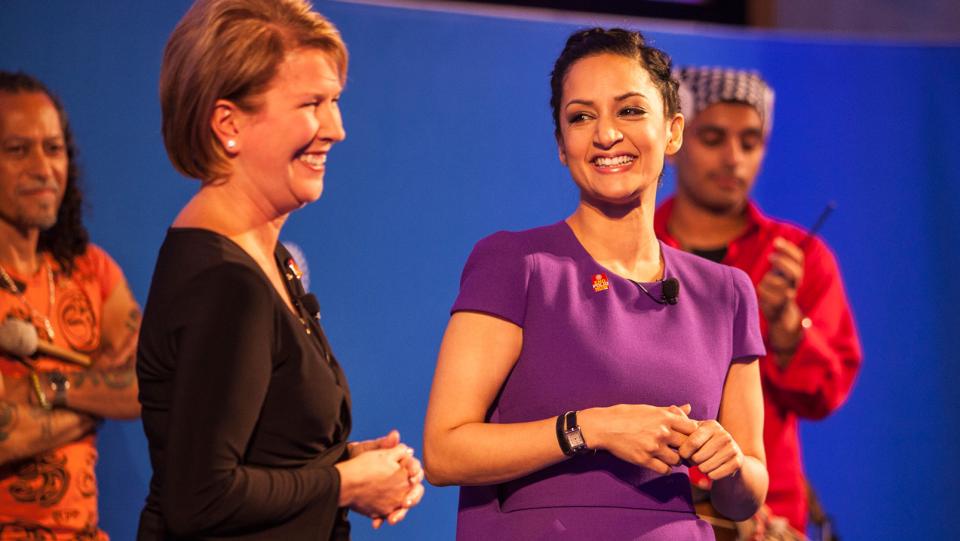
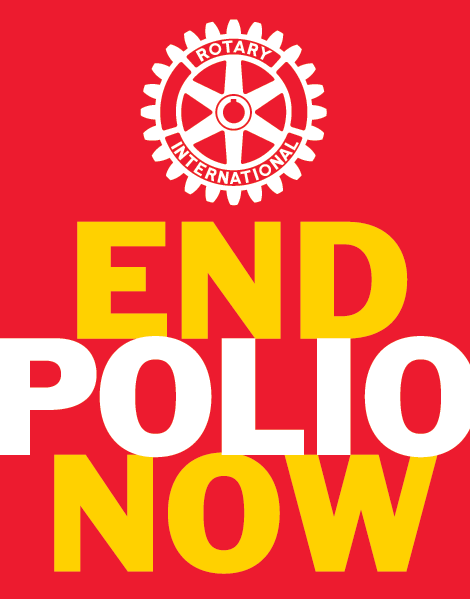
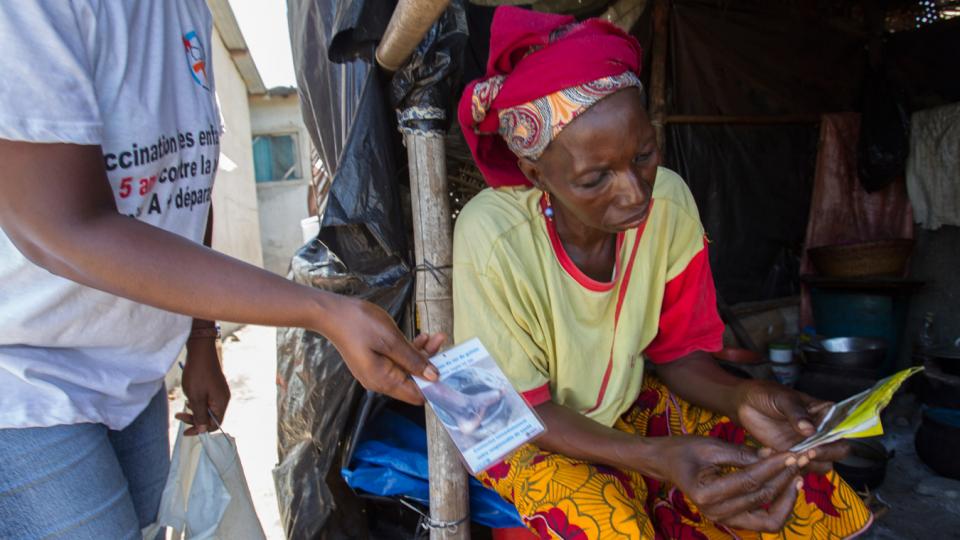
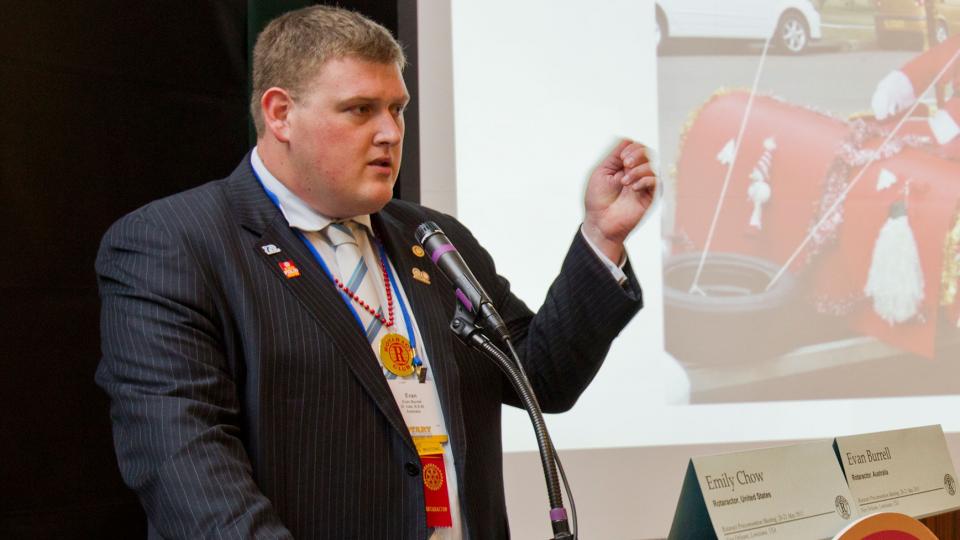
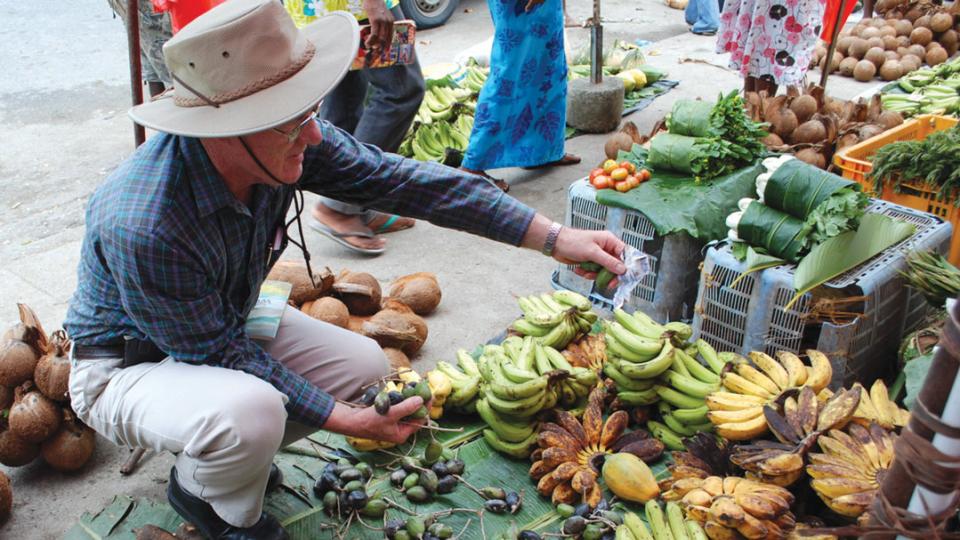
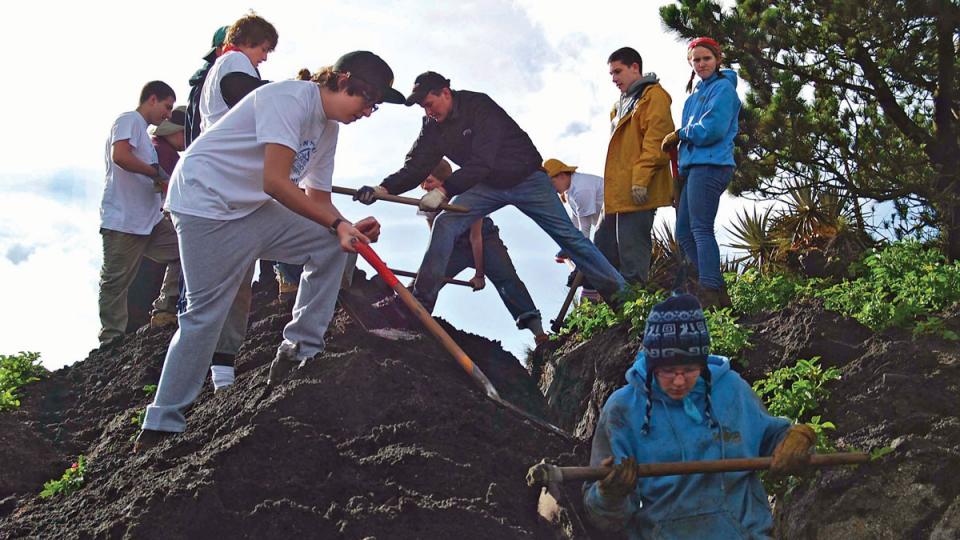
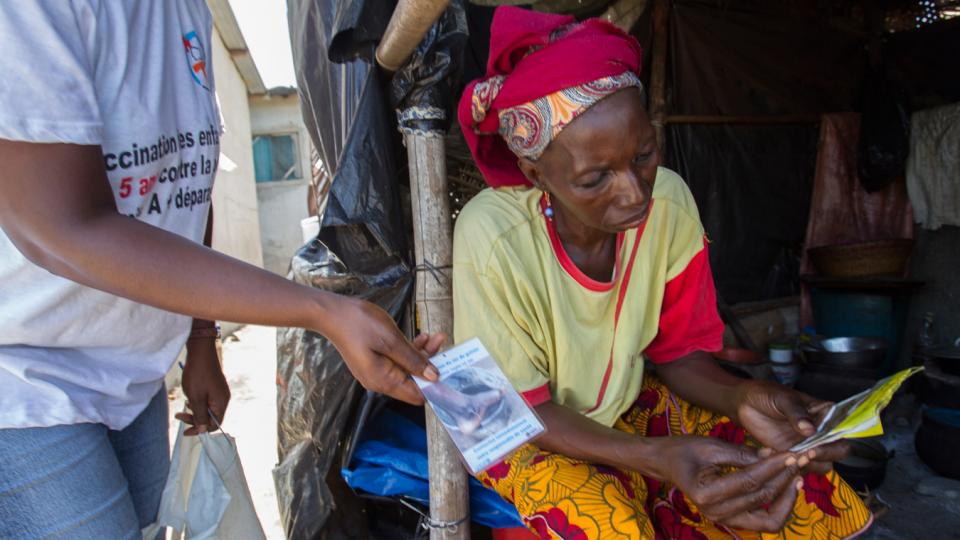
.gif)
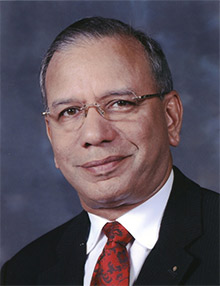
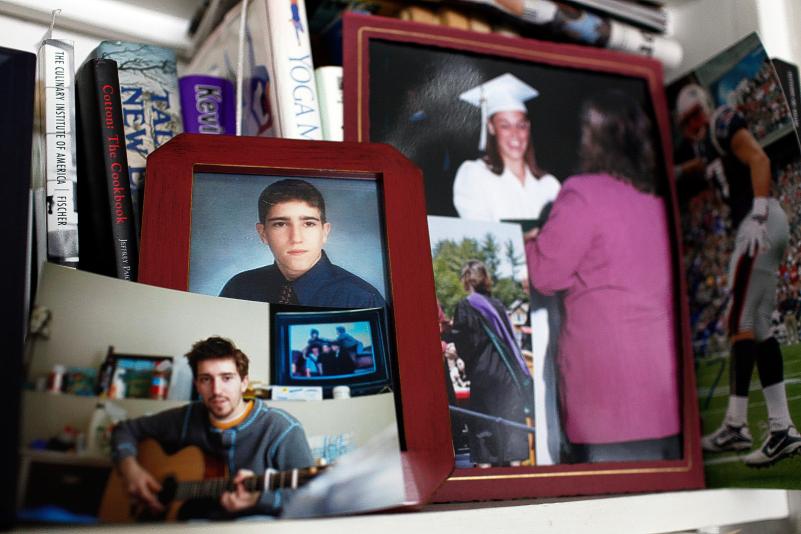
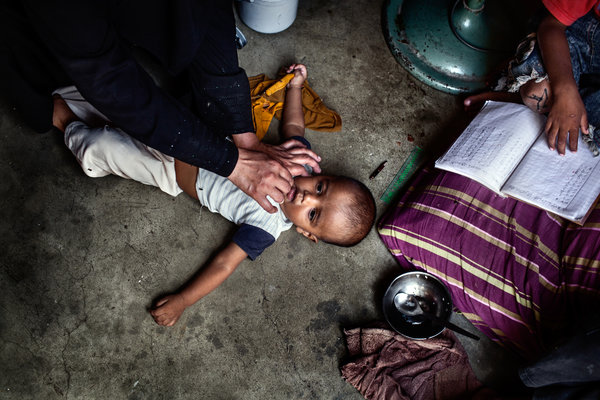
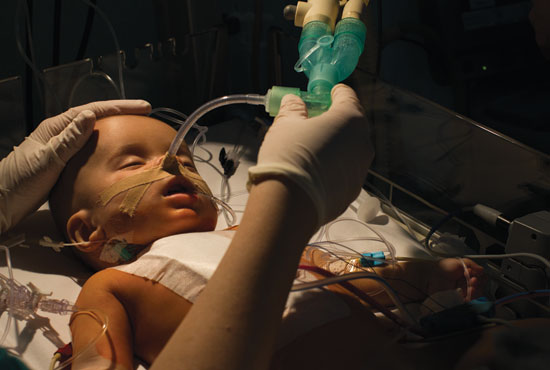
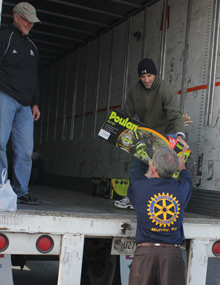
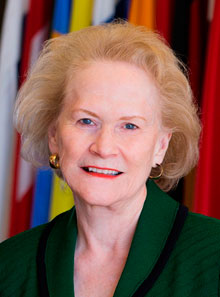
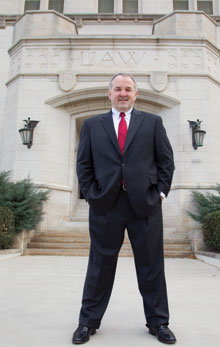
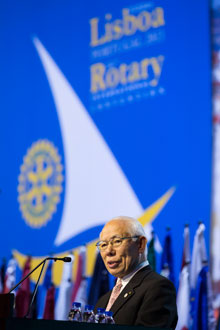
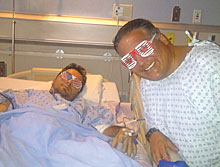
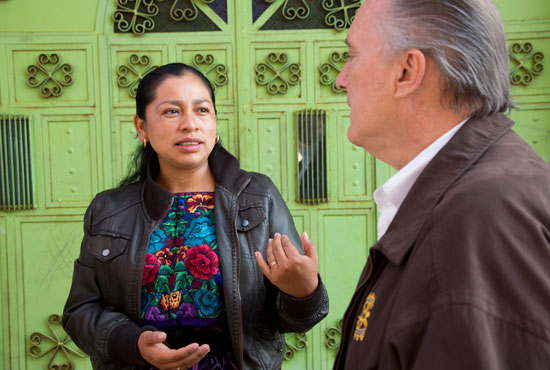
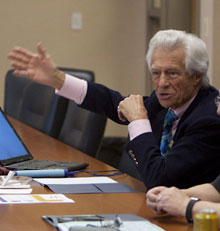
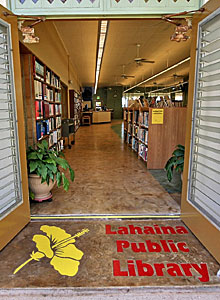
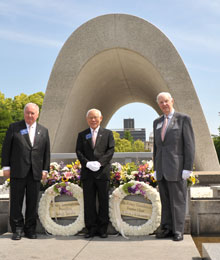

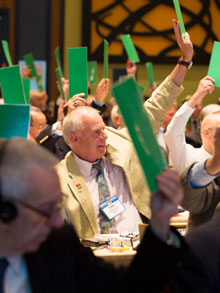
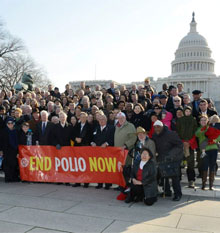
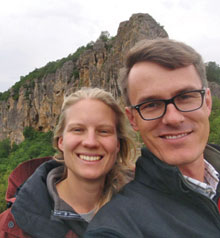
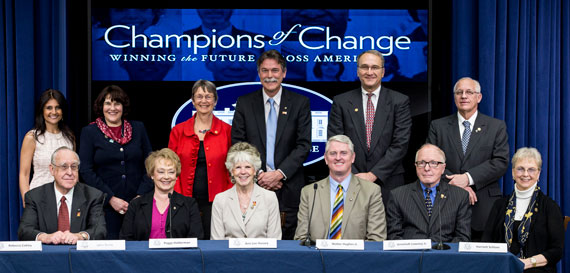
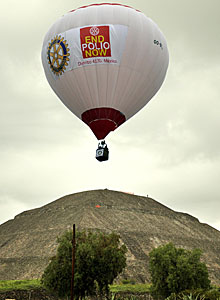
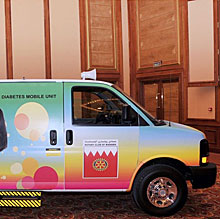
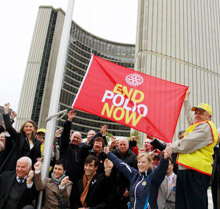
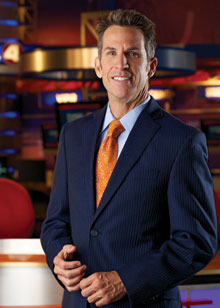
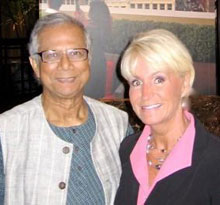
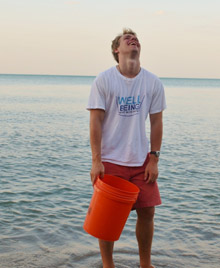
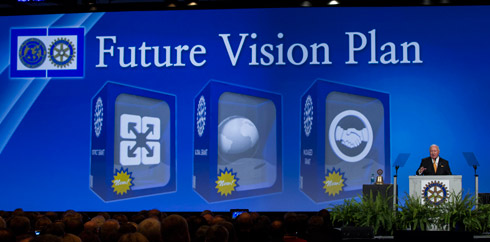
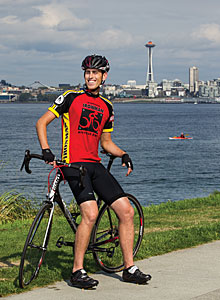
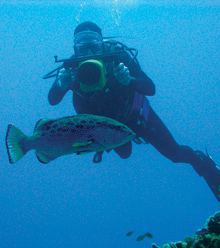
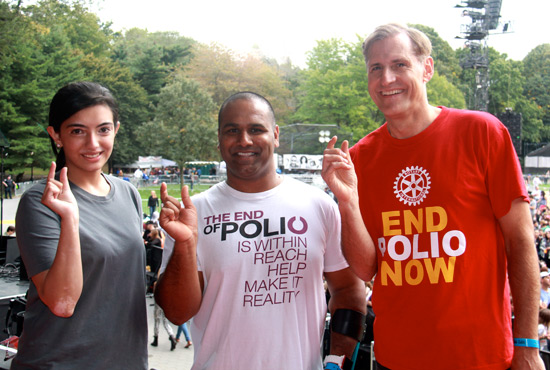
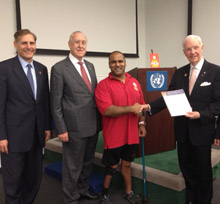
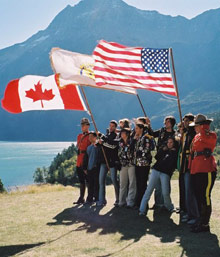
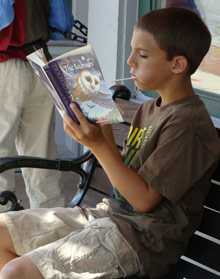
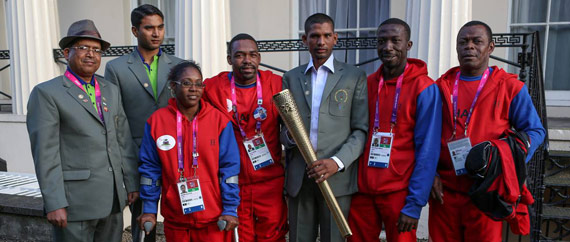
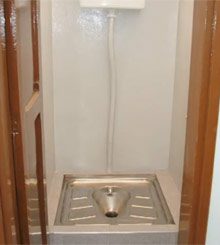
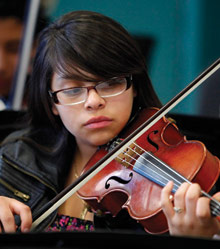
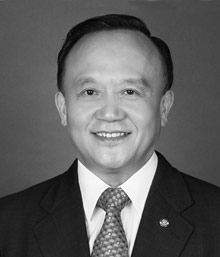
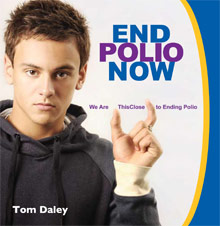










-update/Pass-Christian-Library.jpg)


